|
|
|
|
#141 |
|
Senior Member
|
Russia Calling! Investment Forum - PART I
Vladimir Putin addressed the plenary session of the 12th VTB Capital Russia Calling! Investment Forum. October 29, 2020 - 16:20 - Novo-Ogaryovo, Moscow Region The 12th VTB Capital Russia Calling! Investment Forum is taking place, via videoconference, on October 29–30, 2020. The main theme of the event is Global Challenges, Local Remedies. President of Russia Vladimir Putin: Friends, ladies and gentlemen, Allow me to welcome all of you at the Russia Calling! Forum. As usual, the forum has brought together our friends from all over the world, business leaders, investment managers and consultants, as well as international experts in the field of the economy and finance. This year the forum is taking place in an unusual format, via videoconference. But I hope that this will not stop us from openly and frankly discussing burning issues on the economic agenda, which are a matter of concern for the professional community both in Russia and the world. Of course, the main factor that determined the global economic dynamics this year is the novel coronavirus pandemic. We can see the serious decline it has provoked in industrialised countries and emerging economies and the huge funds that have been allocated to support national economies. The indisputable priority for Russia in this situation is the protection of the life and health of Russian citizens, of our families. I mentioned this on numerous occasions. This is the logic by which our actions have been and will be guided during the pandemic, when we coordinated a package of anti-crisis measures designed to save jobs and protect people’s incomes and to stimulate new contracts in the production chain. I would like to point out that total federal allocations approved for these support measures amounted to some 4.5 percent of the GDP. We know that some countries have allocated even more. I have no doubt that our decisions have been adopted on time and that they were sufficiently effective. In my opinion, this is the main thing. We have seriously mitigated the consequences of the epidemic in the national economy. Economic decline is even smaller than in many other countries, as you are well aware. However, the risks persist, of course. At the same time, I would like to note that, despite the complicated epidemiological situation, we are now much better prepared to work in conditions of a pandemic than before. Yes, I realise that we need to pay special attention to some matters and problems, and there are regions that require our special attention – we have recently discussed this matter at a meeting with the Government. But on the whole, the situation is better. This is due to the experience of mobilising the healthcare system and implementing essential preventive measures. We clearly understand how we should act, and we therefore do not plan to introduce all-out restrictive measures or to launch a nationwide lockdown, when the economy and all business operations virtually grind to a halt. If an objective need arises, the authorities will make justified pinpoint decisions, with due consideration for doctors’ recommendations, as regards the situation in specific regions, cities and municipalities. These decisions will make it possible to maintain people’s safety to the greatest possible extent and to facilitate the uninterrupted work of enterprises and organisations. In this connection, I would like to ask business owners and managers to be socially responsible and to comply with all recommendations of doctors and specialists regarding the working conditions of their employees and workers. Of course, we must fine-tune measures for supporting companies and businesspeople in the current conditions. This includes both short-term and long-term measures. We are focusing on support for small and medium-sized businesses. We have halved the insurance premiums for these companies, from 30 to 15 percent. This is a permanent decision that does not apply to the current crisis period alone. Small and medium-sized businesses working in the affected sectors can delay tax and insurance premium payments for the first quarter of 2020 by up to six months. However, I would like to draw your attention to the fact that not all companies in the affected sectors were objectively able to restore their earlier positions. They continue to face problems. First of all, this concerns restaurants and other services. I suggest extending the delay in tax and insurance premium payments for these companies by another three months. It has also been decided to extend the moratorium for planned inspections of small businesses until the end of 2021. We are therefore reducing the administrative and tax burdens for tens of thousands of companies employing millions of Russian citizens, thus preserving jobs and people’s incomes. Friends, Despite a very difficult year, Russia has maintained macroeconomic stability, prevented an inflation hike and ensured financial market stability. This is a solid basis for taking further steps to consolidate the efforts of the state and the business community, overcome the decline, restore employment and bring the national economy back to the growth trajectory. We intend to act and are already taking measures in such key spheres as stimulating investment, promoting exports and ensuring a broad-based introduction of digital technologies. These factors can definitely set the trend for long-term quality growth. I would like to emphasise that joint coordinated action is especially important, when government measures to develop the infrastructure, improve legislation and provide direct support to economic sectors are complemented with business investment in the creation of new, modern and highly paid jobs. Only in this case will we see a combined effect and a real result for the entire economy and for the welfare of the people. I would like to reiterate that the macroeconomic stability we have attained is important for and directly benefits both the people and the real economy. This stability has allowed the Central Bank to lower the key interest rate and enhance the accessibility of loans, as you are aware, while the Government used it to launch new instruments in the interests of small and medium-sized businesses and Russian families. Let us consider, as an example, the easy term mortgage programme with a 6.5 percent interest rate. This form of targeted support has proved effective. According to forecasts, the amount of mortgage loans issued this year will be record-high at more than 3.5 trillion rubles. In addition, this measure has not only helped the construction industry but has also encouraged additional demand for the output of related sectors, which employ millions of our citizens. I have said already that a decision was taken to extend the easy term mortgage programme until July 1, 2021. We will also allocate considerable funds from the federal budget to promote rural mortgages. Next year we will nearly triple them. At the same time, I would like to remind you about our goal: while making mortgage loans more affordable, we must also expand supply on the housing market to prevent imbalances and a rapid growth of prices – we are aware of this danger. Otherwise, the lowering of the mortgage interest rate will have no effect at all. In this regard, special focus should be on the infrastructure support for housing construction and, in general, the development of regional infrastructure, including motorways, utilities, public transport and social facilities. We will expand long-term debt financing, remove regulatory restrictions and create lucrative opportunities for safe investment of free capital and savings, so that companies and regions can bring in additional resources to achieve these goals. All the more so as the activity of domestic, including retail, investors is on the rise in Russia. This goes to show the level of trust in the domestic economy. Of course, this is also due to the rate cut. Nevertheless, it is also a measure of trust in the economy in general. It is a major investment source that should be used to promote sustainable development and implement infrastructure and other projects of Russian companies. Notably, despite the current difficult period, Russian assets enjoy demand on the market. Since earlier this year, the domestic issuers have raised $37 billion on public debt markets, and the securities market placements have brought in over $6 billion, a record-breaking amount over the past few years. On a separate note, I would like to note a new model for attracting private investment that we tested just three weeks ago when Sovcomflot held a public offering on the Moscow Exchange. Over 42 billion rubles have been raised. Moreover, these funds will be invested in new projects, including the construction of gas carriers at domestic shipyards, rather than go to the budget. To reiterate, I am talking specifically about additional resources, which will be used to expand the company and implement industrial projects. Thus, we will hopefully get a cumulative effect for many industries and high-tech sectors. Close cooperation between the state and businesses is critically important if we want to reinforce and improve the securities market. The issue of perpetual bonds by our major infrastructure company, Russian Railways, is quite notable. With the assistance of the Government and the Central Bank, these securities provided resources to back the Russian Railways’ investment programme and, importantly, helped create a portfolio of orders for domestic manufacturers of equipment, cars and locomotives. In addition, the state is supporting the green bond instrument designed to finance the transition of Russian enterprises to the best available technology. The state will cover up to 90 percent of the bond coupon payments. I would like to say this once again: stimulating investment is our priority at the current moment, bearing in mind the goal of long-term future-oriented economic development. Of course, I would also like to point out that reliable and safe mechanisms for investing in new financial instruments are available to both Russian and international investors. We value every partner who wants to work together with us. In addition to this, another instrument for the implementation of large projects important for entire regions and territories should be investment protection and encouragement agreements, which have a so-called stabilisation clause that guarantees the stability of tax terms, use of land and construction conditions for investors, whose spending on infrastructure will be made up for through the amount of taxes paid. About two dozen projects with an aggregate budget of some 900 billion rubles have applied for this instrument. I have recently discussed this with the Government, and I would like our colleagues in the Government to remember that these plans must be implemented and become a reality a soon as possible. And the last thing. You are aware that digital transformation is one of Russia’s national goals in the coming decade. It is an extremely important condition for enhancing economic growth and improving the quality of life for the people. Russia’s leading companies, first of all Yandex, Sber and VTB (Mr Kostin can vouch for this), have been long and very successfully investing in these spheres, spreading to new niches and products and actually growing into what is now described as “econsystems.” I am quite sure that the speed we have accumulated and the development of competition in this sphere (this is very important, and we will probably talk about this later today) will give a powerful impetus to our economy and will also help many small and medium-sized companies expand their marketing channels. This is extremely important, and I am certain that this subject is interesting for our colleagues, including those wo are attending this event. Thank you. With this, I would like to conclude my opening remarks. I have the pleasure of giving the floor to our host today, Mr Kostin. Please. 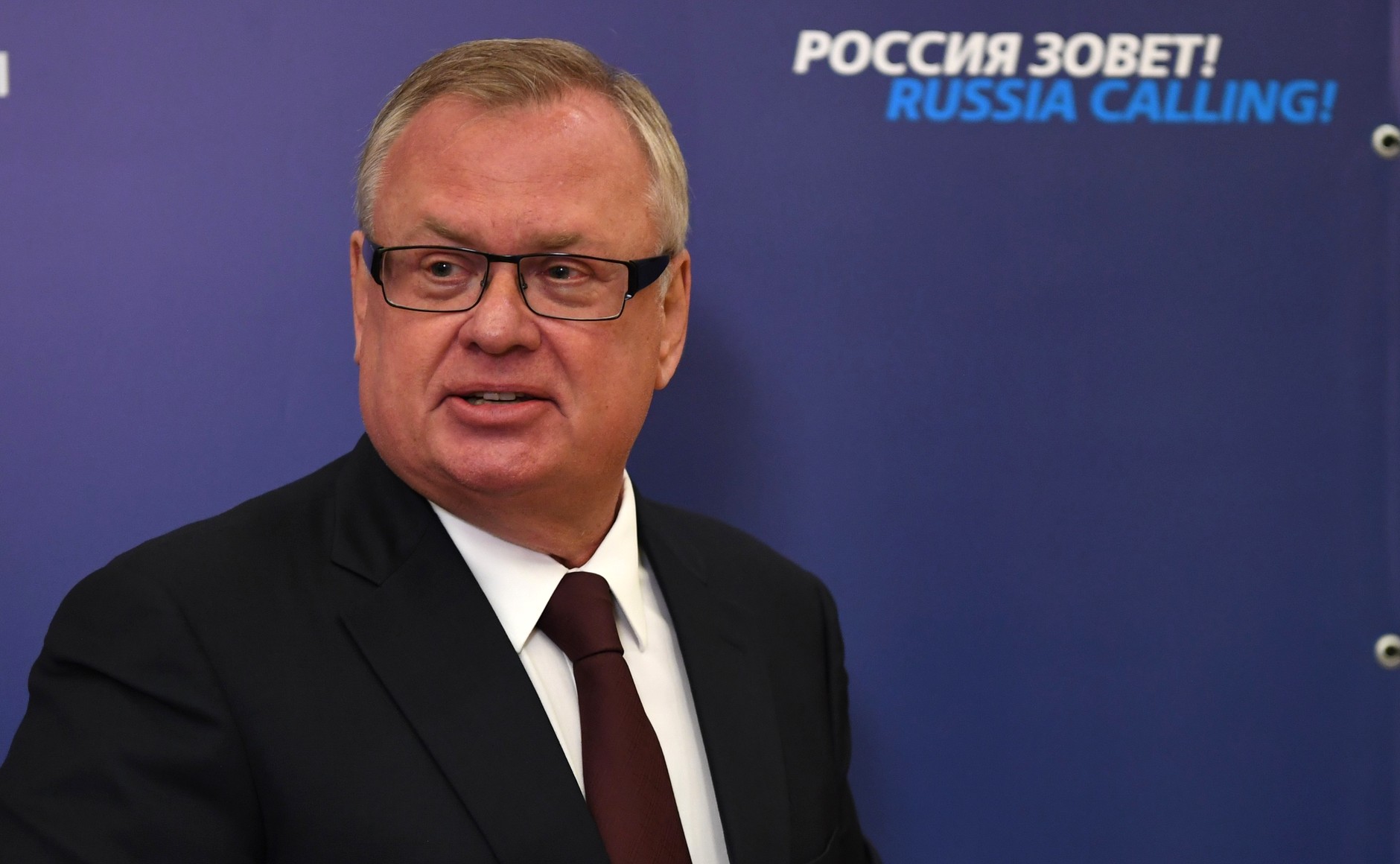 President and Chairman of the Management Board of VTB Bank Andrei Kostin: Mr President, First of all, thank you for your participation and substantive remarks. This is your 12th consecutive address at our forum and this is what primarily attracts investors from all over the world. You have already mentioned that this forum is being held in unusual circumstances, although we are gradually getting used to it. We really doubted for a long time whether we should hold the forum this year, because, as we know, most of the forums both in Russia and abroad were cancelled this year for reasons that are well known. However, investors are an impatient group and view the crisis not only as a time to count their losses, but also as an opportunity to make lucrative investments, because crisis is usually a good time to buy and the likelihood of making a profit is probably higher. Therefore, we took the chance and decided to hold this forum the way it is being held now. There is probably an upside to it, because with the help of our partners, the Russian media and international news agencies, our session is being broadcast to 70 countries online. Almost anyone who wants to hear and see it, and there will certainly be hundreds of thousands of people, if not millions, will have this opportunity. So, if you do not mind, then, as is customary, we will start the Q&A session. I hope modern technology will allow investors from different countries to ask their questions. Colleagues, please introduce yourselves and tell us what financial organisations you represent, where you are located and what country you represent. Let us start our discussion. Please. Yakov Arnopolin: Good afternoon, Mr President. My name is Yakov Arnopolin, and I am from the PIMCO Investment Fund in London. Mr President, here is my question for you. It has come to our attention that the growth rates of the Russian economy have decreased over the past five years amid demographic problems, weaker inflow of migrants and still relatively low amounts of direct foreign investment. Additional costs to combat the virus may cause the postponement of the national projects to a later date. Accordingly, what measures is Russia considering to achieve higher growth rates in the long term? Vladimir Putin: This is actually the main issue from which we proceeded. I am not going to give an extended answer now, because this would take time. But I would like to note that the economy has slumped not only in Russia but throughout the world as well. As you know, the Russian economy has slowed but not as steeply as the other economies, including those of the so-called industrialised countries. The economy declined by 8 percent in the second quarter in Russia, 9 percent in the United States, as far as I am aware, and by as much as 17 percent in the Eurozone, from 14.7 percent to more than 17 percent in some countries. So there is nothing out of the ordinary; we are in line with global trends. As I have said, we are even better off in this respect than some other countries. However, foreign analysts who analyse the situation say this has to do primarily with the structure of Russia’s economy, where the flagship sectors have been affected less than other industries. I do not think so, because, for example, the demand for energy (we are aware of the role and importance of our energy companies in our economy) has fallen considerably, yet the overall indicator is not bad at all. This is primarily the result of the stability of our macroeconomic policy in the past few years. I would like to emphasise that the Central Bank transitioned to a floating exchange rate of the ruble several years ago. This has allowed us to mitigate the effects of changes on global markets, in particular, the energy market. By doing this, we have largely, though not entirely yet, “unfastened” our economy and its main indicators from global price fluctuations, because we have also introduced the Budget Rule and are strictly complying with it. We have preserved and even increased our reserves precisely thanks to our decision on the Budget Rule. As of today, or more precisely as of the middle of October, our gold and currency reserves totalled about $585 billion. Our National Wealth Fund equals approximately $176 billion. At the same time, we are sticking to the target inflation rate of around 4 percent. We have one of the smallest sovereign debts in the world, approximately 3 percent, and our aggregate debt is about 17 percent. Taken together, this allows us to feel secure, including to continue developing our economy and to coordinate new economic development plans. Of course, one of the main factors, as you have pointed out, is attracting investment, not only direct foreign investment but also other types of investment. We proceed from the assumption that the macroeconomic conditions I have mentioned will serve as a guideline for our potential partners. Here is what I would like to point out. Surveys conducted by international institutions, not us, who questioned our partners and foreign investors in general showed that no one refuses to work in the Russian market, but on the contrary (I cannot provide specific numbers, but they are readily available in the public domain), the number of companies planning to work in the Russian market is on the rise. We will make every effort to create proper conditions for our investors, both domestic and foreign. We are also well aware of where our main investors come from – Cyprus, the Netherlands, and so on. This is about reinvesting Russian capital, and that is good, too. We do not mind that we have free movement of capital. We do not restrict this and do not intend to. This is our principled position. This was the case during the 2008–2009 crisis, and this is the case now amid the crisis caused by the pandemic. I hope this, too, inspires trust in the Russian economy and Russia’s economic policy, as we can see from the capital returning in the form of foreign investment. So, all of that is causing optimism despite the known risks. Look, we will, of course, have a decline in the economy, but it will be much less pronounced than in other countries at about 4 percent this year and 4.2 percent next year. In a year, growth will resume, including an increase in our surplus. I have just given you the numbers showing the deficit and ensuing budget surplus. This year, the budget deficit will amount to 4.4 percent, and next year we expect about 2.4 percent. The year after that there will be a surplus of about 1 percent. The economy will grow in step. Overall, I am more optimistic than pessimistic, and I hope our potential partners will appreciate this. The factor that you mentioned – achieving targets under the national projects – is critically important. Indeed, we are shifting certain elements to the right of the chart, but these goals do not go away. Moreover, the goals have been set even higher in the projects that you mentioned, namely, infrastructure projects involving the creation of new opportunities under railway and motorway projects. In general, this year we are over 80 billion rubles in excess of the plan. We have planned and will implement a number of large investment projects, and I hope, in some cases even at an earlier date than planned. I will be happy to hear that this answered your question. Andrei Kostin: Mr President, may I ask one more question? Our expert community is heatedly discussing whether the government can increase investment. Even Alexei Kudrin, once an ardent supporter of scrimping and saving, recently said in an interview that investment can and must by increased through augmenting sovereign debt and tapping the NWF more vigorously. Indeed, you quoted Russia’s sovereign debt at 17 percent, one of the lowest in the world. According to IMF methodology, up to 40 percent debt is actually acceptable, low risk. Aren’t we pursuing an overly conservative policy in this area? Could we possibly increase spending on investment projects by augmenting debt and, perhaps, use a little more of the National Wealth Fund, which we seem to be keeping for a rainy day? It seems like the right time to use it, doesn’t it? Vladimir Putin: You asked if we could increase spending. The answer is yes, we could. But there is another side to your question that you have not asked – whether this should be done now or not. I can tell you that we are doing it now. I am referring to the support measures I have mentioned many times and we will probably discuss them later today. These measures primarily involve support for specific industries, support for Russian citizens, families, primarily families with children. Where does this money come from? It comes from the reserve funds. We have a very low federal budget deficit, somewhere around 3.9 percent this year, I believe. Why is it so moderate? Because we are using our reserve funds, including the NWF. Do we need to do more? This question is pending in a thorough study by the Government and the Central Bank. I am watching this closely. My colleagues and I are adjusting our actions. Boosting government spending unreasonably would mean running risks that we may not be able to predict. I have just mentioned the construction industry. Yes, we have lowered the mortgage rate to 6.5 percent. An all-time record inflow of funds to the construction industry and a record number of mortgage loans people have taken out. But I also mentioned the risks, one of them being rising prices, and we must closely monitor this situation. The same holds true for other industries. We could pump in more money, but then the increased prices and inflation would eat up our good intentions. We have to be very careful here. And this is how we have acted so far. Andrei Kostin: Thank you very much. Colleagues, please, who is next? Please, go ahead. Kaan Nazli: Good afternoon, Mr President. Thank you for your comments. My name is Kaan Nazli. I am with Neuberger Berman in London, a new investment fund. My question is partly answered, and it is again about the national projects – in particular, infrastructure spending. You have emphasised these projects since 2018, and they were an important part of the economic growth for the past two years. So now with, of course, the COVID-19 pandemic changing both global and local dynamics, I wanted to ask if there is perhaps a change in focus of these projects, perhaps tackling more public health issues or some social inequality issues that might stem from the pandemic or, in addition to the pandemic, climate change is another risk. So I would really appreciate your comments on this. Vladimir Putin: You mentioned national programmes and infrastructure projects, in particular, and a potential shift in emphasis towards alleviating the problems associated with social inequality and the efforts to preserve the environment. Of course, social inequality and fighting poverty are the key tasks of the Government and the Russian state. This is obvious. Maybe, we will talk about this later today. The same goes for our environmental goals. This is important for Russia since 70 percent of its territory is located in the northern latitudes and a significant part, 60 percent, is beyond the Arctic Circle. We have people living there. There are residential buildings, industries and infrastructure, which could be damaged (I spoke about this publicly not long ago) if the permafrost starts thawing, which it is doing, and will continue to thaw. This is a very serious challenge for us, and of course, we are monitoring it. We will continue to cooperate with our partners, including within the Paris Agreement, we will strive to fulfill our obligations. I can discuss this in more detail later. However, this does not mean at all that we are abandoning major projects that are part of our national development goals. This, not lastly, perhaps even primarily, concerns infrastructure. We are not canceling our infrastructure plans. On the contrary, I hope that we will even be able to implement them earlier than planned. I have already said that we have allocated an additional 80-plus billion rubles this year to this end. We will continue to implement these projects. What are they? They are widely known, but I will list them again. This includes the development of the Eastern area, the capacities of the BAM (Baikal-Amur Mainline) and the Transsib, so that businesses that plan to invest their money in developing certain deposits are able to export these products to the Asia-Pacific region and its promising and growing markets. This, of course, includes the development of railway infrastructure and access roads to the Black Sea and the Azov Sea – Black Sea basin. This also includes the development of the railway infrastructure in the Central Federal District, and the central transport hub in general. This includes the construction of a new Moscow-Nizhny Novgorod-Kazan motorway, which we agreed on with our Kazakh and Chinese partners. These are the biggest projects that crossed my mind, but it is not limited to these. For example, transport infrastructure development around our big cities with over a million people, around Yekaterinburg, Krasnodar and other large cities, are also part of our infrastructure development plans with a view to “stitching together” the territory of the Russian Federation. It also involves seaports, airports and so on. None of that has been put on the backburner; it will all be done. Andrei Kostin: A question, if I may. Our bank has already pooled around 850 billion rubles this year as investments for participating in concessions, private concessions, including toll roads, airports and the like. I think this has been a fairly successful experience and it was developed in Russia, too. But now we see that the Government wants to shift the emphasis to substitute more private concessions with concessions of state-owned enterprises which issue infrastructure bonds. For example, Avtodor gets a concession and raises bonds. On one hand, it will probably attract portfolio investors who are interested in these kinds of equities, but I believe we will miss other investors who prefer to invest in concessions directly. Meanwhile, we have such investors, Arab and Chinese investors in Pulkovo airport and Europeans in toll roads. Do you think private concessions have a right to exist in Russia and will they get state support? Vladimir Putin: Of course. However, our major goal is to attract private investment, including foreign private investment. The first speaker mentioned that, and I reaffirm it. Let me repeat, we are trying to ensure that their participation in our economy is attractive to them, not just break-even. When we talk about the infrastructure bonds of our biggest companies, with the positive experience of, say, Russian Railways that issued perpetual bonds, people are happy to invest their money in these fiscal instruments. And rightly so, because it is guaranteed by the state, it is the biggest company and it is impossible to imagine effective sustainable performance of the entire economy without the efficient operation of that company, this is true. However, it does exclude the need to attract private investment, including for infrastructure. And this is what we are doing. You mentioned several foreign investors. RDIF is working, let us say, with investors from the Arab world. I have said this and I would like to reiterate that RDIF enjoys a fairly high confidence level in this area of investment, among other. Some people decided to automatically invest their money in projects that RDIF invests in, up to 10 percent, at once, automatically. This is why nothing has been cancelled here, quite the opposite, we will be doing our best to maintain interest in such work. If you see anything here that needs more streamlining, please tell me, and we will certainly discuss it with our colleagues. We have the former economy minister here and my former aide on economic issues; he is currently a deputy prime minister. Can you add anything, Mr Belousov? First Deputy Prime Minister Andrei Belousov: Only that there are no plans to impose any restrictions on existing instruments or institutions. Also, we are currently developing a wide range of new instruments where banks will play a key role, of course, because they will be using these new instruments. Speaking of investment vehicles, we are now launching “green bonds” alongside perpetual bonds. We expect the green bonds to finance environmental projects. If I am not mistaken, five tranches of such bonds are already in the stock exchange. We are now working out the issue of financing the coupon yield and the state support for these bonds. Concurrently, a number of instruments are being launched which will allow investors to lower their risks and the cost of investment. The most important thing with these instruments (as you have mentioned, Mr President) is the agreement on the protection and promotion of investment. Lowering risks means decreasing the cost of loaned money, which is very important, and this is actually an important part of the agreement. We are increasing the use of such an instrument as special investment contracts, which, by the way, arouse immense interest among investors, including foreign investors, for localising manufacturing here, and other things. This is why we are increasing everything that concerns instruments and interaction between the state and private business, as well as our support for private investors. As for investments in infrastructure, I can only say that the figures speak for themselves. We have a comprehensive plan, which we have mentioned, in addition to the earlier named projects; we have the Northern Sea Route and a number of other projects, actually nine, all in all. While we will spend 365 billion rubles on it from government funds, above all government-owned companies, this year, in a year, in 2022, this amount will grow to 562 billion rubles, and by 2023, it will reach almost 600 billion rubles. And in aggregate, it will amount to almost three trillion rubles since 2019. This is a huge amount; such a sum of money has never been invested in infrastructure in this country before. This is in addition to motorways, which we will refer, as it were, to a special records management area. Thank you. Vladimir Putin: I would like to remind you of what Mr Belousov has just said, I mean the investment agreements that I mentioned in my introductory remarks. A rather large number of them have been signed, to the amount of 900 billion, I believe, all in all. Most important here is what the state takes upon itself – the consistency of the terms of the contract for the entire period of its implementation and infrastructure development under these projects. And I expect our business partners, private investors, to fulfil the obligations they have assumed. As for the special investment contracts, indeed, it is a very interesting instrument not only for Russian, but also for our foreign partners. I know it firsthand; I heard it many times and took part in discussions with our foreign partners on various aspects of such special investment contracts. Yet, generally speaking, we are adapting this instrument so that it could clearly meet the interests of development, namely long-term development of the Russian economy, its real sector and that of our partners. Andrei Kostin: Thank you, colleagues. Let us move on. Who is next? Go ahead, please. 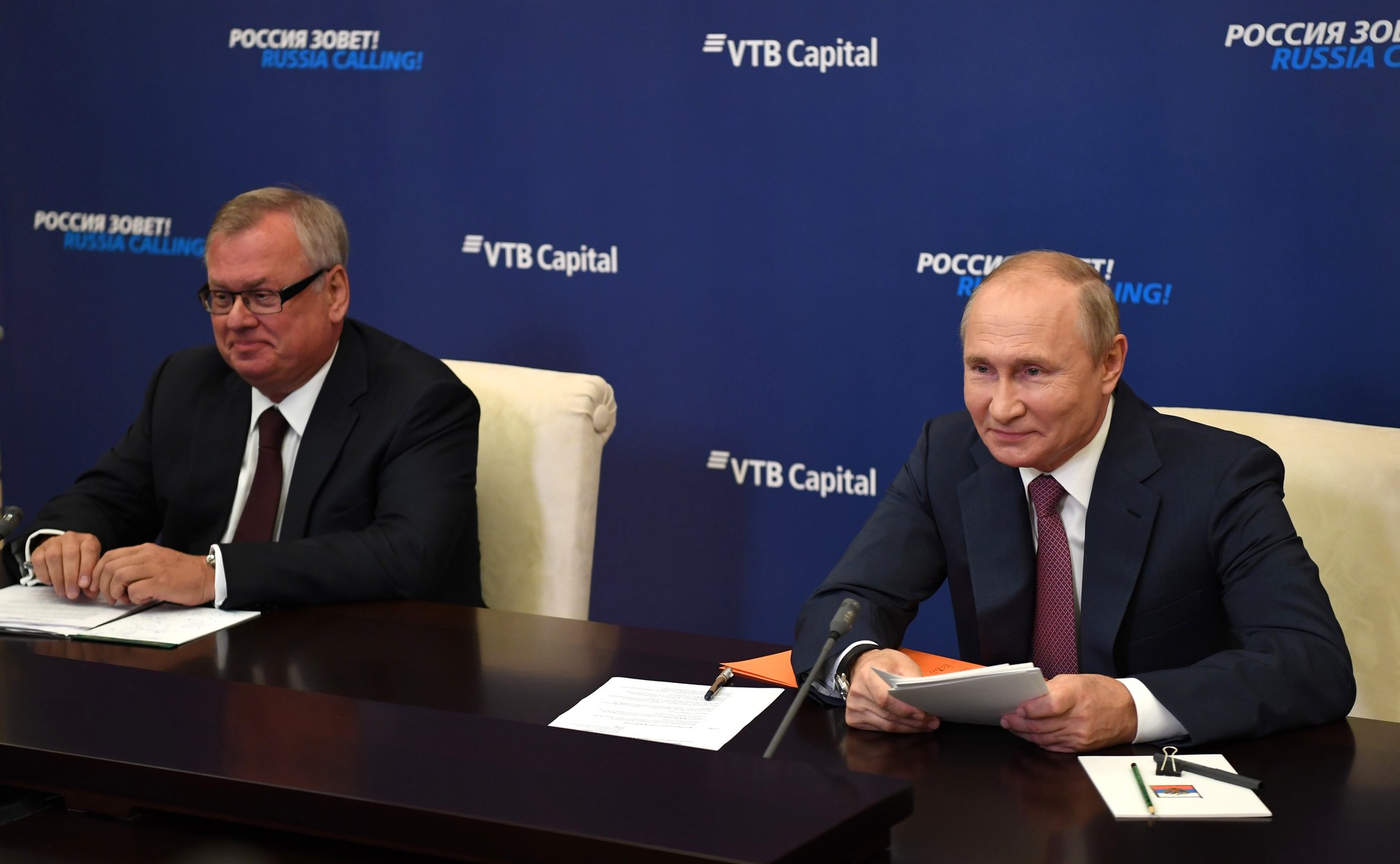 Felix Hofmann: Can you hear me? This is Felix Hofmann calling in from Union Investment in Frankfurt. Hello. Mr President, fiscal and monitory stimuluses have been put in place in Russia like in many countries around the world. How can you ensure that support will benefit those companies, and specifically SMEs, that are directly affected by COVID-19, rather than helping large corporates through, for example, lower interest rates, as seems to be the case in Euroland? Vladimir Putin: Felix, if possible, could you please repeat what support measures did you say are being taken on a broader scale throughout the world? What are these measures? What did you call them? Felix Hofmann: Okay, let me repeat the question, please. Fiscal and monitory stimuluses have been put in place in Russia like in many countries around the world. How can you ensure that support will benefit those companies, specifically SMEs that are directly affected by COVID-19, rather than helping large corporates through, for example, lower interest rates, as seems to be the case in Euroland? Vladimir Putin: As for small and medium-size companies, a considerable part of the support measures taken by the Government of the Russian Federation concern these companies. We started our support measures by helping them. True, they were fairly closely related to the requirements for all business representatives, and the main goal here is to preserve jobs and employee income levels. I will not list the support measures. There are many of them and they have all been published. But they include subsidised loans and grants for maintaining the number of jobs and delayed tax payments. Now I am suggesting additional measures for extending the tax holidays. These measures also include limiting excessive pressure from administrative bodies, and I have also proposed extending the term for cancelling inspections for a fairly long period, for the next year. So this was a whole package, a large package of support measures that are primarily meant for small and medium-size companies. Our support measures for large companies, primarily in the processing industry, were announced only afterwards, when we took the second step. We intend to continue doing this in the future. We will target these measures and will be very attentive to this support. We see that generally, as I have said, we are acting effectively, but at the same time we know that these support measures do not reach every company for many reasons. The Government is thinking about this and working on further steps in this area under my instructions. We will have to see how the situation develops. We are perfectly aware of the fact that today businesses in the food services and other services continue to be in a fairly complicated situation. We will certainly respond to this, just as we did to the situation in large companies, for that matter. Small businesses, however, are definitely in the spotlight providing employment to about 20 million people, which is a big number. Our plans indicate that at least 25 million people will be employed in this sector several years from now. Of course, to get there and to achieve these numbers, we must be goal-oriented. We will continue to do this. I am not talking about the package of support measures that was implemented before the pandemic. That will continue to be implemented, and we will only step up these efforts. Andrei Kostin: Through the prism of banking, we can see that these government measures were directed at and focused on small and medium-sized businesses. Large companies negotiated terms with the banks, etc. The state primarily took care of medium and small-sized businesses, and I think this is why many companies have survived and are developing. Vladimir Putin: Mr Kostin mentioned the role of banks and not accidentally. Indeed, it was quite significant. The bankers were unhappy with what we did during the first phase saying that we used most of the measures to support small and medium-sized businesses and shifted them onto the shoulders of the banking system, meaning deferred payments on loans and other tools that we used. As we can see now, these decisions were nevertheless justified, and the banking sector was not hurt. It retained its clients when it allowed delayed payments on the loans taken out earlier by small and medium-sized businesses, and retained, I will say it again, a significant number of its clients. Andrei Kostin: We have never been disgruntled with the President, maybe with someone else, like the officials. Vladimir Putin: Okay. In any case, I am well aware of that. But it seems to me that it was nevertheless a justified decision, and, to reiterate, it did not hurt the banking sector, but supported the SMEs. Andrei Kostin: Colleagues, let’s move on. Who’s next? Go ahead, please. Damien Buchet: Good afternoon, Mr President. My name is Damien Buchet. I am Chief Investment Officer at Finisterre Capital in London. Mr President, Russia has been extremely fast and efficient in developing and producing a vaccine against COVID-19. Now, there seems to be a second wave happening for the pandemic, and it is starting to have a similar impact in Russia as in quite a few other countries. So my question is two-fold: when do you expect to see a broad distribution of the vaccine against COVID-19, to provide a convincing protection for the Russian people? Also, you have had significant expressions of interest from the export market for this vaccine. Could you tell us which countries are likely to be the first recipients? Thank you very much. Vladimir Putin: Indeed, our specialists, researchers have been on the road of creating these vaccines very actively, and I would say, with great efficiency. It shows that our scientific schools, established back in the USSR, have been maintained and continue to advance. We can only be happy that we managed to keep these teams, their developments and experience, and that they are moving forward. We are very grateful to the Gamaleya Institute and the Novosibirsk-based Vektor Centre. These are really good products. The key issue is that they must be safe and effective, and both requirements have been met in these cases – in the case of Sputnik V and Vektor’s vaccine. A third vaccine is coming soon, too. There is only one issue to resolve now – the necessary production volumes. There are certain problems here related to the availability or lack of the necessary equipment, the hardware as they say, to carry out mass production. In this connection I would like to say two things. First and foremost, we will have to provide vaccination for our people, citizens of the Russian Federation first, protect their health against this dangerous virus. This is number one. Second. We will not refuse to work in foreign markets; we will be happy to work with others and we are already doing this. You are obviously aware, and I also mentioned it, that analysts have estimated this market at around $100 billion a year. We are ready to take the following approach here: we are prepared to provide the sale of intellectual property, and most importantly, we are ready to produce this vaccine, or these vaccines, at the production facilities of our foreign partners, they have the required equipment. I would like to stress this – without compromising vaccinations in Russia, because we have yet to acquire or produce this equipment – we are ready to work with our foreign partners. I would like to recall that we are generally ready to work with our colleagues in science more closely than before. We know that many European countries have concluded contracts on vaccines from the UK. Unfortunately, our colleagues are having some troubles. They are using a vaccine based on chimpanzee adenovirus whereas our specialists at the Gamaleya Institute have a vaccine based on the human adenovirus. It is a “booster,” as the researchers call it, to deliver the necessary components to human cells. It works effectively, thank God, without fail. We have not had a single serious failure in this area. The Gamaleya Institute vaccine and the Vektor vaccine are working effectively. The question is the launch of full-scale production. All the regions have received the vaccine. I hope we will be able to start mass vaccination by the year’s end. Our first partner to get this vaccine, as you must have heard, is Belarus who we are working with within the framework of the Union State. As far as I know, work on the vaccine there is making progress. Andrei Kostin: Thank you. Colleagues, let us proceed. Who would like to go ahead? Please. Marcin Wiszniewski: Thank you very much for this opportunity. My name is Marcin Wiszniewski with the fund Bluecrest Capital, based in London. My question is about the monetary policy and institutional setup of monetary policy in Russia. The economic emergency that COVID-19 created in the world has pushed the economic policy-making to its limits. A lot of global central banks have adopted a much more aggressive or a more proactive role in part of the policy response. As you know, a number of central banks have reduced their interest rates to zero or even negative, have engaged in the direct purchases of government bonds, or in some cases even corporate bonds directly in the market. The Federal Reserve in the United States has even officially changed or amended its inflation targeting regime into an average inflation targeting regime signaling that they would in the future tolerate higher inflation to support economic recovery. In the meantime, the Central Bank of Russia has continued very conservative, traditional policy-making. It has reduced rates somewhat, however, given the persistent track record now of inflation below target since mid-2017, despite very-very large currency volatility and economic shocks, there is perhaps space for the Central Bank to engage a little bit more actively to support growth and recovery. So I was wondering, do you believe, in the current environment, is there room and space for the Central Bank of Russia to become a little bit more proactive today? Do you think there is room to engage in a more unconventional monetary policy, or even to use a little bit more space within the conventional policy that they currently have? Vladimir Putin: I am convinced that many of your colleagues in Russia have not only listened to your question attentively but also applauded it inwardly, because in this country, as probably in other countries as well, there is a running discussion on these matters. As for unconventional regulation methods, you know, we treat all unconventional forms, including unconventional marriages, with a certain caution, if with understanding. I am saying “with understanding” and want you to take note of this word, too. With understanding, but cautiously. Why? Because as the head of state I must deal with demographic problems, while unconventional marriages, as is common knowledge, do not produce children. But unconventional regulation methods might be of use, in certain cases, in the sphere that you have just mentioned. But it is an open question whether they are suited for the Russian economy and at this juncture. We are following closely the developments in some countries – what measures they are taking and to what extent these measures are effective. In fact, many central banks are purchasing government bonds. I was told not so long ago that the Federal Reserve, for example, was even purchasing debt securities of certain major US companies. We should check whether this is so or not. But, as we see it, this is not the main function of a financial market regulator, nor the main function of the Central Bank of the Russian Federation. What is this leading to? First, this is in demand where there is a clear dearth of development resources. But what is this leading to? Chile, for example, or Poland, our neighbour, are known to use these tools. So far, we see no negative consequences, this is true, and we monitor this closely. But the budget deficit in Poland, for example, if my memory serves me right, is nearly 10 percent, while ours is half of that. Next year, it will be halved again, to 2.4 percent. Yes, the deficit will amount to 2.4 [percent]. But what does this mean in practical terms? The Central Bank is purchasing government bonds, but this is an emission, we understand that this is just an emission. What is it leading to? To an increase in the money supply and this may lead to inflation growth. We must be quite wary of this. We have, in fact, target indicators of inflation at the level of some 4 percent, but a danger of this kind, at least for our country, does exist. Inflation growth means price growth. But the government has to live up to its social obligations. What does this mean? This means that the budget deficit will continue to grow. All right, Europe has a seemingly stern but actually kind auntie to whom you can always turn for help. You understand whom I mean – the Federal Republic [of Germany]. But we have no one to go to with hat in hand. That is what makes all the difference. This is why we must keep to the rules that have enabled us to maintain a sound macroeconomic situation in this country over the past years – precisely in order to ensure that our partners, including private investors, both current and prospective, keep faith in the Russian economy and the fundamental framework of sound development of the Russian economy. We will act and devise our policy in this sphere based on this premise. I am not ruling anything out, but at this moment we do not have any need of this sort. Andrei Kostin: Thank you. Next question, colleagues. Joaquim Nogueira: Mr President, I am Joaquim Nogueira from GAM Asset Management. We are a Swiss-based asset management firm. I am based in London with my team. Since the beginning of your presidency, you have shown a commitment towards a market economy, an open economy. An example would be the privatisation programme. We participated in the Sovcomflot privatisation. And my question goes about that precisely: which sectors would you open further to private investment? And which sectors do you feel more protective about? Which sectors do you feel should remain, and which industries should remain in the hands of the state? Vladimir Putin: As I understand, you took part in the Sovcomflot IPO. I want to thank you for that. It is true, as I said, we attracted 42 billion, and I want to draw the attention of our audience to the fact that this money will not be used to pay dividends or other noble but not necessary goals in this case. Paying dividends is very important for improving a company’s capitalisation, but in this case, all this money will be used for the construction of ships of various kinds, for creating work for our enterprises and thus for expanding the capabilities of the Russian carrier. Sovcomflot was a 100 percent state-owned company, and now the state’s share has decreased. The government retains control over the enterprise, but the trend has been set. In the near future, next year, we plan that 180–186 stock companies with state participation and approximately 86 unitary enterprises will take part in the privatization. And another 1,300, I think, various economic entities that belong to the state will also take part in the privatisation process. At the same time, I want to emphasise that there are at least two factors that we take into account and that lie at the root of all privatisation processes. First, we assume that any privatisation deal must improve the enterprise’s efficiency, create new jobs, new investments and technologies. This is the most important thing. And, finally, we cannot forget about the market conditions in which privatisation deals are made. That is, they must be fiscally profitable, bring some profit to the treasury. But again, I want to reiterate, I named an approximate number of enterprises of various types and from various sectors, and there are no restrictions in these terms. There are no restrictions made by Russian law for foreign investors. As you know, in some nationwide projects, permission is required from a relevant government commission, but there are no prohibitions. And I hope that our partners will appreciate that and we will be working together, including as part of the privatisation process. Andrei Kostin: Thank you. Mr President, we have another very good partner and investor. Yekaterina Ilyuchenko represents Union Investment, a branch of the Bank DZ, the second largest bank in Germany. Due to certain reasons she was not able to be here today to ask her question. She sent it online and asked for it to be read. I will read it, there are even two questions. “Every crisis unites people. The number of people with an income lower than the minimum monthly wage has not decreased. What can break this trend in the medium term?” What can stop a rise in the number of people with incomes lower than the minimum monthly wage? And the second question I related to the efficiency of public services amid the growing digitalisation. “You have repeatedly emphasised the need to introduce artificial intelligence. On the one hand, it will improve the efficiency and speed of problem analysis. On the other hand, it can prompt information abuse. In terms of personal data protection, will Russia follow the example of China or Europe in terms of regulation? Vladimir Putin: As for the first question, combating poverty. This is a very pressing and extremely important issue for each country of the world, including Russia. Against the backdrop of the pandemic, I want to note – not to prove that we are no worse than others, but objectively – during the pandemic, the number of people below the poverty line increases in almost all countries. Unfortunately, Russia is no exception. These numbers are well-known, but I will mention them once again: there were over 40 million people below the poverty line in Russia in 2000, and since then their number has been decreasing. In 2015, there was, unfortunately, an increase of the number of people with low incomes in Russia. Then it began going down again. As compared to the previous years starting with 2000, it has fallen by over two times. But it does not mean we are happy with this result. Of course not. You have yourself mentioned the link between the subsistence minimum and the minimum monthly wage. We have amended the Constitution of the Russian Federation. The minimum monthly wage cannot be lower than the subsistence minimum. I am proceeding from the assumption that the Government will unconditionally ensure this constitutional requirement – a requirement enshrined in the Fundamental Law. We are fine-tuning a number of other tools to support the people who need this support; we are lending our helping hand to those badly in need. The second measure is certainly making various tools proposed by the Government to help people who have found themselves in a difficult situation, more targeted. We are talking about the pandemic period. I have spoken about this and I would like to reiterate this. Who are the intended recipients of a large part of the tools that have been proposed, the support measures? Families with children. There is an entire range. I will not repeat anything now, the format of our discussion does not make it possible to go into detail, but all of this is common knowledge and available from open sources. This includes support for families with children from birth to three years of age, from three to seven years, and we have introduced support for families with children aged up to 16 years and paid these families a lump sum of 10,000 rubles on two occasions. I am not even mentioning the maternity capital that now covers all families upon the arrival of their first child; it is being regularly indexed to the rate of inflation. In general, these are all tools to support the people who need a helping hand from the Government. As for the jobless, we have taken the necessary steps in this direction as well, including by increasing the unemployment allowance. We are using the so-called social contracts on a wider scale that help people to acquire new skills, another profession, and find a job in a relevant way. Social contracts enable people to take part in developing their cities, towns, and so on, and perform quite needed, if not perhaps highly skilled, work with secure funding. We will continue to encourage self-employment, and so on. There is an entire range of measures that we are using today, and we will continue to do this. But, of course, the general method and way to solve the problem is by changing the structure of the Russian economy and creating new, well-paid jobs. And at this point, we are gradually transiting to another topic that you have broached, namely digitalisation. Investment, private investment in the first place, structural changes based on new digital platforms, digitalisation of the economy and the life of the country and the state in general are, certainly, a very important area. We are not going to follow any established pattern here. You asked if we want to follow the Chinese pattern of data protection, or the European one. We will have a Russian pattern. But protection of personal data is extremely important. It is a human rights issue. People have the right to protect themselves and their families from the abuse of personal data. We will proceed very carefully to make sure this field of activity is not frozen and provides for the development of the social aspects of the country’s development, healthcare, the economy and all areas of life. But at the same time, people need to feel protected. I will not talk about any final decisions right now. We are thinking about it. Of course, we have no intention to take any prohibitive measures that would destroy the entire idea. Andrei Kostin: Mr President, interestingly, Yekaterina asked a question about personal data protection specifically in the context of public services. But there is a tremendous amount of information processed by private companies as well. A recent public opinion poll in America has shown that only 14 percent of Facebook users believe that this company is capable of respecting their privacy. I can give you a personal example. Recently I was at the gym. I stepped on a treadmill and it said: “Choose a programme.” I pressed a button. The treadmill asked for my full name, date of birth and email. I was surprised that a treadmill would like to know so much about me and switched to a cycling machine which was, apparently, an older model and did not require anything. So I pressed ‘start’ and got going. But in general, the amount of information that more and more private companies are demanding from us when they provide their services is enormous. Can the state interfere with this process and regulate the amount of information and its use by private entities providing their non-public services? Vladimir Putin: This is exactly what I have just said. This is exactly our goal and I think we will be able to find an adequate and balanced solution. I mean our technological capabilities. You stepped on a treadmill and the machine requested a set of data from you which prompted questions and certain concerns. Andrei Kostin: I did not really feel like running anymore. Vladimir Putin: Yes, you do not want to run anymore. But I can imagine that in addition to your smart phone, you could have capabilities in your pocket that would satisfy the demands of those who want to know something about you while at the same time protecting your own personal data. We should think about this, of course. We need to cooperate with our most advanced companies which, by the way, are operating very efficiently not only in Russia but on international markets as well, including banking and protection of people’s bank data. You have extensive first-hand knowledge of this and these companies. I think we can find the necessary balance of interests on this path. Andrei Kostin: Did your treadmill ever ask your name? Vladimir Putin: I exercise regularly. I am used to asking questions myself rather than answering them. Andrei Kostin: Sounds right. Colleagues, let’s go on. Who is next? The source of information - http://en.kremlin.ru/events/president/news/64296
__________________
Where should they dig the Very Deep Pit? Piglet said that the best place would be somewhere where a Heffalump was, just before he fell into it, only about a foot farther on. (c) Alan Alexander Miln |
|
|
#142 |
|
Senior Member
|
Russia Calling! Investment Forum - PART II
Vladimir Putin addressed the plenary session of the 12th VTB Capital Russia Calling! Investment Forum. October 29, 2020 - 16:20 - Novo-Ogaryovo, Moscow Region 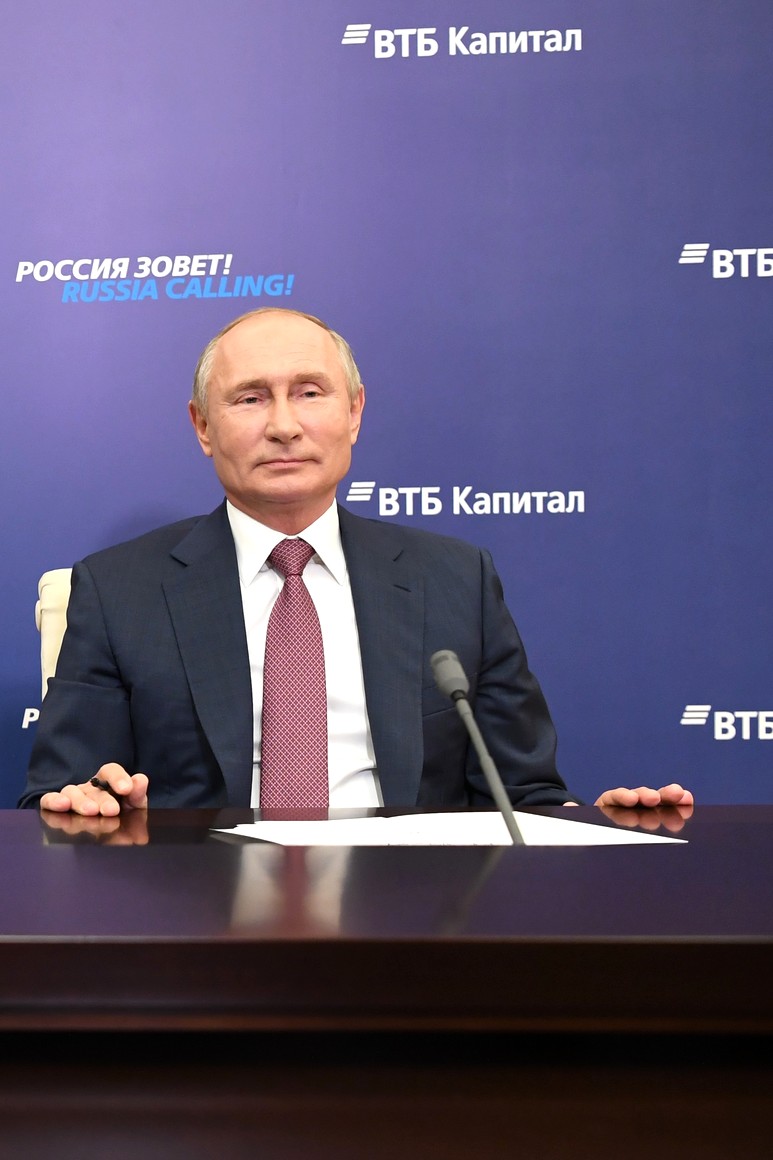 Igor Tishin: Good afternoon. Igor Tishin, Harding Loevner investment company, New York. Mr President, you have often said that the adoption of digital technologies, artificial intelligence and innovations in biology are of primary importance for the future of the Russian economy. In this context I would like to ask which role it is envisioned that small businesses and private companies will play in this development? And is the Government going to develop measures to protect smaller players and start-ups against the competitive pressure from state-owned giants, such as Sberbank and Rostec? Thank you. Vladimir Putin: It seems to me that I have partially answered this question when I was responding to previous ones. Nevertheless, I am ready to get back to it once again. We believe that the small and medium-sized business segment, above all in the high-tech area, is extremely important to us. However I would like us to have little difference in this area from what is happening in other economies, specifically I would like our major companies to generate the need for and establishment of an entire cluster of such start-ups around them consisting of small and medium-sized businesses. All the more so that we have many and enough such opportunities, especially in the intellectual field. It seems to me that another thing is more important to us: it is more important to create conditions in which the Russian economy would generate the need for the products of such activity – this is what is important. The second component of this process is, of course, effective antitrust legislation and practice in the application of existing regulations. It seems to me that today this sphere is regulated well enough, and both Sberbank and Rostec have, to my mind, the right attitude and are operating accordingly. Despite their size and ample opportunities, they are still trying to employ private entities. In fact, Sberbank wants to be not just a bank, but an entire new system, although the requirements imposed on it as a banking institution are still in place, I want to underscore this too, I want the bank’s customers to be aware of this. Banking requirements apply to it in full. Of course, when fresh opportunities arise and new avenues of activity open up, this calls for government supervision, in this particular case, the supervision of the Central Bank over such activities to minimise possible risks during the implementation of projects. We are aware of this; we know about this, but we do not see any additional risks so far. But the Central Bank is considering ways to protect the customers’ interests and the safety of such establishments within the framework of the new digital platforms we are creating. As for Rostec, you know that Rostec attracts private capital and private companies, including high-tech ones, even for its defence projects. There is nothing out of the ordinary about this. What is really unusual though is that in some cases Rostec agrees to cede controlling stakes in companies that are mostly involved in maintaining national defences. This was justified, so far; it was done very accurately, but it was really justified. These companies with private capital, these private investors provide the necessary funds to increase the technological standards of these enterprises and are working quite efficiently. We will continue to act as accurately as we did before. Andrei Kostin: The question from Mr Tishin in New York was probably prompted by the high-profile report published in October by the concerned US House committee, which concluded that the four leading digital platforms – Facebook, Amazon, Apple and Google – abused their controlling powers in the digital infrastructure to fight their rivals, including through unilateral market regulation. The Republicans also believe that the so-called Big Tech are involved in political censorship and do not provide full information. I believe that this problem is being actively discussed in the United States, and this is probably why this question has been put to Russia. Thank you for the answer. I believe that it is clear as well, just as the question was. Colleagues, let us proceed. Next question, please. Vladimir Putin: It should be noted that we understand what these debates are all about. We are also monitoring the situation, and some things look alarming to us as well. But we look at this as unavoidable, as something that was bound to appear in modern conditions. There is absolutely nothing out of the ordinary in this. Of course, we are closely monitoring these discussions and will take action when and if necessary. Andrei Kostin: Very well. Colleagues, let us move on. There is still some time left. Please. Christian Kopf: Good afternoon from Frankfurt in Germany. My name is Christian Kopf, I work for Union Investment. Mr President, it has been 20 years already since you took office and the modest prosperity that Russia has attained over this period remains to be concentrated in the capital. Yet, 60 kilometres, 100 kilometres outside of Moscow, people live right next to the pipelines that transport lucrative gas to the West and they themselves have no access to gas connections to heat their homes. So why has your administration been unable to reduce these regional disparities within Russia and which measures do you believe need to be taken in the medium term to address this issue? Vladimir Putin: I believe that your question is politically charged, but there is nothing bad about this. The quality of living in Russia in 2000 and in 2020 are two widely different things. And the economic development level is completely different, and the level of economic stability differs considerably from what we had in 2000. As I have already mentioned, we had double-digit inflation back then, and it soared as high as 100 percent in some years. The current figure is about 4 percent, and been stable for some time. Our gold and currency reserves and state reserves as a whole stood at $12 billion, while our sovereign debt was somewhere around $136 billion, as far as I recall. We had soaring unemployment. Today we live in a totally different country with a different economy. As I mentioned, our gold and currency reserves stand at $585 billion, and our aggregate debts amount to a half or actually less than a half of this figure, and our sovereign debt is only 3 percent. This is a completely different country and a different economy, and the people’s incomes are different as well. I have mentioned that many people still live below the poverty line in Russia. According to the latest data, there are some 20 million of them, but we had over 42 million in 2000: we have reduced the number by half. I am confident that we will reduce it by half again in the next few years. So the situation is changing, and it has already changed considerably. As for connecting households to gas supply networks, I cannot say that I am satisfied with the current standards, although the system is developing. The current figure is around 70 percent, and it is 85 percent in the Central Federal District. Of course, there is still much to do in some regions. Our gas exports not only ensure the profitability of Gazprom but also create financial conditions… This is very important, and I would like our foreign partners to know about this, and I also would like to remind our citizens of the following. Our gas exports, considering that export prices are much higher than our prices for domestic consumers, also allow us to implement our projects for connecting consumers to gas supply networks. They ensure more than just our competitiveness, or rather additional elements of our economic competitiveness, which does not always please our European partners who try to put a spoke in our wheels, which I regard as absolutely unjustified. Yes, this is our natural competitive advantage. Why do some people think that it should be limited in an unnatural non-market way? I believe that this is wrong, unfair and absolutely contrary to market rules, by the way. But we will continue to implement gas connection projects in the country, without any doubt. Additional instructions on this score have been issued to the Government. I am waiting for some practical proposals. The main thing for us is to coordinate the connection of consumers to major gas pipelines and also to adjust this to the regions’ and municipalities’ ability to extend these pipelines to end consumers, to lay the final kilometre of the gas line. We will be definitely working towards this goal. In addition, it is very important for us to interconnect our western and eastern gas provinces. This is a task for the future, which will allow us to effectively work not only on international markets but also to efficiently implement plans to connect consumers to gas supply networks. This is among our priorities. And we will be certainly working to effectively implement it. Thank you for your question. Andrei Kostin: All right. Thank you. Colleagues, let us go on. Who is next? Please, be more active, let us not waste time. Please. David Reid: Mr President, my name is David Reid, and I work for Wellington Management in London. My question is about oil taxation. The Government has been considering changes in the oil tax regime, with some tax breaks, which were intended to help stimulate investments in marginal fields potentially being changed to the newer, profit-based framework. What are the overall goals of this process? Should we expect the oil companies to bear a higher tax burden, or should any changes to the tax be roughly neutral overall? I also have a second question if there is time to address it. How do you see consolidation in the electricity sector developing? And what will be the role of state companies like Inter RAO in this process? Thank you very much. Vladimir Putin: As for changes in taxation in the energy sphere, oil production in this case, we have implemented them and are not planning anything major in the near future. Yes, indeed, we have new tools, such as the excess-profits tax. What is this linked to in the oil sphere? This is about the need to remove some earlier support and preferential treatment measures that are no longer effective at this moment. Our ultimate goal, in plain language, is to retune the tax system in such a way as to stop keeping alive endlessly worn-out and ineffective depleted old fields and to orientate our companies and their partners towards developing new projects and new regions and working to use advanced equipment and technologies. This is, properly speaking, what it is all about. I am referring to the fields that, let me repeat it, have been worked for quite a while and to viscous and super-viscous oil, etc. Generally, it was not easy to do; I know the Government had a hard time talking with the oil industry people, but, as I see it, a balance, on the whole, has been found. Yes, of course, there are some minor shifts in the excess-profits tax system, the reason being the need to make up for the federal budget’s shortfall in revenue linked to what the Government believes is an unjustifiable income received in the previous couple of years. I do not think that this is something substantial for our companies, at any rate, this is done through dialogue with our leading producing companies. But, let me repeat, we are not planning any substantial, global changes Concerning the possible consolidation of the electrical power assets… What company’s role was mentioned in the second part of the question? Andrei Kostin: Inter RAO. Vladimir Putin: What would I like to say in this connection? The power sector, I think, can be conditionally divided into two parts: power generation and marketing, this is one part. Why? Because this part of the power industry is entirely a market operation and must fully obey market regulation. Part two is power transmission and distribution. What is needed in this area, given the size of this country and its territory – let me remind you that the Russian Federation is still the largest country in the world in terms of territory – is, of course, a certain measure of support from the state, and a certain level of regulation should be reached. Since the first part is about power generation and marketing – and Inter RAO is involved precisely in this business – I see no need for any serious changes. The company operates efficiently and posts good indicators; I know that they have plans to develop their business. The company is engaged not only in power generation, transmission and marketing at home but is rather active on foreign markets. As for transmission and distribution, we have made some changes. I am sure you know about this: we have consolidated the packages of our two leading companies. Of course, generally we should seek to have a situation where unified transmission and distribution rules are effective throughout this country. This should also be achieved by market outreach and market methods, but our objective in this case is to have this so to say justified natural monopoly strengthen its positions.  Andrei Kostin: Thank you. The next question. Saeed Al Marar: Good afternoon, Your Excellency. Firstly, I would like to thank you for this rare opportunity today. With you is Saeed Al Marar from the Abu Dhabi Investment Authority in the UAE. If I may, Your Excellency, I would like to ask the following questions. Do you think the US actions could change the global political landscape? Second: what is your future strategic vision for Russia post-COVID-19 in the context of foreign investment and trade? Thank you. Andrei Kostin: Will the US presidential election affect the situation? Vladimir Putin: In the world? Andrei Kostin: Including for Russia. How will the global landscape change? Vladimir Putin: You know, I do not want to discuss the presidential election in the United States, since no matter what I say, some of our partners will take every possible opportunity to prove what they believe is Russia’s interference in the election process in the United States. Generally speaking, the United States plays an extremely important role in global affairs, and influences developments around the world. The United States is a superpower and an economic behemoth. Of course, this gives it a role in global affairs in one way or another. We do not know what the two teams are planning and how they want to achieve this. We do not have the details. However, it is no secret, as I have already said, that the Democratic Party advocates a more socially-minded approach to a number of domestic and international matters. To an extent, this reminds me of the social democrats in Europe. If the Biden team gets to carry out some of its plans, even if we do not know who these people will be, but we know their mindset, this will require substantial budget spending on healthcare and other social sectors, education, etc. I do not see anything bad about this. I am just thinking out loud about the consequences this may have. This could require additional spending, considering that the United States already has a record-high national debt. Of course, we have to weigh the possible consequences for the global economy. After all, Russia is part of the global economy, so this affects us as well. In any case, we will definitely adapt, since we are all interdependent. I think that I already said quite clearly in my answers to the previous questions that Russia has substantially improved its economic sovereignty over the past years. Still, this interdependence certainly persists. Let me reiterate that I do believe that we will manage this no matter how the situation evolves. What the incumbent President Donald Trump’s team will do, how it will be changed after the elections, what trends will show – we can see them even now. For example, they have mentioned the FRS support of certain sectors of the economy, even large companies, such as buying out their debt. We can see the current FRS rate, which is also influenced by the administration, and this also needs to be kept in mind. We see their tendency to partly transfer production facilities from Asia back to the United States, and the opportunities for doing so. There are definite upsides to this decision, but there are other things that must be considered – I am referring to the cost of goods that will be produced there, and so on. We are analysing the situation very calmly, in a routine way. We will accept any decision of the American people and will work with any administration. I hope that balanced decisions will be made in the future. Whatever they decide, we are fine with it. And by the way, a significant part of our work today is… There have been problems in working with the United States: the current administration introduced new sanctions against Russia 46 times – against our legal entities and economic operators. Forty-six times – this has never ever happened before. But at the same time, bilateral trade grew by 30 percent over the previous year, oddly enough, even despite those restrictions. We have collaborated quite effectively to stabilise energy markets. I know that President Trump – we took part in trilateral negotiations with the King of Saudi Arabia on this score – President Trump was personally and very effectively involved in them and by doing so, he unconditionally supported his oil producers, supported the industry. We have stabilised prices – we managed to do it together. This certainly suggests that wherever we do join forces, we can act quite effectively. And there are areas of activity, including in the economy, which are of common interest for all our countries. As for the United Arab Emirates, we have very good, very positive relations with your country. We have been working effectively with the Crown Prince to stabilise the oil markets and reach investment agreements. I would like to thank you for the confidence you have in your Russian partners and the entire Russian economy. Investment is growing fairly quickly, expanding to ever new areas. On our part, we will make every effort, I would like to assure you, to safeguard the efficiency as well as the reliability of your investments. Andrei Kostin: Thank you. Next question, please. Giancarlo Perasso: Good afternoon, Mr President. My name is Giancarlo Perasso. I am a Lead Economist for PGIM Fixed Income in London. Mr President, the 2035 National Energy Strategy seems to indicate that Russia wants to increase its production and export of oil and gas further in the coming years, especially by exploiting the Arctic regions. This development raises two types of concern in our view. On the economic front, it would increase Russia’s dependence on oil and gas revenues at a time when many importing countries like the European Union and China are setting ambitious targets and policies to reduce their dependence on such fuels. On the environmental side, the production and consumption of these fuels would contribute to the continued increase of permafrost thaw, Arctic wildfires, and other extreme events that are already having a significant impact on Russia’s environment and infrastructure. Do you think that the Energy Strategy should be reviewed so that Russia could become a less oil and gas dependent country and a world leader in tackling climate change? Thank you. Vladimir Putin: Mr Perasso, these are, frankly speaking, predictable and also very important questions, of course. The whole of humanity is discussing them and trying to find the best approaches to the solution of the problems connected with this sphere of activity. The first thing I would like to point out is the following. We are not increasing the dependence of the Russian economy on the oil and gas sector. Quite to the contrary, we are reducing it. There are real figures to prove this, including our budget revenues. Our revenues from the oil and gas sector are decreasing, while revenues from the non-oil and gas sectors are increasing. It is true that our oil and gas revenues are still very large, but still. As I already mentioned, our goal is to use various instruments, including taxes, to restructure our economy and make it more diversified. It is one of our key priorities and one of our main objectives. Overall, I would like to note that we are moving towards it carefully and smoothly, even if a bit slowly. And we will continue doing this. Your colleague has asked me about our innovations in particular in the field of oil and gas production, or more precisely oil. And I replied that our goal was to restructure our taxation system so as to be able to develop new fields and to attract new technologies and innovative solutions. Yes, they imply an opportunity to maintain and, if necessary, increase energy production. This is true. But we are acting based on the forecasts of energy consumption volumes and structure in the next decades made by international companies and analytical centres which all of us respect. We are fully aware that it will be impossible to stop using hydrocarbons altogether in the next decades, unless we can accept a disagreeable loss of competitiveness. This will be impossible to do in the next decade. And you are certainly aware of this. The structure of consumption will change, but it will be changing slowly. In this context, we can also see how the Asia-Pacific market and the Asian market as a whole will develop. We are aware of the structure of consumption in the People’s Republic of China, India and other Asia-Pacific countries. We understand where Europe is headed. Still, we really hope that our companies will not face any non-market restrictions. Our European friends and partners keep talking about their market-driven economic development model, and are really proud of it. I hope that these rules will be universal and apply not only to those operating within the European market, but also their non-EU partners, including Russia, considering that we are the largest energy supplier on the European market, and Europe accounts for over 70 percent of our natural gas exports, as far as I can recall. However, we are increasing supplies to Asia. This is a promising market, including the People’s Republic of China, Japan, India, and other countries in this promising and emerging region. By the way, we redirected some of our exports to Asia not because we did not like something in Europe from a political standpoint. The Asian market is growing, and so is consumption. This is what we see, and what forecasts tell us. We want to be ready when consumption goes up. In this context, it is essential in my opinion that we understand that the structure will change. This is inevitable in the long run, and we must be prepared. First, the Russian energy sector should be among the greenest in the world. In fact, what sources take up a substantial share in our energy mix? Hydro and nuclear power, as well as natural gas, the most eco-friendly, cleanest hydrocarbon. I have already mentioned this, and everyone understands this. Buying electric cars is superb, but where does electricity really come from? Not from the wall socket you plug into, that’s certainly not the case. It comes from power stations. But if these facilities work on coal or fuel oil, this will not make the environment on the planet any better no matter how many electric cars you use, as long as the primary source of energy pollutes the environment. In Russia, we have a large-scale plan to change things for the better. For example, we have a plan for the 300 biggest polluters in Russia to introduce the best available technology before the end of next year in order to substantially curb emissions in 12 cities by as much as 50 percent by 2024. By 2030, this will cover the entire country. Of course, we will move in this direction. We will also work on hydrogen, solar and wind power. Russian companies that have these cutting-edge solutions not only develop these sectors in Russia, but tap international markets and are quite successful at it. We will definitely support them in every possible way. There is no doubt about this. Andrei Kostin: Mr President, being a bank, we can also see that large investments have gone into oil and gas processing in Russia. In the Russian Far East, and also in Europe, by the way. So the balance will also shift from exporting crude oil and gas to oil and gas products. Vladimir Putin: Yes. But our colleague is certainly right. I understand his concern in regard to a significant part of our promising projects being moved to the Arctic region. We are aware of this, and we bear in mind that work in the Arctic must certainly involve compliance with safety standards. The region has a very fragile environment, very fragile nature. We must and will do everything to ensure that the required environmental standards are met. But our production volumes will always be matched to the needs of the world market. Andrei Kostin: May I ask a question? I recently read that 10 years ago, the world’s 10 largest companies in terms of capitalisation included four oil producers and only two digital companies. Now there is only one oil company, Aramco, and six digital giants. In Russia, out of the 10 largest companies by capitalisation, we have eight resource companies, of which five are oil producers, and only one, Yandex, is digital. Do you think this situation will change 10 years from now? Are we going to have more big digital companies? Vladimir Putin: I hope so. Yandex is growing fast. I hope that its partners will not use any non-commercial, non-market instruments in their competition. But I have no doubt that Yandex will continue to grow, and our other companies, such as Mail.Ru, Rostelecom and Sberbank, also have very good prospects. We will do our best to promote their development. Andrei Kostin: Excellent. Thank you. Next question, colleagues. Go ahead. We have been working for quite a long time, but we still have a little time, I want you to be more active. Who’s next? 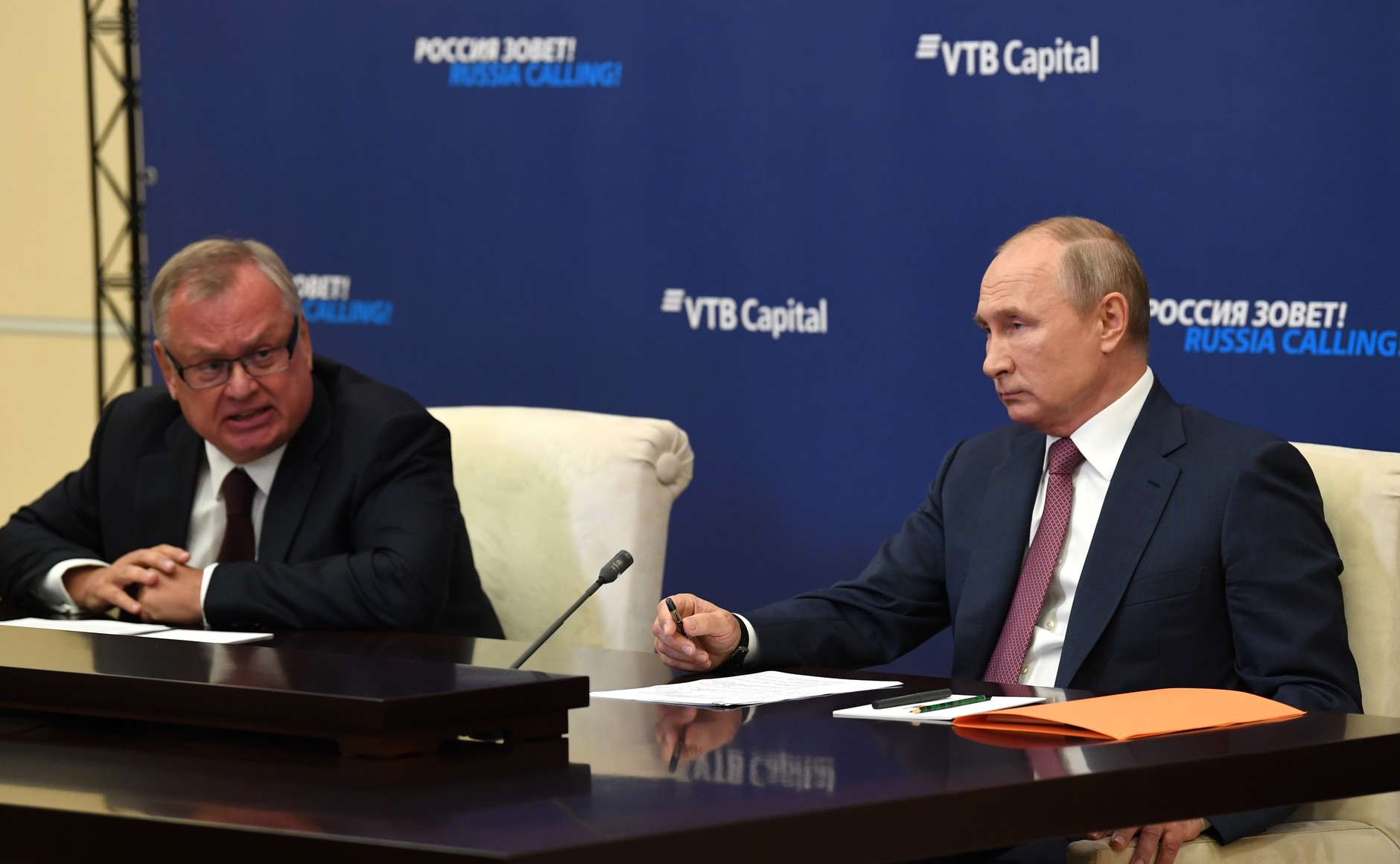 James Rose: (speaks Russian) Mr President, thank you for your time. My name is James Rose and I work for GSA Capital in London. My question is similar to the last one. (Speaks English) The European Parliament recently voted to reduce CO2 emissions by 60 percent by 2030. Does Russia aspire to a similar target? And you mentioned the Arctic. Of course, many companies are responsible for the emissions over the Arctic and other Russian regions, often purely for cost saving rather than production. Could Russia apply regulatory pressure on those companies, or would you plan to even set up new companies rather than transform the current ones? Thank you very much. Vladimir Putin: Create companies to develop Arctic fields? James Rose: No, just the emissions over the Arctic from many companies. Just emissions in general. Vladimir Putin: You know, I have no records that our companies are gas emitters in the Arctic. As for Arctic projects, those that have been implemented or are being implemented now, they rely on the most recent technologies. Take, for example Yamal LNG or Arctic LNG 2 that Russia’s NOVATEK is implementing with its French and Chinese partners. They have nothing of the kind there, no emissions. I was there and I would have seen it. An entire city was built in the Arctic, this much is true. But these are cutting-edge enterprises that comply with all environmental standards, absolutely all of them. Honestly, I do not see any risk there. As for oil companies’ activities, the first steps have just been taken and those were also based on using the most modern technologies. Now, about the European requirements. Europe lives its own life and develops its own rules and standards, which of course, cannot be questioned. Europe is the world's largest market and largest economy; united Europe is one of the largest economies in the world and our largest partner. We have undertaken obligations under the Paris Agreement, I have mentioned this, it is about the reduction of emissions into the atmosphere compared to 1990. Just as we complied with the Kyoto Protocol, we will certainly fulfil our obligations under the Paris Agreement. This is not just about respect for the current trends in the global economy and international affairs, it is because we are interested in this ourselves. I mentioned that before, and our colleagues spoke about permafrost during our discussion. It is true, it is a real challenge for us, we understand that perfectly well, and we will continue to cut emissions. I talked about our plans for the near future, the next one or two years, in relation to the first 300 enterprises, many of which operate in the North, in relation to the improvement of the 12 largest cities where these companies are located. By then, by 2024, by 2030, we will continue to cut emissions all over the country. But, of course, we cannot rely only on the standards developed in the European Union. But again, as for the objectives of our partners, I think they should wait and see how efficiently they are. I see certain difficulties: some countries are abandoning nuclear energy and coal. Gas is the cleanest hydrocarbon; there are no emissions at all. I do not understand why some countries that proclaim environmental friendliness even discuss limiting the use of gas. I cannot explain this by anything other than political reasons. If they truly care about the environment and its preservation, they need to do their best to have international multilateral gas projects implemented, because this is the cleanest fuel and the most efficient in terms of the economy. So I believe that we are maintaining a dialogue despite the current difficulties related to the economy, pandemic, our political differences and controversies. I believe that the real economic interest that ensures the wellbeing of millions of people both in Russia and in Europe and the sensible understanding of mutual interests will find its way like our icebreakers make their way through the ice in today’s Arctic, and we will find a common balanced solution. Andrei Kostin: Mr President, in the 20th century, mankind constantly invented new types of energy and in general progressed from something less efficient to something more efficient, ending up with nuclear power that, at the time, seemed boundless; the potential was huge. Today, in the 21st century, we seem to be going backwards. What do we have? Mostly wind generators and volcanoes in Iceland, and solar energy where there is sunshine. When flying over Europe in a helicopter, you feel like Don Quixote will pop up because there are windmills all over the place – sorry, not mills but wind stations. Is this the only way forward? There are perhaps other opportunities, more efficient ones, because it is only very rich people who can afford this type of power generation in our day and age. Mankind should probably continue to seek new types of energy aside from these renewable sources that we have known for centuries. Vladimir Putin: Thank you for the angle shot you sent me. But, to tell the truth, I do not agree with you on all counts. I am more inclined, no matter how odd it may sound, to take the side… Andrei Kostin: …Of the Greens? Vladimir Putin: Yes, the side of some of our European partners. Mr Belousov, the First Deputy Prime Minister, mentioned our “green” bonds. This is one of the tools to support the companies operating in the power sector. Andrei Kostin: We will purchase the bonds. Vladimir Putin: But you said the sun was effective where it is available. It is available everywhere. One speaker was just talking about our operations in the Arctic. I also mentioned this. For me, it was strange to hear that solar-cell array helped heat some of our facilities in the Arctic, for example, pipeline systems and so on. There is enough sun to solve this problem even in the Arctic. You do not have to blow smoke into the sky and additionally burden the environment with tons of emissions. This, incidentally, is also the answer to a question that was just asked. This is happening in our country, and we are doing it now. Gas or oil is produced, but pipeline systems are heated with solar arrays. We are keeping all this in mind and are working in all these areas. Andrei Kostin: Excellent. Let's go on. Who’s next, colleagues? Go ahead please. Who still has enough “energy,” go on, please. Rollo Roscow: Thank you very much for taking my question. This is Rollo Roscow from Schroders Investment Management in London. I think a large portion of my question has already been covered in the questions that Giancarlo and James have posed. Still staying on the renewables theme, I would just like to ask a question as to which sector do you think should be investing in renewables? Should that be dependent on the oil and gas sector to start investing in some of the transitions in terms of solar or wind going forward? Or do you think it should be the utilities sector that bears the additional investment risk? And at what point do you think they should start thinking about investing there more heavily despite the fact that there is still a strong demand tailwind for oil and gas going forward? Thank you. Vladimir Putin: Please excuse me, I don’t want to repeat myself, but I think I just talked about this, directly. We will work in all these areas: hydrogen energy, wind energy, and solar arrays. Some of our companies operate abroad, and acquire assets, in Switzerland, for example, and develop production here. I just said that we are using solar energy in the Arctic, and we will continue working with this. We have plans to reduce emissions domestically, and we will use tools like green bonds and more, an entire range of approaches. As for where to invest, I would say each investor makes decisions based on the current situation, on the prospects and potential profit margin of a project as part of an investment project. I talked about the RDIF, the Russian Direct Investment Fund. I will say (a colleague from the United Arab Emirates represents one of the funds, a leading state fund here, so he can confirm) our Direct Investment Fund ensures a much higher profit margin from investing in Russia (I will not cite the exact figures now to avoid a mistake), but it is much higher than in other regions of the world. That is the explanation. If anyone wishes to invest in certain types of energy, we will only welcome it. But as far as the hydrocarbon sector is concerned, well here I would say, we keep the door open to everyone; it is wide open. Many global companies are working with us, everyone. And American companies, unfortunately, the US administration is now restricting their work for political reasons, and to their detriment, I must say. But this is not our call. In any case, we have always been willing to work with the Americans, and with the Europeans, and with our friends from Asia. Japan works with us, China, as I said, France, too, and companies from Great Britain as well. And I hope they will continue to work here. As for specific projects to invest in, it is up to them to decide. Our task is to ensure that their investments are protected and that their money is used efficiently. More large projects are being planned in the Arctic, in Siberia, in Eastern Siberia. I am sure they will be of interest to our partners. Andrei Kostin: Okay, thank you. Next question, please. Colleagues, please, where are you from? Europe, America, Asia? Who’s next? Please. Arif Joshi: Mr President, thank you for taking my call. My name is Arif Joshi, I am with Lazard Asset Management based in New York. And I wanted to follow-up with a comment that you had made earlier. The market seems to agree with you that in the event on Tuesday of a Joe Biden victory, you are likely to get significant fiscal spending in the United States, a significant fiscal data set next year, and that likely resolves in a depreciation of the US dollar versus many other currency pairs. Given that it has been a very difficult period of time over the past decade for non-dollar currencies, this may offer a new opportunity over the next couple of years for currency appreciation. So I am curious, how would currency appreciation change the way that you overall manage the Russian economy? Does it accelerate certain reforms that you have been targeting in the future? Vladimir Putin: As for new sectors in the Russian economy, as I said at the beginning of our discussion, I really hope (and we are working on this) that the digital economy, and digital development in a broader sense of the term, will be a new sector. We will be adjusting our fiscal regulation to make sure that our partners – both Russian investors and our foreign friends – can benefit from working in the sectors related to new technology and new types of production. Regarding what happens to the dollar if Mr Biden wins, it is hard to predict right now because, as I said, very successful, from a social standpoint, projects and programmes may be carried out, but how it will affect the dollar in terms of maintaining the stability of the budget system and in terms of the economy in general, it is very hard to say right now. Considering the United States’ record level of debt, we do not know yet what policy the Federal Reserve System will pursue. We could predict what happens if Trump’s team remains in power because we know what he has been doing for the past four years and in general, this course is familiar and easier to predict. Any dollar-related changes (and the dollar is not only the national currency of the world’s biggest economy, but the world’s reserve currency) will, without doubt, affect the entire global economy, all countries – and, obviously, us as well. This is what we are talking about. Therefore, as I said, we are trying to strengthen Russia’s economic sovereignty. And overall, thanks to a sensible macroeconomic policy, we have been successful. We have managed to make our national economy more or less independent from price fluctuations on global exchanges, from commodity rates, oil and gas prices. We are maintaining stability when it comes to fluctuations of our national currency. The Central Bank is carefully taking measures to keep the national currency rate stable. In my opinion, it is the predictable stability of the currency rate that is important rather than the rate itself. The Central Bank and the Government have been able to achieve that as well. This is crucial. We hope that, despite possible volatility in the United States, we will be able to maintain these positions domestically. Andrei Kostin: Thank you. Next question, please. Colleagues, go ahead. Vladimir Putin: We should probably be wrapping it up. I will take a couple more questions. Andrei Kostin: Okay, Mr President. Tieu-Bich Nguyen: Good afternoon, Mr President. My name is Tieu-Bich Nguyen. I am from Taiping Asset Management and based in Hong Kong. You have made some comments regarding the energy markets in Asia. This relates to my question. In relation to gas production, Russia has pivoted to Asia. Would you be able to discuss Russia’s longer-term strategy relating to this pivot to the Asia region? Thank you very much. Vladimir Putin: You know, it is not that we made a bet on the Asian market, no. We operate based on current realities. What are these realities? The first reality is that the Asian markets are growing fast. Despite the pandemic and related difficulties in the global economy, growth in Asia continues. I noted that we have a decline in Russia, but it is less than in other developed economies. We will have a drop of about 3.9 percent in GDP at year-end, whereas other countries will have much more. Other incoming variables are pretty serious as well. According to various estimates, the economy will fall about 4, 3.9 to 4-plus percent. The Government has come up with its number, the Central Bank has provided a different estimate, but the decline is much deeper in other countries and the developed economies. The growth numbers may not be as good as China would want, but it is still growth, and significant growth at that. In this sense, we must admit that China remains a driver behind the global economy. The volume of the Chinese economy in terms of purchasing power parity is now larger than the volume of the US economy. Of course, per capita (GDP) in the United States is much higher, but the volume of the Chinese economy is still significant and impressive. In our country, per capita (GDP) decline was much less as well. However, in terms of trade volume, if we compare Asia and Europe, Asia came out on top as our trade partner. These are the realities, and we do not change our priorities deliberately, especially for political reasons. We just look at the realities, assess the potential and try to be ready for any ensuing changes. Of course, these changes and these plans of ours undoubtedly benefit from our very good, partner-like and often friendly relations with our friends in Asia, such as the People's Republic of China, India and our other partners in Asia. This is a very considerate, positive, and often even friendly political atmosphere that reaches the level of alliance. Of course, it also helps promote trust, which underlies our relations, and economic ties. This is another advantage to the objective factors that we observe in the global economy, in this case, as it applies to Asia. I hope all of our plans will be implemented in cooperation with our partners. 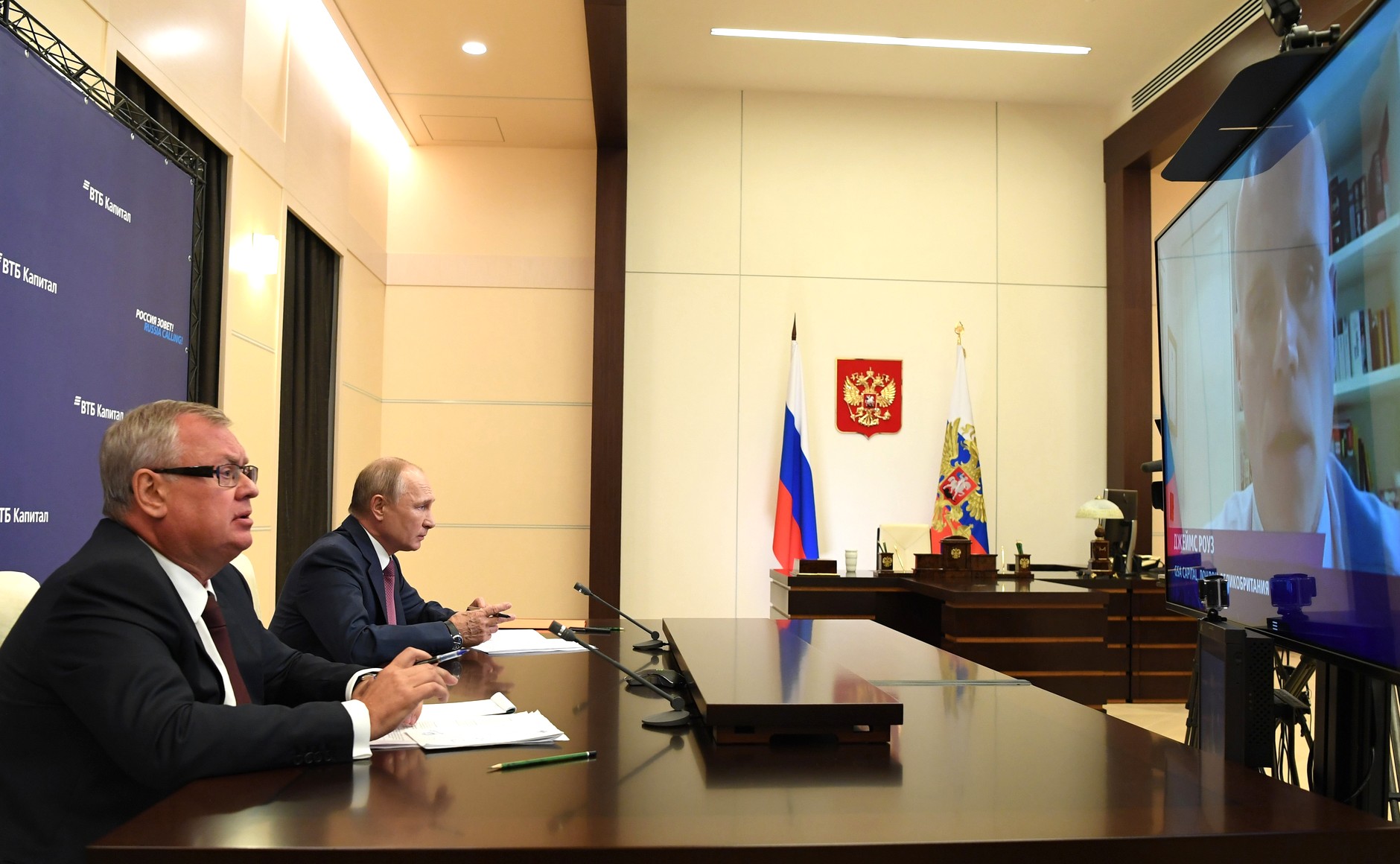 Andrei Kostin: Colleagues, anyone? Two more questions. Please. Who is next? Who has not asked a question yet? Jacob Grappengiesser: Good afternoon, Mr President. Jacob Grappengiesser, East Capital. I am Swedish, but I have lived in Moscow for many years now. I have two questions. The first one is about Belarus. Do you see a possibility of deeper political integration between Russia and Belarus and the creation of a Union State? Also, do you think a scenario of new presidential election in Belarus is possible? My second question is about Nagorno-Karabakh. What, do you think, may be the lasting solution to the Nagorno-Karabakh conflict which would suit all three parties, that is, Armenia, Azerbaijan and the Republic of Artsakh? Vladimir Putin: Would you please repeat the second part of your question about Nagorno-Karabakh? Jacob Grappengiesser: What is the lasting solution to the conflict that would suit all three parties? Vladimir Putin: I see. Regarding your first question about building the Union State, the Treaty on the Creation of the Union State was signed in December 1999, if memory serves, and, to a large extent, has been implemented. Some provisions of the Union Treaty have not yet been implemented, such as creating a Union Parliament and holding an election to this representative authority by a direct and secret ballot by the people of Belarus and Russia, and the designation of common borders in a joint document. In the sphere of economy, our agenda included creating a single issuance centre, a single currency, and so on. This has not been done. In the social sphere, though, we have come a fairly long way together, and, I think, this has a rather positive effect on our countries’ development and the social sphere of Russia and Belarus. This also applies to movement, the solution to social issues, social guarantees and the labour market. There are many specific issues, the implementation of which will benefit the citizens of both our states. With regard to the political issues, which I also mentioned earlier, of course, and I agree with Alexander Lukashenko in this regard, we must operate based on current developments. To a large extent, this lies with the Belarusian leadership itself, but there is nothing new here, and nothing that would have come about as a result of the most recent internal political events in Belarus. To reiterate, this process began in late 1999. Everything is stipulated by the Treaty on the Creation of the Union State, and we do not think it needs any additions. The question is whether we should implement certain elements of this plan, which have been in existence for two decades now, or refrain from certain things for a while. In any case, we are not forcing anything and will operate based on real needs, I emphasise needs, and the expedience of implementing particular steps. Most importantly, there is no doubt that this must be done. If something will ever be done, it will only be done on a voluntary basis on our part and on the part of our Belarusian friends and partners, based on how both sides assess their national interests in a particular sphere, be it politics or the economy. The possibility of holding a presidential election in Belarus should be determined by the Belarusian people and its leaders. We stay away from these matters. I would like to note that President Alexander Lukashenko mentioned it publicly several times. Moreover, he took concrete steps to implement what he said, namely about the possibility of amending the current Constitution or adopting a new Constitution and, as he himself said, holding parliamentary and presidential elections on this basis. I think this is based on the realities and the assessment of the internal political situation. This is a significant step on his part towards his political opponents. Everyone, I want to emphasise this, all political forces would do the right thing by getting involved in this process and not indiscriminately accusing President Lukashenko of wanting to pull a fast one, but rather joining in this effort and influencing the decisions that may be taken during this process. This covers the first part. Regarding Nagorno-Karabakh, I talked about this, and I won’t be able to add anything new here, because the conflict began with ethnic clashes, first in the town of Sumgait, Azerbaijan and then in Nagorno-Karabakh itself. The Soviet leadership at the time did not take any effective measures to ensure the safety of the people. The Armenians took up arms and did it themselves. For better or worse these negative events, based on ethnic differences, triggered their actions. This led to Armenia taking control of Nagorno-Karabakh and seven other Azerbaijani regions. Is that a good thing or not? What is Azerbaijan saying? It is saying that these seven regions have nothing to do with the ethnic conflict or Armenia, as these are native Azerbaijani territories. And Azerbaijan says, “We have the right to return these territories and sort out things with Nagorno-Karabakh.” You know, everyone has their own truth. There are no easy solutions here; this is a complex knot. Initially, we proceeded under the premise that this issue is about (our position is absolutely open) transferring five (plus two) regions to Azerbaijan and putting in place certain regulations for Karabakh, certain interaction with Armenia, and so on. What would a lasting settlement look like, you asked. Now I will come close to the meaning of your question. How do we strike a balance of interests that will suit the Azerbaijani people, whom we treat with unwavering respect, while taking into account the interests of the Armenian people and the state of Armenia so that the people feel safe, but at the same time put opportunities for effective regional development in place, including unblocking and expanding the infrastructural opportunities that would form the basis for effective development of both Azerbaijan and Armenia, and Nagorno-Karabakh as well, where people live quite modestly. This would open up opportunities, including for many participants of our today’s discussion, to take part in developing these territories, to invest, and there are things to invest in there. People in both countries are very efficient and skilled. This 30 year-long conflict precludes the effective development of both conflicting parties. The first phase must include stopping the hostilities and the loss of life. The parties must sit down at the negotiating table and find a consensus and a balance of interests. This can effectively be done based on the proposals formulated by the Minsk Group and its co-chairs – Russia, the United States and France, with the participation of other Minsk Group members, including Turkey and a number of European states. This can be done. Andrei Kostin: Thank you. Colleagues, let's wrap it up. Who wants to ask the last question? Who has a question? If any. Vladimir Putin: Is there anything else? Andrei Kostin: Are there any more questions? Elena Loven: Yes, there are. Vladimir Putin: Please go ahead. Elena Loven: Good afternoon. My name is Elena Loven. Funds manager at Swedbank in Stockholm. Mr President, I do not want to tire you by having you say the same things over and over again when answering questions about the climate or the Paris Agreement, but I would like to share my problem with you. I have been managing funds for about 15 years now. They were created 25 years ago. These funds work with Russia and Eastern Europe. Still, the weight of oil and gas and metals on the market is too big to ignore while investing only in the innovation economy, like Yandex, Mail, or Sberbank. That is, we are still dependent on energy not only in the real economy, but in investment markets as well. Here is my question. I know you do not have a direct answer, but still, such major companies as Gazprom, NOVATEK, LUKOIL and Rosneft, how seriously will they invest in meeting the Paris Agreement provisions and the goals for a carbon neutral world 30 years from now? I know this is the long-term perspective. What is being done specifically to achieve this? Plus, are they developing any kind of new green renewable energy in their capital investments, like British Petroleum, Shell and other companies are doing now? What exactly are they doing, and how realistic is it? Thank you very much. Vladimir Putin: You asked to what extent our major companies, including energy companies, will invest in projects related to the preservation of the environment. They will have to do this because Russian laws will force the economic agents to follow certain regulations, which have become part of the legislative acts of the Russian Federation, which, in turn, fully meet the Paris Agreement. We have made these changes to our domestic laws in order to put our largest gas pollutants in a position where they will have to follow the requirements set forth in the Paris Agreement. To reiterate, this is not something our distant foreign partners need. Russia needs this. Our citizens need it, because we still have plenty of environmental problems affecting the health of the Russian people. To reiterate, we will push for emission reductions not only by our oil companies, but also by the companies working in the metallurgical industry and other areas and are major pollutants. We will seek positive changes not only from our 300 largest pollutants and improvement of the situation in 12 of our largest cities that need special attention, but also across Russia and throughout the Russian economy. The corresponding plans have been drawn up, programmes are in place, and they are part of the law. We will strive to ensure that all our goals for improving the environmental situation are achieved. Thank you for your question, it is very important. Andrei Kostin: Mr President, several years ago you had a meeting with RSPP (Russian Union of Industrialists and Entrepreneurs) leadership which coincided with my birthday. You publicly gave me this wonderful presidential watch. It shows the time very accurately, never stops, but it does show that we have abused your time and have significantly exceeded the planned time limit. However, I am sure it was beneficial for everyone, and your meeting with international investors today will certainly promote investor interest in these circumstances, where, I repeat, the global economy and the Russian economy need investment. Thank you very much for your very detailed and interesting remarks. We look forward to seeing you next year in a somewhat different setting. Thank you. Vladimir Putin: As a well-known fable goes, “The cuckoo praises the rooster for praising the cuckoo.” For my part, I want to thank you for making this wonderful event possible many years ago and continuing to sponsor it, as you bring together engaged partners from all over the world. I would like to thank the participants for their interest in Russia, our policy and the prospects for our economy’s development. I would like to wish every success to those of you who work here. For our part, the Russian state and the authorities will do whatever it takes to protect your interests which are to not only preserve your investment, but to grow it as well. We will strive to make your work in the Russian market even more efficient than in other parts of the world, as the Russian Direct Investment Fund has been able to do so far in its work with its partners from the investment funds of other countries. I am aware that not only direct investments are working that way, but also the real sector of the economy, and I very much hope that the volume of this joint work will continue to expand. Let me wish you success and express my gratitude for today's productive and interesting, at least for me, conversation. Thank you. Andrei Kostin: Thank you everyone. The source of information - http://en.kremlin.ru/events/president/news/64296
__________________
Where should they dig the Very Deep Pit? Piglet said that the best place would be somewhere where a Heffalump was, just before he fell into it, only about a foot farther on. (c) Alan Alexander Miln |
|
|
#143 |
|
Senior Member
|
Meeting with head of VTB Andrei Kostin
After the plenary session of the Russia Calling! investment forum, Vladimir Putin met with President and Chairman of the Management Board of VTB Bank Andrei Kostin. October 29, 2020 - 17:15 - Novo-Ogaryovo, Moscow Region 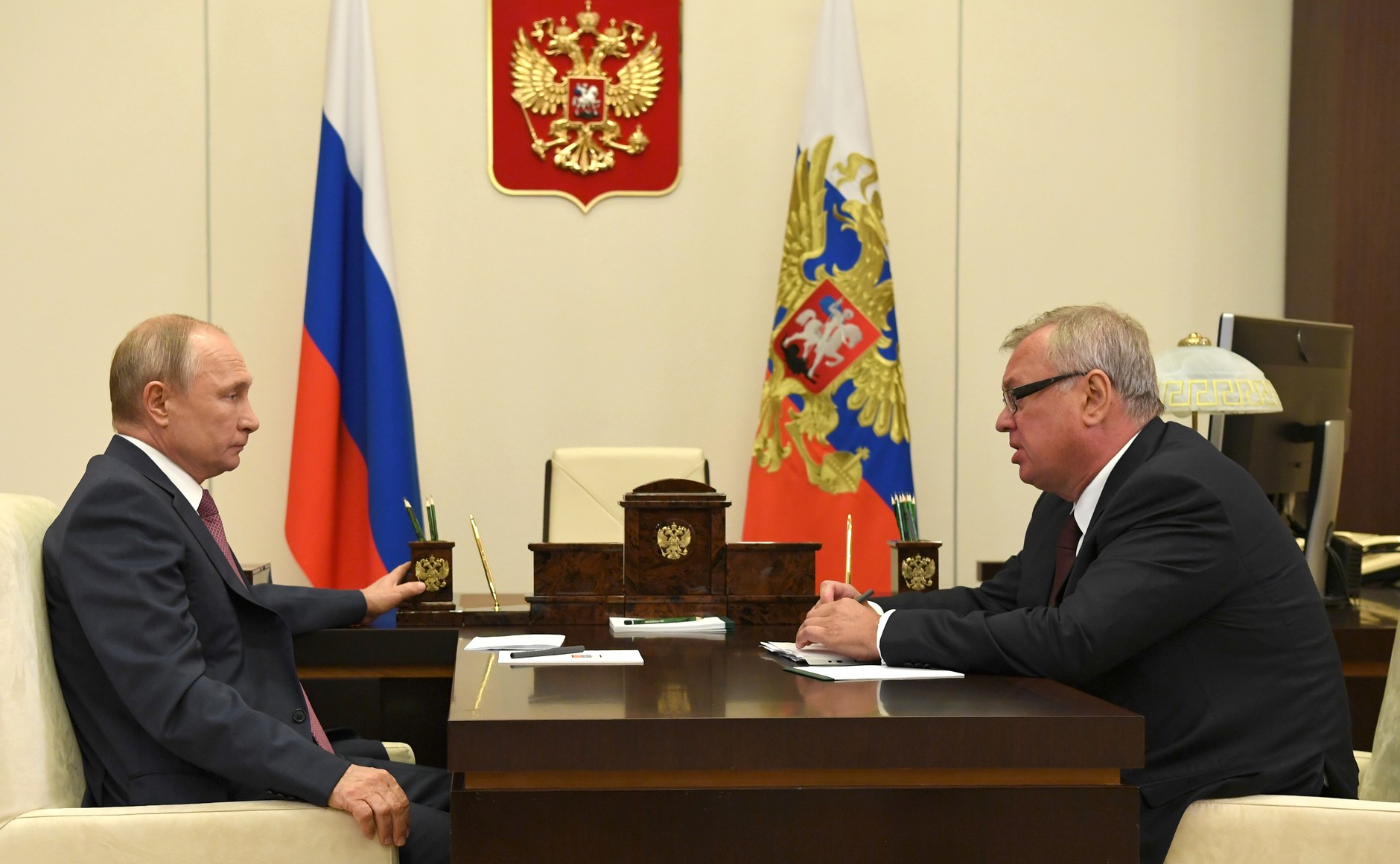 President of Russia Vladimir Putin: Mr Kostin, I would like to thank you again for organising the Russia Calling! forum. I believe this is important, rewarding and interesting not only for us, although it does give us insight into the mood of our partners both in Russia and abroad. But for them, too, I hope, it is also informative and gives them an idea about where we are now, and our assessments of the current developments, and, most importantly, it gives them an idea of how we are going to proceed, what priorities we will be guided by and what plans we are making for economic development. I know that VTB has marked its 30th anniversary this month. Over this time, this conglomerate has done a tremendous job, has evolved to become one of the largest financial institutions in Russia along with Sberbank. It has been working most effectively, under your leadership, for years, and you have grown from a diplomat to a major financial executive, and head of one of our largest banking institutions. Once again, I congratulate you and your entire team on this anniversary. All the best to you. We live in difficult times. I know that VTB has contributed to supporting the national economy and thus, Russian citizens, and has shouldered a certain burden doing so. I spoke about this here at the forum. In any case, I must say I appreciate the postponement of loan payments, and, as they say, the bank made a right shift on some items, and I would like to thank you for that specifically. So how is the bank faring in this period? What is your assessment of the current state of affairs? President and Chairman of the Management Board of VTB Bank Andrei Kostin: Mr President, what you said today has indeed been confirmed; the Russian economy in general and the banking sector in particular have come through this period with a few scratches. You were correct when you said VTB bank has provided assistance to Russian companies and citizens. We have actually been working on two tracks: the first is the restructuring of existing loans. We have actually restructured about 1.6 trillion rubles worth of loans – loans to Russian companies – allowing them to temporarily free up enough funds to make it through this difficult period. However, the emphasis was on government programmes for small and medium-sized businesses. The Two Percent programme, which focused on maintaining employment, was particularly successful, because the companies that maintained their employment levels and did not fire their employees were allowed to keep the money. Another programme, also quite popular with companies, had the same goal. It was about interest-free loans that were used to pay salaries. Thus, VTB Bank alone provided loans to 26,000 companies worth over 105 billion rubles, which tided these companies over through this period with minimal losses. Similar efforts were made with regard to our individual clients. We have restructured approximately 370,000 loans worth over 300 billion rubles. This, of course, also came as significant support. Interestingly, these “vacations” are now coming to an end, and about 90 percent of our clients who are returning to normal life after their “holiday” are servicing this loan. This means that their situation allows them to do so. We are quite lenient about this and even include in the mortgage loan agreements an option where if a borrower runs into any difficulty, not necessarily the pandemic, but maybe job loss or some kind of a family situation, this borrower is entitled to a “holiday.” This is an innovation that we introduced in the wake of the pandemic, because the overwhelming majority of our borrowers are honest people, and they are willing to make good on the loan, but occasionally circumstances prevent them from doing so. The 6.5 percent APR mortgage loans, which you came up with, and which has been effectively introduced, are of special interest. Over 40,000 families obtained this mortgage. I must say that the banks have gone even further and VTB Bank issues mortgages at 6.1 percent APR, which is slightly below the plan. A special mortgage loan programme for families with two or more children continues unabated. We have issued about 26,000 such loans. Of course, this significantly helped homeowners and our construction industry. We see that companies continue to take out loans, which means they are interested in expanding their respective businesses. We believe that this year the loan portfolio growth rates for corporate clients could amount to about 15 percent, and about 20 percent for small businesses. This means that the economy is doing quite well during the crisis, although we realise that the fourth quarter will be difficult, because the disease… probably not yet the second wave, but we see an increase in incidence around the world. Everyone is aware of the measures that are being taken in Western Europe today. We are not taking such measures, which, I think, is the right thing to do, because it allows businesses to breathe. Once again, I would like to tell you that I assess the measures that the Government has taken under your leadership as absolutely appropriate, and it is good that they are targeted. They helped the industries and the companies that needed them most, and they allowed us to get through this period unscathed. Interestingly, despite these developments, trust in the banking sector is growing, not weakening, which we know from the fact that individual deposits in banks are growing. Individual client deposits in our bank have increased by about 15 percent this year to a total of 6 trillion. In addition, clients with higher than average incomes have begun to invest in market instruments. This is normal and typical of any economy. Overall, the funds are flowing in, which means that people continue to trust the banks and work with them. This, of course, is good news. Therefore, I think the banking sector will have a good year overall, including VTB Bank. We will have lower than planned revenue, but we will have it. We have created proper reserves and a foothold in order to reach the target indicators in terms of revenue and otherwise next year. So, I think, in general, it was a good year for us.  Vladimir Putin: Mr Kostin, what about the bank's participation in infrastructure projects? Andrei Kostin: Mr President, you know, we are interested in this line of business, and we have been pursuing it for a long time now. We have outlined a number of important projects and are already working on them. We will be financing the construction of a toll road interchange in St Petersburg, which will connect Vitebskoye Motorway and the Western High-Speed Diametre. This is a big project. We plan to finish it in 2024. This project will cost approximately 30 billion rubles. One third of this amount will be provided by VTB Bank. In addition, we have now reached an agreement with the St Petersburg government that we will participate directly in and help financially to expand the metro, which needs it. We have also signed an important agreement with St Petersburg, Leningrad Region, and Inter RAO to create an integrated waste management system as it, too, needs a major upgrade and innovative technology. We are prepared to invest in this project. We are also using our experience with airport projects, in particular, Pulkovo. By the end of next year, we plan to complete the construction of a new airport in Gelendzhik so that when the pandemic is over and the vacationers go to Gelendzhik in 2022, they will already be using a brand new, modern and beautiful airport. 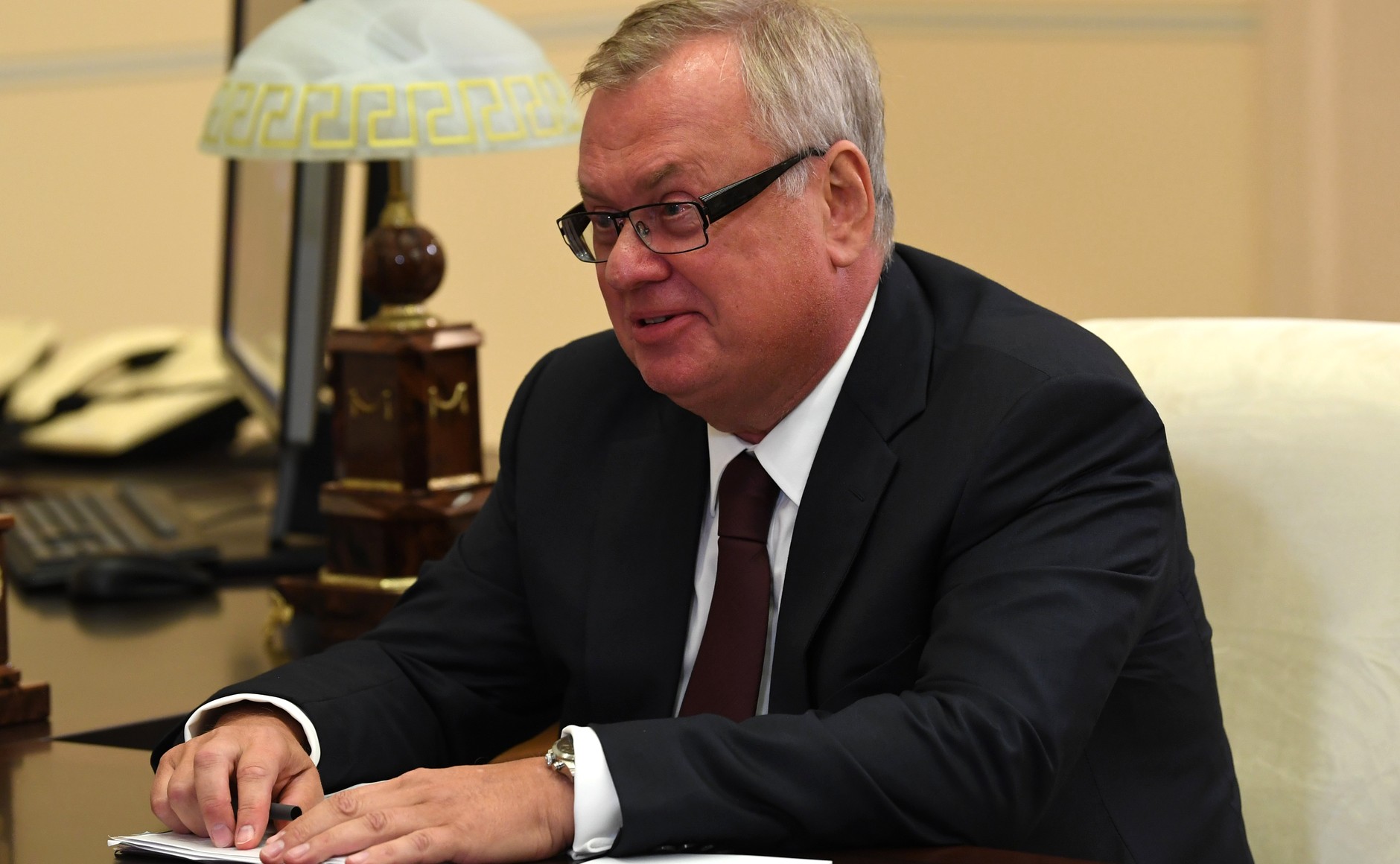 Vladimir Putin: Good. Thank you. The source of information - http://en.kremlin.ru/events/president/news/64298 Meeting with permanent members of the Security Council The President held a meeting, via videoconference, with permanent members of the Security Council. October 30, 2020 - 14:40 - Novo-Ogaryovo, Moscow Region 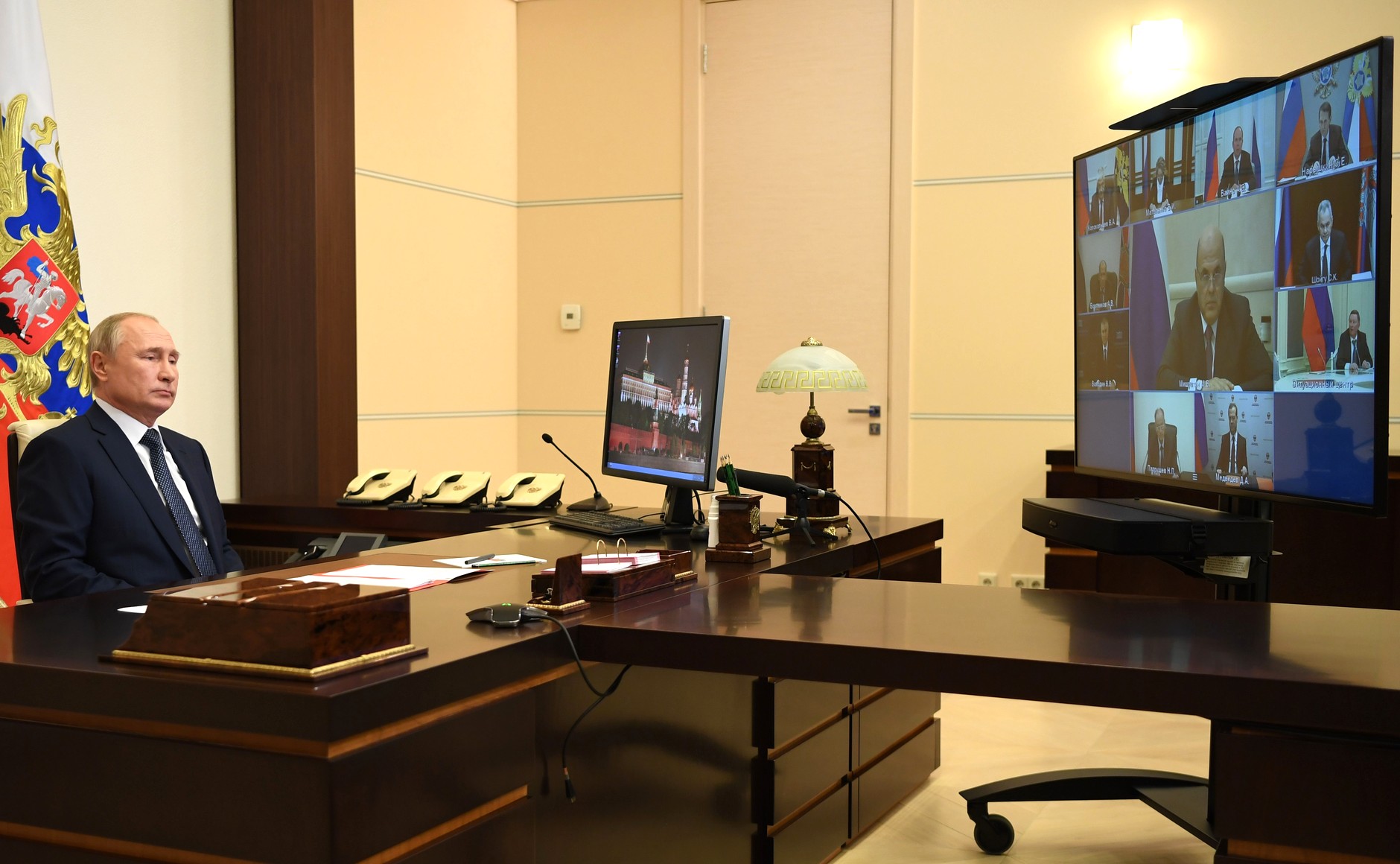 The main topic of discussion was building the state material reserve. The Security Council members discussed the situation in the Transcaucasia, with a focus on the developments in Karabakh. They also exchanged views on the tragic events in Europe that occurred the day before. The meeting participants once again strongly condemned terrorism in any manifestation. Several matters on the domestic agenda were also discussed. The meeting was attended by Prime Minister Mikhail Mishustin, Federation Council Speaker Valentina Matviyenko, State Duma Speaker Vyacheslav Volodin, Deputy Chairman of the Security Council Dmitry Medvedev, Chief of Staff of the Presidential Executive Office Anton Vaino, Security Council Secretary Nikolai Patrushev, Interior Minister Vladimir Kolokoltsev, Defence Minister Sergei Shoigu, Director of the Federal Security Service Alexander Bortnikov, Director of the Foreign Intelligence Service Sergei Naryshkin, and Special Presidential Representative for Environmental Protection, Ecology and Transport Sergei Ivanov. The source of information - http://en.kremlin.ru/events/president/news/64300 Condolences to President of Turkey Recep Tayyip Erdogan October 30, 2020 - 19:00 Vladimir Putin expressed deep condolences to President of the Republic of Turkey Recep Tayyip Erdogan over the loss of life and destruction caused by a powerful earthquake in the province of Izmir. The President of Russia asked to pass on words of sympathy and support to the families and friends of the victims, as well as wishes for a speedy recovery to all those who were injured in this disaster. The source of information - http://en.kremlin.ru/events/president/news/64304 Greetings on the 5th anniversary of Volunteers of Victory national public movement Vladimir Putin sent greetings to members of the Volunteers of Victory national public movement on its 5th anniversary. October 31, 2020 - 10:00 The message reads, in part: “I note with satisfaction that throughout these years the Volunteers of Victory national public movement has significantly boosted its creative and humanitarian potential, earned a great reputation, and taken efforts to carry on the wonderful traditions of volunteering and selfless devotion that our country has always been famous for. Importantly, today this widespread and truly nationwide project is advancing and growing through new initiatives and practical efforts, and is uniting responsible and committed people with its noble mission, both in Russia and abroad. You sincerely strive to be of benefit to the Fatherland and channel your efforts to supporting veterans, upgrading memorial and war gravesites, and organising large-scale patriotic events aimed for the younger generation to have respect for heroic pages of our history. And, of course, your self-sacrificing and well-coordinated work performed amidst the difficult conditions of the COVID-19 pandemic deserves the utmost appreciation.” The source of information - http://en.kremlin.ru/events/president/news/64307 Condolences to Prime Minister of Greece Kyriakos Mitsotakis October 31, 2020 - 12:20 Vladimir Putin sent a message of condolences to Prime Minister of the Hellenic Republic Kyriakos Mitsotakis in connection with the tragic consequences of the earthquake that hit the Aegean Sea and affected a number of Greek islands. The President of Russia asked to pass on words of sympathy and support to all Greek residents affected by this disaster and wished a speedy recovery to the regions hit by the quake. The source of information - http://en.kremlin.ru/events/president/news/64306 Bailiffs’ Day greetings Vladimir Putin extended his greetings to the current and former workers of Russia’s Federal Bailiff Service on their professional holiday and the 155th anniversary of the establishment of the bailiff service in Russia. November 1, 2020 - 10:00 The message reads, in part: “I am pleased to note that over the years of responsible work, the Federal Bailiff Service has convincingly proved its relevance, and its employees have made a serious contribution to strengthening justice and protecting people’s constitutional rights and freedoms. Under the new legislation, the Federal Bailiff Service has become an important, integral part of law enforcement in Russia. This service requires high competence, impeccable personal qualities and dedication. And of course, it is highly necessary to rely on and be guided by the experience accumulated by your service veterans, to confidently use advanced technologies, and apply modern and well-thought-out approaches to tackling any problems that arise. I am confident that you will continue to successfully work on ensuring the judicial system’s security, improving enforcement mechanisms, as well as protecting people’s legitimate interests, primarily in socially significant areas.” The source of information - http://en.kremlin.ru/events/president/news/64310 Greetings to Match TV on its 5th anniversary Vladimir Putin congratulated the Match TV national sports channel on its 5th anniversary. November 1, 2020 - 11:00 The message reads, in part: “I am confident that your devoted spectators, as well as numerous sports fans in our country, are celebrating this anniversary together with you. In recent years, Match TV has become an undisputed leader among sports media, enriching domestic television with amazing and useful information and educational projects. By broadcasting the latest news and interviews with legendary champions – idols of millions, and speaking about major events in the world of sports, you help popularise the sport movement and physical fitness and familiarise people, and especially young people, with the values of a healthy and active lifestyle. It is certainly important that the TV channel’s staff always treat their audience with sincere respect, striving to take into account their interests and needs.” The source of information - http://en.kremlin.ru/events/president/news/64319 Greetings to Community Forum Vladimir Putin sent a message of greetings to the participants, organisers and guests of the final Community Forum traditionally held ahead of National Unity Day marked in Russia on November 4. November 2, 2020 - 10:00 The message reads, in part: “It is gratifying that, despite the unfavourable epidemiological situation, this forum has managed to unite a large number of participants: active and caring people who try to use their practical deeds to make a personal contribution to addressing the current tasks that Russian education, science, healthcare, culture, tourism and the environment are facing; those who are not afraid of difficulties and are ready to work hard to make life in their home cities and towns fuller, more interesting and better. I know that there are representatives of expert and business communities, youth, the volunteer movement, noncommercial organisations and media from various Russian regions among the forum participants. Many of you have already acquired enormous experience and are ready to support your peers, give them a boost of positive energy, get them to know the best practices and to sum up together the results of an important and socially significant contest organised by the Russian Civic Chamber, My Project for My Country.” The Community Forum is an open working platform for a trilateral dialogue between society, business and government to improve the development and implementation of social projects. Community forums have been held by the Civic Chamber in all the federal districts throughout the year. The source of information - http://en.kremlin.ru/events/president/news/64322 Meeting with Bolshaya Peremena contest finalists Vladimir Putin spoke via videoconference with the finalists of the Bolshaya Peremena nationwide contest for school students that is taking place at Artek. November 2, 2020 - 14:45 - Novo-Ogaryovo, Moscow Region President of Russia Vladimir Putin: Good afternoon, friends. Hello Artek, hello competition finalists. I am greeting over a million schoolchildren all across Russia who have taken part in this wonderful contest, Bolshaya Peremena. This name is figurative and reflects your lives and school, the time of friendship, new knowledge and discoveries. Of course, it also reflects the huge social and technological changes, big changes that are happening now in the world. 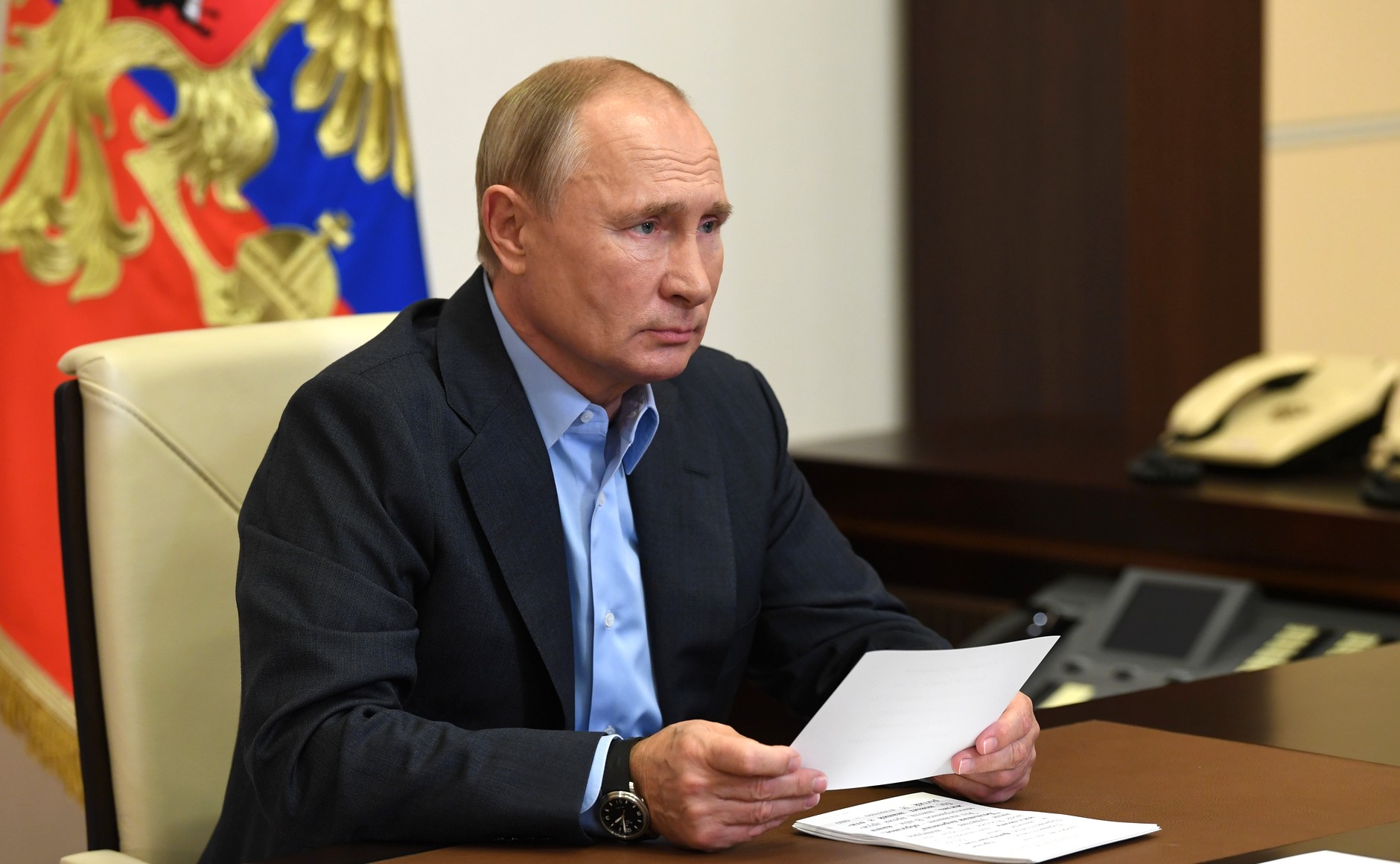 In order to become leaders in the turbulent, difficult 21st century, we need to create the best opportunities for people’s self-fulfillment, for revealing the talents and natural gifts that all people, adults and children alike, have, and for helping them find their way in life. This is what determines the future of Russia, its successes and achievements. This is why it is so important that Bolshaya Peremena has provided you with a unique chance to show the best side of your skills and knowledge, to choose a creative assignment, and tell everyone about your projects and ideas on a whole range of issues. These include art, journalism, environmental protection, science, technology, volunteering, history, tourism, and the development of our cities, your home. 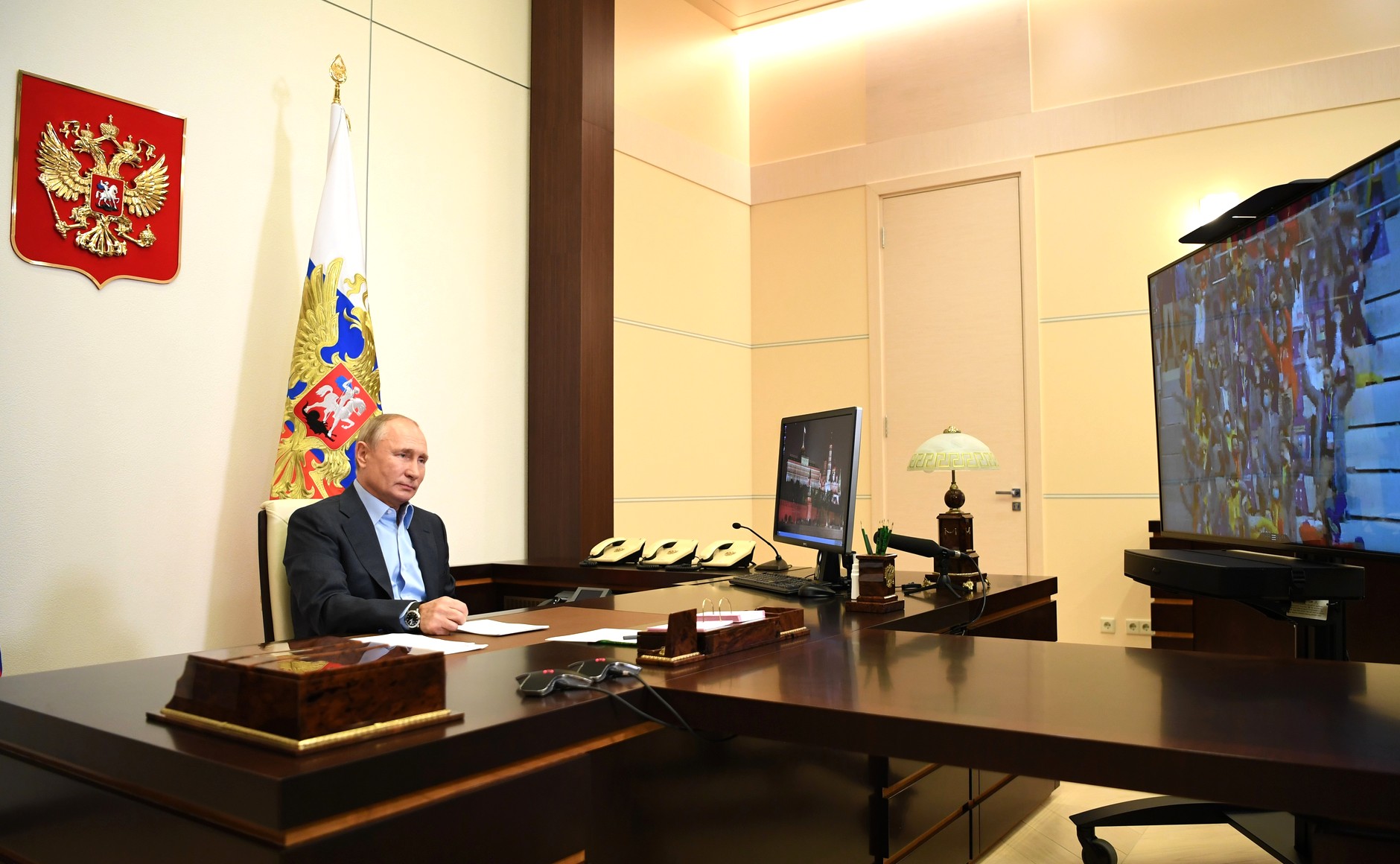 Thanks to the individual approach and attention given to each participant, the contest has discovered new stars, even constellations of talented youth who not only managed to assert themselves, but also to became an example for their peers, proving that it is all in your young hands, and it is all a matter of your will and perseverance. We will definitely support you in all of your good plans and endeavours. In this regard, I would like to note that the winners of the competition – you know this, I am sure – 10th and 11th graders will receive one million rubles and will be able to enroll at the best universities in Russia. Lower secondary students will receive 200,000 rubles each. The finalists will be able to stay at Artek next year.  By the way, your teachers and your schools will not be forgotten, please know that. I am sure that each of you has gained new experience, knowledge and skills, because Bolshaya Peremena is not just a competition but also a true space for your personal development. You have gone on tours of Russia’s best universities and museums. Some of you went to Baikal, Kamchatka, toured a nuclear icebreaker and even – though virtually – went to outer space and saw the ISS. 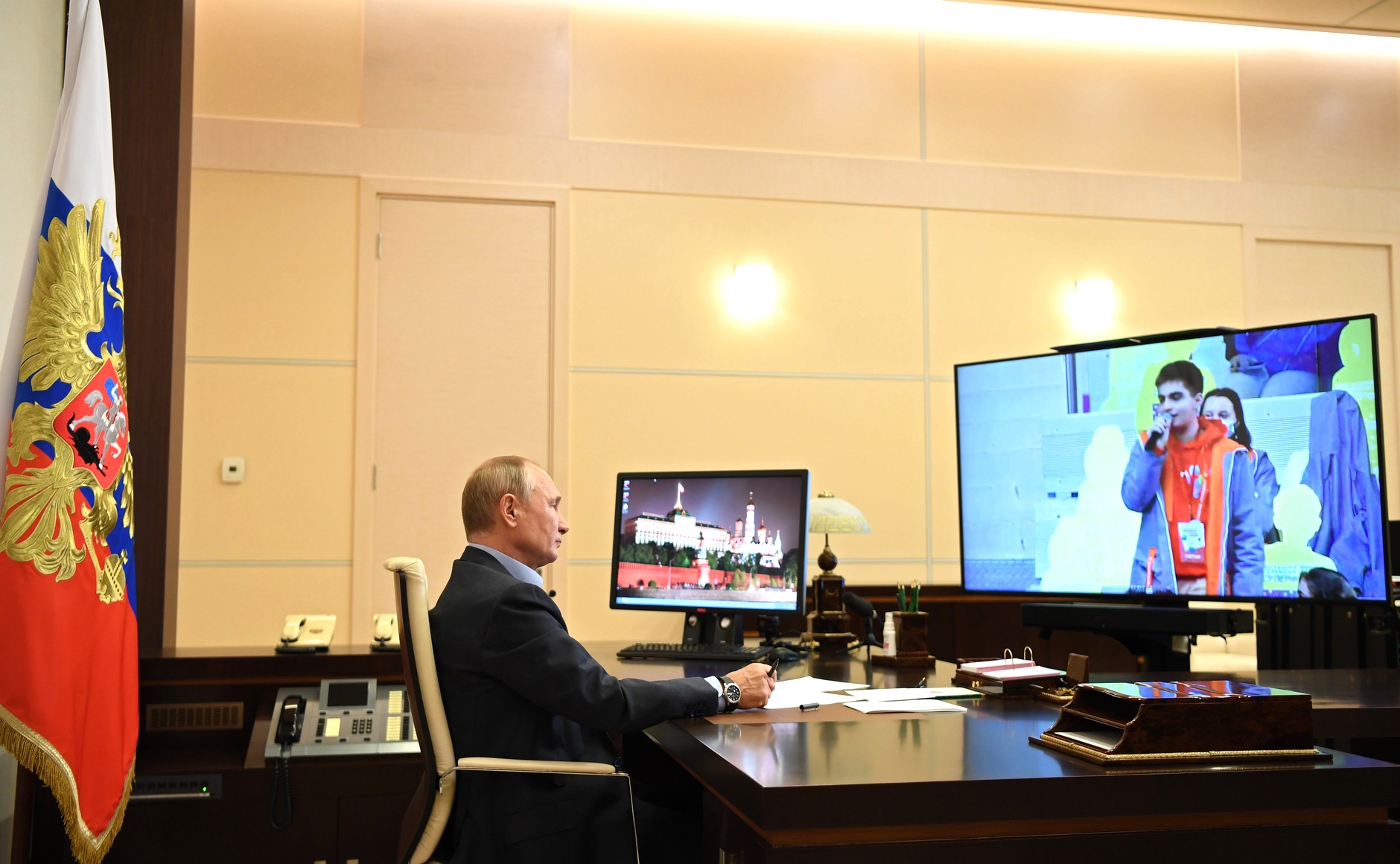 You have taken part in programmes and sessions at federal children’s centres, met online with scientists, heads of the largest Russian companies, actors, Olympic champions, journalists and volunteers. Volunteer projects and initiatives have become an important focus of the competition. This is absolutely justified because against the backdrop of big changes, it is important to remain compassionate, value friendship and mutual assistance, help those closest to you, and preserve the environment. 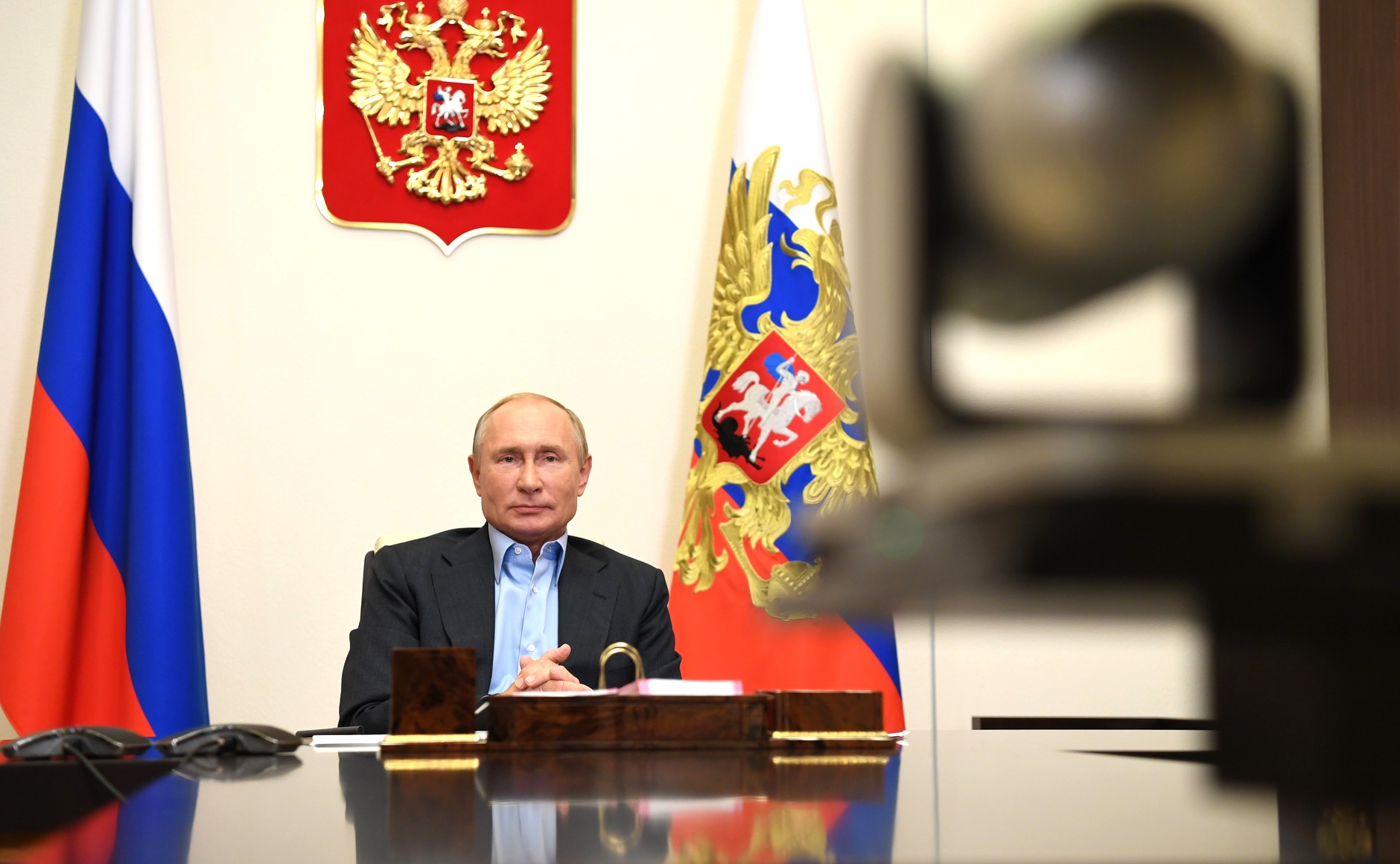 Almost every day you and Bolshaya Peremena helped our citizens, including during the We Are Together nationwide campaign. You congratulated war veterans and improved your courtyards. Together with your parents, you handed out food to animal shelters and created eco-trails and tourist routes. But, most importantly, the contest provided hundreds of thousands of school students, young Russians, with another platform for self-fulfillment regardless of their place of residence and the capabilities of their parents. The more roads are open for you, the more confidently will our country move forward. 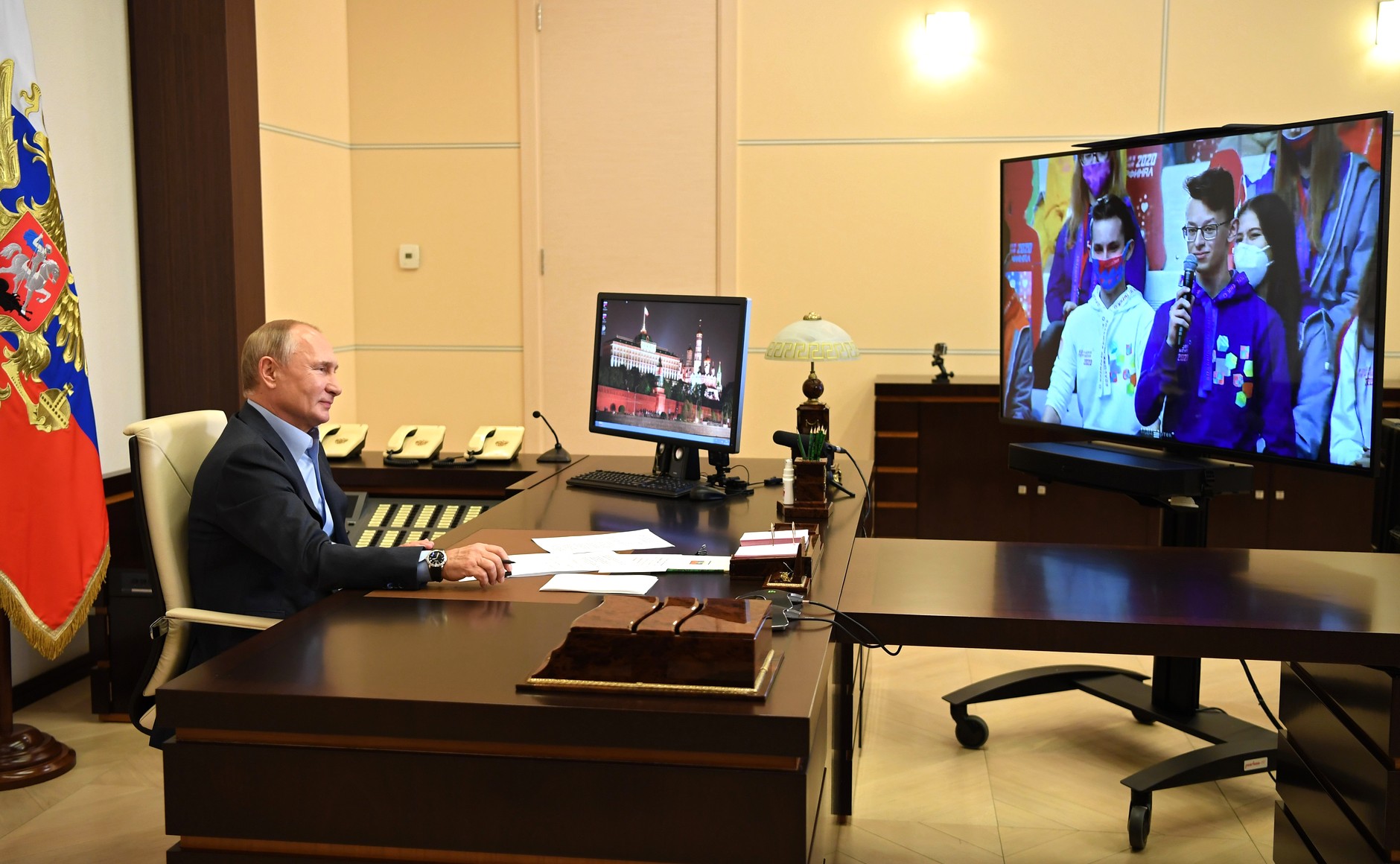 I would like to thank everyone who helped to hold this important educational and volunteer project: our federal children’s centres Sirius, Artek, Orlyonok and Okean, as well as leading universities and Russian companies. I would like to thank everyone who helped. Of course, my special gratitude goes to your teachers. Under the contest’s conditions, you could invite your favourite teacher, your homeroom teacher, art school teacher or coach. Due to the pandemic, they could not attend the semifinals but always supported you online. I thank your mentors with whom you began on your road to big success. Let us thank all the teachers of Russia for their invaluable work. 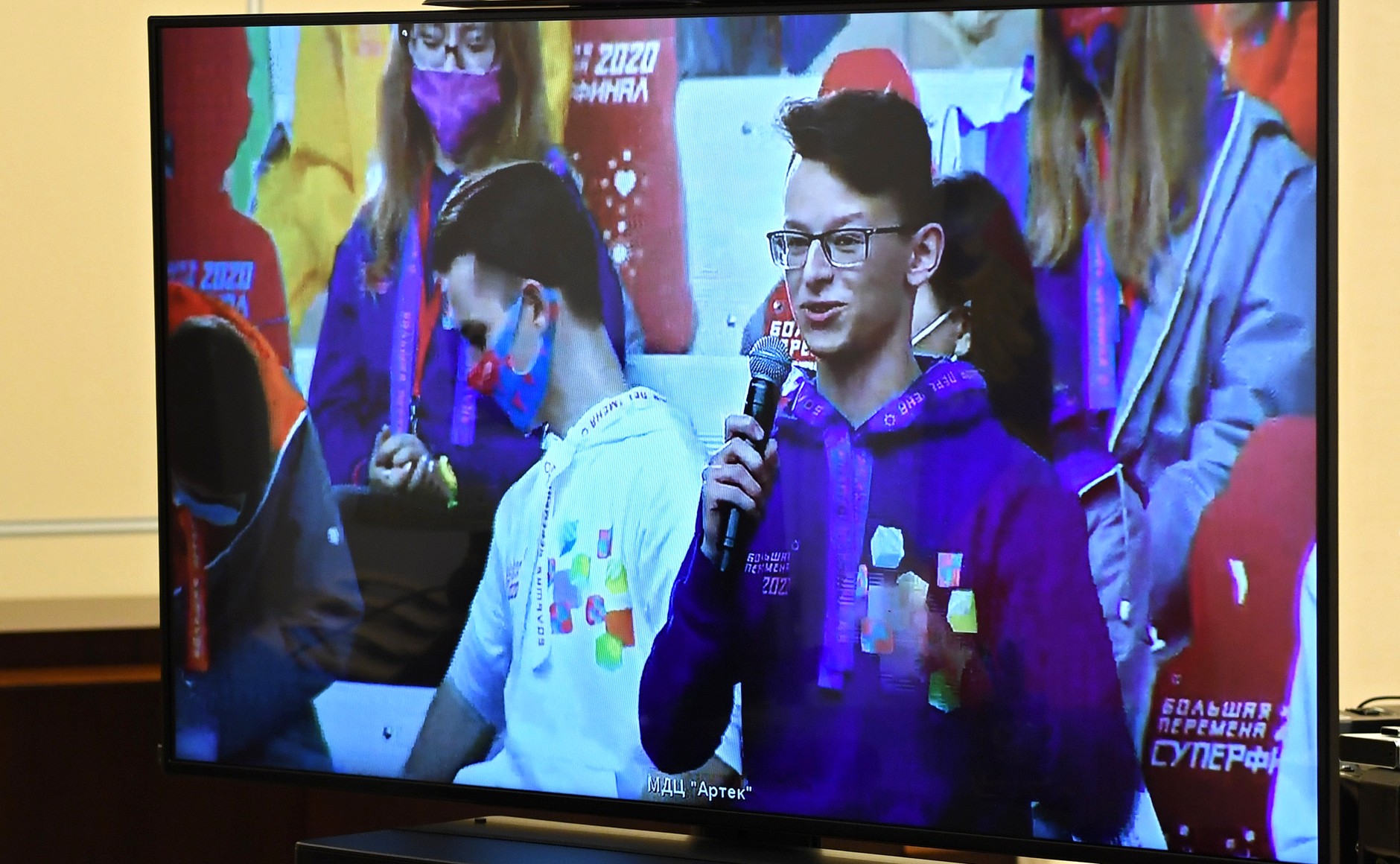 I know that the finals, like the entire contest, are held in a friendly atmosphere. This is absolutely natural, because Bolshaya Peremena has already become a team of like-minded people, a true movement of active school students who can take responsibility for the future. Here, at Artek, you represent your regions, cities and villages, your home, your schools. Already now, employers and the best universities of Russia are competing for you. Your classmates and teachers are supporting you. Your parents and grandparents sincerely care about you. 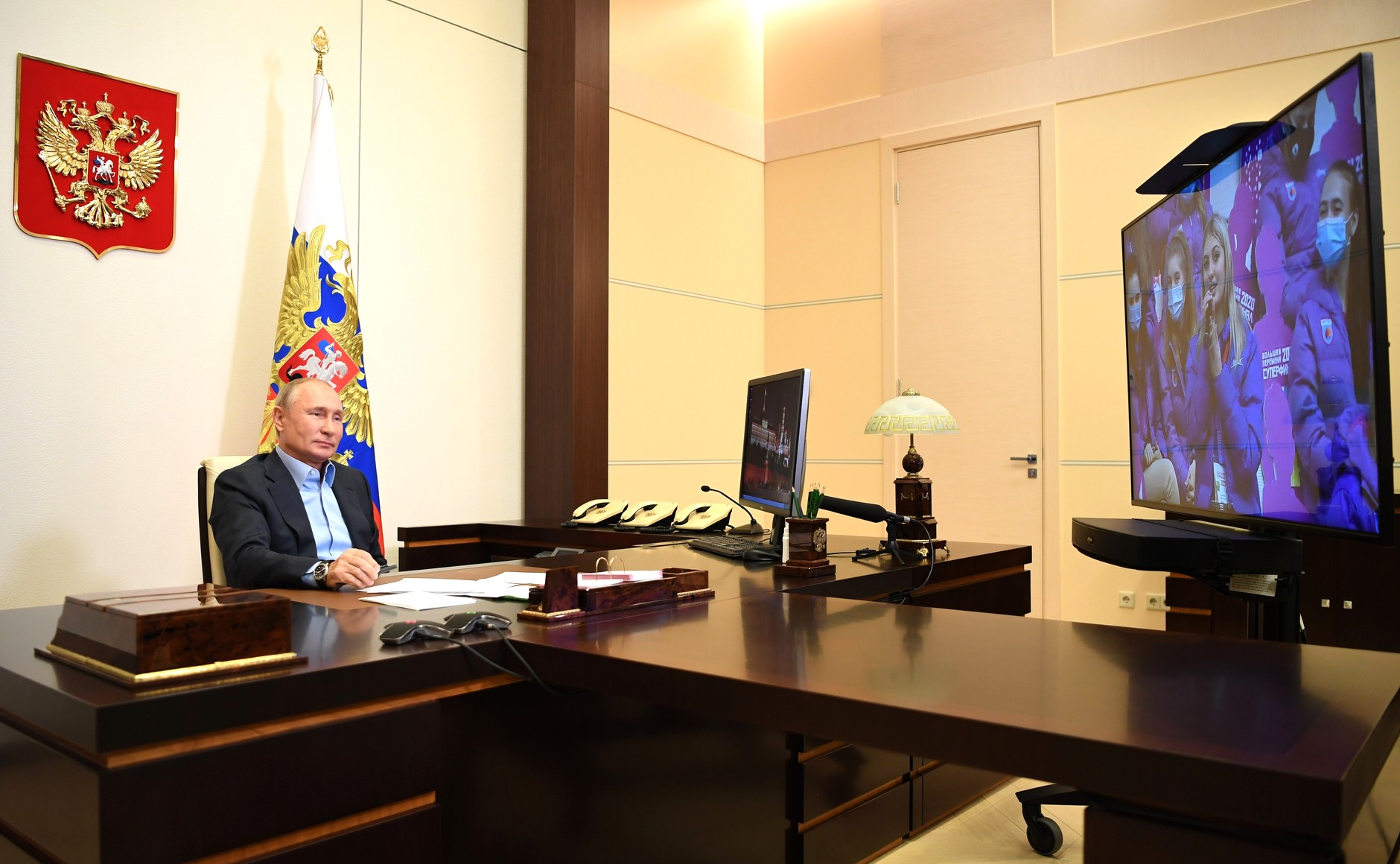 Each one of you, without exception, is talented. You all are winners. Your main victory is that you overcame your doubts, took a step towards your dreams, and proved that you can achieve a lot thanks to your strong will, persistence, talent and, of course, hard work. Let me repeat that your personal success, as well as that of the millions of other school students, determines the welfare and the dynamic development of all of Russia. We will continue to pave the way for children and teenagers to be successful and talented. Without exaggeration, this is our national goal. I believe it unites all Russians. I believe this contest should be held annually. Those children who do not win this year will be able to try again in the future. We will definitely continue this work. Friends, I wish you success and good luck in the finals. The source of information - http://en.kremlin.ru/events/president/news/64311
__________________
Where should they dig the Very Deep Pit? Piglet said that the best place would be somewhere where a Heffalump was, just before he fell into it, only about a foot farther on. (c) Alan Alexander Miln |
|
|
#144 |
|
Senior Member
|
Meeting on rocket and space sector development
Vladimir Putin held a videoconference meeting on financing the development of the rocket and space sector. November 2, 2020 - 15:40 - Novo-Ogaryovo, Moscow Region Taking part in the meeting were Chief of Staff of the Presidential Executive Office Anton Vaino, Deputy Prime Minister Yury Borisov, Aide to the President Maxim Oreshkin, Aide to the President – Head of the Presidential Control Directorate Dmitry Shalkov, Economic Development Minister Maxim Reshetnikov, Finance Minister Anton Siluanov, Defence Minister Sergei Shoigu, President of the Russian Academy of Sciences Alexander Sergeyev and General Director of the Roscosmos State Corporation for Space Activities Dmitry Rogozin. 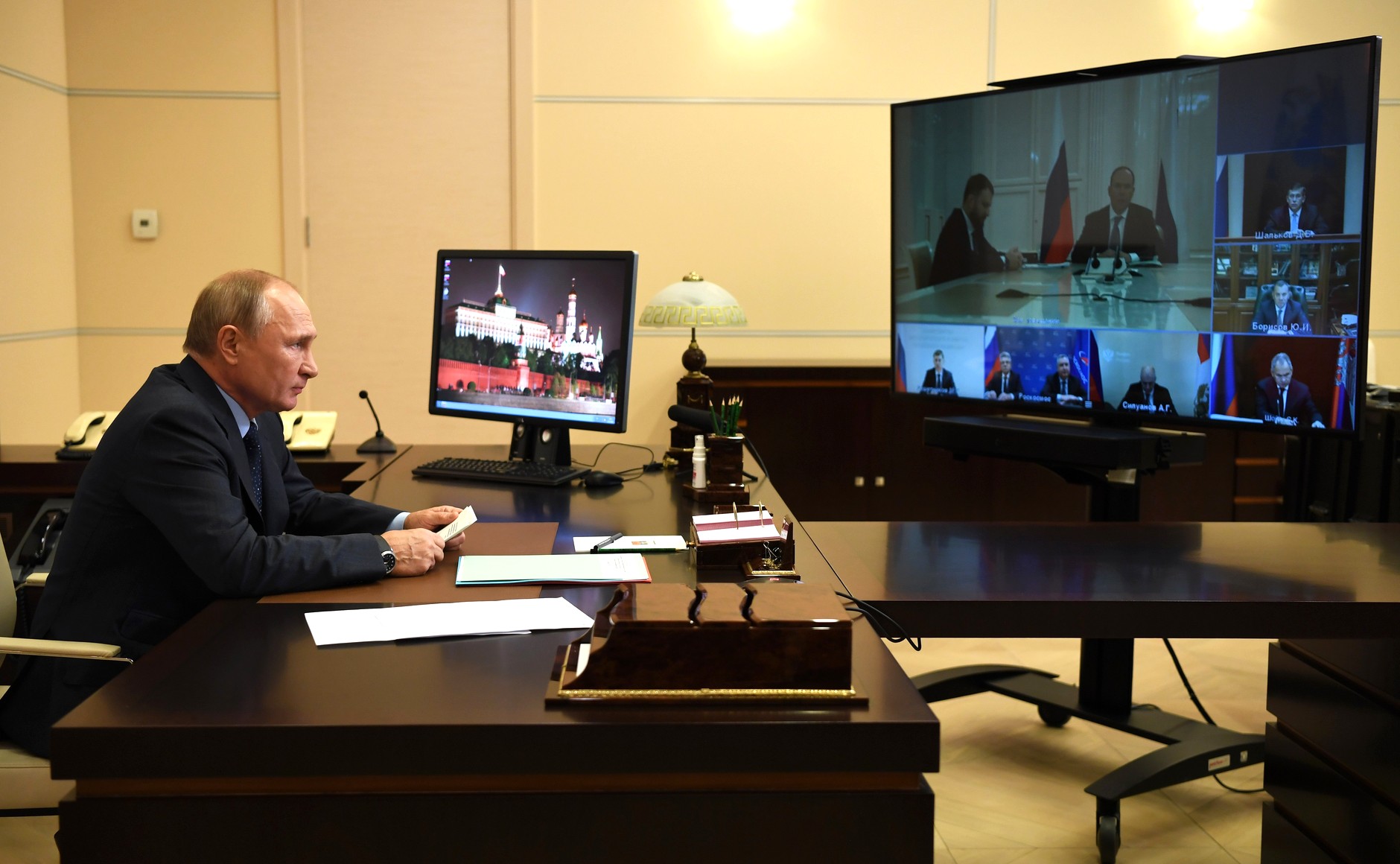 President of Russia Vladimir Putin: Good afternoon, colleagues, greetings. We regularly discuss strategic and current goals in the sphere of space exploration. This is understandable, considering the exceptional importance of this work for ensuring our national interests. As agreed, today we will focus on the practical aspects of financing the development of the rocket and space sector and several key space exploration programmes. In this sphere, we must proceed from our priorities, of which you are all well aware. These are improving the national space infrastructure, building up the number and quality of the orbital satellite group, working consistently to carry on the programme of manned flights, creating a forward-looking range of launch vehicles as well as increasing the share if innovative space equipment, products and services. I would like to reiterate that the attainment of these strategic goals is extremely important for the country, for the efficient development of the national economy, and for enhancing national security and maintaining Russia’s leading positions on the global space market, where competition has been growing rapidly, as you are all well aware. In this context, Roscosmos has been instructed to prepare several new programmes, including those aimed at creating a super-heavy space launcher and a satellite cluster within the framework of the Sfera project, as well as the further development of the GLONASS system. However, I can see from the submitted material that these programmes have not yet been approved. I would like you to report on the reasons for the delay today and when these programmes will actually be finalised. I would like to point out that this must be done as soon as possible and that the budgetary funds needed for these programmes must be determined very quickly. At the same time, we need to coordinate a position regarding the financing of the Federal Space Programme for 2016–2025. A considerable number of important projects, including manned flights, are being implemented within its framework. I would like to emphasise the following. Of course, the implementation of these programmes, the manufacturing of novel space products and the construction of ground-based infrastructure calls for substantial investment. The sector needs these funds, this is clear. However, we must adjust these requirements to the real capabilities of the federal budget. You and I know this very well, and we have had these situations before. We must also take into account the fact that huge allocations have been approved to support the economy as a whole, the healthcare system, and our people and businesses amid the difficult conditions of the pandemic. Therefore, it is extremely important to get our priorities straight when it comes to financing space programmes. We must take an objective look at the available research, technological and production capabilities of the sector’s institutions and enterprises so that we channel funds into projects that should be implemented as a priority and can produce the best results. Of course, we must do our utmost so that these projects produce tangible results in the near or medium term to the economy as a whole, to our industries, including through broader provision of such in-demand services as navigation, communications, television broadcasting and remote sensing of the Earth. We need all of this here and now, as it were. I would like to add that in order to achieve the goals set to the Russian rocket and space sector we should use the instruments of public-private partnership more energetically and also attract extra-budgetary funds whenever possible. This must be done very carefully, of course. We know how to deal with loans. But we must look for such opportunities and additional resources anyway, because they will reduce the sector’s dependence on budgetary funds, give a strong impetus to its development and will allow it to more flexibly and effectively address the goals set to it, including the marketing of new commercially attractive products and services. Now, I would like the General Director of Roscosmos to present his proposals. Mr Rogozin, you have the floor. The source of information - http://en.kremlin.ru/events/president/news/64313 Telephone conversations with Nikol Pashinyan and Ilham Aliyev November 2, 2020 - 22:20 On November 1 and 2, Vladimir Putin had telephone conversations with Prime Minister of the Republic of Armenia Nikol Pashinyan and President of the Republic of Azerbaijan Ilham Aliyev. The participants discussed in detail the issues of settling the Nagorno-Karabakh conflict. The source of information - http://en.kremlin.ru/events/president/news/64315 Condolences to President of Austria Alexander Van der Bellen and Federal Chancellor of Austria Sebastian Kurz Vladimir Putin sent a message to Austria’s Federal President Alexander Van der Bellen and Federal Chancellor Sebastian Kurz expressing condolences over the tragic consequences of the terror attack in Vienna. November 3, 2020 - 10:30 The President strongly condemned this cruel and cynical crime, which has once again confirmed the inhuman nature of terrorism, and expressed confidence that terrorist forces would never be able to intimidate anyone, or sow discord and enmity between people of different religions. Vladimir Putin reaffirmed Russia's readiness to enhance cooperation with Austria and other members of the international community in the fight against all forms and manifestations of terrorism. The President of Russia offered words of deep sympathy and support to the families and friends of the victims, and wished a speedy recovery to those injured. The source of information - http://en.kremlin.ru/events/president/news/64317 Greetings on opening of 14th Russian World Assembly Vladimir Putin sent greetings to participants, organisers and guests of the 14thRusskiy Mir [Russian World] Assembly, which is traditionally held ahead of National Unity Day on November 4. November 3, 2020 - 11:00 The message reads, in part: “Your forums have long become an important and eagerly anticipated event in the life of the country, as well as an important and inseparable part of international cultural cooperation. Even though today’s meeting is held online, the forum has brought together a large number of participants, among them famous Russian and foreign public figures, teachers of the Russian language and literature, scientists, journalists, diplomats and representatives of religious and youth organisations, as well as our compatriots from many countries. All of you are united by your care for the future of Russia and the sincere desire to be useful to our Motherland. I would like to emphasise that your fruitful efforts, multifaceted expert and research activity, as well as substantial creative and educational initiatives aimed at promoting the Russian language and literature, expanding the Russian-language information space and improving Russia’s reputation in the world deserve our deep appreciation. And, of course, this year, declared the Year of Memory and Glory, the most interesting and large-scale events were devoted to the heroic pages of the Great Patriotic War and World War II, as well to the preservation of our history.” The source of information - http://en.kremlin.ru/events/president/news/64321 Greetings to Hero of Labour Yury Solomonov Vladimir Putin sent greetings to Hero of Labour of Russia Yury Solomonov, a member of the Russian Academy of Sciences, on his 75th birthday. November 3, 2020 - 15:30 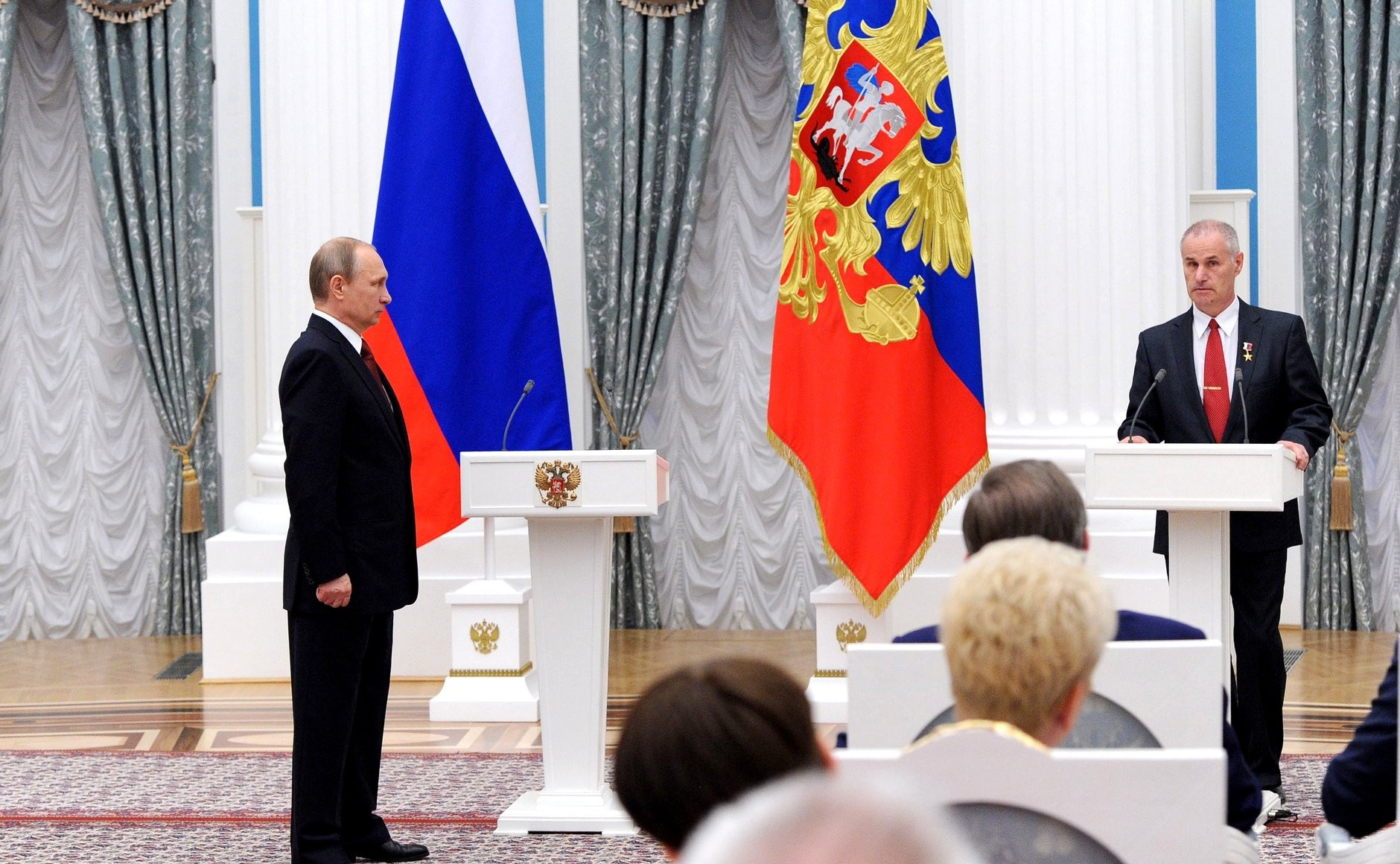 The message reads, in part: “You have dedicated your life to science. Over many years of tireless and responsible work, you made a significant personal contribution to developing the Russian design school and to strengthening the defence capability and national security of our country. Such important work deserves the utmost recognition.” Yury Solomonov oversaw the development of several strategic missile complexes (Topol-M, Yars and Bulava) that form the basis of Russia’s nuclear shield. The source of information - http://en.kremlin.ru/events/president/news/64323 Russian Federation national flag raised on icebreaker Viktor Chernomyrdin The President of Russia attended the flag raising ceremony on the open sea diesel-electric icebreaker Viktor Chernomyrdin. November 3, 2020 - 18:00 - St Petersburg The Viktor Chernomyrdin, of the Icebreaker8 ice class, is the world’s largest diesel-electric icebreaker and is capable of operating in open seas through ice up to two metres thick. It has two helipads and is equipped not only to lead vessels through ice but can also be used for research expeditions and can transport containers and hazardous cargo. The President inspected the vessel’s bridge and controls and viewed information stands on the future development of the Baltic logistics systems. 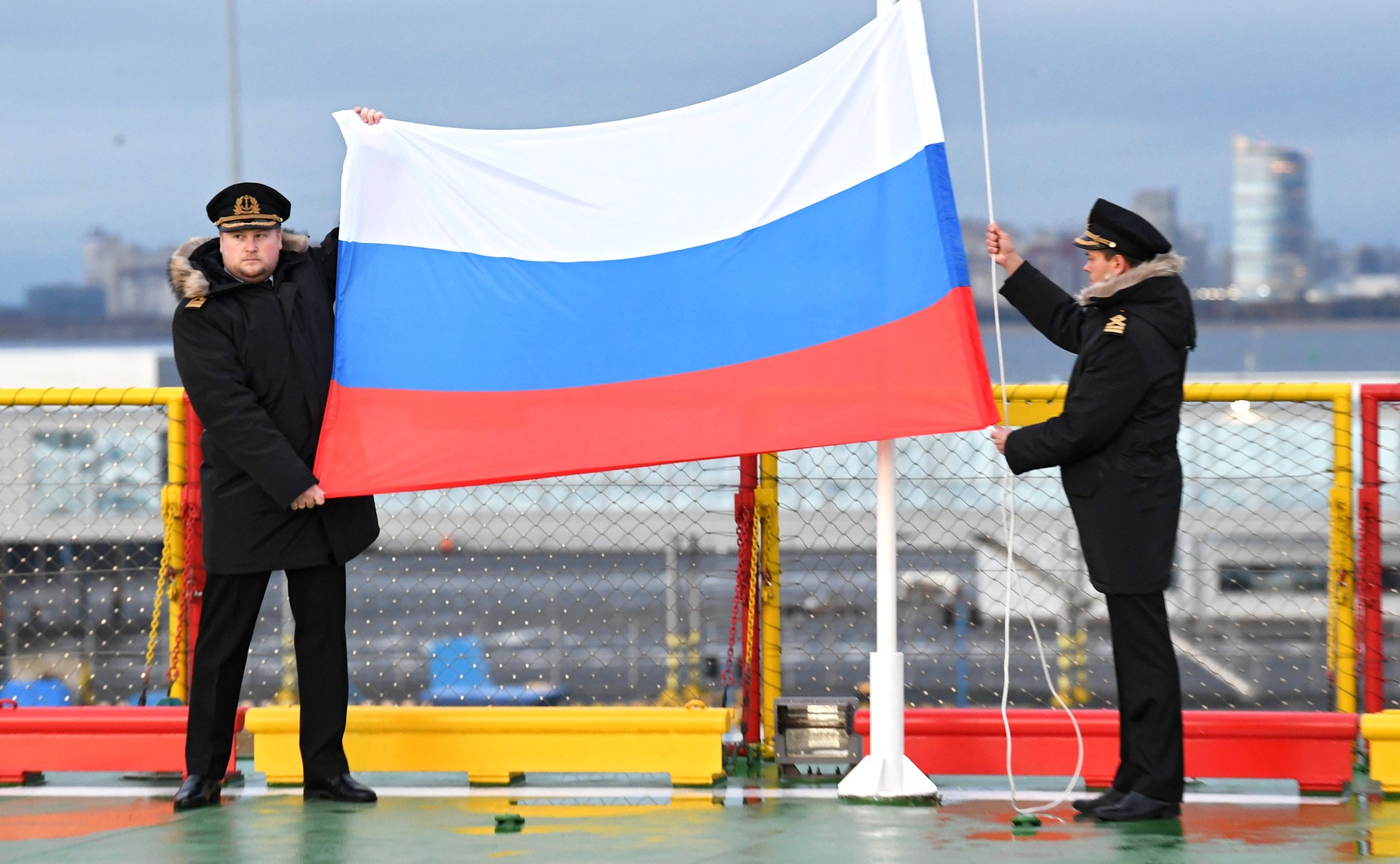 President of Russia Vladimir Putin: Friends, Mr Trukhanovich,  This is a difficult time for all of us, as we say every day. But pandemic or no pandemic, life must go on, and we are moving forward without postponing our plans, as we have noted on several occasions.  Today we are attending a very pleasant and important event, actually a landmark event. The national flag of the Russian Federation has just been raised on a new open sea diesel-electric icebreaker, the world’s largest and most powerful icebreaker of this class, which was named after our outstanding compatriot, Viktor Chernomyrdin.  Today we are commemorating this great person. Viktor Chernomyrdin passed away exactly 10 years ago. It can be said without exaggeration that he was a statesman and a politician on a history-making scale, a bright and strong man, a hard worker and a creative person. He never shied away from responsibility and did a good job, serving the nation in everything he did. 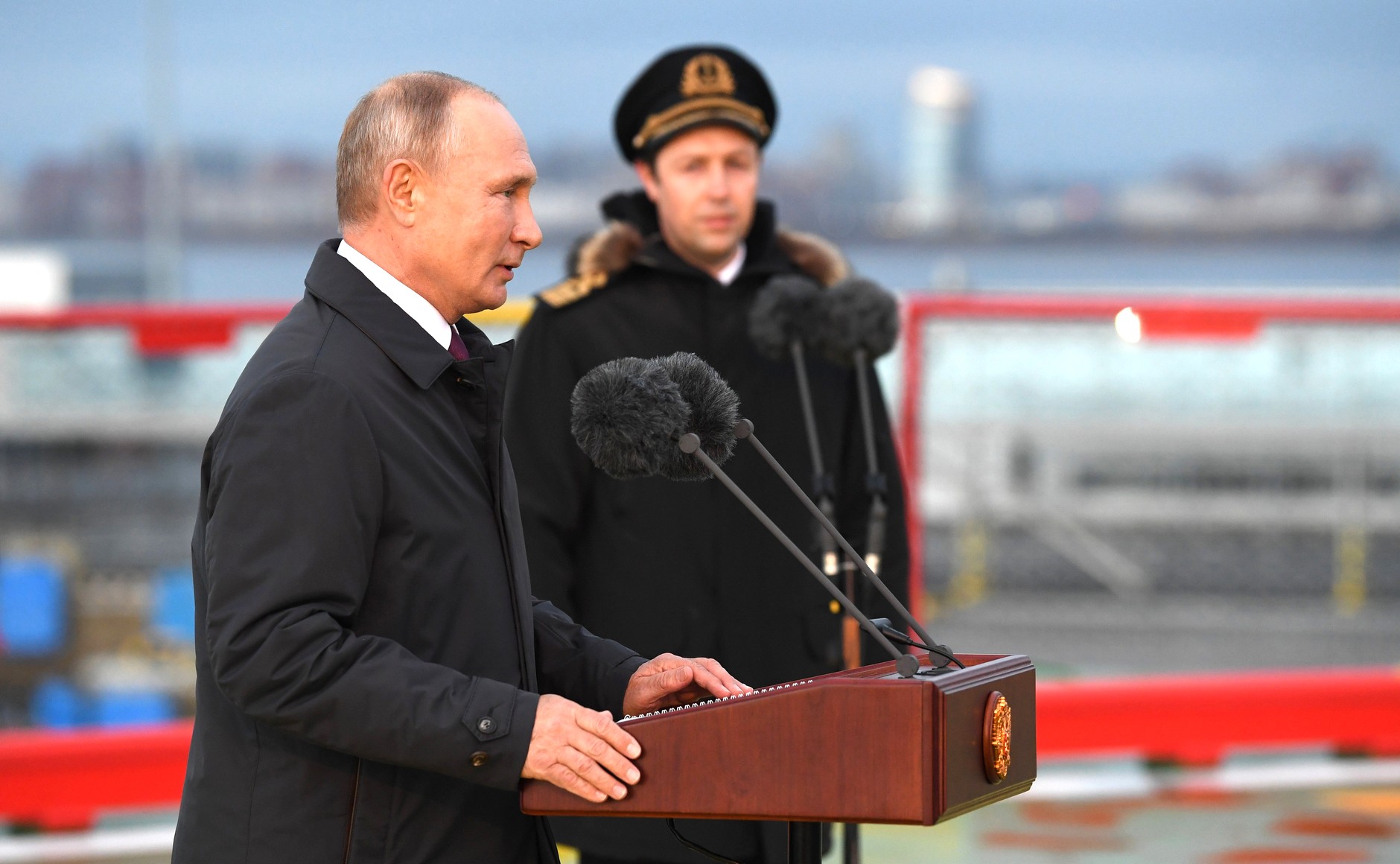 It should be said that is was largely thanks to his balanced and far-sighted approach and his sound stewardship that the human and technological potential of our industry, the fuel and energy sector and other industrial sectors were maintained in the extremely difficult period of the 1990s. 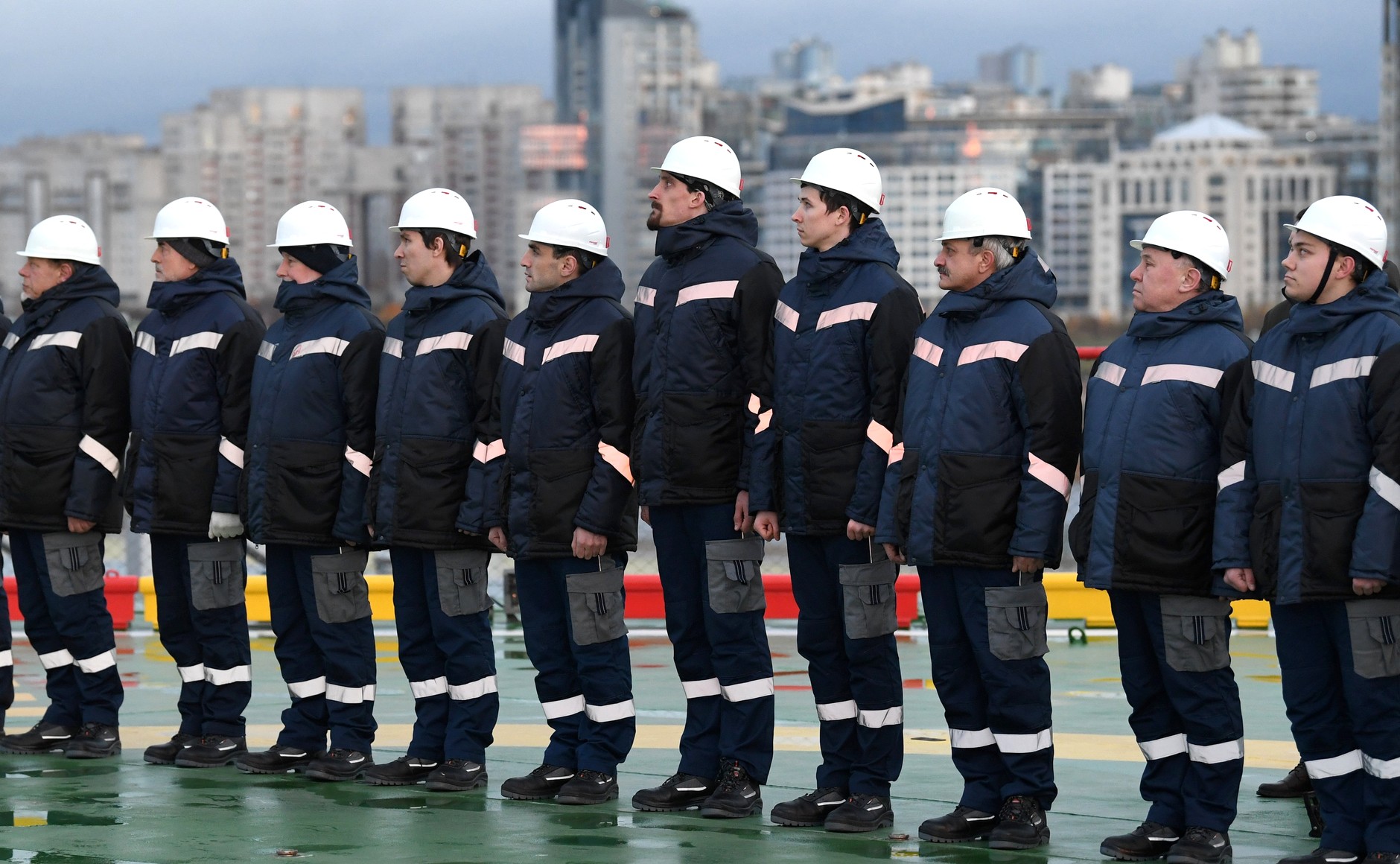 In general, he was a workaholic. I can personally testify to this, as I watched him work and learned a great deal from him. He was endlessly loyal to our country. 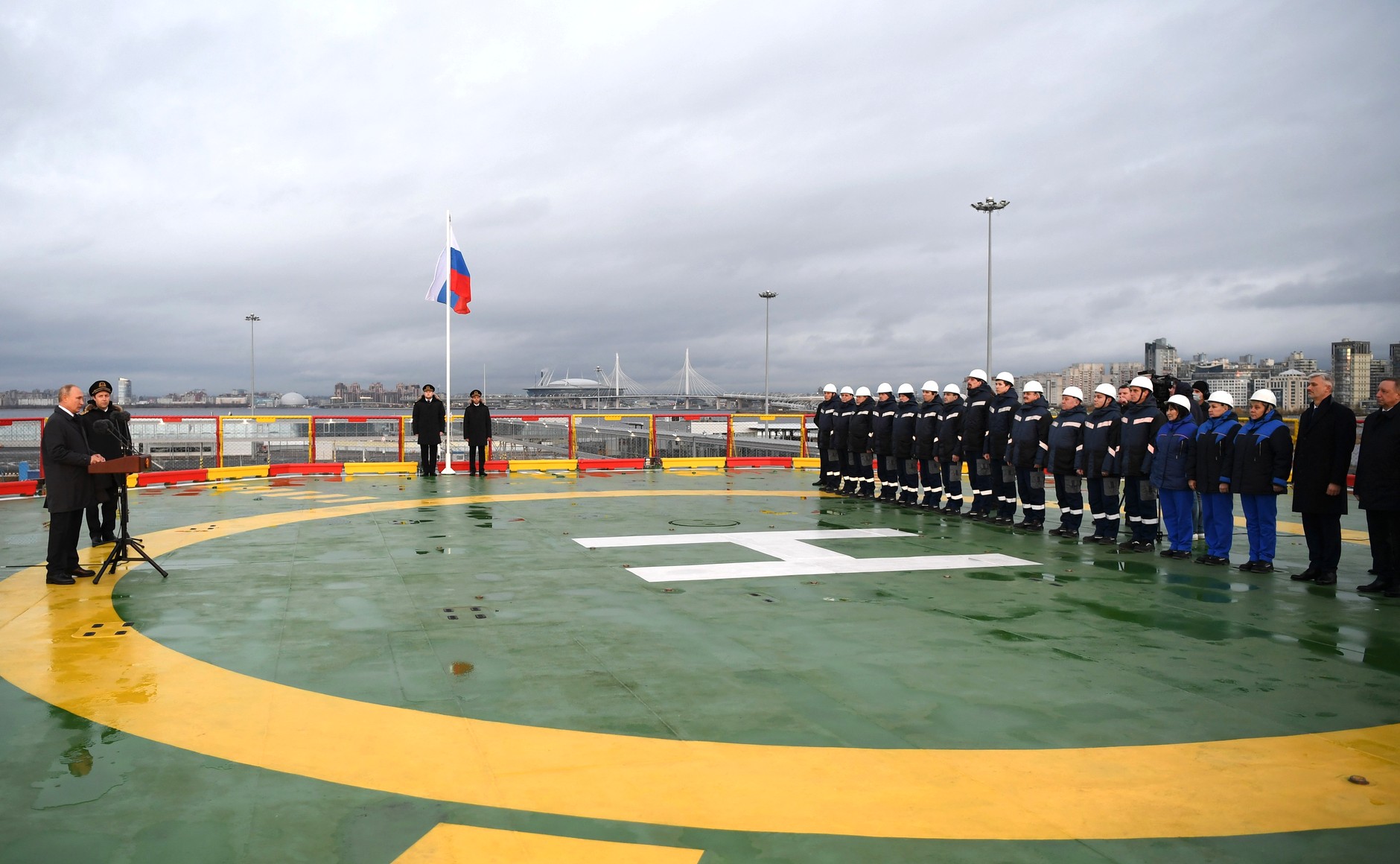 It is therefore symbolic that this modern and well-equipped icebreaker, which was named after him, was built by Russian shipbuilders at Russian shipyards. I would like to use this occasion to once again express our gratitude to all those who contributed to building it. 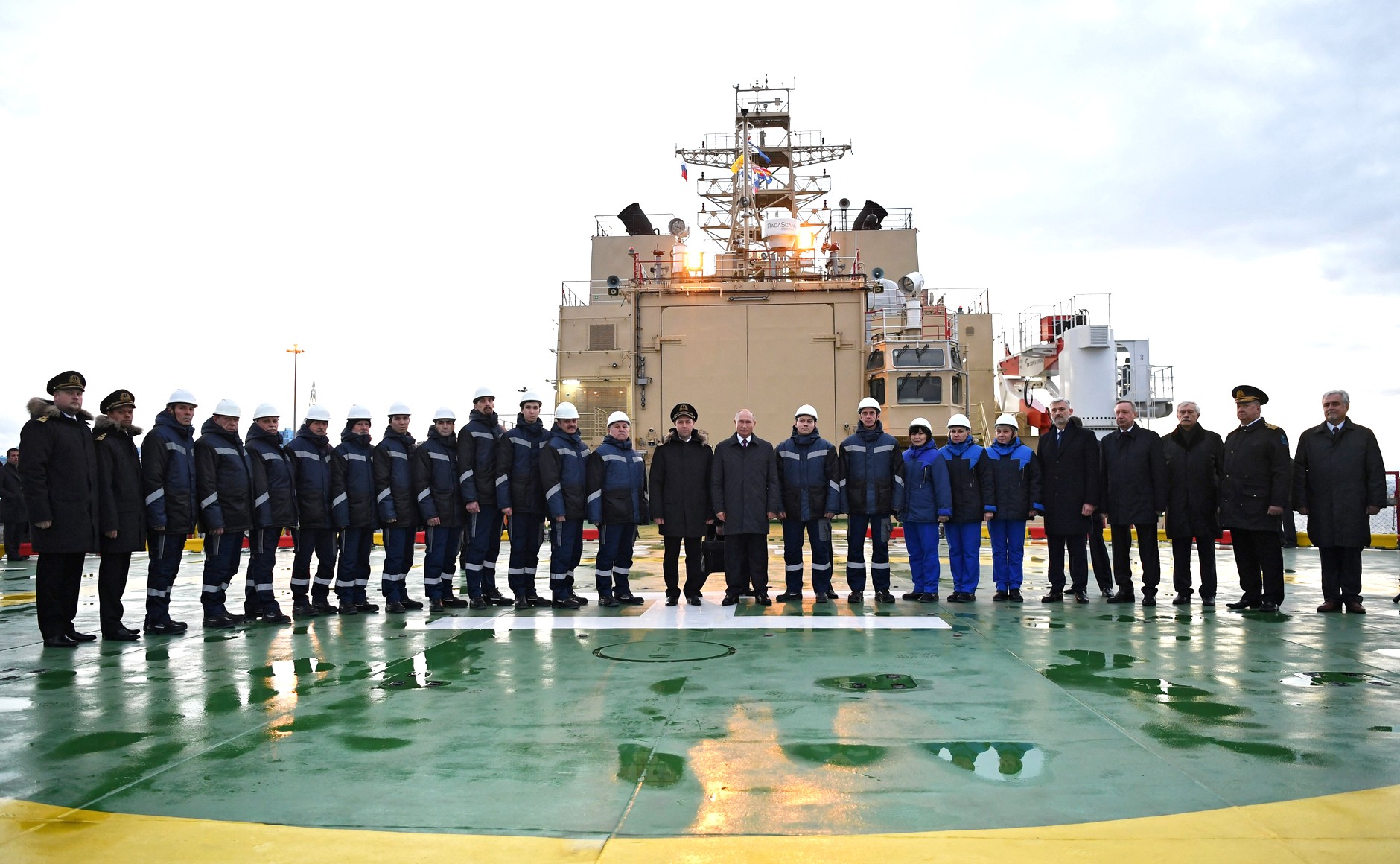 Thanks to you, the Russian icebreaker fleet has received a powerful vessel of a high ice class. These specifications allow us to use it for a variety of jobs but primarily to ensure navigation in the Gulf of Finland and on the Northern Sea Route. 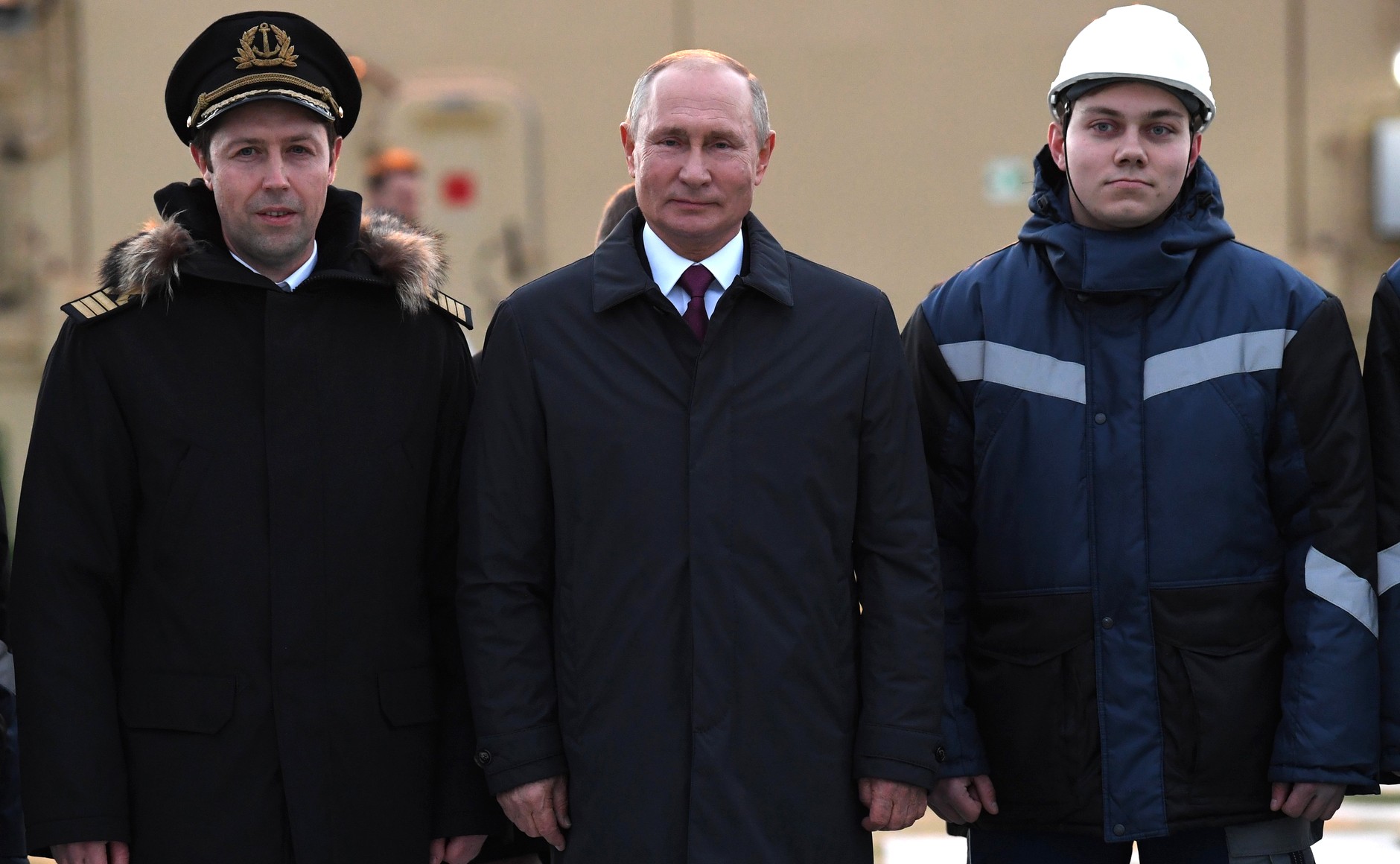 Such high-tech sea vessels that can work under low temperatures and in pack ice are especially important for Russia, a great polar power, and for implementing our strategic plans in the development of our northern regions and promising transport and logistics routes.  Friends, we have a unique icebreaker fleet, and we lead in Arctic development and research, as all of you are aware. But we must consolidate this leadership all the time and every day, by building up our position, strengthening and renewing our fleet and implementing new technology in the construction of icebreakers and other ice-class vessels.  Work is already underway on several series of diesel and nuclear-powered icebreakers, which are unmatched in the world. The future belongs to them, and I am confident that our talented shipbuilders are ready for pioneering work, for finding and implementing daring technical solutions, and I know they will certainly attain all the objectives set before the country. 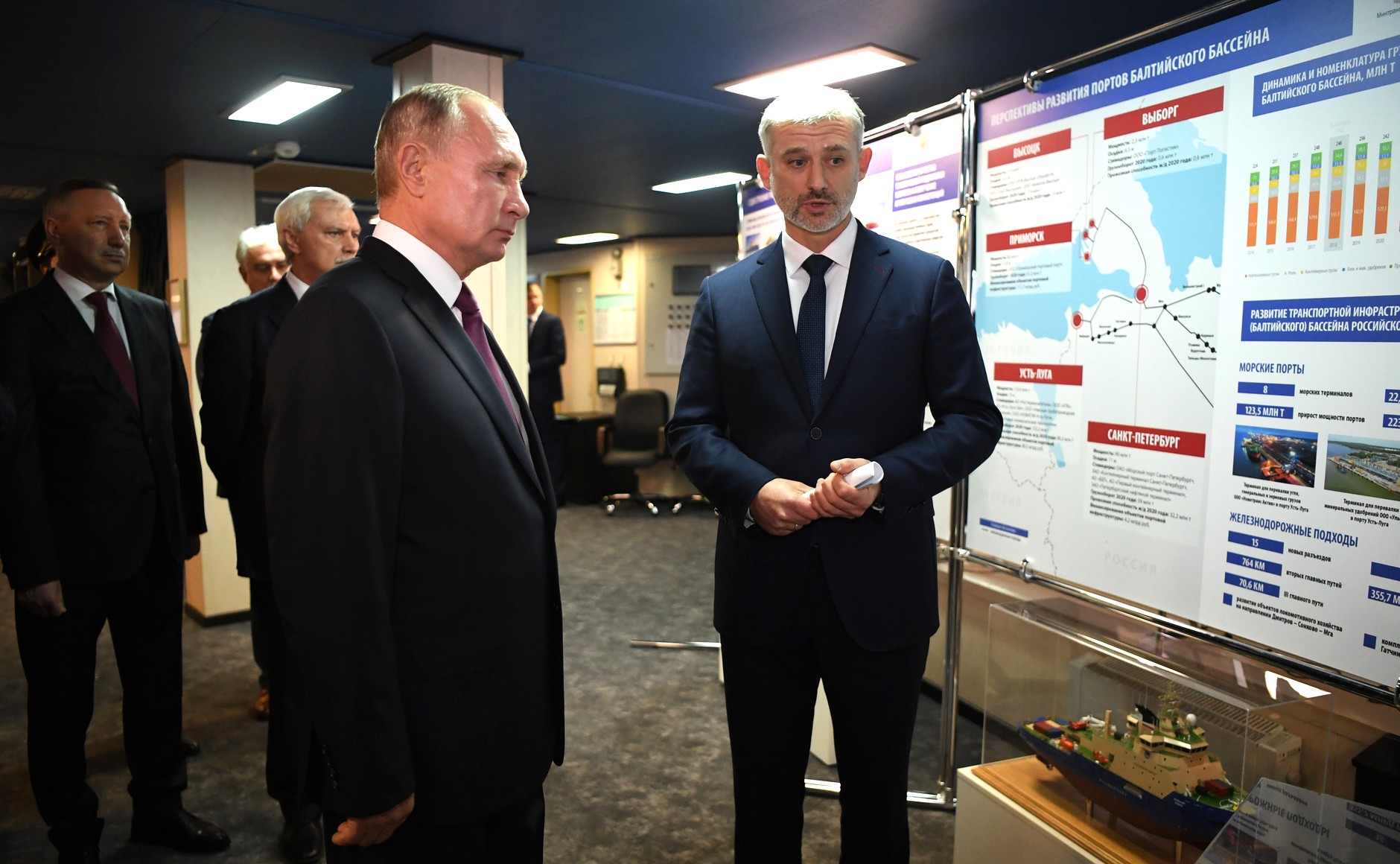 I would like to wish everyone great success and, of course, productive work to the crew of the icebreaker Viktor Chernomyrdin.  Thank you, and good luck. The source of information - http://en.kremlin.ru/events/president/news/64324 Meeting with St Petersburg Governor Alexander Beglov Vladimir Putin met with St Petersburg Governor Alexander Beglov aboard the new Russian diesel-electric icebreaker Viktor Chernomyrdin. They discussed issues of countering the coronavirus and prospects for developing the metro in the city. November 3, 2020 - 18:40 - St Petersburg 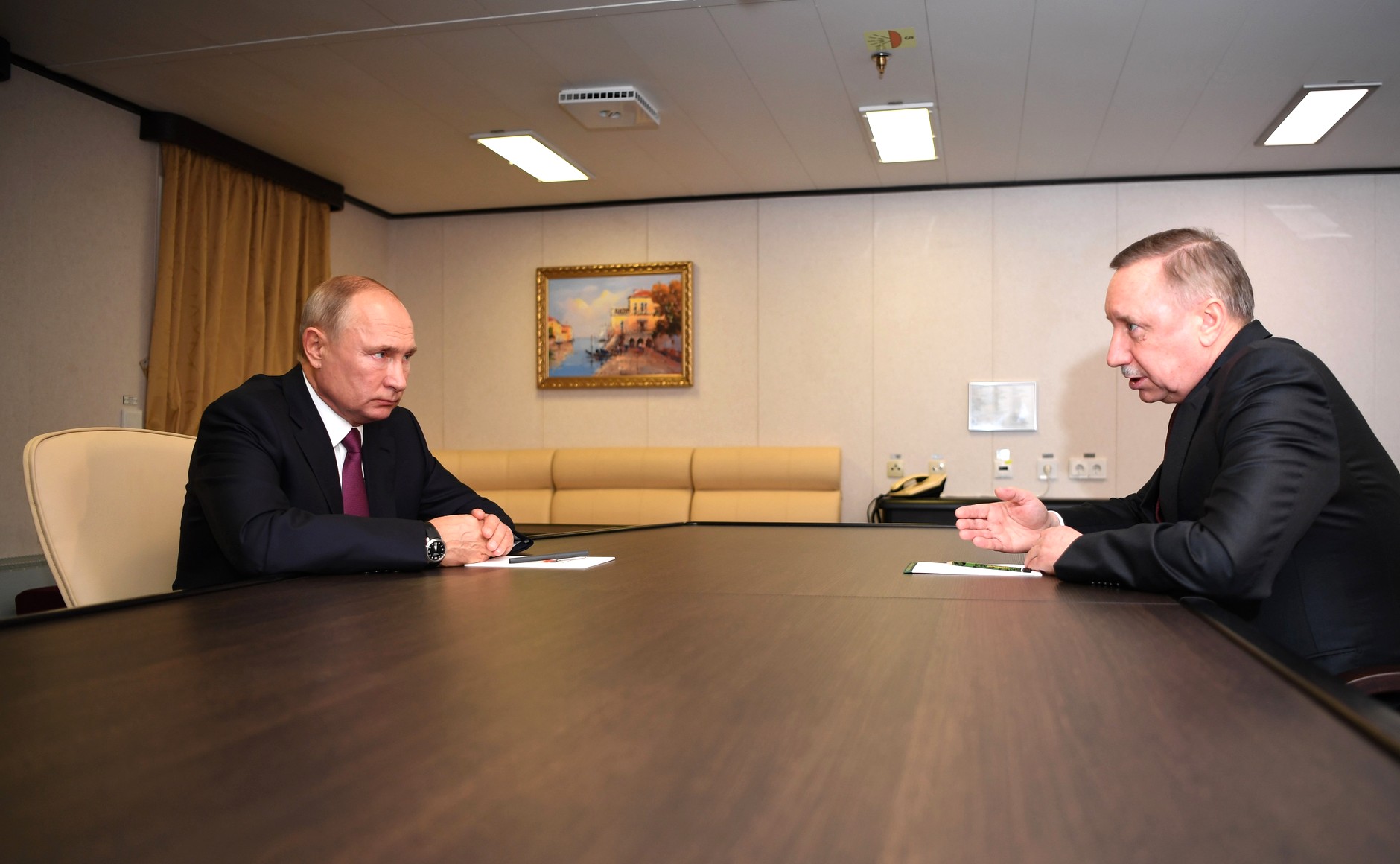 Alexander Beglov thanked the President for the tangible support in countering the coronavirus. On the President’s instructions, the Government of the Russian Federation allocated 21 billion rubles to the city for this purpose. This sum was used to pay benefits to doctors, and to purchase medications, equipment and personal protection gear. In addition, almost 31 billion rubles were allocated to St Petersburg, as well as other regions, for social support, notably, for families with children, teachers, pensioners and social workers. 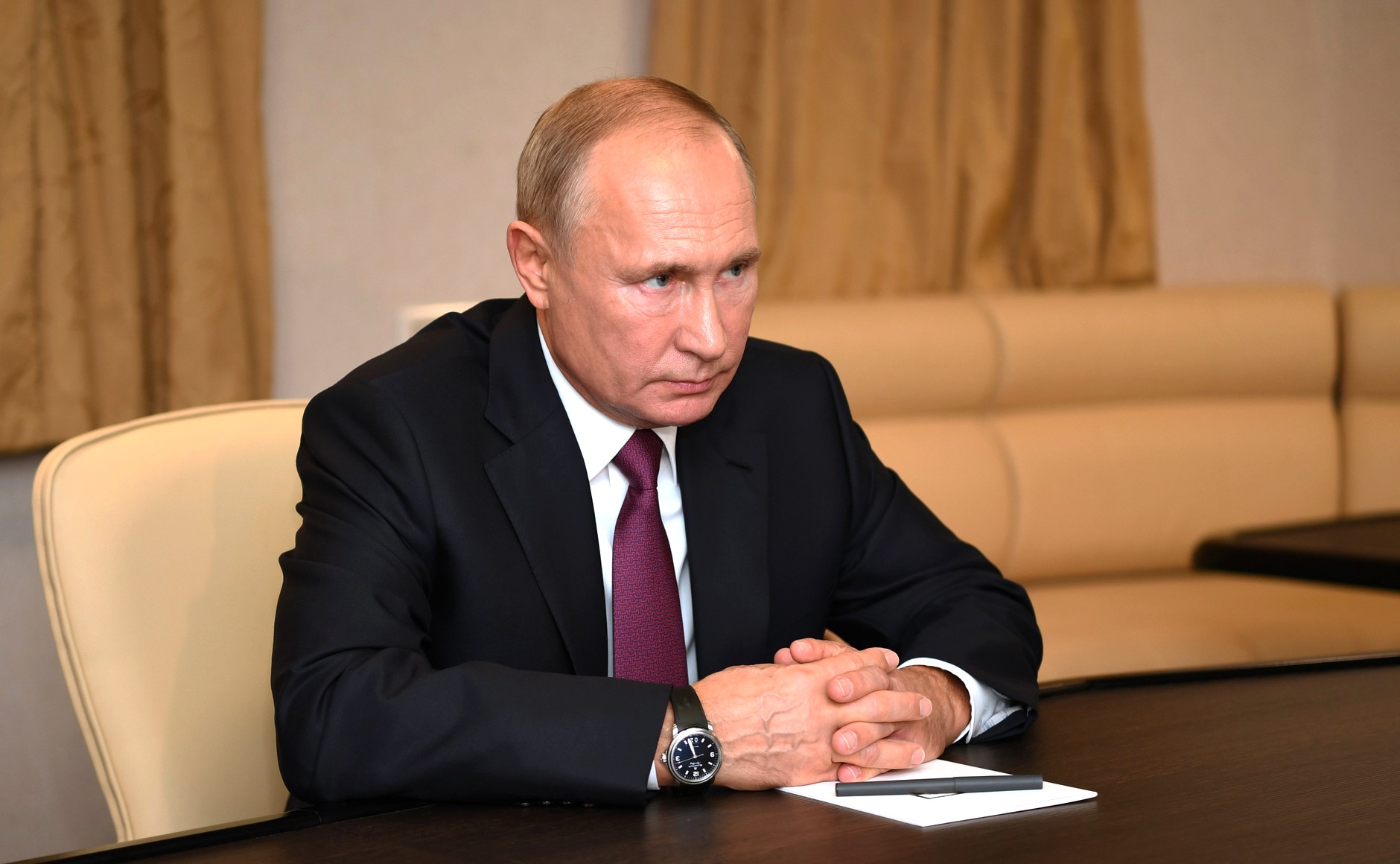 The Governor reported that about 64,000 people have been infected with the coronavirus in St Petersburg during the pandemic. Now the city has surpassed the threshold of 900 infections per day. Today, there are 21 hospitals and 7,913 COVID beds. Approximately 80 percent of the available beds are occupied. The construction of four new convertible inpatient facilities was started in June. They will be put into service in December, increasing the bed space by another 1,200 beds. 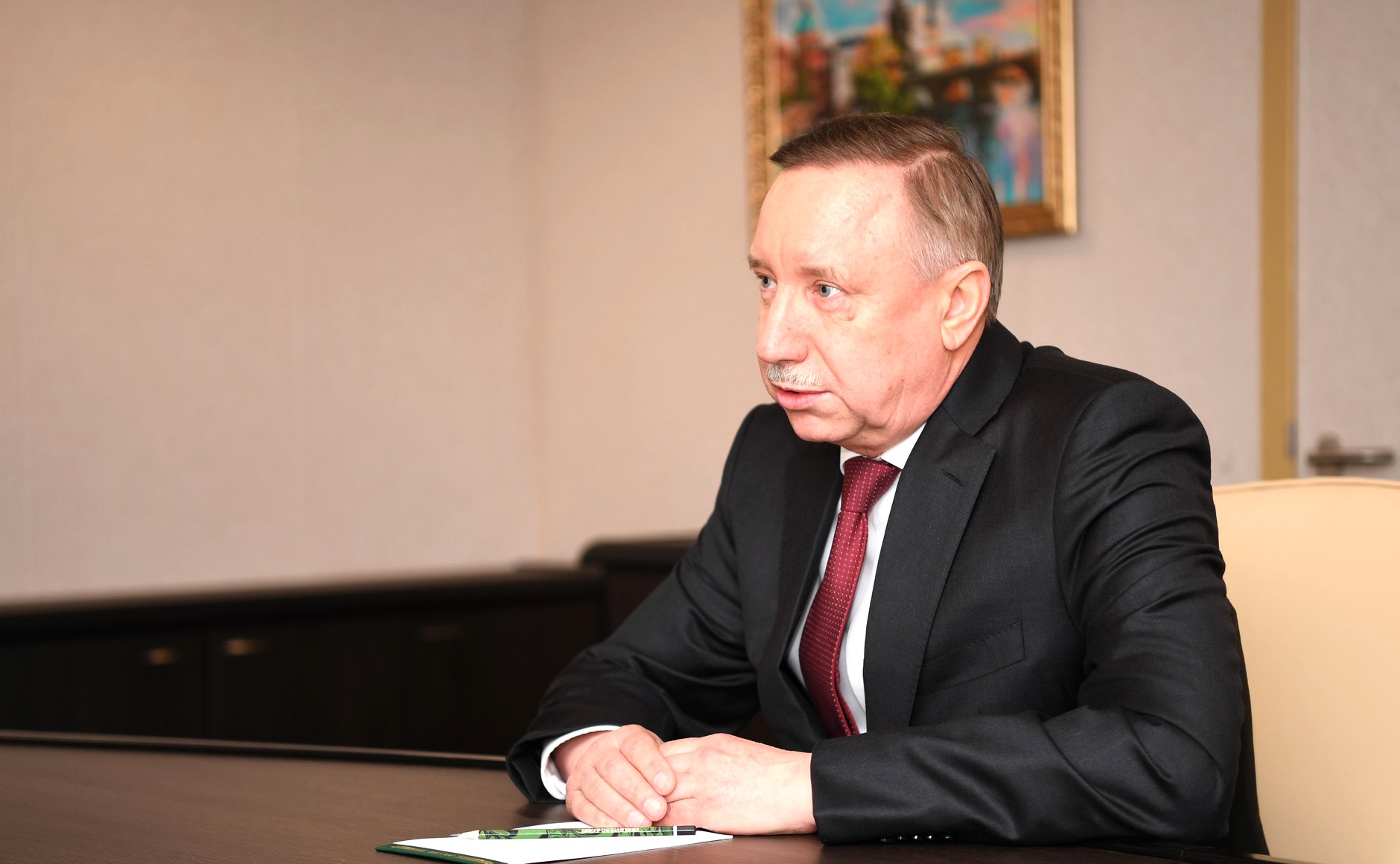 The President and the Governor also discussed metro construction. Metrostroy, the city’s general contractor for underground railway projects, is on the verge of bankruptcy. The city holds 25 percent of the company and has little to do with managing its assets, most of which belong to private owners. A solution was found with assistance from VTB Bank. It will transfer 65 percent of its shares to a newly established joint-stock company free of charge, and the city’s metro projects will not be interrupted. Governor Beglov thanked the President for his assistance in resolving these problems. The source of information - http://en.kremlin.ru/events/president/news/64325 Meeting with Chairman of USC Board of Directors Georgy Poltavchenko The President discussed urgent issues in shipbuilding with Chairman of the Board of Directors of the United Shipbuilding Corporation (USC) Georgy Poltavchenko. The meeting took place aboard the new diesel-electric icebreaker Viktor Chernomyrdin. November 3, 2020 - 19:00 - St Petersburg 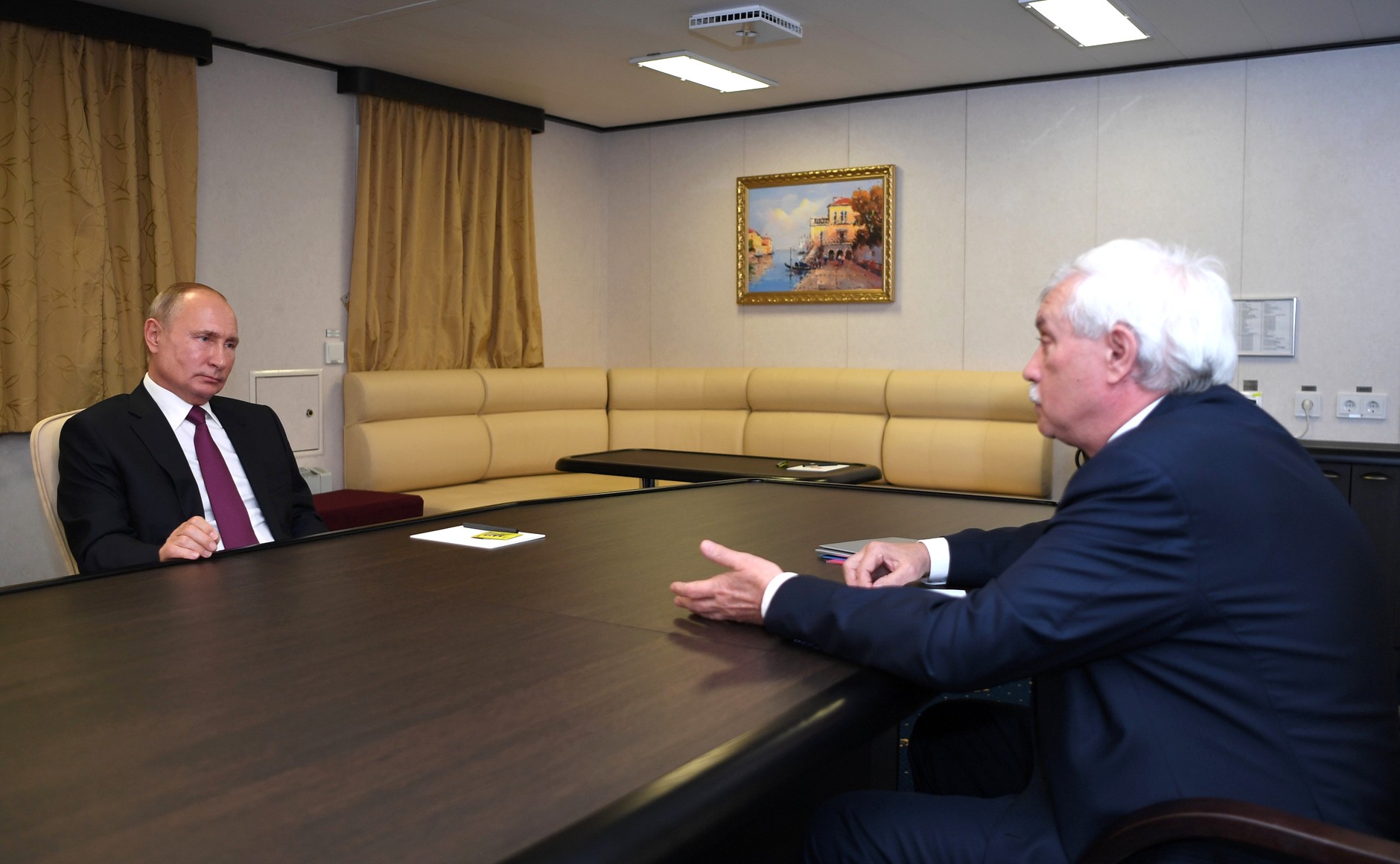 President of Russia Vladimir Putin: How is the company doing? Chairman of the USC Board of Directors Georgy Poltavchenko: Thank God, Mr President. First, I would like to thank you on behalf of not only our company but also the entire defence industry. Do you remember that over a year ago I reported to you that there were problems with old debts that were nearly impossible to repay? You then instructed the Government to support us and the defence industry as a whole. Now we are receiving these allocations, and they are of great help in reducing the financial load. Thank you very much. Today, I am happy to report that we are commissioning this great icebreaker and that, in general, the goal of increasing the output of civilian products, which you set for us, is being accomplished. Of course, there are difficulties with the current economic situation in the world, but I can say that today we are carrying out 113 civilian construction contracts worth about 503 billion rubles. This year we will fulfil 19 orders and have already completed 11. I believe we will fulfil the programme for this year. In principle, we also believe that we will fulfil our obligations in the years ahead despite the problems. There are some problems that basically make our life a bit more difficult. These include the sanctions that are being imposed on us by our so-called partners. Vladimir Putin: Components. Georgy Poltavchenko: Yes, and this is making it much more difficult to get the needed components. We have to find the solutions to many problems here at home. In principle, I can say that this is also probably helpful. Thus, last month we commissioned the Arktika nuclear-powered icebreaker: the domestic content of that ship is basically 93 percent. Together with our allied suppliers we had to restore certain competences, which we did. The icebreaker passed the tests successfully. I think this is a good sign for all of us, that we can and must cope with the many problems that our friends are creating for us out of nowhere. So, in this context I would like to report to you that we have no difficulties. There are of course coronavirus-related problems. Regrettably, some of our workers have to reduce output where outbreaks occur. You know that during the last wave we had problems in Severodvinsk, but now they are being resolved. And in general… Vladimir Putin: Are your plants operating? 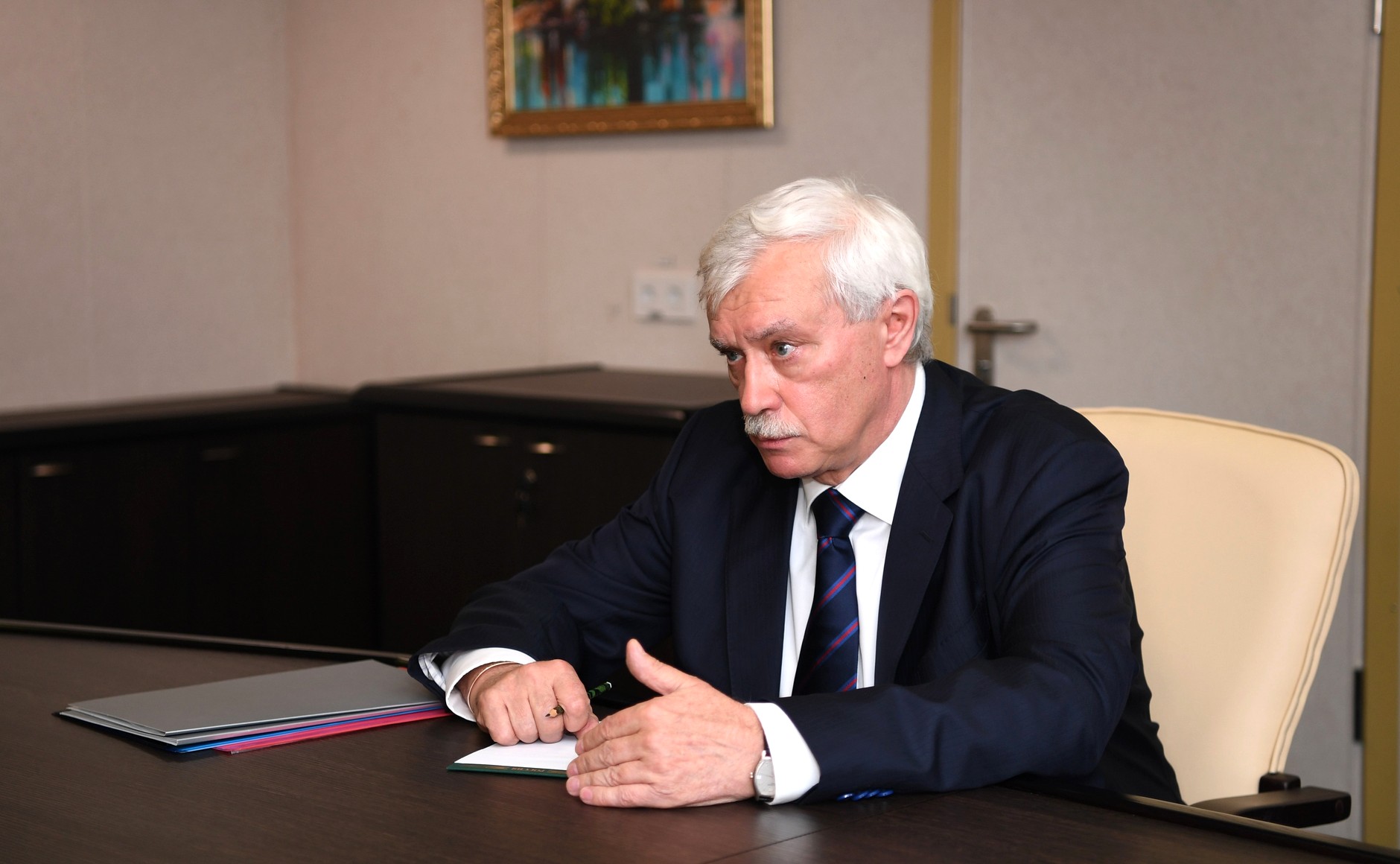 Georgy Poltavchenko: The plants are operating. We have about 97,000 workers in the corporation. People have a positive outlook, they earn good salaries. The average for the USC is about 62,000 rubles. Vladimir Putin: Are you introducing any sanitary measures? How is this going? Georgy Poltavchenko: We have had plans for this since the spring. Of course, it is a plan on paper, but it is being carried out. Temperature is checked at the entrance, and during working hours people use individual protection gear. Workers with elevated temperature or any signs of illness are not allowed to work or come in contact with other employees. The majority of people are responsible enough to observe these basic measures of health safety. Vladimir Putin: Are the workloads at your companies high? 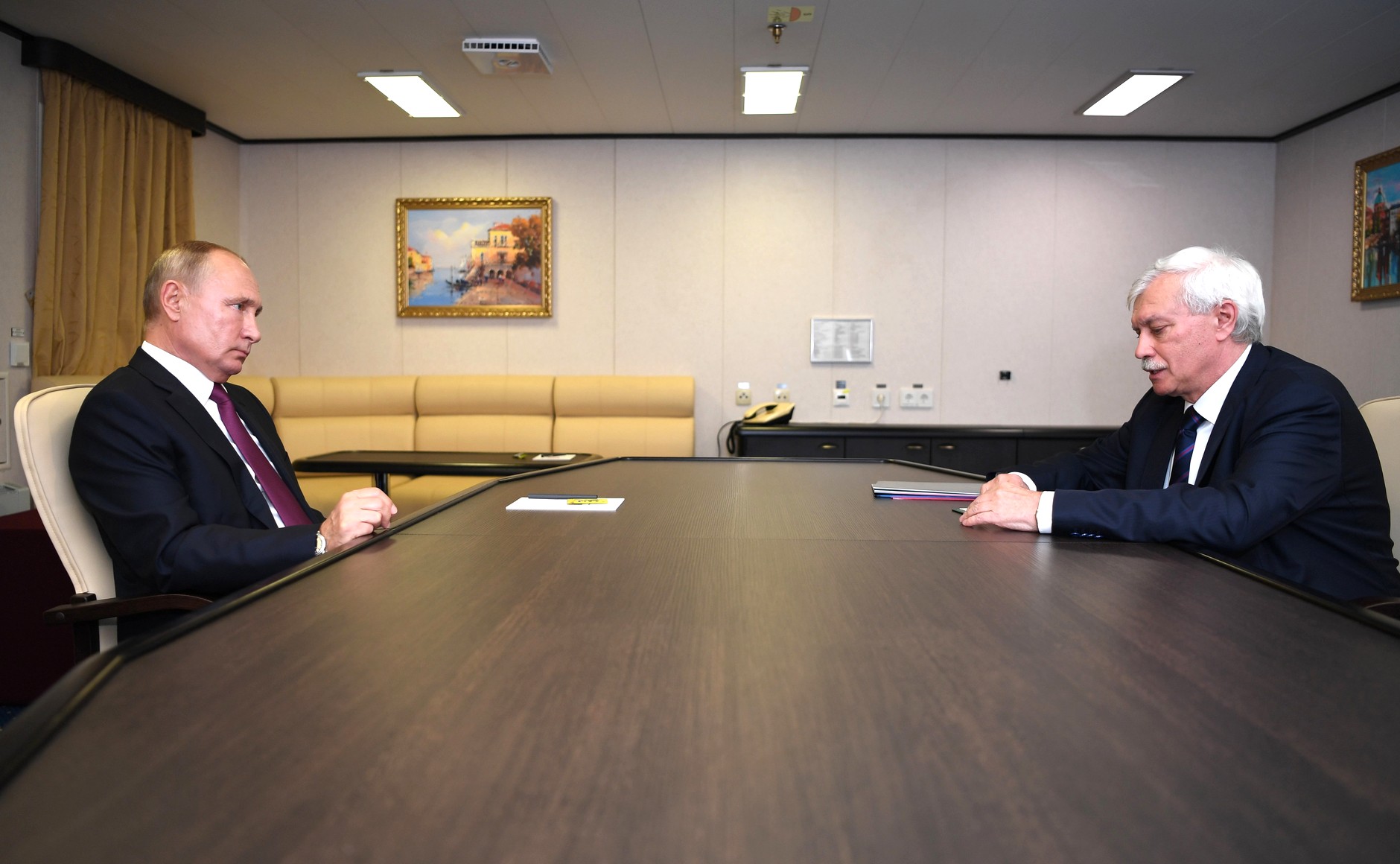 Georgy Poltavchenko: Yes, workloads are very high. In fact, some of our companies that would ordinarily be ready to fulfil certain orders are not bidding in tenders because they cannot meet the deadlines. They are so loaded that they cannot guarantee beginning construction on schedule. As I said, we are now working on 113 civilian orders. Understandably, we are very much involved in carrying out the state defence order. This year we will commission 18 products for our Naval fleet and today almost all our berths are occupied. Building berth capacity is one of our problems. As for the problems – and these can always be discussed at length – they do exist. I reported to you about them last time. Thank you for also supporting our request at that time. You instructed the Ministry of Industry and Trade to draft a programme for building new docks. This is really a serious problem (especially as regards floating docks). It impedes our current work because the average age of the floating docks in our industry is about 50 years or more. Naturally, this creates certain difficulties in our activities. And the fact that we are about to develop a dock programme and we will carry it out, will help mightily. Vladimir Putin: You mentioned problems. There are several, of course, but the main three problems concern prices, deadlines and quality. How are your relations with your main customers? Georgy Poltavchenko: This is always a challenge, Mr President, naturally. After all, we are a joint-stock company and one of our objectives is to make a profit. However, the state is facing more important goals. It must have modern fleet – both military and civilian. So we are always trying to strike a balance in our relations with our customers and maybe sometimes we have to sustain a small loss because our profit margins are already fairly low. However, we won’t quote figures because this is our business. As for quality, today the corporation is actively improving it and reducing losses because this naturally results in lower prices. I must say that we have done and are doing a lot in this respect. In part, we are trying to find reliable suppliers because in many respects our work and meeting deadlines depend on suppliers.  Vladimir Putin: Subcontractors. Georgy Poltavchenko: Yes, any delay in the supply of components naturally extends the construction schedule and makes it more expensive, no matter what you do. So, at this point, we have established a group of suppliers. These are trusted companies that have historically a good record of cooperation with us. We generally hold tenders among them, and we coordinate these procedures primarily with the Defence Ministry. I am referring to the state defence order in this respect. By doing this, we save tens of billions of rubles every year. Our savings have been about 30 billion rubles. Vladimir Putin: All right. The source of information - http://en.kremlin.ru/events/president/news/64326
__________________
Where should they dig the Very Deep Pit? Piglet said that the best place would be somewhere where a Heffalump was, just before he fell into it, only about a foot farther on. (c) Alan Alexander Miln |
|
|
#145 |
|
Senior Member
|
Greetings on Rosoboronexport’s 20th anniversary
Vladimir Putin congratulated Rosoboronexport top officials, workers and veterans on the company’s 20th anniversary. November 4, 2020 - 09:00 The message reads, in part: “Throughout its existence, your organisation has made a considerable contribution to boosting Russia’s military technical cooperation with other countries, and has gained a unique experience in promoting Russian-produced armaments and military equipment in the global market. Rosoboronexport’s efficient activity is a major factor in developing numerous high-tech sectors of the national economy, which allows for quality modernisation of defence industry enterprises and creation of jobs for tens of thousands of Russian citizens. It is important to continue your effective work, improve the forms and methods of interaction with business partners, explore new promising markets, and expand international cooperation in the military technical sector. I am confident that Rosoboronexport personnel will continue to work effectively and make every effort to preserve our country’s leading positions in the global arms market.” The source of information - http://en.kremlin.ru/events/president/news/64330 Greetings on Udmurtia’s 100th anniversary Vladimir Putin sent greetings to residents of the Udmurt Republic on its 100th anniversary. November 4, 2020 - 09:30 The message reads, in part: “Throughout these years, many generations of local residents have written wonderful and glorious pages in the labour and military chronicle of our Fatherland, and made a huge contribution to the development of the country’s economy, science and education, as well as to the preservation of invaluable historic, cultural and religious heritage of our multi-ethnic nation. We will always remember the deeds of heroes who showed unparalleled valour and courage during the Great Patriotic War, and will feel proud of the outstanding achievements of those who brought honour to our Fatherland through their talents and relentless work during peacetime. Mikhail Kalashnikov, a renowned designer and a true patriot who developed the legendary rifle, was one of such pioneers, whose name is forever associated with Izhevsk, the capital of Udmurtia. I am confident that respect for the deeds and traditions of ancestors and a sincere commitment to making your homeland prosperous, as well as a responsible attitude to solving important and relevant tasks, will help you in all your initiatives and efforts to the benefit of the Republic and the whole of Russia.” The source of information - http://en.kremlin.ru/events/president/news/64334 Greetings on the 100th anniversary of Mari El Vladimir Putin sent greetings to residents of the Republic of Mari El on its 100th anniversary. November 4, 2020 - 10:00 The message reads, in part: “You feel rightly proud of your region’s history and numerous generations of local residents who made an enormous contribution to boosting the Republic’s industrial and agricultural potential and development of its science, culture and education by their creative and constructive work. And, of course, special words of gratitude and respect go to our esteemed war veterans in the year that marks the 75th anniversary of the Great Victory. I am certain that residents of the Republic will further cherish and develop their predecessors’ traditions, and use their energy and commitment to solve important and relevant tasks for the benefit of the Republic of Mari El and all Russia.” The source of information - http://en.kremlin.ru/events/president/news/64335 Laying flowers at the monument to Kuzma Minin and Dmitry Pozharsky Vladimir Putin laid flowers at the monument to Kuzma Minin and Dmitry Pozharsky on Red Square in a traditional ceremony to celebrate National Unity Day marked on November 4. November 4, 2020 - 12:30 - Moscow During the ceremony, the President had a brief conversation with young members of the Vympel military and patriotic centre and Russia’s Search Movement, who also attended the event.  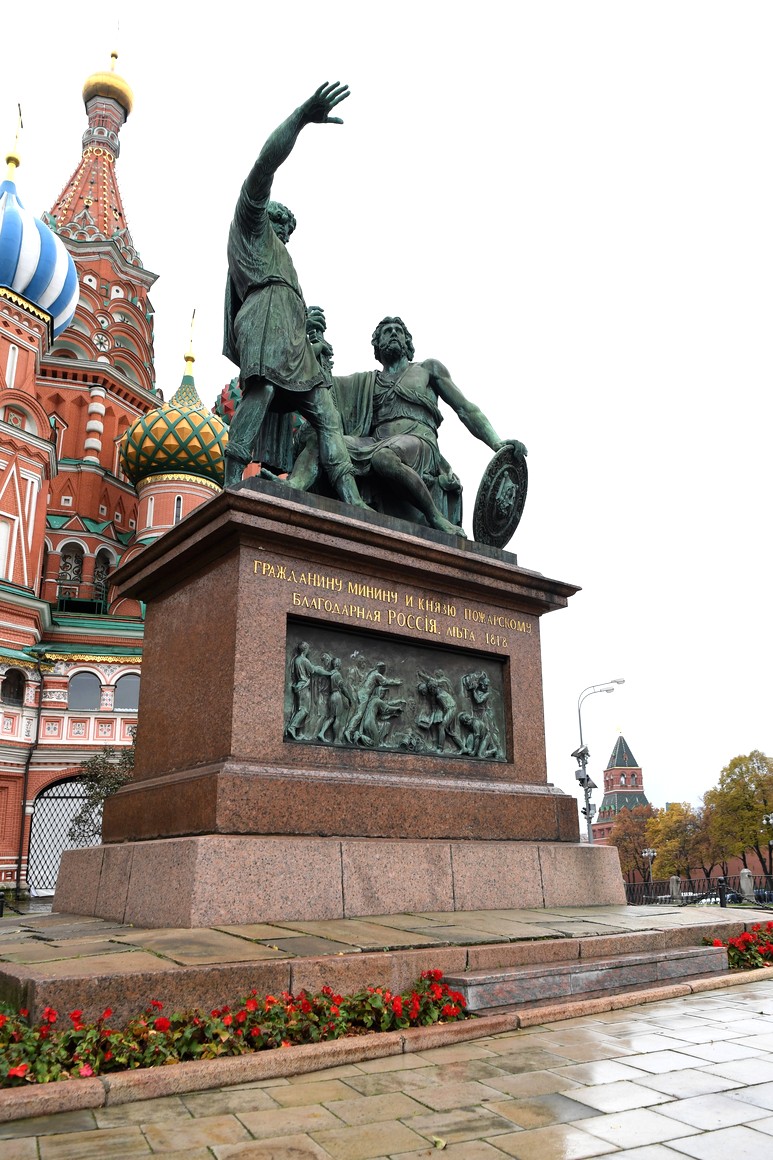 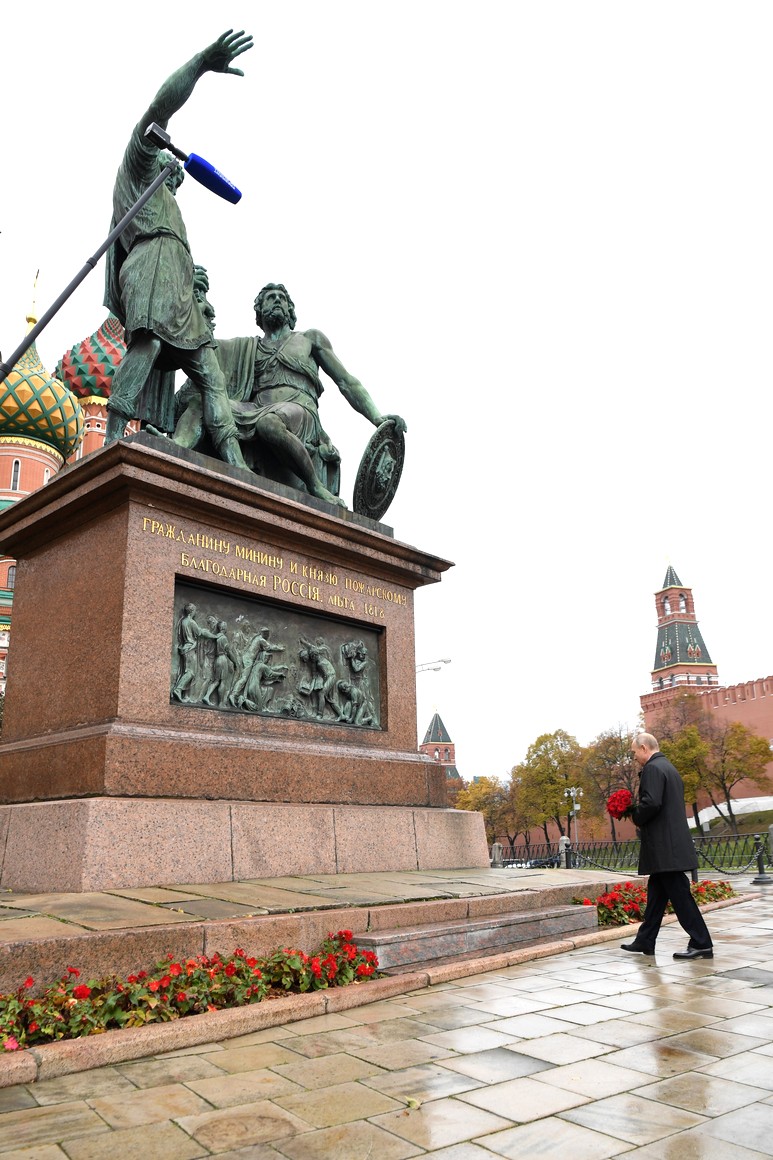  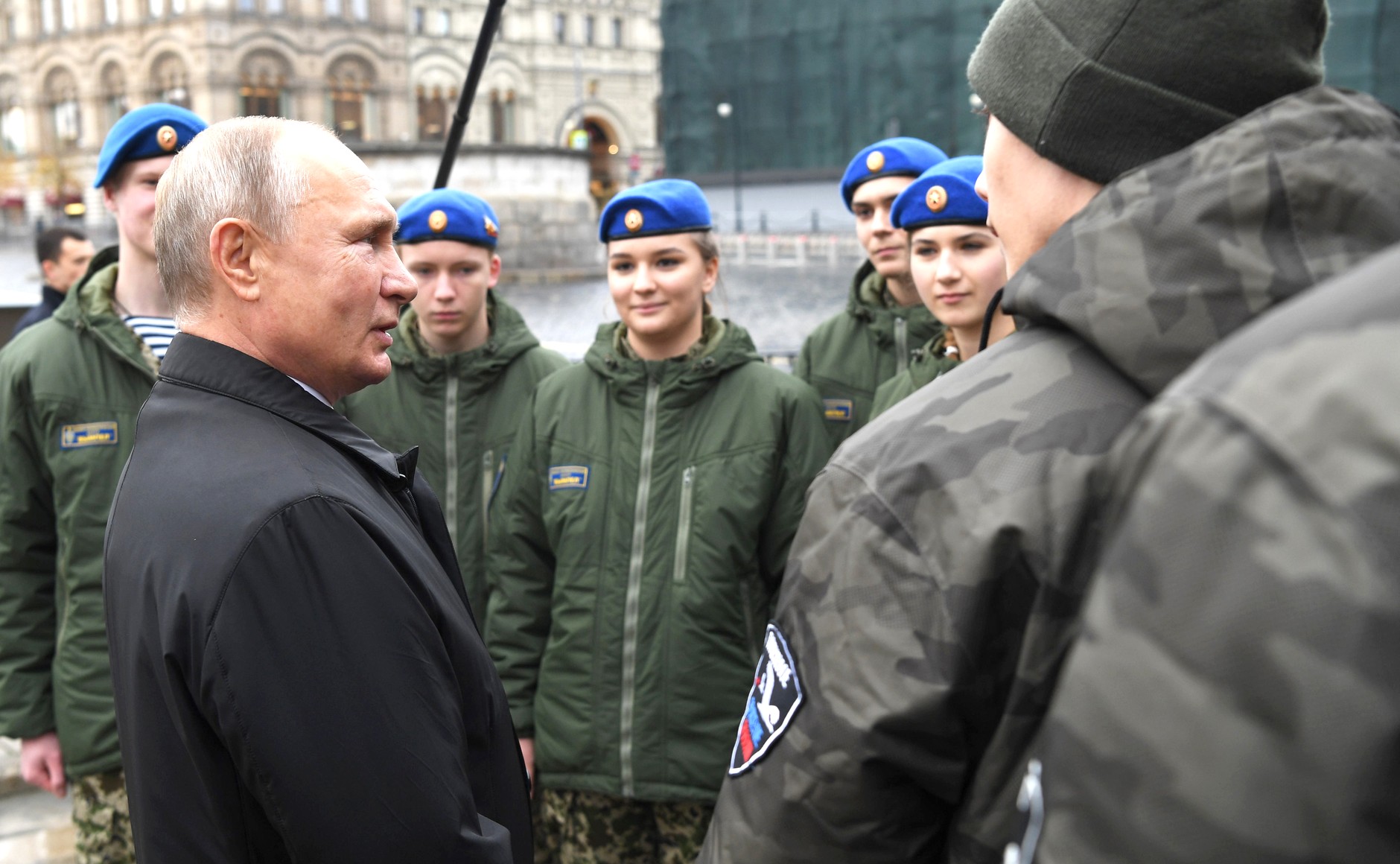 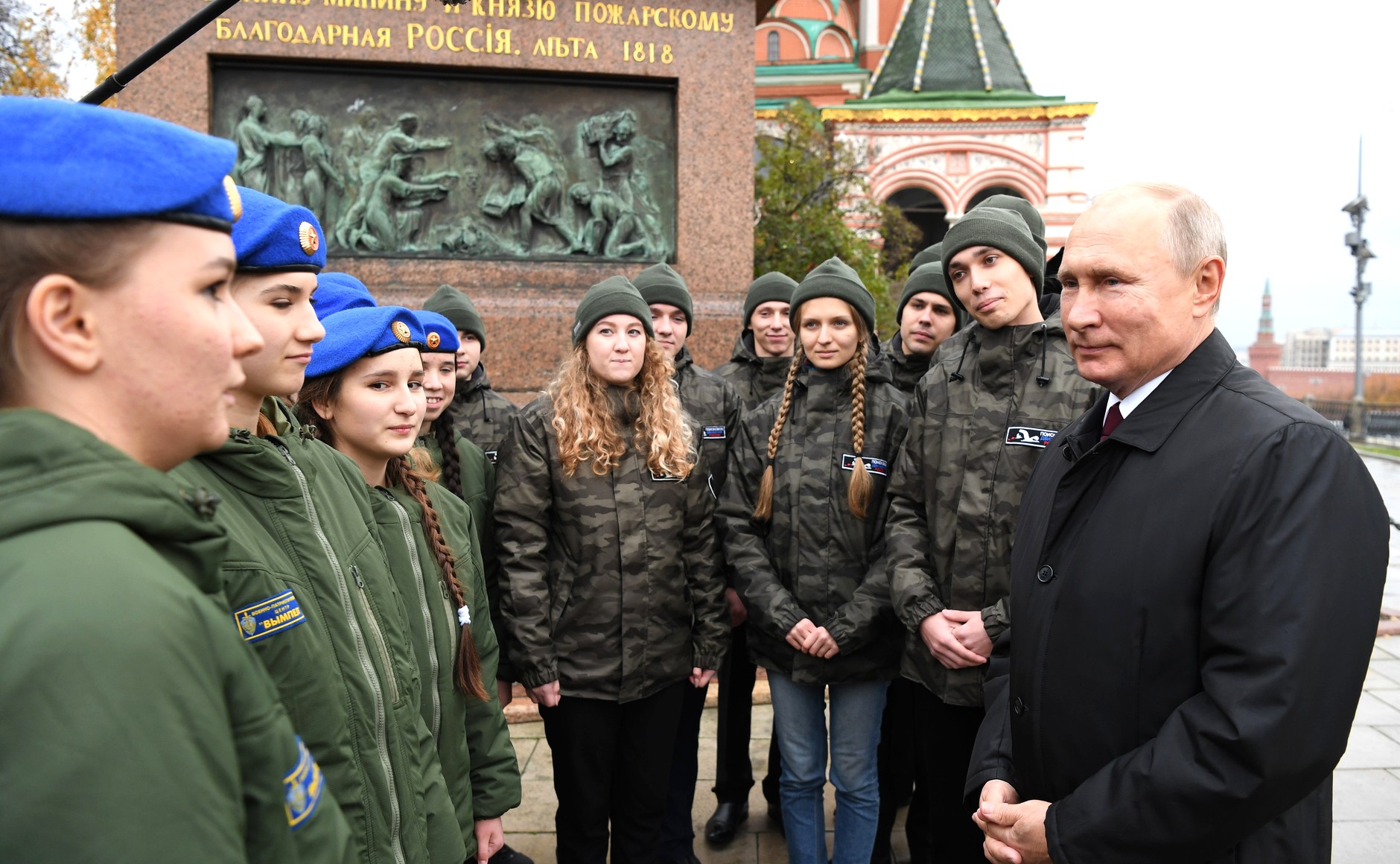 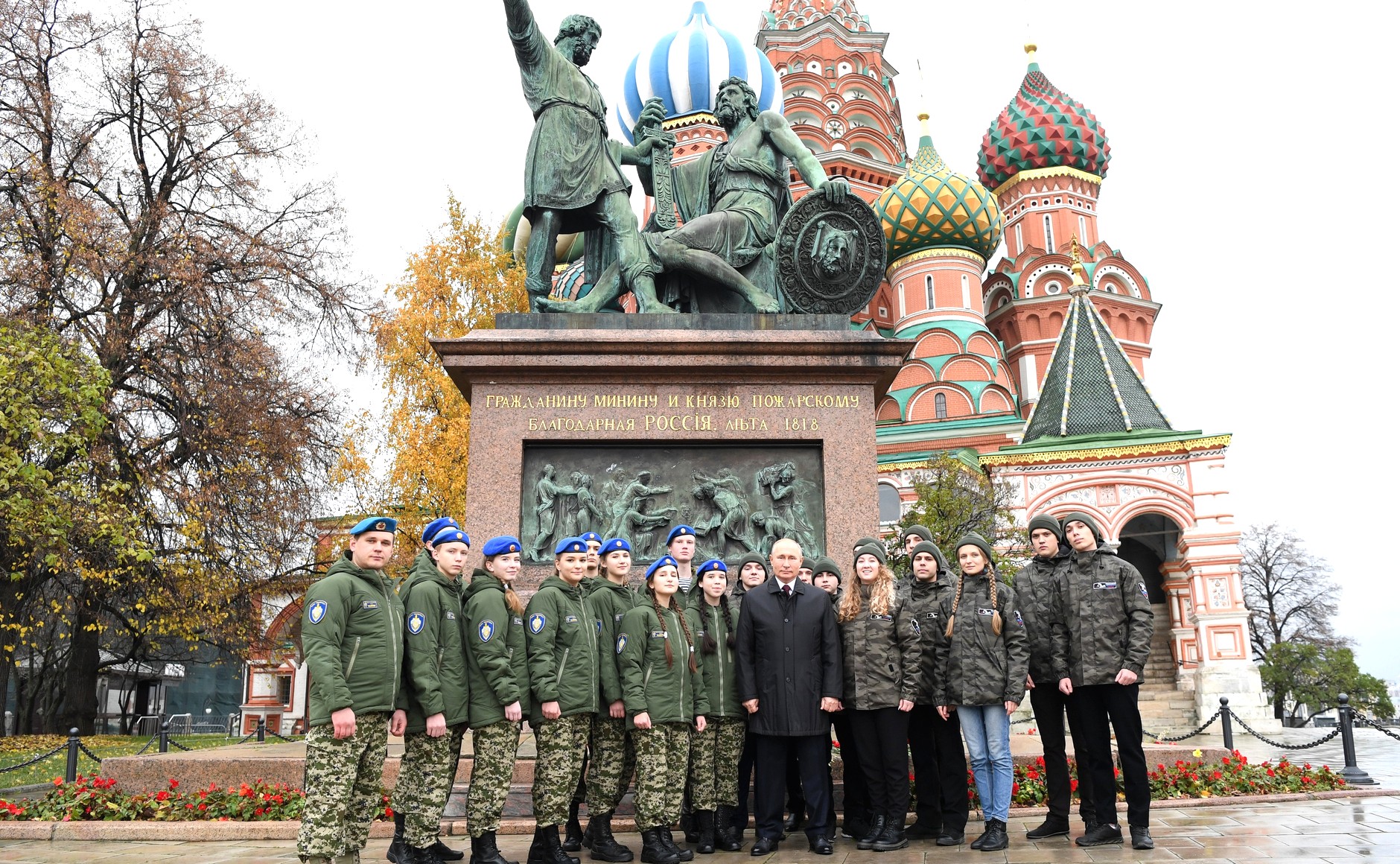 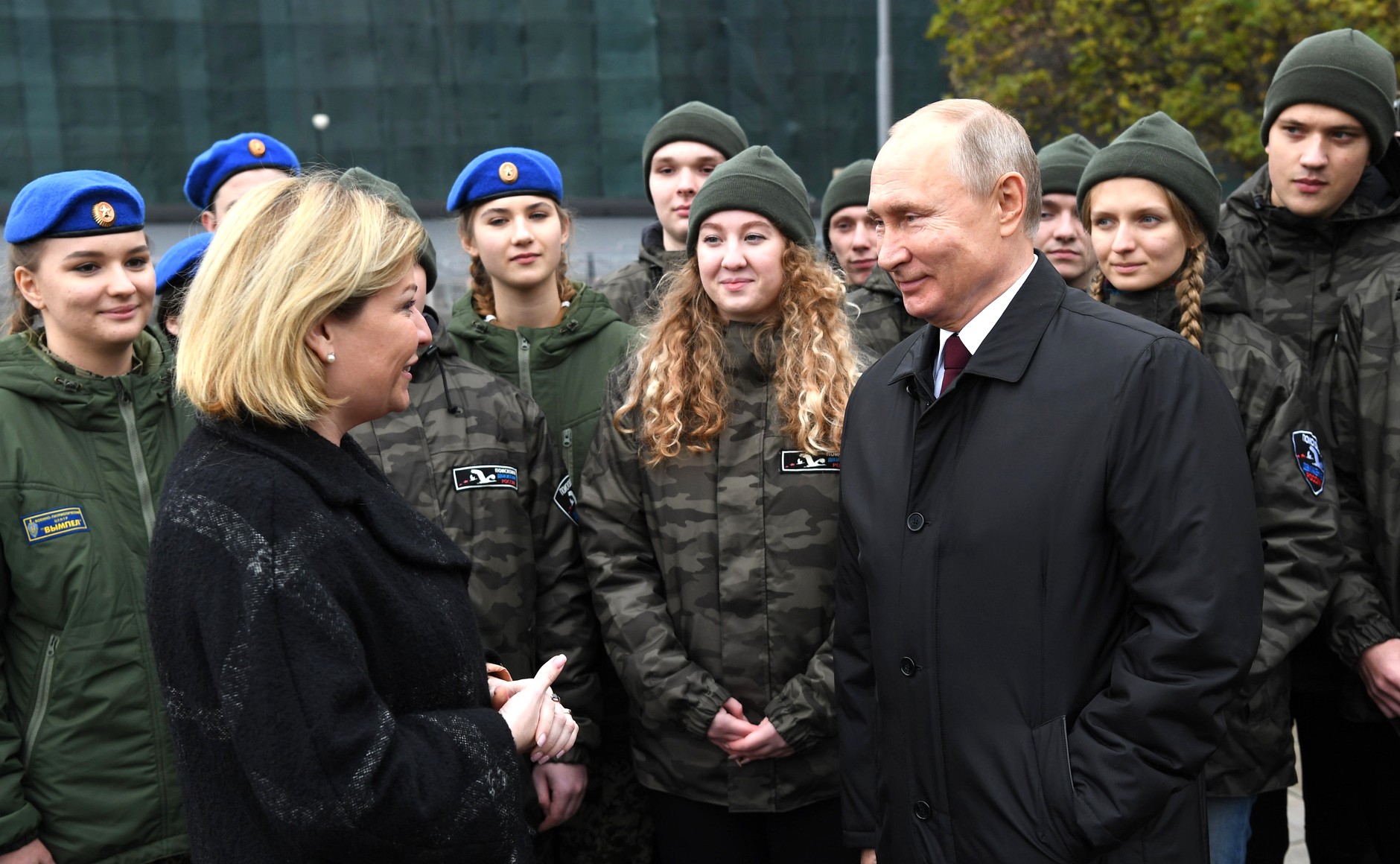 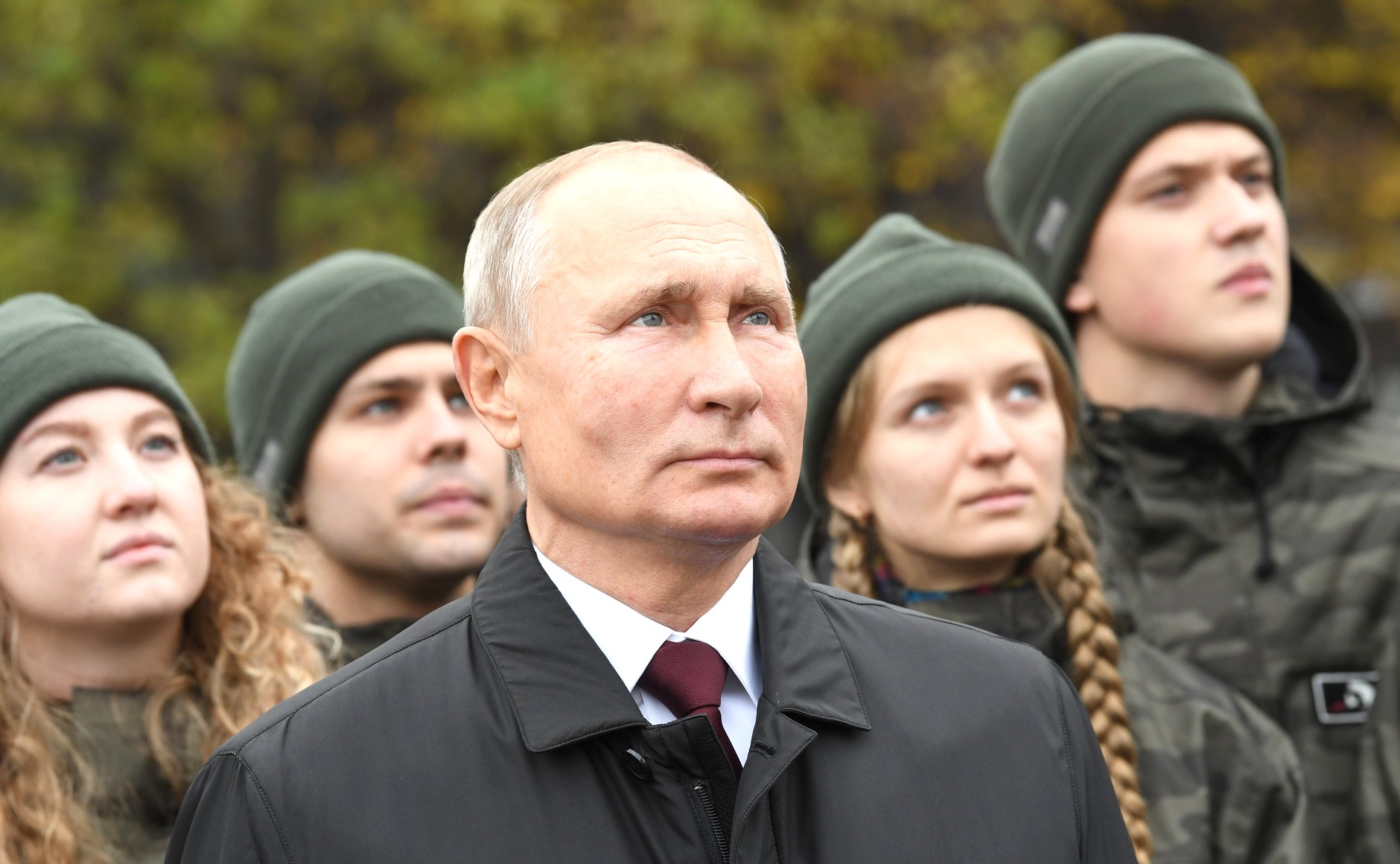  Following the ceremony, Vladimir Putin was shown the new bell-tier of the Spasskaya Tower. Works on equipping it with a number of new bells have been taking place since 2017. The Spasskaya Tower clock and chimes were stopped in October 2020 to install and finetune the new bells. The Kremlin Chimes have now resumed work on National Unity Day. The bells will continue to ring out the Anthem of Russia and Glory, but using a new full-octave. The source of information - http://en.kremlin.ru/events/president/news/64332 Visit to Chudov Monastery Archeology Museum Vladimir Putin toured the new Museum of Archeology in the Chudov Monastery, whose display space is organised underground on the site of the dismantled 14th Moscow Kremlin Corps. November 4, 2020 - 13:00 - The Kremlin, Moscow 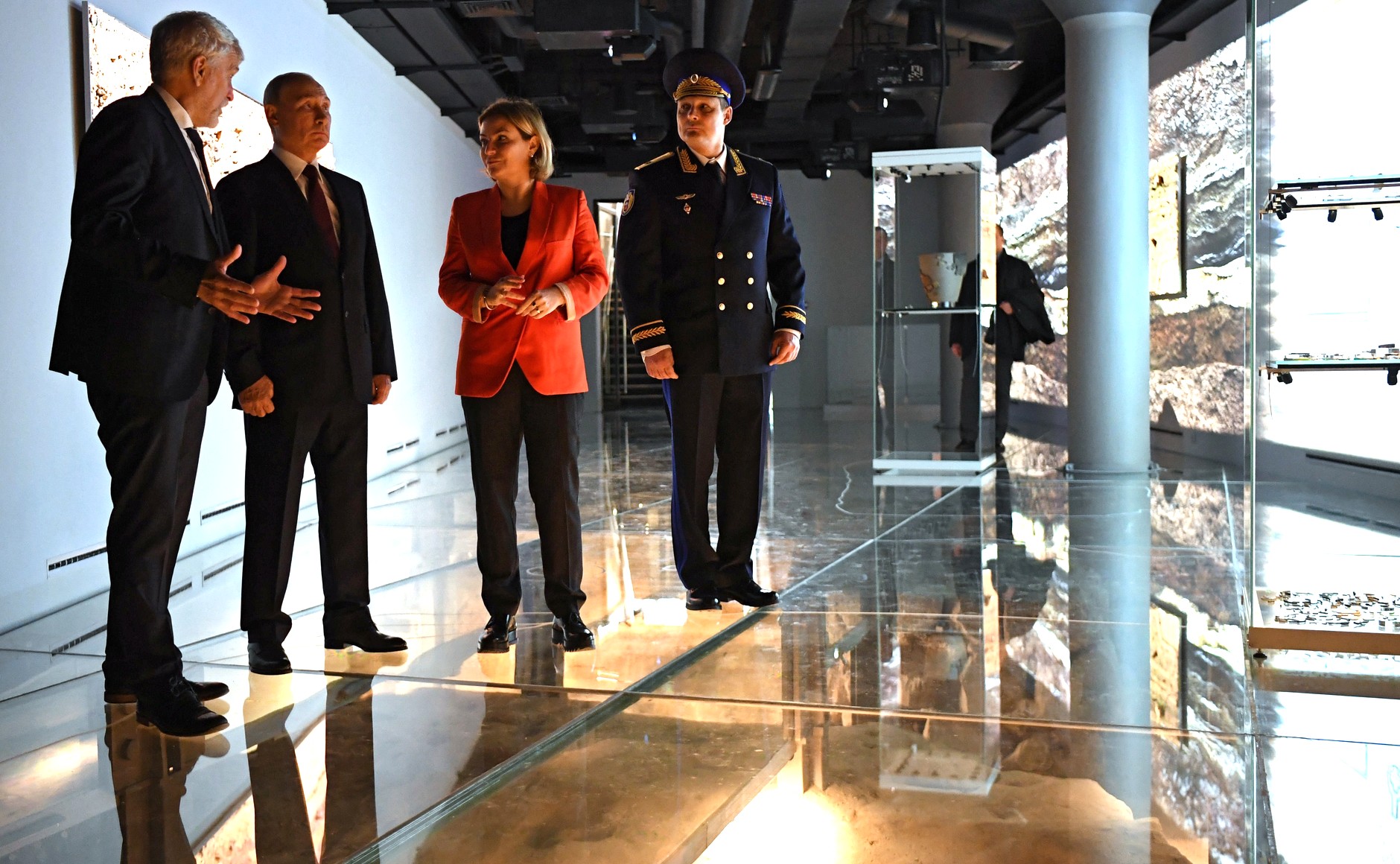 The new museum space was organised in the basement of the former administrative building, where researchers from the Institute of Archeology of the Russian Academy of Sciences have unearthed unique cultural deposits and remains of buildings dating back to the 12th – early 13th centuries when Moscow was coming of age and fragments of monastic buildings of the 14th – 16th centuries, which are monuments of early Moscow stone architecture. 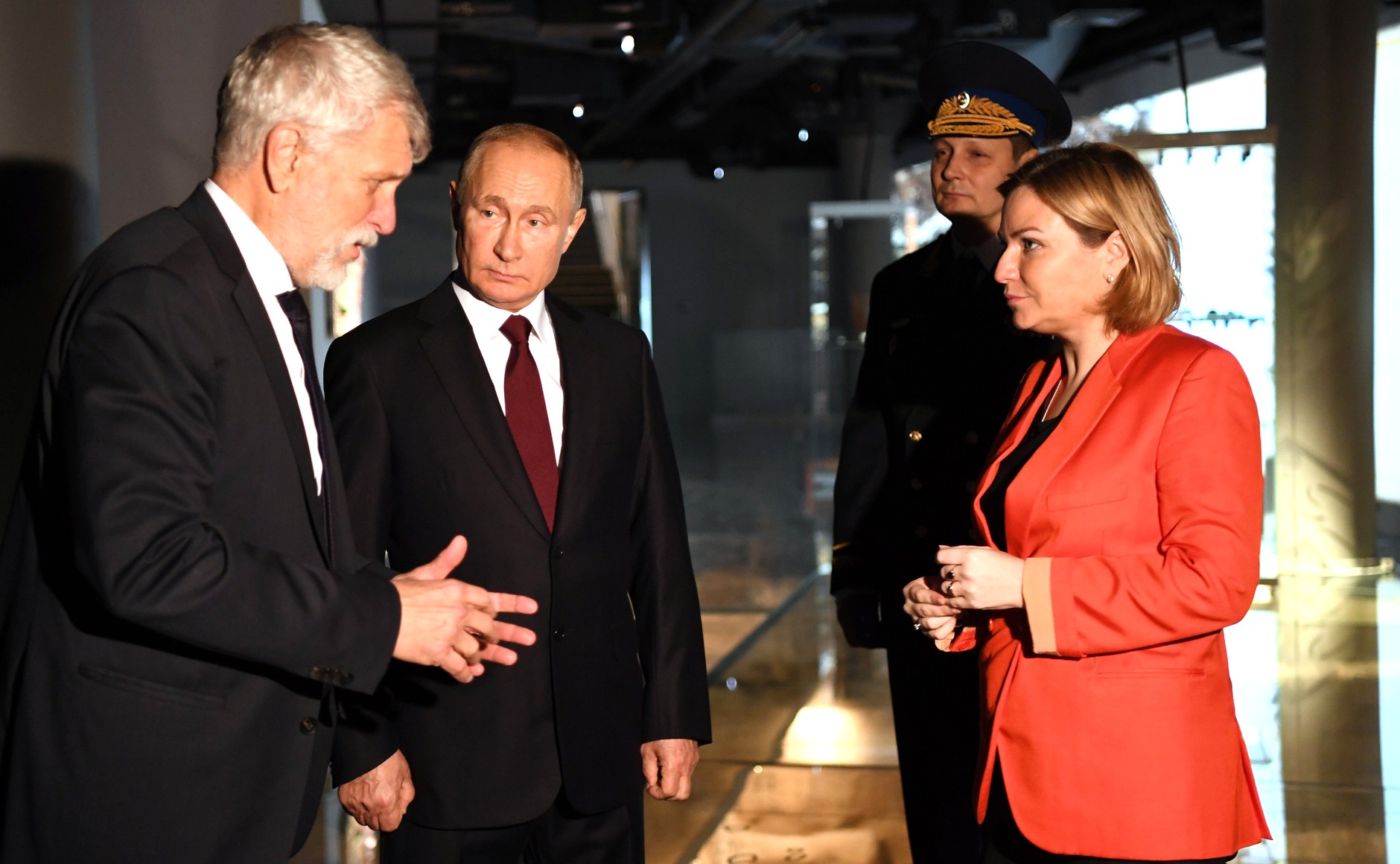  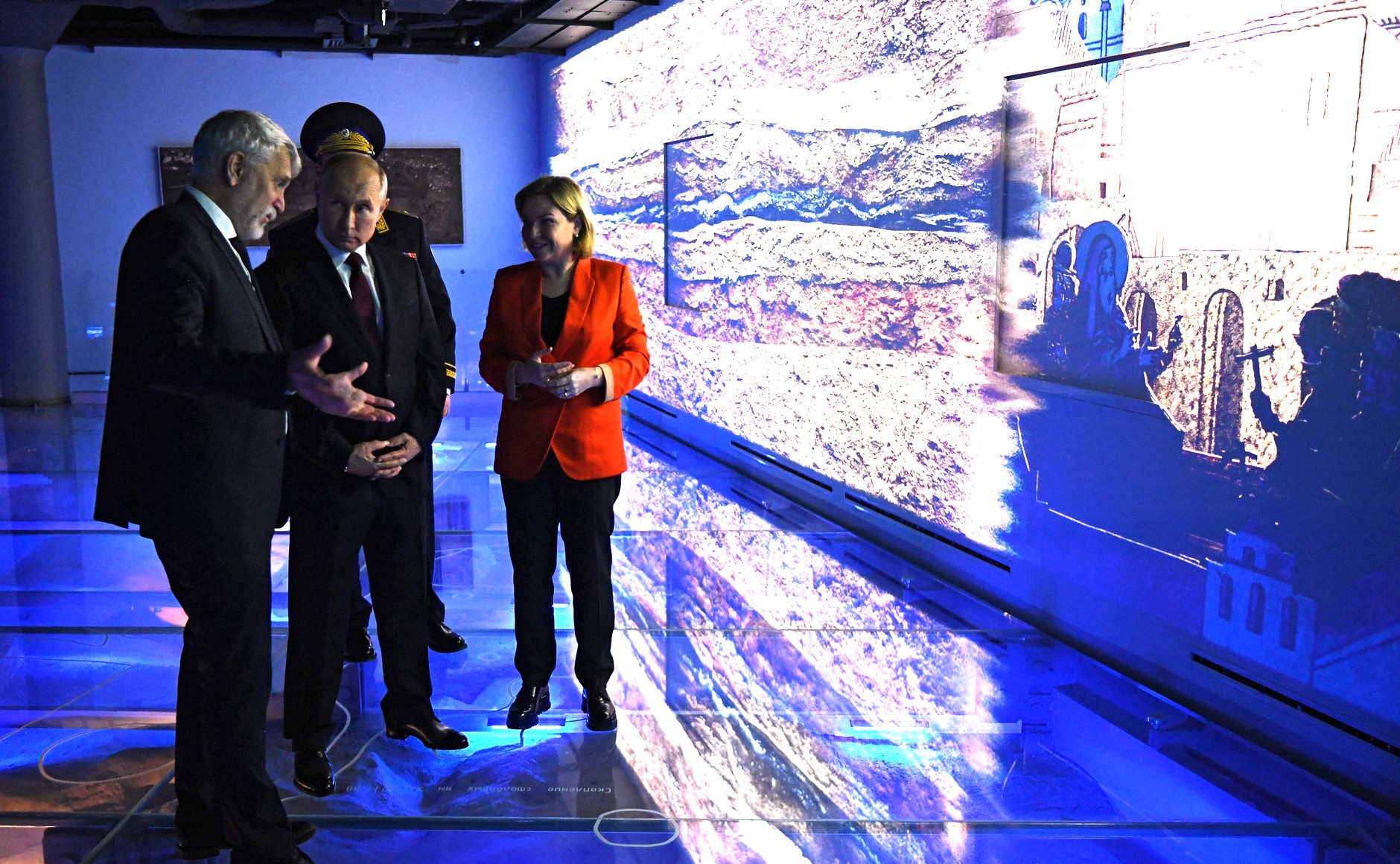 It was decided to display these finds in a museum, in connection with which the President ordered, in the summer of 2016, to create a subsurface museum complex. 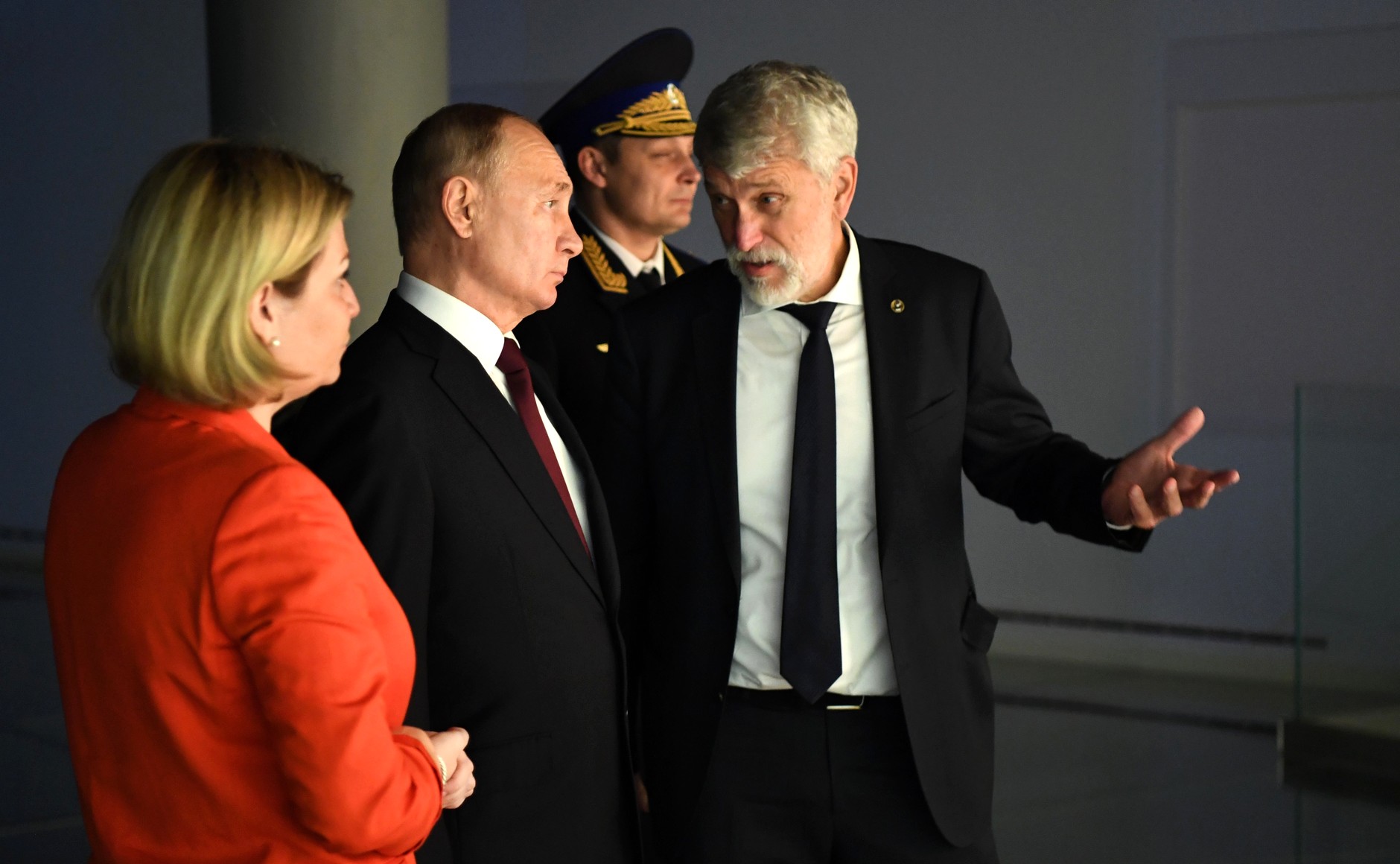 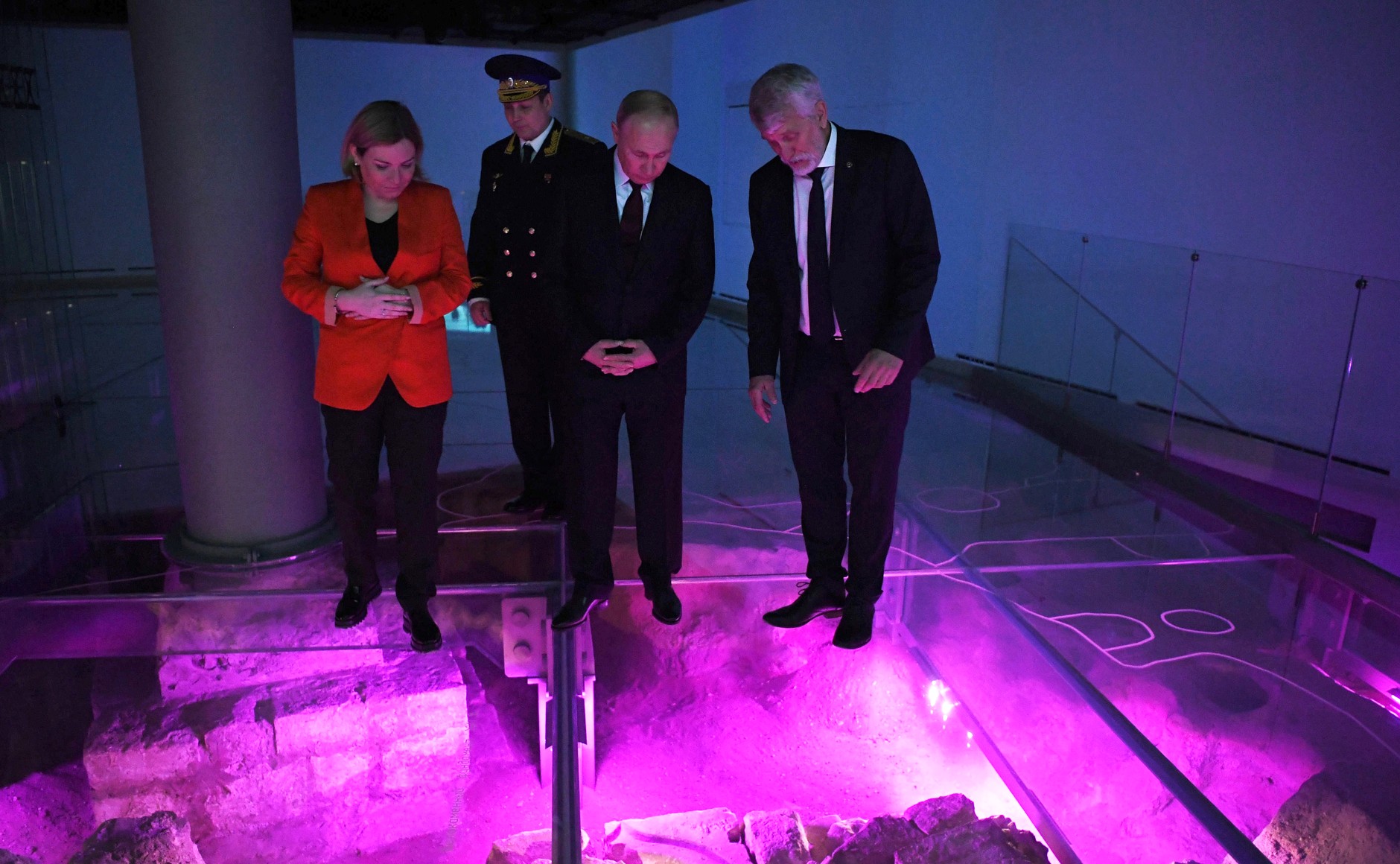 During the tour, the President was accompanied by Culture Minister Olga Lyubimova, Vice-President of the Russian Academy of Sciences and Director of the Institute of Archeology of the Russian Academy of Sciences Nikolai Makarov, and Commandant of the Moscow Kremlin Sergei Udovenko. The source of information - http://en.kremlin.ru/events/president/news/64333 Meeting with representatives of religious associations By tradition, the President met with representatives of religious confessions on National Unity Day. This year the meeting was held via videoconference. November 4, 2020 - 16:10 - The Kremlin, Moscow The meeting was attended by Patriarch Kirill of Moscow and All Russia, Head of the Buddhist Traditional Sangha of Russia Pandito Khambo Lama Damba Ayusheev, Chairman of the North Caucasus Muslim Coordinating Centre Ismail Berdiyev, Archbishop of the Evangelical Lutheran Church of Russia Dietrich Brauer, Chairman of the Council of Muftis of Russia, Chairman of Religious Board of Muslims of Russia Ravil Gaynutdin, First Deputy Chairman of the Euro-Asian Division of the General Conference of the Church of Christians of Seventh Day Adventists Oleg Goncharov, Head of the Russian and Novo-Nakhichevan Diocese of the Armenian Apostolic Church Archbishop Ezras, Metropolitan Kornily of Moscow and All Russia of the Old-Rite Russian Orthodox Church, Chief Rabbi of Russia, Chairman of the Centralised Religious Organisation of the Orthodox Judaism Federation of Jewish Communities of Russia Berel Lazar, Chief Bishop of Russia's Union of Evangelical Faith Christians (Pentecostals) Sergei Ryakhovsky, and Chairman of the Central Spiritual Directorate of Muslims of Russia Talgat Tadzhuddin. 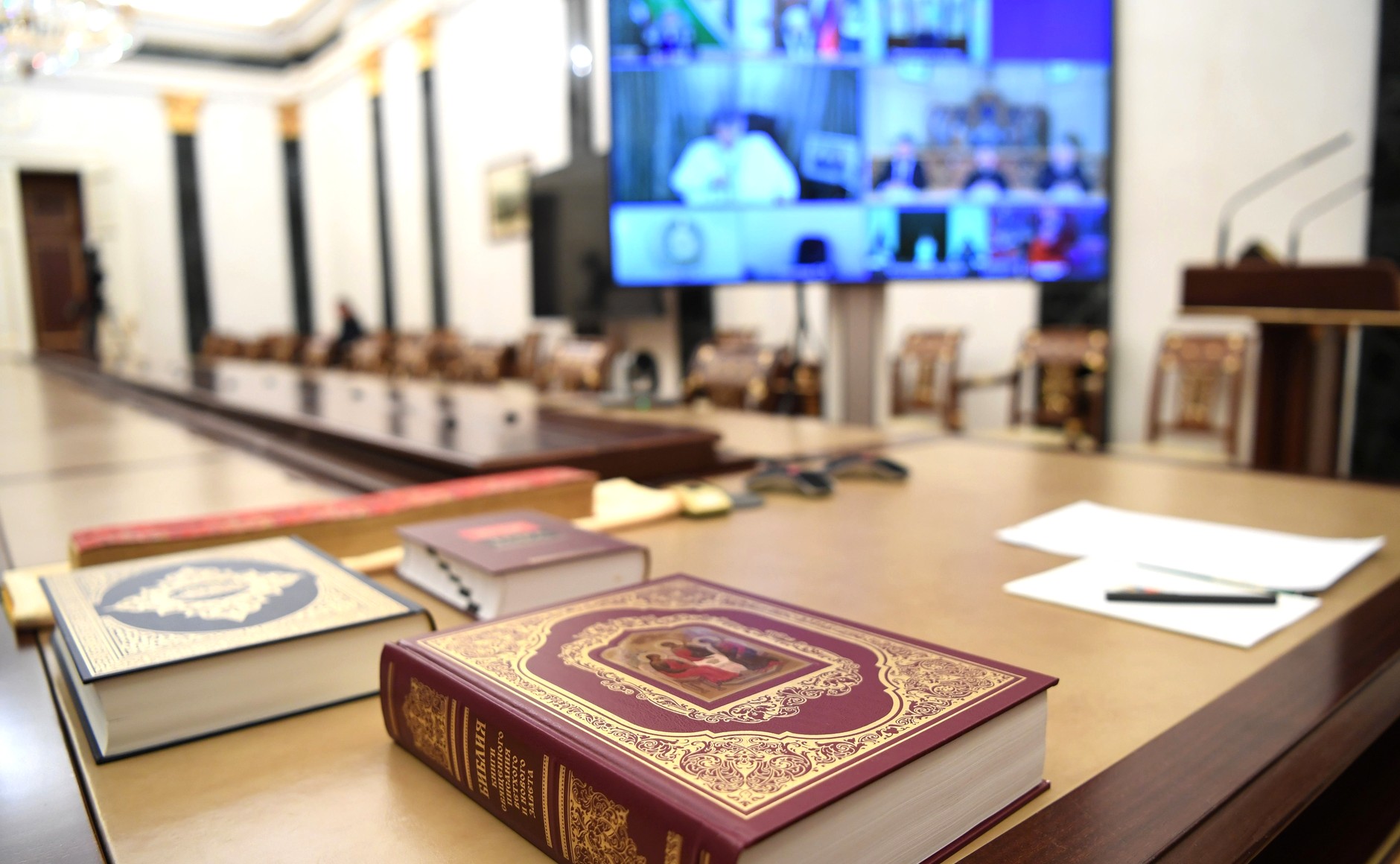 Russian President Vladimir Putin: Good afternoon, friends, I am pleased to welcome you to our meeting; greetings to all representatives of traditional religions of Russia! And first of all, I would like to congratulate you and all citizens of Russia, our big, multinational country, on National Unity Day! This state holiday has been timed to coincide with the heroic events of the early 17th century when the Russian people put an end to the tragedy of the Time of Troubles. 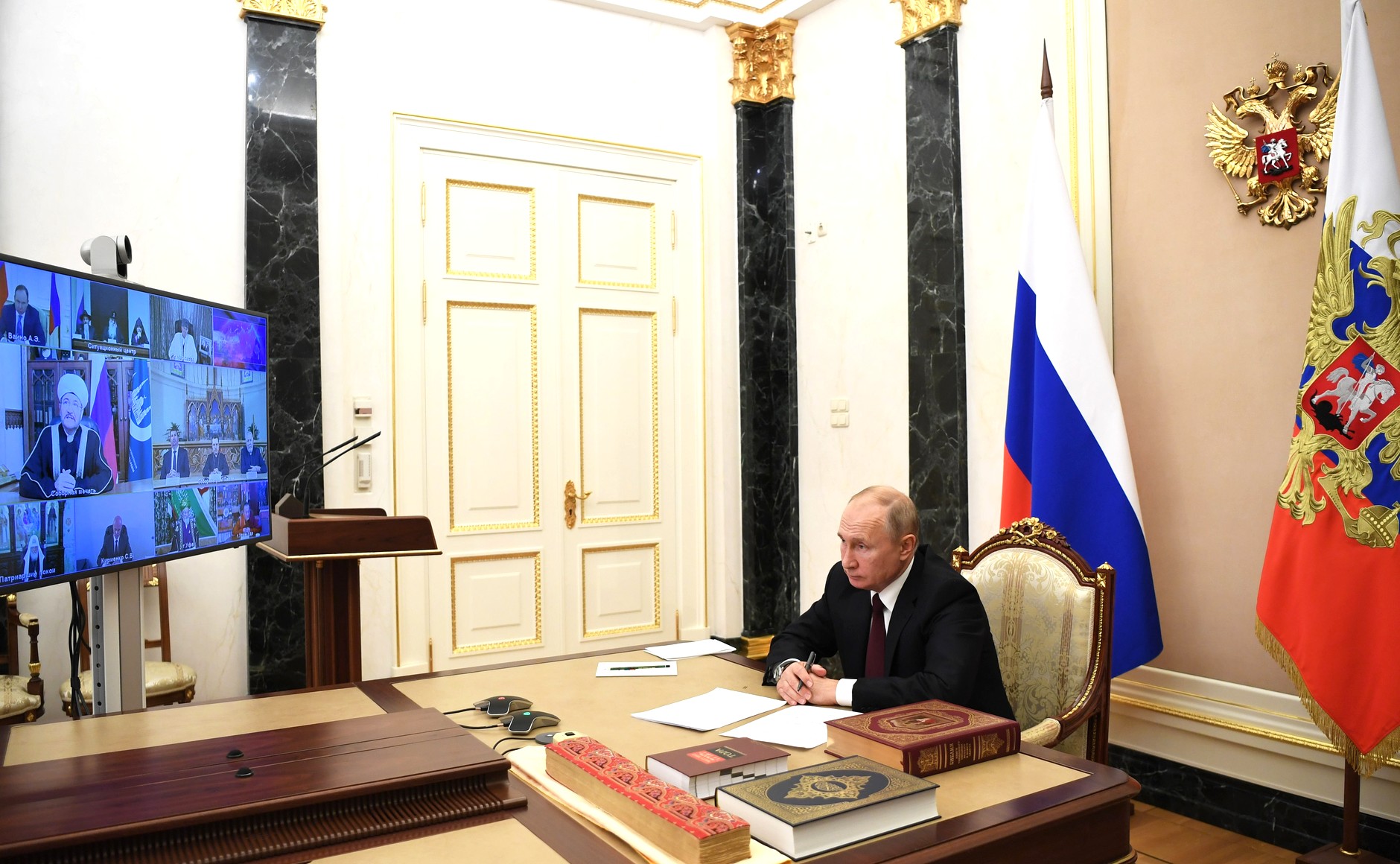 People from several different ethnicities and confessions were among those who rose up against the internal strife and humiliation of their country. They were united in the struggle against foreign invaders, treachery and betrayal and they won; they restored the integrity of the state and its power, and saved the Fatherland. We know that such great civil acts are performed by those who are devoted to the Fatherland, who are convinced that their unity is a powerful, unstoppable force. There have been many examples of our people standing up for their country. It happened in 1812 and again in the unprecedented trials of the Great Patriotic War. The courage of the defenders of the Fatherland did not know national distinctions. They were inspired by the love for their families, children, home, and the feeling of brotherly camaraderie – the moral values that underlie the culture and tradition of all our peoples, our traditional religions. Patriotism and unity of our citizens, common moral ideals continue to unite our society, our huge, multinational, multi-confessional country. 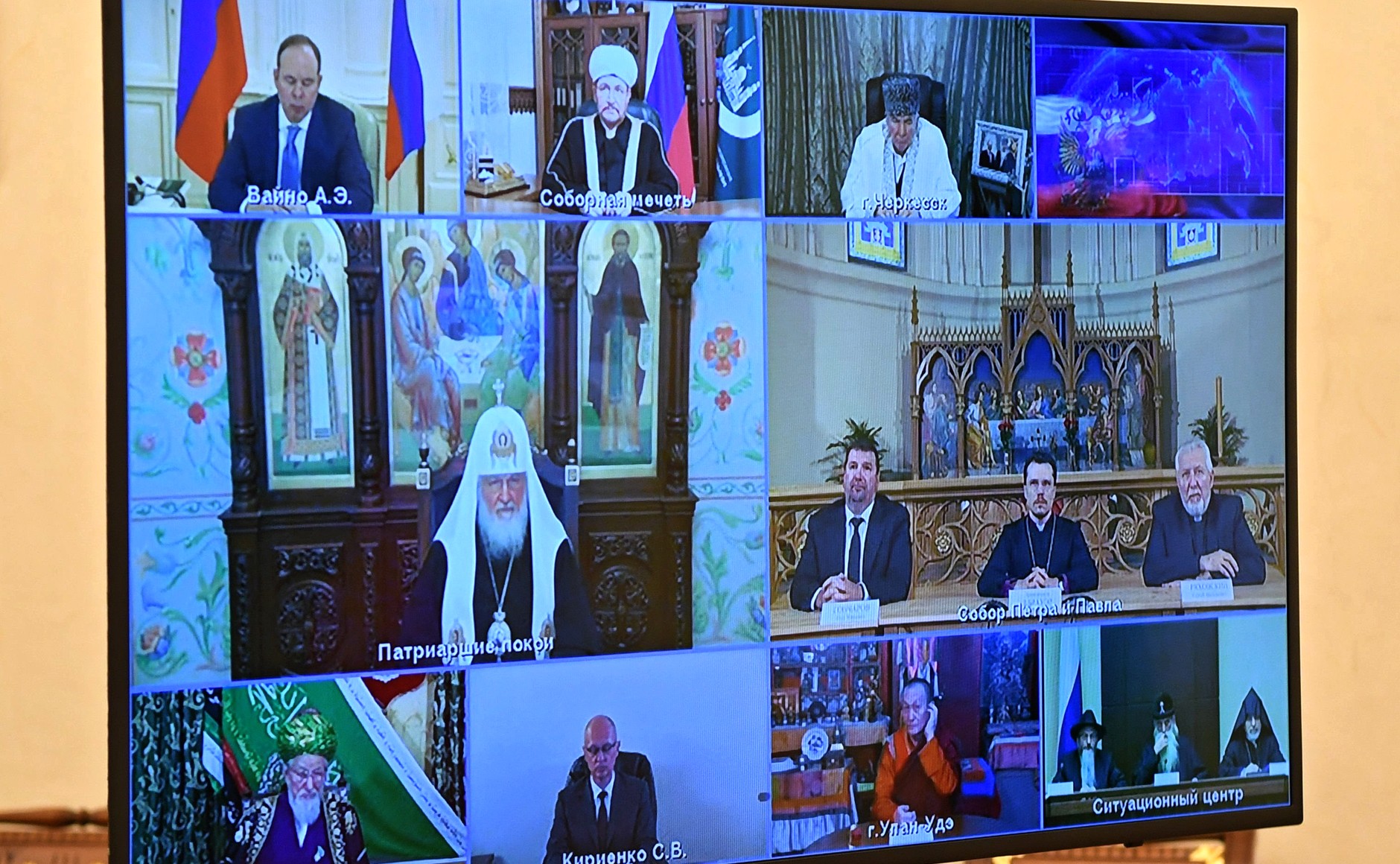 All of our people have experienced hardships and joys, achieved great victories, passed the harshest tests, and have historically proven their choice to live peacefully together. The traditions of kind, respectful attitude between people of different ethnicities and religious beliefs have been left to us by our ancestors. But being proud of this living spiritual heritage, experiencing the creation of a unique civilization is not enough. Of course, we have the right to be proud and we should be. But this is not enough. These values need to be protected, strengthened and nurtured. This is our common duty, for this generation and future generations. It is important to understand that the world is going through deep changes. Traditional values face serious challenges. Unfortunately, many difficult and sensitive issues in interethnic and interreligious relations become the subject of speculation and unscrupulous geopolitical games. Extremists and radicals grab onto this and incite mutual hatred and animosity. 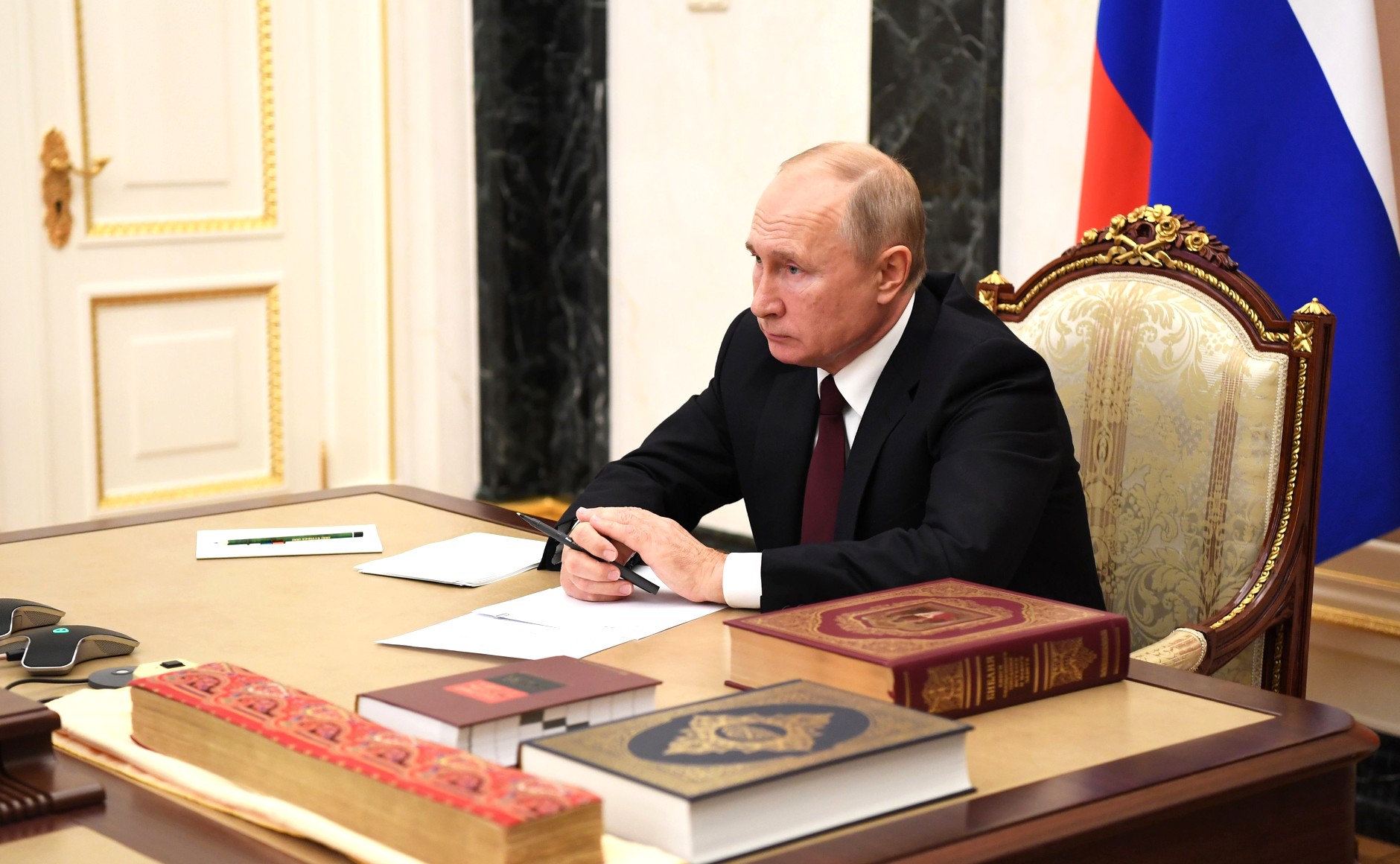 I would like to repeat that interethnic and interreligious peace is the keystone for our huge country. It needs constant attention from the authorities, from society, and from the media. The work here needs to be delicate, meticulous and comprehensive. And this is how we are trying to act – in the most delicate and constructive manner. Moreover, the situation in a number of countries, as we have seen, is difficult; we see what the actions of some provocateurs have led to; those who, under the guise of freedom of speech, offend the feelings of believers, and those who use it as a reason to justify violence and intolerance. There is only one result: conflicts grow within society like a snowball and can fester for years and decades. Together we must do everything we can to prevent developments like this in our country. The spiritual leaders of Russia have a special role to harmonise interethnic and interreligious relations and prevent extremism and terrorism. People listen to your opinions, your words, and when you voice your position of solidarity, your clear commitment to the values of peace, kindness and mercy – this is extremely important. 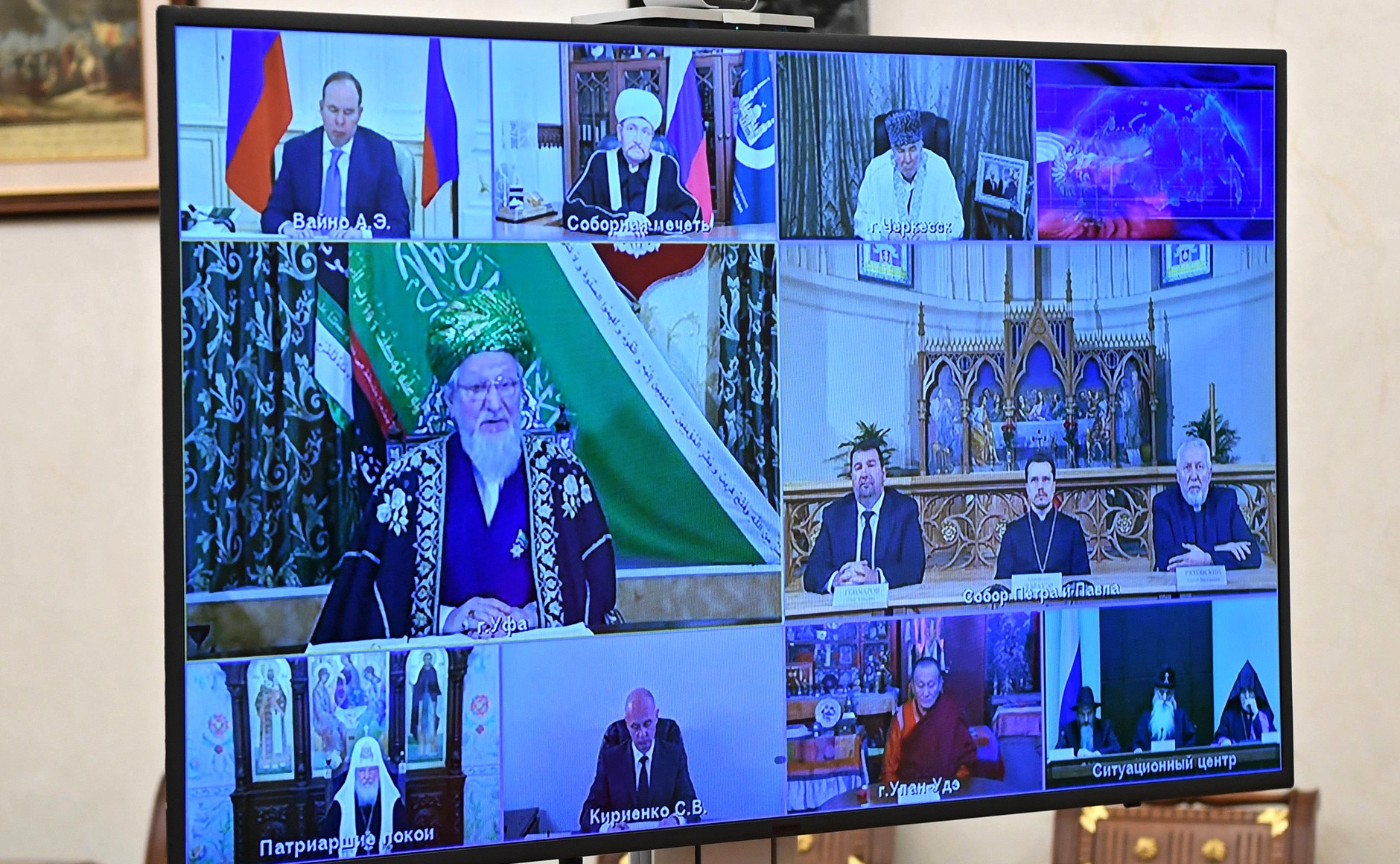 I would like to point out the great potential of religious organisations in community service. Representatives of all religions are contributing to our common struggle against the spread of the dangerous virus. You unite caring people around you, who, together with the clergy, become involved in voluntary work, sometimes risking their own lives to support those who need help and care, regardless of their ethnicity or religion. I will say it again that the clergy works in close proximity to individuals infected with the coronavirus and they sometimes risk their own lives to support their close ones. Unfortunately, tragedies can happen when they themselves die while selflessly carrying out their pastoral duty, selflessly and not for money. I have stressed many times that the most important thing for us is the absolute value of every human life. And this choice is dictated, to a large extent, by those values that underlie the traditional religions of Russia: Orthodox Christianity, other Christian confessions, Islam, Buddhism, Judaism.  It is no coincidence that there are four sacred texts – the Bible, the Quran, the Torah and Kangyur – lying here on the table to the left of me. Enduring values are found in each of them, and the key, the defining value in each is love for other people, for your neighbour, regardless of race, ethnicity or tradition. And when the scriptures speak of neighbours or brothers, we understand this to mean not only fellow religionists but all people in general, because all people are equal before God in all world religions. And today I would like to refer to a few words from these books. Allow me to quote a few. The Bible. “Greater love hath no man than this, that he lay down his life for his friend.” Or: “Whosoever claims to love God yet hates a brother or sister is a liar. For whoever does not love their brother or sister whom he sees, how can he love God, whom he does not see?” And the Quran. “Say, Muhammad: I ask of you no reward for proclaiming God’s faith, only affection among the near of kin.” “Whosoever does a good deed, we will increase its goodness by two times.” “Surely Allah is with those who fear Good and who do good deeds.” 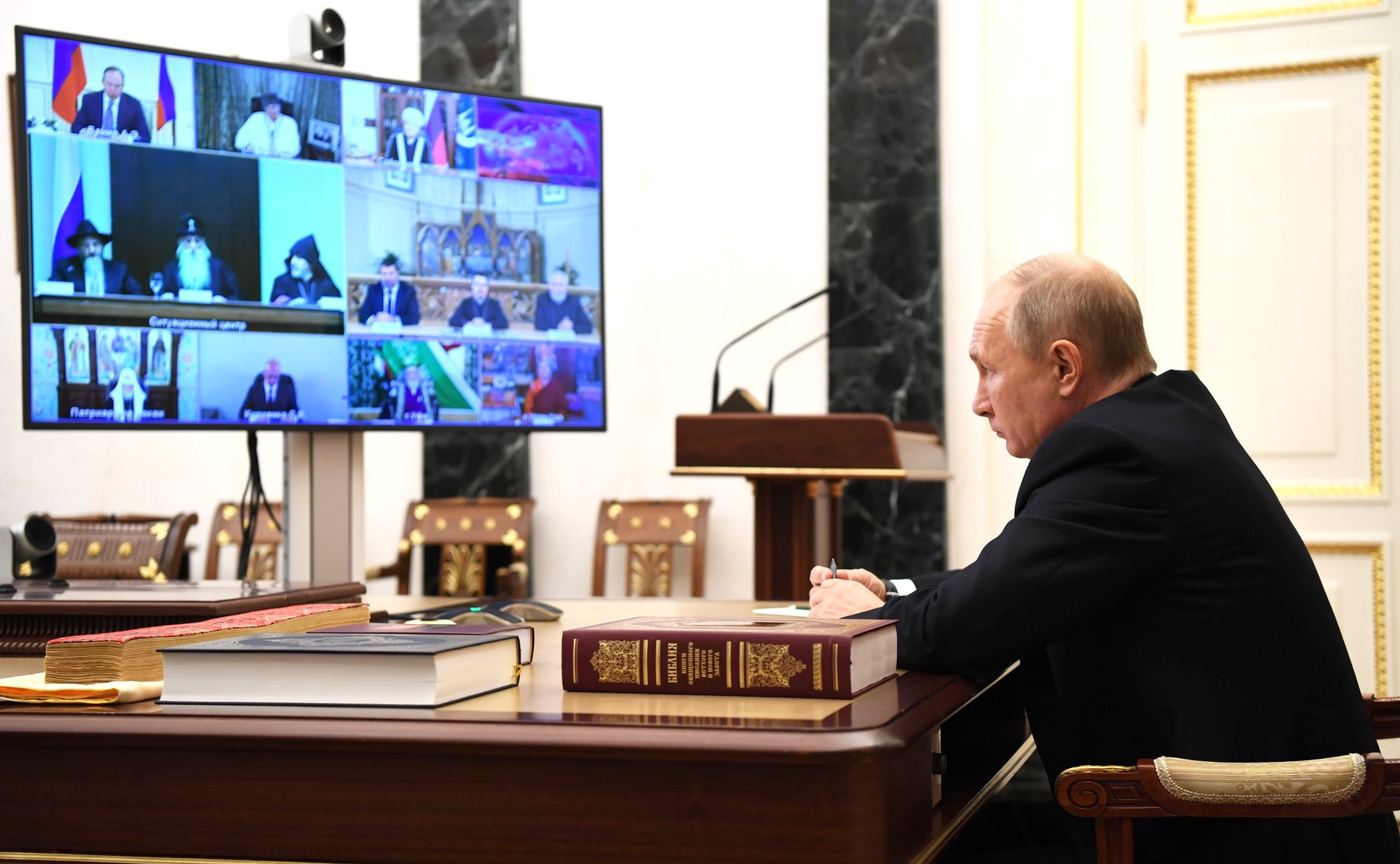 The Torah. “You shall not hate your brother in your heart. You shall rebuke your neighbour, and not bear sin because of him. You shall neither take revenge from nor bear a grudge; you shall love your neighbour as yourself.” And finally, Buddha’s words. “Hatred does not cease by hatred; hatred ceases by love. This is the eternal rule. Should a person do good, let him do it again and again. Let him find pleasure therein, for blissful is the accumulation of good.” Friends, once again, I would like to congratulate you on National Unity Day. It is highly symbolic that this holiday was constituted on the initiative of Russia’s Interreligious Council. This is further evidence that Russia’s historical path as a great power has been defined by peaceful, fruitful cooperation between different peoples and religions. I would like to wish you success on the path of a spiritual service. The source of information - http://en.kremlin.ru/events/president/news/64336 Telephone conversation with President of Belarus Alexander Lukashenko During the telephone conversation President of the Republic of Belarus Alexander Lukashenko congratulated Vladimir Putin and all Russian citizens on National Unity Day. November 4, 2020 - 20:30 Both parties confirmed their determination to further strengthen Russian-Belarusian allied relations. They expressed a high opinion of their cooperation in fighting the spread of the coronavirus infection, noting, in this context, the great importance of agreements to supply Russia’s vaccine to Belarus. A number of practical issues pertaining to cooperation in the trade and economic sphere were discussed. Alexander Lukashenko briefed Vladimir Putin on the current situation in the republic. Settlement of the Nagorno-Karabakh conflict was also discussed. It was agreed to maintain contact at different levels. The source of information - http://en.kremlin.ru/events/president/news/64337 Working meeting with Tula Region Governor Alexei Dyumin Vladimir Putin had a working meeting, via videoconference, with Governor of the Tula Region Alexei Dyumin. November 5, 2020 - 13:30 - The Kremlin, Moscow 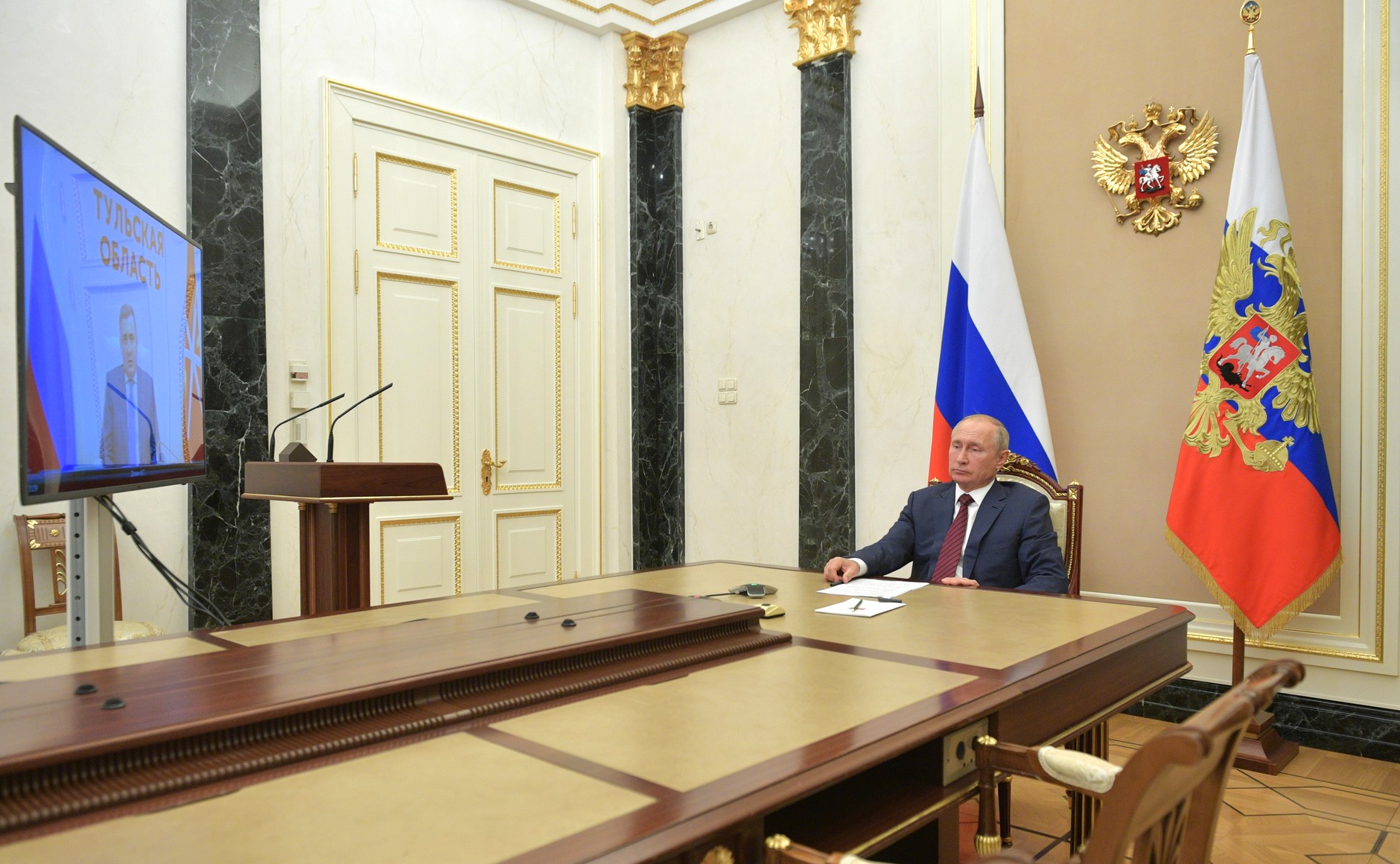 The President began the conversation by mentioning the Tula Region’s good positions in terms of several key indicators: growth of regional product higher than in many other regions, growth of industrial and agricultural output, and increase of investment in fixed capital. The President praised the region’s achievements in the social sphere, such as high standards of education infrastructure and a lower unemployment rate compared to many other regions. Alexei Dyumin began his report with the coronavirus update for the region. He mentioned the high level of testing, the creation of a reserve of hospital beds and PPE for medical personnel, as well as the establishment of a virtual hospital based on telemedicine and other communication channels for emergency consultations and decision making. The Governor expressed gratitude for the prompt decisions to support the economy. As of today, some 900 regional companies have received easy-term loans for the resumption of their operations and for paying wages. Over 500 business operators have taken advantage of the loan repayment holiday. Wage subsidies have been transferred to 11,000 entrepreneurs. Measures have also been taken at the regional level to support small and medium-sized businesses.  As a result of these measures, the regional economy has reported positive dynamics in terms of key development indicators. Industrial production grew by 18 percent from January to August. This year 2.5 million tonnes of grain were harvested, which is a record high since 1987. Investments have been growing by some 10 percent for three years in a row. Nearly all investment projects were ongoing in 2020, and eight projects worth a total of 24 billion rubles have been completed, creating over 2,000 jobs. Another five enterprises with 600–650 jobs will be completed this year. The collection of income tax has increased by 40 percent over the past few years. All of the region’s social obligations have been met in full. According to the Governor, priority attention is being given to the implementation of national projects, in particular, Demography, Education, and the Safe and High-Quality Roads. He also reported on the relocation of people from dilapidated buildings. Alexei Dyumin recalled the Presidential Executive Order signed in 2016 regarding the 500th anniversary of the Tula Kremlin and the fortifications known as Bolshaya Zasechnaya Cherta (the Great Abatis Line). He noted that much had been done since then, including the modernisation of Tula and the renovation of 11 small historical towns and about 40 historical and cultural landmarks located in them. 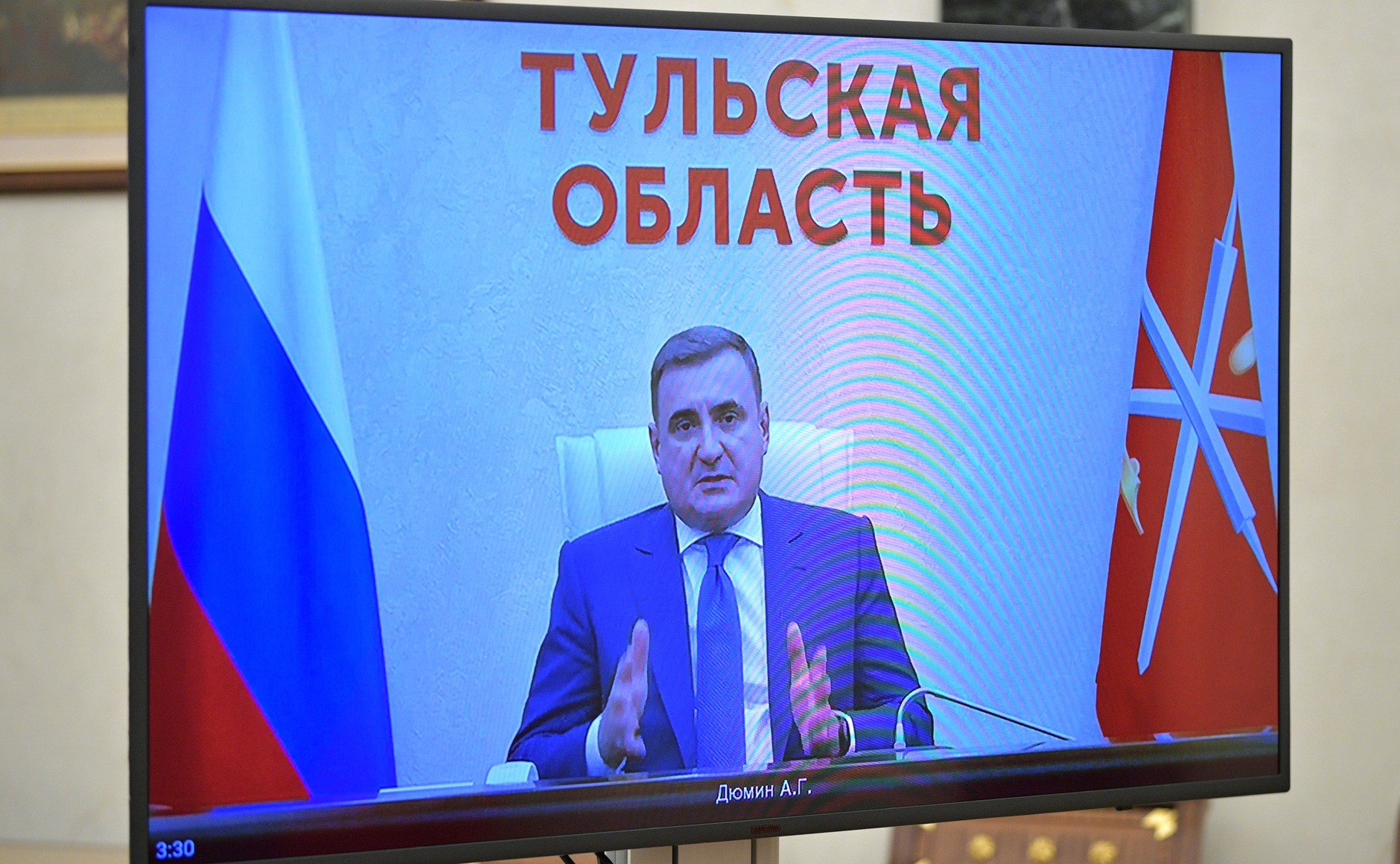 Vladimir Putin pointed out that much had been recently accomplished in the Tula Region, but reminded the Governor about some loose ends, such as the decreasing number of the resident population, the industrial region’s environmental problems and a lower number of doctors than the average in Russia. The President noted that the Tula Region could show better results when it comes to building new residential houses but is unable to do this without assistance. He suggested that proposals regarding this should be prepared. The President said in conclusion that the general trends were quite positive in the region, wished Alexei Dyumin every success and added that next time he expected him to report on progress in the implementation of the above mentioned key challenging and capital intensive projects. The source of information - http://en.kremlin.ru/events/president/news/64338
__________________
Where should they dig the Very Deep Pit? Piglet said that the best place would be somewhere where a Heffalump was, just before he fell into it, only about a foot farther on. (c) Alan Alexander Miln |
|
|
#146 |
|
Senior Member
|
Telephone conversation with Federal Chancellor of Austria Sebastian Kurz
Vladimir Putin had a telephone conversation with Federal Chancellor of the Republic of Austria Sebastian Kurz at the Austrian side’s initiative. November 5, 2020 - 21:45 Sebastian Kurz thanked the Russian President for his support and condolences to the people of Austria in connection with the cruel act of terror in Vienna on November 2. Both leaders expressed their resolve to counter terrorism in all of its manifestations. They discussed urgent issues on the bilateral agenda, including efforts to counter the spread of the coronavirus infection, including with vaccines. The Federal Chancellor noted the importance of further developing energy cooperation between Russia and European countries. The leaders confirmed their interest in resuming full-scale bilateral contacts after the normalisation of the epidemiological situation. The source of information - http://en.kremlin.ru/events/president/news/64339 Meeting with permanent members of Security Council The President chaired a meeting with permanent members of the Security Council via videoconference. November 6, 2020 - 14:15 - The Kremlin, Moscow 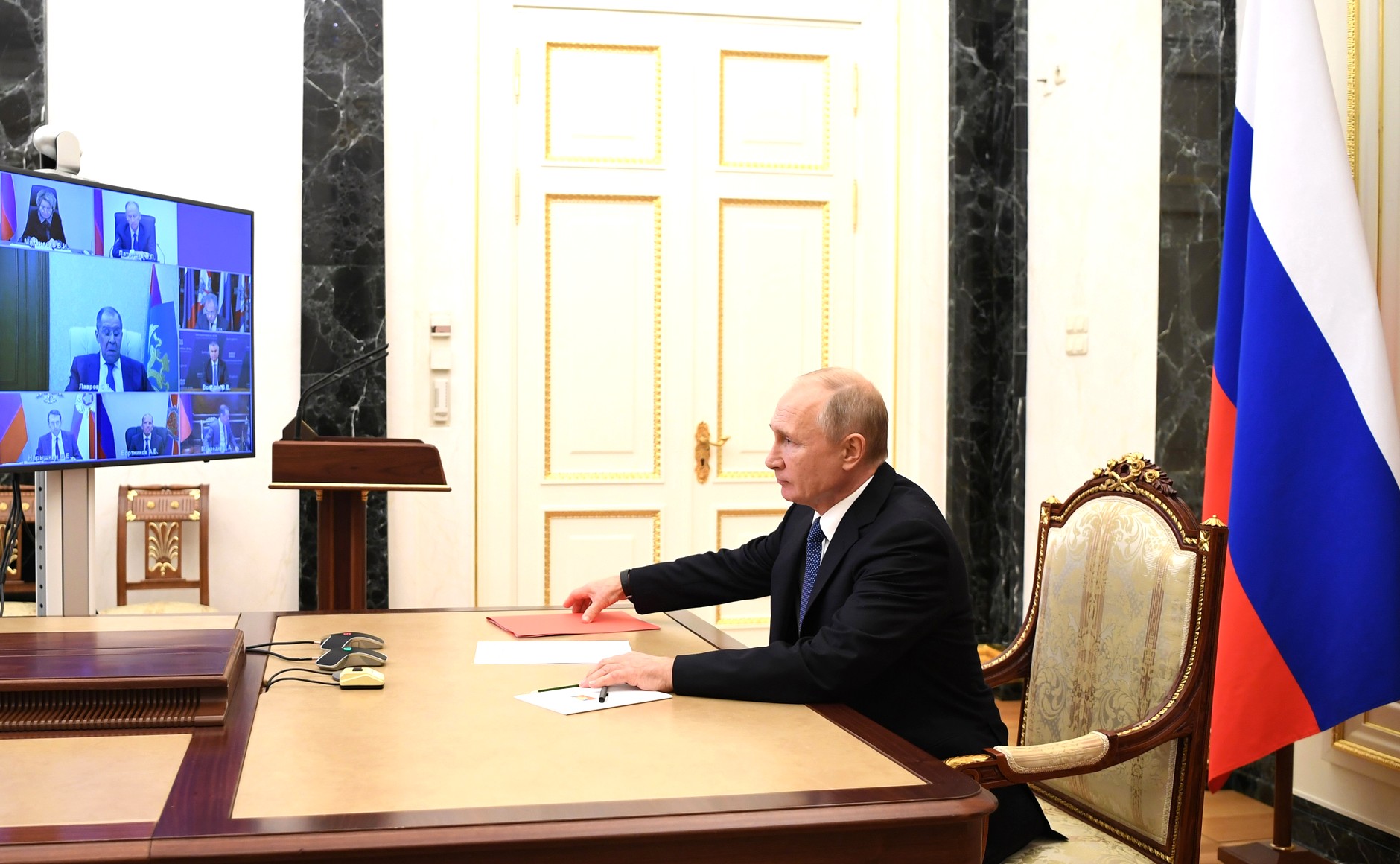 The meeting participants exchanged opinions on the situation around Nagorno-Karabakh and efforts to reach a peace settlement. They had a detailed discussion of COVID-19 developments, focusing on the situation in Russian regions, with due consideration for earlier measures to provide them with additional financial assistance. The Security Council members also touched upon other matters of the country’s socioeconomic development. 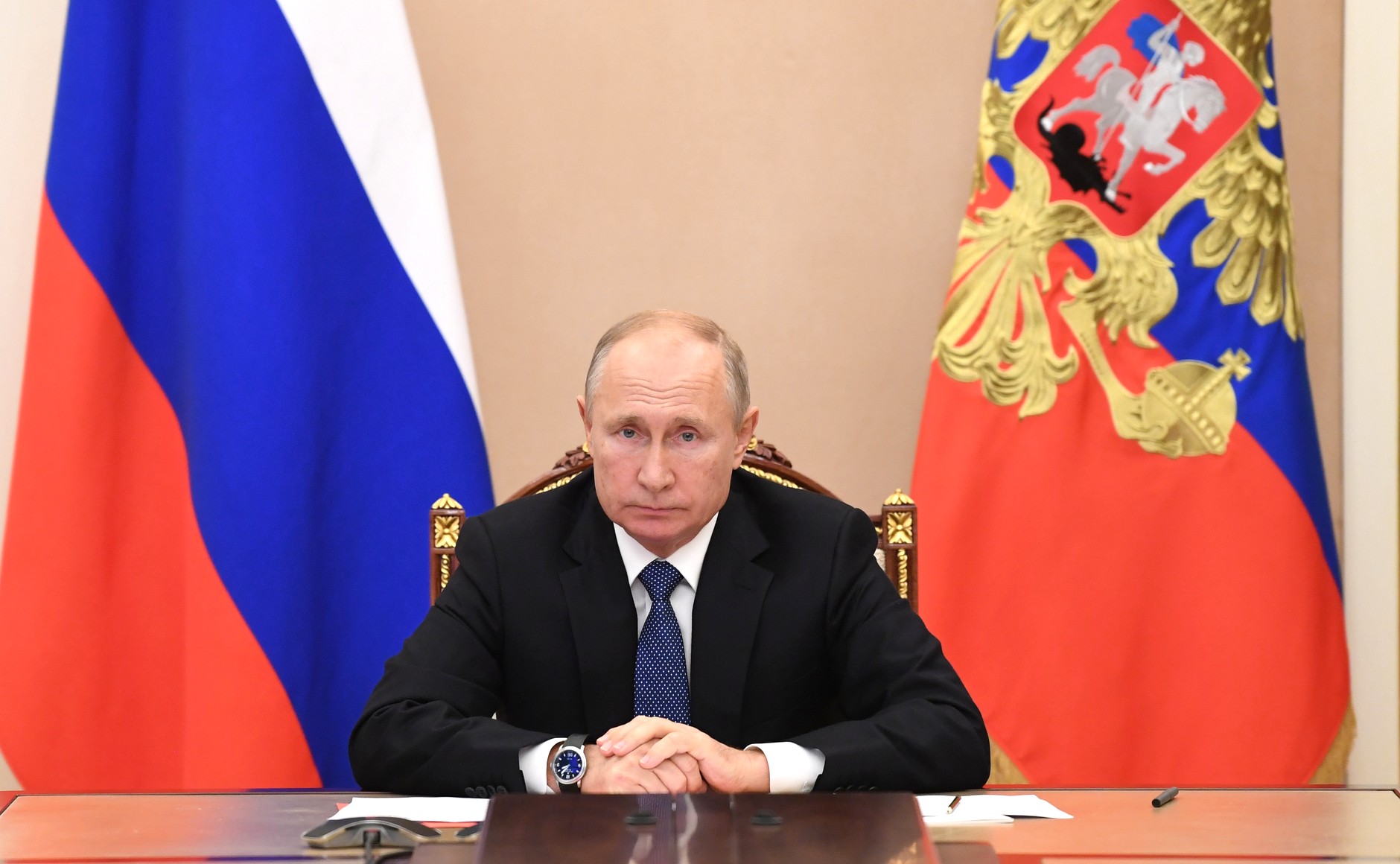 Attending the meeting were Prime Minister Mikhail Mishustin, Federation Council Speaker Valentina Matviyenko, State Duma Speaker Vyacheslav Volodin, Deputy Chairman of the Security Council Dmitry Medvedev, Chief of Staff of the Presidential Executive Office Anton Vaino, Security Council Secretary Nikolai Patrushev, Foreign Minister Sergei Lavrov, Defence Minister Sergei Shoigu, Federal Security Service Director Alexander Bortnikov, Foreign Intelligence Service Director Sergei Naryshkin and Special Presidential Representative for Environmental Protection, Ecology and Transport Sergei Ivanov. The source of information - http://en.kremlin.ru/events/president/news/64341 Meeting with Central Election Commission Chairperson Ella Pamfilova Vladimir Putin held a meeting with Chairperson of the Central Election Commission Ella Pamfilova. November 6, 2020 - 14:50 - The Kremlin, Moscow 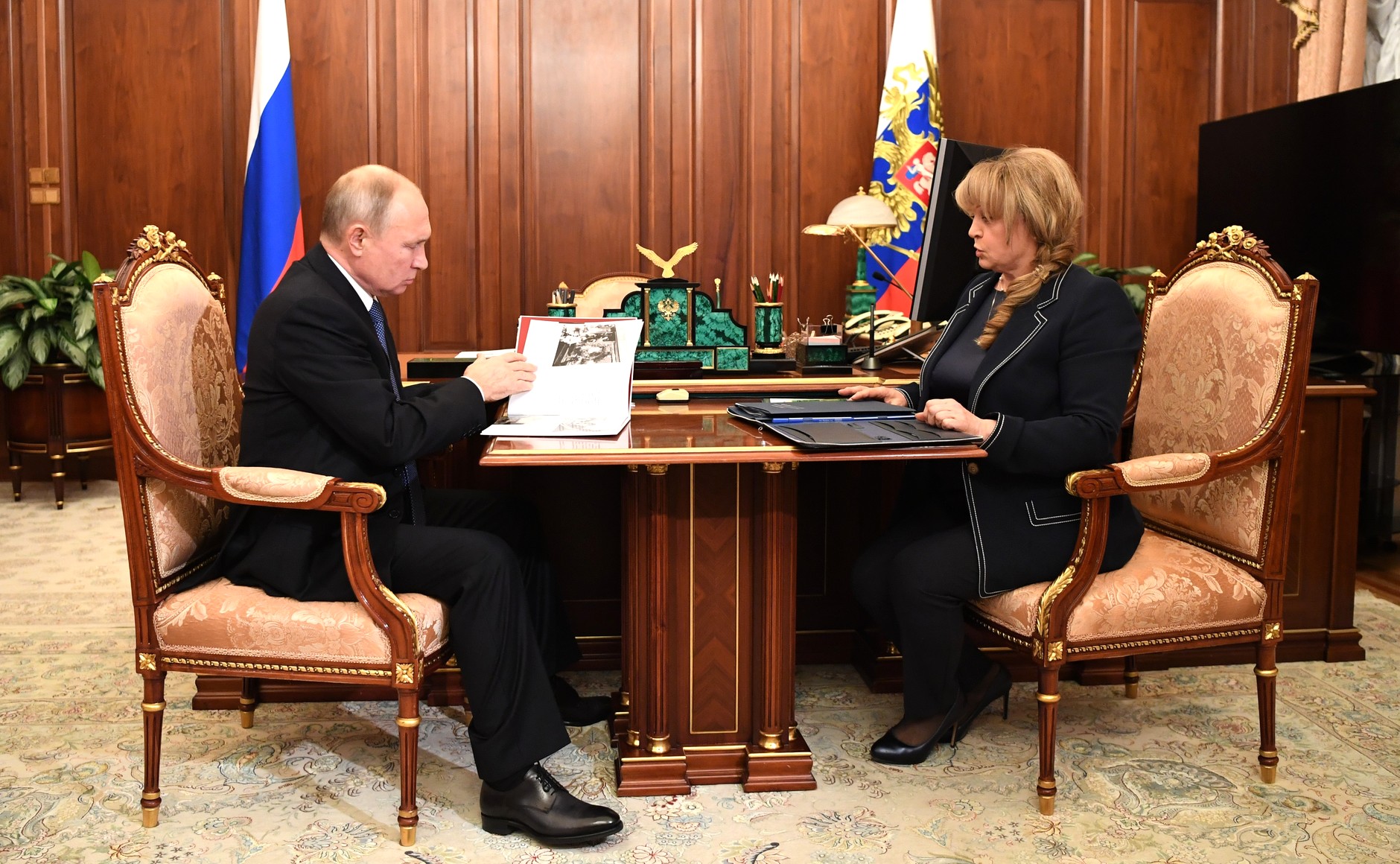 President of Russia Vladimir Putin: Good afternoon, Ms Pamfilova. Chairperson of the Central Election Commission Ella Pamfilova: Good afternoon, Mr President. Vladimir Putin: You wanted to discuss election results. Ella Pamfilova: Yes, Mr Putin. But first, I would like to say that, pandemic aside, 2020 marks the 75th anniversary of the Great Victory. My colleagues from the regions and I decided to make our modest contribution to marking this anniversary. I would like to present this photo album to you. It covers an exhibition that we arranged together with the Contemporary History Museum by gathering more than 6,000 artefacts related to the first post-war election to the USSR Supreme Soviet that took place on February 10, 1946. This was a unique experience: when we had all the exhibits, we saw not only how this election was organised, but also how people lived at the time, and how people came together to rebuild the country from the ruins of war. Everyone chipped in so that polling stations could open: people brought chairs, tables, and even petroleum lamps because there was no electricity. This goes to say that people attached great importance to the vote, and were enthusiastic about rebuilding the country, and this election was extremely important for them. Vladimir Putin: Thank you very much. Ella Pamfilova: This was our modest contribution to ensuring that the younger generation knows, remembers and can feel proud. Vladimir Putin: Thank you very much. Ella Pamfilova: Thank you for your understanding. As for the election results, the main takeaway from the past campaign is that more people view the election as being legitimate. This is what opinion polls carried out after the September election showed. Polls by VTsIOM showed that 71 percent of those who cast their ballots trust the election results. About 79 percent were satisfied with the way we ensured sanitary and epidemiological safety, and 84 percent of those who voted in the election noticed the convenience of extending the voting process to three days. In fact, 77 percent of the respondents suggested that we maintain this approach during the next election. Mr President, in this connection I would like to have an in-depth discussion with you on one issue. It concerns dividing the educational and election processes at the systemic legal level, because nearly half of our polling stations are located in schools. I have a proposal, which I would like to discuss with you later. The range of representation was very broad: members of 21 parties and three electoral associations have been elected, and the share of independent candidates was very large this time, about 13 percent of the total. It was a very competitive environment. The number of withdrawals was rather small, less than 5 percent, and only about 3 percent in the case of party candidates. It is a very small number, because nearly all those who prepared for the elections took part in them. The number of observers continued to grow; this time there were nearly 257,000 of them. This result is largely due to the work of the federal and regional public chambers, because it was the number of public observers that has increased. We are working together with them, because we believe that it is very important for the people to trust, check and then feel confident in the voting results. Mr President, for the first time – we never did this before – after the sensational news about the election of a young cleaning woman as the head of a village council in Kostroma Region… Vladimir Putin: Why not? Ella Pamfilova: Why is it presented as a sensation? We have analysed the social and demographic composition, and the resulting picture is very interesting. If I may, I would like to update you on the figures. Vladimir Putin: Please, this is very interesting. Ella Pamfilova: First of all, this example shows that there are broad avenues not only for social mobility, but also for political mobility in our society and country. The range of representation is very broad: various types of office employees make up at least 37 percent, followed by teachers and university lecturers who take an active part in various elections (nearly 16 percent), and representatives of vocational trades such as drivers, machine operators and metalworkers come in third. By the way, I would like to tell you that a cleaning woman is not a sensation: we have 23 dairy women, 11 calf women, 34 stokers (they are probably following in the footsteps of Viktor Tsoi, only he chose music and they opted for politics), two blacksmiths, 24 game keepers and 11 sheep herders. All these are vocational trades. Vladimir Putin: It is just that these people know the problems of their communities. 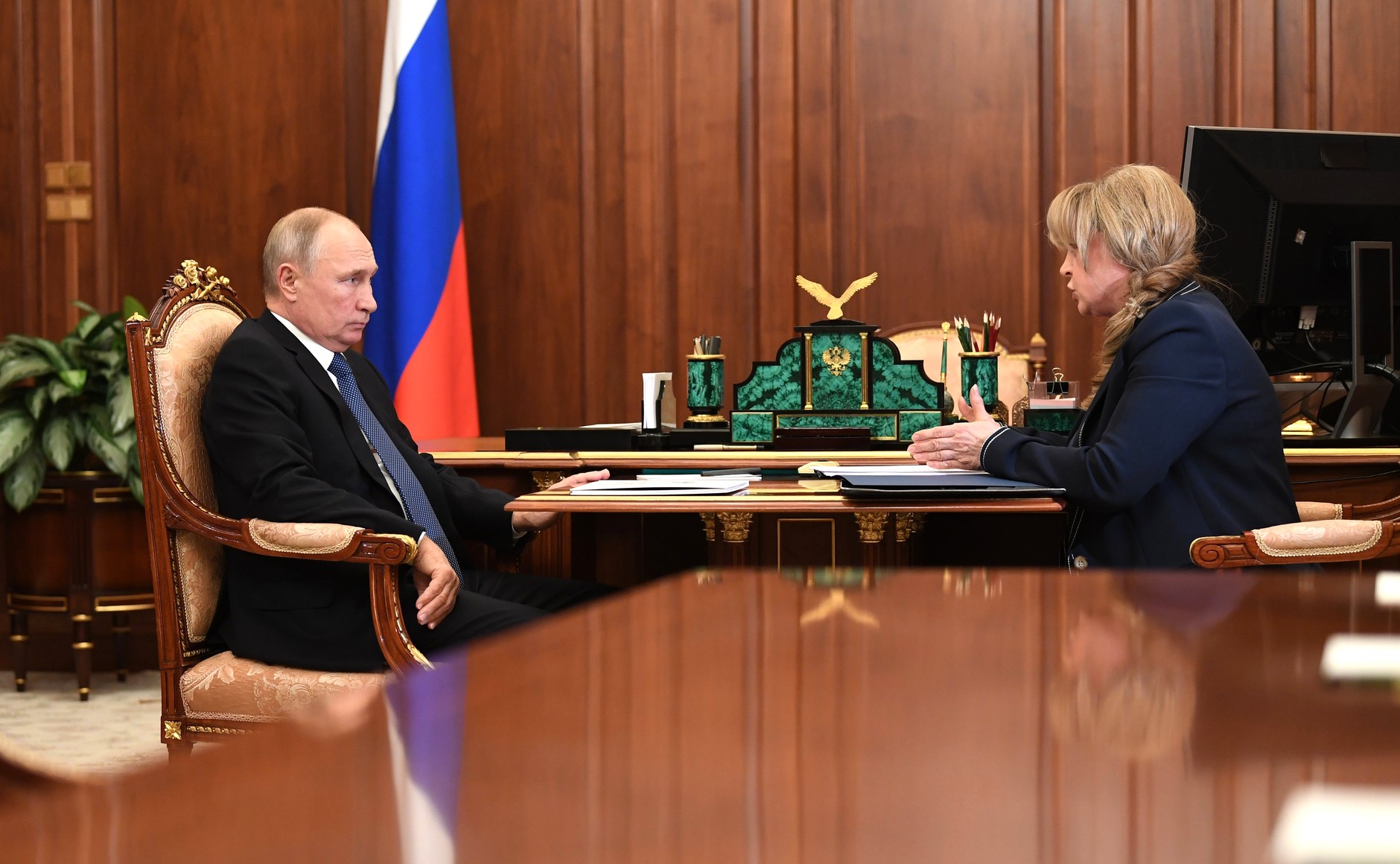 Ella Pamfilova: And people know them and respect them for their deeds. But there are also 17 university rectors, and very many teachers, nearly 6,000, as well as over 1,000 kindergarten teachers and, lastly, 432 children’s sports coaches. This is the statistics. Something else surprised us. There are slightly more blue-collar workers than entrepreneurs: blue-collar representatives account for around 11.5 percent, and entrepreneurs – slightly less than 11 percent. The proportion of housewives is smaller, but they are also eagerly elected, and pensioners – about 9 percent, doctors and medics – about 5 percent overall. What is interesting – very few deputies were re-elected, almost none of them, less than 1 percent – and this is a sign. This suggests that voters have become more demanding, they have more stringent requirements, and those who are deputies now and intend to stay should think about that. Less than 1 percent, just like such people as film directors, artists, actors – there is an insignificant share. People watch what you said and what you actually did. I think we need to keep this precedent in mind for future elections. There are countries that introduce quotas for women. But we are close to gender parity without any quotas: 55 percent men, 45 percent women. The age span is also large. The main group, aged 30 to 60, accounts for 82 percent, but we also have five very young people, 18 years old. I would like to tell you about one young woman. Angelina Motyakina grew up in a large family; she is now a student at a medical college, volunteers, and does charity work. People have shown her confidence – she is now a deputy of the Oryol City Council. We have another unique person. I just mentioned 18-year-old deputies, and he, on the other hand, is the oldest. He will be – how old do you think? – 96 on November 7. His name is Zinatulla Gizatullin; he is a teacher, a decorated veteran, and a holder of the Order of the Patriotic War. He fought during the entire war, and still works as director of a museum in Tatarstan, a school museum. Those are unique people. Vladimir Putin: God grant him good health. Ella Pamfilova: I would like to say that it is the result that matters. We have a broad popular representation based on direct free elections. I always point this out when I compare what we have with those who always criticise us. Vladimir Putin: You are constantly studying foreign experience. Ella Pamfilova: We are. Now back to our plans, I will go over them briefly. Even though we have had two intensive campaigns and no respite, we have already begun preparing for the next campaign. It will be a difficult one, we are aware of that – the federal campaign has multiple layers and involves more than the State Duma election, there will be other kinds of campaigns. When I mentioned that the realisation of legitimacy and trust are growing, this must not be interpreted as a sign to relax because we can work very hard and then lose everything in one go. People now have become more demanding and setting tougher requirements not only to those whom they elect but also to us. Therefore, we cannot just sit back at this point. Together we have done a lot in this respect. Thank you for your support. We have introduced video monitoring and QR-codes. The mobile elector application is also working. Now we are at the stage where we are about to master e-signature verification. Our main goal for the future is to create by 2022 a digital platform that will replace our time-honoured automated system – GAS Elections. This will increase to the utmost the potentials of all the participants in the electoral process: voters, parties, nominees, observers and journalists. All this will be done taking into account the interests of the voters. And, of course, right now we are working on remote e-voting. We are doing this with utmost caution because it is very important not to undermine trust but rather to earn it. In other words, the goal of everything we are doing today is aimed at making irreversible all the processes aimed at building trust and legitimacy. And, Mr President, I have several matters that I would like to discuss, in particular, if I may, the future of the municipal filter, and some other issues. Vladimir Putin: Fine. I am aware that you are researching foreign know-how and introducing new systems, including digital technology, as you have just said. You are always striving to get authentic results and increase the speed of the final count so that nobody has any doubt, be it the voters or representatives of various organisations and parties. I would like to thank you again, as I have already done. I would like to use this meeting as an opportunity to thank also all those who worked in the election commissions at different levels. I know this is always difficult but also dangerous in conditions of the pandemic. You have been through this and done everything at top level, in an organised manner, in accordance with the law and in close contact with the people. In terms of legitimacy, the result is certainly very good. Thank you. Ella Pamfilova: Thank you very much. This is means a lot for my colleagues. The source of information - http://en.kremlin.ru/events/president/news/64342 Telephone conversation with President of Argentina Alberto Fernandez Vladimir Putin had a telephone conversation with President of the Argentine Republic Alberto Fernandez at the initiative of the Argentinian side. November 6, 2020 - 19:10 The two leaders confirmed their intention to further develop mutually beneficial cooperation between Russia and Argentina in major areas, including trade and the economy They focused on combatting the spread of the coronavirus and discussed the implementation of existing agreements on the use of the Russian vaccine, Sputnik V, in Argentina. The presidents agreed to maintain contact at various levels. The source of information - http://en.kremlin.ru/events/president/news/64345 Telephone conversation with President of France Emmanuel Macron Vladimir Putin had a telephone conversation with the President of the French Republic, Emmanuel Macron, at the French side's initiative. November 7, 2020 - 17:05 In the wake of the recent terrorist attacks in France, the two leaders underscored their determination to fight terrorism in all of its forms. When discussing the situation with Nagorno-Karabakh, they expressed serious concern regarding the ongoing large-scale hostilities in the conflict area and a more active involvement of extremists from Syria and Libya. Vladimir Putin informed Emmanuel Macron of the steps taken by Russia to ensure a ceasefire and a resumption of talks to reach a political and diplomatic solution. The presidents confirmed their mutual commitment to continued coordinated mediation efforts by Russia and France, including as part of the OSCE Minsk Group. When exchanging opinions on the internal Ukrainian settlement, the leaders highlighted the need to fully comply with the Minsk Package of Measures and all agreements reached in the Normandy Format, including at the Paris Summit of 2019. It was noted that Russia’s and France’s positions and assessments on the situation in Libya were close. Vladimir Putin and Emmanuel Macron spoke for activating efforts to normalise the situation in the country as soon as possible. The two presidents examined pressing issues of bilateral cooperation in various fields. Interest was expressed in deepening cooperation in the fight against the coronavirus, including building ties between the relevant Russian organisations and the Pasteur Institute in developing and producing vaccines. The parties agreed on further contacts. The source of information - http://en.kremlin.ru/events/president/news/64346 Telephone conversation with President of Turkey Recep Tayyip Erdogan Vladimir Putin had a telephone conversation with President of the Republic of Turkey Recep Tayyip Erdogan. November 7, 2020 - 22:40 The two presidents had a detailed discussion on the developments in the Nagorno-Karabakh conflict zone. Vladimir Putin informed his Turkish counterpart about a series of telephone conversations he had with the leaders Azerbaijan and Armenia. These contacts were focused on finding options for a quick cessation of hostilities and paving the way to a political and diplomatic settlement. Vladimir Putin and Recep Tayyip Erdogan reaffirmed their mutual commitment to working together to achieve a peaceful resolution to the conflict. The source of information - http://en.kremlin.ru/events/president/news/64347
__________________
Where should they dig the Very Deep Pit? Piglet said that the best place would be somewhere where a Heffalump was, just before he fell into it, only about a foot farther on. (c) Alan Alexander Miln |
|
|
#147 |
|
Senior Member
|
Amendments to Executive Order On the Structure of Federal Executive Bodies of Power
Vladimir Putin signed Executive Order On Amendments to the Presidential Executive Order No. 21 of January 21, 2020, On the Structure of Federal Executive Bodies of Power. November 9, 2020 - 10:35 As per the amendment, the Prime Minister of the Russian Federation has ten deputies, including one First Deputy Prime Minister, Deputy Prime Minister ‒ Presidential Plenipotentiary Envoy to the Far Eastern Federal District, and Deputy Prime Minister – Chief of the Government Staff. The source of information - http://en.kremlin.ru/events/president/news/64350 Nikolai Tsukanov relieved of his duties as Plenipotentiary Presidential Envoy to Urals Federal District Vladimir Putin signed Executive Order On Nikolai Tsukanov. November 9, 2020 - 10:40 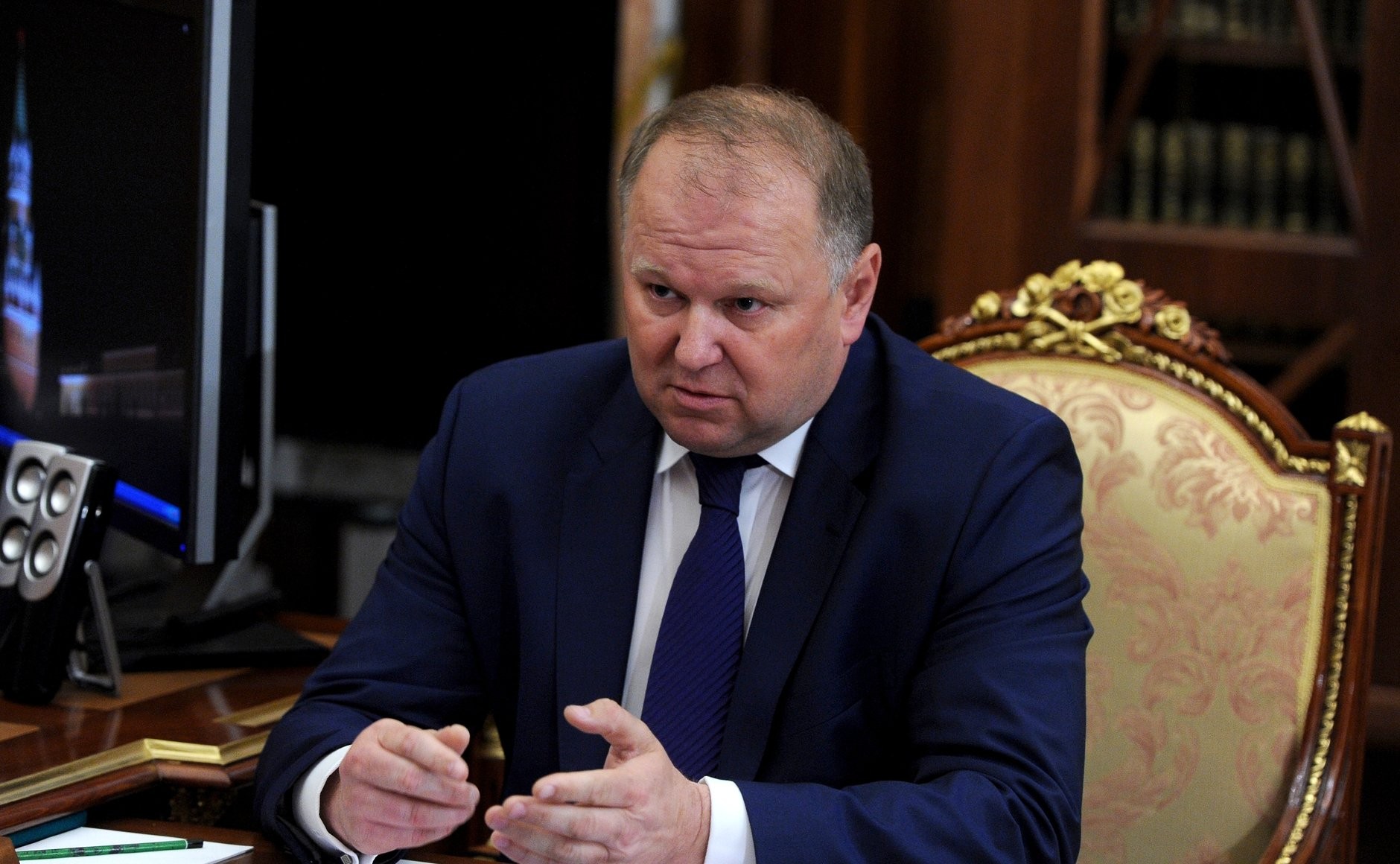 As per the Executive Order, Nikolai Tsukanov has been relieved of his duties as Plenipotentiary Presidential Envoy to the Urals Federal District. The source of information - http://en.kremlin.ru/events/president/news/64351 Vladimir Yakushev appointed Plenipotentiary Presidential Envoy to the Urals Federal District Vladimir Putin signed Executive Order On Plenipotentiary Presidential Envoy to the Urals Federal District. November 9, 2020 - 10:45 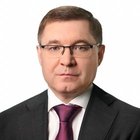 In accordance with Article 83 (k) of the Russian Federation Constitution, the President resolved to appoint Vladimir Yakushev Plenipotentiary Presidential Envoy to the Urals Federal District, relieving him of his current position. The source of information - http://en.kremlin.ru/events/president/news/64352 Yevgeny Ditrikh relieved of his duties as Transport Minister The President signed Executive Order On Yevgeny Ditrikh. November 9, 2020 - 10:50 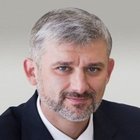 As per the Executive Order, Minister of Transport of the Russian Federation Yevgeny Ditrikh was relieved of his duties. The source of information - http://en.kremlin.ru/events/president/news/64353 Dmitry Kobylkin relieved of his duties as Minister of Natural Resources and Environment Vladimir Putin signed Executive Order On Dmitry Kobylkin. November 9, 2020 - 10:55 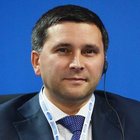 The President signed Executive Order relieving Dmitry Kobylkin of his duties as Minister of Natural Resources and Environment of the Russian Federation. The source of information - http://en.kremlin.ru/events/president/news/64354 Meeting with President of Syria Bashar al-Assad Vladimir Putin had a meeting, via videoconference, with President of the Syrian Arab Republic Bashar al-Assad. November 9, 2020 - 13:25 - Novo-Ogaryovo, Moscow Region President of Russia Vladimir Putin: Good afternoon, Mr President. Glad to see you. Russia is continuing to make intensive efforts to facilitate a long-term settlement in Syria, restoring its sovereignty, independence, unity and territorial integrity. In this context, I should note the productivity of the Astana format that also involves our partners from Iran and Turkey. We have achieved great progress thanks to our joint efforts: the hotbed of international terrorism in Syria has been almost completely eliminated; the level of violence has been reduced significantly. The country is returning to peaceful life while an inclusive political process continues under the auspices of the United Nations. At this point, Syria’s post-conflict recovery is crucial – primarily, the return of Syrian refugees and internally displaced persons to their homes. As we know, this is one of the key conditions of the fundamental UN Security Council Resolution 2254. Unfortunately, as of today, more than 6.5 million refugees remain outside Syria, the overwhelming majority being able-bodied citizens who can and must take part in their country’s recovery. Moreover, their return would also be in the interests of the host countries – mainly, Syria’s neighbours, because this burden is significant and they have to incur substantial expenses related to temporary accommodation and provision of supplies to Syrians. Not to mention the fact that younger refugees often fall under the influence of radical groups, join militants and may pose a threat to their host countries. Back in 2018, I addressed the international community with an appeal to support the process of repatriation of Syrian refugees and internally displaced persons which you, Mr President, and the Syrian government initiated. It was then that we agreed to expand bilateral cooperation on this matter, in particular, by forming inter-agency coordination offices. In Syria itself, measures to improve living and working conditions and lift various political, social and psychological restrictions, continue to this day. These efforts have yielded fruit. Over 850,000 Syrian citizens have returned back to Syria and over 1 million people have returned to the places of their permanent residence inside the country. This is certainly a result of your efforts, Mr President. This is good, in general. But the scale of the humanitarian disaster – there is no other description for the situation – remains quite considerable. 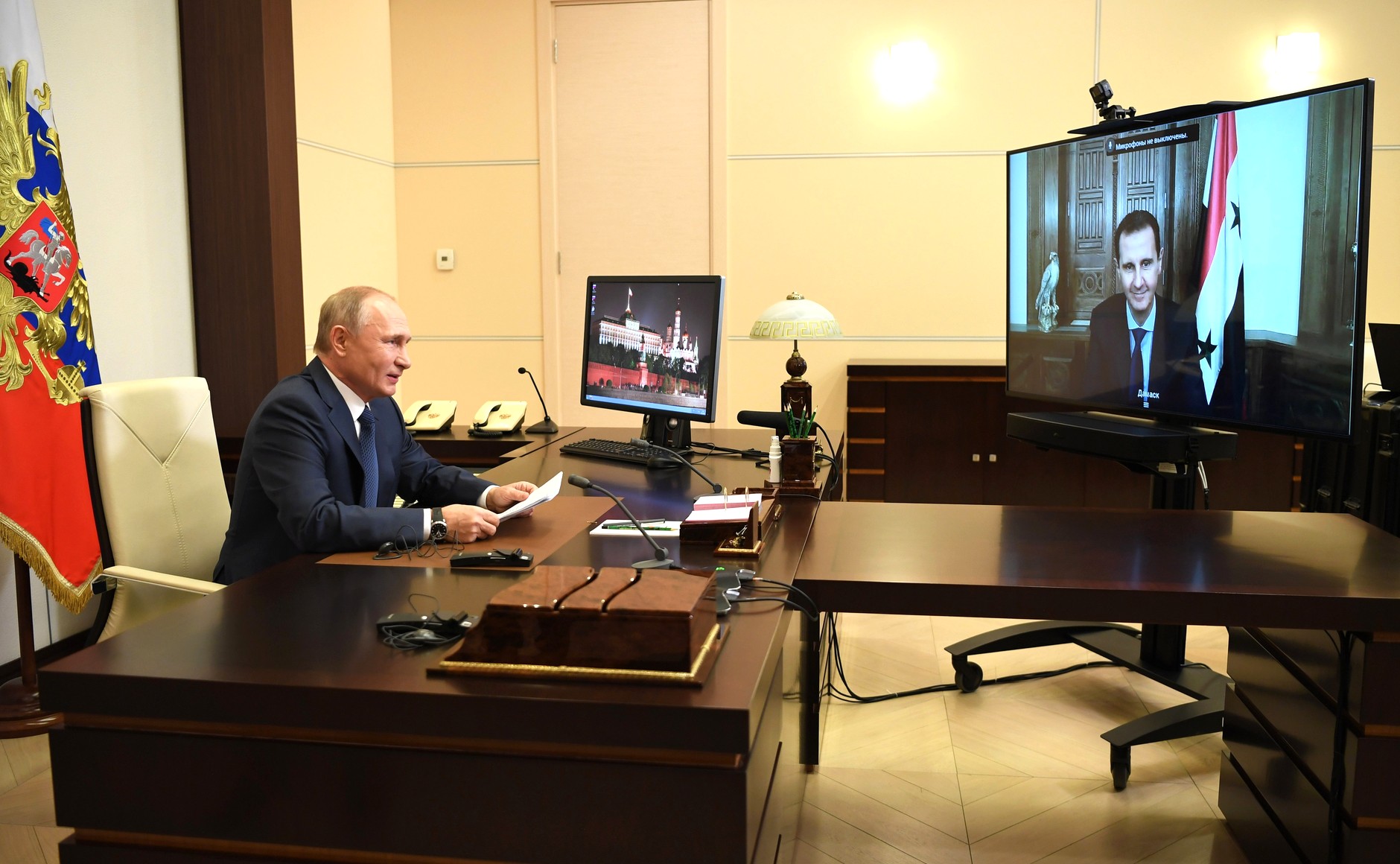 Now that peace and tranquillity have been restored in the larger part of Syria, there is a possibility to ensure a large-scale return of refugees back home. It is vital, of course, that this process runs a natural course, with no pressure applied. Each Syrian must be able to make a decision independently, based on reliable information about the situation in his or her home country and the measures to restore peaceful life taken by you, Mr President, and by the Syrian authorities. This is the objective of the international conference on the return of refugees and internally displaced persons, which will be held in Damascus on November 11–12. Russia wholeheartedly supports it and is actively helping Syria to organise and hold it. Representatives of many countries, as well as the UN and the International Committee of the Red Cross, have confirmed their participation. The Russian delegation, which will be one of the largest, will include professionals from over 30 ministries and agencies. In addition to taking part in the forum, they intend to hold meetings with their Syrian colleagues to discuss the most important current aspects of bilateral cooperation. Also, the delivery of 65 tonnes of humanitarian aid will be timed for the conference. We hope that the conference will be productive and will help to stimulate the process of a massive return of refugees, thus promoting lasting normalisation in Syria. I hope that it will be successful. For our part, this is what we will work for, Mr President. Thank you. 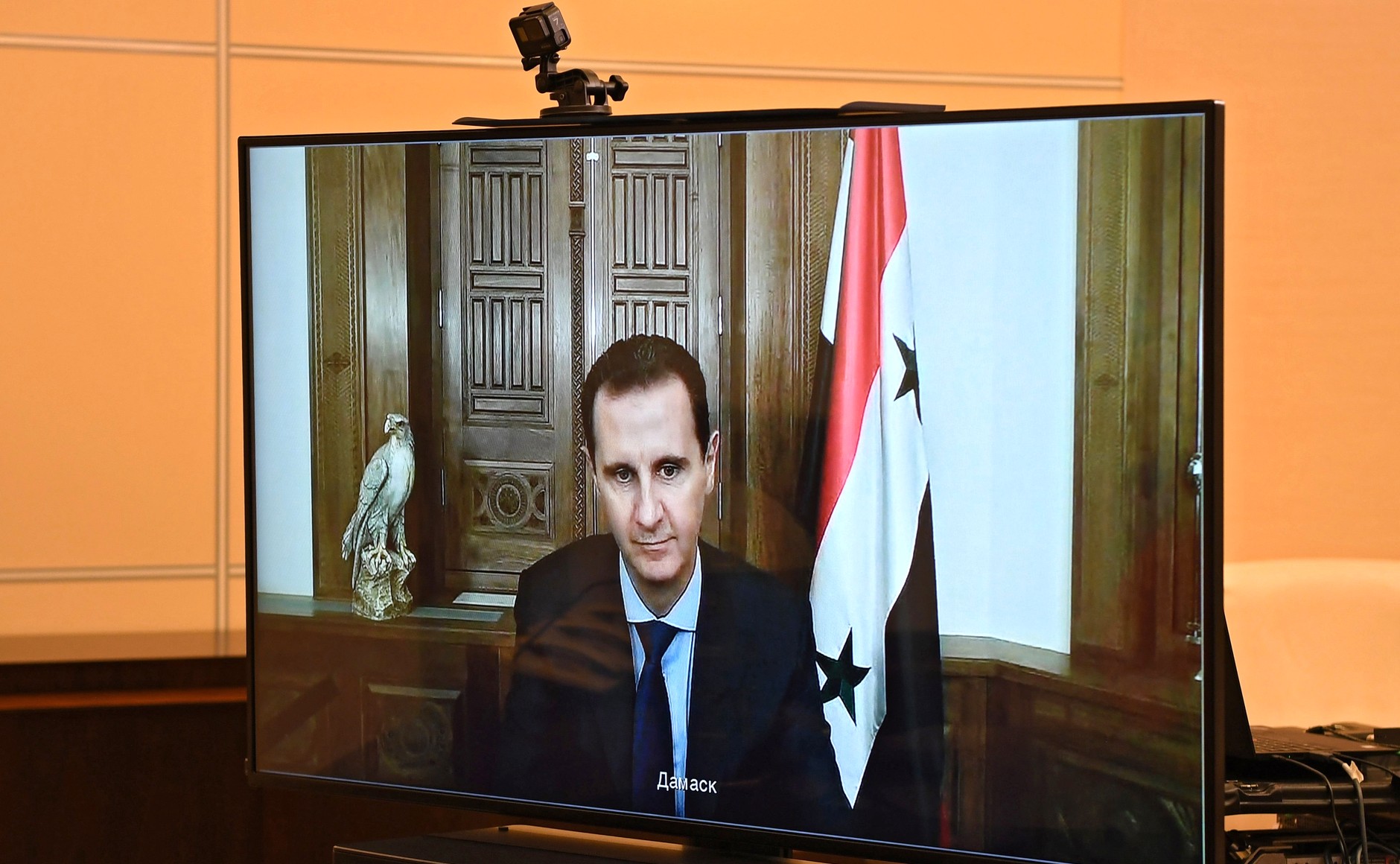 President of Syria Bashar al-Assad (retranslated): Thank you very much, Mr President. I am delighted to be hosting this videoconference with you today, especially in the run-up to the International Conference on Refugees, which will be convened in Damascus within the next few days. Thank you for your attention to the problem of refugees. It is a humanitarian problem, but many countries around the world are trying to politicise it. It is a national problem, and all Syrian authorities are interested in resolving it. It is one of our government’s top priorities for the next period, especially since a significant part of Syria’s territory has been liberated, and we have eradicated terrorism there. Of course, this matter is a priority, but, in addition to it, we would, of course, like to discuss other issues. As you are aware, Mr President, many refugees and internally displaced persons were driven out of the country by fear of terrorism. Others fled because infrastructure was destroyed, and they lost their jobs. We continue to maintain direct contact with most of the states in which these refugees are residing. We are aware that they are eager to return, especially after Syria has provided certain benefits to encourage the return process. However, the problem is that terrorists are still holding some regions of our country, and Syria and its people are under economic blockade, which does not help us meet the Syrian refugees’ essential needs. Schools are closed or have been destroyed, and providing essential services is a challenge.  In addition, the returning refugees must have certain prospects for a normal life, but the problem is that the Western embargo is a big hurdle to achieving these goals. We pin great hopes on this conference and hope that it will bring practical results. The Syrians are not only willing, but are excited to be able to carry out practical agreements in the months immediately following the conference. And we are aware that most of the refugees support the Syrian government, but, unfortunately, the current circumstances prevent them from returning. We appreciate the other states’ interest in participating in this conference. We hope it will be possible to alleviate the existing economic embargo or even break it by joint efforts in order to create proper conditions for the return of refugees. Once again, Mr President, thank you for this opportunity to contact you and for the attention that you and the leadership of the Russian Federation are devoting to this matter and, despite the international pressure and sanctions against this conference, you are helping us organise it. We are confident that it will be a success, and are committed to continuing cooperation with Russia and other interested states on this matter. We are confident that, similar to the outcome of World War II, the truth is on our side and we will succeed in upholding it. Thank you once again for supporting Damascus and the Syrian government in overcoming this crisis, the post-conflict rebuilding effort and the return of the refugees. Thank you. 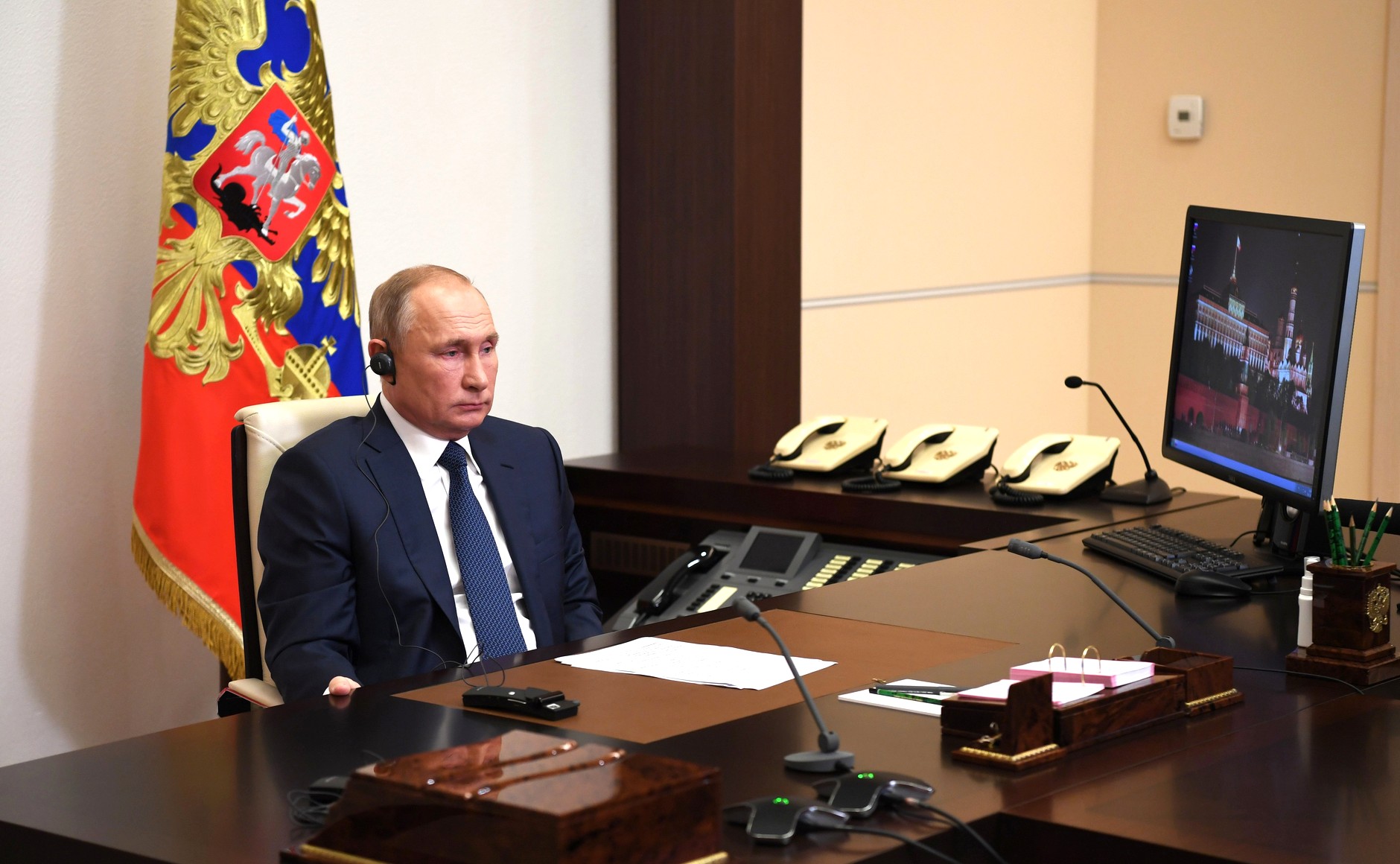 Vladimir Putin: Mr President, I propose briefly discussing some of the details related to organising this conference and then, maybe, our bilateral relations. The source of information - http://en.kremlin.ru/events/president/news/64358 [In the Russian version there is Congratulations on the Day of the employee of the internal affairs bodies.] Greetings to 18th Yury Ozerov International Military Film Festival Vladimir Putin sent greetings to the organisers, participants and guests of the 18th Yury Ozerov International Military Film Festival. November 9, 2020 - 18:00 The message reads, in part: “It is gratifying that your traditional meetings continue to grow and occupy a worthy place in the country’s cultural life with every new year. Spectacular and eventful, they invariably attract keen interest from the film-making community and audiences as they are known for their rich and informative programme. And they also carry out a significant and responsible mission by contributing to the education of the younger generation in the spirit of civic consciousness and patriotism and respect for the heroic pages in our history. I am sure that the current festival, dedicated to the 75th anniversary of Victory in the Great Patriotic War, will also be a success and will make the best impressions on the festival’s audiences and participants.” The Yury Ozerov International Military Film Festival has been held in different Russian cities since 2003. This year it is being hosted by Tula from November 9 through 14, for the first time online due to the coronavirus pandemic. Yury Ozerov was a Soviet and Russian film director, scriptwriter and educator. Among his most famous works were the film epics Liberation, Stalingrad, and The Battle of Moscow, which are dedicated to the Great Patriotic War. The source of information - http://en.kremlin.ru/events/president/news/64382 Statement by the President of Russia November 10, 2020 - 01:35 - Novo-Ogaryovo, Moscow Region President of Russia Vladimir Putin: Today, on November 9, President of the Republic of Azerbaijan Ilham Aliyev and Prime Minister of the Republic of Armenia Nikol Pashinyan have signed a statement on a complete ceasefire and the termination of hostilities in the Nagorno-Karabakh conflict zone as of midnight, Moscow time, on November 10, 2020. The Republic of Azerbaijan and the Republic of Armenia will remain in their current positions. A peacekeeping force of the Russian Federation will be deployed on the contact line in Nagorno-Karabakh and along the corridor connecting it to the Republic of Armenia. The internally displaced persons and refugees will return to Nagorno-Karabakh and the adjacent regions under the supervision of the UN High Commissioner for Refugees. 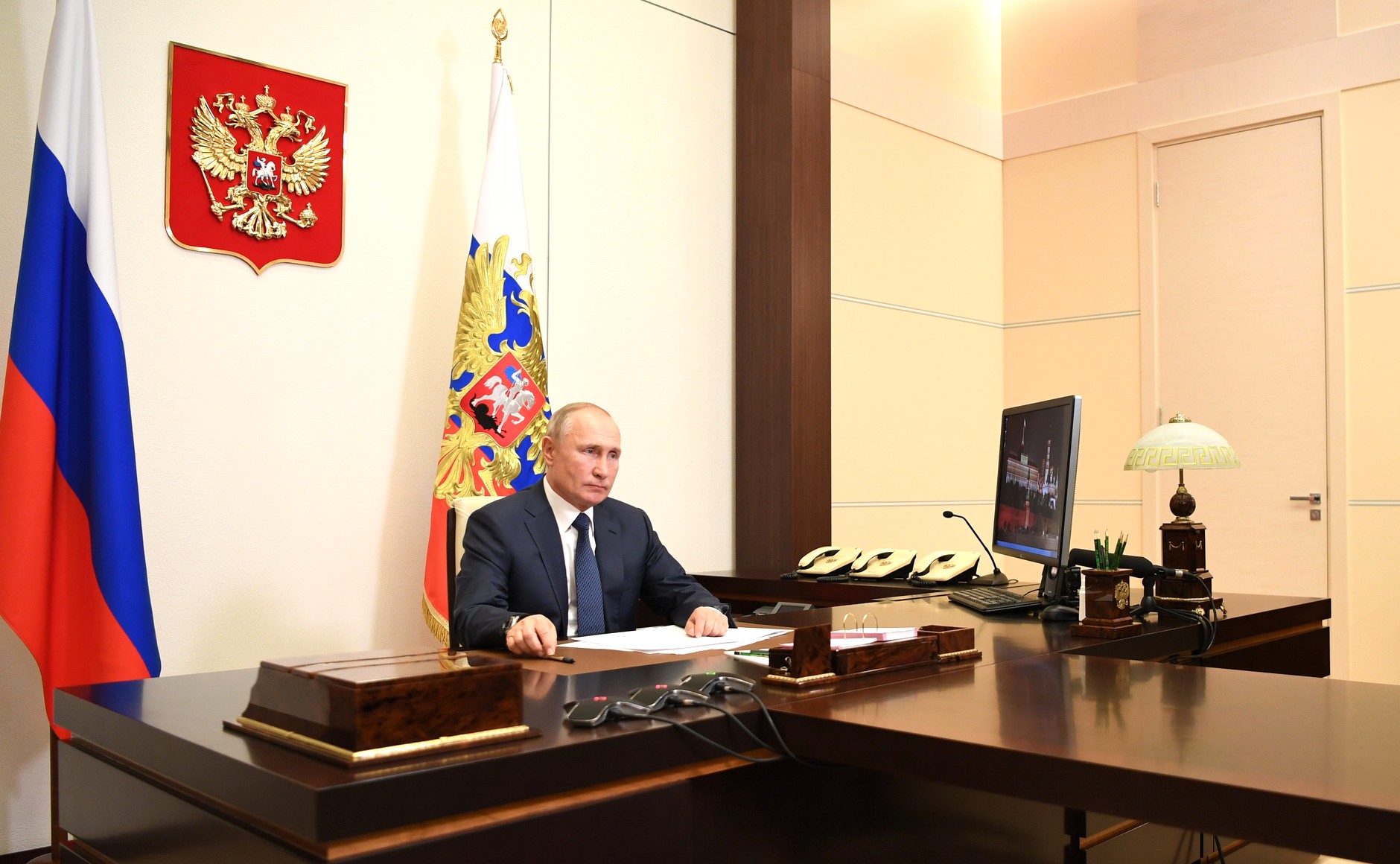 The parties will exchange prisoners of war, detainees and dead bodies. The blockade of the economic and transport ties in the region will be lifted. The oversight of transport communications will be ensured with the involvement of the agencies of the Border Guard Service of Russia. We proceed from the assumption that the agreements reached will create the necessary conditions for a lasting and full-scale settlement of the crisis over Nagorno-Karabakh on a fair basis and in the interests of the people of Armenia and Azerbaijan. The source of information - http://en.kremlin.ru/events/president/news/64381 Statement by President of the Republic of Azerbaijan, Prime Minister of the Republic of Armenia and President of the Russian Federation November 10, 2020 - 11:45 We, President of the Republic of Azerbaijan Ilham Aliyev, Prime Minister of the Republic of Armenia Nikol Pashinyan and President of the Russian Federation Vladimir Putin, state the following: 1. A complete ceasefire and termination of all hostilities in the area of the Nagorno-Karabakh conflict is declared starting 12:00 am (midnight) Moscow time on November 10, 2020. The Republic of Azerbaijan and the Republic of Armenia, hereinafter referred to as the “Parties,” shall stop in their current positions. 2. The Agdam District shall be returned to the Republic of Azerbaijan by November 20, 2020. 3. The peacemaking forces of the Russian Federation, namely, 1,960 troops armed with firearms, 90 armoured vehicles and 380 motor vehicles and units of special equipment, shall be deployed along the contact line in Nagorno-Karabakh and along the Lachin Corridor. 4. The peacemaking forces of the Russian Federation shall be deployed concurrently with the withdrawal of the Armenian troops. The peacemaking forces of the Russian Federation will be deployed for five years, a term to be automatically extended for subsequent five-year terms unless either Party notifies about its intention to terminate this clause six months before the expiration of the current term. 5. For more efficient monitoring of the Parties’ fulfilment of the agreements, a peacemaking centre shall be established to oversee the ceasefire. 6. The Republic of Armenia shall return the Kalbajar District to the Republic of Azerbaijan by November 15, 2020, and the Lachin District by December 1, 2020. The Lachin Corridor (5 km wide), which will provide a connection between Nagorno-Karabakh and Armenia while not passing through the territory of Shusha, shall remain under the control of the Russian Federation peacemaking forces. As agreed by the Parties, within the next three years, a plan will be outlined for the construction of a new route via the Lachin Corridor, to provide a connection between Nagorno-Karabakh and Armenia, and the Russian peacemaking forces shall be subsequently relocated to protect the route. The Republic of Azerbaijan shall guarantee the security of persons, vehicles and cargo moving along the Lachin Corridor in both directions. 7. Internally displaced persons and refugees shall return to the territory of Nagorno-Karabakh and adjacent areas under the supervision of the United Nations High Commissioner for Refugees. 8. The Parties shall exchange prisoners of war, hostages and other detained persons, and dead bodies. 9. All economic and transport connections in the region shall be unblocked. The Republic of Armenia shall guarantee the security of transport connections between the western regions of the Republic of Azerbaijan and the Nakhchivan Autonomous Republic in order to arrange unobstructed movement of persons, vehicles and cargo in both directions. The Border Guard Service of the Russian Federal Security Service shall be responsible for overseeing the transport connections. As agreed by the Parties, new transport links shall be built to connect the Nakhchivan Autonomous Republic and the western regions of Azerbaijan. The source of information - http://en.kremlin.ru/events/president/news/64384 SCO Heads of State Council meeting Vladimir Putin chaired a videoconference meeting of the Shanghai Cooperation Organisation Heads of State Council. November 10, 2020 - 15:00 - Sochi 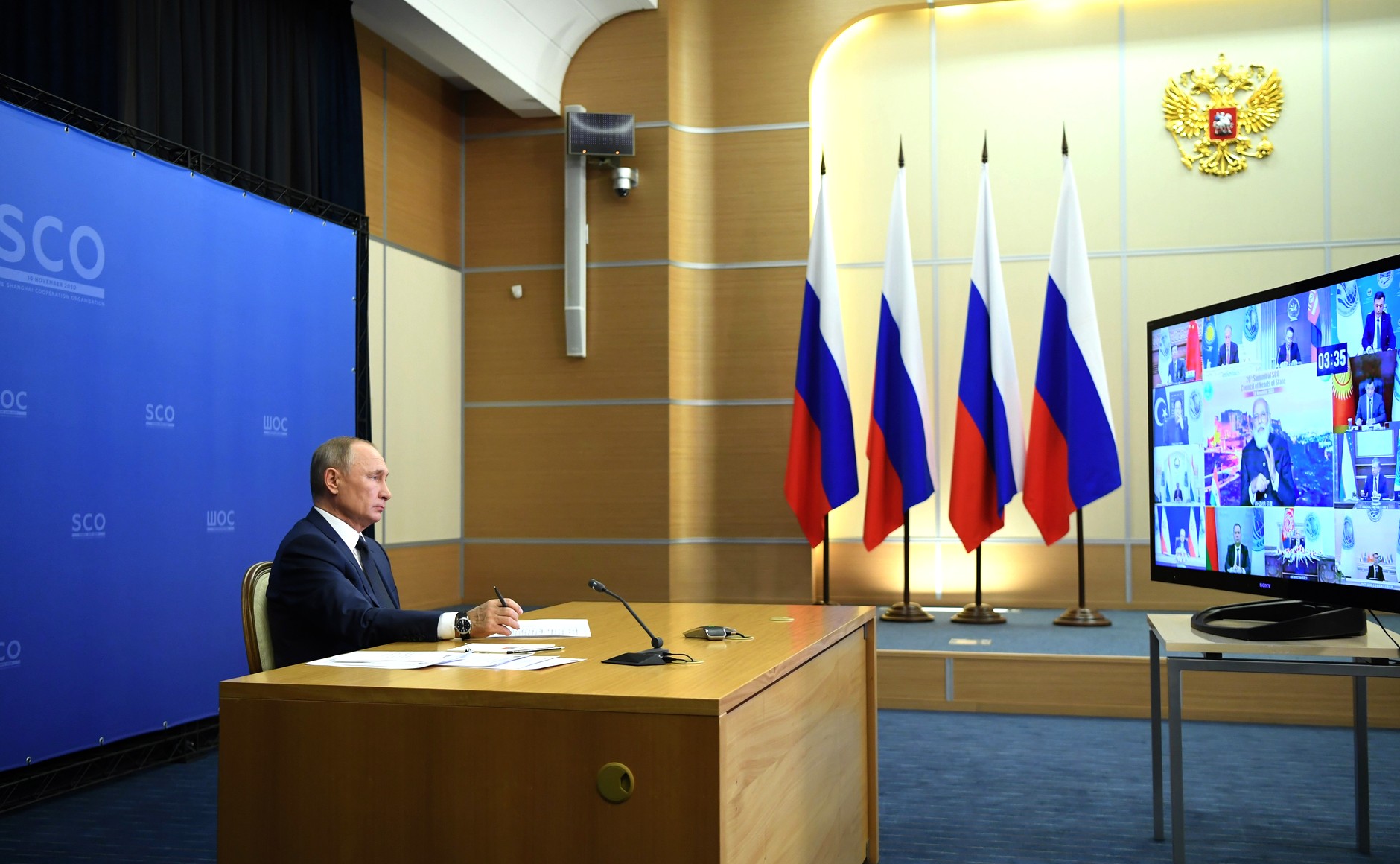 The meeting participants discussed prospects for developing cooperation within the SCO and topical issues on the international and regional agendas. A series of documents was adopted following the meeting, including the Moscow Declaration of the SCO Heads of State Council. The package of documents also includes resolutions of the SCO Heads of State Council approving the 2021–2025 Action Plan for the implementation of the SCO Development Strategy until 2025, on the SCO Cooperation Concept for Developing Remote and Rural Territories in the Digital Age, on the SCO Comprehensive Plan of Joint Measures to Counter Epidemics in the Region. Additionally, decisions were made to sign memorandums of understanding between the SCO Secretariat and the Secretariat of the UN Economic and Social Commission for Asia and the Pacific, the Eurasian Economic Commission, the World Health Organisation, and on the SCO Culture and Integration Centre. Other decisions concern annual SCO performance reports and the 2019 performance report of the SCO Regional Anti-Terrorist Structure. Adopted documents also include a statement on the 75th anniversary of Victory in World War II and statements on countering the spread of the terrorist, separatist and extremist ideology, including online, on cooperation in ensuring international information security, on countering the drug threat, on joint efforts against the novel coronavirus infection and on cooperation in the digital economy. 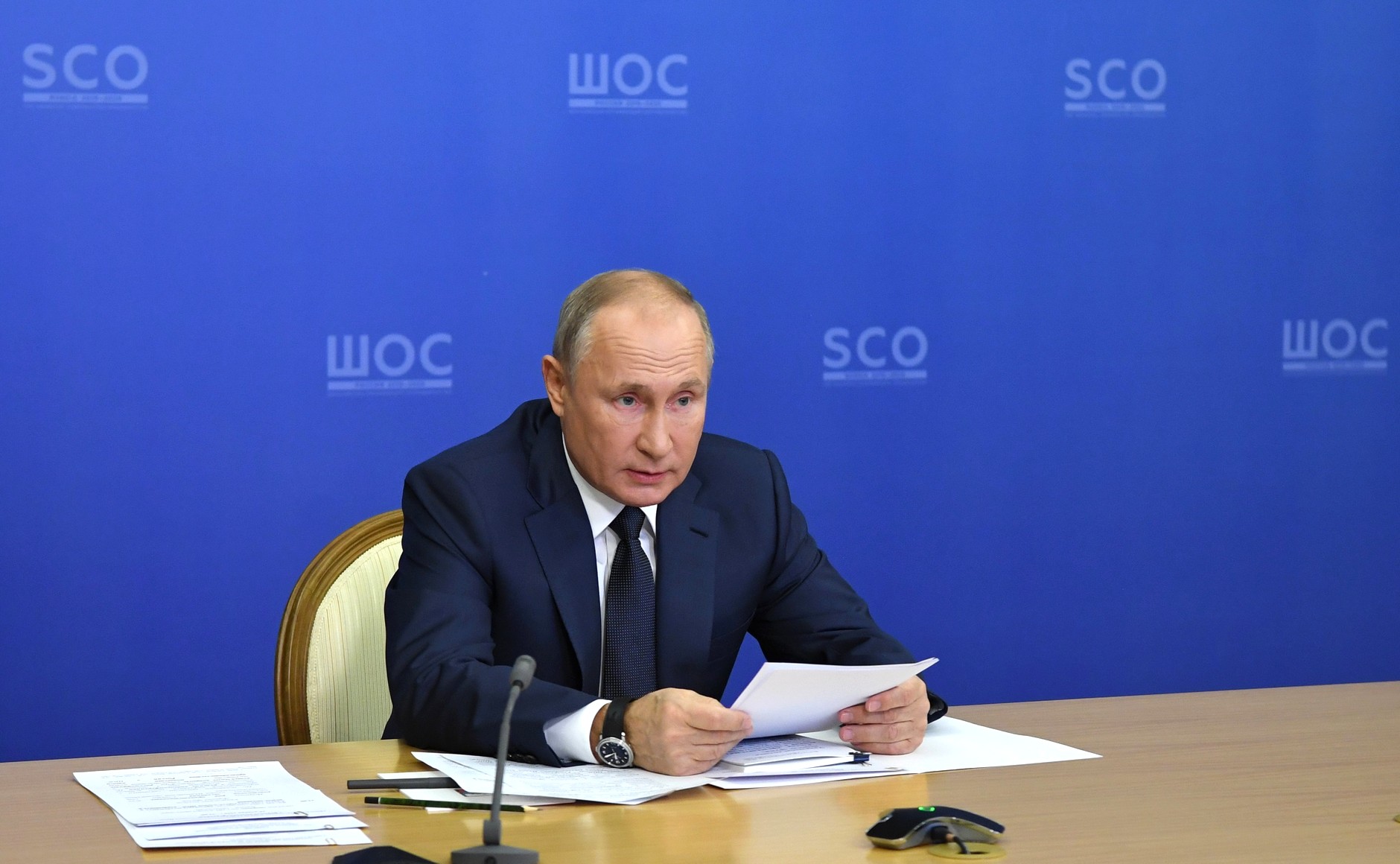 President of Russia Vladimir Putin: Good afternoon, colleagues, friends, I would like to sincerely welcome all participants of the meeting of the Shanghai Cooperation Organisation Heads of State Council. We are holding this meeting via videoconference for understandable reasons connected with the coronavirus pandemic, but this will not prevent us from holding a business-like and constructive discussion on the current issues of interaction between our states, reviewing the results of Russians SCO Chairmanship and exchanging views on the key international and regional topics. Of course, we also need to coordinate our future cooperation plans, in particular, discuss our joint activities and future coronavirus response measures aimed at mitigating the negative impact of the pandemic on our economies and on the global political and socioeconomic processes. I would like to point out that not just the leaders of the eight SCO member states are taking part in this meeting, but also the leaders of the SCO observer states and heads of the permanent bodies of the organisation. In addition, we have received a video address by UN Secretary-General Antonio Guterres. All of you have received the agenda of this meeting and the time limit on speeches has been coordinated in advance. If there are no objections, I suggest that we get down to work and announce the meeting of the Heads of State Council of the Shanghai Cooperation Organisation open. As per accepted practice, I would like to open this meeting by making the first statement as the head of state that holds the SCO Chairmanship, after which the other participants of this meeting will have the floor. 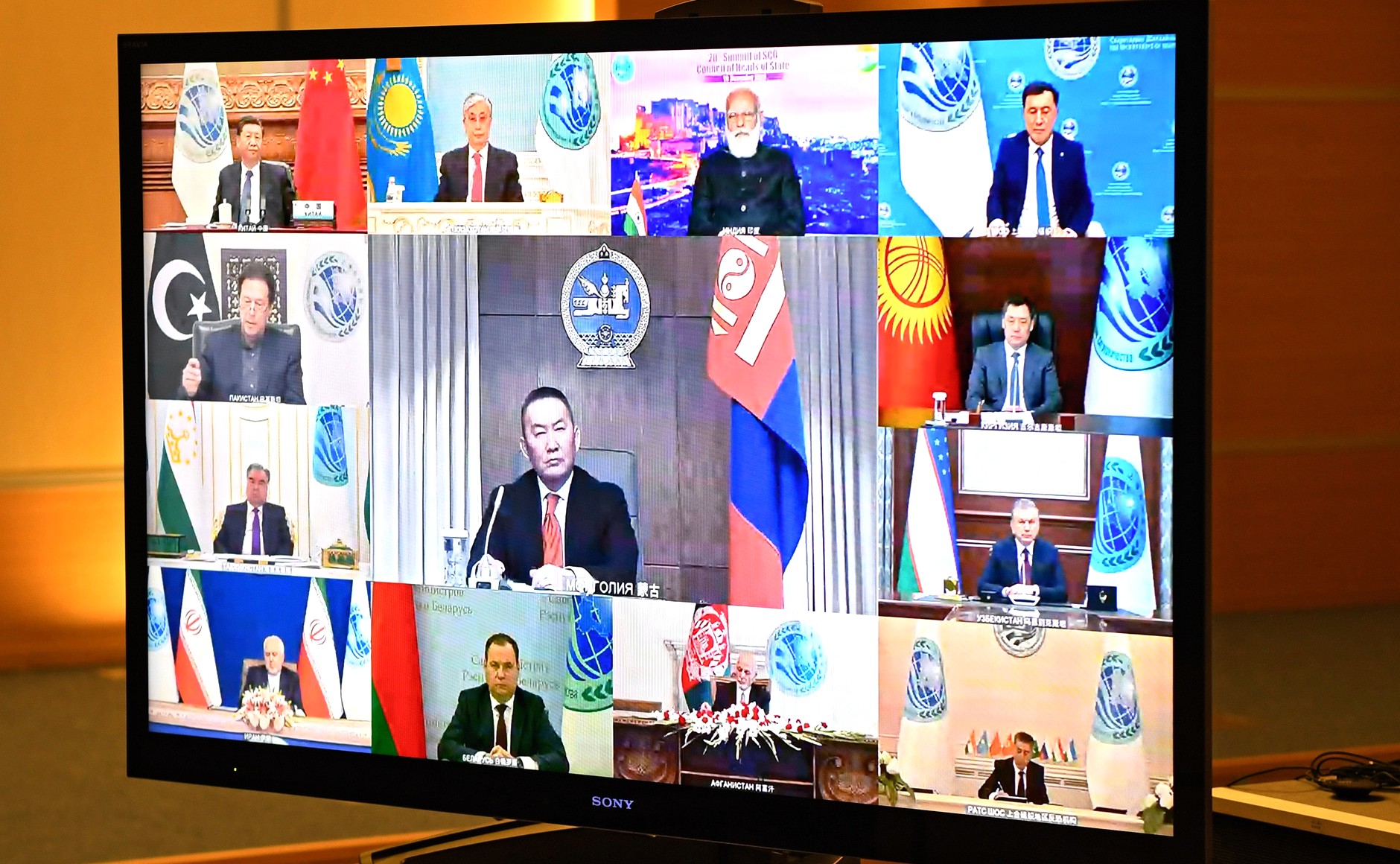 Colleagues, friends, Russia has been leading the Shanghai Cooperation Organisation when all our countries were hit by the coronavirus and had to confront it, respond to the challenge. We had to make adjustments to our joint agenda to accommodate a greater focus on the interaction between the member states in healthcare, protecting our citizens’ lives and health. I would like to emphasise that the SCO countries have provided and continue to provide help and support to each other in fighting the infection. Russia has donated to its SCO partners about half a million COVID-19 lab diagnostic kits, as well as contactless temperature taking instruments. Teams of Russian medical specialists have been dispatched to Kazakhstan, Kyrgyzstan, Tajikistan and Uzbekistan, and nine such missions have already been completed. An effective exchange of data and experience has been established between the sanitary and epidemiological services and the healthcare ministries of the SCO states. I would like to just mention that today we are to approve a SCO comprehensive plan for combating epidemics, as well as a special Statement on the coronavirus agenda. It is crucial that the pandemic has not led to a decrease in the main areas of the SCO activities. During Russia’s chairmanship, a total of more than 60 joint events were held involving representatives of governments, departments, parliaments, businesses and public agencies. Some of these gatherings, for obvious reasons, were held online. Nevertheless, the SCO managed to maintain a high quality of engagement. A solid package of final documents on deepening cooperation in politics, the economy and in the humanitarian sphere has been prepared for today's meeting. I would like to note that the cooperation between the SCO states in foreign and defence policy has noticeably intensified. There have been two meetings of the foreign ministers. In September, a joint meeting of the SCO Defence Ministers was held in Moscow, in which the heads of defence departments of the CSTO and CIS countries also took part for the first time. 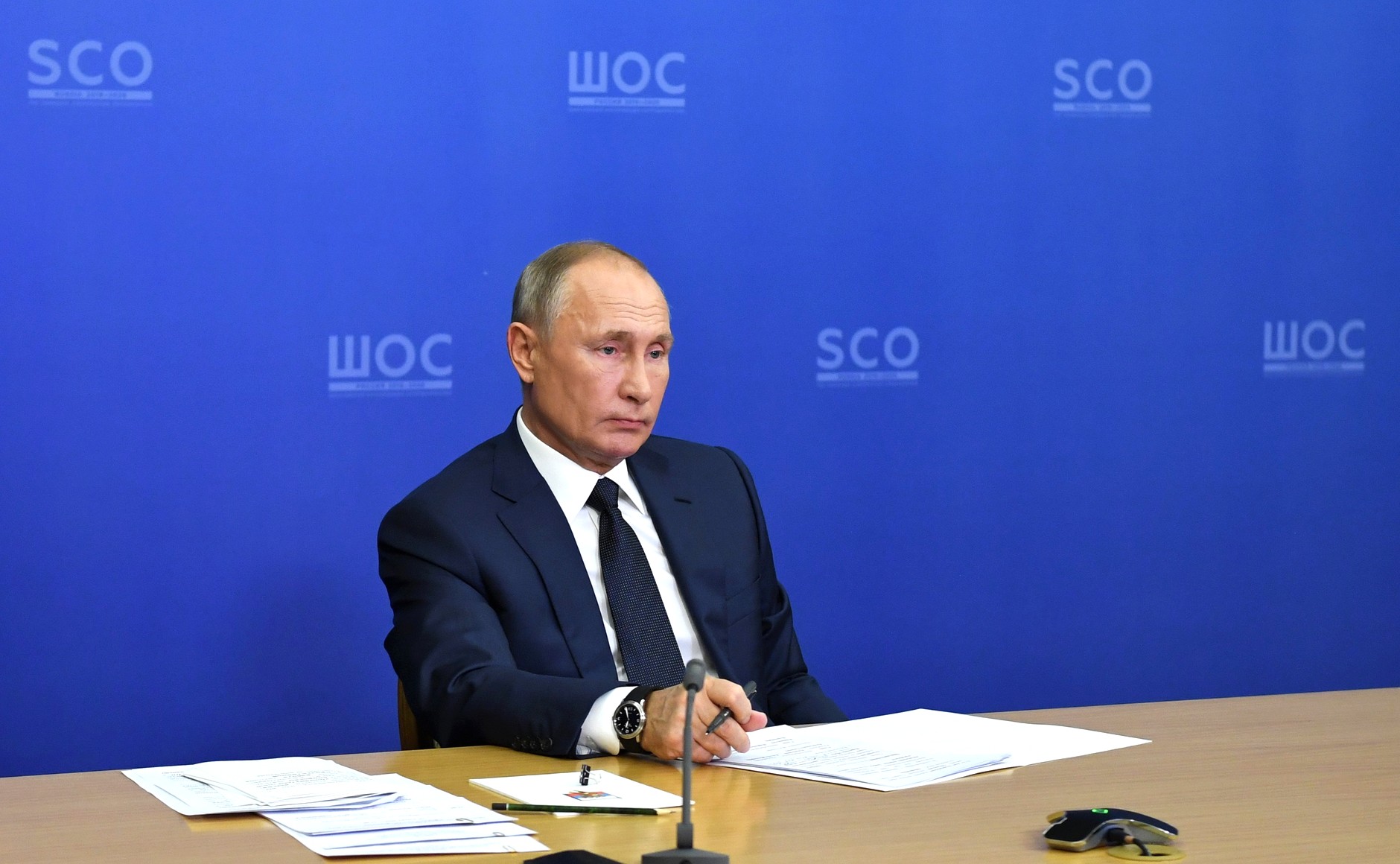 We consider this a useful initiative and we hope that such extended meetings of natural partners will become regular. It seems that this will encourage a qualitative increase in coordination at the level of law enforcement agencies to monitor the defence and security situation across the wider Eurasian space. The Russian chairmanship also continued the practice of joint exercises involving the military and special units from SCO member states as well as our partners, including from observer countries. In particular, a counter-terrorist exercise was held in Kazakhstan, China hosted an exercise against extremist uses of the Internet, and Russia carried out the first stage of the Solidarity border operation. Apart from that, Russia and Kazakhstan organised and held two Pautina (Spider Web) international anti-drug operations. And, of course, I cannot but mention the fact that the current year has been marked by celebrations dedicated to the 75th anniversary of the end of World War II. All the SCO member states have focused on holding commemorative events related to this anniversary. Symbolically, units from SCO countries marched in review during the Victory Parade on Red Square in Moscow along with the Russian military. Today, following this meeting, we will adopt a Statement, declaring that we cherish the memory of the Great Victory and underscoring the importance of the feat of valour by our peoples that saved the world from Nazism at the cost of immense and irreparable losses. In this, I see not only a tribute to those, who fought against the enemy, but also an important signal to the entire international community concerning the SCO member states’ unity and determination to jointly uphold peace and security. 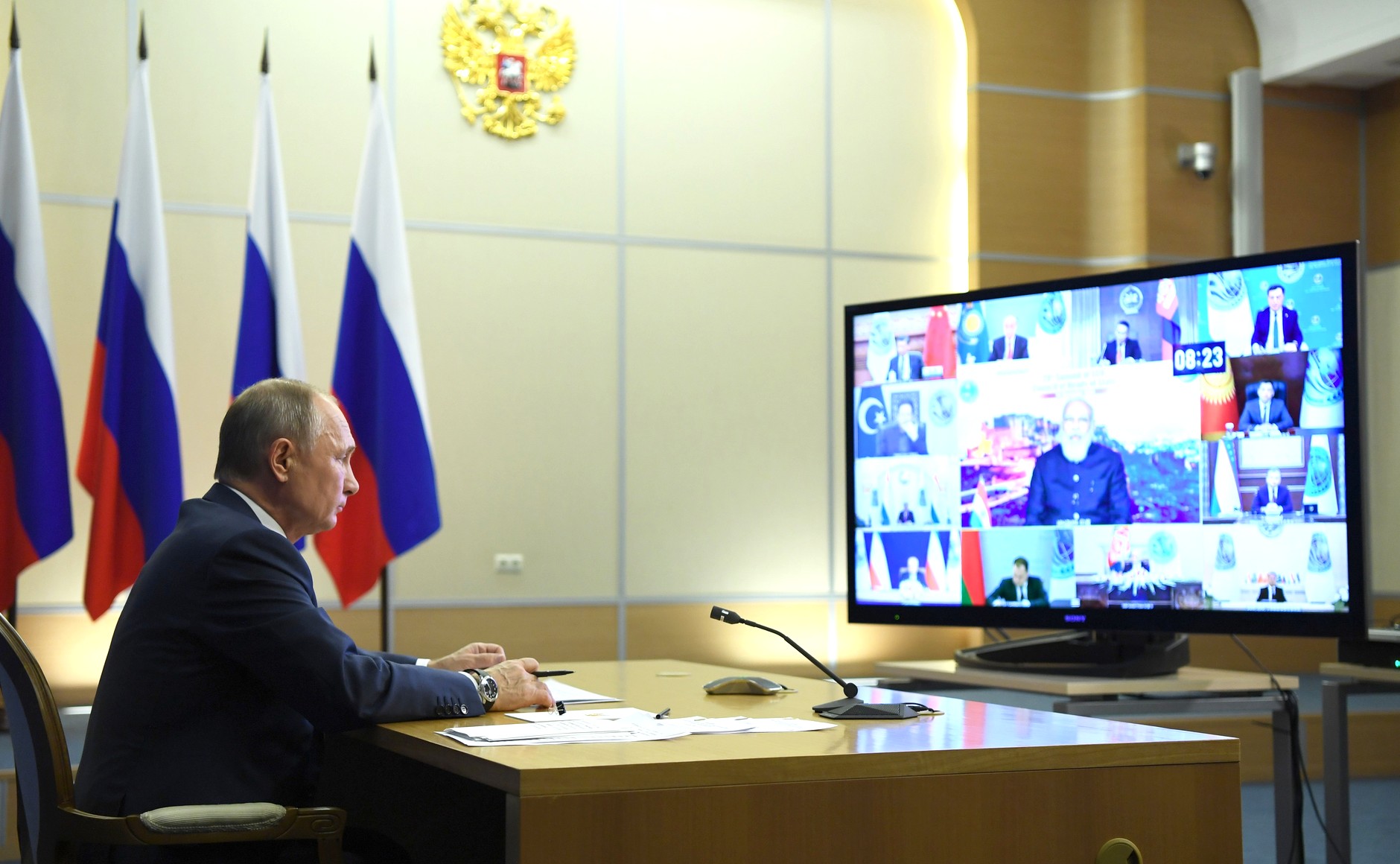 Colleagues, It is clear to everyone that the global and regional security situation remains complicated. International terrorism and drug trafficking are still major threats. The scale of cybercrime has grown perceptibly. The strategic stability system continues to deteriorate. Regrettably, violent regional conflicts are not ceasing either. Moreover, new seats of tension are emerging, including on the SCO’s external borders and in neighbouring regions. Therefore, one of the key components of SCO work is to assist peaceful crisis resolution by political and diplomatic means and to cut short threats emanating from the hot spots. The situation in Afghanistan remains a matter of particular concern. A lot is being done at the SCO level to help our Afghan friends to attain national accord and build a lasting and durable peace. The SCO-Afghanistan Contact Group has been created; it has drafted and adopted a roadmap of the organisation’s further steps with regard to Afghanistan. All this is aimed at helping Afghanistan to become a stable and safe state free of terrorism and drug-related crimes and living at peace with its neighbours. During the past few years, Russia, working with support from the SCO, has organised a series of meetings, which were attended by representatives of all the Afghan political forces without exception. We intend to continue doing our utmost to promote national reconciliation in Afghanistan, including at the platform of the Moscow consultations where Afghanistan’s neighbours are represented, including SCO countries, of course, as well as the United States. A dangerous level of instability persists in the Middle East and North Africa. The armed confrontation in Libya and Yemen and the remaining pockets of bandit groups in Syria are a source of terrorist threat as well as drug and arms trafficking. The movement of terrorist fighters beyond that region deserve special attention, of course. This is exacerbating the conflicts. On a related note, the developments in Karabakh are a huge tragedy. I am really pleased to point out the nascent movement towards a compromise and the agreements reached to stop the bloodshed. I hope that all the steps we have taken recently will bring about a lasting peace to the benefit of the people of Azerbaijan and Armenia. One more open challenge to our common security is the increased number of attempts of direct foreign interference in the internal affairs of states that are involved in SCO activities. I am referring to the blatant infringement on sovereignty, attempts to split societies, change the countries’ path of development and sever the existing political, economic and humanitarian ties that took centuries to develop. An attack of this kind has been directed by external forces against Belarus, an observer country of the SCO. Following the presidential election, our Belarusian friends have been put under unprecedented pressure and had to repel sanctions, provocations and an information and propaganda war waged against them. We regard this as unacceptable that external forces are trying to enforce any decisions on the Belarusian people. They must be given time to sort things out and take whatever steps may be necessary. The same is true of the recent developments in Kyrgyzstan and the unfolding internal political fighting in Moldova. 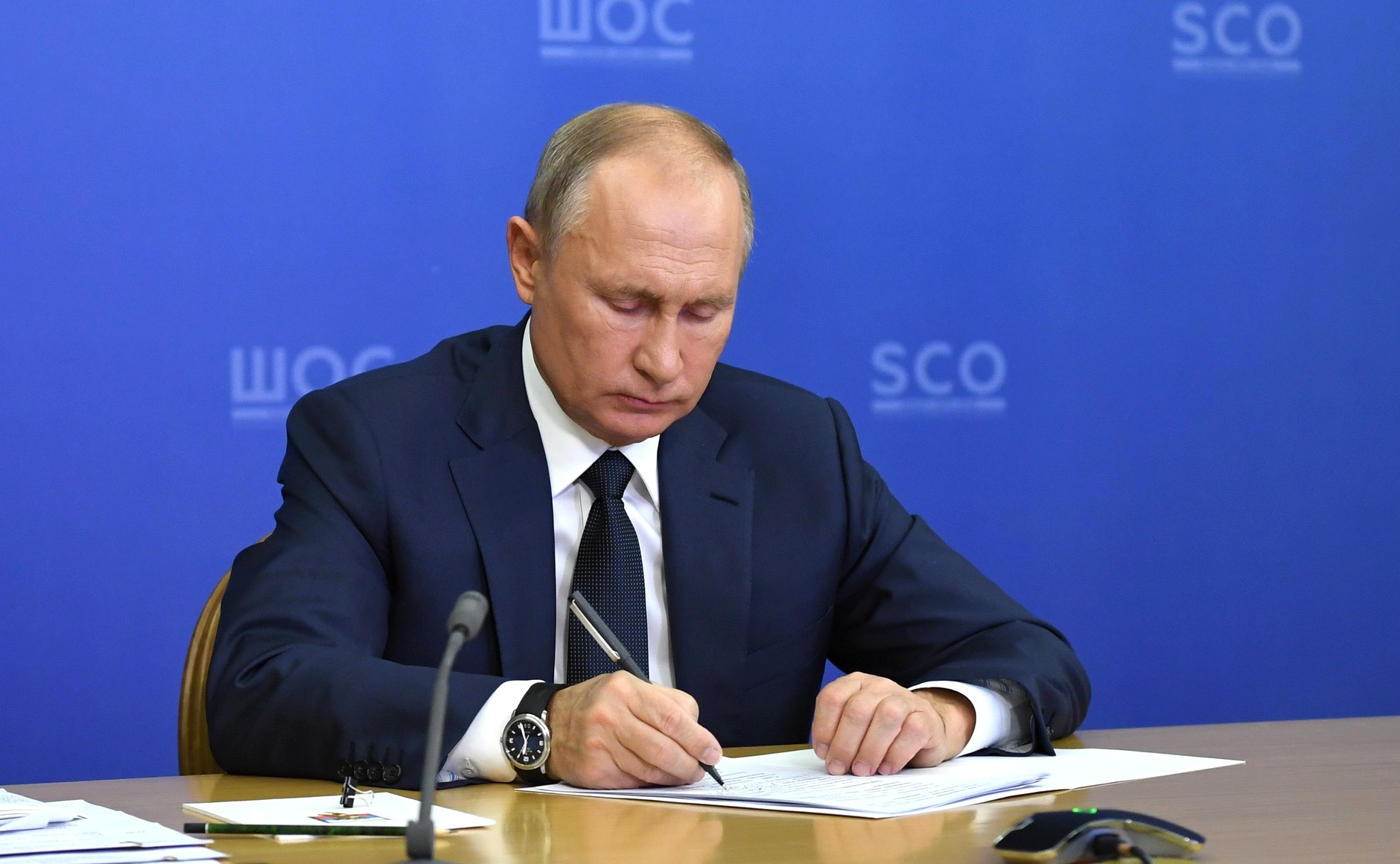 Colleagues, Speaking about the economic agenda of our organisation, Russia’s chairmanship was based on the fact that all the member countries are interested in further developing business collaboration and promoting mutually beneficial cooperation in trade, manufacture, the digital economy, innovation, high technologies and food, transport and energy security. The coronavirus pandemic has dealt a severe blow to the world economy and resulted in a global recession. Of course, our organisation has also faced difficulties. It is estimated that the economies of the SCO member states will decline by an average of 3.2 percent in 2020, which is less than elsewhere in the world, where a drop of 4.4 percent is expected. Trade between SCO member states has also decreased. For example, in January-August Russia’s trade with other member states dropped seven percent. In this context, the SCO has developed a complex of joint measures to set the situation right: in particular, to implement the SCO Programme of Multilateral Trade and Economic Cooperation until 2035, which was approved in 2019. It is aimed at overcoming negative trends in mutual trade as well as significantly strengthening our ties in investment cooperation, finance and banking, energy, transport and other areas. Businesses and public circles are actively involved in restoring the member states’ cooperation in the socioeconomic and humanitarian spheres. The Business Council, Interbank Consortium and SCO Youth Council are working. Interregional cooperation within the Forum of the Heads of Regions from the SCO member states is developing. Its first meeting took place just recently, on October 29. I have no doubt that you, colleagues, will elaborate on the SCO activities I have mentioned, as well as on other issues, and I hope that our work today will be constructive, useful and effective. Thank you for your attention. The source of information - http://en.kremlin.ru/events/president/news/64385
__________________
Where should they dig the Very Deep Pit? Piglet said that the best place would be somewhere where a Heffalump was, just before he fell into it, only about a foot farther on. (c) Alan Alexander Miln |
|
|
#148 |
|
Senior Member
|
Alexander Novak appointed Deputy Prime Minister
The President signed Executive Order On the Deputy Prime Minister. November 10, 2020 - 16:40 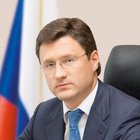 In accordance with Article 83 (e) of the Russian Federation Constitution, the President resolved to appoint Alexander Novak Deputy Prime Minister relieving him from his current post. The source of information - http://en.kremlin.ru/events/president/news/64386 Vitaly Savelyev appointed Minister of Transport Vladimir Putin signed Executive Order On the Minister of Transport of the Russian Federation. November 10, 2020 - 16:41 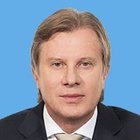 In accordance with Article 83 (e) of the Russian Federation Constitution, the President appointed Vitaly Savelyev Minister of Transport of the Russian Federation. The source of information - http://en.kremlin.ru/events/president/news/64387 Irek Faizullin appointed Minister of Construction, Housing and Utilities Vladimir Putin signed Executive Order On the Minister of Construction, Housing and Utilities of the Russian Federation. November 10, 2020 - 16:42  In accordance with Article 83 (e) of the Constitution of the Russian Federation, the President appointed Irek Faizullin Minister of Construction, Housing and Utilities of the Russian Federation. The source of information - http://en.kremlin.ru/events/president/news/64388 Nikolai Shulginov appointed Minister of Energy The President signed Executive Order On the Minister of Energy of the Russian Federation. November 10, 2020 - 16:43  In accordance with Article 83 (e) of the Russian Federation Constitution, Vladimir Putin appointed Nikolai Shulginov Minister of Energy of the Russian Federation. The source of information - http://en.kremlin.ru/events/president/news/64389 Alexander Kozlov appointed Minister of Natural Resources and Environment Vladimir Putin signed Executive Order On the Minister of Natural Resources and Environment of the Russian Federation. November 10, 2020 - 16:44  In accordance with Article 83 (e) of the Russian Federation Constitution, Vladimir Putin appointed Alexander Kozlov Minister of Natural Resources and Environment of the Russian Federation. The source of information - http://en.kremlin.ru/events/president/news/64390 Alexei Chekunkov appointed Minister for the Development of the Far East and the Arctic The President signed Executive Order On the Minister for the Development of the Russian Far East and Arctic. November 10, 2020 - 16:45  In accordance with Article 83 (e) of the Russian Federation Constitution, Vladimir Putin appointed Alexei Chekunkov Minister for the Development of the Russian Far East and Arctic. The source of information - http://en.kremlin.ru/events/president/news/64391 Meeting with senior Defence Ministry officials, heads of federal agencies and defence industry executives The President opened a new series of meetings with senior officials from the Defence Ministry, federal agencies and defence industry. November 10, 2020 - 18:20 - Sochi  The meeting participants held a moment of silence to honour the pilots of the Russian helicopter downed over Armenia. The President instructed Defence Minister Sergei Shoigu to provide assistance to their families. 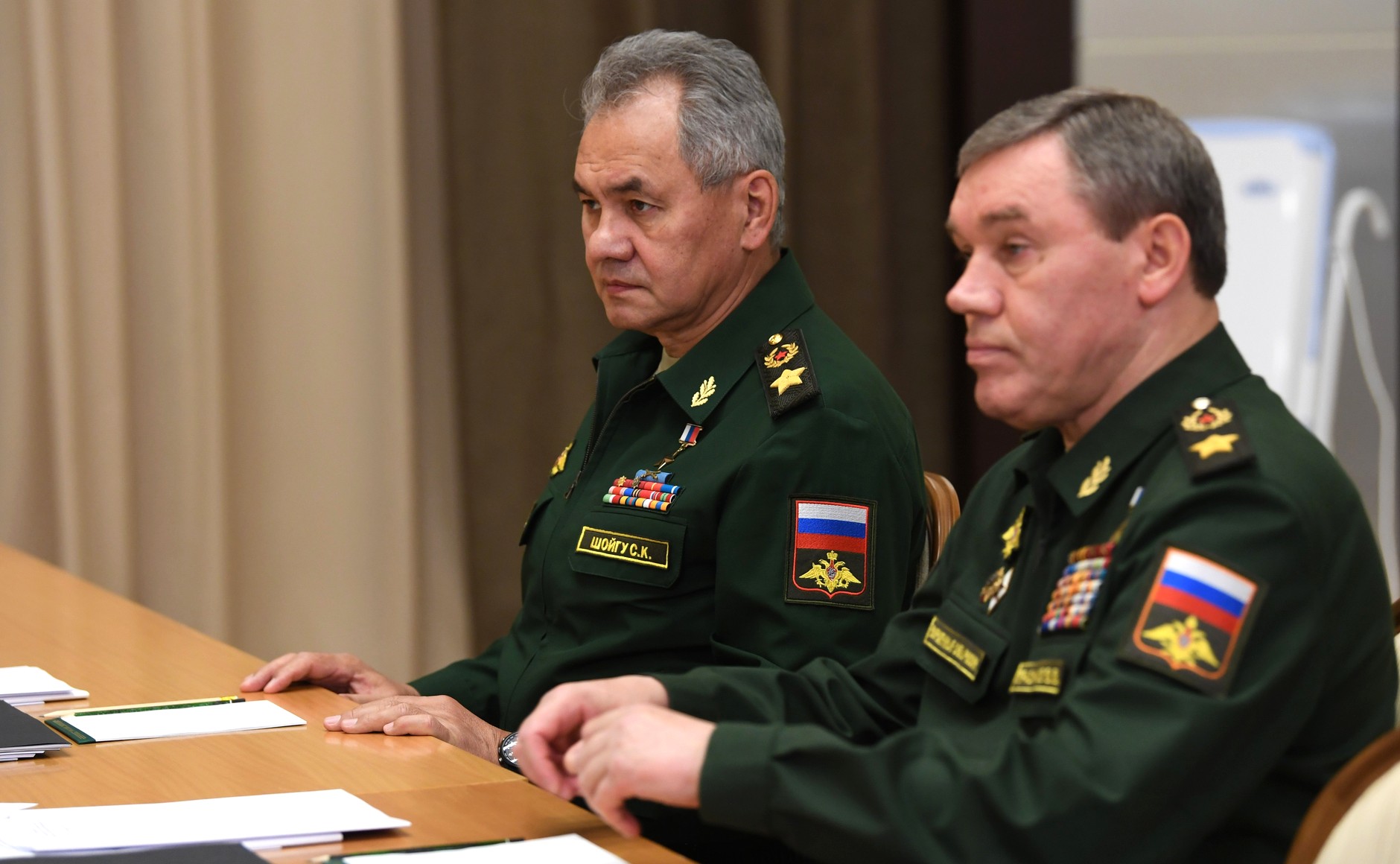 President of Russia Vladimir Putin: Comrade officers, Today, we are launching the 15th series of meetings with senior officials from the Defence Ministry, federal agencies and the defence industry. We will examine a number of matters relating to the state of and development prospects for Russia’s strategic nuclear forces. I want to emphasise that, despite the constantly changing nature of military threats, the nuclear triad remains the primary, key guarantee of Russia’s military security. From a broader perspective, this applies to global stability as well. Preserving this balance of power neutralises the threat of a large-scale military conflict, making vain any attempts to intimidate or pressure our country. At the same time, we have to take into consideration a number of new and potentially dangerous external factors we currently face. For example, NATO is expanding its military presence in Europe close to the Russian border, and has failed to respond to our proposal to scale down military activity during the epidemic. Moreover, NATO countries’ air forces and navies have even stepped up their operations. There have also been considerable changes in the conceptual approaches to the use of nuclear weapons as per US strategic planning documents. Today, US nuclear doctrine provides for using nuclear weapons in response to non-nuclear weapons, while there are no specific provisions regulating the use of nuclear weapons. The doctrine directly specifies Russia as the main military adversary, which by the way is totally unjustified.  We also see that the arms control system is faltering and deteriorating. Having terminated the Treaty on the Elimination of Intermediate-Range and Shorter-Range Missiles, the United States said it intended to withdraw from the Open Skies Treaty as well, let alone the withdrawal from the ABM Treaty some time ago. In fact, the future of the last major treaty on strategic offensive arms limitation is up in the air. I am referring to New START, which expires, as we all know, in February 2021, which means very soon. This document ensures adequate transparency, if I may say so, in terms of strategic nuclear arsenals and helps avert an uncontrollable arms race. For this reason, we proposed extending it, as it was signed by the parties, to give us more time to work on it. 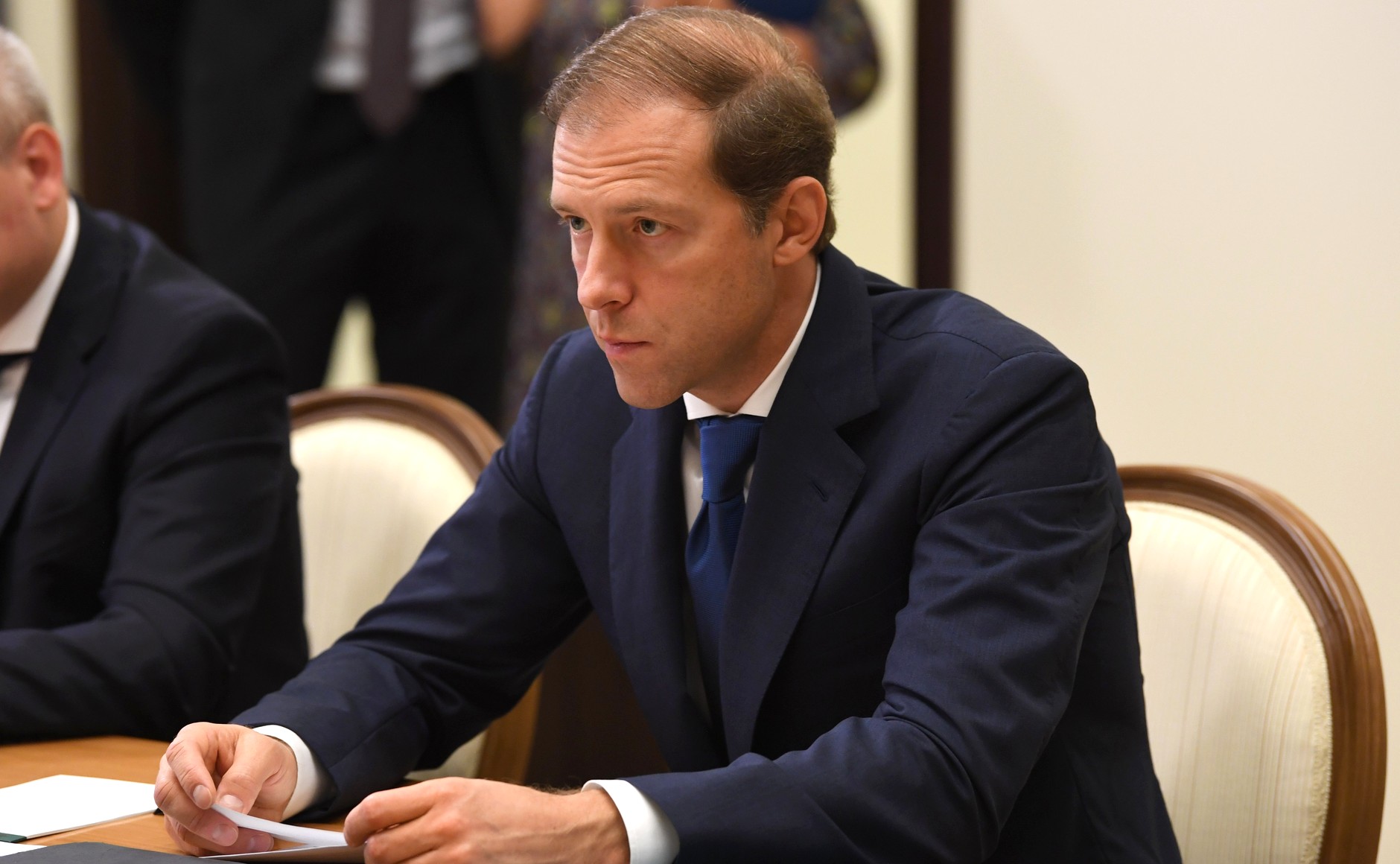 Overall, Russia has been a firm and consistent proponent of reinforcing and improving strategic stability mechanisms and arms control frameworks. We have forwarded our proposals on devising a new “security equation” to our US partners. These proposals take into consideration all factors affecting strategic stability with a special emphasis on first-strike capability. We believe a first-strike attack to be unacceptable. Russia’s proposals could lay the groundwork for further comprehensive dialogue with the United States about the future framework to control nuclear-missile weapons. This is critical for our two countries and for the whole world, considering that we are the two biggest nuclear powers. Here is what I wanted to say in this regard. First, as you know, on June 2, 2020 I signed Executive Order On Basic Principles of State Policy of the Russian Federation on Nuclear Deterrence. This document clearly spells out the conditions that have to be met in order to decide on using nuclear weapons. In fact, Russia reaffirmed its principled position whereby using nuclear weapons remains the last resort for ensuring national security. Essentially, it means that we can use the nuclear weapons we have at our disposal, but only in response to a nuclear attack against our country. This is what these fundamental documents are all about.  Second, considering the military and political risks in today’s world, we will further upgrade our strategic nuclear forces and consistently strengthen all their components. Let me note that the Army and the Navy have been receiving new missile and aircraft systems. As such, the share of modern weapons has reached 82 percent for the strategic nuclear forces. The first regiment armed with Avangard hypersonic glide vehicles has entered combat duty. About half of Strategic Missile Forces units have received the state-of-the-art Yars system. Tests of the Sarmat intercontinental ballistic missile are advancing on schedule. The lead Borei-A class missile submarine has been delivered to the Navy. Today, I am asking you to deliver a detailed progress report on defence procurement orders related to strengthening of the nuclear triad. Is everything on schedule?  Third, Russia will maintain its nuclear capability at the level it deems appropriate. It is true that with a number of strategic weapons our country has left other leading military powers far behind. As I said, this is the first time in history that our country, Russia, is not catching up, but producing weapons that are years or even decades ahead of similar foreign systems. Some of our weapons are second to none in the world, and this will probably be the case for a long time to come. However, while leveraging our intellectual potential, our research schools and the advances we have, as well as the infrastructure, we do not intend to get drawn into an all-consuming arms race. We will not do this, and there is no need for us to act this way at this time. Let me reiterate that we have all the necessary strategic forces to reliably secure Russia’s interests. Let’s move on to our agenda.  * * * Vladimir Putin: Comrade officers, As you know, yesterday two of our comrades, pilots on duty at Russia’s military base in Armenia, were killed in a tragic incident. Major Yury Ishchuk, who commanded the crew, and First Lieutenant Roman Fedin. The systems operator, navigator-pilot also suffered injuries in the crash. We wish him a speedy recovery. The President of Azerbaijan assured me that a thorough investigation will be carried out as part of a criminal case that has been initiated. The guilty will be held to account. 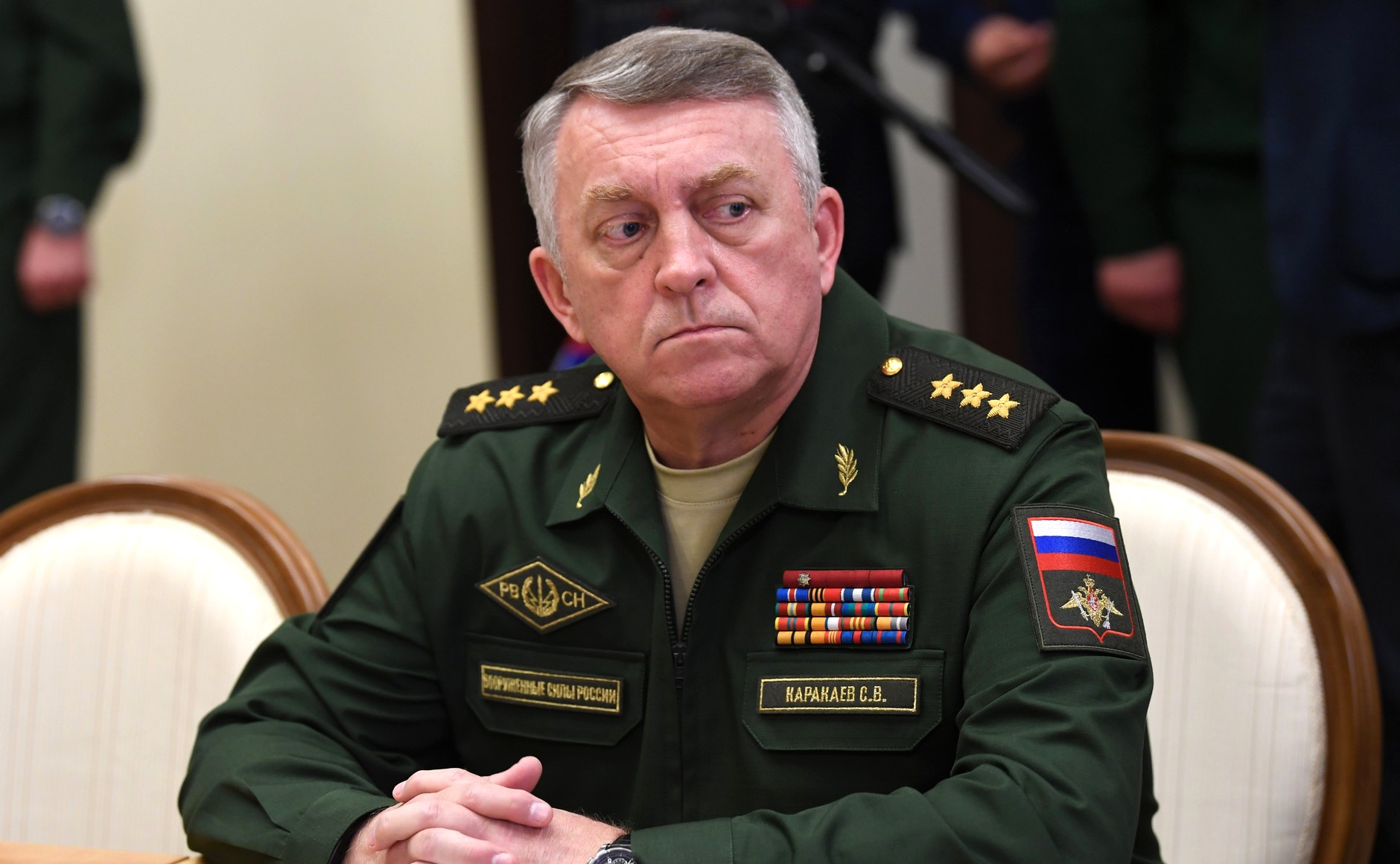 I am asking the Defence Minister to provide assistance to the families of the deceased. We will now hold a moment of silence to honour their memory. (A moment of silence.) The source of information - http://en.kremlin.ru/events/president/news/64392 Telephone conversation with President of Turkey Recep Tayyip Erdogan Vladimir Putin had a telephone conversation with President of the Republic of Turkey Recep Tayyip Erdogan at the initiative of the Turkish side. November 10, 2020 - 21:00 Vladimir Putin informed his Turkish counterpart of the contents of the arrangements reached with President of the Republic of Azerbaijan Ilham Aliyev and Prime Minister of the Republic of Armenia Nikol Pashinyan, as set forth in their trilateral Statement dated November 9, 2020. Recep Tayyip Erdogan praised Russia for its mediation efforts, which create a solid foundation for bringing about a lasting comprehensive settlement of the Nagorno-Karabakh conflict. The agreement on a complete ceasefire was especially important as it allowed stopping the bloodshed. It was agreed to continue working together to implement the package of measures set forth in the Statement. The two presidents also discussed cooperation on Syria, including coordinating efforts to facilitate the political process and resolve humanitarian problems. Current matters related to fighting the coronavirus infection were also touched upon. The parties reaffirmed their intention to step up contacts between the healthcare ministries and other relevant agencies of the two countries, including for working together to produce vaccines. The two leaders agreed to maintain a regular dialogue in various formats. The source of information - http://en.kremlin.ru/events/president/news/64393 Greetings to Rossiyskaya Gazeta Vladimir Putin sent his greetings to the staff of Rossiyskaya Gazeta on its 30th anniversary. November 11, 2020 - 09:30 The message reads, in part: “Since its establishment, your publication has become one of the most requested and quoted media outlets, which is firmly holding a leading position on the national media market. Rossiyskaya Gazeta, which is actively contributing to the promotion of a national information agenda and covering the activities of the legislative and executive authorities, is always open for dialogue and feedback from the audience. You quickly respond to public demands, expand the line of print and online projects and prepare quality and interesting material on current matters. I would like to point out that the successful development of Rossiyskaya Gazeta is largely the result of the good teamwork by talented, dedicated and enthusiastic professionals. I am confident that you will keep up your high professional standards, working creatively, honestly and in a responsible manner, will remain faithful to your professional duty and, of course, will help shape a new generation of journalists.” The source of information - http://en.kremlin.ru/events/president/news/64395 Meeting with heads of Defence Ministry, federal agencies and defence companies Vladimir Putin had a meeting with the leaders of the Defence Ministry, federal agencies and defence industry companies on the supply of new command and control systems to the armed forces. November 11, 2020 - 14:10 - Sochi 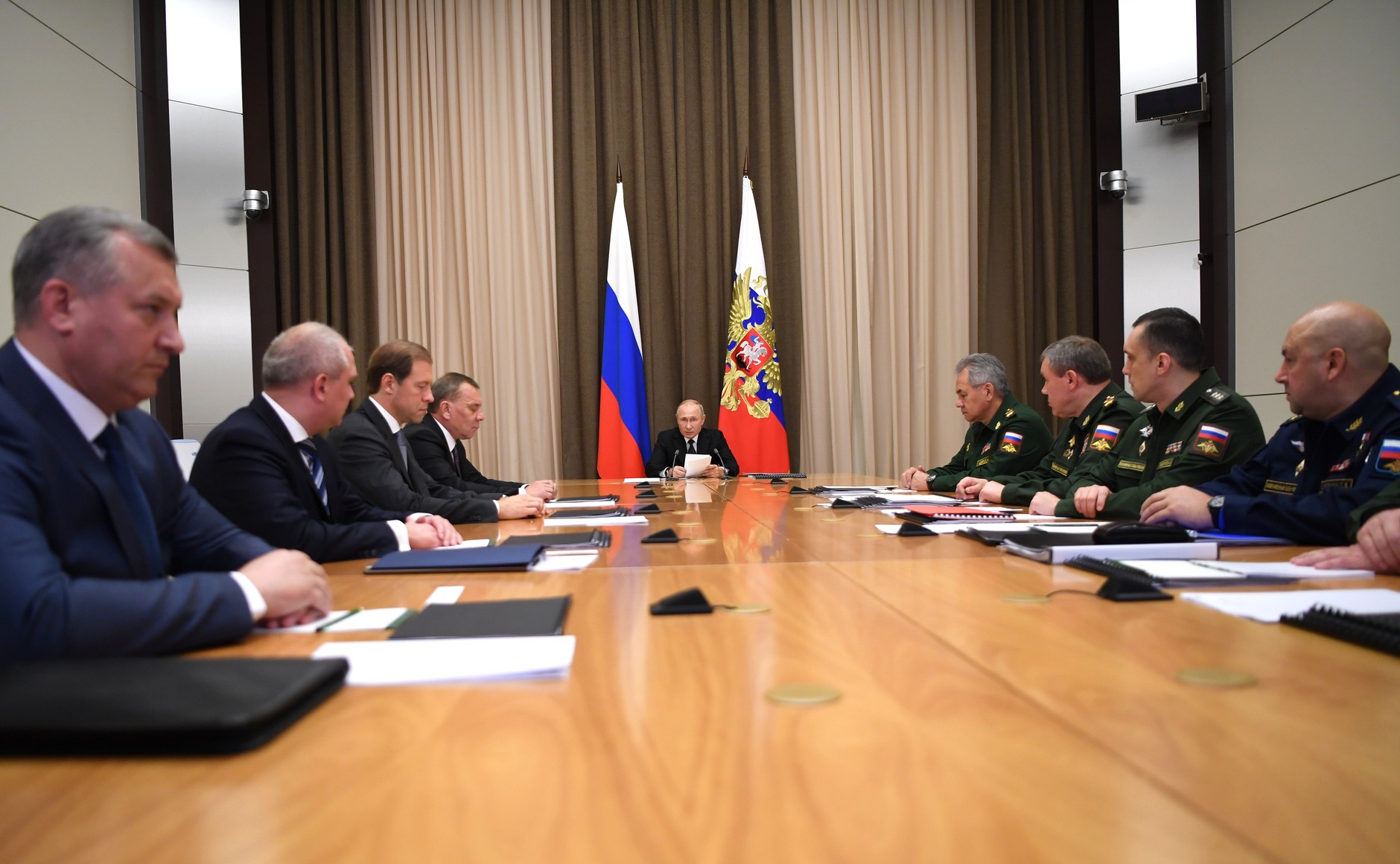 President of Russia Vladimir Putin: Good afternoon, colleagues. We continue working, and today we will be discussing the provision of new control systems to the armed forces, primarily strategic nuclear weapons control systems. It is absolutely clear that the combat capability of the nuclear triad, and the capability of the army and navy on the whole to adequately and quickly respond to potential military challenges directly depend on the stability, effectiveness and reliability of these systems under any circumstances. I would like to point out that a great deal has been done during the past few years to maintain all the command elements of our strategic nuclear forces at the highest possible level. In particular, the stationary and mobile command posts have been seriously upgraded, and their analytical and operational capabilities have been expanded, including in terms of information support, monitoring and situation analysis. The quality of such a vital characteristic as interference resistance has been improved. As of now, all command posts can receive comprehensive updates in real time and use them to assess the situation and make substantiated decisions. It is important that all equipment, hardware and communication systems of the nuclear forces control systems are regularly upgraded yet remain as simple and reliable as a Kalashnikov rifle, and that their modernisation is based on the latest national technology and engineering solutions. Colleagues, I would like to focus on the following aspects. First of all, we need to work seriously to boost the survivability of the control systems. We all realise this, and we are aware that a lot depends on the survivability of these systems and their ability to continue operating in a combat environment. In fact, we have to guarantee this even in the event of a nuclear strike. They have told me that the creation of an absolutely secure facility for controlling strategic nuclear forces, among others. is nearing completion, and that it will have a very high safety margin. Let us discuss this today, too. Secondly, we should constantly check the efficiency of the main components of the systems for controlling strategic nuclear forces during command post exercises and other events, including unexpected challenge inspections for assessing the triad’s combat readiness that have already become regular. Thirdly, we have to continue developing advanced systems for controlling strategic forces. What we are talking about is that we are doing the right things today, and these systems are in a good state. However, no matter how modern and advanced they may be today, we cannot remain idle, and we all realise this. We need to think about what happens tomorrow and the day after tomorrow. Please report on long-term working plans in this field at this meeting. Let us get down to work. The source of information - http://en.kremlin.ru/events/president/news/64396
__________________
Where should they dig the Very Deep Pit? Piglet said that the best place would be somewhere where a Heffalump was, just before he fell into it, only about a foot farther on. (c) Alan Alexander Miln |
|
|
#149 |
|
Senior Member
|
Telephone conversation with President of Kazakhstan Kassym-Jomart Tokayev
Vladimir Putin had a telephone conversation with President of the Republic of Kazakhstan Kassym-Jomart Tokayev, at the Kazakhstani side’s initiative. November 11, 2020 - 19:35 The leaders spoke highly of the results of the SCO Heads of State Council meeting, which was chaired by the President of Russia yesterday. They emphasised the fruitfulness of the discussions and the importance of the decisions taken for the further development of cooperation within the SCO. The President of Kazakhstan noted the effectiveness of Russia’s efforts to cease the fire and hostilities in the Nagorno-Karabakh conflict zone. Both sides expressed confidence that the package of measures agreed on November 9 at the highest level creates the preconditions for a long-term and full-scale settlement of the crisis around Nagorno-Karabakh in the interests of the Armenian and Azerbaijani peoples. The presidents addressed a number of current issues on the bilateral agenda, with an emphasis on enhancing cooperation to fight the coronavirus, including plans to launch joint production of vaccines in Kazakhstan. It was also agreed to continue contacts at various levels. The source of information - http://en.kremlin.ru/events/president/news/64398 Greetings on closing of Memory Watch national event Vladimir Putin sent greetings to the participants at the closing ceremony of the Memory Watch national event. November 12, 2020 - 11:00 The message reads, in part: “It is gratifying to see that with every passing year, the Russian Search Movement develops, grows stronger, gains well-deserved respect in our society and attracts new members. People of all ages join in this noble work at the bidding of their hearts, understanding their personal responsibility for preserving the memory of the heroism of a generation of fathers, grandfathers and great-grandfathers. This is extremely important because the Great Patriotic War, the Victory, the defeat of Nazism and its murderous ideology have immense significance for our history, morals and values. It is the topic of thousands of research works, works of fiction, films and television programmes. However, we continue to uncover previously unknown facts, restoring forgotten names and truly heroic fates, thanks to search teams, among others. The movement’s activity is broad and multi-dimensional. Its representatives were largely involved in organising events of the Year of Memory and Glory and the 75th anniversary of the Victory. They conducted their regular field expeditions and made an essential contribution to creating a museum and memorial in Zhestyanaya Gorka (Novgorod Region), whose civilians died at the hands of firing squads, and to preparations for a trial over Nazi war criminals in the village of Batetsky. The search teams’ mission is a remarkable example of dedicated civic engagement and sincere love for one’s motherland and its history. Friends, your work inspires great respect and deserves overarching support.” The Russian Search Movement is the largest organisation involved in field and archive search. The movement has more than 42,000 members of all ages grouped in 1,428 search teams. Over a period of the past seven years alone, the teams and groups of the Russian Search Movement have buried over 150,000 Soviet soldiers and identified over 8,000 killed people. The annual Memory Watch is held between April and November and comprises search expeditions to the battlegrounds of the Great Patriotic War, rallies, burials of the soldiers whose remains were discovered by the search teams, and patriotic campaigns to eternalise the memory of fallen Soviet soldiers and officers. The source of information - http://en.kremlin.ru/events/president/news/64402 Talks with President of Abkhazia Aslan Bzhania In Sochi, Vladimir Putin held talks with President of the Republic of Abkhazia Aslan Bzhania, who arrived in Russia on a working visit. November 12, 2020 - 14:30 - Sochi 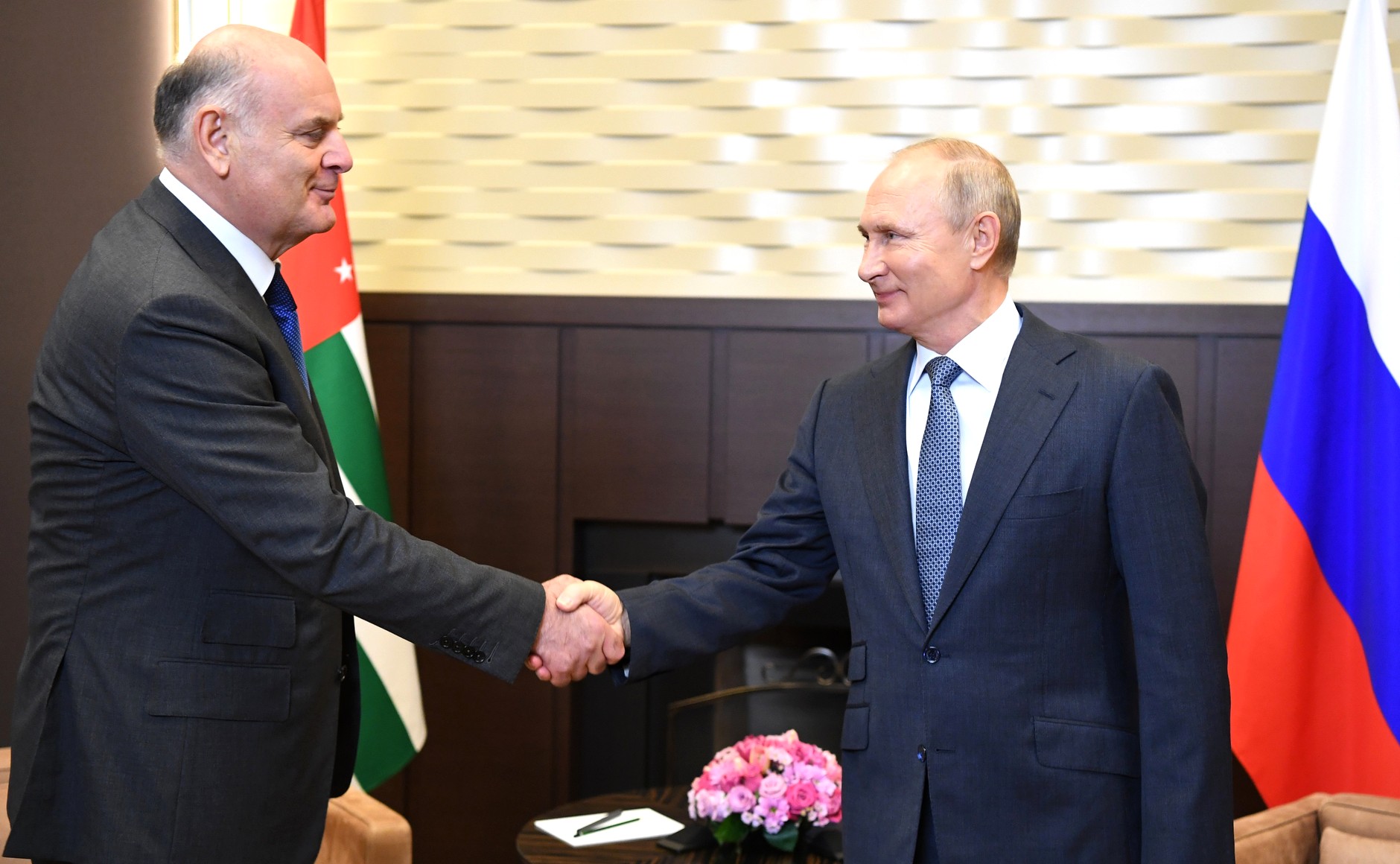 President of Russia Vladimir Putin: Mr Bzhania, I am glad to see you. I think that we last saw each other at the Victory Parade in Moscow. Now we have the opportunity to discuss calmly and without haste, how the relations between our countries are developing. Unfortunately, the economy has been affected by the pandemic. Nevertheless, Russia undoubtedly remains Abkhazia’s number one partner and accounts for 70 percent of its trade. Apart from tourism, there are major avenues for cooperation including agriculture and telecommunications. We will discuss all these matters today.  I hope that the Russian doctors have made a meaningful contribution to fighting the pandemic in your republic. I know that our specialists are working in the Gudauta hospital’s red zone. The Defence Ministry is deploying its field hospital there, so military doctors are also present. We will take our time today to discuss these and other matters of mutual interest, as we say, starting here and continuing during a working breakfast.  President of the Republic of Abkhazia Aslan Bzhania: Thank you. I am grateful to you for this meeting. This is the first time that we are meeting in this format. I would like to use this opportunity to thank the Russian people and you personally on behalf of the multinational people of Abkhazia for the assistance and support you have provided to us over the course of many years. We are grateful to you for this. As the saying goes, a friend in need is a friend indeed, and we have received your support once again during the coronavirus pandemic. 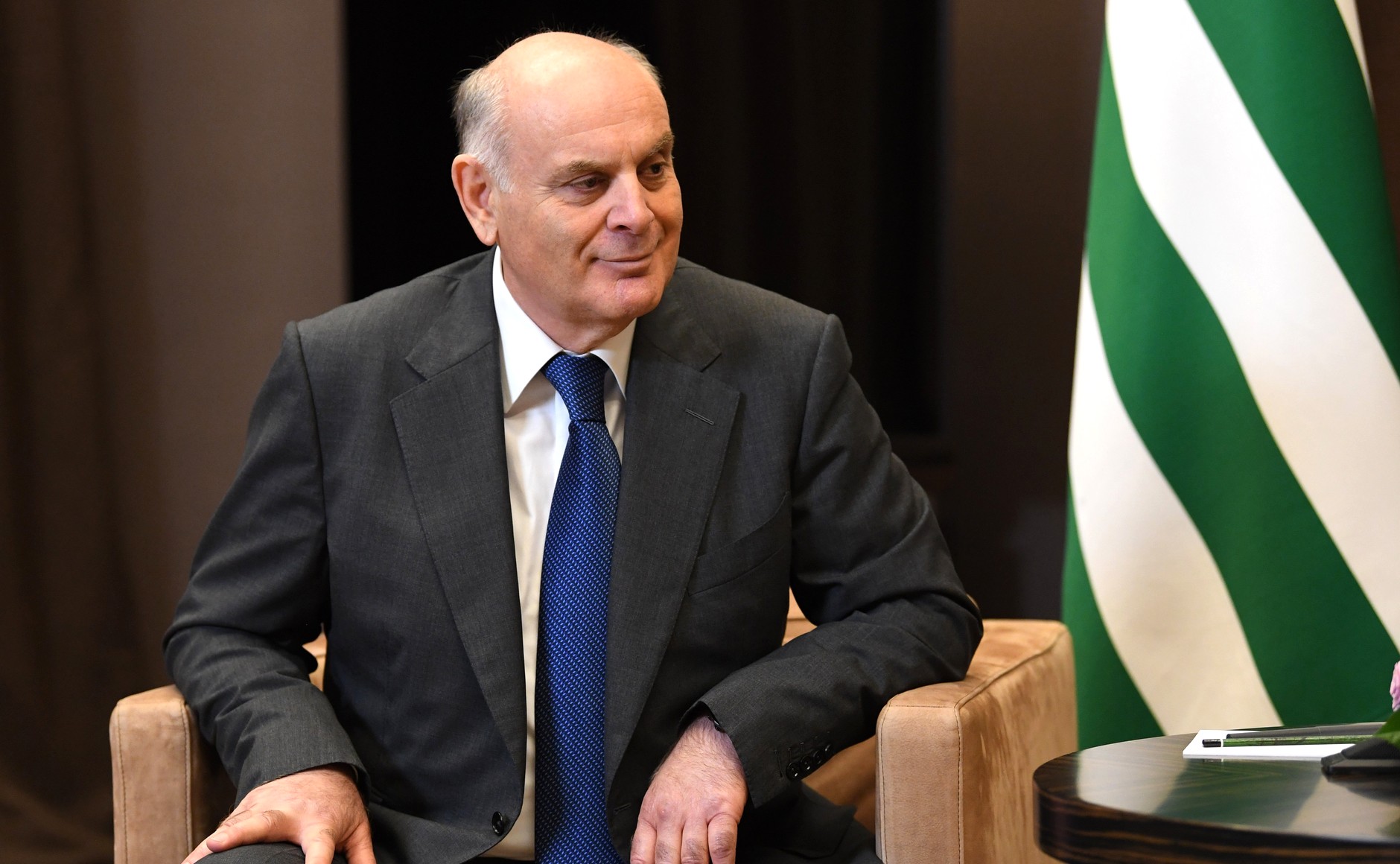 I would like to express gratitude to the Defence Ministry for the hospital they have set up in Abkhazia. Russian medics are providing invaluable assistance: Russian doctors have been working in shifts at the Gudauta hospital during the past few months. This is truly invaluable assistance in the current circumstances. Rospotrebnadzor is helping us as well. We are grateful to you for all this assistance. The Abkhazian leadership intends to implement the agreements set out in the large treaty and other interdepartmental agreements, because this is fully in keeping with Abkhazia’s interests and is contributing to the strengthening of Abkhazia’s statehood and sovereignty. I would like you to know that you will always be a welcome guest in Abkhazia, and I invite you to visit us.  Vladimir Putin: Thank you. The source of information - http://en.kremlin.ru/events/president/news/64401 Telephone conversation with Acting President, Prime Minister of Kyrgyzstan Sadyr Japarov Vladimir Putin had a telephone conversation with Acting President, Prime Minister of Kyrgyzstan Sadyr Japarov, at the initiative of the Kyrgyz side. November 12, 2020 - 18:40 The parties discussed in detail the state of and prospects for Russian-Kyrgyzstani relations. Sadyr Japarov informed the President about developments in the republic, including the events that took place after the October parliamentary elections. The Russian side expressed hope for stabilisation of the situation in Kyrgyzstan and the earliest possible settlement of domestic political problems. The intention to continue systematic work to strengthen the alliance and strategic partnership between Russia and Kyrgyzstan was emphasised. The parties also addressed a number of practical issues on the bilateral agenda with an emphasis on trade, economic and humanitarian cooperation, as well as joint coronavirus response measures. The source of information - http://en.kremlin.ru/events/president/news/64404 Report on law enforcement monitoring in Russia in 2019 In accordance with Presidential Executive Order No. 657 of May 20, 2011, On Monitoring Enforcement of Laws in Practice in the Russian Federation, a Report on law enforcement monitoring in Russia in 2019 has been prepared and made public. November 13, 2020 - 11:00 The monitoring was conducted according to the plan approved by a Government directive of August 29, 2018, and a method approved by a Government resolution of August 19, 2011. The report [in Russian] includes the results of monitoring the execution of judgments by the Constitutional Court of the Russian Federation, rulings of the European Court of Human Rights, as well as monitoring of law enforcement in the areas of Russian law concerning pension provision, notaries, children’s healthcare, protection of designated conservation areas, insolvency (bankruptcy) of insurance companies and prevention of their insolvency (bankruptcy), legal proceedings on administrative violations in finance and budgeting. The source of information - http://en.kremlin.ru/events/president/news/64405 ASI forum Strong Ideas for a New Time Vladimir Putin took part, via videoconference, in the plenary session of the forum Strong Ideas for a New Time, organised by the Agency for Strategic Initiatives autonomous non-profit organisation. November 13, 2020 - 16:25 - Novo-Ogaryovo, Moscow Region The agenda includes economic, technological and social development in Russia. President of Russia Vladimir Putin: Good afternoon, friends, First of all, I would like to greet the project leaders and all participants in the Strong Ideas for a New Time forum. It is a great initiative. I want to thank all of you for the organisation of this important event. And, of course, the Agency for Strategic Initiatives. Despite all the current difficulties, you have not abandoned your plans, and in fact had a real brainstorm, or one can say, crowdsourcing all across Russia. You have combined the energy of having a dream and brave endeavours for the development of Russia. Of course, we will not be able to listen to the authors of all 15,000 ideas and projects today, but I am sure that most of them are comprehensive and constructive and all of them reflect the sincere desire of our citizens to build a Russia as we want to see it: a successful, safe, free and modern country where people are of highest value, where they can prosper, work, raise children and build their businesses, that is, a country that provides broad opportunities for self-fulfilment. I would like to emphasise that in order to move forward together and strive for nation-wide success, the contribution of each person to the fate of Russia should be appreciated. We need to help grow and implement the best ideas and proposals, offer more freedom for the realisation of social, environmental, educational, technological and business ideas, projects by creative industries, tourism development, as well as the development of our cities and rural areas. 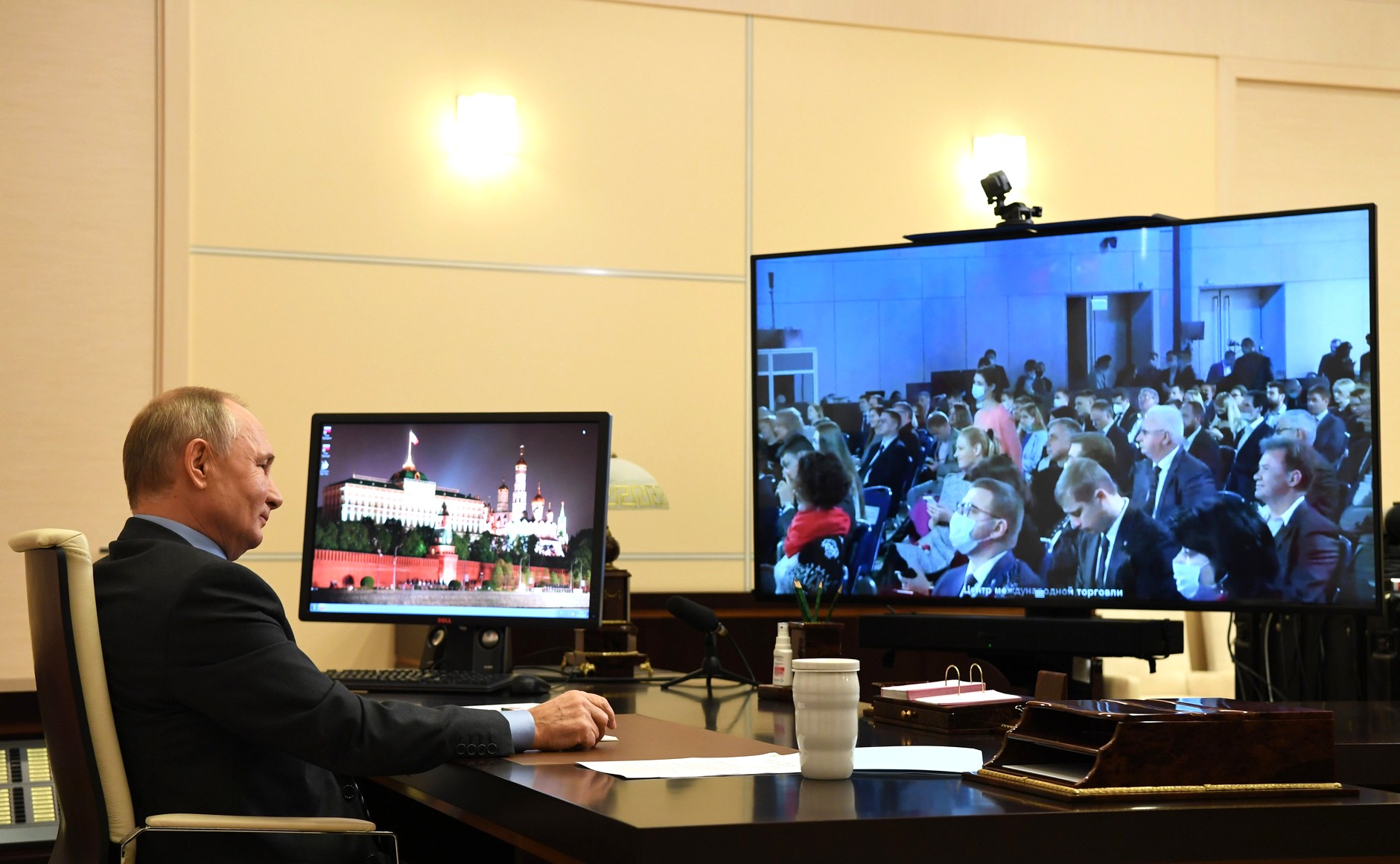 In this context I would like to note that almost 10 years ago, when the Agency of Strategic Initiatives was being established, it was done to launch and implement civil initiatives. It is very important that, by supporting such separate projects, we will move forward. It should be noted that as a result, specific steps were developed to improve the procedure and principles of the operation of hospitals, clinics and the social sphere as well as employment centres that today are at the epicentre of addressing labour market issues. Let me repeat once again: we have to carefully examine people’s proposals, look into their life situations and tailor measures to support Russian families and overcome poverty to solve their problems. Our focus must always be on the demographic and social policy, which means we must take a serious step towards improving the quality of life and welfare of the Russian people, so that they would live up to the 21st-century standards. Friends, The world is changing rapidly. We can see colossal changes in technologies and public life. A new era is dawning. We need strong ideas and also effective mechanisms for dynamic and sustainable development. We must also have the ability to implement them. It is necessary to turn interesting and substantive ideas into viable projects with a team and an action plan, to lift administrative and legislative barriers and choose clear sources of financing. 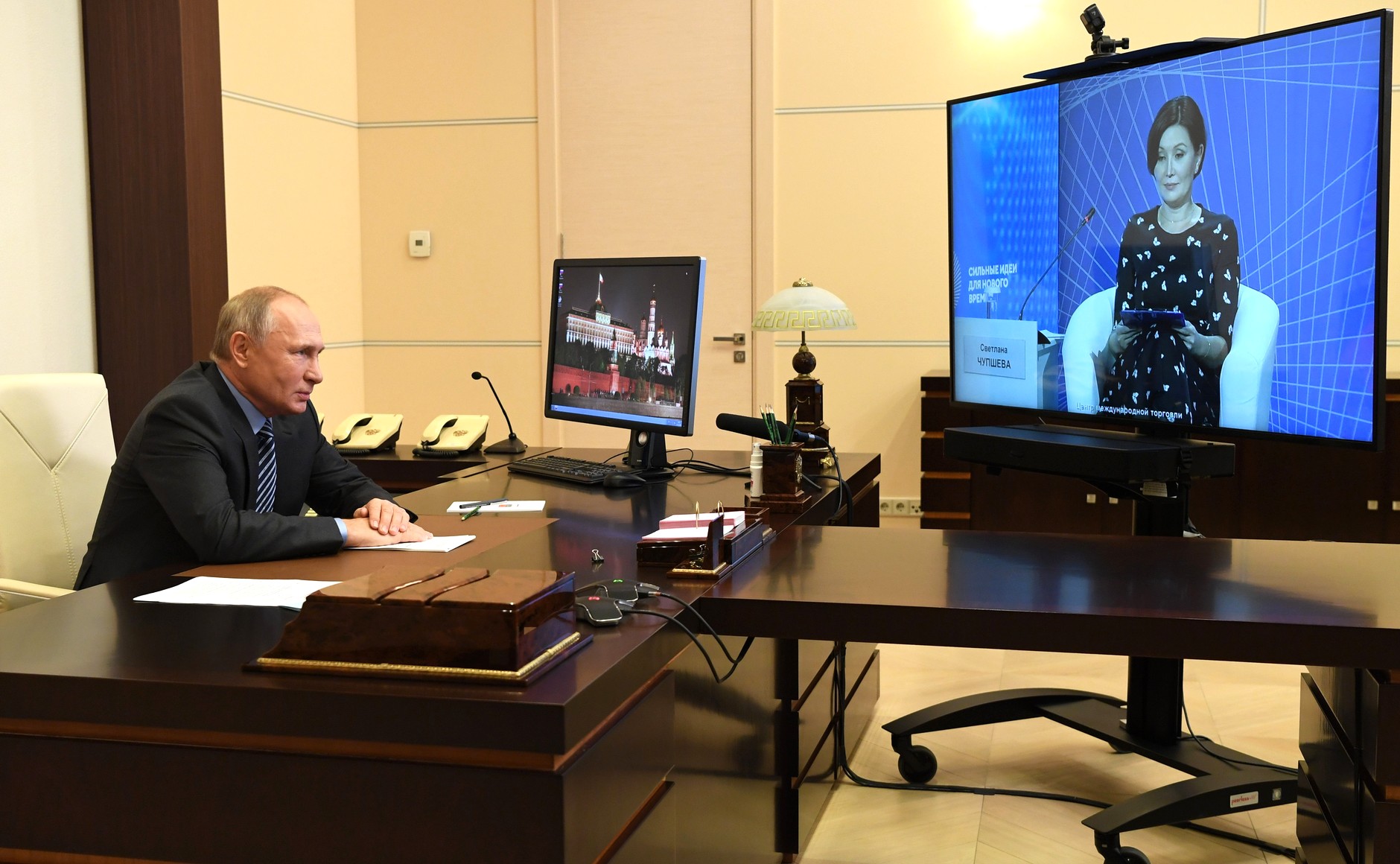 The Agency’s Expert Council headed by Igor Shuvalov has rich experience here. As part of preparations for the forum, you engaged almost 900 experts, including those competent in project management, and helped to develop 1,000 of the best ideas presented at the forum so far. We must increase dramatically the scale of this support. In order to do this, I would like to ask the Government, VEB RF and the Agency of Strategic Initiatives to develop and launch a complex mechanism to implement socially important projects of the people. I suggest examining how the model is working regularly, at every meeting of the Agency’s Supervisory Board, as well as how many ideas gained support and were implemented in practice. Similar, system-oriented effective instruments must, of course, also be used to support school children (I know we will discuss this today) and students when they launch their businesses. Projects of our young entrepreneurs and young technical talents must “take off” and become successful start-ups, and, still better, companies that will be competitive in Russia and the rest of the world. It is necessary to strive for this goal by all means and certainly support such ambitious attitudes. Naturally, in this context, today I would like to hear the specific proposals of the Youth Initiative Centre established at the ASI. In this context, I would like to note and emphasise the following: we need each and every idea, each idea matters, the concepts of young people are extremely important. It is very good that they are already setting vectors, accelerating the speed of changes, creating so-called new meanings, culture, media and business models, as well as unique technical solutions. I would like to repeat it once again: this is very precious for us. I am inviting young people to take a more active, involved and meaningful part in our common efforts to develop the country. 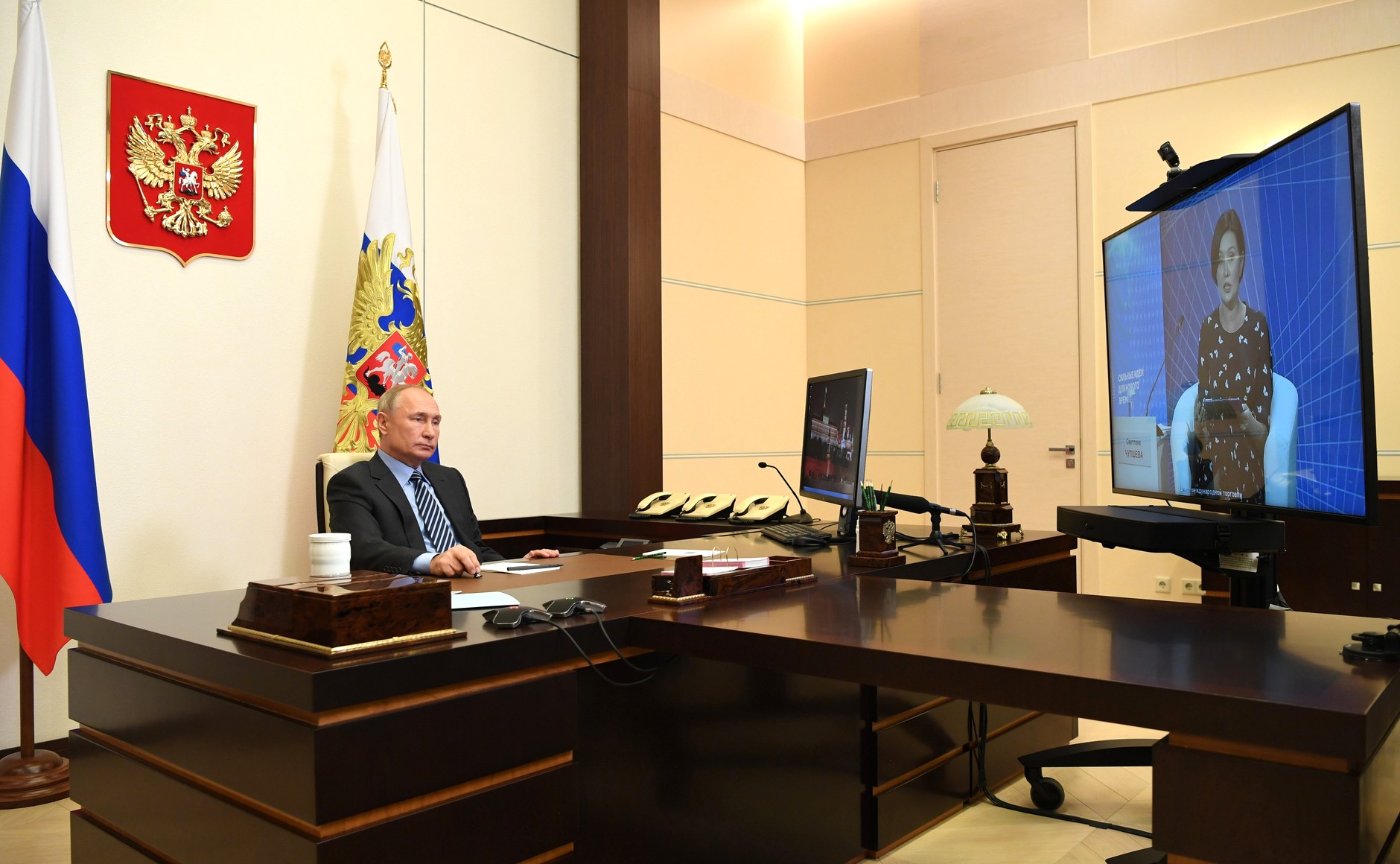 Friends, Before we go over to dialogue, to the discussion of what you have done, I would just like to say a few words about some of the things that I consider extremely important. What are they? In all times and historical eras, Russia’s strength has been based on the talent of our people, our ideals and values, mutual aid, respect for our history and patriotism. Today, these moral principles are expressed in sincere, inimitable cultural and educational initiatives, the social service of volunteers and the non-profit sector, and the work of the search movement that keeps our memory of the Great Patriotic War. Owing to these common values we feel as a single nation and sincerely share our common destiny, victories and difficulties. 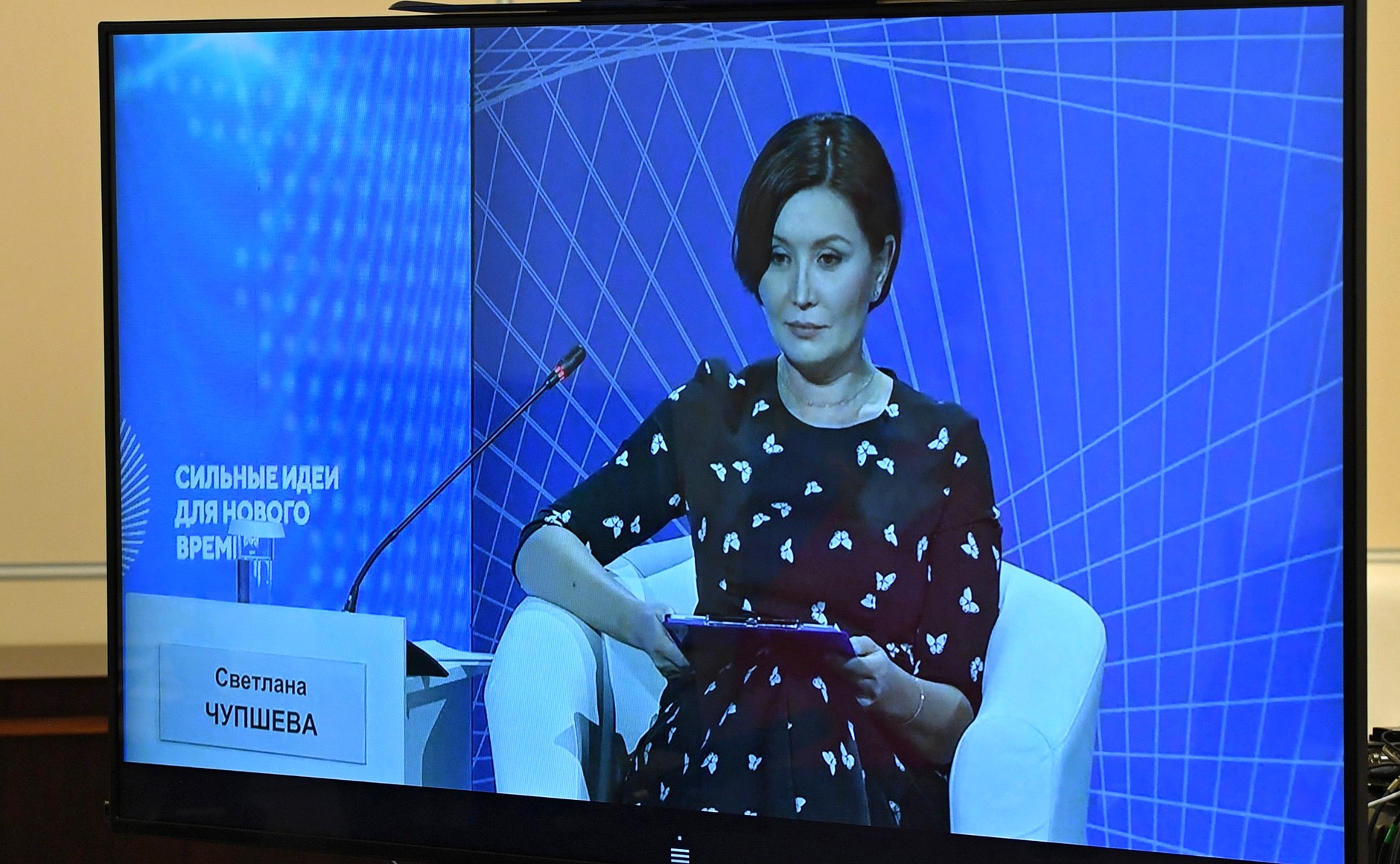 This year, as it has always been during trying turbulent times and we are now undergoing serious pandemic-related trials, ordinary citizens, young people, medical workers and entrepreneurs have done, are doing and, I am sure, will do striking deeds that deserve admiration because of their generosity and cordiality. We really do have many bold, honest, responsive and active people that form the foundation of Russia. We must reveal the enormous creative powers of our people, implement their unique, distinctive ideas and solutions and build together a comfortable life for our people, build a comfortable country. We can and will do this together by all means. Thank you for your attention. Now let’s get down to work. The source of information - http://en.kremlin.ru/events/president/news/64406 Meeting on resolving humanitarian issues in Nagorno-Karabakh Vladimir Putin held a meeting with Defence Minister Sergei Shoigu, Foreign Minister Sergei Lavrov, Emergencies Minister Yevgeny Zinichev and FSB Director Alexander Bortnikov. November 13, 2020 - 17:15 - Novo-Ogaryovo, Moscow Region During the meeting the President told the participants about the formation of an Interdepartmental Humanitarian Response Centre to facilitate the resolution of humanitarian issues and the restoration of the civilian infrastructure in Nagorno-Karabakh. President of Russia Vladimir Putin: Good afternoon, colleagues, We have met to discuss the situation that has taken shape in the Nagorno-Karabakh conflict zone. I hope we will no longer use the term – “the Nagorno-Karabakh conflict.” I hope that we will soon move on to the discussion of other issues but one of them is fairly topical. I will tell you about it now. At the beginning of our meeting I would like to ask the Defence Minister to report on the developments in the zone of responsibility of our peacekeepers. Go ahead, please. Defence Minister Sergei Shoigu: Comrade Supreme Commander-in-Chief, In accordance with your Executive Order, a Russian peacekeeping contingent consisting of 1,960 troops, 90 armoured personnel carriers, and 380 vehicles and special equipment is being deployed in Nagorno-Karabakh and the Lachin Corridor. The 15th separate motorised rifle brigade of the Central Military District forms its core. The Lachin Corridor was taken under control during November 10 and 11. The peacekeeping units entered Stepanakert at 5 pm yesterday and set up four observation posts outside the towns of Stepanakert and Shusha. Today, we are completing the deployment of observation posts at the South area of responsibility. There will be nine of them there. Another peacekeeper unit is deployed in northern Nagorno-Karabakh. Tomorrow, we plan to complete the deployment of eight posts in that area. We continue to transport equipment and materiel at a rate of 25 flights per day by military transport aircraft. In three days, 73 flights were made with 1,103 troops and 1,168 pieces of equipment transported. The Defence Ministry’s operational group has been deployed, and direct communication channels have been established with the defence ministries of Azerbaijan and Armenia, with which work continues to clarify the parameters of the peacekeeping operation. The Russian peacekeeping forces are controlled from the command post deployed in Stepanakert. The situation is monitored around the clock, and the ceasefire continues in the area of the peacekeeping operation. The command of the peacekeeping contingent has taken the necessary measures to ensure the safety of the Russian servicemen. I would like to note separately that the humanitarian problem is deteriorating every day, including transport and the return of refugees, as well as other humanitarian issues. Thank you, that concludes my report. 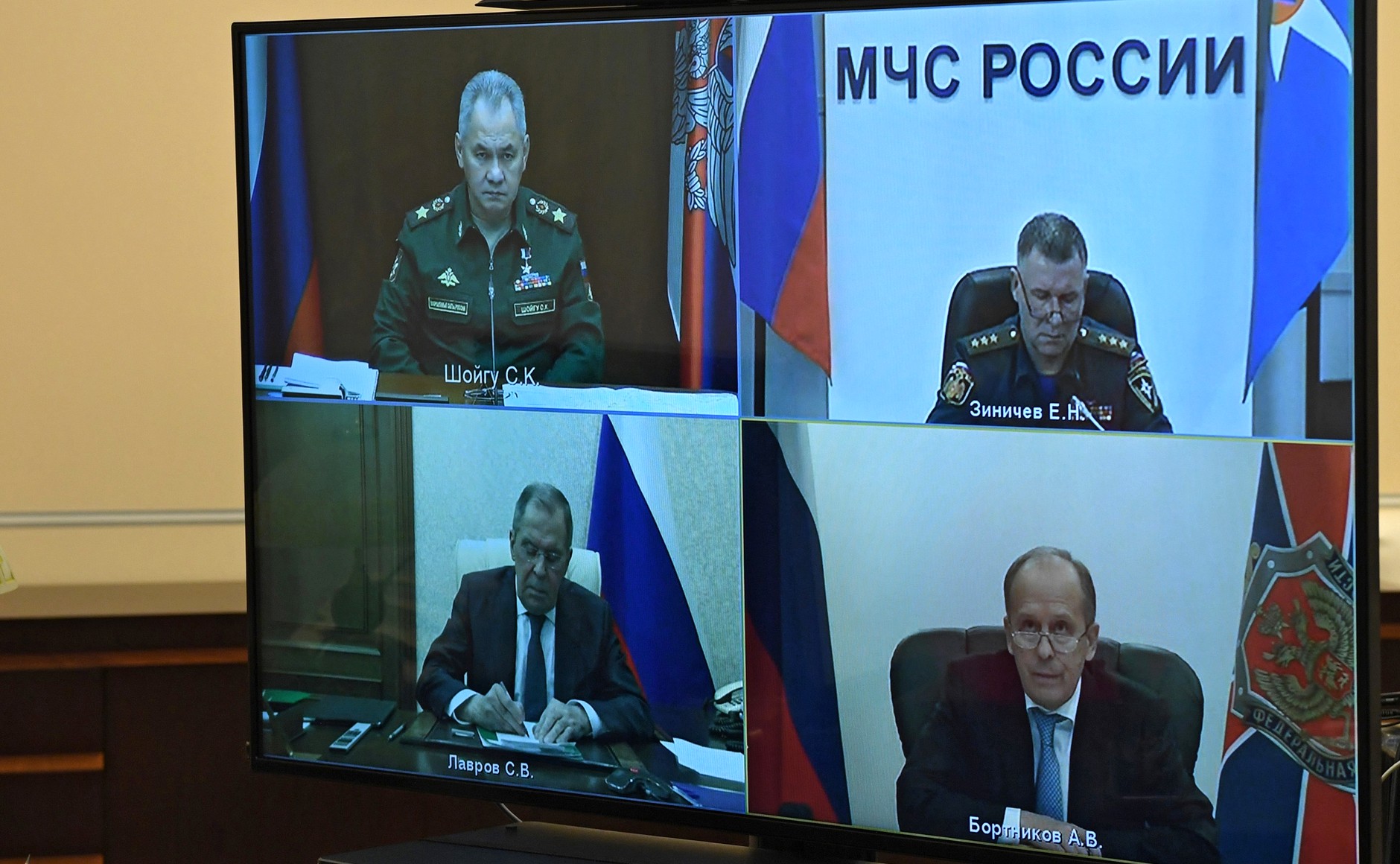 Vladimir Putin: Thank you very much. Mr Bortnikov, part of the responsibility has been assigned to the FSB Border Guard Service. How are things in places where our border guards are on duty? FSB Director Alexander Bortnikov: Mr President, in accordance with your instruction, the Federal Security Service has deployed five additional border posts with the help of the FSB Border Guard Department in the Republic of Armenia: two posts on the border of Armenia and the Nakhchivan Republic (Yeraskh and Paruyr Sevak); two posts on the border between Armenia and Iran (Meghri and Sygyr); and the fifth post, Tegh, on the border. The necessary steps have been taken as agreed with Armenia’s border authorities, and we are in contact with the Azerbaijani border guards. We have established the necessary contacts, are exchanging information, and the border guards are on duty in the state border protection mode. We have no further issues to discuss as of this moment. Vladimir Putin: Good. Mr Lavrov, I asked you to inform our partners, primarily our OSCE Minsk Group partners and co-chairs, about the current developments in connection with this problem, to contact international organisations. How is this work progressing?  Foreign Minister Sergei Lavrov: Mr President, we have provided detailed information to our colleagues, primarily from France and the United States as co-chairs – alongside us – of the OSCE Minsk Group. I spoke with the French Foreign Minister and explained to him in detail the situation and the efforts that you have undertaken. I also spoke with my US colleagues. In New York, the UN Security Council has been fully updated about Russia’s efforts that made it possible to conclude the November 9 agreement. We remain in contact with international humanitarian organisations, primarily, the United Nations High Commissioner for Refugees, the United Nations Office for the Coordination of Humanitarian Affairs and the United Nations Development Programme. These agencies have an established presence in the region, but not in Nagorno-Karabakh per se. In contact with our Armenian and Azerbaijani colleagues and at the request of the UN agencies, we are working to have them deploy their presence directly in Nagorno-Karabakh. The UN is interested in coordinating its actions, in the event of such a deployment, with our peacekeepers and border guards, as well as with those who will provide humanitarian aid as part of Russia’s mission. In addition to the UN agencies and their requests, namely, to provide access to Karabakh and people in need, they also want to have accurate data on the number and destinations of the refugees and displaced persons. We also need to work on these numbers ourselves, also in conjunction with Azerbaijan and Armenia. In addition to the UN, there is also the International Committee of the Red Cross, which has been operating in the region for a long time now and has had a permanent mission in Stepanakert for many years. After the outbreak of hostilities, they had to evacuate the mission to Yerevan. They are now back there and have resumed their work and are also interested in establishing coordination with our representatives. President of the International Committee of the Red Cross Peter Maurer will be in Russia on Tuesday. We will set up a meeting for him at the Foreign Ministry, and also with our military, the Emergencies Ministry and border guards. Vladimir Putin: Thank you. Now about the Emergencies Ministry. Mr Zinichev, if additional assistance is needed for civilians, and I am sure it is needed and will speak about this now, what can the Ministry do as an immediate response? Emergencies Minister Yevgeny Zinichev: Mr President, we are ready, within eight hours after the decision is made, to transport a combined group there consisting of the central office’s task force and 150 personnel of rescue teams, as well as 17 units of equipment. If need be, we are ready to send an airmobile hospital with 50 personnel, including medical workers, for rendering medical aid to civilians. We are ready. 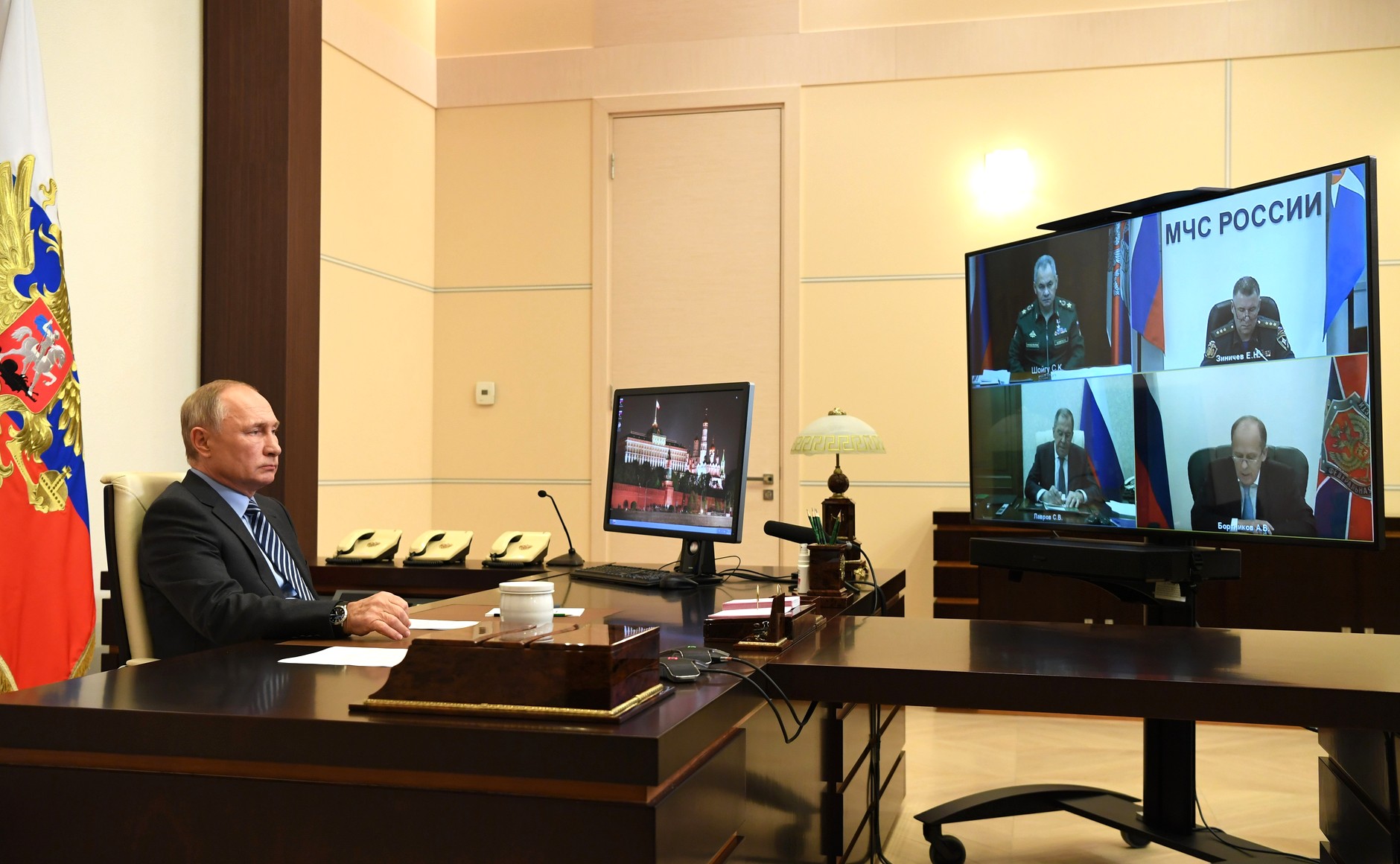 Vladimir Putin: All right, thank you. Indeed, colleagues, the issue of helping the people who were impacted by the hostilities in the Nagorno-Karabakh conflict zone return to normal, peaceful life is very important and urgent. The trilateral statement adopted by the President of Azerbaijan, the Prime Minister of Armenia and the President of Russia on November 9 has made it possible to stop the bloodshed and stabilise the situation. The shooting and armed clashes have ceased completely. A Russian peacekeeping contingent is being deployed along the contact line and the so-called Lachin Corridor in conformity with the statement. It is necessary to pay attention to the serious humanitarian problems in the Nagorno-Karabakh area. We have just received reports to this effect. As a result of the hostilities, the number of dead, including civilians, has exceeded 4,000. Over 8,000 people have been wounded. According to different estimates, there are tens of thousands of refugees. The civilian infrastructure and many cultural landmarks have been destroyed. To help the people of the region resolve the most urgent problems I consider it necessary to establish an Interdepartmental Humanitarian Response Centre. The centre will use the resources of the Defence Ministry, the Emergencies Ministry, the Foreign Ministry, the FSB Border Guard Service and other departments of the Russian Federation. The centre will support the return of refugees to the places of their permanent residence; cooperate with government bodies of Azerbaijan and Armenia on restoring the civilian infrastructure and creating the conditions for normal life in Nagorno-Karabakh; and coordinate the work of government agencies and, I am hoping and relying on this very much, the efforts of public organisations on rendering humanitarian aid to the residents of the districts hit by the hostilities. The centre will also provide assistance to the government bodies of Azerbaijan and Armenia, if they need it, of course, and I think this assistance will be very helpful, considering their complicated history in the past, in developing cooperation with international humanitarian organisations and between themselves. I would like to ask the Foreign Ministry to continue informing our partners in the OSCE Minsk Group about the adopted decisions. It is also necessary to report them to the International Red Cross, the Red Cross Committee, and the Office of the UN High Commissioner for Human Rights. It is necessary to develop constructive, full-fledged work with these agencies, including the Office of the UN High Commissioner for Refugees. Our colleagues from UNESCO must be contacted. I am relying on their support very much as well. I hope that all these agencies will give comprehensive support to the activities of the Interdepartmental Centre. We also hope for a contribution and help from the Commonwealth of Independent States. We will maintain close cooperation with all potential participants in this important work. I would like to thank all participants in our meeting for what has already been done. I am counting on your effective concerted efforts, that is, cooperation both between your agencies and with colleagues from Armenia and Azerbaijan. Thank you. The source of information - http://en.kremlin.ru/events/president/news/64409 Executive Order on Interdepartmental Humanitarian Response Centre The President signed Executive Order On the Interdepartmental Humanitarian Response Centre. November 13, 2020 - 17:20 The Executive Order reads as follows: In order to promote the resolution of humanitarian issues and to rebuild civil infrastructure in Nagorno-Karabakh, I hereby resolve to: 1. Create an Interdepartmental Humanitarian Response Centre (hereinafter referred to as the Interdepartmental Centre). 2. Establish that: a) the Interdepartmental Centre shall have the following main functions: facilitating the return to their homes of people who left the Nagorno-Karabakh regions. helping state bodies of the Republic of Azerbaijan and the Republic of Armenia to restore civil infrastructure in Nagorno-Karabakh and create proper conditions for its people to live a normal life; ensuring coordination of the activities of Russia’s state bodies and public organisations to provide humanitarian aid to residents of the Nagorno-Karabakh regions affected by the hostilities; providing assistance to state bodies of the Republic of Azerbaijan and the Republic of Armenia in organising interaction with international humanitarian organisations; b) the Interdepartmental Centre shall include representatives of the Russian Federation Ministry of Civil Defence, Emergencies and Natural Disaster Relief, the Russian Federation Foreign Ministry and the Russian Federation Federal Security Service, as well as representatives of other concerned federal executive bodies. 3. The decision of organisational and other matters related to the creation and operation of the Interdepartmental Centre shall be entrusted to the Defence Ministry. 4. This Executive Order shall come into force on the day of its signing. The source of information - http://en.kremlin.ru/events/president/news/64408
__________________
Where should they dig the Very Deep Pit? Piglet said that the best place would be somewhere where a Heffalump was, just before he fell into it, only about a foot farther on. (c) Alan Alexander Miln |
|
|
#150 |
|
Senior Member
|
Meeting of Talent and Success Foundation Board of Trustees
The President took part, via videoconference, in a meeting of the Talent and Success Foundation Board of Trustees. November 13, 2020 - 18:35 - Novo-Ogaryovo, Moscow Region The Foundation Head Yelena Shmelyova presented the main report.  President of Russia Vladimir Putin: Good afternoon, colleagues, I welcome you to the meeting of the Talent and Success Foundation Board of Trustees. Traditionally, we will discuss today the current work of the Sirius Educational Centre and prospects for its further development. But first of all, I would like to congratulate all of you who helped create Sirius, congratulate its students, educators and tutors, on the first milestone anniversary. Sirius turned five years old last September. Within this historically short period of time, Sirius has become, without exaggeration, Russia’s true asset. I would like to say thank you very much to all of you. It was in our country that a one-of-a-kind educational centre was set up at the Olympic facilities. This so-called Olympic legacy (and this was a decision we made in due time – to establish this centre as part of the Olympic legacy) benefits children. Sirius helps gifted schoolchildren, primarily from the regions, including small towns and even remote villages, to set high goals for themselves and get off to a strong start in life. Today, the participants in the Sirius programmes study at the country’s top universities and get government grants and fellowships. By the way, this support is also rendered via Sirius. Some of them have already signed future work contracts and even work at the largest, successful domestic companies. As for young musicians and ballet performers, our outstanding arts, ballet and music schools have opened their doors for them, while Russian national junior ice hockey teams are practically made up of all Sirius students. I believe that young hockey players are destined for new great victories ahead. 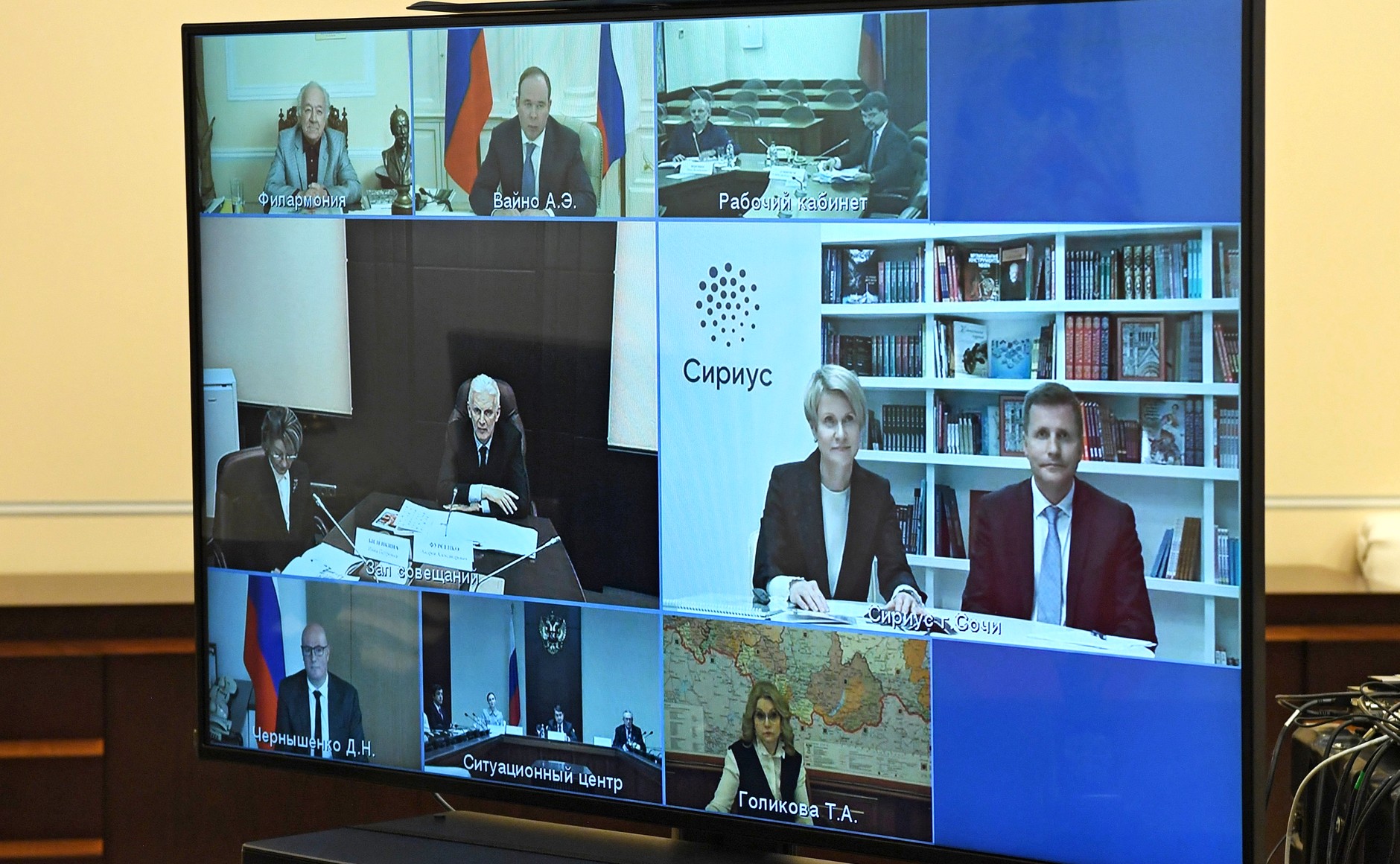 Apparently, such remarkable successes and achievements of Sirius students were made possible by an unparalleled training format, at an intensive pace and in an environment with talented peers and truly excellent star tutors. Sirius is at present the world’s only educational centre where teaching is conducted by world-class scientists, outstanding educators, athletes, coaches and musicians. But I would like to underscore that we have always regarded Sirius not as a closed elite club for the chosen but rather as an open national platform for working with talents which concentrates the best technology and expertise for unlocking human capabilities, in our case those of a young person, a teenager or a child, of course. Such practices are widely replicated and change the system of working with the youth across Russia. We will definitely speak about this crucial area of Sirius activities today, too. I would also like to note the following. Today at the forum of the Agency for Strategic Initiatives, my colleagues and I discussed proposals from very different people on our country’s development. These projects embody the best qualities of our people, our nation, its unique talent and civil patriotism. We must by all means preserve and multiply our human potential. To do this, we must build up our education today and establish effective mechanisms for children’s development throughout the country for them to discover their talent and soar to new athletic, artistic and scientific heights. We must create the conditions for the children to succeed here, at home, in their native land, in Russia.  Friends, In this regard, it is crucial that Sirius continues to expand its orbit. Its roadmaps even extend beyond the coming decade. They are really, as they say, about the whole 21st century. A university, research laboratories and an advanced innovation centre are being launched here, where research will be conducted and practical developments made in the areas that, without any exaggeration, determine the progress of the entire civilisation. They include life sciences, cognitive disciplines and AI. I am sure that such tasks and their solution will turn Sirius into a magnet for everyone who is ready to become a trailblazer and ensure a true technological breakthrough, for Russian scientists and our compatriots, for engineers at high-tech companies and, of course, for Sirius students. All that matters for them. Their living and working space should also reflect the improving climate in general, it must reflect the sense of a new time, the beat of life, and must be designed with account of advanced trends in urban design, architecture and city development. Obviously, the very best solutions should be used for preserving the environment and expanding opportunities for the people. 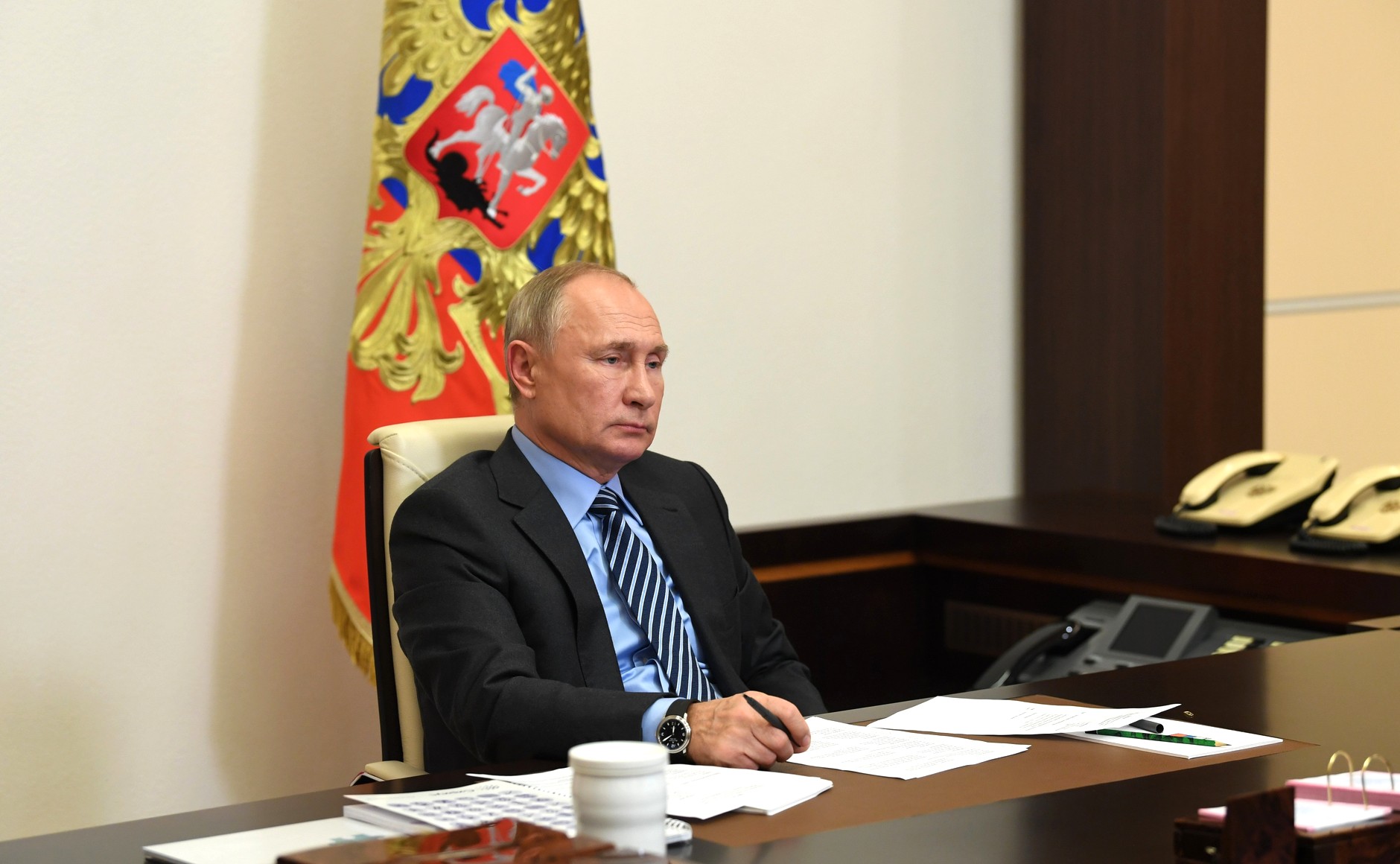 Let me reiterate, here, in the Imereti Valley, new products as well as technical and other solutions will be designed, and work should be pursued on the projects of the future in the full sense of this word, which means new rules, laws and standards will be needed for inventing and introducing fundamentally new technologies. And, of course, effective management mechanisms that will allow for taking prompt decisions, implementing Sirius’s development projects and engaging research universities, scientific centres and companies from across the country. In this regard, I deem it correct to use a new provision of the Constitution of the Russian Federation and grant Sirius the status of a federal territory, which entails economic independence for Sirius and a direct communication mechanism with both the President and the Government of Russia. Members of the working group on drafting constitutional amendments – I asked them about it – prepared a respective draft law. As you are aware, it has already been submitted to the State Duma. I ask the Government to duly prepare all necessary legal acts for the functioning of the Sirius federal territory, including during a transition period, and also to ensure the economic basis for its activities. Let me repeat – all decisions must come into effect as early as next year, 2021. And certainly, in view of new decisions on the status of Sirius, I expect proposals on its further development. Let us discuss all these issues. The source of information - http://en.kremlin.ru/events/president/news/64410 East Asia Summit The President addressed the plenary session of the 15th East Asia Summit held via videoconference. November 14, 2020 - 14:40 - Novo-Ogaryovo, Moscow Region 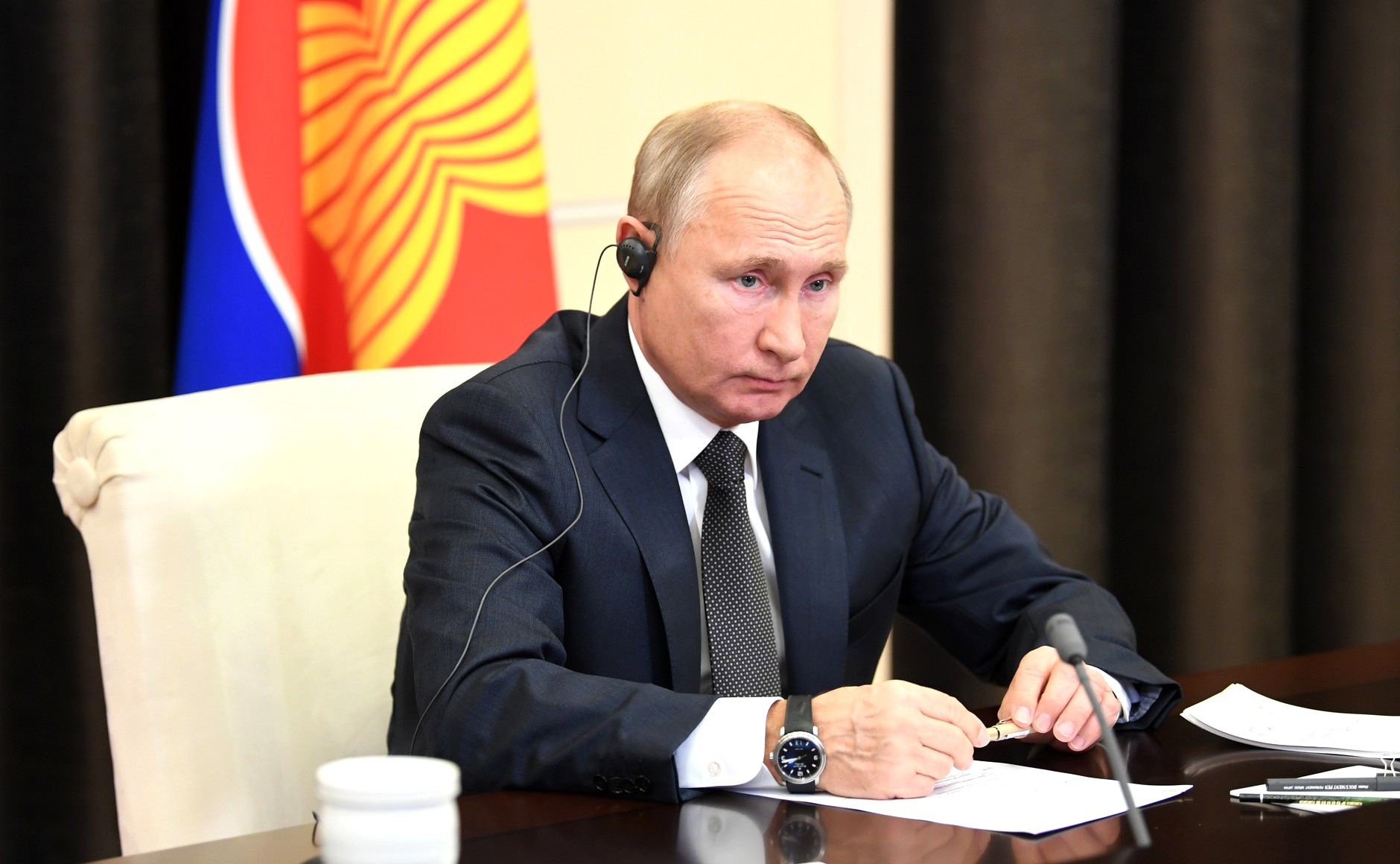 The summit participants discussed current issues of the Asia-Pacific Region, including building up regional security, ensuring sustainable economic growth, and preventing the further spread of the coronavirus infection. Following the forum, a package of documents was adopted, including the Hanoi Declaration on the 15th anniversary of the East Asia Summit. The package also contains four statements by the leaders of the countries participating in the summit: on strengthening the collective potential of preventing and countering epidemics, on maritime sustainability, on cooperation in promoting the growth of regional economy, and the role of women in maintaining peace and security.  President of Russia Vladimir Putin: Mr Chair, Colleagues, To begin with, I would like to thank Prime Minister of Vietnam Nguyen Xuan Phuc for hosting today’s event. East Asia summits have established themselves as a respected platform for discussing urgent issues affecting the entire Asia-Pacific Region, for a joint search for solutions to the most burning international problems. This is reflected in the Hanoi Declaration, the main document to be adopted following the summit. I agree with the key idea recorded in the document that our nations must work in concert on preserving peace and stability in Asia-Pacific, and build up cooperation on a wide range of political and economic challenges. It is also crucial that we act on the principles of respect for international law, account for each other’s interests and ensure indivisible security. Russia consistently advocates the establishment of the atmosphere of constructive cooperation and the enhancement of stability in the Asia-Pacific Region, including in the military political area where risks and threats have grown significantly after the termination of the INF Treaty upon the US initiative. As you know, in an attempt to stabilise the situation and thwart another round of the arms race, we announced a unilateral moratorium on the deployment of intermediate and shorter-range missiles in the APR and other regions, for as long as our US partners refrain from such actions. We are open for serious talks on the issue with all interested states. And, of course, close cooperation and interaction is needed to counter the gravest challenge faced by our region and the entire humankind – the coronavirus pandemic. I note that the Asia-Pacific Region has over 20 million coronavirus patients, which makes up almost half – 43.7 percent of the total number of infected people in the world. 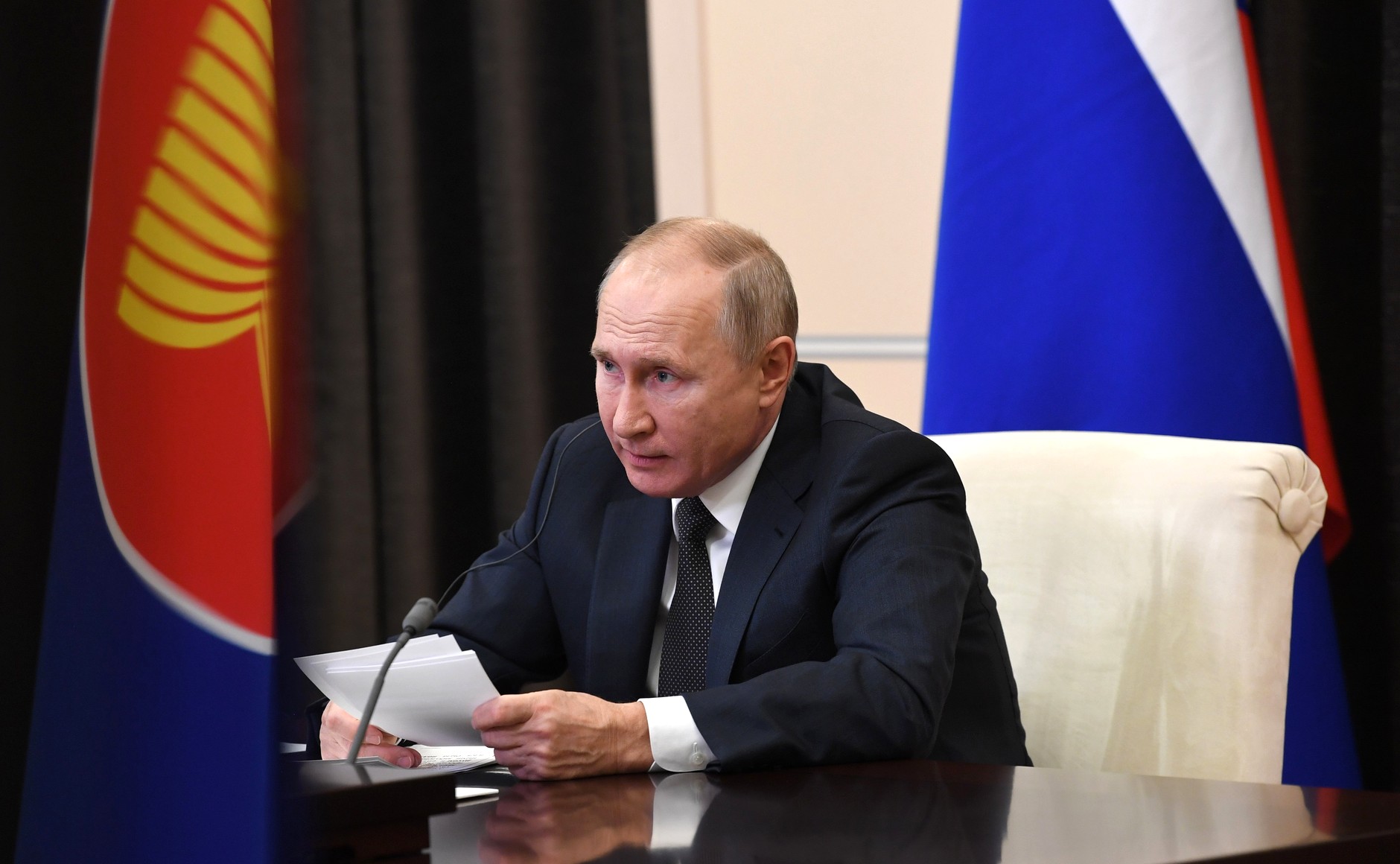 In this context Russia proposed drafting a joint statement to be approved by the leaders of the East Asia Summit participating nations on fighting the coronavirus. I really hope that this documents will be adopted today. I would also like to remind you that as early as 2016 Russia put forward an initiative of developing anti-infection cooperation in the APR. Its implementation allowed us to establish coordination between epidemiological agencies, arrange experience and information exchanges, and start training specialists in this field. An advanced training programme was launched for epidemiologists from the APR at a centre in Vladivostok, Russia. The operation of the ASEAN Centre of Military Medicine (ACMM) set up in Bangkok with Russia’s active assistance is also very useful. In May, the Centre hosted a command-staff exercise on fighting the pandemic which engaged defence representatives of the ASEAN nations and dialogue partners as well as World Health Organisation experts. The Russian side is open to further active joint work on the epidemiology track. We have much to offer in terms of scientific, clinical and production experience in fighting infections. As you probably know, the first coronavirus vaccine in the world, Sputnik V, was developed and is already being used in Russia. Recently we registered another vaccine – EpiVacCorona, and a third vaccine is coming. Dozens of countries have already expressed their interest in working together to organise the supplies and joint manufacturing of these vaccines. We strongly believe that citizens of all countries must have free access to vaccination. We are ready to provide our partners with Russian test systems, reagents for coronavirus diagnostics, including free of charge. As of now over a million tests have been provided to over 40 countries. Strengthening business and economic ties is a crucial task for all the nations of our shared region. We see that amid the pandemic in the Asia-Pacific space, mutual trade and investment exchanges are declining and recession has hit key industrial and financial sectors. 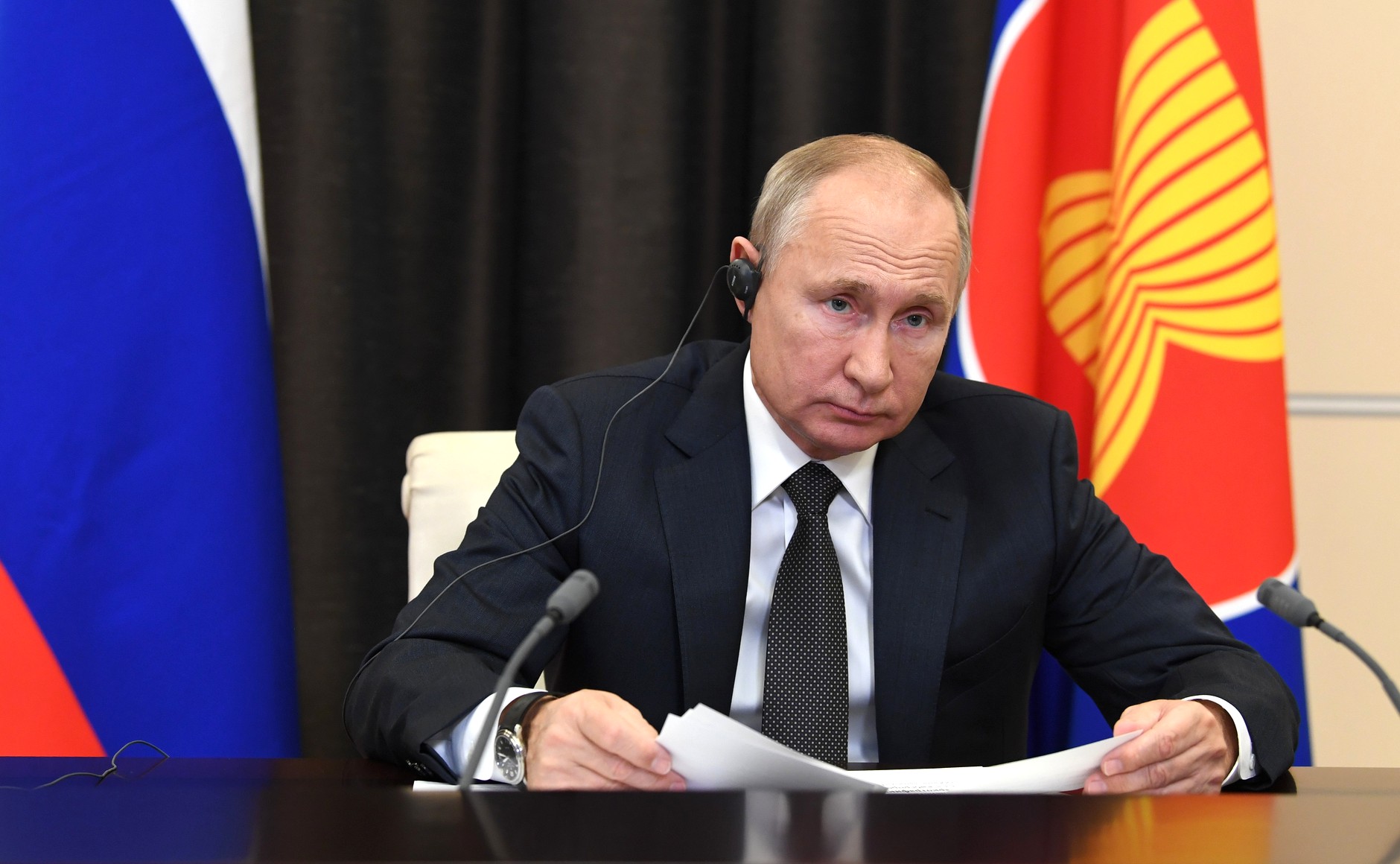 Thus, Russia’s trade with the states present at the summit today fell by 12 percent in the first three quarters of the year. We expect that the statement on ensuring stable growth of the region’s economy to be adopted today, proposed by our Chinese partners, will boost the expansion of trade, investment and technological exchanges between our nations. I believe the build-up of economic cooperation in the Asia-Pacific Region will also be enhanced by further development of various integration projects. We are confident that regional and subregional associations, such as the Association of Southeast Asian Nations, the Eurasian Economic Union and the Shanghai Cooperation Organisation, can interact in the interests of the entire region by harmoniously and effectively complementing each other. This week’s summit of the Shanghai Cooperation Organisation chaired by Russia adopted a joint statement by the leaders approving the idea of aligning integration efforts and Russia-proposed initiative on establishing the Greater Eurasian Partnership as a single, broad and open space of security and mutually beneficial economic and humanitarian cooperation. Another topic of crucial importance for all our nations is the digitisation of the economy and introduction of high-tech solutions to improve people’s lives. A great deal is being done in Russia to develop this area. We are seventh in the world today in terms of people’s involvement in the digital economy. A large number of services and support instruments for citizens have already been transferred into an online format. We welcome the important and timely initiative of smart cities proposed two years ago by Singapore chairmanship, which stipulated the application of advanced urban technologies in the APR nations. On our part, we could offer our own technological know-hows in this area. Colleagues, I would like to stress in conclusion that the future of the Asia-Pacific Region depends on how closely we will be able to unite in the face of the emerging challenges and threats, to show political will for cooperation in the interests of universal and sustainable development. Such an approach will undoubtedly yield results, and the Russian side is ready to make its contribution to joint work. Thank you for your attention. The source of information - http://en.kremlin.ru/events/president/news/64417 Telephone conversations with Nikol Pashinyan and Ilham Aliyev November 14, 2020 - 20:20 In the course of Vladimir Putin’s ongoing telephone contacts with President of the Republic of Azerbaijan Ilham Aliyev and Prime Minister of the Republic of Armenia Nikol Pashinyan, the discussions focused on practical aspects of implementing the agreements reached in the trilateral Statement on Nagorno-Karabakh of November 9. The parties expressed satisfaction over the observance of ceasefire and a fairly calm situation along the contact line. Speaking to Ilham Aliyev, Vladimir Putin drew his attention, in particular, to the fact that there are Christian churches and monasteries in the districts which are being returned to the Republic of Azerbaijan under the trilateral Statement. In this context he stressed the importance of ensuring the preservation and normal operation of those holy places. The President of Azerbaijan expressed understanding in this respect and said that Azerbaijan will certainly act in this spirit. The source of information - http://en.kremlin.ru/events/president/news/64418 Greetings to 40th VGIK International Student Festival Vladimir Putin sent greetings to the participants and guests of the 40th International Student Festival of the Russian State University of Cinematography. November 16, 2020 - 09:00 The message reads, in part: “Your legendary forum, organised by one of the world’s oldest film schools, has always brought together many participants from Russia and other countries, those who are sincerely devoted to the cause, who will continue to advance national film schools and create new trends and prospects in the development of contemporary art. These meetings are rightly famous for their rich history and traditions, an atmosphere of friendship and mutual understanding. The festival’s special pride of course is a whole constellation of participants and winners who have covered a triumphal creative path from young talents to experienced professionals. I am certain that this year’s festival will become a spectacular, memorable event in the cultural life of the country and will provide students with a wonderful opportunity to show-case their talent, receive priceless lessons from prominent members of the film community, and take another step towards popularity and success.” The source of information - http://en.kremlin.ru/events/president/news/64422 Greetings on 75th anniversary of UNESCO Vladimir Putin sent his greetings to UNESCO Director-General Audrey Azoulay on the 75th anniversary of the United Nations Educational, Scientific and Cultural Organisation. November 16, 2020 - 10:00 The message reads, in part: “Since the first days of its existence, UNESCO has served the interests of intellectual and spiritual development of humankind and contributed to strengthening multilateral cultural cooperation. The organisation’s positive unifying potential is in great demand in the global community. I would like to confirm that Russia intends to continue taking an active part in UNESCO’s activity and contributing to the work on the objectives of this important international structure.” The source of information - http://en.kremlin.ru/events/president/news/64421 Congratulations to Maia Sandu on winning the presidential election in Moldova Vladimir Putin congratulated Maia Sandu on her victory in the presidential election in the Republic of Moldova. November 16, 2020 - 13:00 “I expect that your service as the head of state will contribute to the constructive development of relations between our two countries. This would undoubtedly meet the fundamental interests of the peoples of both Russia and Moldova,” the Russian President said in his message wishing Maia Sandu every success, good health and well-being. The source of information - http://en.kremlin.ru/events/president/news/64423 Security Council meeting The President held a meeting of the Russian Security Council via videoconference. The participants discussed the draft Russian State Antidrug Policy Strategy until 2030 and steps for its implementation. November 16, 2020 - 14:15 - Novo-Ogaryovo, Moscow Region President of Russia Vladimir Putin: Colleagues, good afternoon. Today we will discuss the main ways to improve the state antidrug policy. This topic is definitely extremely complex, embraces many aspects and directly affects national security. I will say even more – without any exaggeration, it affects the future of our people. Drugs cripple and kill thousands of Russians every year. They bring suffering to children, and young people in general, bring pain and grief to families, and undermine the moral foundations of society. The shadow profits from the drug business are used as financial support for criminals, for cross-border crime, corruption, terrorist and extremist groups. It is a challenge that Russia and practically all other countries are facing. I would like to note right away that over the past ten years, the implementation of the Russian State Antidrug Policy Strategy has enabled us to take a number of important steps in the fight against the drug threat. Thus, punishment for the sale and smuggling of drugs or their analogues, the punishment for the distribution of drugs online, in educational institutions, and crowded social venues has been increased drastically, up to life imprisonment. A fundamentally new legal mechanism for encouraging drug addicts to get treatment and rehabilitation has been added to the legal framework. In the last three years alone, over 85 percent of pupils in schools, students in technical colleges, and universities – a total of more than 6 million people – have been tested for drug addiction through social and psychological evaluation. Largely due to the measures taken, over the course of 10 years the number of officially registered drug users has decreased by more than a quarter: from 673,000 to 478,000, including that of underage users from 7,900 to 5,100. Over the same period, the number of drug crimes decreased by 17 percent, and the number of drug intoxicated criminals dropped by 30 percent. At the same time, these numbers should not be a reason for complacency. Both drug business and drug use are covert and latent. Analytical materials prepared for our meeting show that the situation remains complicated. For example, over the first nine months of this year law enforcement agencies detected over 144,500 drug crimes, which is almost equal to the numbers from the same period last year (145,000). Almost 18 tonnes of narcotic and psychotropic substances were confiscated. Our task is to improve efforts to counter drug trafficking and take more concerted and decisive action on all fronts. This must be the goal of the new Russian State Antidrug Policy Strategy until 2030. We will discuss the draft today. Of course, continuing the tough uncompromising fight waged by law enforcement agencies and special services against drug dealers is a priority area. Here, results and numbers must be significantly higher than those we have today. This is why I would like to elaborate on these matters. We always discuss this at annual expanded meetings of corresponding agencies. 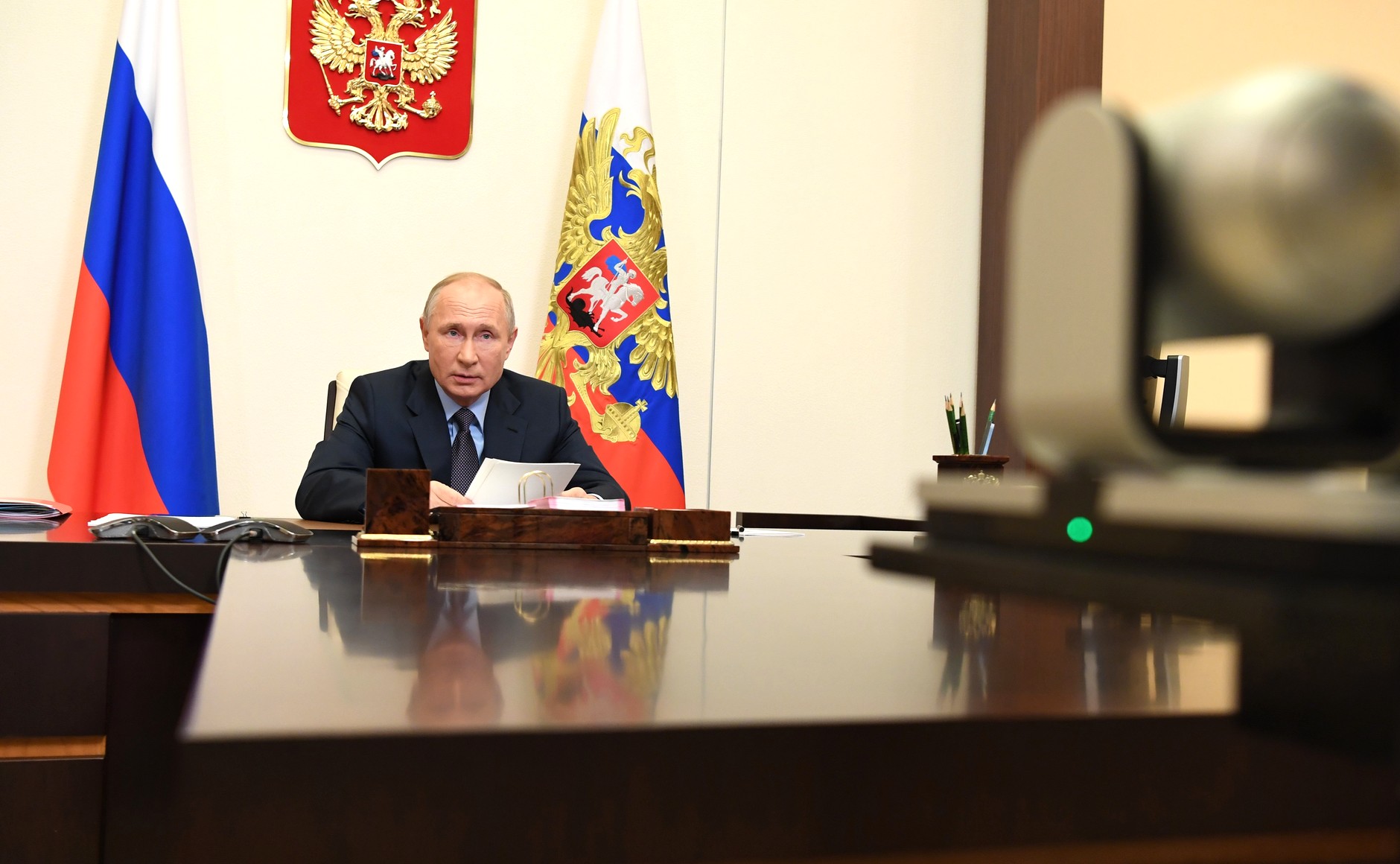 As I have said, today I would also like to draw your attention to several important points. First, we can see that criminals increasingly use modern means of communication to sell drugs, while in the supply and distribution schemes, they use contactless payment methods and new non-bank forms of payment more actively. This means there is no need for personal contact between the seller and the buyer. By doing so, criminals try to hide their activities as much as possible. These trends have further aggravated this year, in conditions of the pandemic and restrictions on socialising. Thus, in the first half of this year, the number of discovered, recorded crimes alone has grown by almost 70 percent. This example shows how modern technology is being used for evil purposes rather than for the good of the people. Apparently, it is necessary to look for new, more effective ways of countering such latent crimes. Relevant departments of the Ministry of the Interior and the Federal Security Service must enhance their cooperation with Rosfinmonitoring [Federal Financial Monitoring Service] as well as with other agencies. Secondly, practically all the state borders have been closed this year due to the pandemic. As a consequence of this, during the first half of 2020 drug trafficking into Russia went down by more than a third. This was a blessing in disguise, as they say. But obviously, with the restoration of interstate communications (which is inevitable), attempts to build up drug supplies from other countries will be resumed. This means that now it is time to think over and take additional measures on enhancing border and customs control. Thirdly, we have said that drug addiction is a misfortune, a serious, hard-to-treat disorder. It is impossible to overcome it in one go. Therefore, it is important to improve the system of rendering medical aid to drug addicts, continue supplying drug-abuse clinics with modern equipment, strengthening their personnel potential and introducing advanced methods of revealing the disorder at early stages when help is timely and most effective. Fourthly, it is necessary to determine finally a federal body or bodies that are responsible for the social rehabilitation of drug addicts, and formulate uniform requirements in this area for the whole country. Incidentally, the regions have not done this up to now either. The discussion on this subject continues and de facto responsibility is often shifted by some departments to others. All this work has been dragged out for no objective reasons. In addition to this, it is necessary to enhance control over the activities of private rehabilitation clinics in the regions. In some cases, they flagrantly violate the constitutional rights of our citizens. This problem must be resolved by all means and without delay. I would also like to highlight the fact that certain Russian region heads often delegate to other officials their assigned powers as chairs of anti-drug commissions. This practice – colleagues, pay attention to this please – which is in fact an attempt to hide behind someone else's back, is absolutely unacceptable.  I would like to remind you once again that coordinating all anti-drug activities is the regional heads’ individual, personal responsibility. And I am requesting the plenipotentiary representatives of the President of Russia in the federal districts to monitor this issue constantly. Fifth is the expansion and implementation of a modern antidrug awareness policy, including the media, the social media that are popular with young people, and at educational institutions. We need to inform people about this deadly trap that anyone can get into, frankly and harshly. We need to have the courage to tell the truth and expose lies, including those about the “safe and civilised” use of so-called light substances and other drugs. I have already mentioned it more than once and I would like to repeat it again: charities and other public associations should be more vigorously involved in this work. Many of them already have successful experience in preventing drug addiction, and in helping the social rehabilitation of drug addicts. These practices should definitely be widely disseminated. Sixth. I have already said that drugs are a global threat. This means we should make efforts to enhance international antidrug cooperation, primarily at prominent and influential platforms such as the United Nations, BRICS, CSTO, and SCO, and expand the exchange of information and experience in countering transnational, cross-border drug-related crime. And there is one more point I would like to make in conclusion. I believe that the draft Russian State Antidrug Policy Strategy until 2030 certainly takes into account the nature of modern challenges and threats to national security. But you need to be extra careful about each of its provisions, not apply them formally. Let's discuss this document now. I want you to take this very, very seriously, both the document itself and the future implementation plans for this document. Now we need to look at its main provisions. I would like to give the floor to Minister of Internal Affairs, Chairman of the State AntiDrug Committee Vladimir Kolokoltsev. The source of information - http://en.kremlin.ru/events/president/news/64424 Telephone conversation with President of France Emmanuel Macron Vladimir Putin had a telephone conversation with the President of the French Republic, Emmanuel Macron. November 16, 2020 - 15:30 The presidents discussed the developments around Nagorno-Karabakh, considering that Russia and France are co-chairs of the OSCE Minsk Group. Vladimir Putin informed his counterpart about the active mediation efforts Russia had taken that made it possible to stop the bloodshed and avoid new victims, as well as about the deployment of Russian peacekeeping troops along the line of contact and the Lachin corridor. It was noted that the statement by the presidents of Russia and Azerbaijan and the Prime Minister of Armenia of November 9 is being implemented, and the general situation in the region has stabilised. After expressing their readiness to coordinate work between the co-chairs of the OSCE Minsk Group – Russia, France and the US – the presidents emphasised the importance of addressing urgent humanitarian issues, including returning refugees to their permanent homes, ensuring normal living conditions for the population, restoring the infrastructure, and preserving Christian temples and monasteries. In this context, Vladimir Putin informed about the establishment of the Russian Humanitarian Response Centre. The two leaders touched upon certain issues of bilateral cooperation, including in the sphere of joint efforts to counter the terrorist threat. They praised the talks between French Minister of the Interior Gerald Darmanin and heads of specialised Russian agencies held in Moscow on November 11–12. The source of information - http://en.kremlin.ru/events/president/news/64426 Telephone conversation with Prime Minister of Israel Benjamin Netanyahu Vladimir Putin spoke by telephone with Prime Minister of Israel Benjamin Netanyahu at the initiative of the Israeli side. November 16, 2020 - 18:00 The two leaders focused on efforts to counter the spread of the coronavirus. They had a detailed discussion of the restrictive and preventive measures the two countries were taking. Bilateral cooperation between interested agencies and organisations were discussed, in particular, the prospects for cooperation regarding the Russian vaccine, including distribution and production in Israel. Developments in the Middle East were also discussed. The sides agreed to maintain contact at various levels. The source of information - http://en.kremlin.ru/events/president/news/64427
__________________
Where should they dig the Very Deep Pit? Piglet said that the best place would be somewhere where a Heffalump was, just before he fell into it, only about a foot farther on. (c) Alan Alexander Miln |
|
|
#151 |
|
Senior Member
|
Greetings on opening of 4th International Conference Problems of Human Rights Protection in Eurasian Legal Space
Vladimir Putin sent his greetings to the participants in the 4th International Conference Problems of Human Rights Protection in Eurasian Legal Space: Exchange of Best Practices by Ombudsmen. November 17, 2020 - 11:00 The message reads, in part: “This year, the conference is marked by two anniversaries, 75 years since the founding of the United Nations and 70 years since the signing of the European Convention for the Protection of Human Rights and Fundamental Freedoms. The UN Charter is the essential source of modern international law while the provisions of the 1950 Convention formalise the imperative of the rule of law and unified approaches to the problem of human and citizen rights on the European continent. It is good to see that, despite the difficulties caused by the COVID-19 pandemic, this streamlined multilateral dialogue that involves ombudspersons, government officials and representatives of the research and expert communities continues. Once again, you will share experience and legislative solutions, discus topical issues of human rights protection, and outline new forms and mechanisms of mutually beneficial cooperation. I hope that this year, when we celebrate the 75th anniversary of the end of World War II, you will specifically focus on countering the attempts to review its outcome as well as on preserving the historical truth about the alliance of the anti-Hitler coalition states and our common Victory. I am certain that the ideas and initiatives proposed during the conference will find their practical implementation.” The source of information - http://en.kremlin.ru/events/president/news/64429 BRICS Summit Vladimir Putin chaired a meeting of the BRICS heads of state and government, held via videoconference. November 17, 2020 - 16:20 - Novo-Ogaryovo, Moscow Region President of Brazil Jair Bolsonaro, President of Russia Vladimir Putin, Prime Minister of India Narendra Modi, President of China Xi Jinping and President of South Africa Cyril Ramaphosa exchanged views on the state and prospects of their five-sided cooperation, summed up the results of Russia’s Chairmanship of BRICS in 2020, discussed the most relevant issues on the international agenda, and compared notes in regard to the upcoming G20 summit to be held on November 21–22. During the meeting, the leaders of the BRICS states heard reports from speakers who have been overseeing the work on each track of the association's activity. Secretary of the Russian Security Council Nikolai Patrushev spoke about cooperation in the coronavirus pandemic response, in combating terrorism and cybercrime. President of the New Development Bank Marcos Troyjo cited the financial institution's performance data and plans for next year. President of the Russian Chamber of Commerce and Industry Sergei Katyrin spoke about the Business Council events, while Chairman of VEB.RF Igor Shuvalov covered the BRICS Interbank Cooperation Mechanism. The report by Chair of the Board of Directors of Global Rus Trade Anna Nesterova addressed the establishment of the BRICS Women's Business Alliance. As a result of the consultations, the sides adopted the Moscow Declaration, which reflects the five states’ consolidated approach to the further development of the association, as well as the Strategy for the BRICS Economic Partnership until 2025 and the BRICS Anti-Terrorism Strategy.  President of Russia Vladimir Putin: Colleagues, friends, good afternoon. I am happy to see you all and to welcome you at this summit. Prime Minister Modi, Chairman Xi Jinping, President Ramaphosa, President Bolsonaro, It is a pleasure to have this meeting with you today within the BRICS framework. Before we get down to work, I would like to extend my birthday greetings to the President of the Republic of South Africa, Mr Ramaphosa, and wish him good health and every success in his endeavours in the interests of the friendly people of South Africa. Friends, The topic chosen for today’s meeting is quite broad and covers matters that deal with expanding the strategic partnership between the BRICS countries for the sake of global stability and security, as well as fostering innovative growth of our economies. As usual, we will also discuss current international and regional matters in view of the upcoming G20 Summit, which is to take place very soon, on November 21 and 22. We will compare notes on the key aspects of the G20 agenda. If there are no objections, colleagues, I would like to declare the 12th BRICS Summit open. In keeping with the established procedure, allow me to be the first speaker at this meeting as the head of the state that has the current BRICS Chairmanship. Friends, I would like to once again sincerely welcome you all and express my satisfaction with the fact that during the Russian Chairmanship the BRICS countries have proactively expanded their cooperation with one another in all the key areas, including politics, the economy and humanitarian affairs, despite the special conditions caused by the coronavirus pandemic. We have held 130 events, including some 25 ministerial meetings. Unfortunately, but naturally in this situation, many of them had to take place online. Of course, our current priority is to coordinate collective BRICS measures to combat the pandemic, improve collaboration between our epidemiological services and protect the lives and health of our citizens. By the way, the subject of medical cooperation is nothing new for BRICS. In this context, we are in a better situation, relatively speaking, than some other countries. Let me remind you that the Ufa Declaration we adopted five years ago included an agreement to work together to prevent the spread of infectious diseases, including – I would like to emphasise this – novel coronaviruses. Pursuant to that agreement, the BRICS countries created an early warning system for infectious disease outbreaks, which we could use during the COVID-19 pandemic. The BRICS countries promptly responded to the disease outbreak and took practical measures to combat the pandemic. I would like to point out that the Russian Direct Investment Fund (RDIF) has signed agreements with our Indian and Brazilian partners on clinical tests of the Sputnik V vaccine and with pharmaceutical companies in China and India on the production of this vaccine not only for our own use, but also for third countries. I believe that this is very important. There are Russian vaccines, and they are effective and safe. The next task is to launch their large-scale production. This is not a problem, but it is a matter facing us now. Of course, it is very important to join forces for the large-scale manufacturing of this product for the general public. Incidentally, we have registered a second coronavirus vaccine in Russia, EpiVacCorona, and the third one is in the works. As I have already mentioned, we are ready to cooperate with our BRICS partners in their manufacturing and use.  We also believe it important to accelerate the establishment of the BRICS Vaccine Research and Development Centre, as we agreed at the Johannesburg summit two years ago at the initiative of our South African friends. This year the pandemic forced each of our countries to take emergency measures to support national industries, finance and the social sphere, to revive their economies and return them to a trajectory of sustainable growth. This is the goal of the Strategy for BRICS Economic Partnership for the period until 2025, prepared for this summit. The New Development Bank is in great demand in the current situation. The Bank has reserved $10 billion to combat the pandemic, while its overall portfolio of investment projects now exceeds $20 billion. As many as 62 large projects are already being implemented in the BRICS countries. Incidentally, a regional branch of the bank will soon open in Moscow to implement lending programmes across the Eurasian space. I would also like to remind you that the BRICS countries have a special insurance tool in case of a crisis in the financial markets: the BRICS Contingent Reserve Arrangement, with a $100 billion fund. The BRICS Interbank Cooperation Mechanism is important in the parties’ cooperation on credit and investment policy; this year, they have agreed on the rules and principles of responsible financing of development institutions within its framework. The five countries are enhancing cooperation in science, technology, and innovation. The BRICS Network University is up and running; the parties have held the BRICSMATH competition for schoolchildren this year, along with contests for young scientists and innovators and their research projects. Intensive contacts have been underway between our academic and scientific centres. Their coverage is truly impressive – from ocean and polar research to astronomy and artificial intelligence. Experts from the five countries carry out joint energy research: reports have been prepared on the projected development of the fuel and energy sectors in the BRICS countries until 2040. The parties continue exchanges on the cultural and humanitarian tracks. The BRICS Film Festival was held online, as we agreed earlier, colleagues. The first ever meeting of ministers of sport was held, and resulted in a Memorandum of cooperation in physical culture and sport. The dialogue between the authorities responsible for tourism in our countries has been launched. Colleagues, we are still facing a challenging global and regional security environment. International terrorism and drug trafficking continue to pose serious threats, and cybercrime has greatly expanded its reach. We are witnessing dangerous destabilising trends in the Middle East and North Africa. The armed conflicts in Libya and Yemen are continuing. There is still a lot to be done to bring about a political settlement in Syria, and the risks of escalation persist in Iraq, Lebanon, Afghanistan, and in the Persian Gulf. Furthermore, as you know, the Nagorno-Karabakh conflict entered an acute phase in September. Russia went to great lengths to help stop the hostilities between our two friendly states and incite them to come to a compromise. Our mediation efforts paved the way to the November 9 agreement on a complete ceasefire and the deployment of a Russian peacekeeping force in Nagorno-Karabakh. All these provisions are set forth in the trilateral statement signed by the presidents of Russia and Azerbaijan, and the Prime Minister of Armenia. 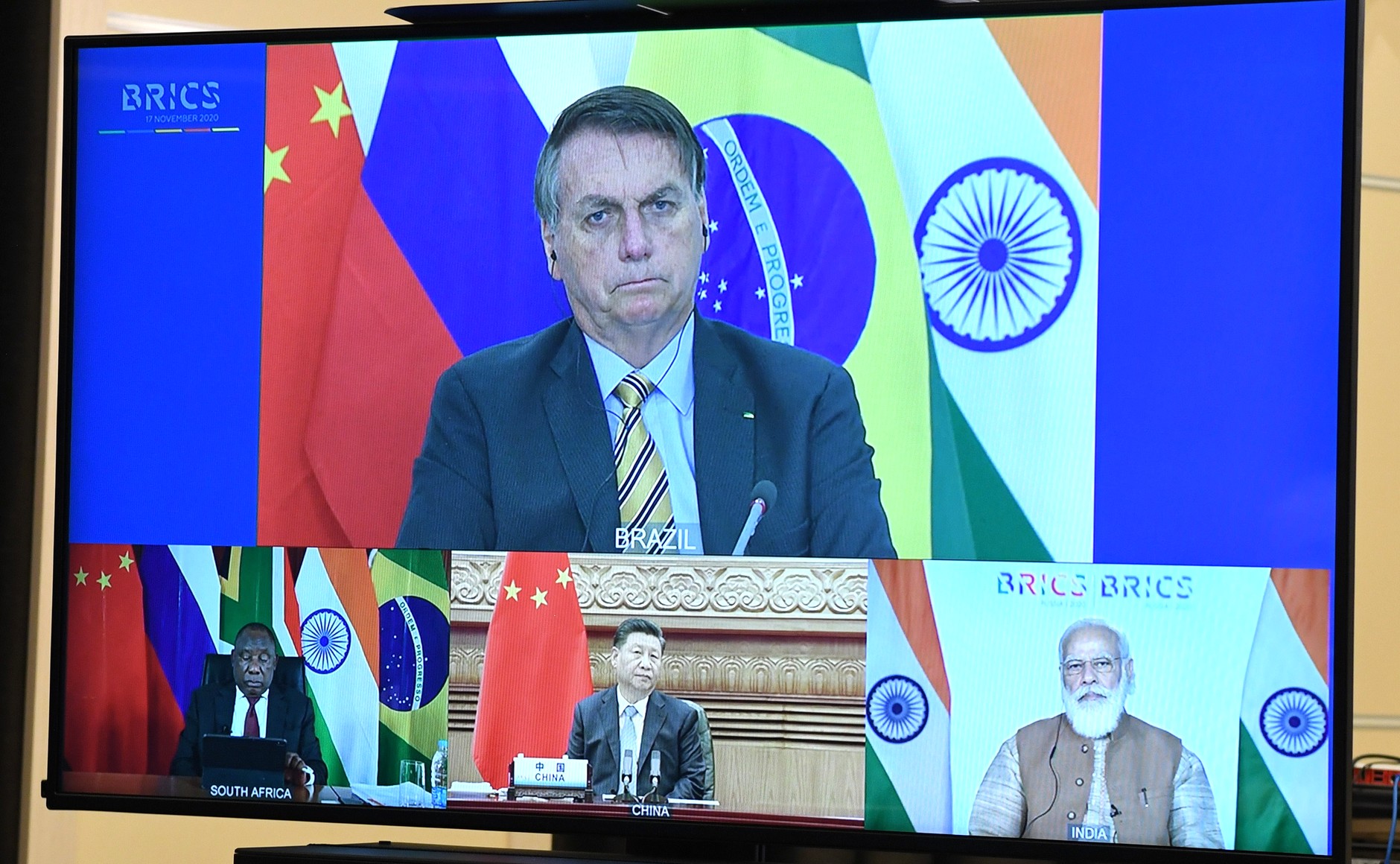 Importantly, the parties have been complying with these agreements. Hostilities have stopped, and the situation is getting back to normal. This lays the groundwork for a lasting and comprehensive settlement that would be fair and would serve the interests of the peoples of both Armenia and Azerbaijan. It is highly satisfying that the BRICS countries have been closely coordinating their efforts on current international and regional matters. A policy document, the BRICS Counter-Terrorism Strategy, has been drafted for this summit. The BRICS countries are expanding their cooperation on combating drug trafficking and corruption, as well as on international information security. The BRICS High Representatives on National Security, heads of foreign ministries and our respective missions to the UN maintain regular contacts. In the year of the 75th anniversary of Victory over Nazism in World War II, the BRICS countries have unanimously condemned the glorification of the Nazis and their henchmen and the attempts to revise the outcome of the war and to revive the ideology of aggression and intolerance. Our countries consistently advocate constructive relations with other states, integration entities and international organisations, including in the proven BRICS Plus and BRICS Outreach formats. In our common opinion, this interaction should continue to build on the principles of respect for the UN Charter and the fundamental rules of international law such as sovereign equality of states, non-interference in internal affairs and peaceful settlement of disputes. Colleagues, in connection with the G20 summit in Saudi Arabia on November 21–22, I would like to note that the BRICS countries’ approaches on most of the G20 agenda items are close or overlap. This concerns reforming key global institutions, such as the International Monetary Fund, the World Trade Organisation and the World Health Organisation. With the BRICS countries’ direct contribution, a comprehensive package of G20 measures to overcome the impact of the pandemic has been put together. The main focus is on restoring global value chains and the openness of international trade. Russia’s initiative on the so-called green corridors free from wars and sanctions, primarily with regard to humanitarian supplies of food and medicine, is envisioned along the same lines. Colleagues, in closing I would like to stress once again: Russia will always give priority attention to expanding cooperation between the BRICS states and strengthening our association’s positions in the international arena. I would like to thank you for your friendly support and well-coordinated and effective interaction this year. Thank you. <…>  Vladimir Putin: Colleagues, this is what I would like to say in conclusion. We have all had special work schedules during this period, due to the current situation throughout this year. The old problems have not gone away though. They were difficult enough as it is, and they have also created additional challenges when it comes to dealing with the problems that we already had from many years ago, for entire decades. But the pooling of our efforts and our joint work to strengthen our alliance are aimed exactly at solving our problems in the most effective way possible. I would like to thank you for your assessment of our efforts to strengthen interaction within the framework of BRICS. At the same time, I would like to point out that without your support, without the support of Prime Minister Modi, President Xi Jinping, President Ramaphosa and President Bolsonaro, the Russian Government would not have been able to do what we managed to achieve amid the battle against the coronavirus infection. Overall, I believe that together we have done this. We expect to approve the Moscow Declaration prepared for this summit, which includes our common views on global developments and on the results of Russia’s chairmanship, and outlines the long-term guidelines for our cooperation within the framework of our organisation. In addition to this, we should approve two other documents, the BRICS Counter-Terrorism Strategy and a revised Strategy for BRICS Economic Partnership for the period up until 2025. Unless there are any objections, colleagues, I suggest that we consider these documents adopted. This is my question for you: are there any objections? No? Thank you very much. I would like to add that a large package of documents on specific areas of BRICS interaction have been approved at the interagency level. In this connection, I would like to thank the concerned ministries of our countries for ensuring their coordination. This coming January, our Indian friends will be taking over the BRICS chairmanship. I am confident that our Indian colleagues will ensure continuity in the work of our organisation and will add new interesting projects and ideas to cooperation between our five countries, including, of course, with due regard for the proposals on current matters voiced during our meeting today. I would like to wish every success to Mr Modi and to express the hope that our next summit will be held in person, at long last. For our part, we are ready to provide all-round assistance to our Indian partners. In conclusion, I would like to thank all our colleagues once again for the substantial discussion we had today and for our collective efforts. Has anyone got anything to add in conclusion? No? In that case, I would like to once again thank all of you for our joint work throughout the year and today. Until our next meeting. Thank you. The source of information - http://en.kremlin.ru/events/president/news/64430 Replies to media questions on developments in Nagorno-Karabakh November 17, 2020 - 20:30 - Novo-Ogaryovo, Moscow Region Question: Mr President, a week has passed since the signing of a most important statement by Azerbaijan, Armenia and Russia. How do you assess the implementation now? What is successful? What might still be a problem? Most importantly, do you think this agreement will make it possible to sever the tight knot and resolve this very long-term and sensitive issue where each side has its own truth, as you put it yourself? President of Russia Vladimir Putin: The most important achievement was stopping the bloodshed. I have already said that according to official figures alone, over 4,000 people have died. I think that in reality the figures are higher. Tens of thousands are wounded and mutilated. Look, this is not a movie. This is a tragedy that has befallen real people, real families. Therefore, stopping the bloodshed is the main result. However, to understand what is happening we will still have to go back into history, literally in a few words. I have to recall that it all started in the already remote year of 1988, when ethnic clashes took place in the Azerbaijani city of Sumgayit. Armenian civilians fell victim to these events, and later it spread to Nagorno-Karabakh. And since the Soviet Union’s leaders did not react duly to these events… let me say it again: these are sensitive issues, and I do not want to side with anyone or decide who was right or wrong. It is no longer possible to determine this now, but it was necessary to put things in order and protect civilians, and this was not done. At that point, the Armenians themselves took up arms, and this protracted conflict, a conflict building for many years, broke out. Eventually, it led to a declaration of independence, sovereignty and self-reliance by Karabakh in 1991. The Bishkek agreements were signed in 1994 and this Bishkek memorandum stopped the hostilities at that time. What happened as a result? Karabakh declared independence, as I have said, and another seven adjacent regions came under the control of the Armenians, that is, Armenia. This is basically what we inherited from the past and this is the problem we had to resolve. I believe the fact that hostilities have stopped and, importantly, the parties agreed to unblock the roads and to restore economic ties is critically important and creates a good basis for normalising relations for the long term. Remark: No one recognised Karabakh’s status back then, either. Vladimir Putin: That is true: no one recognised it then or later. By the way, Armenia itself did not recognise it. Question: Does the problem of Karabakh's status still exist at all? Vladimir Putin: Yes, there is this problem, since Karabakh’s final status has not been settled. We have agreed to maintain the status quo. What happens next will be decided eventually by the future leaders and the future participants in this process. I think if proper conditions are created for normal life and relations between Armenia and Azerbaijan, between people in everyday life, especially in the conflict zone, are restored, it will create an environment for determining Karabakh’s status. With regard to recognising or not recognising Karabakh as an independent state, there may be different approaches, but this undoubtedly was a significant factor, including in the course of the bloody conflict that I hope has ended. Because the very fact of the non-recognition of Karabakh, including by Armenia, has left a deep imprint on the course of events and the way it is perceived. To put it bluntly, after the former Georgian leaders’ undoubtedly criminal moves, I mean the attacks against our peacekeepers in South Ossetia, Russia recognised the independence of South Ossetia and Abkhazia. We recognised the expression of the will of the people living in Crimea to reunite with Russia as just, and we met the people halfway, we did so openly. Some people may like it, others may not like it, but we did it in the interests of the people who live there and in the interests of Russia, and we are not ashamed to speak about it openly. This did not happen with Karabakh, and this, of course, has significantly influenced the developments there. Question: The Armenians who fled from Karabakh during the hostilities are returning. How safe is this? Vladimir Putin: This is a very important, a very sensitive issue. It is to ensure the safety of these people that the Russian peacekeeping force has been deployed there. As you can see, this document bears the signatures of the Prime Minister of Armenia, the President of Azerbaijan and me. All of us are aware that, given the gravity of the conflict, the wounds are still raw; they have not healed yet because there were very many casualties. As I have said, suffering has come to very many homes and families, both in Azerbaijan and in Armenia, as it is. Therefore, it will take time for the situation to settle down, so that people feel peace return to their hearts and souls, which is the main thing. Until then, we must ensure the real safety of the people, including refugees, who are returning to their homes on both sides. This is the mission of the Russian peacekeepers. Question: That night, immediately after the agreement was signed, alarming news came from Yerevan barely within an hour. Passions flared up there, and we can see that they are still running high. The opposition is accusing Prime Minister Pashinyan of treason, of betraying the nation. But Pashinyan had said, literally the day before, that Armenia could have avoided the war had it ceded seven districts and the city of Shusha to Azerbaijan, but they rejected the idea, rose to the challenge and fought to the bitter end. Was that possibility really discussed during the negotiations? Vladimir Putin: The return to Azerbaijan of five and later two more districts, which were under control (in fact under control of Armenia, let’s put it straight), was discussed for a very long time. Back in 2013, Russia, acting within the framework of the OSCE Minsk Group, formulated the conditions which could help launch a peace process, as we saw it. Incidentally, all parties of the Minsk process, the OSCE Minsk Group, including the co-chairs – Russia, France and the United States – accepted and supported our idea. The fundamental ideas of these proposals included the return of five districts controlled by Armenia at the first stage, to be followed by the return of two more districts, the creation of a corridor connecting Karabakh and Armenia in Azerbaijan’s Lachin district (this is why it was tentatively called the Lachin Corridor), and the recognition of the status quo in Karabakh without the formalisation of its final status. Indeed, I was telling our Armenian and Azerbaijani friends about this all the time; in my opinion, this would have resolved the matter. Unfortunately, we approached a final solution on this basis several times … By the way, there was a mandatory condition, namely, the return of refugees on both sides, including Azerbaijani refugees and also Armenian refugees, to their homes. This, too, is an unconditional requirement of international humanitarian law. To my mind, there would have been no war, if we had managed to accomplish this and reached agreement on this basis. This is true, and I remain absolutely convinced of this. Unfortunately, when we approached this, and it seemed that the matter would be resolved on this basis, obstacles emerged on both sides, and we were unable to overcome them. In the long run, the situation escalated into this bloody armed conflict that we just witnessed. Speaking of Shusha, the issue of its transfer was never raised. I repeat, the final status of Nagorno-Karabakh was to be resolved in the future, and everyone was expected to agree that its status quo as an unrecognised state would be retained. As for Shusha, this issue emerged during this conflict and this crisis. Indeed, this happened, but in what context? On October 19–20, I had a series of telephone conversations with President Aliyev and Prime Minister Pashinyan. At that time, the Armed Forces of Azerbaijan regained control over an insignificant part of Nagorno-Karabakh, namely, its southern section. On the whole, I managed to convince President Aliyev that it was possible to end hostilities, but the return of refugees, including to Shusha, was a mandatory condition on his part. Unexpectedly for me, the position of our Armenian partners was that they perceived this as something unacceptable. Prime Minister Pashinyan told me openly that he viewed this as a threat to the interests of Armenia and Nagorno-Karabakh. I do not quite understand the essence of this hypothetical threat, I mean, it was about the return of civilians to their homes, while the Armenian side was to have retained control over this section of Nagorno-Karabakh, including Shusha, and meaning that our peacekeepers were there, which we have agreed upon both with Armenia and Azerbaijan. At that point, the Prime Minister told me that his country could not agree to this, and that it would struggle and fight. Therefore, these accusations of treason against him are absolutely groundless. On the other hand, it remains unclear whether this was right or wrong. This is a different matter, but there was certainly no treason here. Question: You mentioned the OSCE Minsk Group. Earlier, France and the United States as the group’s co-chairs asked Russia to clarify Turkey’s role in the Nagorno-Karabakh settlement. Overall, there are many questions regarding the joint centre for monitoring the ceasefire, established together with Turkey. President Erdogan and Turkey’s Foreign Minister claimed that Turkey will take part in the peacekeeping mission with Russia. Is this the case? What will the centre do? Of most interest, where will it be headquartered? Vladimir Putin: Regarding Turkey and its role, it is well known, as Azerbaijan has explained on numerous occasions. Turkey has never made any secret that Azerbaijan has its unilateral support. What can I tell you? These are the geopolitical ramifications of the breakdown of the Soviet Union. So far we have been discussing this topic in broad terms, but the developments we are currently witnessing are the specific manifestations of these consequences. What am I talking about here? Well, Azerbaijan is an independent sovereign state, and has every right to choose allies as it deems fit. Who can deny it this right? This is my first point. Second, as I have already mentioned, nobody has recognised Karabakh’s independence, even Armenia. What does this mean in terms of international law? It means that Azerbaijan sought to recover territories which Azerbaijan, and the entire international community, view as Azerbaijani territory. In this context, it had the right to choose any ally who could assist it in this endeavour. By the way, Turkey was originally a member of the OSCE Minsk Group for the Nagorno-Karabakh settlement. This means that it was part of the international institution, the international mechanism designed to facilitate the settlement. Turkey was not a co-chair though. There were three co-chairs: France, Russia and the United States. Turkey was not part of this group. Still, it was a member, one of the 11 states. You can assess Turkey’s actions any way you want, but it can hardly be accused of violating international law. There may be varying subjective assessments, but what I have just described is the actual state of affairs. As for the peacekeeping mission, it is true that Azerbaijan and Turkey kept speaking about the possibility of Turkish involvement in peacekeeping operations. I believe I eventually managed to convince our Turkish partners and our Azerbaijani colleagues that we should not create conditions or motives for undermining our agreements, which could provoke one of the parties to take extreme measures or actions. I am referring to the bitter legacy of the past, the tragic and bloody events that took place during the First World War, the genocide. This is a factor that can be recognised or rejected; some people do and others don’t recognise it. This is not a problem for Russia; we have long recognised it. But why provoke the Armenian side by the presence of Turkish military personnel on the contact line? I believe that President Erdogan was and is fully aware of this. We had no problems with that. We agreed that Turkey, acting at the request of Azerbaijan, would take part in monitoring compliance with the ceasefire conditions. We will do this together with Turkey. What I mean is that we have positive experience of collaboration in the Middle East, including in Syria, where we are working together with Turkey to organise joint patrols and convoys in the Idlib zone and on the Syrian-Turkish border. There is no need for this kind of interaction in Nagorno-Karabakh, but we have agreed to set up a joint centre, which will make use of unmanned aerial vehicles, drones, to jointly monitor the situation along the contact line, to jointly retrieve and analyse the information and, of course, to draw online conclusions from what is really taking place on the ground in real time. As for where this centre will be located, this is quite another matter. It is obvious that it will be deployed on the sovereign territory of Azerbaijan, and Azerbaijan is free to decide where it would be expedient to locate the centre. Question: I am referring to subjective assessments. There is much talk about Turkey’s role in this region. What is your general assessment of its role in what has happened over the past few months? Vladimir Putin: I think that assessing Turkey’s role is not part of my duties. Different people, different countries are assessed differently. As of now, there are different relations shaping up between this or that state and Turkey. We know the history, often dramatic history of relations between Turkey and Russia over the centuries. But do you know what I would like to focus on? The fact that many European nations had, let us say, an equally difficult and tragic history of relations with each other. France and Germany are a case in point. How many wars did they have with each other? Today they are jointly performing their NATO defence and security duties the way they think fit and are cooperating within the European Economic Community. They have overcome all this and stepped over it, and they are moving forward in the interests of their nations’ future. Why cannot we do the same here, in the Black Sea region? Certainly, our positions and points of view are not always the same, nor are they the same in all respects. Occasionally, they are diametrically opposite. But this is what the art of diplomacy is all about: finding compromises. And any compromise is based on respect for one’s partner. Question: There is a feeling that France and the United States resent not being invited to participate in the agreement. Does the OSCE Minsk Group format have a future? Vladimir Putin: Well, I don’t know about them resenting anything. There is nothing to resent or hold a grudge, where problems are dealt with at so high a level and in such a context, and where the issues at stake are the health, lives and fates of millions of people for a long time to come. Some totally different categories are taken into consideration here. I think that, in fact, this is a hyperbole, an exaggeration – that someone resents something. Regarding the role of France and the United States, I have a very high opinion of it because France and the United States have always been in the know, and they have always looked for various options to resolve this problem. As I have said, France and the United States mostly supported our proposal and worked together starting from 2013, when Russia suggested the basis for a future peace settlement format. The question is whether it was possible to take into account all the details of each partners’ opinions while drafting the final document that formed the basis of our trilateral agreement and the ceasefire agreement. However, this is a purely technical matter because it does not undermine the foundation of our common position regarding the peace process principles. Our statement is based completely on the trilateral position. Regarding the signing ceremony and the signatories themselves, please note that, as I have said, I had a series of telephone conversations with President Aliyev and Prime Minister Pashinyan on October 19–20. On the whole, I got the impression that we had almost reached agreements on ending hostilities. Unfortunately, this did not work out. The situation started developing in such a way that, on the whole, a predictable scenario took place. To be precise, the armed forces of the Republic of Azerbaijan established control over Shusha. To the best of my knowledge, Prime Minister Pashinyan made an absolutely fair and honest statement while addressing the people of Armenia yesterday. He said that the situation became critical for the Armenian side. It was a matter of hours. Stepanakert could have been taken and they could have continued to move on. To be honest, it was in Armenia’s interests to immediately cease hostilities. There was no time for holding additional consultations within the framework of the OSCE Minsk Group. This would have been simply unrealistic. We have to proceed from realities that have now taken shape on the battlefield. This is exactly what we did in the interests of the people of Azerbaijan and Armenia. Question: You said, and everyone is aware of that, nobody made a secret of the fact that Azerbaijan was supported by Turkey. There were many reports about the deployment of fighters from the Middle East to the conflict zone. Did Armenia receive any support? Did it feel this support, considering that Armenia is a member of the CSTO? Vladimir Putin: I would like you to go back to what I said at the beginning. Armenia did not recognise the independence and sovereignty of Nagorno-Karabakh. In terms of international law, it meant that Nagorno-Karabakh and the adjoining districts were an inalienable part of the Republic of Azerbaijan. The CSTO treaty on collective security stipulates mutual assistance in the event of an aggression against the territory of CSTO member states. Nobody attempted to invade the territory of the Republic of Armenia. Therefore, we had no right to become directly involved in these hostilities. As for whether Armenia felt abandoned, I can assure you that the Russian Federation honoured all of its commitments within the framework of multilateral and bilateral obligations, including in the area of military technical cooperation, for which the Armenian authorities, including Prime Minister Pashinyan, expressed gratitude on numerous occasions, pointing out that Russia was fully complying with its obligations in keeping with its obligations in this sphere – sorry for using the same word. Incidentally, we proceeded from the assumption – you have mentioned the role of Turkey and unofficial armed groups – that a balance of forces should be respected even in the event of such a serious clash. I can assure you that Armenia did not feel abandoned or forgotten. And Russia did everything it could to prevent this. But whatever happened on the battlefront, happened, as Prime Minister Pashinyan openly and honestly said in his address to the nation, in his yesterday’s statement. Question: Back to the domestic political situation in Armenia, which is very dramatic. The Armenian President is urging new parliamentary elections and a transfer of power to a government of national accord. The country is, in fact, on the boil. Is there a danger that power will eventually fall into the hands of people who will simply refuse to implement what has been signed? Vladimir Putin: That would be suicidal. Let me repeat it once again: Prime Minister Pashinyan – he is finding it tough, of course, – but he has drawn the true picture of the state of affairs as it is now, as it was at the moment when we were signing our trilateral statement, and as it is today. I have nothing to add. He told the whole truth in a truthful and absolutely honest manner; I repeat, there is nothing to add here. So, it is up to each side whether it complies or not with the agreements that have been reached, but, I repeat, it would be a huge mistake [not to comply]. I hope that this will not happen. This is my first point. Second, where the domestic political situation is concerned, this is no business of ours, this is Armenia’s business. Armenia is an independent and sovereign state. This state has the right to address its internal affairs as it sees fit. But if you want to hear my assessment, a country at war or threatened with a resumption of hostilities cannot afford, as was always the case over years past, to behave, including in the area of power organisation, in a way that splits society from within. I think this is absolutely inadmissible, counterproductive and highly dangerous. As I see it, we are witnessing, at least in part, what has been happening in recent period. Question: After the agreement, Russian peacekeepers were rapidly redeployed to the conflict zone. Is their present number sufficient to perform the mission that has been assigned to them? Another important question is whether the officers and men will receive the so called combat extra for this service? Vladimir Putin: We have relevant laws [for such cases]. This has also been regulated by relevant Presidential executive orders that were issued earlier. Officers and men performing peacekeeping functions, performing this mission, will be paid extras, but for performing their peacekeeping functions abroad rather than for being involved in combat operations. As for whether [their number] is sufficient or not, this matter should be addressed based on real requirements of everyday life, which arise, of course, every day. In principle, we proceed from the assumption that this is sufficient. But if something can and must be changed, this will only be done in coordination with all sides. Question: You have said several times that you talked with the Prime Minister of Armenia and with the President of Azerbaijan on numerous occasions, and you mentioned this before as well. Going back to that night, exactly when and how did the document become what we eventually saw? Vladimir Putin: As you may be aware, it was a difficult and I would say physically demanding process for all sides. This was taking place through trilateral consultations. Actually, I had to assume the role of intermediary, talking with one leader and then the other, listening to their demands and complaints about the text, making amendments to it and then holding consultations with the other party on the amendments’ acceptability to the other partners. But it was essentially an equal and equitable trilateral process. Question: Did it happen on that day or were any efforts taken before that? Vladimir Putin: It all happened exactly on that day. Going back to what Prime Minister Pashinyan said, developments in the zone of hostilities took a turn that, frankly speaking, pushed Armenia up against the wall, so that it had to make a decision. Nevertheless, we must give them credit: even in that situation both parties fought for every phrase, every clause and even every comma. Question: That night we witnessed your conversation, via videoconference, with Aliyev. Pashinyan did not take part in it. Why? Vladimir Putin: You should ask him about that. He simply did not consider this possible or necessary. Indeed, it was not the picture but the essence of our agreements that mattered. Question: People in Armenia and Armenians in Russia continue to complain that the outcome is the result of the Armenian leadership’s peculiar position, to put it mildly, including towards Russia. What do you think about this? Vladimir Putin: I do not understand what they mean. I do not see any peculiar features in our recent relations with Armenia, including after Pashinyan became prime minister. It is true that I have said about the current situation – but I also believed this several years ago – that a country in a difficult position, a country on the brink of hostilities must not allow internal political decisions, including when it comes to the system of power, to be made on the street. Nothing good can come from this. Nothing good can come from splitting society. We must consolidate society, not split it. Everyone is aware of my position. I have put it forth openly, and I do not feel embarrassed to say this openly today as well. However, this has not affected our relations. Yes, I had good relations with the previous leaders, but I never made secret of this. And this has not affected our interstate ties in any way, because, first, we developed trust-based and constructive personal relations. So I do not understand these suggestions. This is the first point. Second, and most important, apart from individuals enjoying a degree of trust in their own country, there are also the people. Speaking about the Armenian people, Russia and Armenians have centuries-old relations that go back to a distant past. Our relations are based on cultural and religious affinity, and there are many things in history that bind us together. This is even more important than relations between individuals. We remember this, we will never forget this, and this is what lies at the core of our interaction with Armenia. The source of information - http://en.kremlin.ru/events/president/news/64431 Greetings to participants and guests of the XIV International Forum and Exhibition Transport of Russia, the Congress of the Union of Transport Workers of Russia Vladimir Putin sent a message of greetings to the participants and guests of the XIV International Forum and Exhibition Transport of Russia, the Congress of the Union of Transport Workers of Russia. November 18, 2020 - 11:00 The message reads, in part: “I would like to welcome you and greet you on the occasion of Transport Worker’s Day that Russia is marking for the very first time. Instituting this special celebration is a tribute of respect for the work done by many generations of specialists and professionals and an assessment of their huge contribution to the development of this country. It is important that the programme of celebrations has also a practical and current focus. It will include traditional expert meetings, such as the International Forum and Exhibition Transport of Russia, and the Congress of the Union of Transport Workers of Russia. Their packed agenda invariably brings together a wide range of participants and aims at discussing key issues regarding the industry, tapping its powerful potential, and creating favourable conditions for investment and technological modernisation. And, of course, requiring a special focus this year are subjects such as ensuring the transport industry’s stable performance throughout a situation related to the spread of the coronavirus infection, preserving jobs, and taking care of the health of workers. All of these aspects are this country’s priorities that are crucial for the strengthening of its economy and social sphere, and the development of Russia’s regions.” The source of information - http://en.kremlin.ru/events/president/news/64435 Meeting with Government members The President held a meeting, via videoconference, with members of the Government of the Russian Federation. November 18, 2020 - 15:40 - Novo-Ogaryovo, Moscow Region  The meeting was attended by Prime Minister Mikhail Mishustin, Chief of Staff of the Presidential Executive Office Anton Vaino, First Deputy Prime Minister Andrei Belousov, First Deputy Chief of Staff of the Presidential Executive Office Sergei Kiriyenko, deputy prime ministers Viktoria Abramchenko, Yury Borisov, Tatyana Golikova, Alexander Novak, Alexei Overchuk, Marat Khusnullin and Dmitry Chernyshenko, Deputy Prime Minister – Chief of the Government Staff Dmitry Grigorenko, Deputy Prime Minister – Presidential Plenipotentiary Envoy to the Far Eastern Federal District Yury Trutnev, Presidential Aide Maxim Oreshkin, Minister of Economic Development Maxim Reshetnikov, Finance Minister Anton Siluanov, Minister of Industry and Trade Denis Manturov, Healthcare Minister Mikhail Murashko, Chairman of the Accounts Chamber Alexei Kudrin, Moscow Mayor and Head of the Working Group at the State Council of the Russian Federation on countering the spread of the new coronavirus infection Sergei Sobyanin, Head of the Federal Service for the Oversight of Consumer Protection and Welfare (Rospotrebnadzor) – Chief State Sanitary Doctor Anna Popova, and Head of the Russian Popular Front Executive Committee Mikhail Kuznetsov. 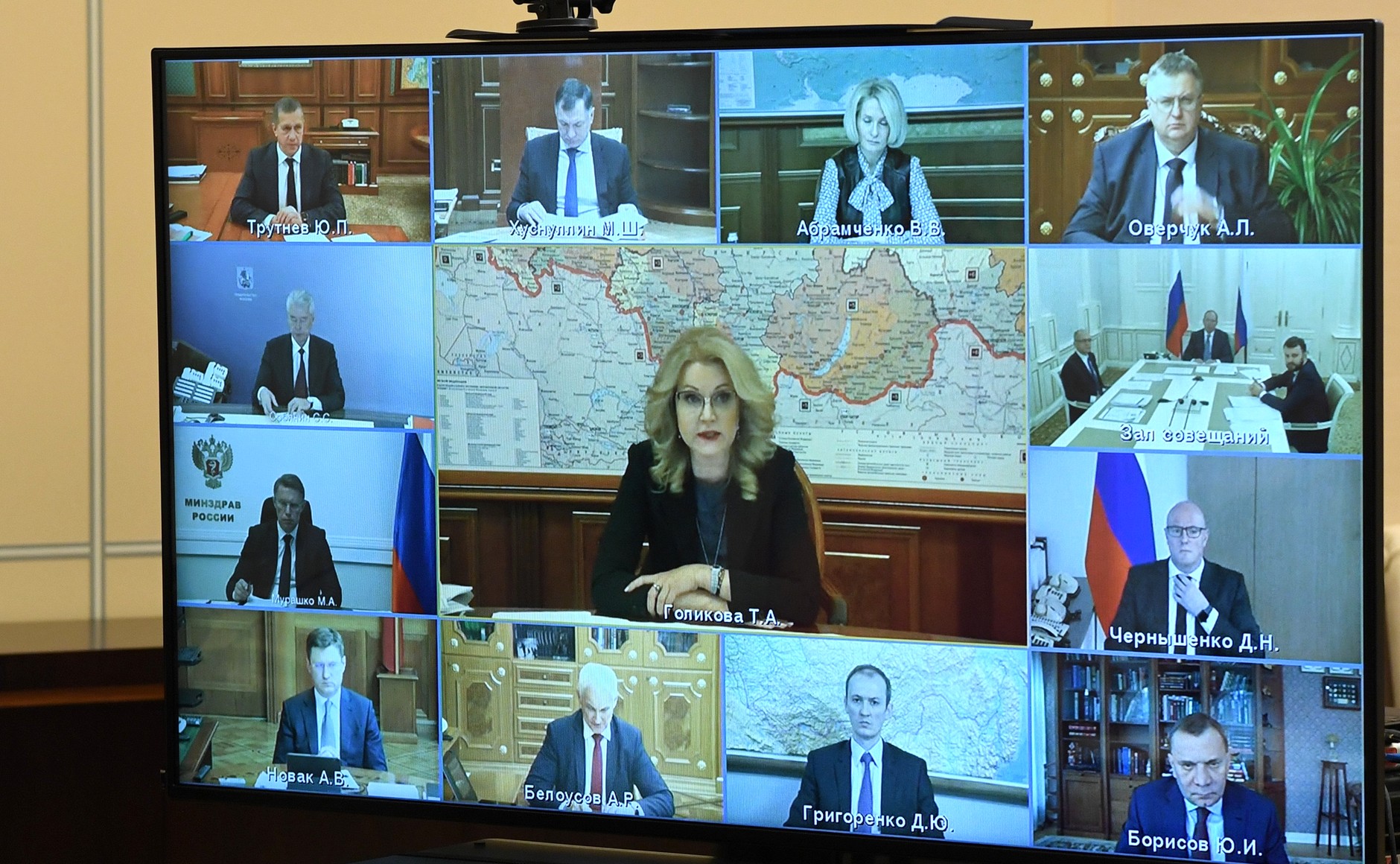 President of Russia Vladimir Putin: Good afternoon, colleagues, I have already talked to some of you today. I would like to greet those whom I have not seen today. Today, as agreed, we will have to discuss the coronavirus response once again. Regrettably, the situation is far from simple. Therefore, we will talk about it in detail today. Anyway, this issue has been a priority of late, never leaving our radar. But, as agreed, today we will discuss it in detail. I would like to ask Ms Golikova to be the first to speak. I would like to hear her views on the current situation with the coronavirus infection and her opinion and assessment of the latest developments. <…> 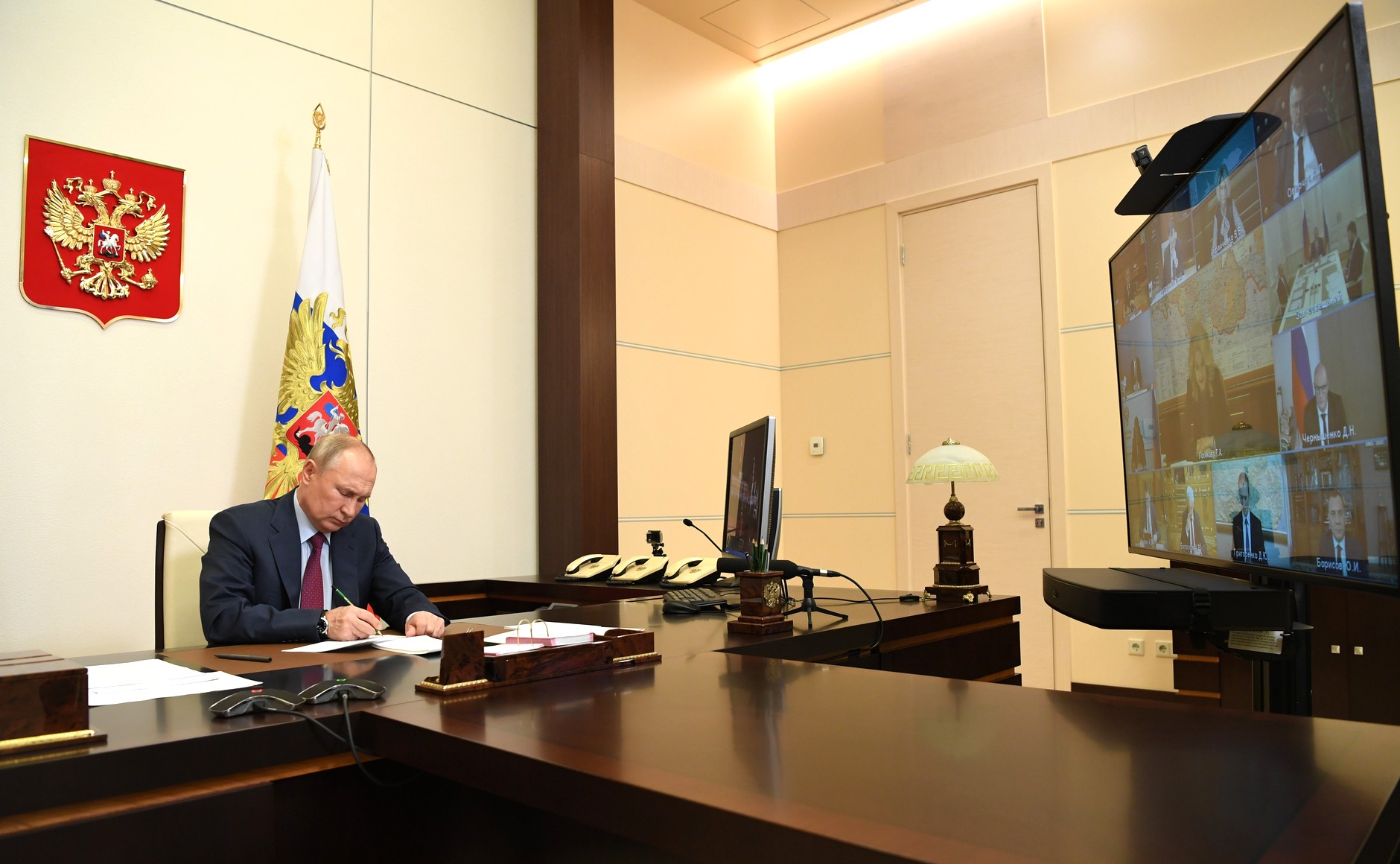 Vladimir Putin: I would just like to say a few words in conclusion of our meeting following the reports we’ve heard and our discussion. On the whole, the situation in the country is certainly not easy but it is under control. That said, in some of the regions of the Federation the situation is hard, let us be quite frank. The number of new cases of the disease is growing as we can gather from the figures. Unfortunately though, the number of serious complications is also on the rise. The most alarming factor is an increase in the death rate but we will talk about this separately. The relatively low disease rates in other regions should not calm us down. On the contrary, this may question the quality of diagnostics, timely detection of the disease, organisation of out-patient observation and the efficiency of home treatment. I would like to ask colleagues both in the Government and the regions to pay special attention to this. I would like to address the regional governors. We have repeatedly mentioned the regions of the Russian Federation during our meeting. Colleagues, you have received broad powers for implementing anti-pandemic measures. And nobody has relieved you of personal responsibility for the adopted measures– I really do hope that they were adopted on time – or, unfortunately, not adopted at all in some cases. Needless to say, nobody must try to embellish the situation in any case. Feigning the impression that everything is perfectly normal is absolutely unacceptable. Rosy reports or attempts to hush up the truth are totally useless both here, in the centre, and in the regions. Today, our colleagues from the Russian Popular Front (ONF), Mr Kuznetsov, said that in many regions people are experiencing a shortage or even absence of the required medicine at chemists (we have discussed this as well), and that people have to wait for a doctor’s appointment or the arrival of an ambulance for a long time. There are quite a few cases when people in a serious condition are left at home although they should have been taken to hospital in line with all indications. These facts are also mentioned in the ONF reports. The job of all regional governors, your teams, and colleagues is to promptly and consistently resolve the emerging problems on a daily basis, and I would say, even hourly basis, and to monitor all areas of countering the pandemic and key issues of the performance of medical facilities. Importantly, this applies both to the treatment of coronavirus patients and scheduled medical aid to chronic patients. Let me repeat: if there are setbacks, please respond immediately and remedy the situation without any further delay. An absolute majority of our doctors, paramedics, medical nurses and ambulance workers are most certainly carrying out their duties courageously – we have heard about this and seen such examples today. They are working professionally, doing everything possible and even impossible, in other words, all they can, and they are even risking their lives to help people. As Mr Kuznetsov so rightly pointed out just a moment ago, they continue doing their jobs even when they catch the disease themselves. It is inadmissible that their colossal efforts and all their hard work are debased by managerial confusion and the local officials’ inability to act coherently and in a coordinated manner so that they have everything they need. We must respond to the requirements of our medical professionals without further delay. Here is one important thing that I would like to emphasise separately. Back then we approved special payments for the medical workers who are directly providing medical assistance to coronavirus patients. Pressure on our medical workers has not eased off, as we are all aware, and on the contrary is even increasing. And so these payments must continue. At the same time, the doctors and medical nurses – I know that the Prime Minister has discussed this matter with the medical community, with its representatives – asked for the procedure for calculating these payments to be made more equitable and clear. In this connection, I would like to remind everyone that a new format of payments to doctors and other medical workers has now been approved as of November. These payments will be based on the number of shifts during which the recipients provided medical assistance, notably diagnosing and providing treatment, to coronavirus patients. This is what the Government has agreed upon with the medical community. Therefore, I would like to ask the Government and the regional authorities to take a serious a responsible attitude to the introduction of this mechanism. I would also like to ask the Government, based on the current situation and in connection with the approaching end of the fiscal year, to consider measures of additional assistance to the regions. We have discussed this more than once, and some decisions have already been made. We have agreed just now what else can be done, that is, transfer additional funds for payments to medical workers who are dealing with coronavirus patients. As we know, medical institutions are doing much work that is not directly related to treating patients, and medical students who are brought in by medical institutions are doing some of it. Among other things, this made it possible to free up experienced specialists to work in the red zones. The students who can work effectively should be incentivised. I propose – I know that the Government has worked on this – providing additional payments until the end of 2020 to medical school students who are not actually employed by clinics or hospitals, but, as part of their practical training, are helping patients. Medical college, residents and post-graduate students in medical specialties should receive payments in the amount of 10,000 rubles a month, and medical school students 7,000 rubles. Of course, volunteer support for medical workers is much needed now, which has already been mentioned today more than once. This work is already underway as part of the We Are Together campaign. It has been going on successfully for a long time now. I want regional and local authorities to provide necessary assistance to volunteer organisations, including the provision of communications equipment and premises. The initiative and sincere impulse must be heard and supported in every way. An open and candid dialogue with people without rumours or any sort of speculation is as important now as ever. The decisions must be explained clearly, professionally, competently and in detail not once or twice, but on a continuous basis with the use of all available information resources. It is important to let people know how to protect themselves and their loved ones, and what to do if a person falls ill, how and where to get timely help or professional advice, and where to go in case of a problem. This is especially important for the people who receive treatment at home. They should not be left alone with the illness. I would like to mention one more important issue in this context. I know the Government has already sent 5 billion rubles to the regions. As we have discussed, this money is designed to provide home patients with free – let me emphasise the word, “free” – medical services and free medications. I have to say that the regions are using the funds too slowly. This is absolutely inexcusable. This is inexcusable in any situation but all the more so now. Colleagues, I am primarily addressing the regional governors now, it is necessary to do everything you can to provide medications for the patients at home. I am instructing the Government to analyse the current state of affairs in each and every region and send additional funds to those places that are short of medications due to the increase in the number of home-treated patients. I would like to emphasise again: access to free medications must be funded in every region regardless of the number of patients. But money is not the only problem. In some cases the warehouses simply do not have the required medications. I heard what Mr Manturov said but it is still the task of the Government and the Ministry of Industry and Trade to take measures that will enable companies to promptly increase the production of problem medications. Again, I heard what the Minister said, but I hope all this will be carried out. And the main thing is not just to produce and purchase the necessary medications, it is important to make sure they reach those who need them, that all patients receive them as soon as possible and immediately after they are diagnosed. And, once again, these medications must certainly be free of charge. That said, I understand that many regions have budget difficulties at the end of the year. I would like to ask the Finance Minister (Mr Siluanov, I am talking to you) to monitor the budget performance in each region of the Federation for the next six weeks. I know the methods but we will not talk about them now. Let’s assume they are correct and fair, but you and we know that… All right, I will not go into details. I will simply draw the attention of the regions to the need to fully fund all social commitments and payments, as well as the expenses linked with the functioning of the healthcare system and other vital areas. Mr Siluanov, please review the situation in every region. I would really appreciate your work on this. I know there’s a lot of routine work at the Finance Ministry but this is especially critical now. And I ask the Government to render financial support to those regions that are really in need of this support regardless of formal circumstances, formal indicators, so that they are not faced with a dearth of funds. Already this week, the regions that are having revenue problems should receive the amount that we all know well – 80 billion rubles – intended to balance their budget. At the same time, the distribution methodology – we have talked about this – is based on a shortfall in revenue. Let us not go into the details now. I am just drawing your attention to it. Mr Siluanov, you know what I am talking about. We should not forget that there are regions that had a low, very modest level of revenue even before the epidemic. And please refrain from references to their formal shortfall in revenue. They did not have revenues, nor do they have them now. They lack oil and gas and are unaffected by the decline in oil prices. But the situation is as acute as it was previously. There are current pressing financial problems. Please take this aspect into account. Generally, let me draw your attention to this. Right now we should do all we can to rule out a situation where the regions, to cover the deficits, to repay the budget and commercial loans, will have to repeatedly seek the “high-cost” resources on the market, at commercial banks, and thereby divert funds from the social and economic development goals. In conclusion, I would like to reiterate this. The regions have been given the broadest possible powers to implement COVID-19 response measures. And they should and will be made to report. But no one has relieved the federal agencies, the Government, of their responsibility either. The Government’s Coordinating Council, the Emergency Response Centre, and the State Council Working Group – all of them should work, all agencies should keep the situation under their unfaltering watch. Their mission is not just to analyse the regions’ moves and take them into account, but to maintain, to pursue the general, clear-cut and effective policy of coordinated steps. To do so, it is important to see and understand the real picture. I hope this is so. This is what we did today. It is necessary to continue to study the situation thoroughly, to take timely and well-grounded actions in each region and to help our colleagues in the regions in terms of resources, finances and personnel and in general with organising this work, and to encourage best practices. Today, we talked about Kurgan, which receives medicines, as they say, on an as-needed basis. Why not extend this practice to other regions? It is important to consult our colleagues and come up with the best solutions for each problem. To improve the efficiency of fighting the coronavirus at all stages, it is imperative to take advantage of the experience of our leading companies, such as Rosatom and the Federal Centre for Lean Manufacturing Competences, as well as the potential of the country's leading research and medical institutions. This includes setting up call centres in the regions, which we just covered, let's not forget about this, logistics, ambulance and emergency services. It is necessary to rationally distribute the work between the laboratories, computed tomography units and so on, and to finally put in place a system of convenient and patient-friendly doctor appointments at medical institutions. Colleagues, please make supporting the regions in these matters a priority for the coming months. Let me stress again: inefficiency and sluggishness are unacceptable. Preciseness, efficiency and effectiveness in supporting and protecting people are the key criteria at all Government levels. Please keep this in mind and act accordingly. Colleagues, the situation really is under control. We went through this in the spring, and we now know what to do and how to do it. We have established work procedures, and vaccines will soon become available. There is enough information on what to do and how to do it when it comes to treating the coronavirus infection. We have a whole new toolbox and new possibilities now. There is no room for error. Many thanks to everyone. I look forward to this joint work with a good that the people are expecting from us. Thank you. The source of information - http://en.kremlin.ru/events/president/news/64436 Vyacheslav Gladkov appointed Acting Governor of Belgorod Region Vladimir Putin had a working meeting with Vyacheslav Gladkov, during which he announced his decision to appoint him Acting Governor of the Belgorod Region. November 18, 2020 - 18:35 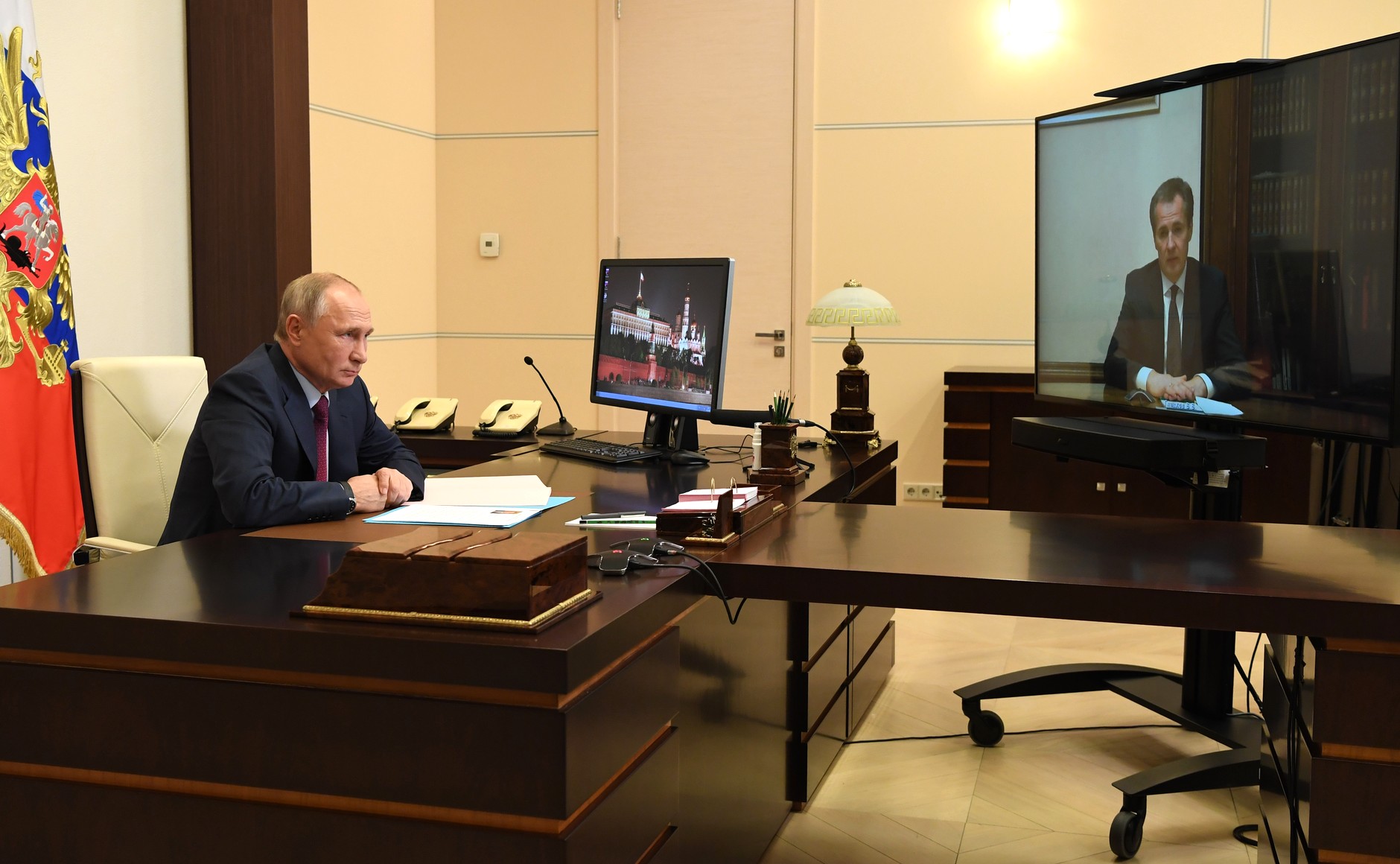 The President signed Executive Order On Appointing Acting Governor of the Belgorod Region. Due to the early termination of Belgorod Region Governor Yevgeny Savchenko’s mandate, the President has resolved to appoint Vyacheslav Gladkov Acting Governor of the Belgorod Region until an elected governor takes office. The source of information - http://en.kremlin.ru/events/president/news/64438 Artem Zdunov appointed Acting Head of Mordovia The President had a working meeting with Artem Zdunov, during which he announced his decision to appoint him Acting Head of the Republic of Mordovia. November 18, 2020 - 18:45 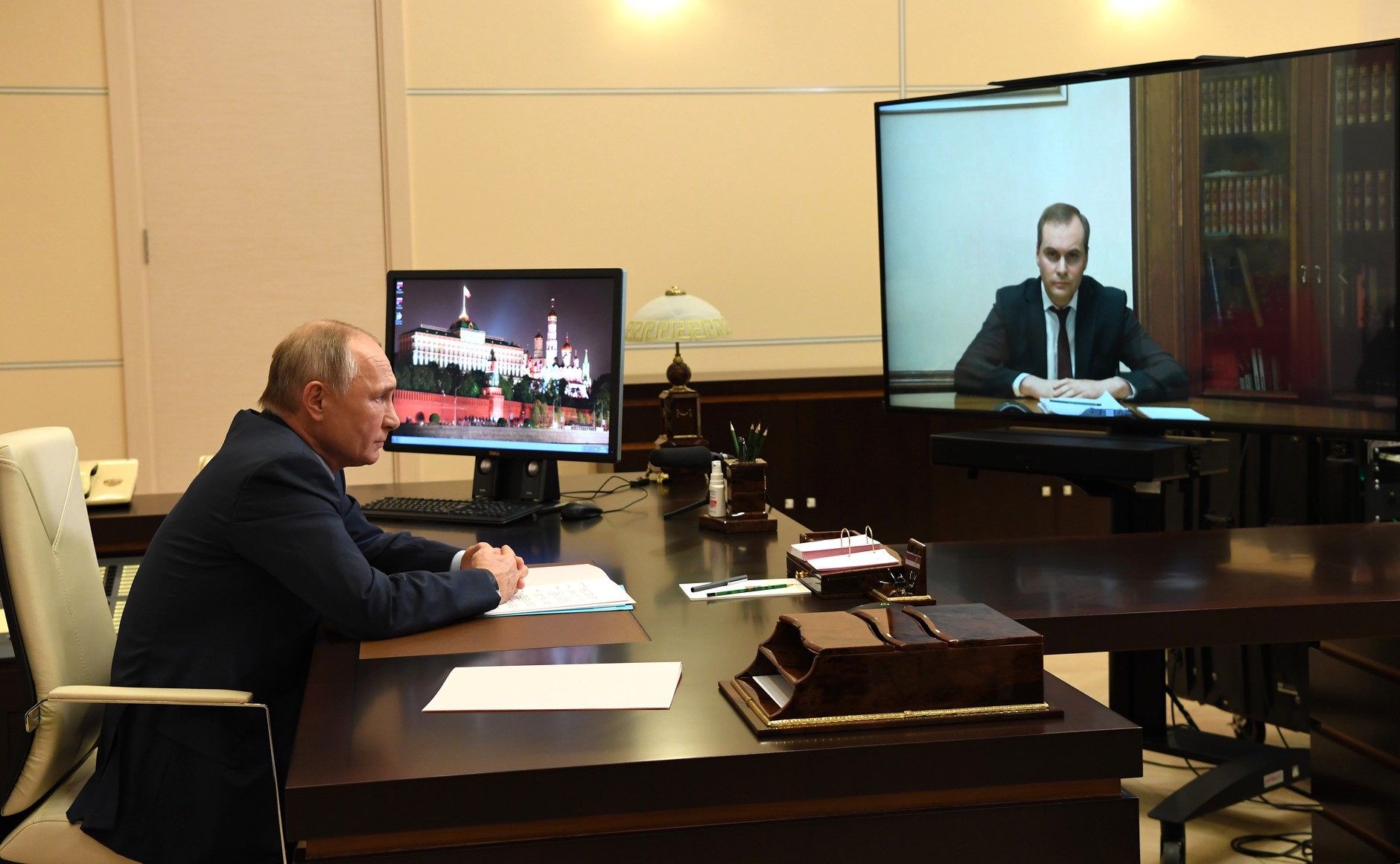 Vladimir Putin signed Executive Order On Early Termination of Mandate of the Head of the Republic of Mordovia. Following Head of the Republic of Mordovia Vladimir Volkov’s request to step down before term, the President resolved to accept Mr Volkov’s resignation and appoint Artem Zdunov Acting Head of Mordovia until an elected head takes office. The source of information - http://en.kremlin.ru/events/president/news/64439 Meeting with Head of the Federal Taxation Service Daniil Yegorov Vladimir Putin had a working meeting with Head of the Federal Taxation Service Daniil Yegorov, who updated the President on the agency’s current operations. November 19, 2020 - 13:05 - The Kremlin, Moscow 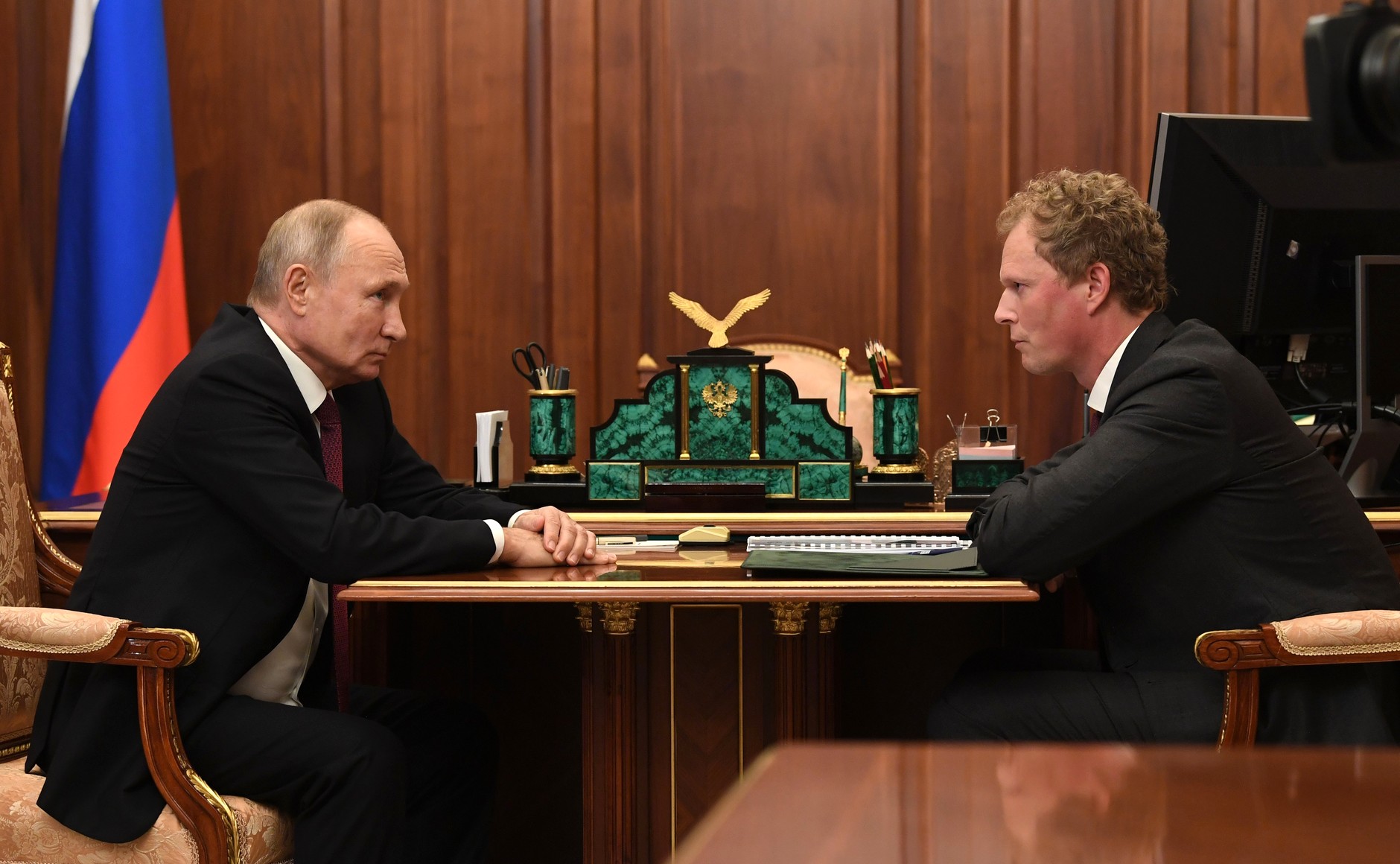 President of Russia Vladimir Putin: Mr Yegorov, good afternoon. In 1990, on November 21, the Main Tax Inspectorate was established as a unit of the Finance Ministry. It has been 30 years, an impressive period of time, and much has changed in the agency’s operation. It has become not just independent, but also one of the key fiscal agencies in Russia, and, thanks to the efforts of the current Prime Minister, it has turned into a very high-tech department, using a lot of modern tools and services. How would you assess your work today? And of course, what are the results? Head of the Federal Taxation Service Daniil Yegorov: Thank you very much for your kind words. It is an honour for our entire team. Speaking of the Taxation Service today, I would say our digitalisation strategy has proved very effective and the right thing to do. The adaptations we have made during the COVID-19 restrictions period have enabled us to work on three tracks. The first is, of course, tax collection. Here, we certainly need to bear in mind the following three factors. One is limitations on the oil price and oil production; then, there was a contraction in both supply and demand due to the restrictions not only in Russia, but also around the world; and third, there are the Government support measures based on your decisions to help businesses, because those involved tax breaks, among other things. As a result, while in the second quarter our revenues decreased by 26 percent, by the end of 10 months of 2020 they stood at 16.9 trillion rubles – I am talking about the consolidated budget, and this is minus 11 percent. It should be said that the areas where maximum efforts were taken – assistance to businesses designed to keep employees – showed maximum returns from the so-called salary taxes, that is, the income tax and insurance contributions. The collection of the income tax has increased by 4 percent. As we see it, this pace will continue until the end of the year, compared to last year. At the same time, we also stayed in the black, that is, profitable, in terms of insurance contributions in the areas where the tariffs were halved, by your decision, from 30 to 15 percent for small businesses, which constitute 74 percent of national companies. Speaking about the second aspect, our digital technologies and competencies were used to implement support measures for businesses, including wage subsidies (over 91 billion rubles) and the blockchain platform, which we launched to facilitate the allocation of easy-term loans: over 500 billion rubles have been allocated under the first and second programmes. Moreover, together with our colleagues in the banking community, we are analysing the possible use of this platform for complementing the banking system’s data with our own information, which would reduce uncertainty and risks and hence can lower interest rates. Therefore, we are working on this side of the matter as well. I believe it important that we have implemented, upon your instructions, a tax rebate programme for self-employed people. We have refunded the taxes they paid for 2019 back to them and have imputed 15 billion rubles… 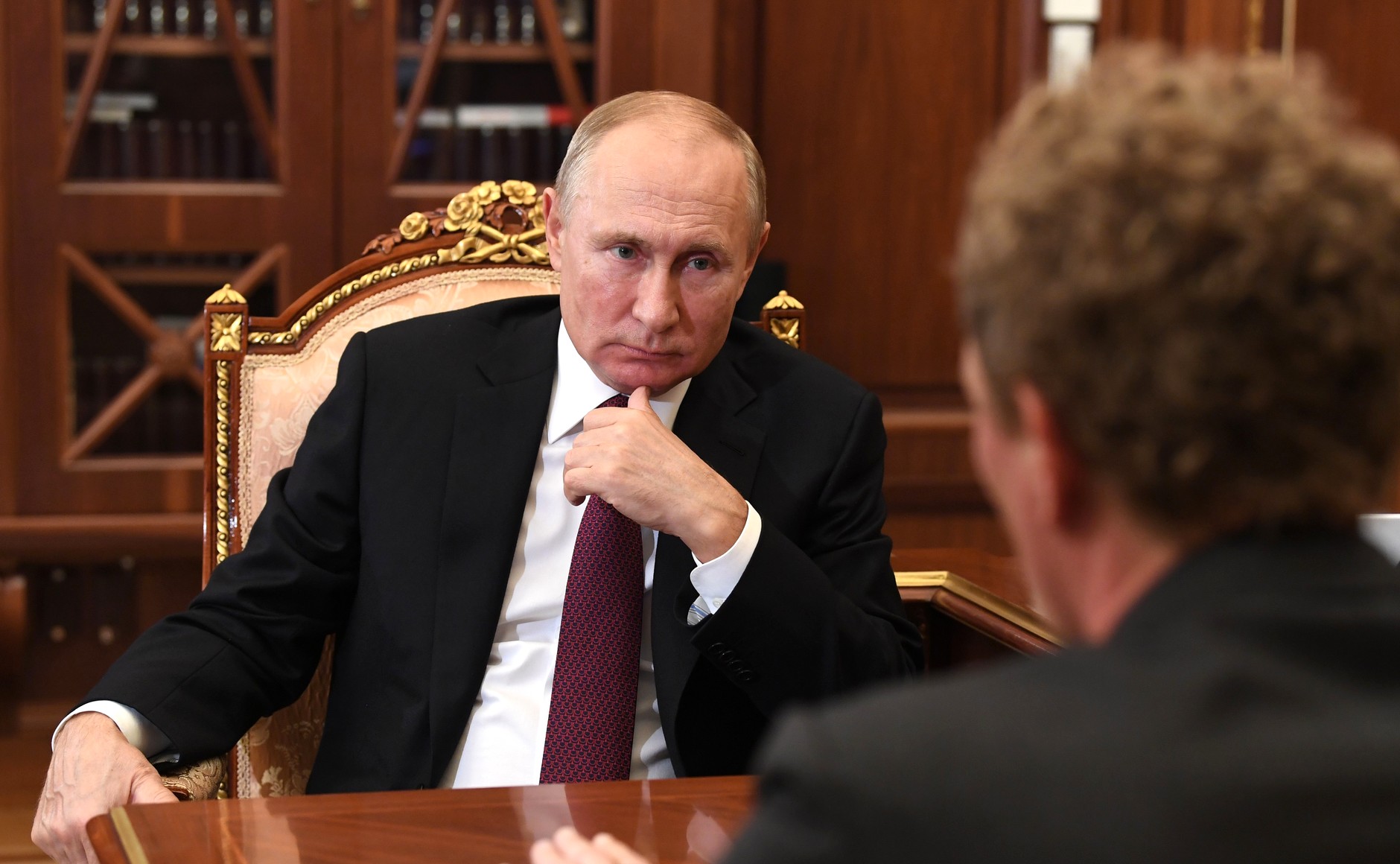 Vladimir Putin: Have you done this? Daniil Yegorov: Yes we have, their self-employment tax has been refunded. Second, we have imputed the so-called bonuses, as they are commonly referred to, while in fact this is tax support allocations: over 15 billion rubles for the self-employed who already number more than 1.3 million. Therefore, those who trusted us and were officially registered or registered themselves as self-employed have received maximum support from the state. Vladimir Putin: Has the number of self-employed people increase after that? Daniil Yegorov: Yes, it has. We register up to 5,000 self-employed people every day. Hence, on the one hand, we should tread carefully so as to prevent the re-registration of otherwise employed people as the self-employed. On the other hand, this is proof of the benefits of going legal – simple, convenient and without an excessive administrative workload. Vladimir Putin: This is also very good because it means the government announces certain goals and targets and implements them. True, citizens always have a lot of complaints about the government, and they are mostly justified, but if the government actually achieves its stated goals and fulfils its promises, this gives a very positive development dynamics in this sector of the economy. Dmitry Yegorov: That is why we are investing a lot of effort in communication and reducing conflicts in the tax sphere. We believe, this way we will be able to provide the level of services that would actually enable people to pay taxes themselves, not through some kind of control tools. This is the highest value for us. 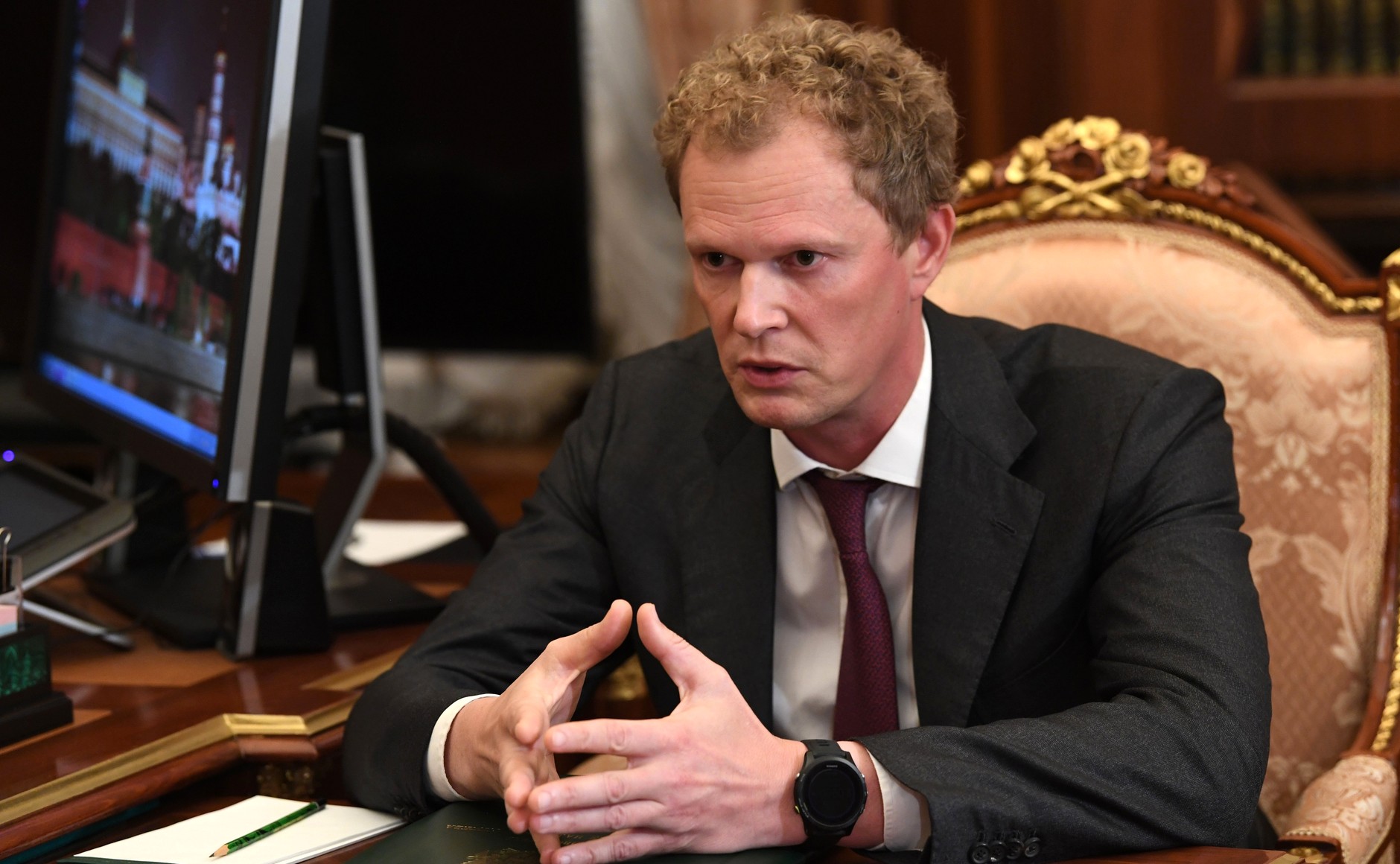 Vladimir Putin: What about the number of on-site inspections? I hope, it is decreasing. Dmitry Yegorov: In 2010, we performed 70,000 checks, whereas last year, we only did 9,000. Let me explain. This does not mean we are simply cutting back on checks. The point is that we are introducing analytical tools, and companies can see that their transactions are being tracked, and there is simply no point in tax evasion. Overall, we believe, how the numbers have changed is not even the most important indicator; it is important that today, we have the smallest tax gap, for example, in the VAT, it is 0.43 percent around the country. We have never had it so small before, and it looks like taxpayers are growing out of their evasion habit. Even despite the current crisis, we still observe very low tax gap figures – this, I think, is of particular value. Vladimir Putin: What are this year’s results? Dmitry Yegorov: Concerning this year’s results, we plan to bring 20.5 trillion rubles into the consolidated budget (down 10 percent compared to last year). But if you would like to know how the tax inflow is faring without the hydrocarbon factor, it is totally flat, that is, exactly the same as last year. Vladimir Putin: This is good; it means that our non-oil and gas income is stable. Dmitry Yegorov: Yes, that is absolutely right, we have been resilient. Vladimir Putin: It is probably even growing. I think, maybe, it will even become higher. Dmitry Yegorov: We are making conservative projections as always, so we'll see the end of the year. I hope that maybe we will see an increase. It is important not to overdo it. Our main task now is to have people work calmly and comfortably. That is why we made restrictions on tax collection, and we approach it very carefully, easing up on control measures, and bankruptcies were postponed by your decision. In fact, we have introduced a moratorium on bankruptcy until next year. Vladimir Putin: I know. Good, thank you. The source of information - http://en.kremlin.ru/events/president/news/64441
__________________
Where should they dig the Very Deep Pit? Piglet said that the best place would be somewhere where a Heffalump was, just before he fell into it, only about a foot farther on. (c) Alan Alexander Miln |
|
|
#152 |
|
Senior Member
|
Executive order on improving state administration in digital development, communications and media
Vladimir Putin signed the Executive Order On Improving State Administration in Digital Development, Communications and the Media. November 20, 2020 - 10:00 In order to improve state administration in digital development, communications and the media, as well as to solve priority tasks in the digital economy, reduce administrative barriers, streamline the powers of federal bodies of executive authority and the number of federal public sector workers, the President resolved to dissolve the Federal Agency for Press and Mass Media and the Federal Communications Agency and give their functions to the Ministry of Digital Development, Communications and Mass Media of the Russian Federation. Relevant changes are being introduced to the structure of the federal bodies of executive authority set by Presidential Executive Order No. 21 of January 21, 2020, On the Structure of Federal Bodies of Executive Authority. The Russian Government has been given instructions related to the implementation of the Executive Order. The Executive Order also stipulates that the Ministry of Digital Development, Communications and Mass Media supervises the Federal Service for Supervision of Communications, Information Technology and Mass Media. The source of information - http://en.kremlin.ru/events/president/news/64445 Address to participants in Nuremberg Lessons forum Vladimir Putin addressed the participants in Nuremberg Lessons international conference and workshop. November 20, 2020 - 11:00 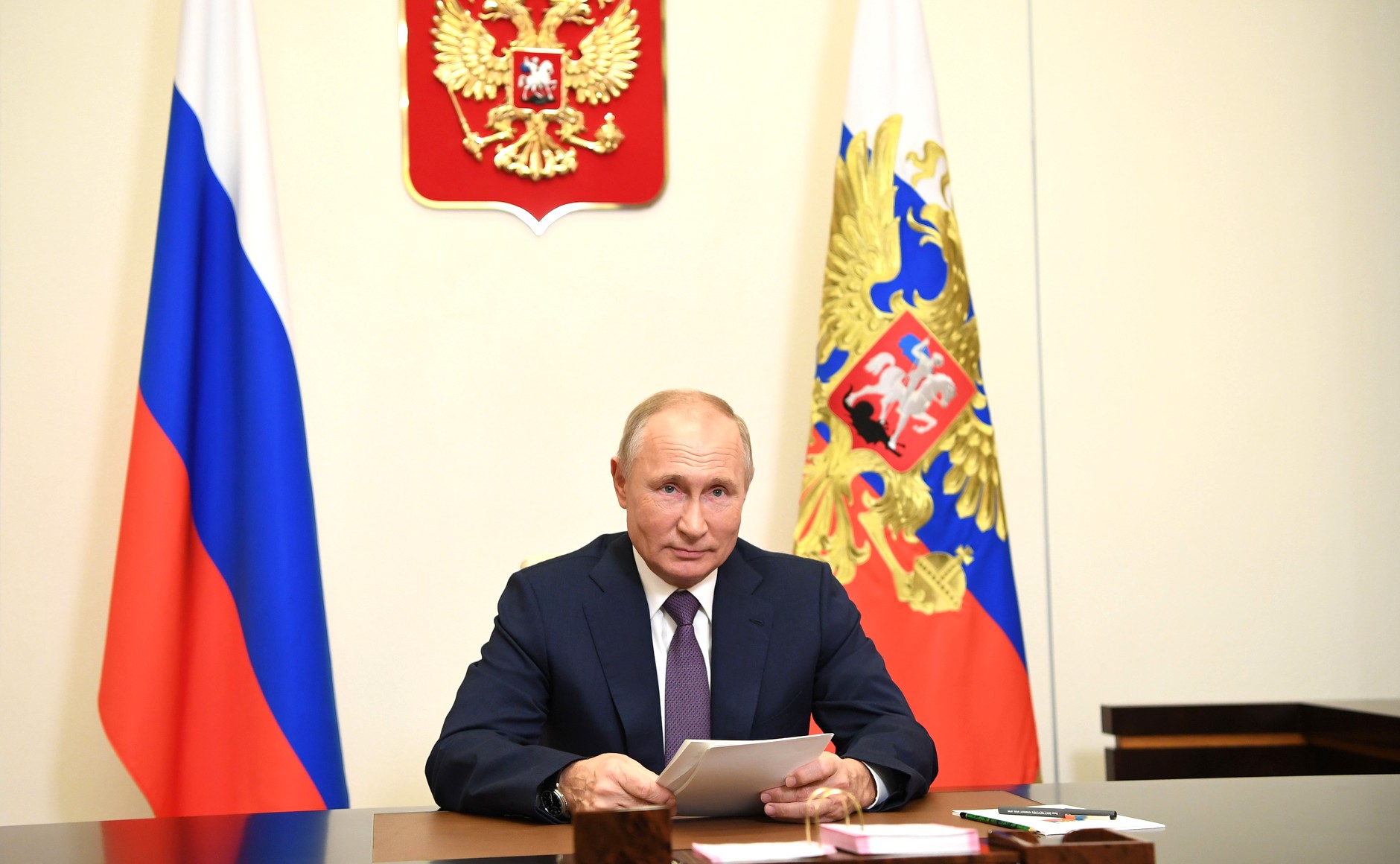 President of Russia Vladimir Putin: Colleagues, friends, First of all, I would like to sincerely thank all the participants in the Nuremberg Lessons international forum: politicians and government officials, researchers and experts, legal experts, representatives of the museum community and NGOs. I know that you have come from across Russia, as well as from many other countries. I am certain that the forum’s theme matters to you not only from a professional standpoint, but also in terms of the sense of personal responsibility for preserving the historical truth about World War II. You understand the significance of the Nuremberg verdicts, and the norms and principles these trials helped devise for responding to today’s challenges and threats. The trials opened 75 years ago, six months after the crushing defeat of the Nazis, and the whole world was watching. The merciless Nazi regime that unleashed the criminal war and committed atrocities of an unprecedented scale may have been defeated, but it was too early to put this matter to rest. The military triumph had to be complemented by a political, legal and moral condemnation of Nazism and its deadly ideology. Specific people, high-ranking Nazi officials, stood behind the mass terror, bloody killings, enslavement and purposeful extermination of entire peoples. The states that suffered the aggression and the millions of people who had to endure inhuman challenges, pain and suffering, had every right to retribution and the inevitable public punishment of the criminals. Since 1942, the Soviet Union has been consistently promoting its principled position regarding the establishment of an open International Military tribunal during all the talks it had with the Allies, who, as we know, originally favoured an extrajudicial collective political decision to execute Nazi leaders. By the end of the war, many leading politicians recognised the need to hold a trial, and in August 1945 the Soviet Union, the United States, Great Britain and France signed an agreement to establish the tribunal. Another 19 countries supported this initiative, giving the tribunal the status of a Peoples’ Court. Having endured the harshest and most atrocious blows by the aggressor, and having sacrificed so much on the path to Victory, the Soviet people had their own scores to settle with the Nazis, for those who fell on the battlefield, for those who were wounded and mutilated, for the cities that lay in ruins and villages burnt to the ground, and for the mass killings on occupied territory. These atrocities against Soviet civilians were dictated by special Nazi directives, and were elevated to the rank of state policy by the Nazis. During World War II, the Soviet Union suffered immense, irreparable losses, and among the millions of casualties, the majority were either servicemen who died as prisoners of war or civilians who were fiercely, mercilessly exterminated. Russia is now proactive in opening up its archives. Alongside search expeditions, this helps uncover and conceptualise the terrible events that took place during this war that remained unknown to this day, as well as uncover facts about mass killings by the Nazis and their henchmen of Soviet civilians, including the elderly, women and children. Such crimes have no statute of limitations. The Nuremberg Tribunal pronounced its assessment of those acts, and developed the criteria of a crime against humanity, which defined the very concept of genocide and laid the foundation for the 1948 UN Genocide Convention. The Nuremberg decisions are still relevant today. A month ago, based on those decisions, the Soletsk [district] court in Russia recognised the brutal execution of thousands of peaceful, innocent people near the village of Zhestyanaya Gorka in Novgorod Region as genocide. That was the first such precedent in Russian legal practice. We constantly refer to the lessons of the Nuremberg Trials; we understand their importance for defending the truths of historical memory, for making a well-founded and solid case against deliberate distortions and falsifications of World War II events, especially the shameless and deceitful attempts to rehabilitate and even glorify Nazi criminals and their accessories. I will say even more. It is the duty of the entire international community to safeguard the Nuremberg Trials’ decisions, because they concern the principles that underlie the values of the post-war world order and the norms of international law. Even today, they remain a solid and reliable basis for constructive dialogue and cooperation, while forgetting them, or trying to undermine them is a blow to global security. That is why Russia is persistently raising these questions at all negotiating platforms. I hope that this forum will contribute to a substantive and insightful modern interpretation of the historical legacy of the Nuremberg Trials and that your conclusions and recommendations will be valuable and enjoy interest from the world community. I wish you fruitful work and all the best. Thank you. The source of information - http://en.kremlin.ru/events/president/news/64447 Meeting with Patriarch Kirill of Moscow and All Russia The discussion focused, in part, on activities of the Russian Orthodox Church during the pandemic. November 20, 2020 - 13:05 - Novo-Ogaryovo, Moscow Region During the meeting, the President congratulated Patriarch Kirill on his birthday.  President of Russia Vladimir Putin: Your Holiness, we agreed long ago to meet to discuss current matters. We should probably begin with the situation in which all of us, including religious organisations, the Russian Orthodox Church, have been working. How would you assess the situation? Patriarch Kirill: The Church has joined in the general efforts very actively. We have a group of clerics who are working in clinics. They have the necessary training. I would like to say that they have been doing their duty selflessly. Those who have been placed in isolation because of the disease have an enormous desire for communication. But believers also want to confess or to pray together with a priest. Initially, of course, some of our medical colleagues had misgivings about our devotion. But now we have developed an algorithm according to which our priests can provide pastoral support at the request of believers directly in the places where the coronavirus patients are staying. I would like to say that this is having a very positive effect on people’s hearts. When people lie in isolation wards and even their families cannot visit them, a priest can find the right words to help them. In addition, I would like to say a few words about our work in hospitals and, in general, about our social work with the parishes. In the past, our work was limited to worship, as the law prohibited the church from doing anything else. But we have very many opportunities in new Russia, so we implement important social programmes in the parishes. We now have a corps of volunteers, young people who give their time and effort to participation in the socially important programmes that are being implemented by the church. Speaking of this pandemic, it has not spared our clergy. There are victims, unfortunately. But that mostly happened because they were doing their duty. A priest cannot avoid doing his duty, even if he has to risk his life. This is what their ministry is about. I cannot cite the exact numbers now, but indeed, some people have left us because this virus has affected their bodies in ways incompatible with life. On the other hand, we have also gained new experience. Unlike the usual visits to a hospital, we now had to wear those “spacesuits” and comply with all the medical requirements and continue to carry out our ministry in these conditions. The priests hear confessions, give communion, talk to people, and we encourage this in every possible way, because indeed, being in isolation with a drastic diagnosis without a chance to meet with their family, talking to a priest is sometimes the only opportunity they have. Therefore, by the grace of God, we do what we are obliged to do. This is in fact something church should have always been doing. Yet, for many years, we lived in a situation where we could not even think about carrying out any kind of social work; it was prohibited, just like working with young people. Therefore, of course, the new position of the Russian Orthodox Church in modern Russia provides this opportunity – to reveal the spiritual potential of those who, through participation in church activities, aspire to make the world better. As a Patriarch, I am grateful to you, personally, and to the government of Russia, and simply to modern Russia for this change. Things have really become quite different now, and the church can now vigorously perform its calling, called by the Lord himself. 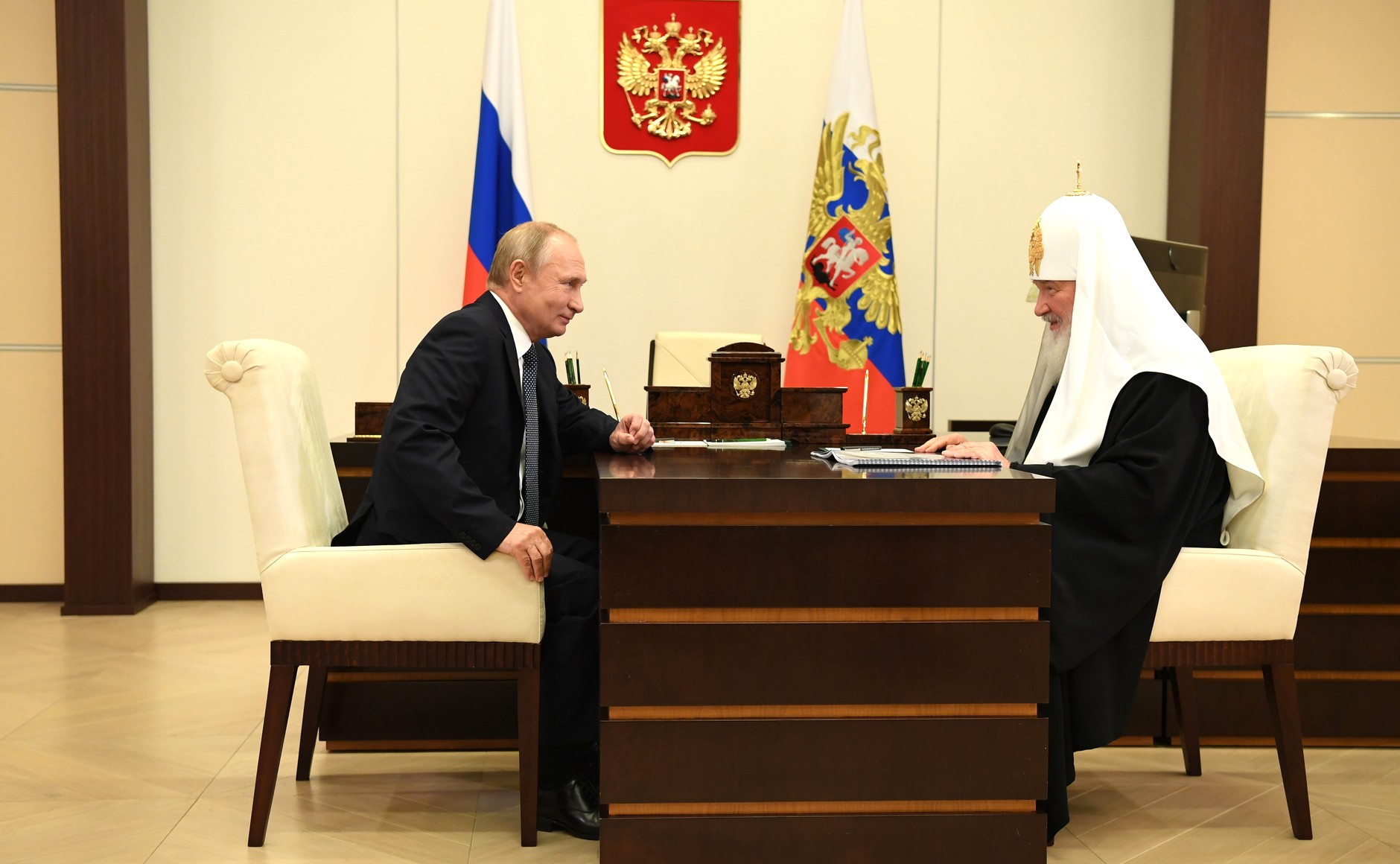 Vladimir Putin: Very good. For my part, I would like to thank you, and all the clergymen of the Russian Orthodox Church and other traditional religions present in Russia for the ministry that you perform in these very difficult conditions. Indeed, we talk a lot about doctors, about their heroism, and that is fully justified, but in this sense, all those who do something to help people, they certainly deserve special words of gratitude for the work that they do. So thank you very much. Patriarch Kirill: Thank you. Vladimir Putin: I see that you have a question. Patriarch Kirill: Yes, I have a practical question I would like to discuss with you. Vladimir Putin: Go on, please.  Patriarch Kirill: Next year, in 2021, we will celebrate the 800th birth anniversary of Alexander Nevsky. It is a special date in the history of our nation because Alexander Nevsky played a special role in saving Russia in a period when its future was decided. Russia was attacked both from the East and from the West. Alexander Nevsky wisely saw through the motives of those who invaded Russia. Those who came from the East were after our stomach and purse, whereas those who came from the West were interested in our minds and hearts. While fighting the Western invasion of the Teutonic Knights, Alexander Nevsky demonstrated great diplomatic resourcefulness in developing ties with the Eastern conquerors and in fact defended Russia from dangerous Eastern invasions. The St Alexander Nevsky Monastery was built in St Petersburg in his honour. It is logical that the celebration of his anniversary will also take place there. In this connection, I have several requests. I would like to ask you to look at the state of the monastery, which has not been repaired for a long time. And the situation is also difficult at the St Petersburg Theological Academy, which is a special place for me because I was its rector for 10 years. I would like to share a few ideas with you, primarily when it comes to the development of the St Petersburg Theological Academy as a major intellectual centre of the Russian Orthodox Church. I hope to receive your support for the further development of this educational and spiritual centre of the church. 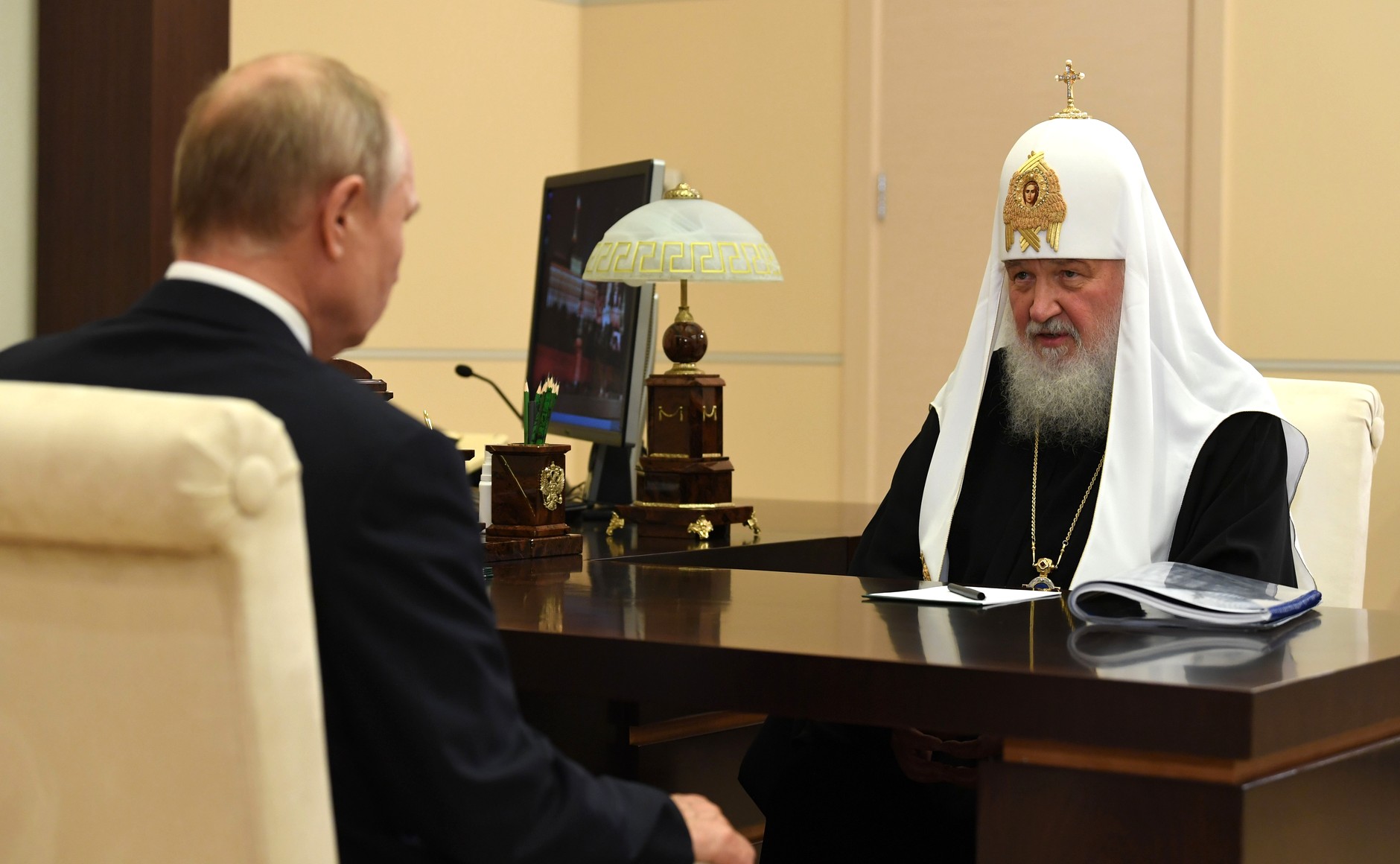 Vladimir Putin: Thank you very much. Your Holiness, we will now look at the matter carefully and discuss all the details. But before we start working, I would like to say that we are meeting on your birthday. I would like to wholeheartedly congratulate you on your birthday, wish you health and success in your service to the benefit of Russia, as well as to thank you for what you are doing for the country. Patriarch Kirill: Thank you. The source of information - http://en.kremlin.ru/events/president/news/64451 Condolences to President of Serbia Aleksandar Vucic Vladimir Putin sent his condolences to President of the Republic of Serbia Aleksandar Vucic on the death of Patriarch Irinej of Serbia. November 20, 2020 - 13:30 The message reads, in part: “The patriarch’s many years of pastoral activity brought him well-deserved respect in his country and abroad. His efforts aimed at promoting high spiritual values and strengthening the unity of the Orthodox world can hardly be overestimated. Please confer words of sincere sympathy and support to the clerics of the Serbian Orthodox Church and the friendly people of Serbia.” The source of information - http://en.kremlin.ru/events/president/news/64453 APEC Summit Vladimir Putin took part in the Asia-Pacific Economic Cooperation (APEC) Economic Leaders’ Meeting. November 20, 2020 - 17:50 - Novo-Ogaryovo, Moscow Region 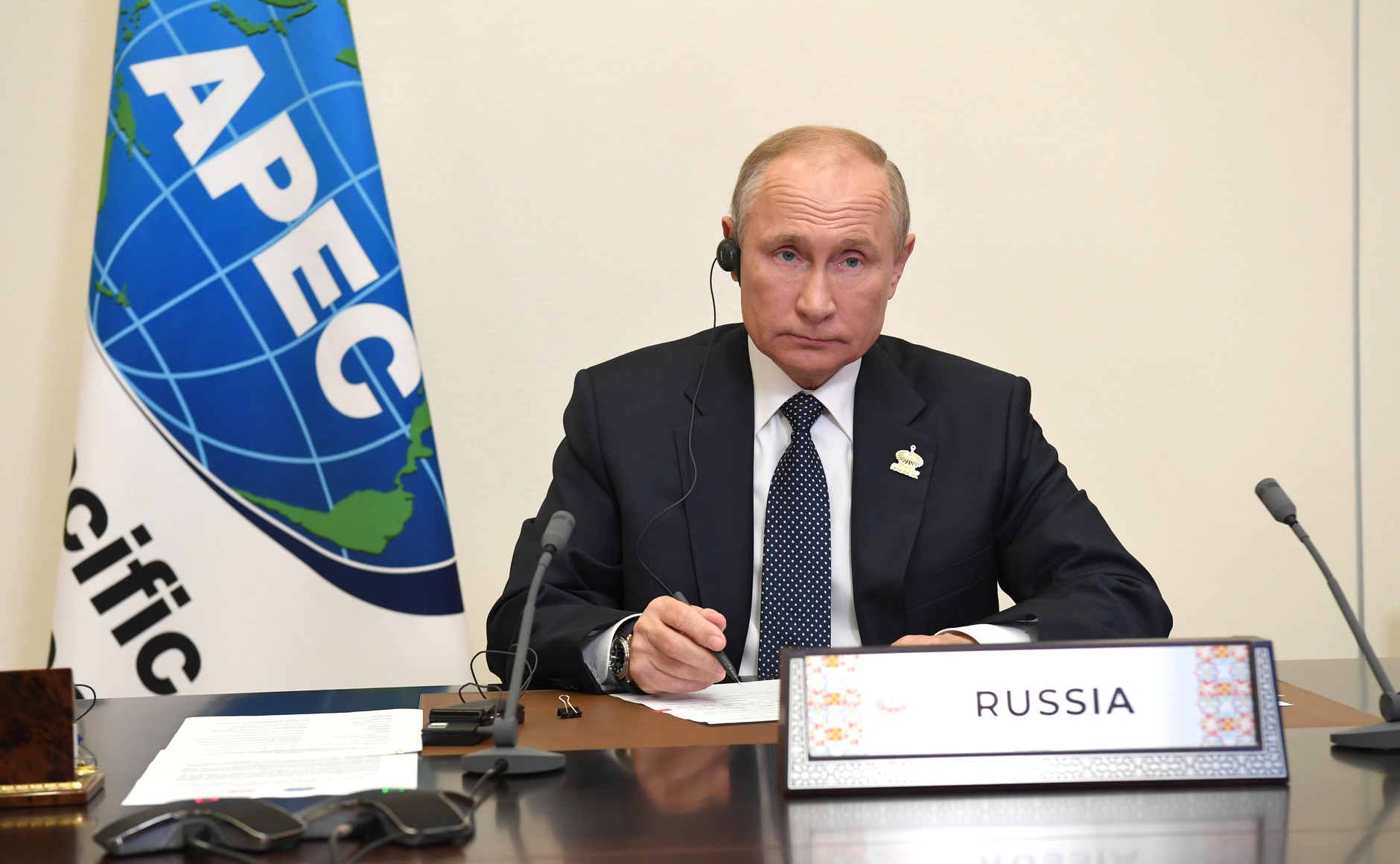 The meeting, held via videoconference under the chairmanship of Prime Minister of Malaysia Muhyiddin Yassin, focused on ways of overcoming the social and economic aftermath of the novel coronavirus pandemic. The leaders also discussed prospects for cooperation within APEC, including free trade and greater investment. Following the meeting, 2020 Kuala Lumpur Declaration and APEC Putrajaya Vision 2040 were adopted.  President of Russia Vladimir Putin: Mr Chairman, colleagues, First of all, I would like to join the positive assessments of the work done by Malaysia this year as the APEC chairman. Thank you, Mr Chairman. Importantly, despite the obvious difficulties caused by the spread of the coronavirus, APEC cooperation has been making steady headway. The intensive and substantive agenda that we are discussing at today’s summit attests to that. It goes without saying that our priority is to pool efforts in countering the coronavirus, as the Chairman has just said. Russia has much to offer our partners and friends. We have amassed solid scientific and, already, clinical experience in this area. I would like to recall that Russia has developed and registered two vaccines: Sputnik V andEpiVacCorona. One more vaccine, a third one, is undergoing final tests now. Together with our foreign partners, we are actively studying opportunities for their supply and production localisation. I would like to emphasise that both vaccines meet the two most important criteria: they are absolutely safe and effective. All that is left is to develop their full-scale production. We are launching it in Russia. We can see that the pandemic has resulted in serious problems in most Asian-Pacific countries. The number of those infected in the region exceeds 26 million, while according to the WHO, the total worldwide is 56 million. The coronavirus and its complications have been taking even more lives. Alarming trends can be seen in the economy and the social sphere. As the IMF head has already said, due to the industrial production decline and financial difficulties, tens of millions are at risk of falling below the poverty line. According to forecasts, the global GDP will drop by 4.4 percent in 2020, and the total APEC GDP will decrease by about 2.5 percent. Russia will also see a downturn of 3.9 percent according to our estimations. During the last six months, the international trade figures fell by over 15 percent. Economic disputes between leading players in the market are escalating. The abovementioned negative trends make it possible to objectively assess the real situation and, of course, compel the international community join ranks and take steps together in order to set the situation right. Russia is ready to cooperate with all the interested countries, including, of course, its APEC partners, as closely as possible. In particular, back in spring we suggested creating “green corridors” free from sanctions and restrictions, above all concerning foodstuffs and medicines. And, of course, first of all with the countries that need them most. We believe the implementation of this initiative would help to ease the humanitarian tensions in the world and develop global trade, which almost all the speakers here addressed. We think cooperation between Asian-Pacific countries in the digital sphere is becoming more important, as has already been mentioned today. I mean broad ICT introduction for the continuous operation of state governance and city economic systems, for providing remote medical educational and social services and for ensuring small and medium-sized businesses have access to these services, markets and capital. We believe it is worth thinking about coordinating APEC efforts on protecting personal information and preventing IT offences. This is extremely important because of the growth of the digital economy. In expert estimates, by 2021 the world may lose about six trillion dollars due to cybercrime. I agree with what many leaders said in their speeches, notably, that one of the main tasks of APEC activities is to create in the Asia-Pacific Region an open and sustainable community for ensuring the welfare of people in all of our countries. Therefore, we certainly support the coordinated draft declaration of our summit on long-term APEC development goals until 2040. That said, we believe that to reach the ambitious future goals it is important to continue cooperating on the basis of the fundamental principles of the UN Charter, which are sovereign equality of states, non-interference in internal affairs, and respect for the right of nations to their own development model. It is necessary to involve in cooperation not only the economies of the region but also its integration associations. Today life itself is prompting the need to unite their potentials for overcoming a broad range of challenges and implementing large-scale cross-border projects. This is exactly the goal of the Russian initiative on creating a Greater Eurasian Partnership in security and economic and humanitarian cooperation. Let me emphasise that Russia is willing to work jointly with all APEC countries. We will actively assist New Zealand, which assumes the APEC chairmanship next year. We wish success to our partners in New Zealand. Thank you for your attention. The source of information - http://en.kremlin.ru/events/president/news/64454 Meeting on Russian peacekeeping mission in Nagorno-Karabakh The President held a meeting on the Russian peacekeeping mission in Nagorno-Karabakh, via videoconference. November 20, 2020 - 19:00 - Novo-Ogaryovo, Moscow Region The meeting was attended by Deputy Prime Minister Alexander Novak, Emergencies Minister Yevgeny Zinichev, Foreign Minister Sergei Lavrov, Finance Minister Anton Siluanov, Defence Minister Sergei Shoigu, Director of the Federal Security Service Alexander Bortnikov and Commander of the Russian Peacekeeping Contingent in the Nagorno-Karabakh conflict zone and Deputy Commander of the troops in the Southern Military District Lt-Gen Rustam Muradov. 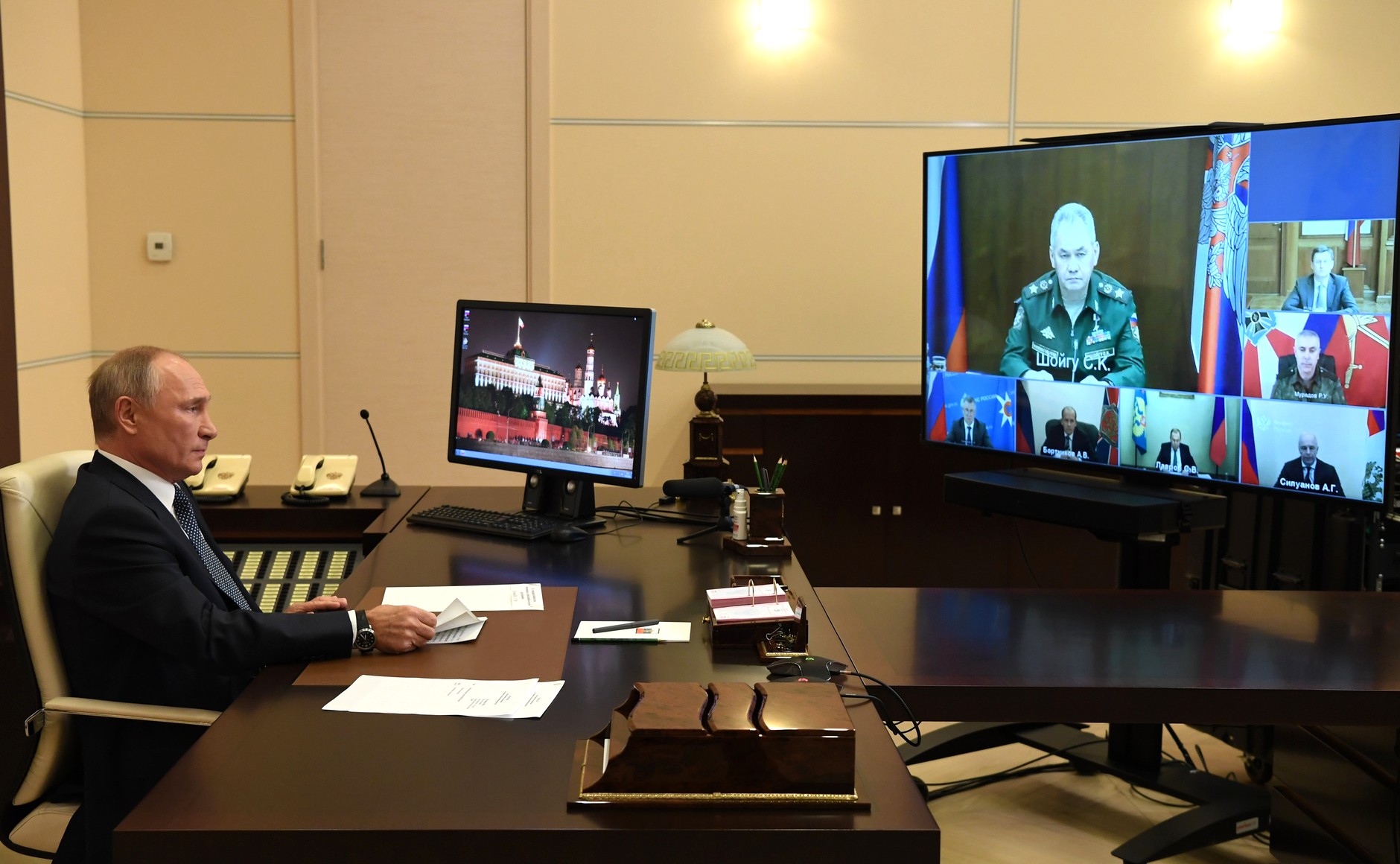 President of Russia Vladimir Putin: Good afternoon, colleagues. I have called this meeting today to return once again to the situation in Nagorno-Karabakh. Conflicts like this, their settlement is particularly important to us. It has special significance for us and plays a special role. These are not empty words for us. I am referring to the fact that millions of Armenians and Azerbaijanis live in Russia. We are linked with their republics by centuries-long ties, without exaggeration. This also has a domestic political dimension for us and is very important for our domestic security and politics. The CIS is our foreign policy priority, an obvious fact for everyone. This matters a lot for the economy as well. We all know well that we have special relations with these republics: deep cooperation and interchangeability. I will not list all the components of this extremely important direction on the CIS track. As I said at the November 13 meeting, now the priority task is to support and help the residents of this region who sustained heavy damage from the hostilities. An Interdepartmental Centre for Humanitarian Response is being created to resolve the problems at hand. I am aware that, given the tasks facing the centre, specialised divisions are now being formed. I would like to take this opportunity to point out the precise and well-coordinated work of the Russian peacekeepers. Prompt demining has made it possible to establish reliable communications in the region, and deploying our peacekeeping forces made it possible to stop the bloodshed and avoid more casualties. Our military is maintaining effective control over the ceasefire, which is being observed by both sides. Overall, the situation has stabilised. In addition, the Russian service personnel is escorting refugees and bringing residential buildings, roads, and social facilities up to code. They are ensuring security for convoys with humanitarian supplies as well. Let me emphasise that our humanitarian efforts and aid should benefit both the Armenian and Azerbaijani peoples. We empathise with everyone who is in trouble. You may be aware that I am in constant touch with my colleagues in Armenia and Azerbaijan. I agreed with both leaders that a Russian interdepartmental delegation consisting of the heads of a number of ministries and departments would be sent to Armenia and Azerbaijan soon. Its goal is to review the most pressing issues of implementing the trilateral statement of November 9, including, of course, humanitarian issues. I hope that the upcoming consultations will help us make significant progress in these areas. Mobilisation and international assistance are of particular importance. Our peacekeepers have created the basis for this. I am aware that people in many countries are concerned about the situation in Nagorno-Karabakh and empathise with the people in this plight. However, safe conditions for humanitarian organisations have been created, and there remains much to accomplish. The International Committee of the Red Cross has the leading role here. Red Cross President Peter Maurer visited Moscow two days ago and confirmed the organisation's readiness to step up its activities in Yerevan, Baku and Stepanakert while relying on support from Russia and Russian peacekeepers. I consider it important that representatives from other international agencies follow this example. I am referring to the Office of the UN High Commissioner for Refugees (UNHCR), the UN Office for the Coordination of Humanitarian Affairs (OCHA), the World Health Organisation (WHO), the World Food Programme (WFP) and the UN Mine Action Service (UNMAS). The UN Development Programme (UNDP) will be called on to play a positive role later, when we come to the task of post-conflict recovery. I would like to emphasise the need to protect historical and religious landmarks, both in Azerbaijan and Armenia. This issue is of great moral and human importance. I believe UNSCO’s involvement is much needed in this respect. We also hope for UNESCO’s aid to children and teenagers that are particularly defenceless when confronted with the horrors of armed conflicts. The Russian Foreign Ministry has instructions to work in all of these areas. We expect to receive tangible results in the near future. Our humanitarian efforts and the involvement of the relevant international agencies will eventually help us find a reliable and long-term political settlement in the Nagorno-Karabakh conflict. We will continue developing cooperation with our partners in the OSCE Minsk Group on this foundation. I have evaluated our common efforts and hope that our work will continue. Let us hear the reports. I would first like to hear what you have to say. Based on this, we will agree on the next steps. Mr Shoigu, please. Defence Minister Sergei Shoigu: Comrade Supreme Commander-in-Chief, Under your executive order, the Russian peacekeeping contingent has been deployed on the territory of Nagorno-Karabakh and has begun implementing its tasks. The 15th detached motorised infantry brigade units that form the backbone of the peacekeeping contingent have been prepared and transferred to the conflict zone. In all, 250 flights have been made to carry 1,960 people and 552 units of equipment. Today, the Lachin corridor and the Nagorno-Karabakh territory are fully controlled by Russian peacekeeping units. They are monitoring the ceasefire from 23 observation posts. A control system for prompt response to any change in the situation has been deployed to carry out the peacekeeping mission. General Headquarters has coordinated and established direct communication channels with the military departments of Azerbaijan and Armenia. Since November 14, Russian peacekeepers have ensured the safe return of 4,436 refugees to Stepanakert, those who fled the conflict zone earlier. We have established cooperation with representatives of the International Committee of the Red Cross (ICRC), the Office of the United Nations High Commissioner for Refugees (UNHCR) and the leaders of Nagorno-Karabakh. The Armenian and Azerbaijani parties are exchanging bodies of military personnel under the coordinating role of the Russian peacekeepers. The Lachin corridor and a 28 km section of the road to Stepanakert have been fully cleared of mines, other explosive devices and combat hardware destroyed during the hostilities. Safe civilian traffic has been opened on this section since November 17. As for implementing the memorandum on creating a joint Russian-Turkish centre in Azerbaijan for monitoring the ceasefire and combat activities, we are finishing our talks with the Turkish representatives on the location and tasks of this centre. The measures taken by the Armed Forces of the Russian Federation will ensure unconditional implementation of the trilateral statement and facilitate stabilisation in the region, helping Armenian and Azerbaijani residents return to peaceful life in Nagorno-Karabakh. Comrade Supreme Commander-in-Chief, I would like to ask you to give the floor to the Commander of the Peacekeeping Contingent Lt-Gen Muradov who will report on the local situation in more detail. 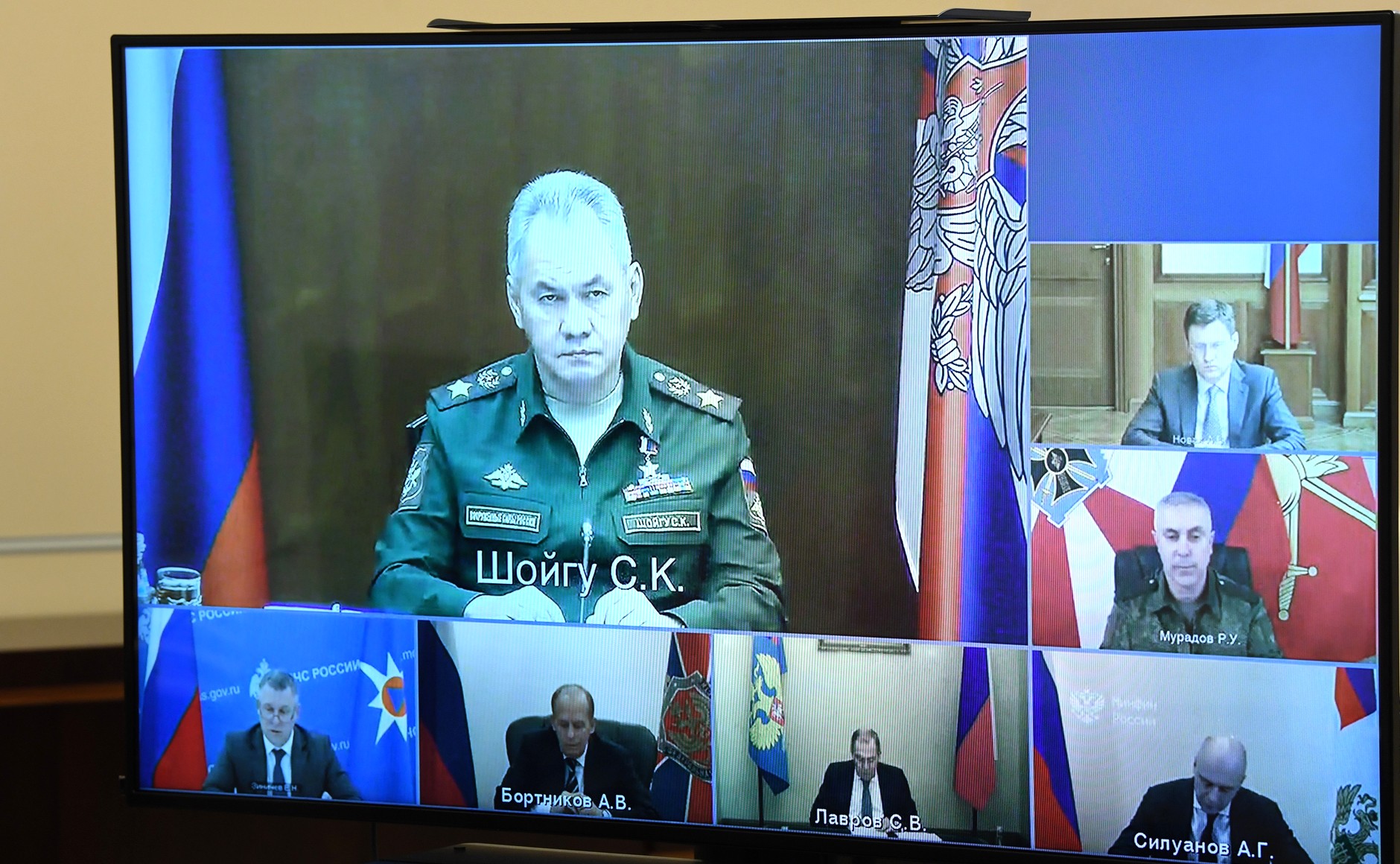 Vladimir Putin: Please, Mr Muradov, go ahead. Commander of the Russian peacekeeping contingent Lieutenant General Rustam Muradov: Comrade Supreme Commander-in-Chief, good afternoon. Commander of the Russian peacekeeping contingent in the Nagorno-Karabakh conflict zone, Lieutenant General Rustam Muradov reporting. The Russian peacekeeping contingent, in line with the set objectives, is supervising the implementation of the agreements on the ceasefire and all hostilities along the contact line between the two parties in Nagorno-Karabakh. No ceasefire violations or provocations have been recorded. Some small incidents are being settled by peacekeeping contingent representatives on the ground. For this purpose, cooperation with the commands of the conflicting parties in the zones of operation and the municipal authorities has been established. The territory of Nagorno-Karabakh has been divided into zones of responsibility. The northern zone is monitored from 11 observation posts by the 1st Battalion of the 15th Motorised Rifle Brigade. The southern zone in the Lachin Corridor, by the 2nd Battalion from 12 observation posts. A command post has been established in the city of Stepanakert from which the peacekeeping forces are controlled. The observation posts have been provided with all forms of communication, including closed, satellite and video conferencing. Work is underway on providing them with mobile video monitoring equipment, which will allow for distant all-round observation including at night. In addition, drones are being used around the clock to monitor the situation. Russian peacekeeping personnel are being provided with rations, pay and allowances in accordance with the current standards. Comrade Commander-in-Chief, today, in strict compliance with the trilateral statement, the Peacekeeping Command, with the Russian peacekeepers, has completed the mission on withdrawing the Armenian armed units from Agdam district, which was surrendered to the Azerbaijani side. The Russian peacekeepers understand the full responsibility of the objectives set before them and are ready to pursue them in strict compliance with the instructions issued by you and the Defence Minister. Comrade Commander-in-Chief, Lieutenant General Muradov’s report is complete. Vladimir Putin: Mr Muradov, after the Armenian units withdraw from some of the districts, say, Agdam and Lachin, Armenian civilians will remain there. Obviously, our peacekeepers are on the contact line, but I know that you have good relations with both sides, the Armenian and the Azerbaijani sides. The people who occupy the positions abandoned by the Armenian army – of course, they are conflicting parties, yet the conflict is over, they are civilised people anyway. I know that the prevailing mood among them is friendly, but we must establish communication with both sides, in this case with the Azerbaijan side, so that the situation in the liberated areas can remain stable and can facilitate conditions for living together for the people of both ethnicities without any individual conflicts. This is definitely the responsibility of the Azerbaijani side in the full sense of this word. I know the commitments of Azerbaijan’s President. This is exactly how he approaches the organisation of this future work, from exactly this kind of position. But at the first stage you must also establish contacts with both sides so as to have information about the developments, and to exchange this information in a timely manner with both the Armenian side and our Azeri colleagues. Rustam Muradov: Yes, Comrade Supreme Commander-in-Chief.  Vladimir Putin: The same goes for historical, cultural and religious heritage sites. I spoke with Mr Aliyev, and he also proceeds from the fact that the Azerbaijani authorities will take everything under control and will ensure access to these religious facilities for both Armenians and, of course, Azerbaijanis. One of them is within your control area, it is one of the oldest Christian monasteries. We have to ensure access for both Armenians and Azeris. There are Christians in Azerbaijan as well, and this is one of the oldest Christian churches. All of that must be taken into account, and a proper schedule of operations must be arranged during contacts with both sides. Thank you. Mr Lavrov, please tell us about the work with our partners abroad. Foreign Minister Sergei Lavrov: Mr President, colleagues, During these days, since November 13, we have been in close contact with the American and French co-chairs, who visited Moscow. I met with them, and my colleagues met with them as well. We provided them with full information that has confirmed once again that the agreement reached by the leaders of Russia, Azerbaijan and Armenia signed on November 9 is in full consonance with the principles that were agreed upon in the past few years by the co-chairs of the OSCE Minsk Group and received broad support throughout the world. Mr President, at the current stage we are focusing on the work with international organisations per your instructions. This is primarily the International Committee of the Red Cross (ICRC). Its president, Peter Maurer, visited Moscow and discussed in detail the situation and prospects for our cooperation at the Foreign Ministry, the Defence Ministry, the Emergencies Ministry and our other agencies that are involved in this work in various ways. The Red Cross is unique because it has representative offices in Yerevan, Baku and Stepanakert. They had to leave Stepanakert during the hostilities but came back several days ago. They are interested in very close contacts with our peacekeepers and the International Humanitarian Response Centre. You have set us these tasks, and we are guided by them in all of our actions. More work must be done with UN agencies, such as the Office of the United Nations High Commissioner for Refugees (UNHCR), the World Food Programme (WFP), the United Nations Office for the Coordination of Humanitarian Affairs (UNOCHA) and UNESCO. These agencies are not always represented in the region, but they are working on it. <…> Vladimir Putin: I would like to thank the participants of the meeting for the work you have done to this point. I would also like to ask you to continue fulfilling your tasks on maintaining peace in the region, to maintain close contact with both Armenian and Azerbaijani representatives, ensure the active performance of the Interdepartmental Humanitarian Response Centre and use its great potential in full measure. This intensive work must be aimed at the final result, and providing assistance to real people, those who need this help now, can be the final result. Thank you very much. The source of information - http://en.kremlin.ru/events/president/news/64455
__________________
Where should they dig the Very Deep Pit? Piglet said that the best place would be somewhere where a Heffalump was, just before he fell into it, only about a foot farther on. (c) Alan Alexander Miln |
|
|
#153 |
|
Senior Member
|
Greetings to current and former workers of Russian tax authorities
The President congratulated current and former workers of the Russian tax authorities on their professional holiday and the 30th anniversary of the Russian Federal Taxation Service. November 21, 2020 - 09:00 The message reads, in part: “In the past years, the Federal Taxation Service has significantly scaled up its workforce, organisational and technical potential, winning trust and considerable authority among the public. By applying the world’s best practices and your own original approaches, you have completed an efficient transformation of the Russian tax system and ensured the modernisation of the tax legislation which has become more flexible and relevant in relation to modern challenges and national development goals. I would like to note the success of the programme for implementing electronic and digital services. This project of unprecedented scale allowed a substantial improvement in the performance and transparency of tax administration, ensuring the protection of the state’s interests and, what is very important, simplifying the tax payment procedure for millions of people. Today it is necessary to maintain this dynamic pace and continue the course towards strengthening the open dialogue with entrepreneurs, adding functionality to interactive services, which, I believe, will make our country’s fiscal system more comfortable for our citizens and companies. This is particularly significant now when it is necessary to maintain the employment rate and achieve a speedy economic recovery after the pandemic. The tax authorities, society and businesses must act as partners in these circumstances. I hope you will continue to perform your duties diligently and demonstrate responsibility and professionalism.” The source of information - http://en.kremlin.ru/events/president/news/64449 Greetings on the opening of the Night Hockey League’s tenth season Vladimir Putin greeted participants and guests of the 10th season of the Night Hockey League. November 21, 2020 - 13:00 The message reads, in part: “I am happy to note that this wonderful project fulfils an important, much-needed mission and facilitates the promotion of ice hockey and a healthy and active lifestyle, as well as the development of the best traditions of Russian children’s and youth sports, and involves veterans in its activity. It is to a large extent thanks to the Night Hockey League that in cities and villages new hockey teams are being created and more people are gaining a wonderful opportunity to expand their social circles, meet like-minded people and try amateur sports.” The source of information - http://en.kremlin.ru/events/president/news/64479 G20 Summit Vladimir Putin addressed the meeting of the heads of delegations of the G20 member countries, invited states and international organisations. November 21, 2020 - 16:50 - Novo-Ogaryovo, Moscow Region 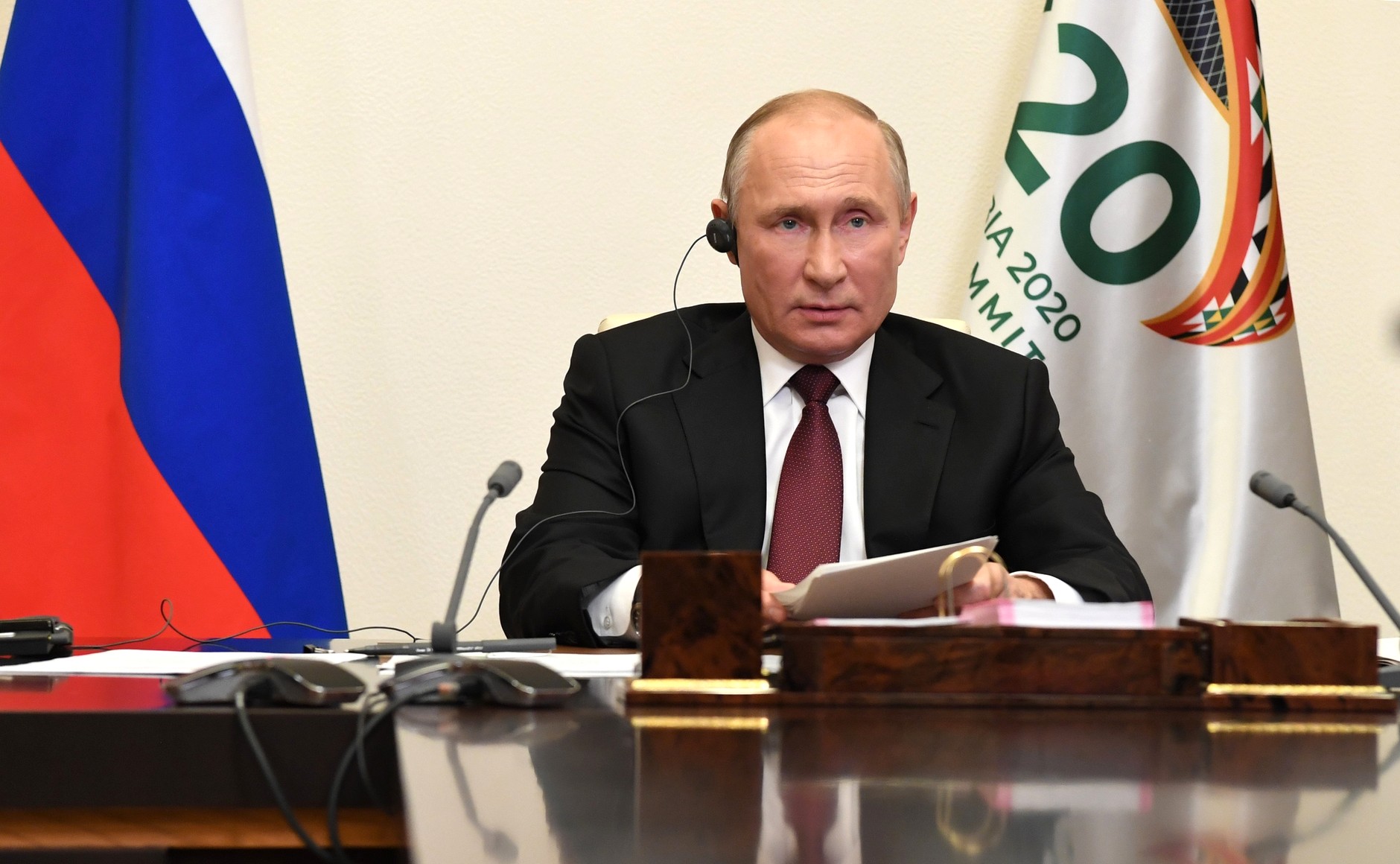 The summit chaired by Saudi Arabia is held via videoconference on November 21–22. The forum’s agenda includes issues of tackling the impacts of the coronavirus pandemic, providing universal access to vaccines, strengthening healthcare systems, global economic recovery and employment, as well as cooperation in the digital economy, fighting climate change, environmental protection and countering corruption. 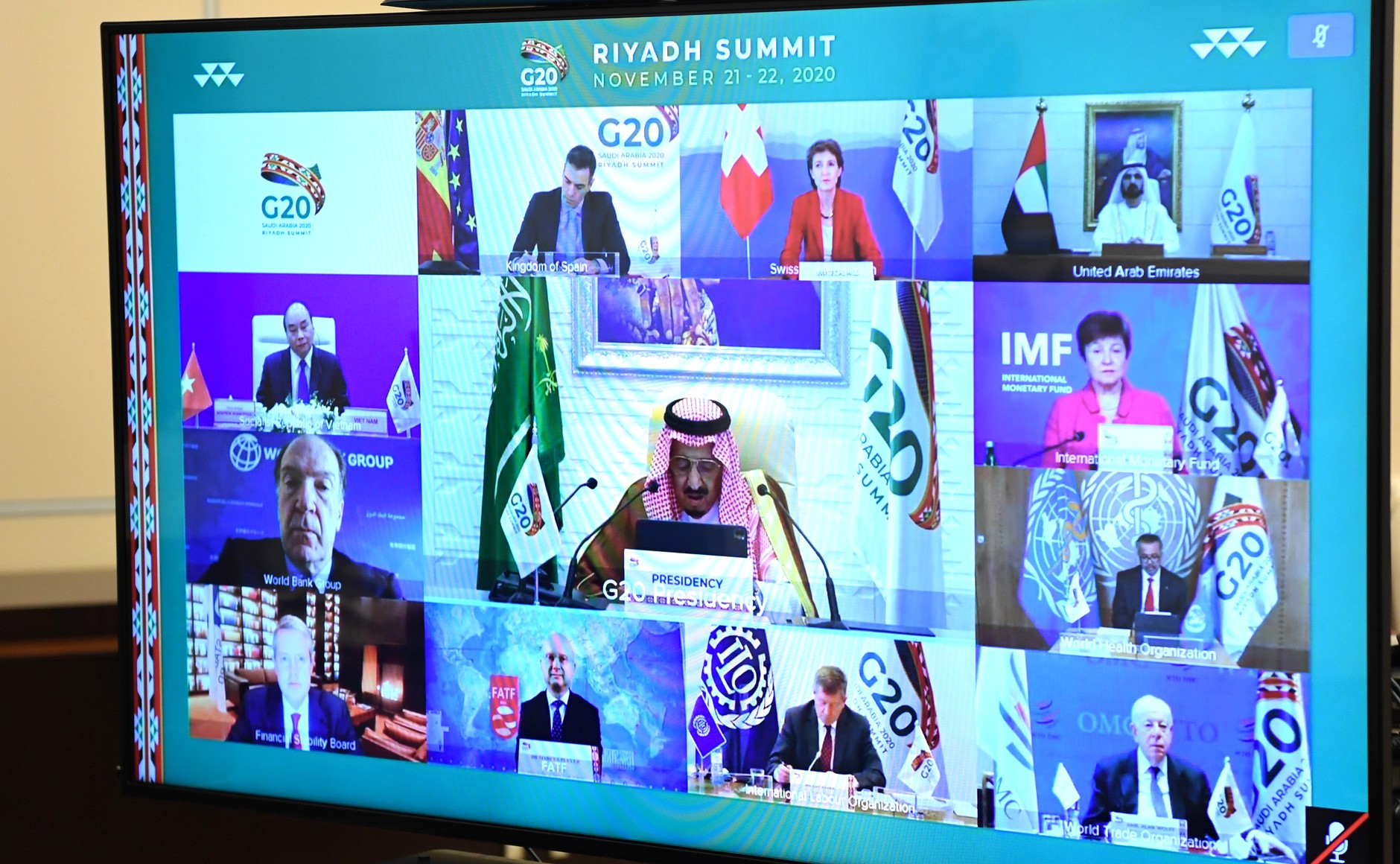 President of Russia Vladimir Putin: Colleagues, The scope of problems humanity has faced in 2020 are truly unprecedented. The coronavirus pandemic, global lockdown and frozen economic activity have launched a systemic economic crisis the world probably has not known since the Great Depression. The growth of national economies has been severely undermined. The pandemic claimed dozens, hundreds of thousands of lives while millions of people have lost their jobs and incomes. The main risk, obviously, even despite some positive signals, the main risk remains: mass long-term unemployment, a so-called “stagnant” unemployment with the subsequent growth of poverty and social insecurity. The role of the G20 is to stop this from happening. Russia highly values Saudi Arabia’s efforts during its G20 Presidency. In the present situation, the forums’ agenda was re-focussed towards global economic recovery and the protection of people’s health and wellbeing. 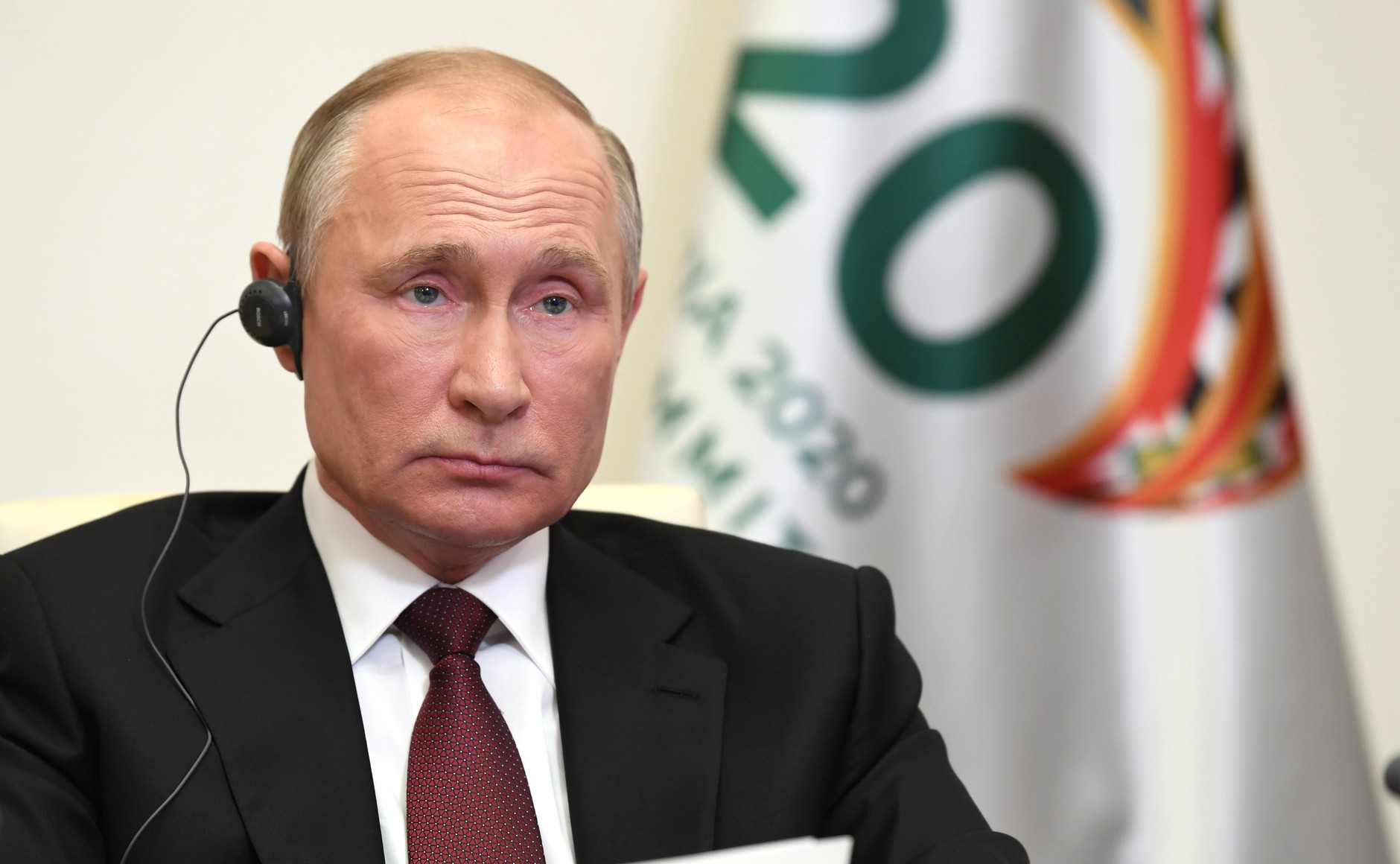 Drawing on the experience of fighting the 2008–2009 global financial crisis, the G20 launched a number of multilateral initiatives to curb pandemic-related economic risks and to restore business activity including via key global management institutions, namely the United Nations Organisation, the World Health Organisation, IMF, the World Bank and others. Our countries have designed a package of incentives for the world economy totalling $12 trillion. The US President has spoken now about the US efforts – indeed, it is a very big contribution to the recovery of the American economy, which also means the recovery of the world economy. We all together facilitated the emergency mobilisation of $21 billion for essential medical needs and gave a start to international cooperation in developing, producing and distributing vaccines. Like other nations, Russia took unparalleled anti-crisis steps as it gave top priority to the key and fundamental value – people’s lives and health. 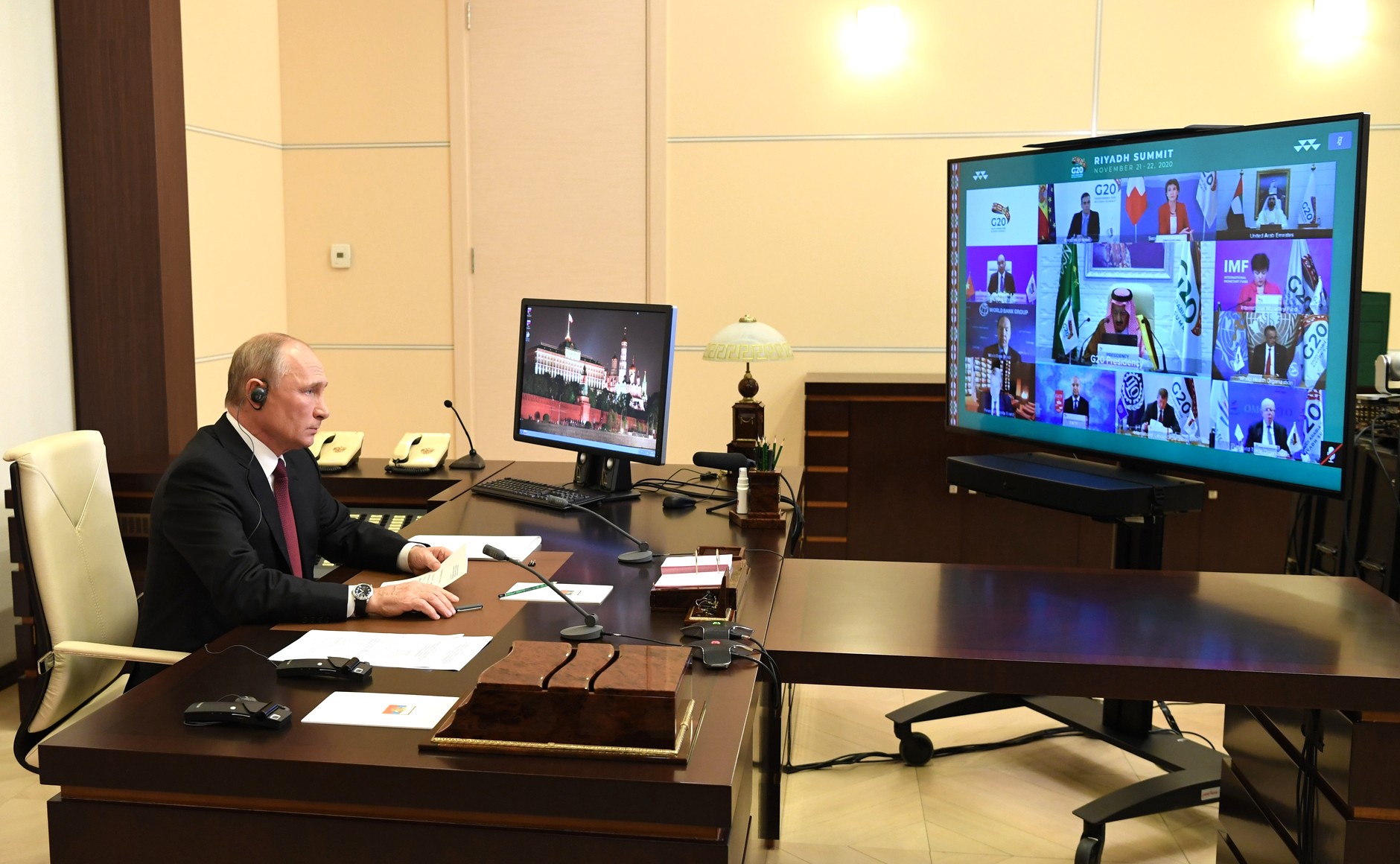 To ensure the sustainability of the national economy and maintain social stability, Russia’s Government together with the Bank of Russia are implementing a comprehensive plan of assistance to the population, small and medium-sized businesses and industries in the risk zone. Support was provided to the banking sector and regional budgets, businesses were issued loans while government investments were increased. The current volume of anti-crisis budget support totalled 4.5 percent of the GDP. The timely adoption of these targeted measures allowed Russia, as well as the majority of developed countries, to mitigate the economic decline, to enhance the healthcare system and get through the hard times without irreparable losses. Both our accumulated reserves and attracting loan resources in the domestic market helped to finance the above measures. Yet we are aware that the developing economies and some emerging market economies objectively lack such resources. Their fiscal revenues have plunged while the need to allocate considerable funds for fighting the pandemic is growing practically daily. National currency devaluation carries a big risk, and respectively, the cost of servicing on the state debt, primarily for low income countries, which have two thirds of their loans in US dollars. The IMF and the World Bank rendered significant assistance to developing countries. Following their proposal, G20 made a decision in April to install a temporary moratorium on developing nations’ debt payments. That is certainly a much-needed initiative, but it only covers the poorest countries. It does not include their debt to private creditors and concerns less than four percent of the developing countries’ overall costs of servicing state debt in the current year. 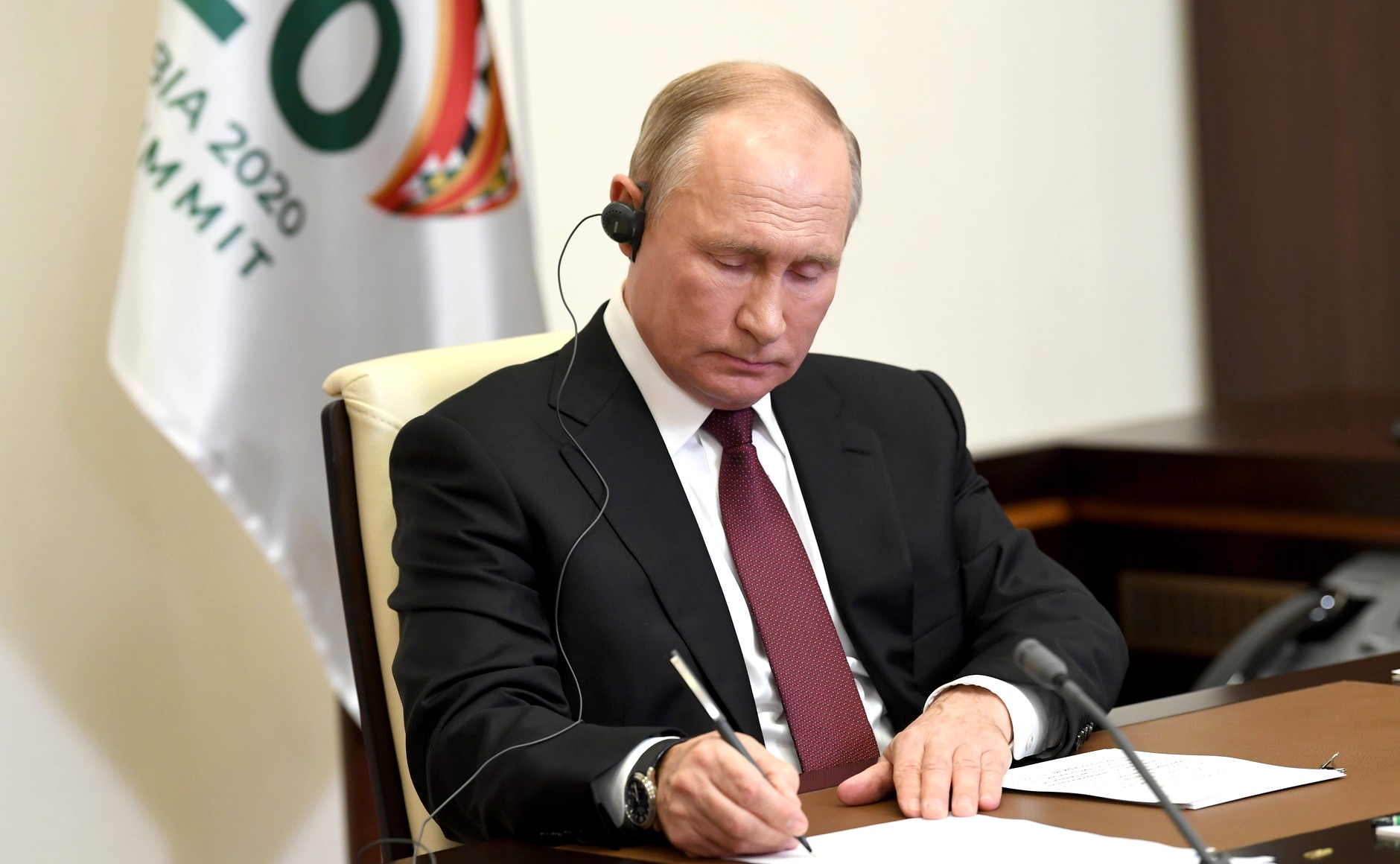 I believe additional measures are needed to prevent the deterioration of the situation and the growth of economic and social inequality. Urgent issues that have accumulated in international trade also need to be addressed. Thus, it is necessary to try to contain protectionism, to abandon the practice of unilateral sanctions and to resume delivery chains. We spoke about this just yesterday at another international platform, APEC. Adjustment of multilateral universal trade rules to e-commerce (much needs to be done in this area) and other new economic realities are also on the agenda. On the whole, the G20 should continue searching for new approaches to reforming the World Trade Organisation to meet present-day challenges. This task defies a solution without a stable and effective multilateral trade system, but at present, there is no alternative to the World Trade Organisation. Russia supports the draft key decision of the current summit aimed at making effective and safe vaccines accessible for everyone. Undoubtedly, immunisation drugs are and must be universal public domain. Our country, Russia, is ready to provide the countries in need with the vaccines developed by our researchers. This is the world’s first registered vaccine Sputnik V, based on human adenoviral vectors platform. The second Russian vaccine, EpiVacCorona from a Novosibirsk research centre, is also ready. The third Russian vaccine is coming.  The scale of the pandemic compels us to engage all the resources and research available. Our common goal is to form portfolios of vaccines and ensure reliable protection for the planet’s population. It means that there will be enough work for everyone, colleagues, and I think it is a case when competition may be inevitable but we must proceed primarily from humanitarian considerations and make it a priority. Let me stress – this crisis must become an opportunity to alter the trajectory of global development, preserve the favourable environment and climate, ensure equal conditions for all nations and peoples, build up effective tools of multilateral cooperation and key international institutions while drawing upon the UN Charter and universally accepted norms and principles of international law. We see this approach to solving global issues as the key task and responsibility of the G20 as the main forum of the world’s leading economies. Colleagues, I would like to once again thank the hosts of today’s event, Saudi Arabia. Thank you for your attention. The source of information - http://en.kremlin.ru/events/president/news/64460 Meeting with Pskov Region Governor Mikhail Vedernikov Vladimir Putin had a working meeting, via videoconference, with the Governor of the Pskov Region. November 23, 2020 - 13:40 - The Kremlin, Moscow  Mikhail Vedernikov began his report with the epidemiological situation in the region, where the number of confirmed coronavirus cases is growing, just as in other Russian regions. At this moment, the regional authorities maintain a balance in two spheres, he said: the preservation of health and lives, and a comprehensive functioning of the regional economy. This is being done largely thanks to the support of the President. In particular, 484 million rubles were allocated last year for new medical equipment, and used to purchase the highest quality equipment. In addition, medical teams sent to the Pskov Region in accordance with the Presidential instructions have helped to adjust the operation of the regional COVID centre based on Moscow’s best practices. At the same time, considerable amounts of medication and PPE have been dispatched to the region. The Governor pointed out that the region needs to buy ophthalmology, urology, otolaryngology and neurology equipment worth aggregately 500 million rubles. He asked the President to support the region’s request to the Government for the allocation of these funds in 2021. Mikhail Vedernikov noted that everything necessary had been done in the region to preserve the economy and prevent a major decrease in revenues. The whole of the emergency fund created at the request of the Government has been used to support doctors, social workers, people in need, those who lost their jobs and businesses. 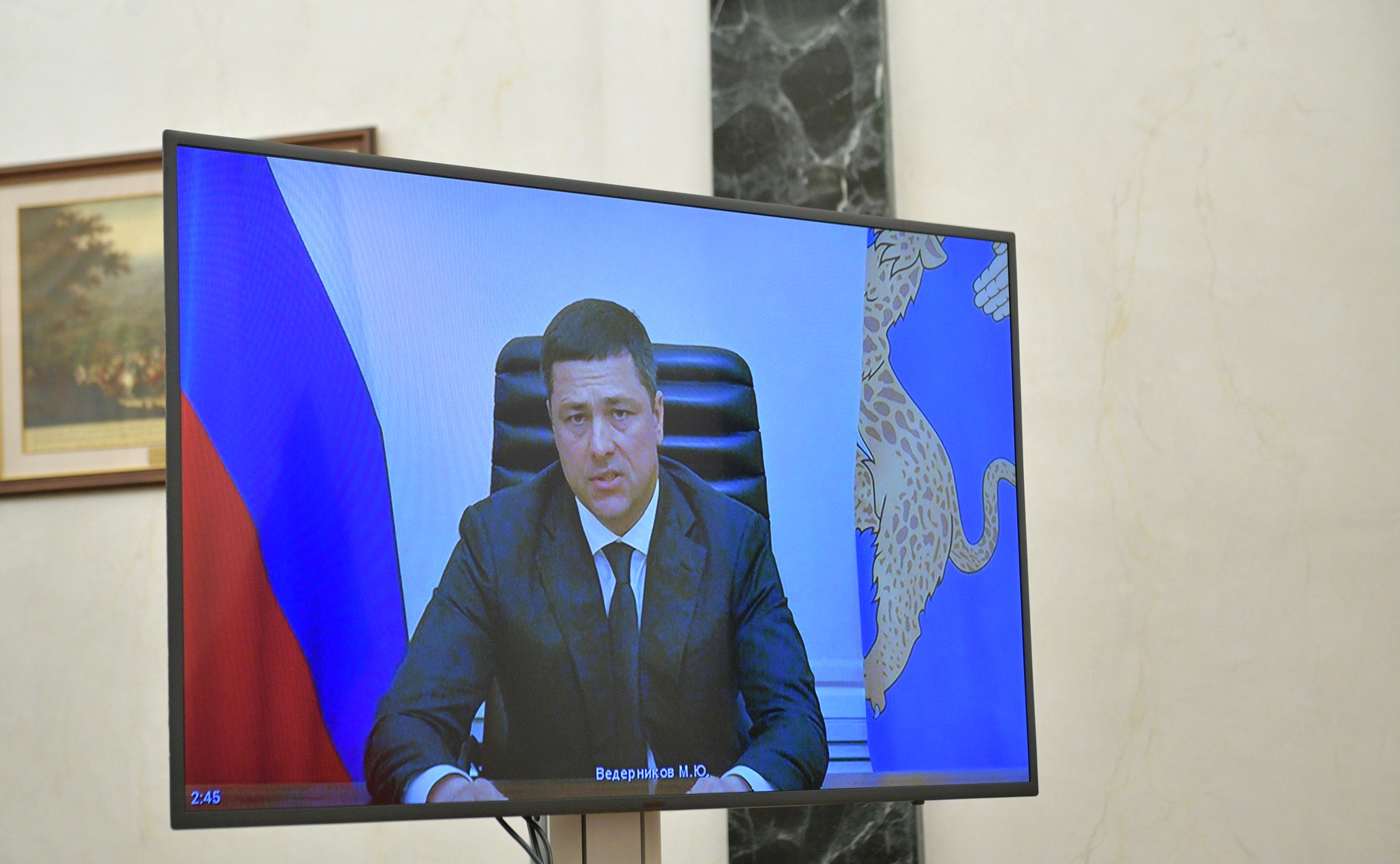 For the ten months of 2020, both tax and non-tax revenues overall reached 107.8 percent compared to the same period last year. But at the same time, the budget deficit had to be increased by almost 2 billion rubles to finance the COVID response effort, and the region is not in a position to take out new loans. The region will not be able to close this fiscal year without additional assistance. The Governor asked the President to instruct the Government to provide additional funding to cover the shortfall in the Pskov Region. Mikhail Vedernikov further reported on the implementation of the Presidential instruction to carry out a comprehensive upgrade of the social infrastructure in the border areas (the region borders on Estonia and Latvia). This should include an overhaul and renovation of schools and regional hospitals. In particular, the Governor pointed out the Pechora linguistic gymnasium, the only institution that accepts Seto children (an ethnic minority in the Pskov Region). The list of facilities in need of modernisation has been compiled and submitted to the Government of the Russian Federation. The Governor asked the President to instruct the Government to shift the allocation of funds for the modernisation of social infrastructure facilities to 2021–2023 from 2020–2022 as was originally planned. In turn, the region guarantees the completion of all construction projects on schedule. Answering the President's question about the investment situation, Mikhail Vedernikov said the Pskov Region is one of ten regions with individual socioeconomic development programmes with an emphasis on the development of industrial enterprises, including in the special economic zone. The region is working with an anchor investor; the total amount invested in the project is comparable with the region’s annual budget. It is also expected to create 1,300 additional jobs within two to three years. 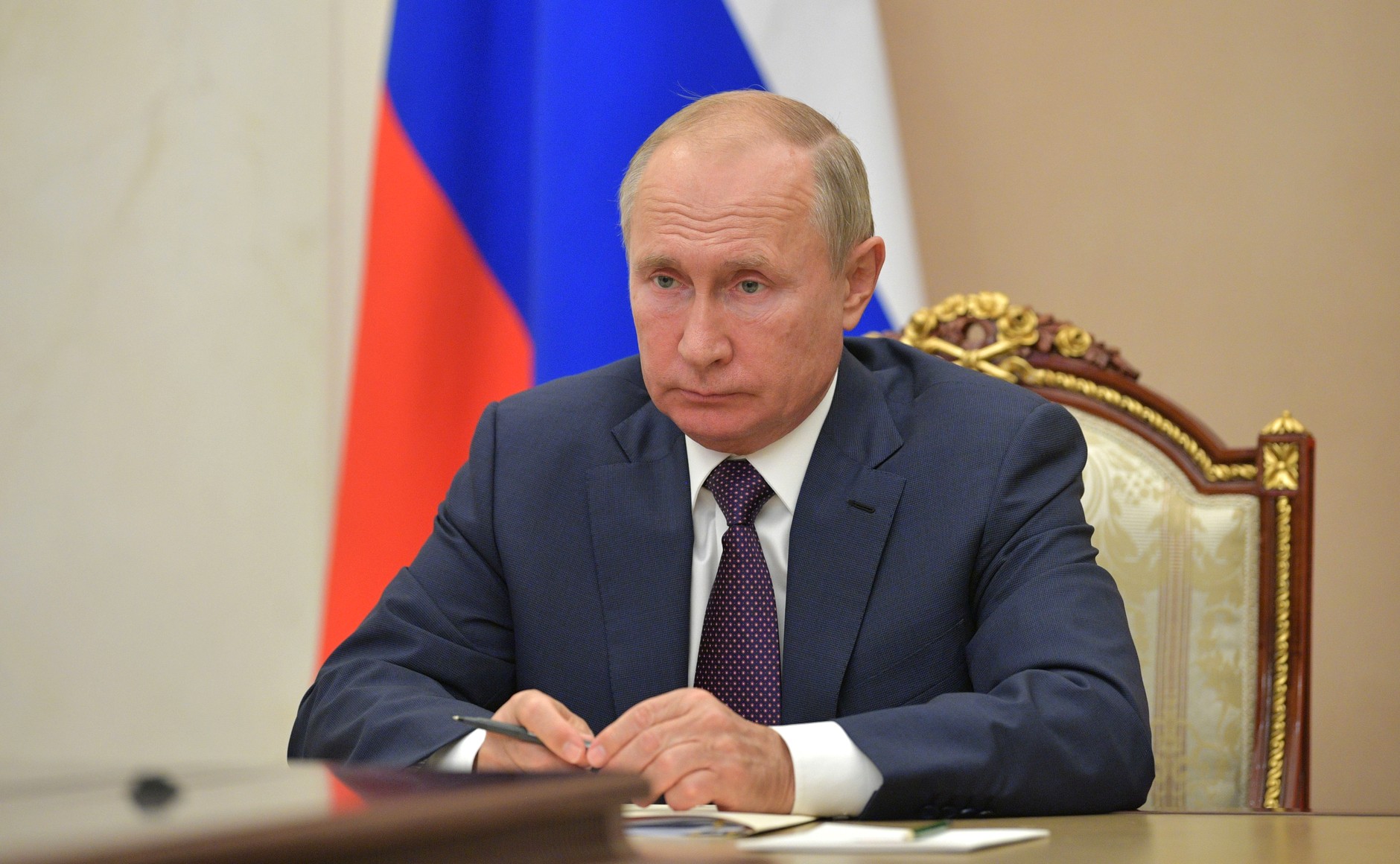 The President stressed that he knows what is happening in the Pskov Region and how, and of course, the problems listed by the Governor have to be solved; he promised to provide help and support in doing so. The President noted that all those issues need to be considered by the Government of the Russian Federation at a professional and business-like level, while the specific figures need to be coordinated with the relevant government agencies. The source of information - http://en.kremlin.ru/events/president/news/64469 Congratulations to Daniil Medvedev on winning ATP World Tour Finals Vladimir Putin congratulated Daniil Medvedev on winning the final of the Association of Tennis Professionals (ATP) tournament. November 23, 2020 - 19:00  The message reads, in part: “You played brilliantly and blazed through the finals of the Association of Tennis Professionals (ATP) tournament, demonstrating superb training, prowess and a real fighting spirit in beautiful and gruelling matches, carrying on the wonderful traditions of the Russian tennis school.” The source of information - http://en.kremlin.ru/events/president/news/64485 Greetings to the XXV Radonezh International Festival of Films and TV Programmes Vladimir Putin sent his greetings to participants, guests and organisers of the XXV Radonezh International Festival of Films and TV Programmes. November 24, 2020 - 11:00 The message reads, in part: “For many years your festival has been pursuing a high educational and spiritual mission, introducing audiences to the best films and TV programmes about the spiritual and moral values of vital importance to the whole of humanity. It is logical that in the year of the 75th anniversary of the Great Victory many of the entries are devoted to the valiant chapters in our history and the heroism of our people during the Great Patriotic War. I have no doubt that your festival will take place in a sincere and informal atmosphere and will make a substantial creative contribution to Russian arts and to strengthening international humanitarian cooperation.” The source of information - http://en.kremlin.ru/events/president/news/64488 Ceremony for presenting foreign ambassadors’ letters of credence Vladimir Putin received letters of credence from newly arrived foreign ambassadors. By tradition, the ceremony took place in the Alexander Hall of the Grand Kremlin Palace. November 24, 2020 - 14:30 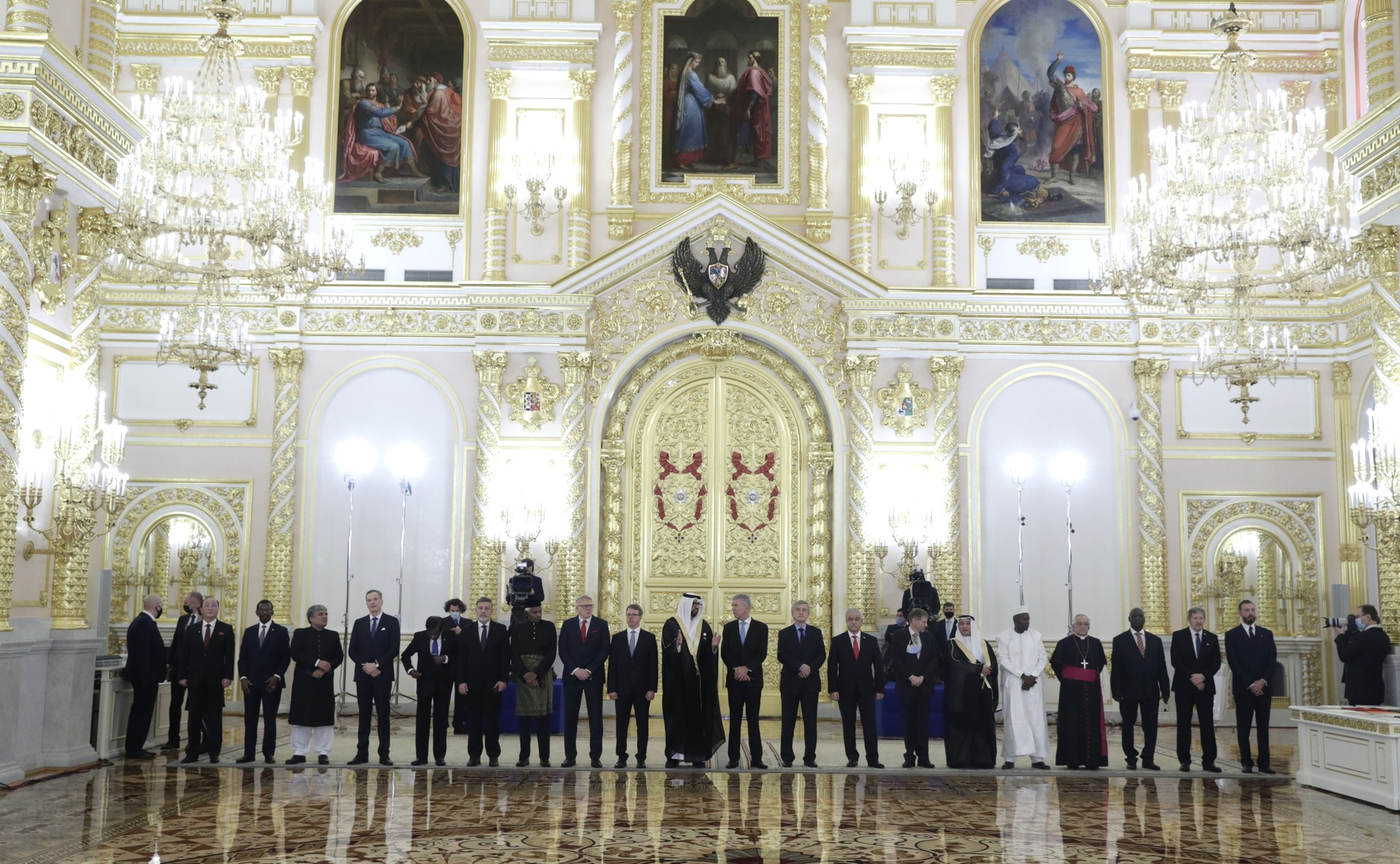 Letters of credence were presented to the President of Russia by Sin Hong Chol (Democratic People’s Republic of Korea), Frank Mushyo Kamanzi (Republic of Rwanda), Shafqat Ali Khan (Islamic Republic of Pakistan), Eitvydas Bajarunas (Republic of Lithuania), Meegahalande Durage Lamawansa (Democratic Socialist Republic of Sri Lanka), Juan Genaro Del Campo Rodriguez (Republic of Peru), Bala Chandran Tharman (Malaysia), Arni Thor Sigurdsson (Republic of Iceland), Antti Helantera (Republic of Finland), Mohammed Ahmed Al Jaber (United Arab Emirates), Georges Faber (Grand Duchy of Luxembourg), Milorad Scepanovic (Montenegro), Julio Antonio Garmendia Pena (Republic of Cuba), Marc Michielsen (Kingdom of Belgium), Abdulrahman Bin Suleiman Al Ahmed (Kingdom of Saudi Arabia), Alhagi Nyangado (Republic of The Gambia), Archbishop Giovanni d'Aniello (Apostolic Nuncio – Ambassador of the Holy See), Leon Dodonou-Punagaza (Central African Republic), Alexander Ben Zvi (State of Israel), and Aimone of Savoy-Aosta (ambassador of the Sovereign Military Order of Malta). 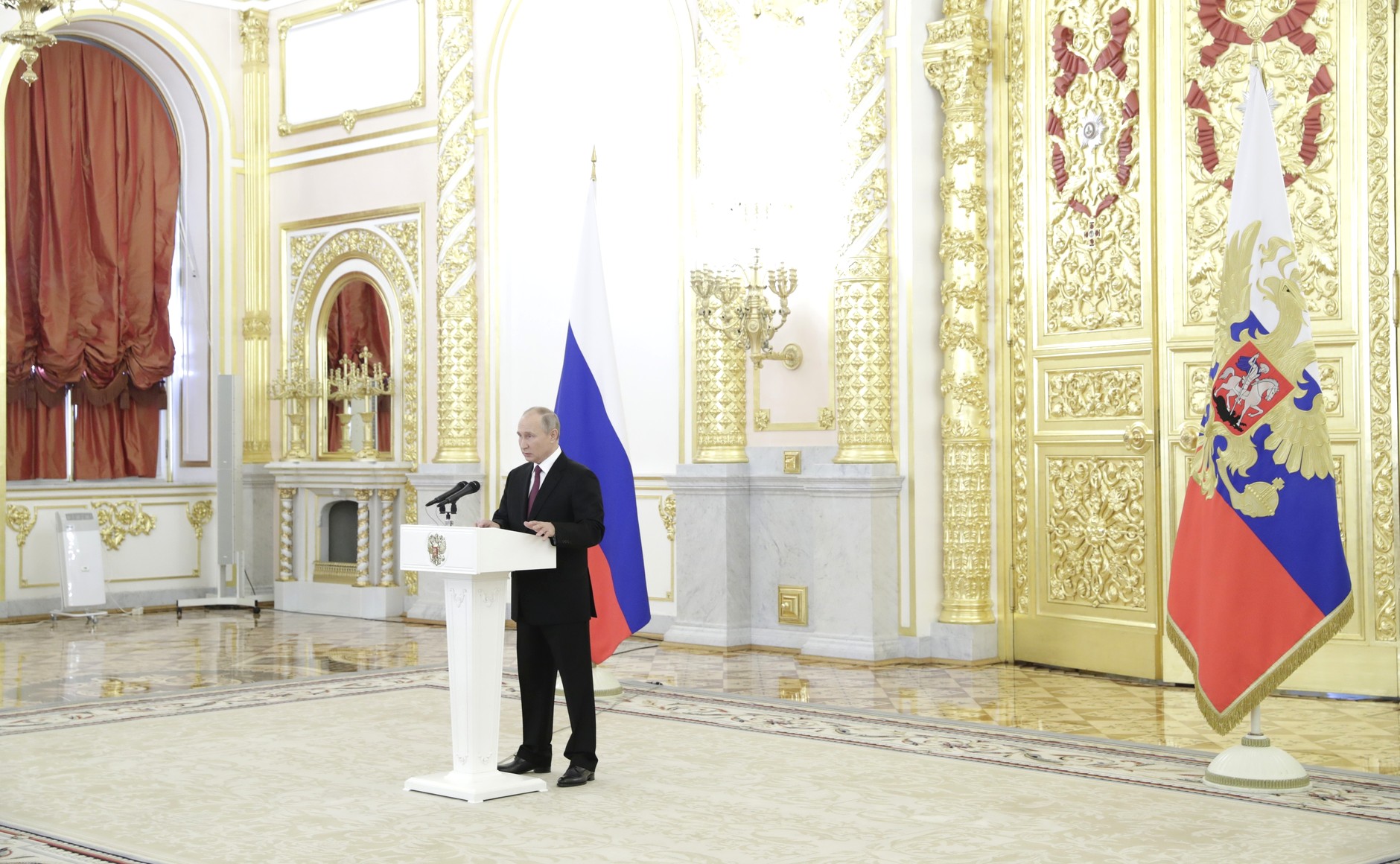 President of Russia Vladimir Putin: Good afternoon, gentlemen, I am delighted to welcome you to the ceremony for presenting letters of credence. Despite the well-known and necessary restrictions associated with the coronavirus pandemic, we considered it important to hold this event in the Kremlin, as usual. I wanted to congratulate you personally on the official start of your work, your diplomatic mission in Russia and to wish you every success and fruitful work to develop cooperation between the countries you represent and the Russian Federation. Gentlemen, You can be sure that all your constructive undertakings and initiatives will always meet the most favourable response, support and assistance from government bodies, as well as from the business community and the general public in our country. Colleagues, This year has been very difficult and unpredictable for all of us. As I said, the world is facing the coronavirus pandemic. This required the adoption of extraordinary measures both in Russia and in all your counties. I am convinced that in the face of such an unprecedented challenge, the international community has no alternative but to join efforts. After all, the cornerstone is the fundamental value: the lives and health of our citizens. As you know, Russia has developed and is already using the world's first vaccine against coronavirus, Sputnik V, and the second EpiVacCorona has also been registered. Now the most important thing is to ensure mass production in Russia and start a public vaccination campaign. Our third vaccine is also almost ready. We are ready to share our experience with all interested states and international agencies. Together with a number of our foreign partners, we are working out the issues of launching the production of these vaccines locally at our partners’ production base. 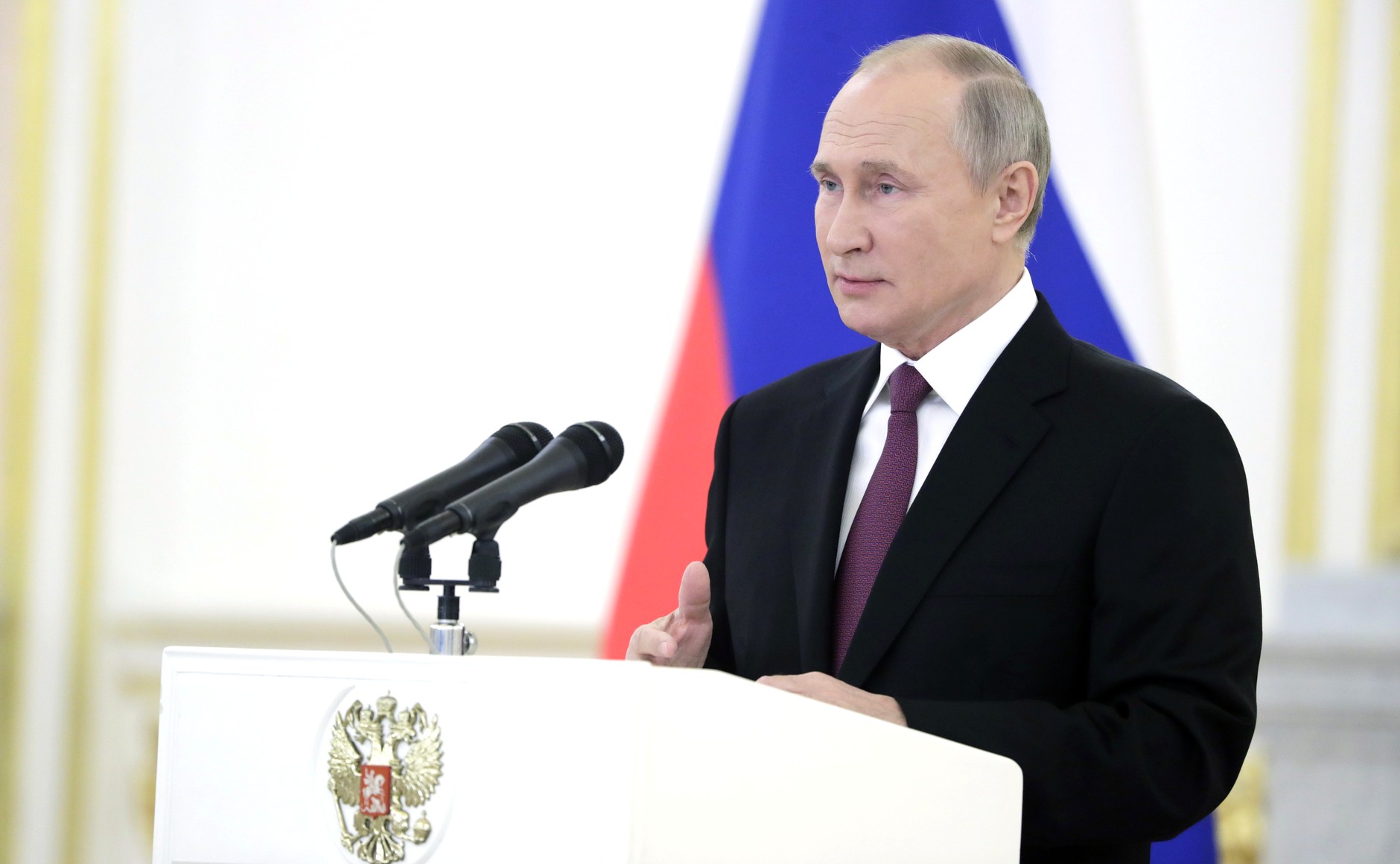 The pandemic has aggravated problems in the global economy, in trade, the social sphere and environmental protection. But this does not mean that previous challenges and threats like international terrorism, drug trafficking and organised crime are gone. The entire system of international security, strategic stability and arms control is under very serious pressure. Let me emphasise again that it is possible to search for optimal, satisfactory solutions to these problems only on the basis of equitable participation of all members of the international community, universal standards of international law and a coordinating, central role of the United Nations. The anniversaries of the UN and the end of World War II are observed this year. Nazism was defeated and the ideology of aggression and hatred was crushed 75 years ago. The experience and spirit of cooperation and allied relations, as well as the realisation of the enormous price that was paid for peace and a shared victory allowed the world to lay the foundations of the post-war world order. The allied spirit and a desire for honest cooperation among partners are especially in demand in the current situation. I am convinced that despite all the current difficulties and differences, it is necessary to vigorously remove them, move forward and promote a unifying international agenda. We were guided exactly by this motive when we made an initiative to hold a summit of the UN Security Council permanent members, that is, the countries that bear special responsibility for global security and stability. We hope the summit will take place and we will meet offline as soon as the epidemiological situation allows this. I would like to note that on a par with other countries this month Russia took part in major international events at top level in BRICS, the Shanghai Cooperation Organisation, the Asia-Pacific Economic Cooperation, the G20 and the East Asia Summit. I hope that implementation of the agreements reached at these events will help us not only to overcome the impact of the pandemic but also improve the global situation and ensure sustainable and predictable development overall. It is worthy of special mention that Russia has been making considerable efforts as an intermediary in the settlement of a lingering conflict. We acted energetically to stop the hostilities in Nagorno-Karabakh, which had claimed the lives of thousands of people in Azerbaijan and Armenia, both of which are Russia’s friends. 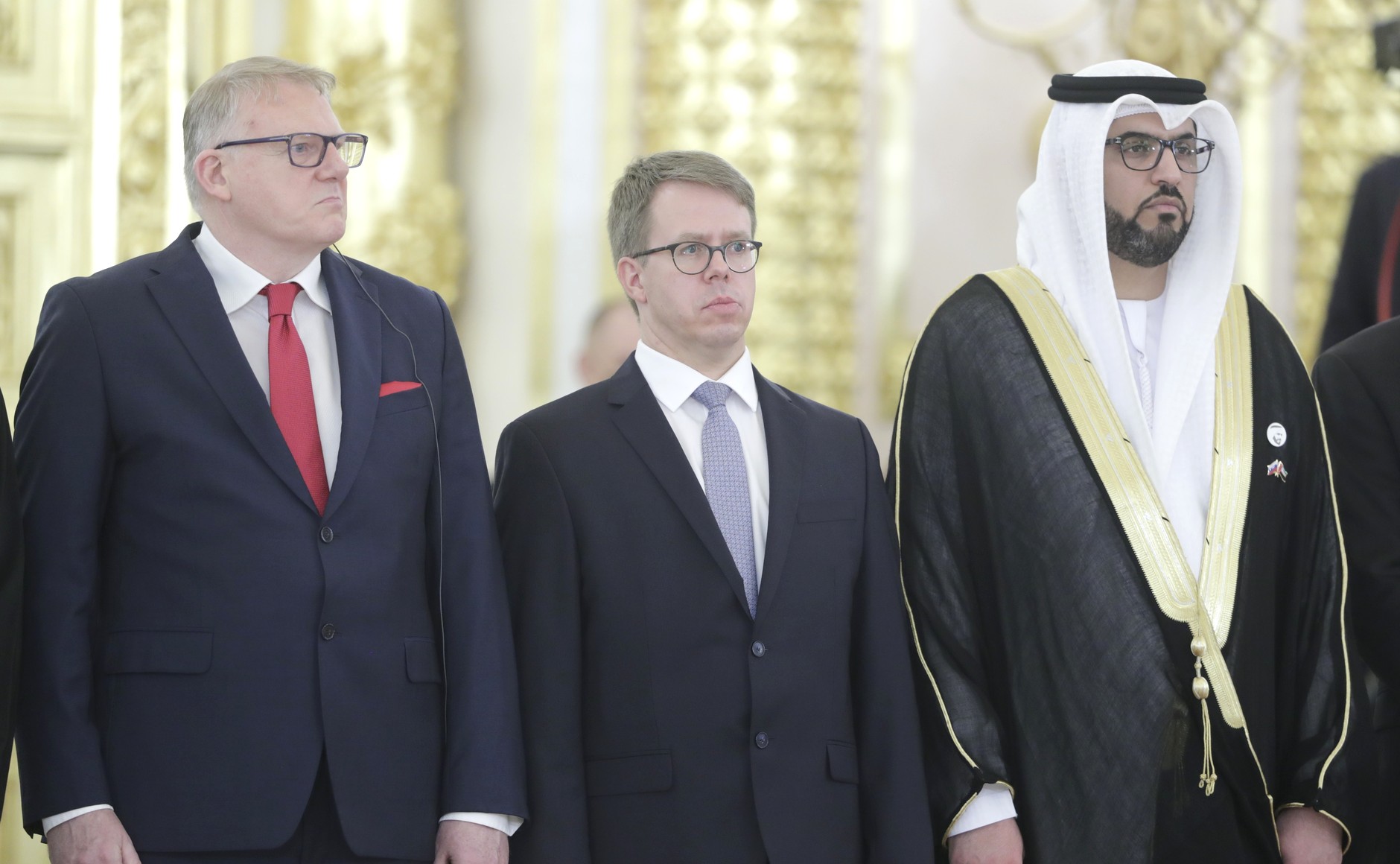 While doing this, we acted in accordance with the main agreements reached by the OSCE Minsk Group, in particular, its co-chairs: Russia, the United States and France. Our most important achievement is that we have stopped the bloodshed and put the ceasefire agreement on paper in a trilateral Statement by the Presidents of Russia and Azerbaijan and the Prime Minister of Armenia. The Russian peacekeeping force, which has been deployed in the region in accordance with this Statement, is monitoring compliance with the ceasefire, ensuring the safety of peaceful civilians and accompanying the returning refugees and humanitarian deliveries. Overall, the situation is stabilising. The Russian Humanitarian Response Centre will start working to provide assistance to people in the affected areas, rebuild infrastructure and create conditions for a normal peaceful life. We hope that specialised international organisations will provide considerable assistance to these efforts. We believe that all these efforts will create prerequisites for a lasting and full-scale settlement of that protracted conflict on the basis of justice and in the interests of the Azerbaijani and Armenian people. Gentlemen, By tradition I would like to say a few words about Russia’s relations with each of the countries you represent. We favour further consolidation of neighbourly relations with the Democratic People's Republic of Korea. The 75th anniversary of its liberation was also marked this year. Red Army soldiers fought for its freedom and independence shoulder to shoulder with the Korean patriots. We are ready to continue developing the entire range of bilateral ties, as we agreed during the Russia-North Korea summit in Vladivostok in April 2019. As for the nuclear issue of the Korean Peninsula, our position on it is well known: this problem must be resolved only by diplomatic efforts, through negotiations.  Our relations with the Republic of Rwanda are developing in a friendly spirit. Our Rwandan colleagues took an active and interested part in the first Russia-Africa Summit held in Sochi last year. In accordance with the agreements reached at this summit, Russia and Rwanda are expanding their cooperation in power engineering, including the nuclear power industry and geological prospecting. We continue training Rwandan civilian and military personnel at Russian universities. We are going to further strengthen our mutually beneficial ties with the Islamic Republic of Pakistan in developing the economy, trade and power engineering and in ensuring regional security. We are satisfied with our partner cooperation with Islamabad at the UN and the SCO, which rests on our commitment to international law and close positions on the majority of key foreign policy issues. We believe our cooperation with Lithuania could be more active and varied, all the more so since we are next door neighbours. We are ready to cooperate on the principles of neighbourliness and respect for each other and would like our Lithuanian colleagues to adopt the same approach. We have good relations with Sri Lanka. We are determined to further expand mutually beneficial cooperation in trade, the economy and culture. Our countries interact constructively in the international arena, in particular, as part of the Shanghai Cooperation Organisation, where Sri Lanka has the status of a dialogue partner. We maintain partnership relations with the Republic of Peru. We work together at the UN and the Asia-Pacific Economic Cooperation forum. We stand in solidarity on important international issues such as countering terrorism, drug trafficking and organised crime. We sincerely hope that the leadership and citizens of Peru will successfully overcome the current internal political differences acting within the framework of the constitution and law. We are interested in advancing the political dialogue and strengthening trade and economic interaction with Malaysia. 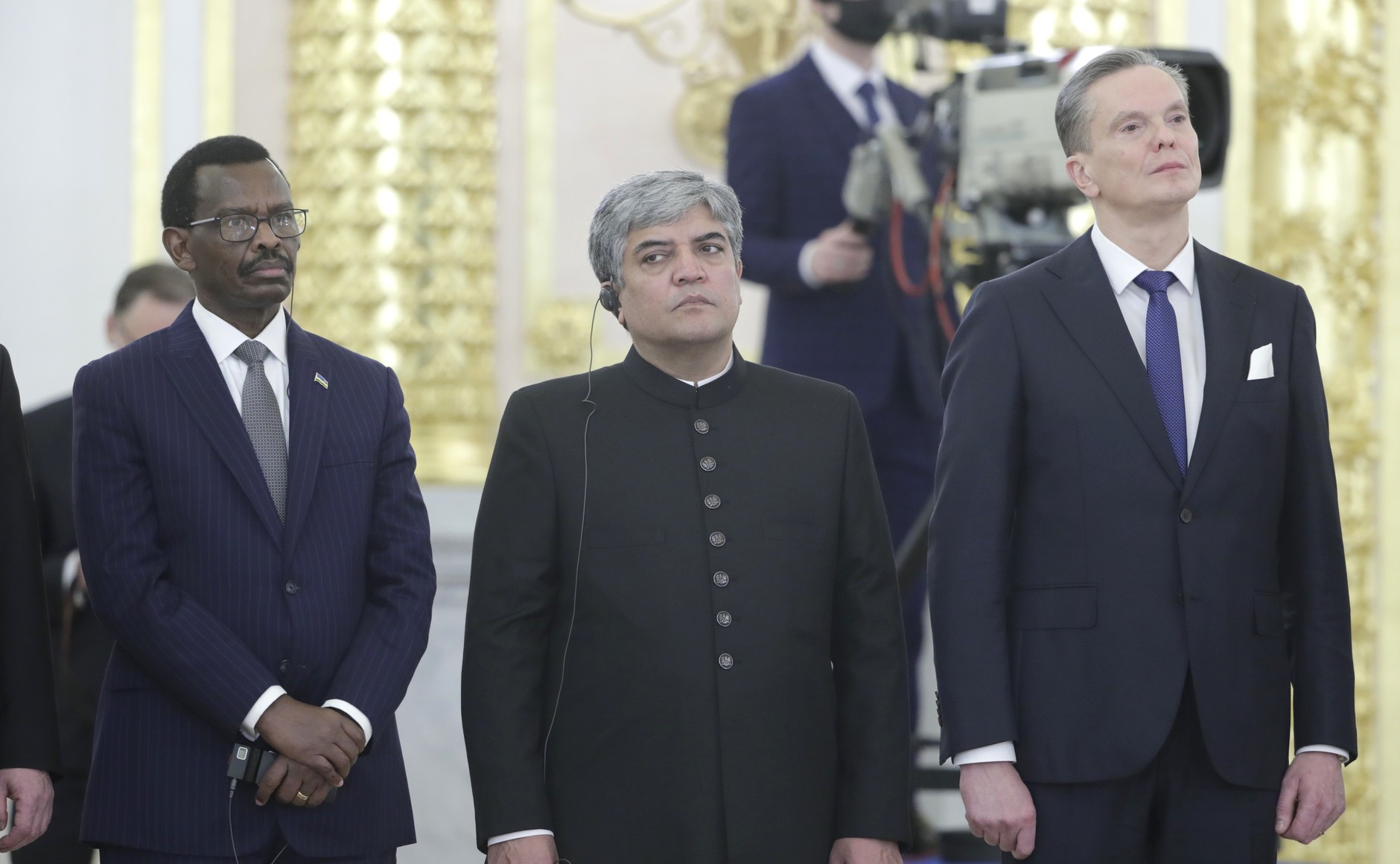 Last week, I participated in the Asia-Pacific Economic Cooperation summit, which was chaired by your country. Despite the pandemic-related difficulties, our Malaysian partners did a great job and drafted a large package of final documents for approval by the leaders, including a joint statement on the long-term development guidelines of APEC to 2040. We are determined to further strengthen constructive ties with Iceland, both bilaterally and as part of multilateral formats. Incidentally, Iceland is now chairing the Arctic Council and will hand over the chairmanship to Russia next year. We see good opportunities for implementing joint projects in fishing, fish processing and shipbuilding, as well as innovative technologies, geothermal energy and agriculture. We traditionally maintain close and truly neighbourly relations with our northern neighbour, the Republic of Finland, both in terms of political dialogue and cooperation in trade, the economy and other areas. President Sauli Niinistö and I regularly and constructively discuss current bilateral and international matters, including ways to improve stability and security in the Baltic Sea region and Europe in general. Our relations with the United Arab Emirates are making steady progress. I would like to mention that our state visit to Abu Dhabi took place in November 2019 and we had very successful talks with the UAE’s leaders. We hope to continue to maintain a sincere partner dialogue with this country. We have many areas for cooperation – investment, medicine and energy.  Russia’s cooperation with the Grand Duchy of Luxembourg is being actively developed in politics and the economy, and in the cultural-humanitarian field. Using this opportunity, I would like to express gratitude to Prime Minister Mr Bettel for his initiative to establish a monument to the Soviet citizens sent by the Nazis to the Grand Duchy for forced labour during the years of the Great Patriotic War. We are paying attention to this. Let me assure you that the Russian people appreciate this very much. The peoples of Russia and Montenegro are tied by centuries-long traditions of friendship and spiritual affinity. We hope that our interstate relations will also develop in this vein. Russia is very interested in this. The Republic of Cuba is Russia’s reliable partner. Our bilateral cooperation is of a strategic character. We are carrying out large joint projects in the energy sector, metallurgy, transport infrastructure and medicine where Cuba is a leader in many ways. We are also expanding our humanitarian contacts. Cuba enjoys high prestige in the international arena and our dialogue on major foreign policy issues is distinguished by a high level of trust. 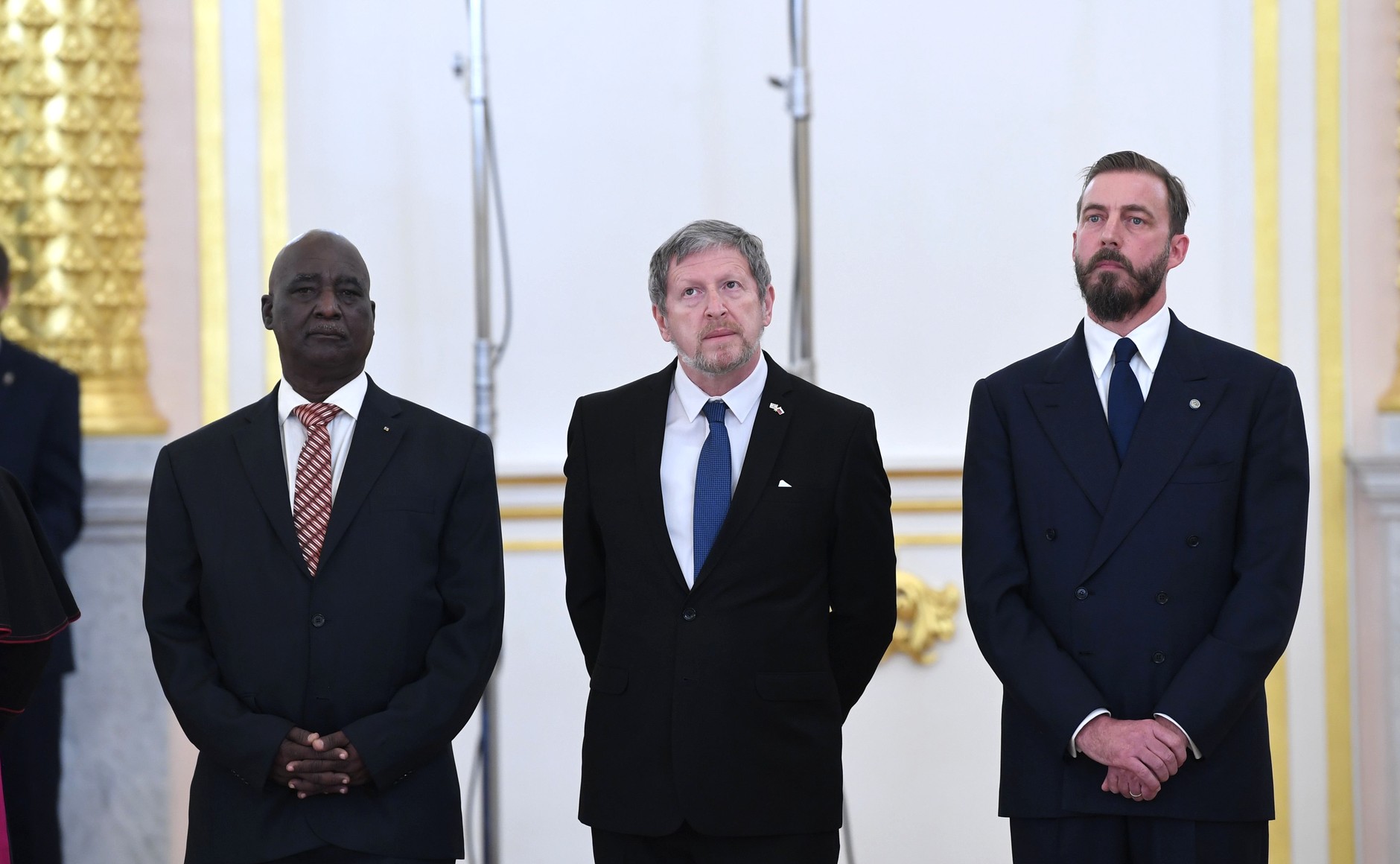 We are interested in continuing our practical work to develop trade, economic and cultural ties with the Kingdom of Belgium. It is important to maintain regular contact on urgent international issues as well. This is in our common interests. Russia’s relations with the Kingdom of Saudi Arabia, one of the leading states in the Middle East, are on the upsurge. Recently, they have taken on a larger and more comprehensive nature, which was facilitated by our state visit to Riyadh in October 2019. Russia and Saudi Arabia actively cooperate in the OPEC Plus format and make a joint contribution to the stability of world energy markets, for which we are very grateful to His Majesty the King, Custodian of the Two Holy Mosques, and the Crown Prince. I would like to congratulate our Saudi colleagues on their successful organisation of the G20 summit recently. We understand what a complicated task it was. We will continue to work hard at implementing its decisions. We have stable ties with the Republic of The Gambia. We continue to develop contacts on international issues and deepen our cooperation in different areas, including in the military-technical and education areas.  We maintain a meaningful dialogue with the Vatican based on adherence to traditional universal human values. Our cooperation in strengthening interethnic and interreligious peace and harmony, countering terrorism and extremism and any form of racial intolerance is expanding in the spirit of the agreements reached during my meeting with Pope Francis last July. December marks the 60th anniversary of Russia's diplomatic relations with the Central African Republic. We sincerely wish for an early settlement to the challenging situation in your country and we support UN Stabilisation Mission activities in the CAR. Our relations with Israel are mutually beneficial and multifaceted; we maintain a substantive political dialogue. Prime Minister Benjamin Netanyahu and I regularly talk about important items on the international and regional agendas. We are in constant contact. Russia and Israel are united in their determination to preserve the truth about World War II, to counter attempts to falsify history or to forget about the Holocaust martyrs and other victims of Nazism. Importantly, our countries’ specialised agencies have established cooperation in fighting the coronavirus, including the potential supply and production of a Russian vaccine in Israel. We value our relationship with the Sovereign Military Order of Malta based on our unique historical ties and traditions of cultural and people-to-people interaction. 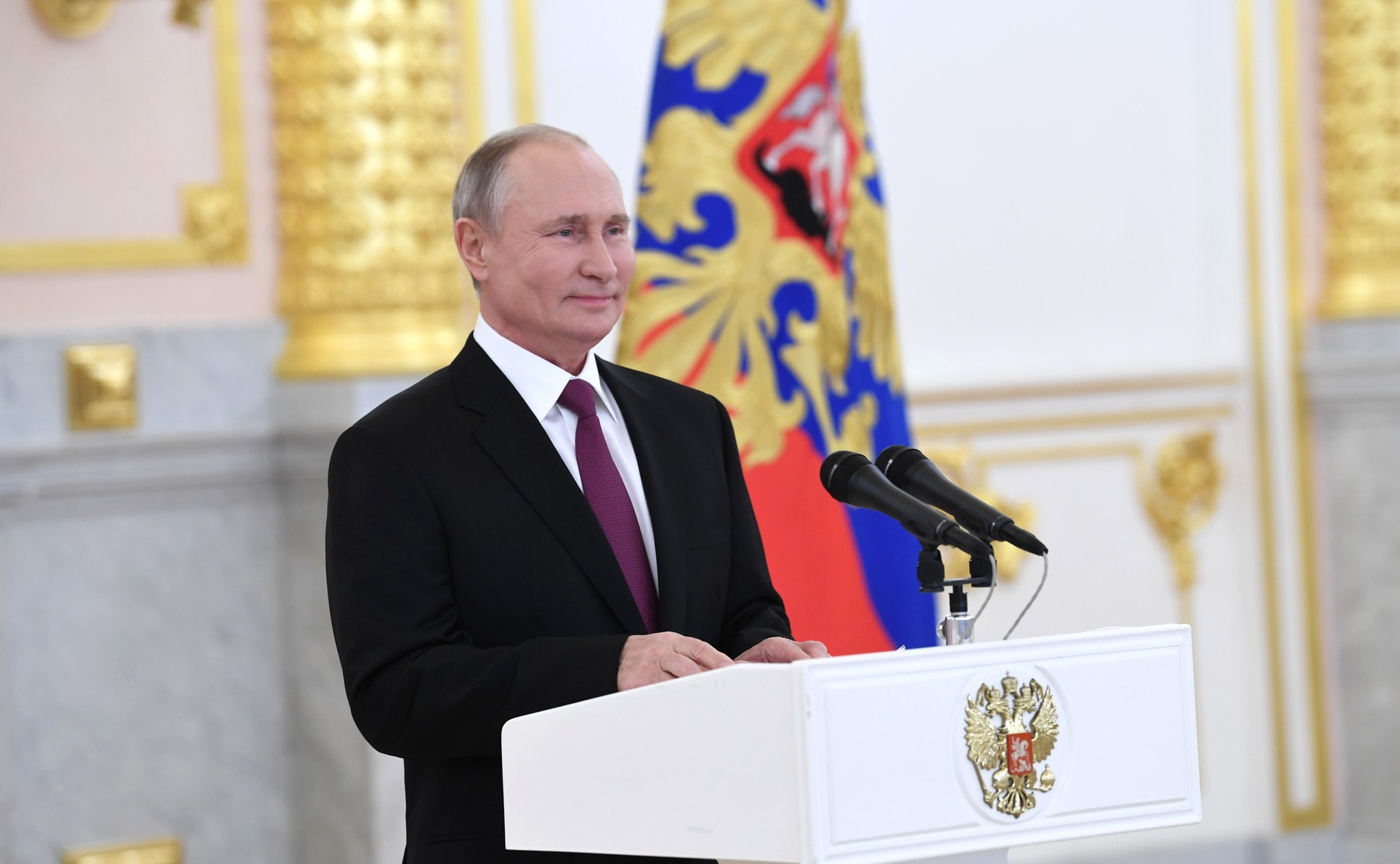 Gentlemen, I have mentioned just a few aspects of Russia's relations with the states you represent. These are just small parts of the broad field of interaction we enjoy with your countries. We look forward to seeing these relations develop dynamically with your active participation for the benefit of the peoples of our countries and in the interest of international security and stability. I sincerely wish you every success in your work in Russia, all the best and, of course – the most important wish today – good health. Gentlemen, I think we will still be able, as is customary during the ceremony for presenting the letters of credence, to raise our glasses of champagne – of course, those of you whose religion allows it, and those whom it does not can talk and shake hands. I want to wish you all the best once again. Despite the fact that right now the weather in Russia, at least in Moscow, might look gloomy at first glance, life in Moscow, including political life, continues unabated. I am sure that you will have a lot to enjoy, and that you will personally benefit from spending this period of your lives here. Thank you very much for your attention. All the best. I congratulate you on starting your work in the Russian Federation. Good luck. The source of information - http://en.kremlin.ru/events/president/news/64486 Telephone conversations with Prime Minister of Armenia Nikol Pashinyan and President of Azerbaijan Ilham Aliyev On November 23 and 24, Vladimir Putin had telephone conversations with Prime Minister of the Republic of Armenia Nikol Pashinyan and President of the Republic of Azerbaijan Ilham Aliyev. November 24, 2020 - 16:55 The parties held in-depth discussions on the results of the November 21 visits by a Russian interdepartmental delegation to Yerevan and Baku and the implementation of the Statement signed by the leaders of the three countries on November 9. They also spoke about the modalities of the Russian peacekeepers in Nagorno-Karabakh and further measures to provide humanitarian aid to the people. Other issues addressed included economic interaction and reopening transport routes in the region. The source of information - http://en.kremlin.ru/events/president/news/64489 Telephone conversation with President of Turkey Recep Tayyip Erdogan Vladimir Putin had a telephone conversation with President of Turkey Recep Tayyip Erdogan at the initiative of the Turkish side. November 24, 2020 - 22:30 The presidents discussed in detail all aspects of implementing the agreements fixed in the November 9 Statement of the Presidents of Russia and Azerbaijan and the Prime Minister of Armenia on Nagorno-Karabakh. Vladimir Putin informed the Turkish President about the activities of the Russian peacekeepers that are effectively ensuring the ceasefire and the security of the civilian population. The Russian leader also emphasised the priority of resolving urgent humanitarian problems related to the return of refugees, the restoration of the infrastructure and preservation of religious and cultural landmarks. The Presidents exchanged views on the continuing efforts to establish a centre to monitor the ceasefire and to prevent hostilities in the conflict zone. Both leaders noted the need to consistently and fully carry out the decisions aimed at ensuring stability and restoring peaceful life in the region. They also reviewed urgent bilateral issues, laying emphasis on the importance of stepping up trade and economic ties. The presidents expressed their desire to continue cooperation in countering the coronavirus pandemic. They emphasised the priority task of coordinating efforts on developing, producing and administering vaccines. The Presidents agreed to continue contacts via different channels. The source of information - http://en.kremlin.ru/events/president/news/64491
__________________
Where should they dig the Very Deep Pit? Piglet said that the best place would be somewhere where a Heffalump was, just before he fell into it, only about a foot farther on. (c) Alan Alexander Miln |
|
|
#154 |
|
Senior Member
|
Meeting with Rosneft CEO Igor Sechin
The President had a meeting with Rosneft CEO and Chairman of the Management Board Igor Sechin to discuss the implementation of the oil and gas corporation’s large projects. November 25, 2020 - 15:55 - Novo-Ogaryovo, Moscow Region 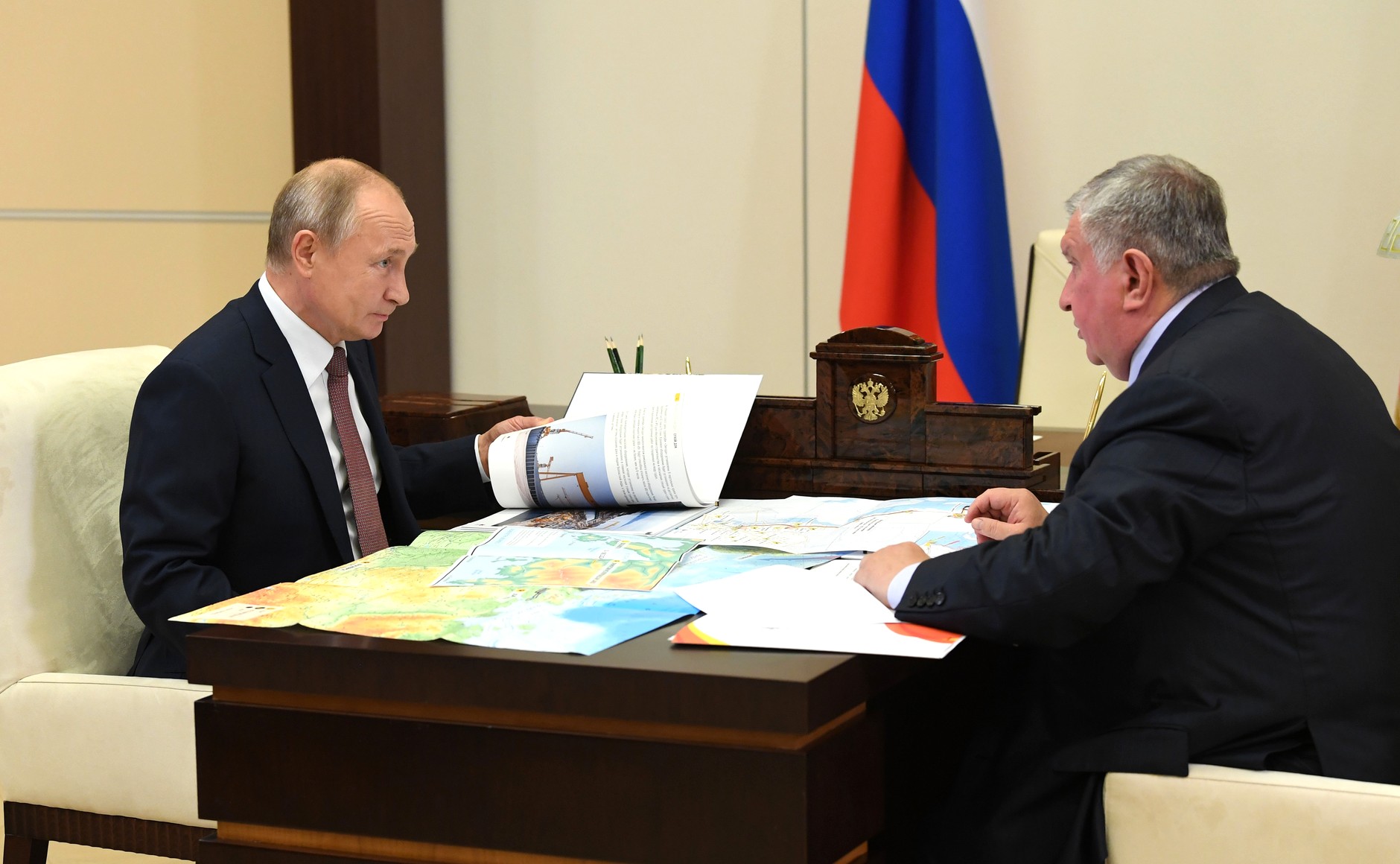 President of Russia Vladimir Putin: Good afternoon. Mr Sechin, we obviously have many issues on the agenda, but I would like you to begin with two of them: your new northern project on Taimyr, and the Zvezda Shipyard. I see that you have the necessary materials with you. One of the problems there was the environmental impact. Let us discuss both issues. Rosneft CEO Igor Sechin: Mr President, I will update you on the current status of the Vostok Oil project. But first, I would like to thank you for your attention to and support for this project, and especially for adopting the law under which the project received investment benefits. This has allowed us to create an economically effective model. I am pleased to tell you that we have started the practical implementation of this project. The region where we are doing this, some 2,500 kilometres to the north of Krasnoyarsk, is actually the sphere of our operation. We are conducting exploration work in accordance with the schedule to prepare and develop the resource portfolio. We have identified the priority sites for multiple well pads; there will be up to 150 of them at the initial stage. We are also preparing a site for oil recovery and treatment units. We have finished the survey and design stage of the project to build a pipeline, which will be 700 kilometres, or more precisely 770 kilometres long, and a port in Sever Bay. These projects will ensure the production, transportation and transhipment of up to 50 million tonnes of oil a year at the initial stage, and up to 100 million tonnes when we complete the second stage. The project’s infrastructure also includes the construction of 2,500 GW energy facilities and over 3,500 kilometres of power lines for the project. We have already signed a turnkey contract with Inter RAO for the construction of both power generation and grid facilities. The project will generate extensive synergy in Russian industrial production. We have already placed an order for 10 Arc7 ice-class tankers to ship oil produced by this project. In total, there will be 50 vessels of different types servicing the project, including harbour craft, logistics vessels, large tankers and even LNG carriers. In the interests of Vostok Oil, a long-term contract was signed on delivering up to 100 drilling units produced in Russia. These machines are equipped with modern geolocation and geosteering systems that can be bound to a specific drilling point. They stand on a hydraulic platform, which ensures more precise drilling, greater drilling speed, higher efficiency and less risk of accidents. The drilling unit has a modular structure. Thanks to its compact size, it is almost half the size of a regular drilling rig; therefore, the investment cost of a well cluster will be 30 percent lower. It is a two-level Arctic-type drilling unit with wind protection. We have already tested it by drilling the 31st well in the West Irkinskoye area. We had talks with KAMAZ. I spoke to Sergei Kogogin. We are going to extend our long-term supply contract with KAMAZ, which will provide additional equipment. The company will deliver 2,500 pieces of machinery, special-purpose equipment and cranes at the first stage. Subsequently, the total quantity may increase to 6,000 units. Organising specialised maintenance centres at the locations where the machinery will operate is an important condition of our agreement with Mr Kogogin. It is very important to us. Vladimir Putin: Will the company do it? Igor Sechin: KAMAZ will support and maintain its machinery at our locations. We discussed procuring helicopters as a means of transportation for the project with Rostec CEO Sergei Chemezov. Considering the fleet we already have, we spoke about getting around 50 new helicopters at the first stage. Overall, we will need to deliver 6 million tonnes of pipe of different diameters, both for mains and for infield pipelines as well as drill pipes and casing. This will increase the workload for our metal companies and pipe producers by over 20 percent. The project is to create tens of thousands of new jobs. It will take over 400,000 people to develop the field, including 130,000 company personnel and our contractors’ employees, plus the new jobs to be created for the project. Fifteen new towns will be built with essential infrastructure for our oil workers who will stay there in shifts. To implement the project on schedule in terms of cargo shipment objectives set for the Northern Sea Route, we have pledged to deliver up to 30 million tonnes to the Northern Sea Route via Sever Bay by 2024. This is why it is so important for our contractors to have access to loans – not for us, but for our contractors, the equipment manufacturers who need floating capital to get started. In this connection, I would like to ask you to help expedite the settlement of some issues in this sphere, because the existing system of support based on the leasing instruments of the State Transport Leasing Company (GTLK) will hardly be able to deal with the volumes involved in this project. Mr President, I will later report on this additionally. Vladimir Putin: All right. What about the Zvezda shipyard? Igor Sechin: Mr President, here is a map of the project. This is how the completed dry dock looks. It is currently the most modern dockyard in Russia. Vladimir Putin: Is it the largest? Igor Sechin: Yes, it is the most modern and the largest. Mr President, it is not just a dockyard but an entire manufacturing complex. Vladimir Putin: No, I was asking about the dry dock. The largest dry dock. Igor Sechin: As for the dry dock, we have completed construction and are at the pre-commissioning stage. It is a unique structure, 485 metres by 114 metres and 14 metres deep. Vladimir Putin: It is big enough to build aircraft carriers. Igor Sechin: Mr President, we have laid down the icebreaker Leader there. Currently, we have completed casting concrete for the dock’s walls and bottom and are completing the service gallery. We have assembled a unique Goliath crane at the dry dock; it is the second one, with a capacity of 1,200 tonnes. Tower cranes have been manufactured and delivered to the shipyard, and a caisson for floating out finished vessels has been installed. The construction of the new shipyard is continuing alongside production activities. Right now, 53 orders are in progress at the shipyard. It is important to note that an entire cluster of high-tech production facilities, manufacturing the most advanced equipment, has been established around the shipyard. You have been there, and you know that they turn out screw-propeller and rudder columns, a dynamic positioning system, and other equipment. And now, I would like to say a few words about fulfilling your instructions to provide the Zvezda complex with sheet steel. Mr President, I would like to inform you that this project is underway. We have selected a site right here. Vladimir Putin: I see. This is Sukhodol. Igor Sechin: It is located in a nearby harbour. МСС International Incorporation, a major company, has completed a feasibility study. They have decided that it is appropriate to build this facility in this area because we lack such production facilities. A new steel mill with a capacity of 1.5 million tonnes will be built, with the shipyard using about 330–350 tonnes, and new regional companies will also be able to use these facilities, which will manufacture sheet metal and pipes. Sukhodol Harbour has been selected as the most feasible site, near Bolshoi Kamen Harbour, home to Zvezda. Overall, we will, of course, have to build additional power-generating facilities for the steel mill. We would like to request social support, including housing and roads. This new production facility will employ about 1,500 people. The developer estimates this project’s preliminary cost at about $2.2 billion. What presume that it will be necessary to finance this project. Regarding support for this project, we need assistance in registering land plots as new construction sites and some assistance regarding housing and infrastructure. Vladimir Putin: All right, let us discuss all these aspects in detail. The source of information - http://en.kremlin.ru/events/president/news/64493 Greetings on opening of 17th Moscow Meets Friends International Festival Vladimir Putin sent greetings to the participants, organisers and guests of the 17thMoscow Meets Friends International Festival. November 25, 2020 - 19:00 The message reads, in part: “Your project, with its noble and truly selfless mission, unites talented children who dream of pursuing the arts, helps them believe in themselves and their strengths, and provides active support in professional direction. It is important that this year, in spite of the difficult epidemiological situation, the tradition of holding the festival has continued, and in the next few days, thanks to the efforts of Vladimir Spivakov and the foundation that he manages, engaging and interesting artistic events will take place at concert venues and online, featuring gifted children.” The source of information - http://en.kremlin.ru/events/president/news/64495 Opening ceremony for large-scale pharmaceutical production facility Vladimir Putin attended, via videoconference, the opening ceremony for a new large-scale pharmaceutical substances facility at the BratskChemSyntez factory of the Pharmasyntez Group of Companies. November 26, 2020 - 12:10 - Novo-Ogaryovo, Moscow Region 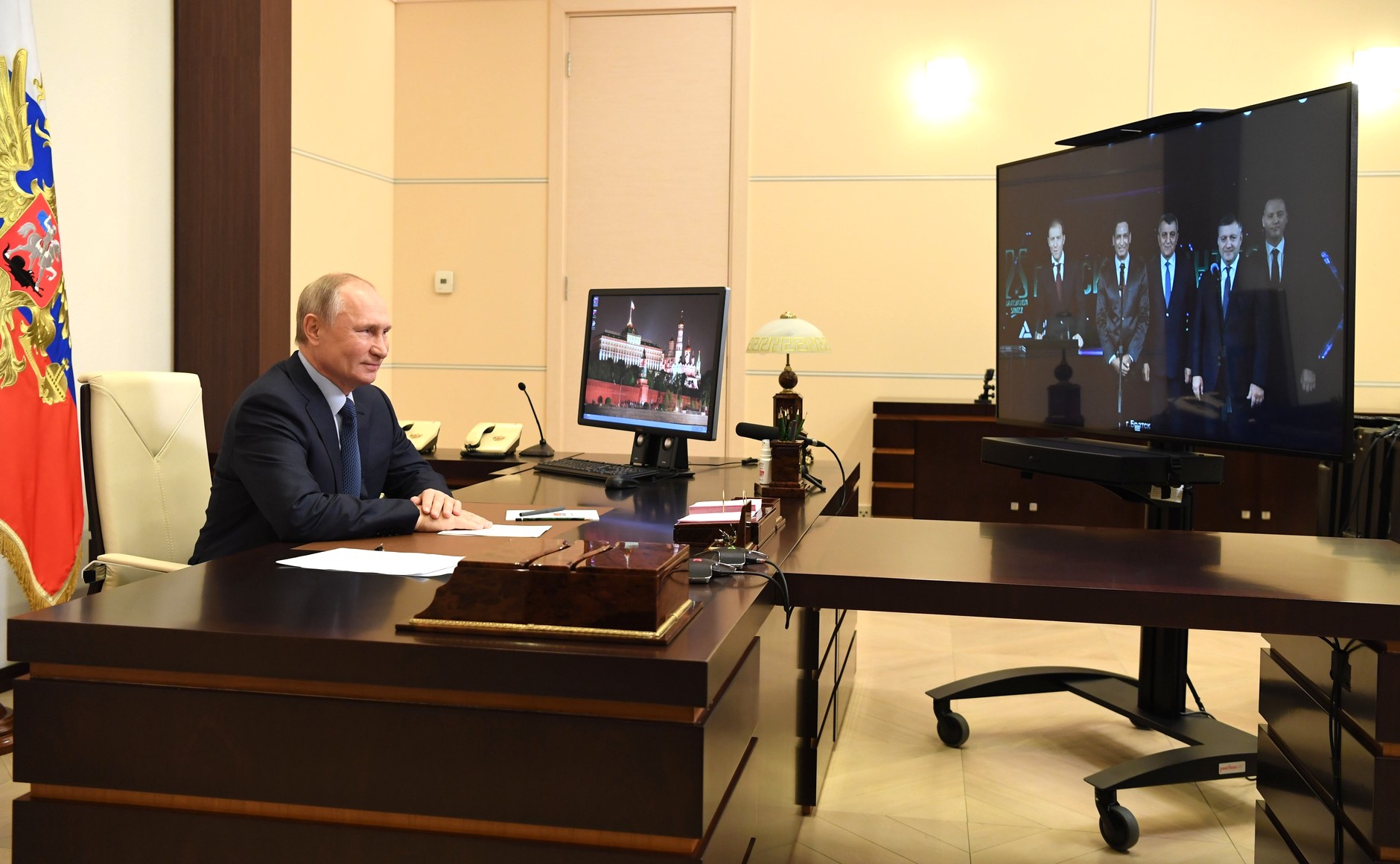 President of Russia Vladimir Putin: Good afternoon, friends. I am delighted to welcome you, especially for a positive event, because today a new modern facility for the production of pharmaceutical substances is opening at BratskChemSyntez factory, a facility of the Pharmasyntez Group located where you are now in Irkutsk Region. I would like to begin by saying that increasing the capabilities of the national pharmaceutical industry, to which we have always given serious priority, is of vital significance for the country and the people, especially at this time, as we are all aware. Therefore, first of all I would like to thank all those who were involved in the implementation of this large-scale project. The Minister and the Prime Minister told me just the other day about the company, this facility and your capabilities. The new facility that is being launched today will allow us to increase the production of effective high-quality medications, including those used in the treatment of the coronavirus, tuberculosis, diabetes, hepatitis and other serious diseases. People need these medications virtually every day. I would like to point out that your company is greatly contributing to the replacement of imported medications and increasing their affordability for people. Last but not least, the development of such high-tech pharmaceutical facilities brings about new jobs, greater demand for forward-looking technologies and the products of our research teams, stronger export positions for Russia and, of course, growth zones in the regions. We will continue to support such projects and set such objectives to our development institutions. We have been implementing a programme for the development of our pharmaceutical industry for many years, and I know that it has been quite effective in your case and has provided the necessary assistance. I hope you will talk about this today. We must continue creating comfortable, stable and predictable conditions for the work of businesses and investors in this sphere, for partnership between our companies and with foreign partners, and we must also establish platforms for the work of our researchers and educational centres. All of this is a very large and vitally important complex for the nation. In conclusion, I would like to once again thank you all for the results of your work. And of course, I would like to wish you every success and all the best. Go ahead, please.  Minister of Industry and Trade Denis Manturov: Mr President, You described the expansion of domestic pharmaceutical production as the main goal for the development of the pharmaceutical industry as early as in 2015. Now we are facing the task of mastering the full-scale manufacture of 215 strategically important medications from the new list that has recently been approved by the Government. We are already producing more than half of these substances. We managed to achieve a similar result with a much broader range – life-critical medications. Almost half of them are also fully based on domestic primary products and are now being produced by over 40 Russian companies. As you know, Mr President, we are paying special attention to new projects that allow us to increase the level of localisation and broaden the range of domestically produced medications as much as possible. In the past three years, about 4 billion rubles of budget investment have been directed towards such projects via a state programme and development institutions. In addition, companies invested about 5 billion from their own funds for this purpose. By launching new capacity, this company alone will be able to achieve a fivefold increase in production. As for the range of pharmaceuticals produced by that company in general, their sectoral amount will instantly double. I am referring to the 32 socially important medications that you have mentioned that have already been produced: TB, hepatitis, and diabetes as well as 15 items that the company will manufacture next April for cancer treatment. At the same site, the company is launching the synthesis of substances for anti-COVID medications. Owing to its new capacities, the company will produce over 100,000 packs of the much sought after favipiravir by the end of December. Next year, it will be able to produce about 600,000 packs of this medication. The company is also ready to produce at least nine tonnes of substances for antibiotics a year. The company is planning to master the production of several new items from the recent list of medications recommended for treating COVID. President of the Pharmasyntez Group of Companies Vikram Punia will report on this. Vladimir Putin: Mr Punia, please. 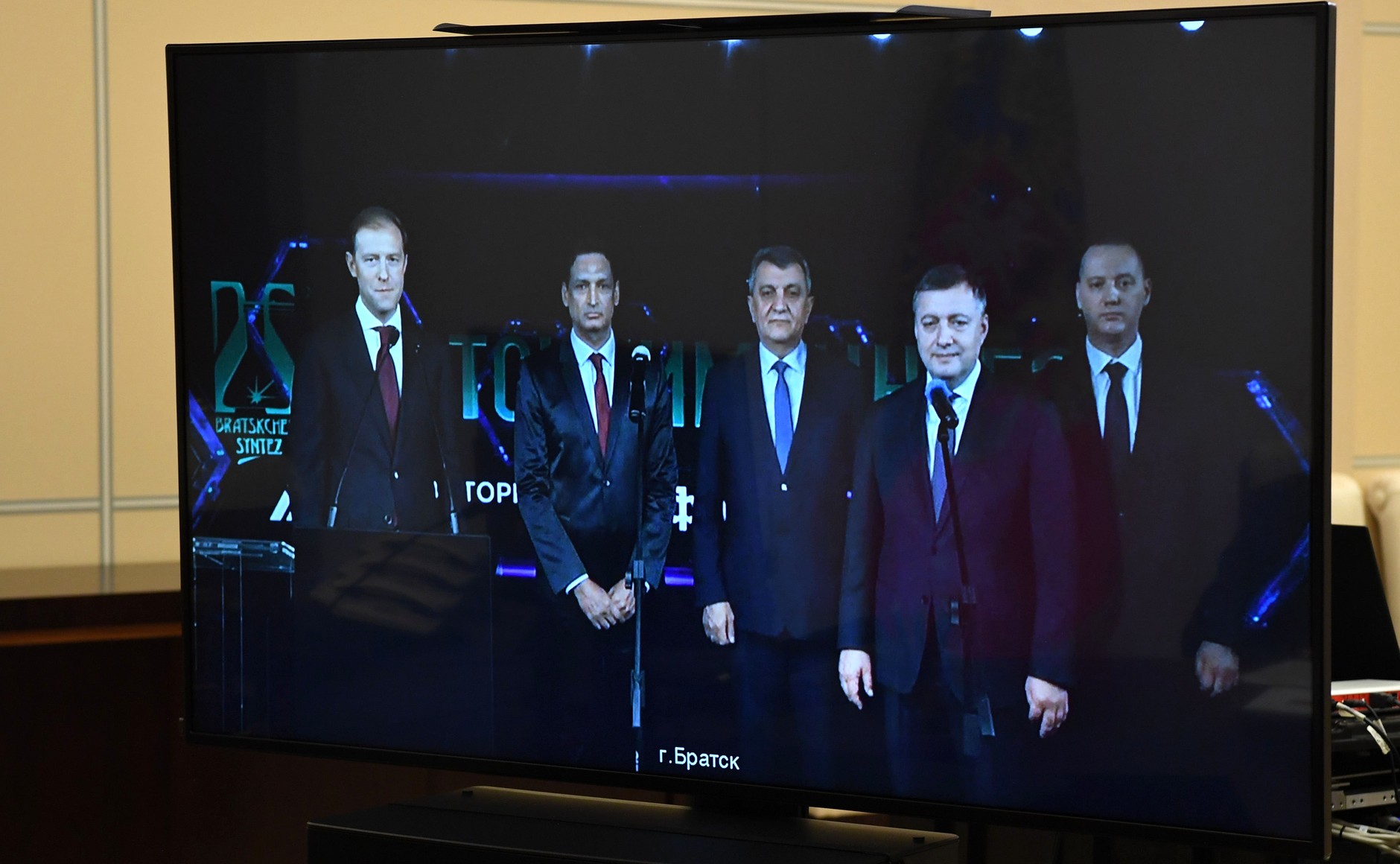 President of the Pharmasyntez Group of Companies Vikram Punia: Good afternoon, Mr President. I would like to begin by thanking you for finding the opportunity to attend the opening ceremony of the BratskChemSyntez pharmaceutical substances facility. For any producer of finished pharmaceutical products, the production of pharmaceutical substances amounts to moving up to a higher level. Synthesising raw materials is a much more complicated job than producing finished medications. In our case, it was an immensely difficult job indeed, because the company only produced finished medications before and did not have the synthesis competencies: we did not have the necessary technology or personnel to do this. In fact, we had to create a new culture, the culture of producing high-tech pharmaceutical substances. Actually, we had been working on this project for five years. We cooperated with universities, institutes and various other partners through the Industry and Trade Ministry and other institutions. Eventually we reached our goal: today we are ready to launch a large-scale facility for the production of pharmaceutical substances. We can turn out modern substances for the production of antiviral medicines such as Favipiravir, Lopinavir and Ritonavir, as well as antibacterial medication such as Linezolid, Levofloxacin and Moxifloxacin. Incidentally, these medications have been recommended by the Healthcare Ministry for the treatment of COVID-19. In my opinion, BratskChemSyntez is a kind of a springboard for us, because the new facility can produce approximately 100 tonnes of substances a year. With this knowledge, and aware of the manufacturing difficulties this entails, we are preparing to design a new facility with the capacity of over 1,000 tonnes of pharmaceutical substances. Mr President, this is more than 8 percent of the substances the country is using now. Of course, we have achieved these results thanks to state assistance. In particular, I would like to express gratitude to the Russian Government and the Ministry of Industry and Trade. We received various forms of support, including a lease payment subsidy, a subsidy from the Irkutsk Region administration, connection to power lines, the construction of roads towards the factory, and so on. In addition, the Industrial Development Fund allocated us the country’s first loan worth 300 million rubles at a very low interest. These factors will have a powerful effect on our further development. Mr President, I have one more request for you. In fact, as you know, according to the results of the Pharma-2020 state programme, significant progress has been made in the country's pharmaceutical industry. If we look at where we were in 2010 and where we are now, these are two completely different levels. We have achieved so much, real success, especially in generic drugs manufacturing, and as you know, more than 80 percent of vital drugs are now made in the Russian Federation. Mr President, as someone familiar with the industry, I would like to suggest that we continue this progress – and the progress can only continue if we adopt the Pharma-2030 programme in full, the way it was written by the pharmaceutical community and the Ministry of Industry and Trade. Because I am sure, again, as someone competent in the pharmaceutical industry, I can say with confidence that if the Pharma-2030 programme is implemented, Russia will become one of the leaders among the biggest pharmaceutical powers. I can say this with certainty, with over 25 years of experience in the pharmaceutical industry. Thank you. Vladimir Putin: Thank you very much. I have looked at your company’s work. We are always watching the pharmaceutical industry of course, but your company, indeed, focusing mainly on generics, is increasingly developing its own facilities and expanding the capacity for original projects. This is very important because it consolidates our independence, especially with regard to vital drugs. Indeed, I am looking through my reference here, you already manufacture 170 types of medicines and indeed, I can confirm, 80 percent of those are on the list of vital and essential drugs. There is something I would like to thank you for especially – the facilities established in various Russian cities, not only in Irkutsk Region, where you are located, but also in Ussuriysk, Tyumen, St Petersburg and Bratsk. You started preparing the expansion before (you have been on the market for a long time), but this large internal development programme did not start until 2014. I know that you plan to reach full capacity at this facility in 2021. But you are certainly right: we need to extend the pharmaceutical industry’s development programme. We formulated this programme, and the Minister said that we started drafting it in 2015–2016. Is that so, Mr Manturov?  Denis Manturov: In 2010, Mr President. You set us the task of starting with generics. In 2015, you instructed us to start converting to original medications and, most importantly, substances. Vladimir Putin: That is clear. When did we allocate the funding? When was this programme formulated? Denis Manturov: Since 2010. Vladimir Putin: That is right. Of course, we should now think what we are going to do until 2030, and how. We must certainly do this, and this is a good proposal. So, we will certainly think about this together with you and your colleagues overseeing the Russian pharmaceutical industry. Mr Kobzev, you have the floor. Irkutsk Region Governor Igor Kobzev: Mr President, Production facilities have reached design capacity, and this is an important milestone in the history of the enterprise and Irkutsk Region, but also, considering the scale, of the entire national pharmaceutical sector. We are particularly pleased to note that Irkutsk Region is home to these high-level production facilities. This means not only jobs, employment, but a positive social environment in Bratsk. The 150 people already working at these enterprises support 150 families who are raising children and building a future. The number of jobs will eventually reach 250. Today, the development of enterprises creating modern jobs and providing social support for employees is the foundation of any region’s socioeconomic development. We aim to establish and expand new production facilities and projects. This will make it possible to strengthen the region’s economy, to create thousands of jobs and give young people a good start in their lives and careers. Mr President, in conclusion, I would like to thank you, the Government of the Russian Federation, the Ministry of Industry and Trade and Mr Manturov personally, and our investors, including Vikram Punia, for paying special attention to Irkutsk Region and for quickly resolving matters at this difficult time for all of us. Thank you. I would like to congratulate everyone once again. Vladimir Putin: Thank you. Mr Manturov, you have the floor. 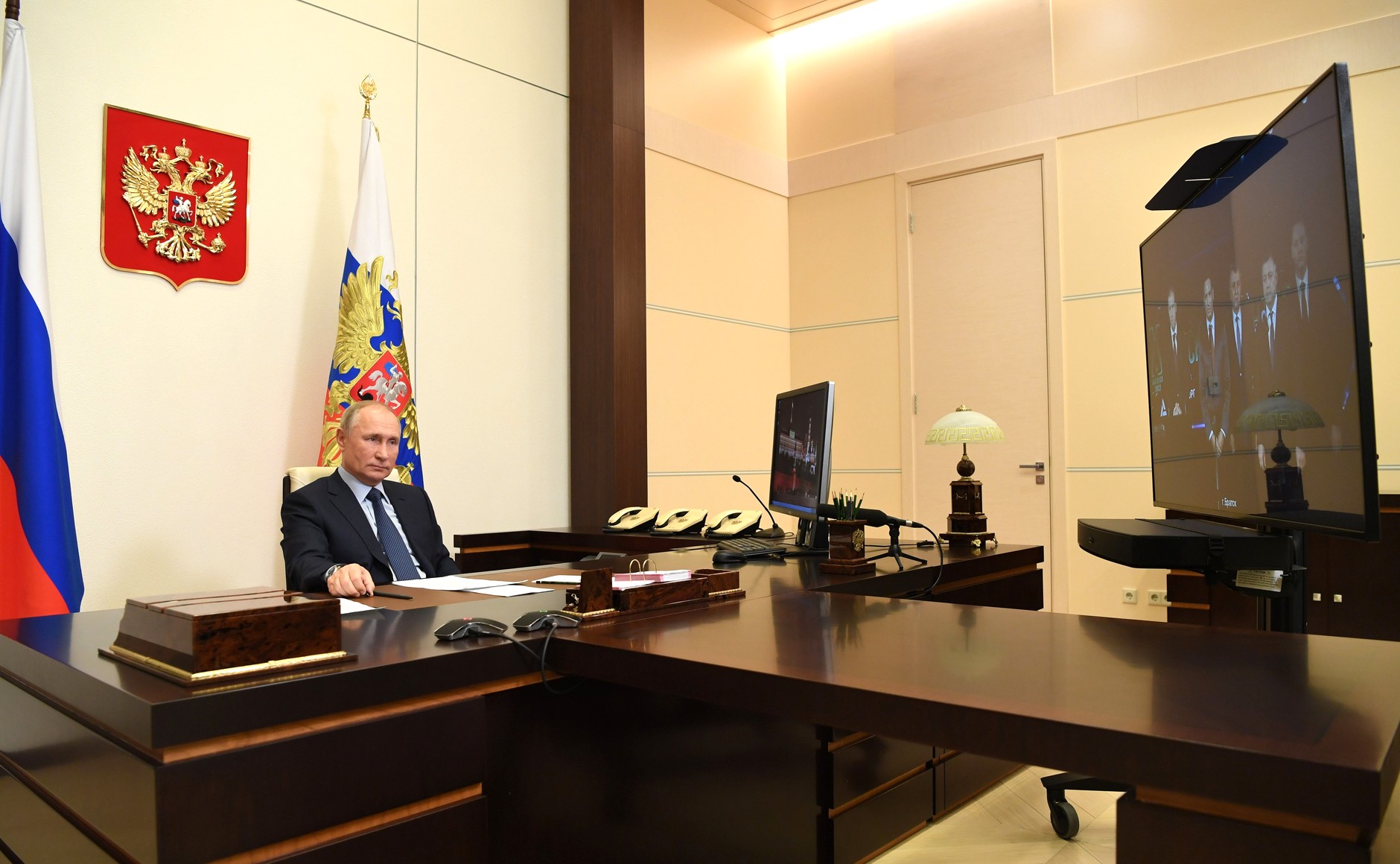 Denis Manturov: Mr President, please allow us to launch production. Vladimir Putin: You can begin. Congratulations once again, everybody. As far as I know, the first stage was designed to manufacture ten tonnes of medications. The second stage, to be completed in 2021, is to produce 120 tonnes and 45 types of medications. This is a serious step forward. I expect that we will together do everything possible to take this step. As our colleague has just noted, we will think about the subsequent steps of the entire national pharmaceutical industry until 2030. Congratulations once again, and I wish you all the best. Thank you very much. The source of information - http://en.kremlin.ru/events/president/news/64497 Working trip to Sarov Vladimir Putin arrived in Sarov, Nizhny Novgorod Region, on a working trip. November 26, 2020 - 18:00 - Sarov 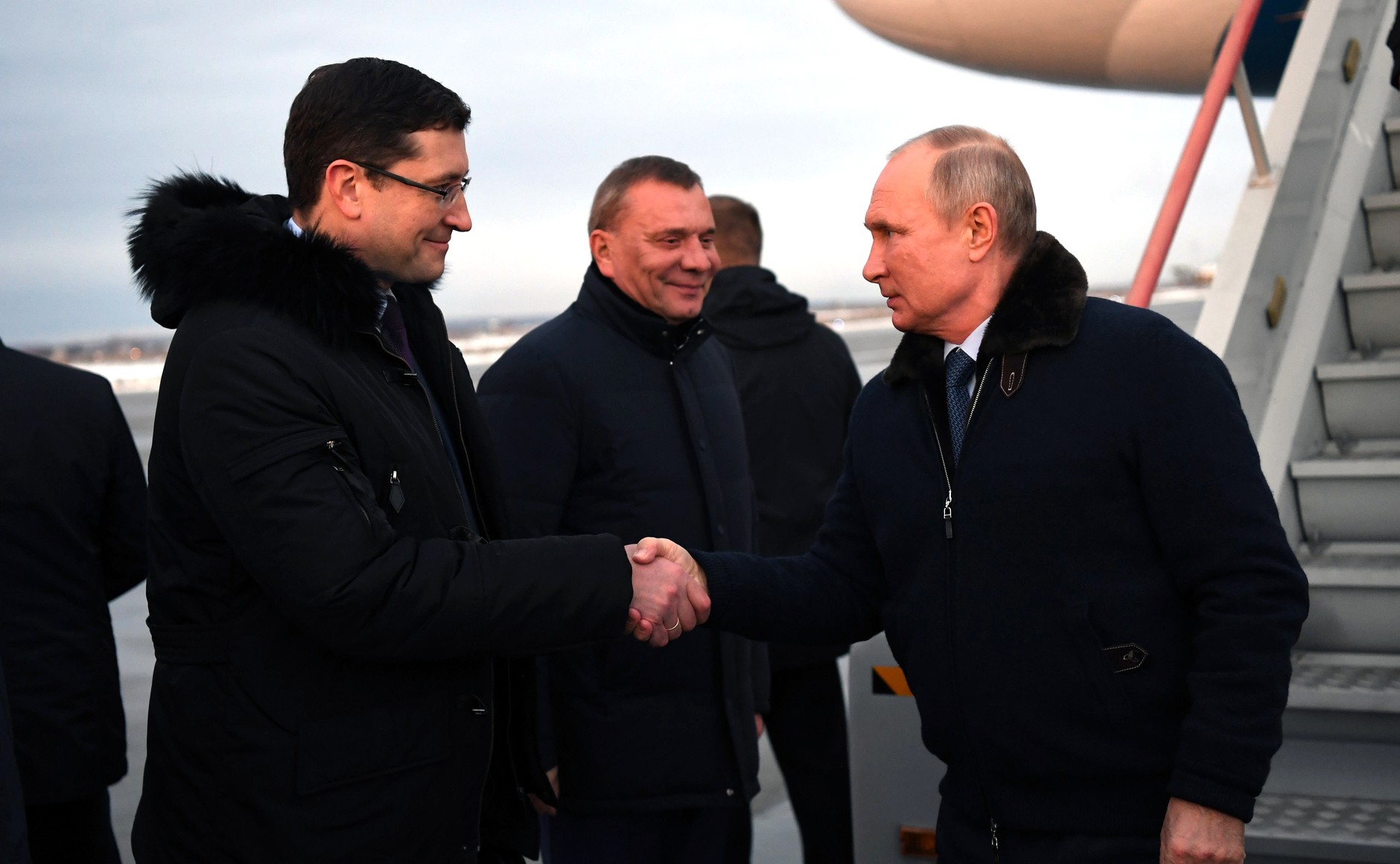 The President toured the Russian Federal Nuclear Centre – All-Russian Scientific Research Institute of Experimental Physics, laid flowers at the monument to Yuly Khariton, one of the creators of the Soviet nuclear project, and examined digital products of Rosatom State Corporation. 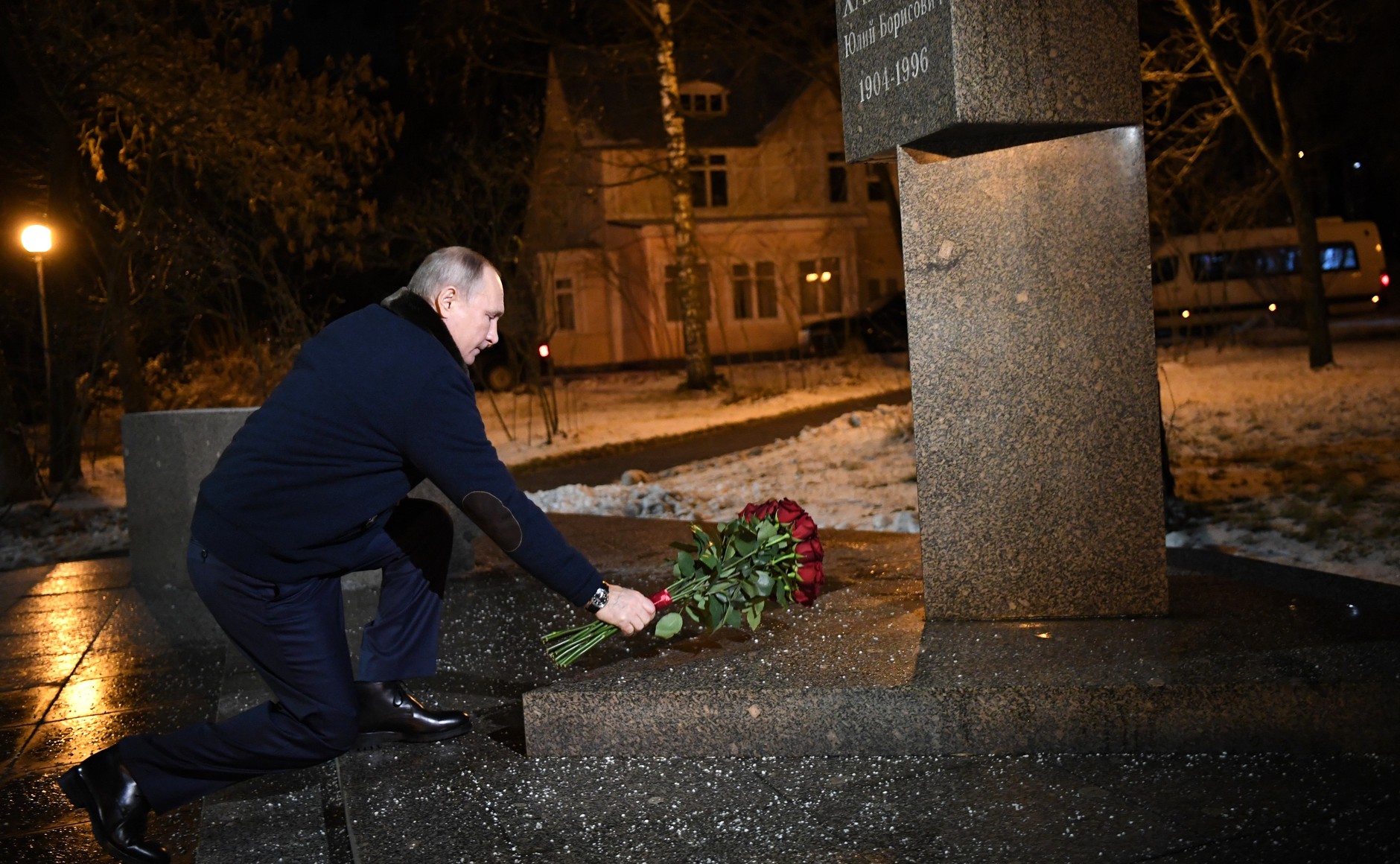   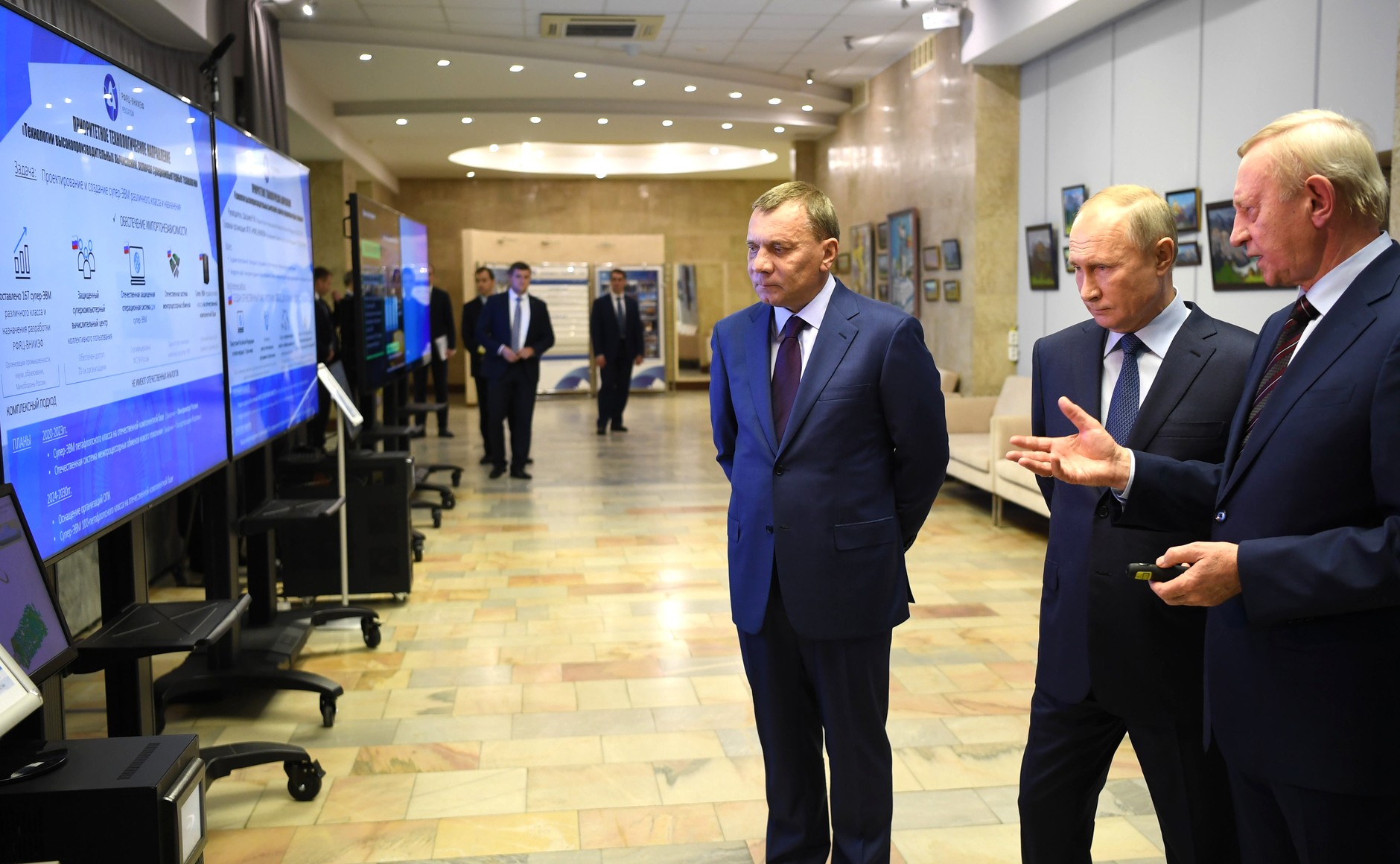 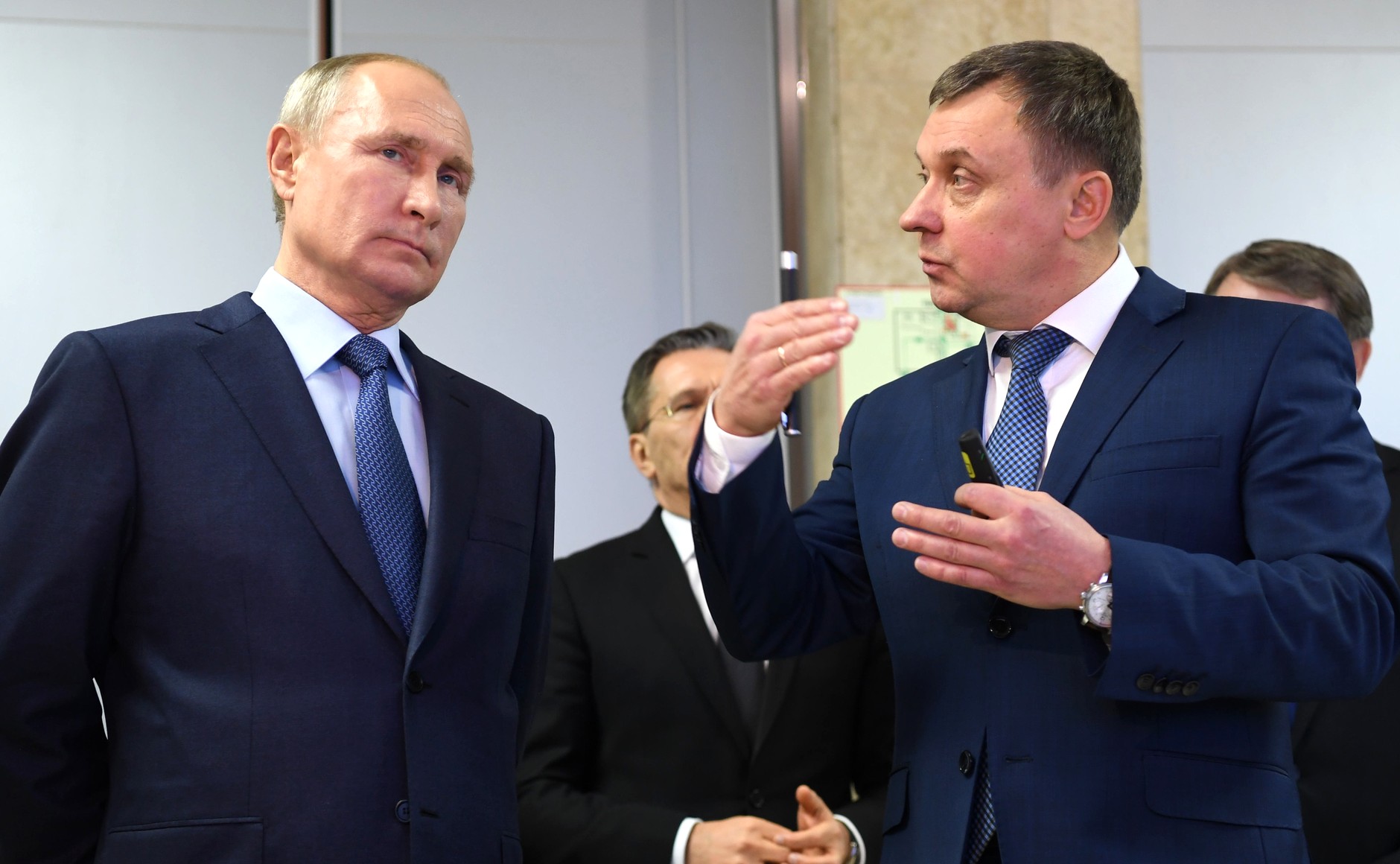 Later in the day, the President held a videoconference meeting at the nuclear centre on the progress in eliminating the accumulated damage to the environment in Usolye-Sibirskoye and met with Nizhny Novgorod Region Governor Gleb Nikitin. The source of information - http://en.kremlin.ru/events/president/news/64500 Meeting on eliminating damage to environment in Usolye-Sibirskoye The President held a videoconference on eliminating the accumulated damage to the city of Usolye-Sibirskoye in Irkutsk Region. November 26, 2020 - 21:00 - Sarov  The meeting took place at the Russian Federal Nuclear Centre – the National Research Institute of Experimental Physics, which the President visited during his working trip to Sarov. President of Russia Vladimir Putin: Last summer, I believe it was in July, we discussed the environmental situation in Usolye-Sibirskoye. Due to the chemical waste accumulated there for decades, since the Soviet times, the situation was very dangerous and posed a great threat to nature, and, most importantly, to the people, to the health of tens of thousands of people living not only in the city but also in the adjacent territories and settlements. The scale of the problem required the involvement of federal government bodies. Following that meeting, we adopted a number of decisions – both urgent and system-wide, of a long-term nature. Priority was given to measures on decontaminating the dangerous facilities and protecting the people while ensuring the continuous operation of the municipal economy, preserving employment for the entrepreneurs working on this territory as well as workers, the people who live there. As we agreed, later it will be necessary to conduct serious well-coordinated work on eliminating the dangerous facilities, thoroughly clean and reclaim the polluted lands and water sources and, what is very important, to create conditions for the sustainable long-term socioeconomic development of Usolye-Sibirskoye. An interdepartmental working group headed by [Deputy Prime Minister] Viktoria Abramchenko has been created to this end, and the Defence Ministry and the Emergencies Ministry’s forces and resources have been mobilised. The National Guard has been brought in to guard the facilities as well. A roadmap for neutralising hazardous chemicals and structurally deficient storage facilities has been approved, and the necessary budget funds and resources have been set aside. 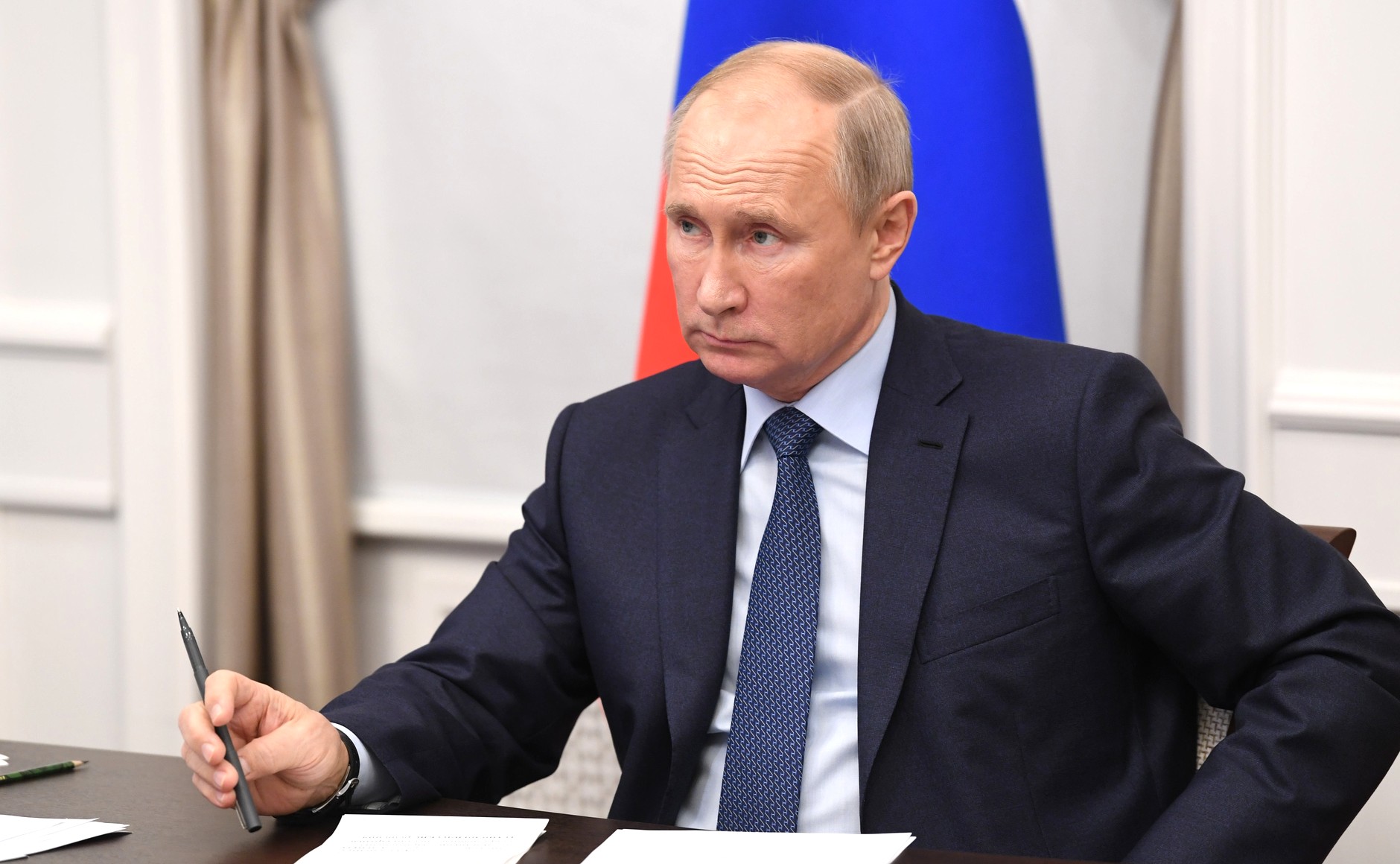 The key role in dealing with the aftereffects went to Rosatom; this is why the head of Rosatom is here with me in the office. Taking into account its expertise and unique competencies, Rosatom obtained the mandate as the sole contractor for all work in Usolye-Sibirskoye. Today, we are meeting in this format precisely because my colleagues and I are sitting in one of Rosatom’s most important and largest facilities. To reiterate, we should not confine ourselves to decontaminating the grounds of the facility in Usolye-Sibirskoye. I am aware that Rosatom’s plans include creating a modern environmentally-safe production and industrial complex, which will be instrumental in opening modern enterprises and creating new well-paid jobs for the local residents. Overall, this should give a strong boost to developing Usolye-Sibirskoye. I would like to emphasise once again that all of us present at this meeting must keep this situation under personal control at all times, and I plan to do the same, because this is an emergency situation. Almost each of you reported about the developments in your area of responsibility. This is a grave situation, and this project cannot be approached just as another project in progress. Today, I would like to hear your reports on the current activities, as well as what additional measures you think should be taken in order for us to achieve our goals. Let's get started. <…>  Vladimir Putin: In conclusion I would like to say the following. First of all, I would like to thank all of you for your contribution, primarily Ms Abramchenko for actively taking on this job and for properly organising all the necessary activities. Indeed, over a short period of time all bodies of power have joined this project, with experts, researchers and ecologists being involved as well. This consolidated joint work is producing certain results. It boils down to localising and clearing up the most dangerous objects. This is the most important part, of course. The spread of the toxic patch and the movement of chemicals into water bodies have been stopped. Otherwise, the consequences would have been unpredictable. Essentially, you have prevented the risk of a real environmental disaster, if not catastrophe. This is the main thing. As a result of these efforts, a direct threat to the lives and health of the people living here has been lifted. I hope that this is so. I can see that this is so from all the documents and reports, yet I would like to repeat what I said at the beginning: we must not slacken our efforts. I can see on the picture here that the barrier which Rosatom is erecting will cut the patch off from the river, but it has approached very, very closely. The situation is very serious. At the least, a failure of the city’s life support systems has been prevented, which is very important as well. I would like to once again thank all those who have been working on this, including the Defence Ministry, the Emergencies Ministry and, of course, Rosatom specialists. We talked about this today as well, but I would like to say the following in conclusion of this meeting. There are problems, large-scale problems that must be addressed, which is obvious. I would like to ask Ms Abramchenko and the interdepartmental working group to keep the situation under control at all times. We must not slacken out efforts to settle the environmental problems and continue monitoring the situation there.  As for Rosatom, I would like to ask it to continue with its comprehensive rehabilitation efforts and to attract additional funds and resources, if necessary. (Addressing Rosatom CEO Alexei Likhachev.) The proposal you have advanced here for creating an eco-tech park is, of course, a good idea, and it was logical that the mayor has taken notice of it. Additional funds and resources must be invested in the city to create conditions for a normal life and jobs for the people, who are waiting for us to do this. I hope that Rosatom’s experience and competencies will be used to attain this goal, to ensure an ethical use and recycling of the materials that have been accumulated in various industrial sectors. I have no doubt that all these measures will allow us to create a safe and comfortable living environment for the people who live there, as well as the basis for the advanced socioeconomic development of Usolye-Sibirskoye. This is what the city mayor, Mr Maxim Toropkin, who certainly represents the opinion of city residents, has said just now. I would like to wish all of you success in implementing your plans on schedule. If you come across any unexpected problems, please do not hesitate to raise them at the Government level, and I, of course, will be on hand and will get involved as soon as necessary. I would like to thank all of you. See you at the next meeting on this issue. All the best. The source of information - http://en.kremlin.ru/events/president/news/64499 Working meeting with Nizhny Novgorod Governor Gleb Nikitin During a visit to the Russian Federal Nuclear Centre – National Scientific Research Institute of Experimental Physics in Sarov, the President had a working meeting with Nizhny Novgorod Governor Gleb Nikitin. November 26, 2020 - 22:00 - Sarov 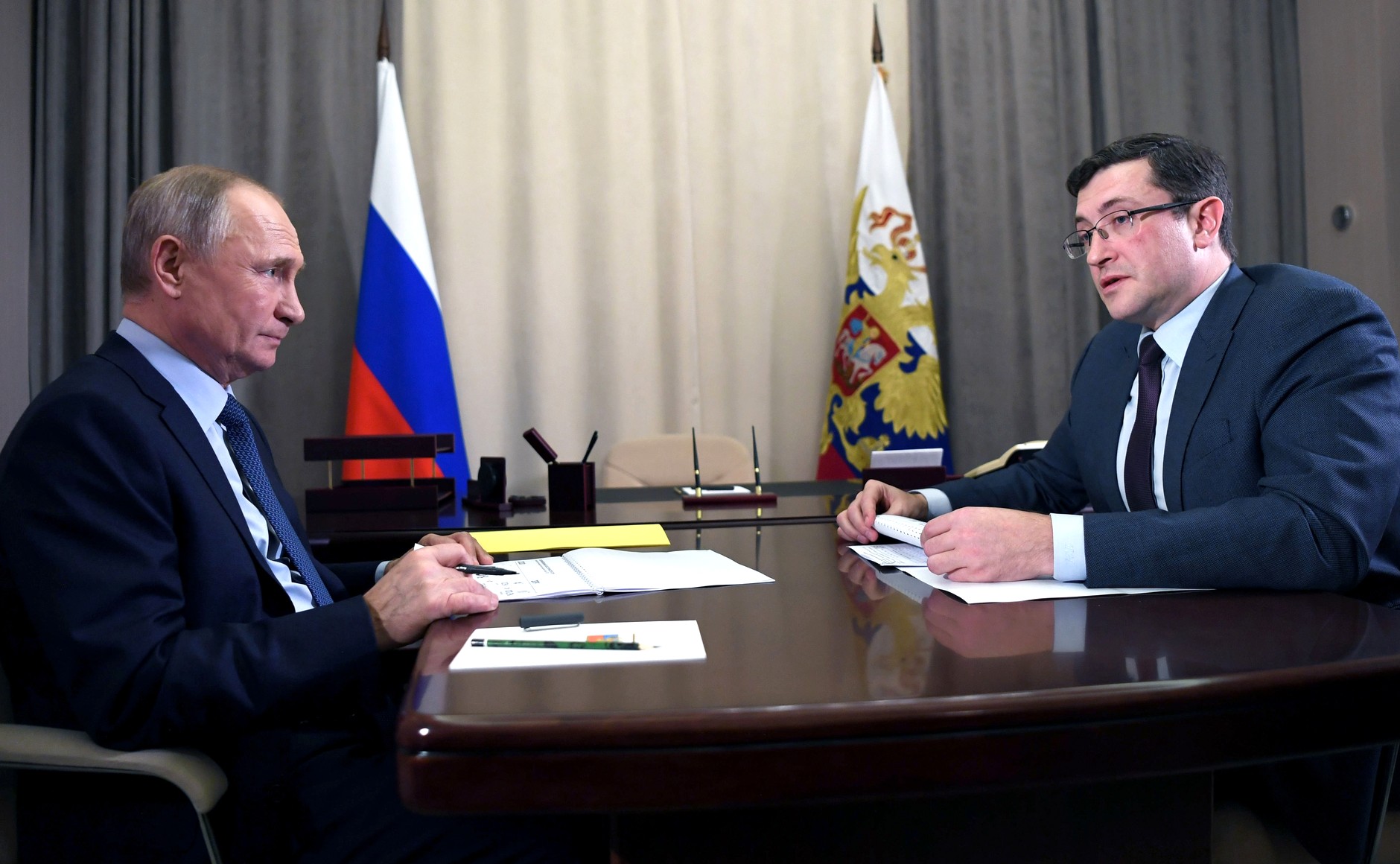 Gleb Nikitin began by reporting on the coronavirus situation in the region, in particular, testing, the number of hospital beds, the construction of a new infectious diseases complex, and payments to medical and other personnel involved in combating the pandemic. The Governor also spoke about the decision made to support economic stability, primarily when it comes to employment. He said that the unemployment rate in the region was 3.5 percent, which is lower than the country’s average. Some local industries reported a 5 to 20 percent growth, although the regional industry has declined, just as in the country as a whole, with the greatest decline reported in the automotive sector. On the other hand, investments have gone up; their physical volume has not decreased despite the economic hardships this year. Speaking about future development, Gleb Nikitin pointed out that the region was on schedule in terms of financing national projects and continued working on the new instruments that could be used to accelerate the achievement of the national goals. In particular, he mentioned housing construction and spending under the Demography project. In response to the President’s question about the environment, the Governor said the main project being implemented within the framework of the Ecology national project was the rehabilitation of the Volga and water purification facilities. It is an immensely significant project where huge funds are being invested. Another project important for the people is Clean Water, and, of course, the problem of landfills and clearing up the accumulated environmental damage. Gleb Nikitin recalled that he had been appointed by the President to head the working group on Environment and Natural Resources and made a proposal to make an inventory of such facilities across the country. Inventories are planned in the region starting from 2022; between 2024 and 2030, it is envisaged that the liquidation of such facilities will be prioritised. Three such facilities are currently being liquidated in the region, and two others have essentially been liquidated already, he said. The President expressed concern about the decreasing number of permanent residents in the region. The governor agreed that this problem was one of the main challenges. To address the situation, the quality of the environment needs to be improved and, most importantly, the people’s expectations need to be taken into account, their expectations of the future – what is happening in Nizhny Novgorod in comparison with what is happening in Moscow, around the country, and in the world. According to Gleb Nikitin, a comprehensive programme for the development of Nizhny Novgorod and its surroundings has been worked out. He admitted that the pace of housing construction was insufficient, and spoke about plans to expedite it, in particular, about the need to develop new territories. This requires the construction of new bridges across the Volga and Oka, kindergartens, schools, a new motorway, a new avenue, as well as redevelopment of historical territories – this project is supported by the Russian Ministry of Economic Development. It envisages the redevelopment of a huge, 240-hectare area which is now packed with valuable urban facilities, and this implies a new level of investment development. There is also a need for a comprehensive transformation of the transport system; this project has already been worked out as well. Research and expert work has been carried out in order to minimise the costs to budgets of all levels. All these projects are expected to yield a tangible effect: 692 billion rubles in 30 years to the state coffers. They are now being coordinated with the Presidential Executive Office, Minister of Economic Development Maxim Oreshkin and Deputy Prime Minister Marat Khusnullin. The source of information - http://en.kremlin.ru/events/president/news/64501/photos Greetings on the 90th anniversary of Moscow State Linguistic University Vladimir Putin congratulated professors, faculty, undergraduate and graduate students and alumni of Moscow State Linguistic University on its 90th anniversary. November 27, 2020 - 10:00 The message reads, in part: “Over the years, the University has come a long way towards fulfilling its creative and constructive agenda, and has earned well-deserved prestige as a major educational, research and methodology centre. The school takes rightful pride in its strong traditions, its experienced and enthusiastic teachers and, of course, its talented students. It has fostered an entire constellation of prominent scholars and public figures, politicians and diplomats, and employees of international organisations. Largely thanks to its solid research base and the most up-to-date teaching methods, Moscow State Linguistic University has been awarded the status of the Basic Educational Institution for Languages and Culture of the CIS Member States by the decision of the Council of CIS Heads of Government. I am confident that, while maintaining the connection between generations and openness to everything new, the University will continue to grow and make a significant contribution to strengthening the remarkable potential of the national higher education in humanities.” The source of information - http://en.kremlin.ru/events/president/news/64506 Congratulations to crew and cadets of sail training vessel Sedov Vladimir Putin congratulated the crew and cadets of the sail training vessel Sedov on their homecoming. November 27, 2020 - 13:30 The message reads in part: “I am sincerely happy that your expedition has ended successfully, and that cadets from different Russian cities, namely, future captains, mechanics, engine room personnel and radio transceiver operators coped with their tasks in a worthy manner, displaying excellent knowledge and fitness levels, teamwork and cohesion. On the threshold of the 100th anniversary of the legendary barque Sedov, it has been given a wonderful opportunity to conduct a trans-Arctic expedition from Vladivostok to Kaliningrad via the Northern Sea Route. A sail ship has crossed the Bering, Chukchi and East Siberian seas and the Laptev Sea for the first time in the history of navigation. Part of the route was covered under sail, without engine power. This is an unprecedented occurrence in Arctic latitudes and makes it possible to talk about the Northern Sea Route’s safety and powerful transport potential as the shortest route between western Russian regions and the Far East. I am confident that the skills that you acquired during the expedition, and unique Arctic experience, linked with work in severe natural conditions, will certainly help you in your studies and professional activity. And of course, you will remember this voyage for a long time as a bright, interesting and truly inspiring event in your life.” The source of information - http://en.kremlin.ru/events/president/news/64507 Meeting with permanent members of the Security Council The President chaired a meeting with permanent members of the Security Council via videoconference. November 27, 2020 - 14:15 - The Kremlin, Moscow 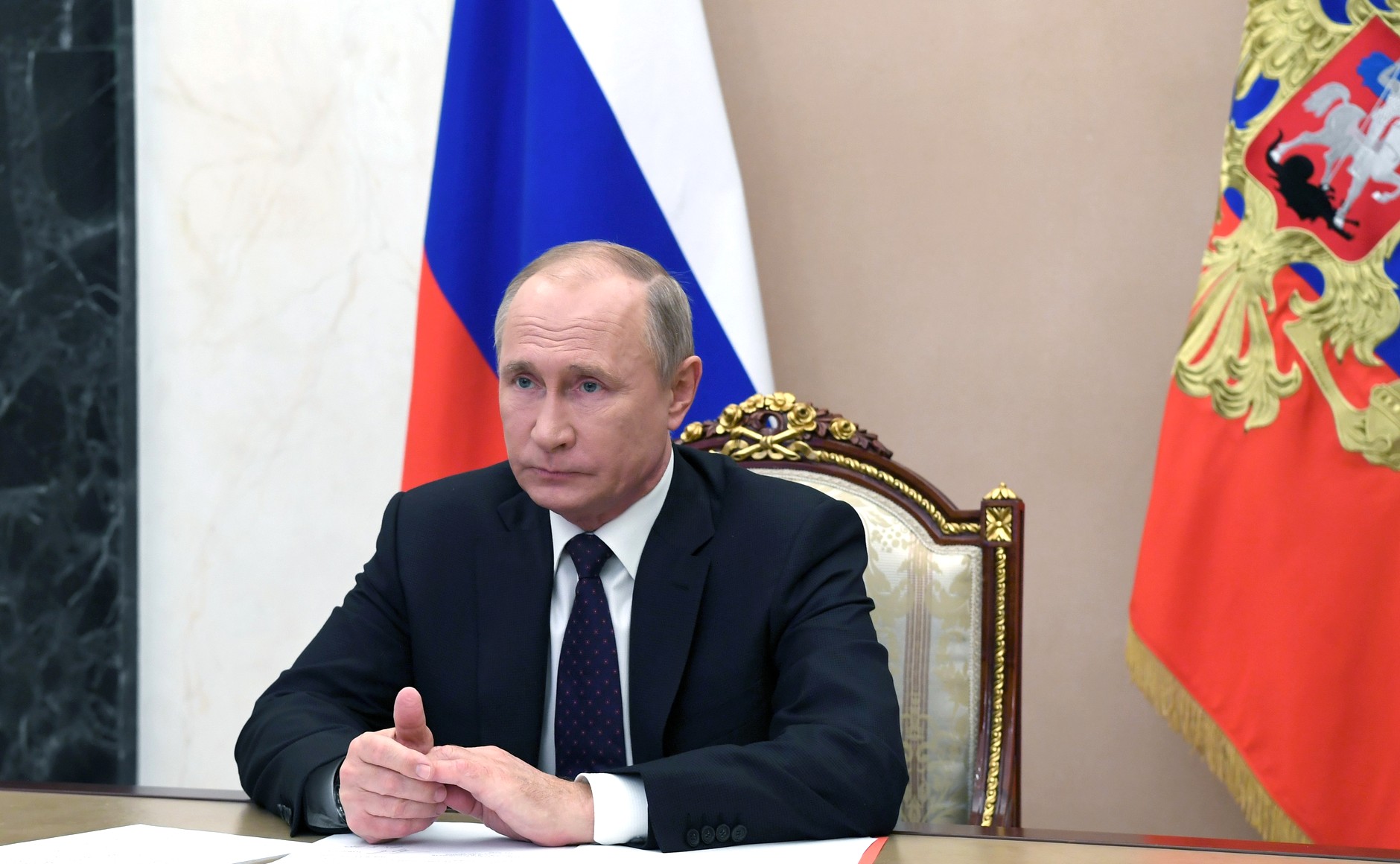 The meeting participants focused on improving the fight against cybersecurity crimes. They also discussed the activity of Russian peacekeepers and the humanitarian mission in Karabakh. The President briefed the meeting participants about his telephone conversations with President of Azerbaijan Ilham Aliyev and Prime Minister of Armenia Nikol Pashinyan. The Security Council members also touched upon other matters of the country’s socio-economic agenda.  Attending the meeting were Prime Minister Mikhail Mishustin, Deputy Chairman of the Security Council Dmitry Medvedev, Chief of Staff of the Presidential Executive Office Anton Vaino, Security Council Secretary Nikolai Patrushev, Interior Minister Vladimir Kolokoltsev, Defence Minister Sergei Shoigu, Federal Security Service Director Alexander Bortnikov, Foreign Intelligence Service Director Sergei Naryshkin, and Special Presidential Representative for Environmental Protection, Ecology and Transport Sergei Ivanov. The source of information - http://en.kremlin.ru/events/president/news/64505
__________________
Where should they dig the Very Deep Pit? Piglet said that the best place would be somewhere where a Heffalump was, just before he fell into it, only about a foot farther on. (c) Alan Alexander Miln |
|
|
#155 |
|
Senior Member
|
Greetings to participants in Parliamentary Assembly of Collective Security Treaty Organisation
Vladimir Putin sent greetings to the participants in the CSTO Parliamentary Assembly meeting. November 30, 2020 - 11:00 The message reads, in part: “Strengthening security across our countries, developing their collective defence potential in close coordination with our partners are the key priorities of Russia’s CSTO chairmanship in 2020. Parliamentary exchanges between the member countries play an important role in the implementation of these tasks. With the growing challenges we all are facing, such as international terrorism and extremism, drug trafficking and illegal migration, we attach great importance to the Parliamentary Assembly’s efforts to ensure the timely ratification of documents adopted in the CSTO, and to harmonise the national security legislations. Another important area of inter-parliamentary cooperation is the development of common approaches to addressing threats associated with interference in the internal affairs of sovereign states. The coordination of coronavirus response efforts is also of particular relevance today. I am certain that your discussions will be substantive and productive, and the decisions taken at the end of the meeting will serve to strengthen allied ties between our countries.” The source of information - http://en.kremlin.ru/events/president/news/64512 Meeting with Head of Buryatia Alexei Tsydenov Vladimir Putin held an online working meeting with Head of the Republic of Buryatia Alexei Tsydenov. November 30, 2020 - 13:05 - The Kremlin, Moscow 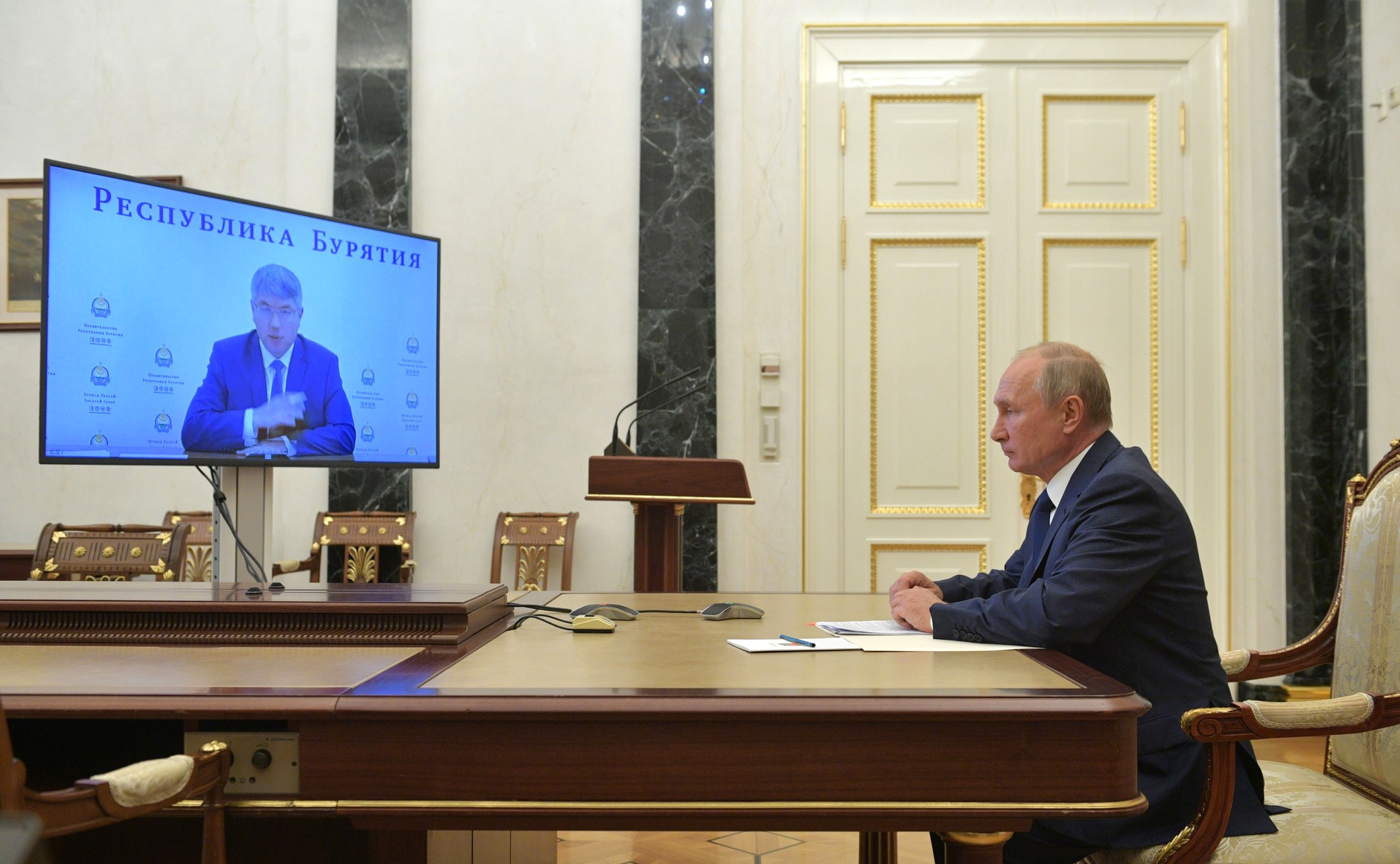 At the beginning of the meeting, Alexei Tsydenov thanked the President for his unwavering attention to the republic, in particular, protection of Lake Baikal, as well as the decision to include Buryatia in the Far Eastern Federal District, which significantly improved the social sphere, the economy and business support due to the tools that are available in the Far Eastern Federal District. Mr Tsydenov said that the situation in the republic is challenging only in terms of the coronavirus, but is quite stable in terms of the economy. The measures to support business taken by the Government brought positive results. The Head of Buryatia also touched upon several issues of concern for the republic. The first was the construction of a protective dam in the city of Ulan-Ude, which stands on the Selenga River, the main tributary of Lake Baikal. There has been a rather critical rise in water over the past two years, which is fraught with major damage. Mr Tsydenov asked the President to issue a directive to review this matter as part of the Environment national project in conjunction with the Government. The second issue also concerned the environment and stems from the fact that 96 percent of the catchment area of Lake Baikal comes from the territory of Buryatia, since all the rivers flowing into Baikal come from there. Thus, 21 out of 35 wastewater treatment plants require fairly prompt action. There is also a need for a presidential directive in order to work through this issue as part of the Environment national project in conjunction with the Government. 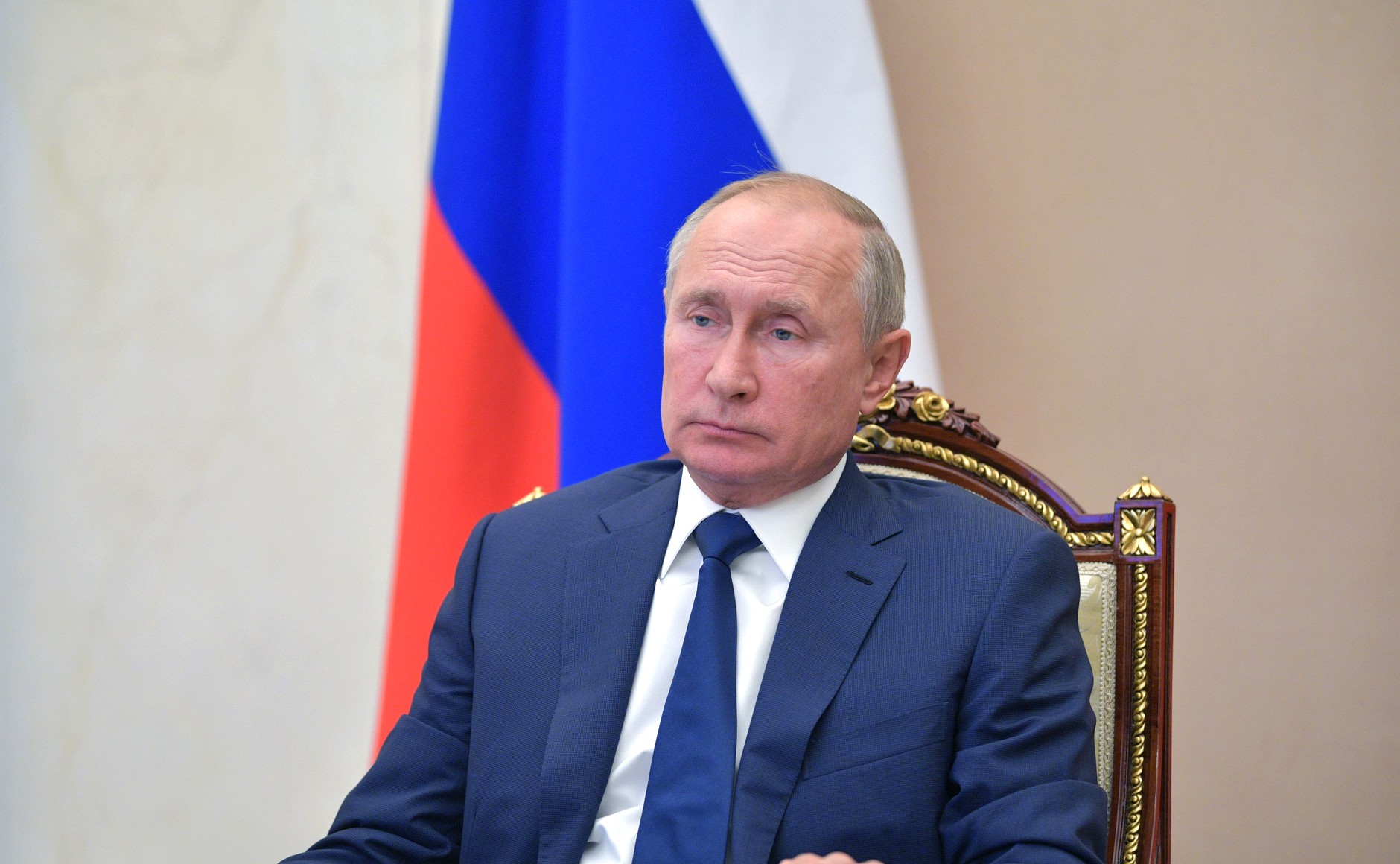 Mass transit, which is part of the Safe and High-Quality Roads national project, is the third critical issue for the republic. There is almost no municipal bus service available in the wake of the bad decisions made in the 1990s and early 2000s. Vladimir Putin noted that these issues are important and corresponding instructions will be issued to the Government. The President also noted that investment in fixed assets has been significantly up in Buryatia over the past 18–24 months, more than the national average, and wanted to know more about the projects that are behind this growth. Mr Tsydenov said these projects are primarily operated by natural monopolies, such as Russian Railways, Rosatom and Rostec. However, companies that are not associated with vertically integrated holdings or the public sector, such as a pulp and cardboard mill, also made investments. He pointed out that this increase in investment comes mainly from acting upon presidential orders. 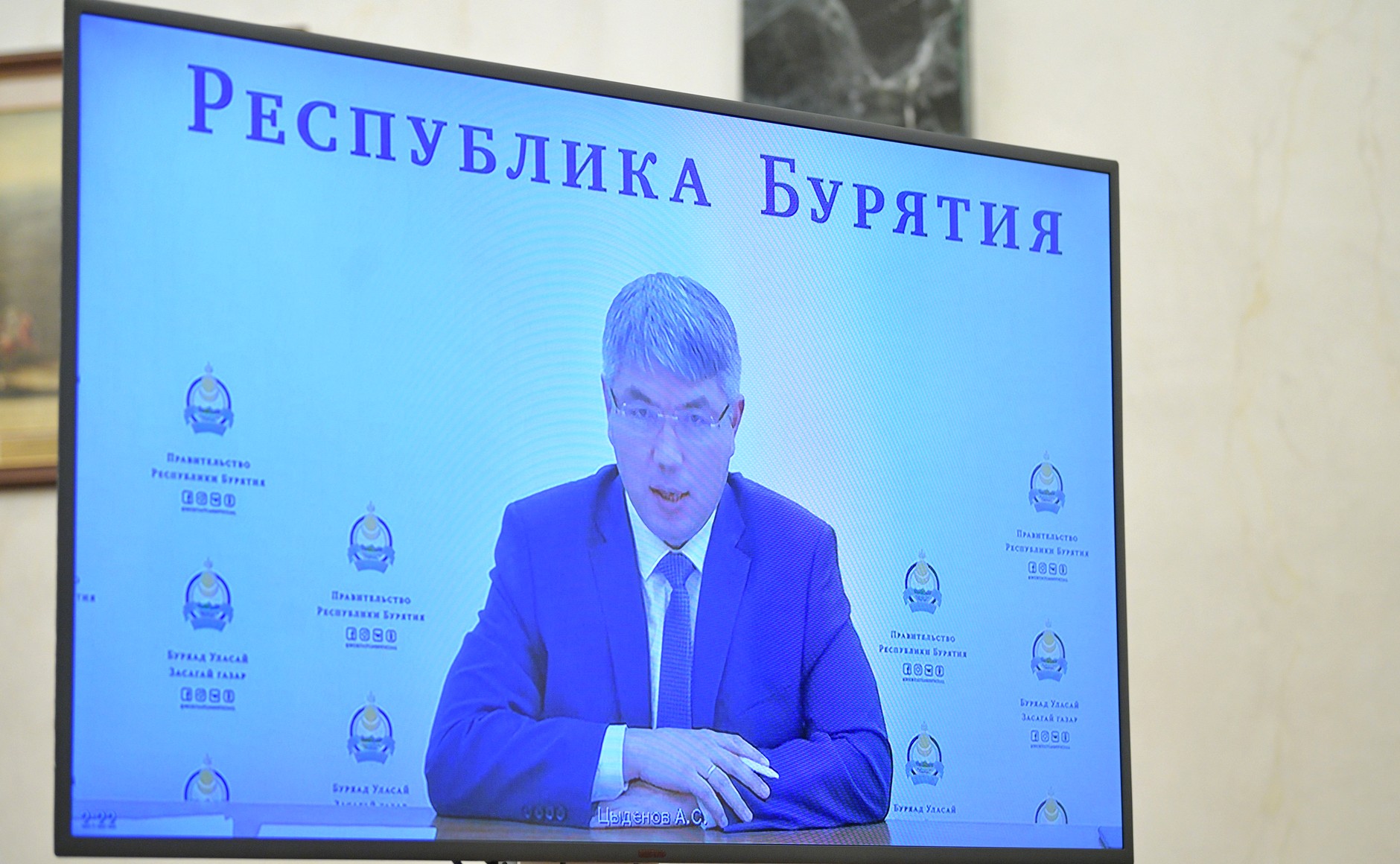 Vladimir Putin noted the declining volume of construction in Buryatia and said that the Head of the republic must personally monitor this sphere, as well as individual incomes. It is also necessary to pay attention to the structurally unsafe housing stock and educational infrastructure. Mr Tsydenov updated the President about the efforts to overcome problems in these spheres, noting that some difficulties with schools and kindergartens stem from high birth rates in the republic. With regard to construction, mortgage loans are on the rise due to Far Eastern loans and easy-term mortgage lending programmes. The President also noted positive trends in the republic’s demography due to the high natural growth of the population. According to him, this is an integrated indicator showing that, overall, people believe that the situation will improve. Vladimir Putin said he would review the documents submitted by Tsydenov and would take appropriate action. The source of information - http://en.kremlin.ru/events/president/news/64510 Telephone conversation with President of Uzbekistan Shavkat Mirziyoyev Vladimir Putin had a telephone conversation with President of the Republic of Uzbekistan Shavkat Mirziyoyev at the Uzbek side’s initiative. November 30, 2020 - 18:25 The presidents discussed preparations for the upcoming meeting of the CIS Council of Heads of State to be held in a videoconference format in December and chaired by Uzbekistan. They touched upon a number of important items on the bilateral and regional agenda, and reiterated mutual commitment to further strengthening the Russian-Uzbek strategic partnership and alliance, with an emphasis on expanding trade and economic ties. The leaders paid particular attention to combating the spread of the coronavirus, including the use of the Russian-made vaccine. The source of information - http://en.kremlin.ru/events/president/news/64516 Greetings on opening of 16th Conference of Russian Geographical Society The President sent greetings to the participants of the 16th Conference of the Russian Geographical Society. December 1, 2020 - 10:00 The message reads, in part: “Unfortunately, due to the difficult epidemiological situation, this conference will be held via remote participation only. But I am certain that it will not prevent the participants from many Russian regions to discuss the urgent tasks facing one of the oldest Russian public associations, outline the prospects for further joint work, and exchange views on a wide range of issues. It is a pleasure to note that over the past years, the Russian Geographical Society has significantly consolidated its constructive creative potential, implemented an impressive number of diverse, but invariably remarkable and popular projects in research, information, and education. Your exhibitions, films, photography contests, and printed publications telling about our invaluable natural wealth and our unique historical, cultural and spiritual heritage are always interesting and substantive, and rightfully enjoy wide public attention. It is certainly important that every year, you attract an increasing number of people, especially young people, into the scope of your multifaceted work.” The source of information - http://en.kremlin.ru/events/president/news/64520 Greetings on opening of sixth nationwide forum National Qualifications System of Russia Vladimir Putin sent his greetings to the participants in the sixth nationwide forum National Qualifications System of Russia. December 1, 2020 - 11:00 The message reads, in part: “New global challenges that Russia and the entire world met with this year resulted in millions of people switching to remote work and study. Today digital technology supports employment and high quality education and makes the adopted social support measures available to the people. It is good that in these conditions the work to introduce a national qualifications system, establish mechanisms for independent assessment and update professional standards that reflect economic priorities continues successfully and fully corresponds with the current state of the labour market. It is also vitally important that, thanks to cutting-edge technologies, the professional exam can become a unified accessible tool to assess qualifications for both people with work experience and graduates of the professional education system in line with employers’ demands.” The source of information - http://en.kremlin.ru/events/president/news/64526 Working trip to Tobolsk Vladimir Putin arrived in Tobolsk, Tyumen Region, on a working trip. December 1, 2020 - 16:00 - Tobolsk 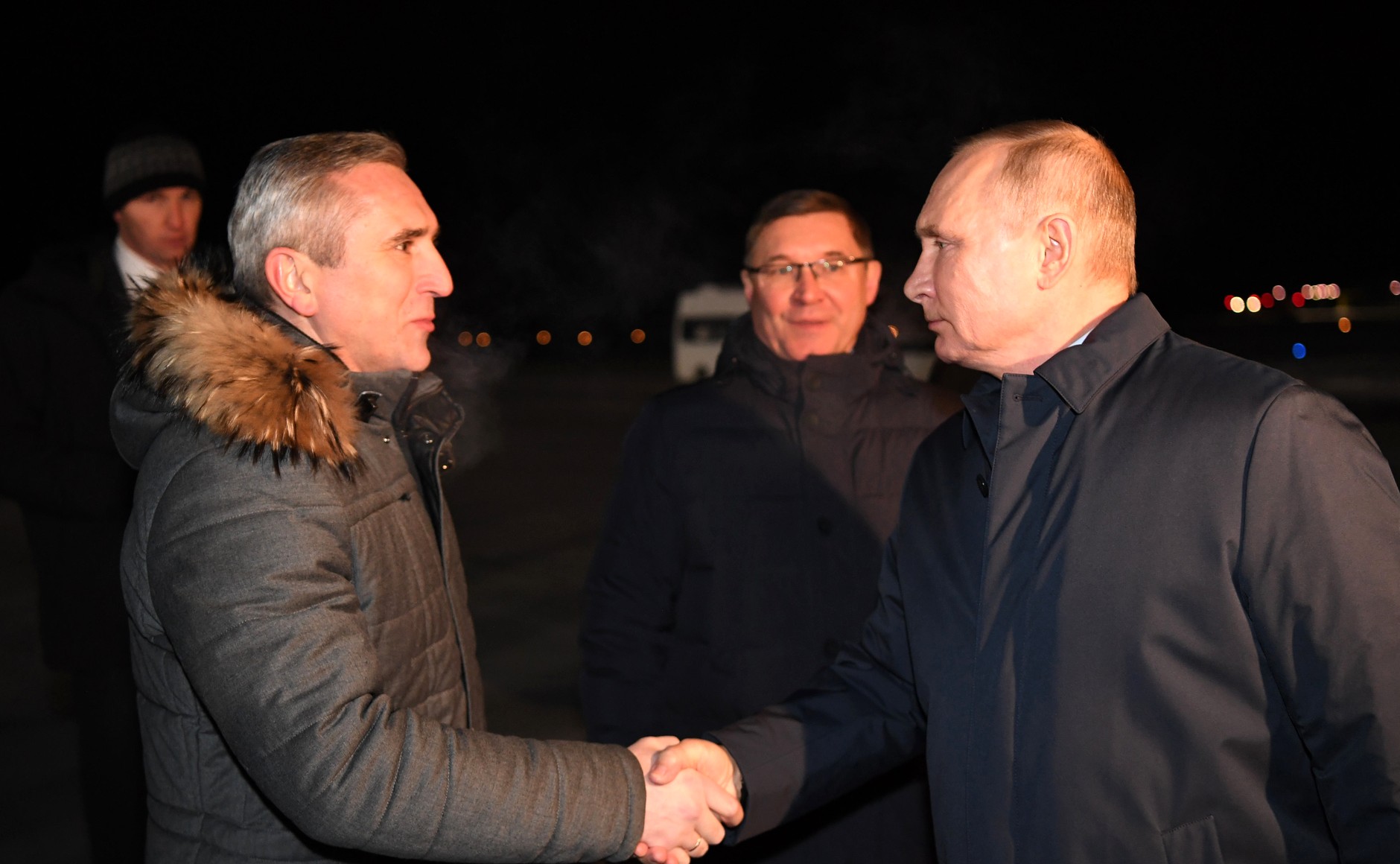 The President visited ZapSibNefteKhim, Russia’s largest petrochemical complex with a total capacity of two million tonnes of polymers a year. It is one of the world’s five biggest production facility of base polymers. 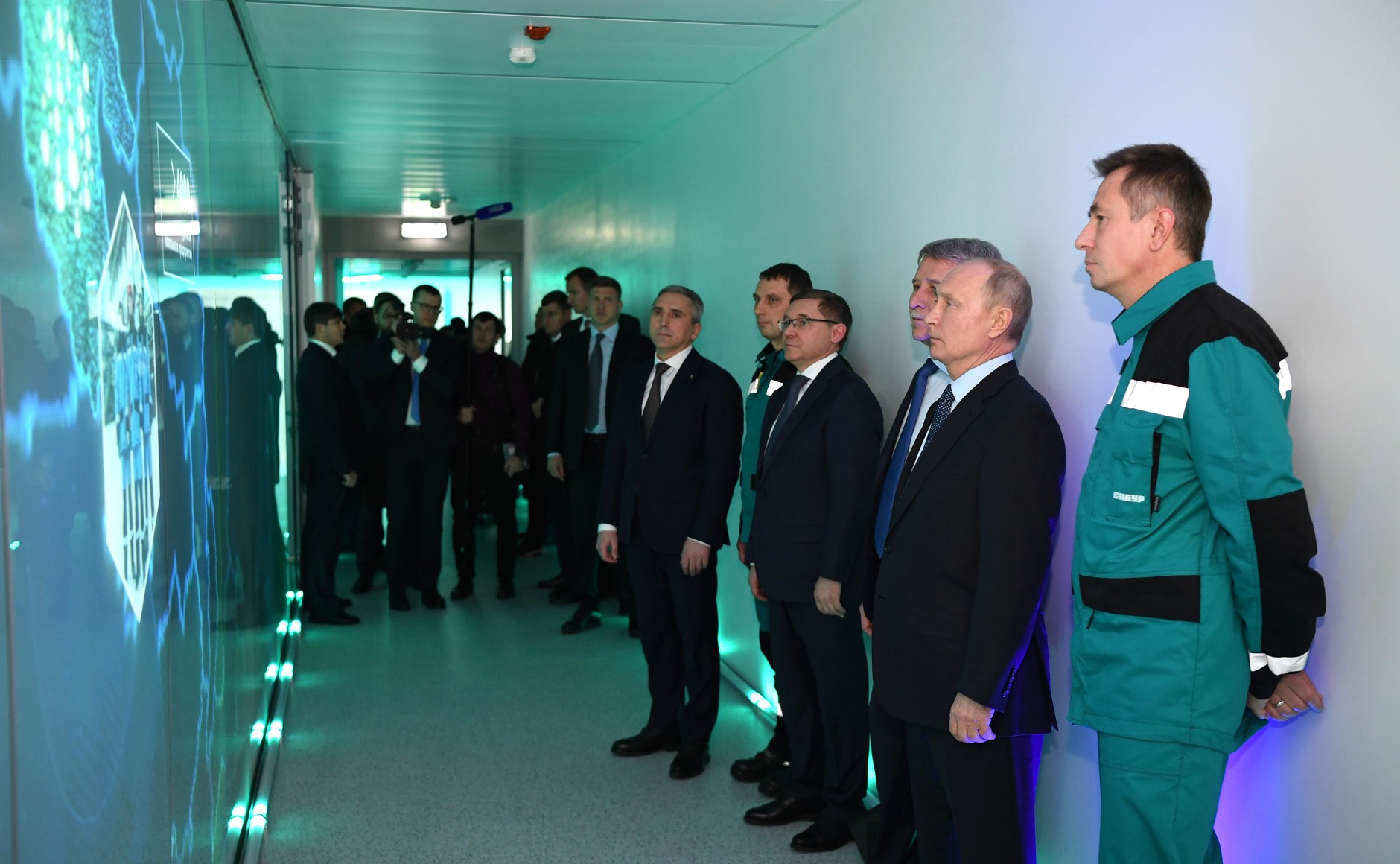 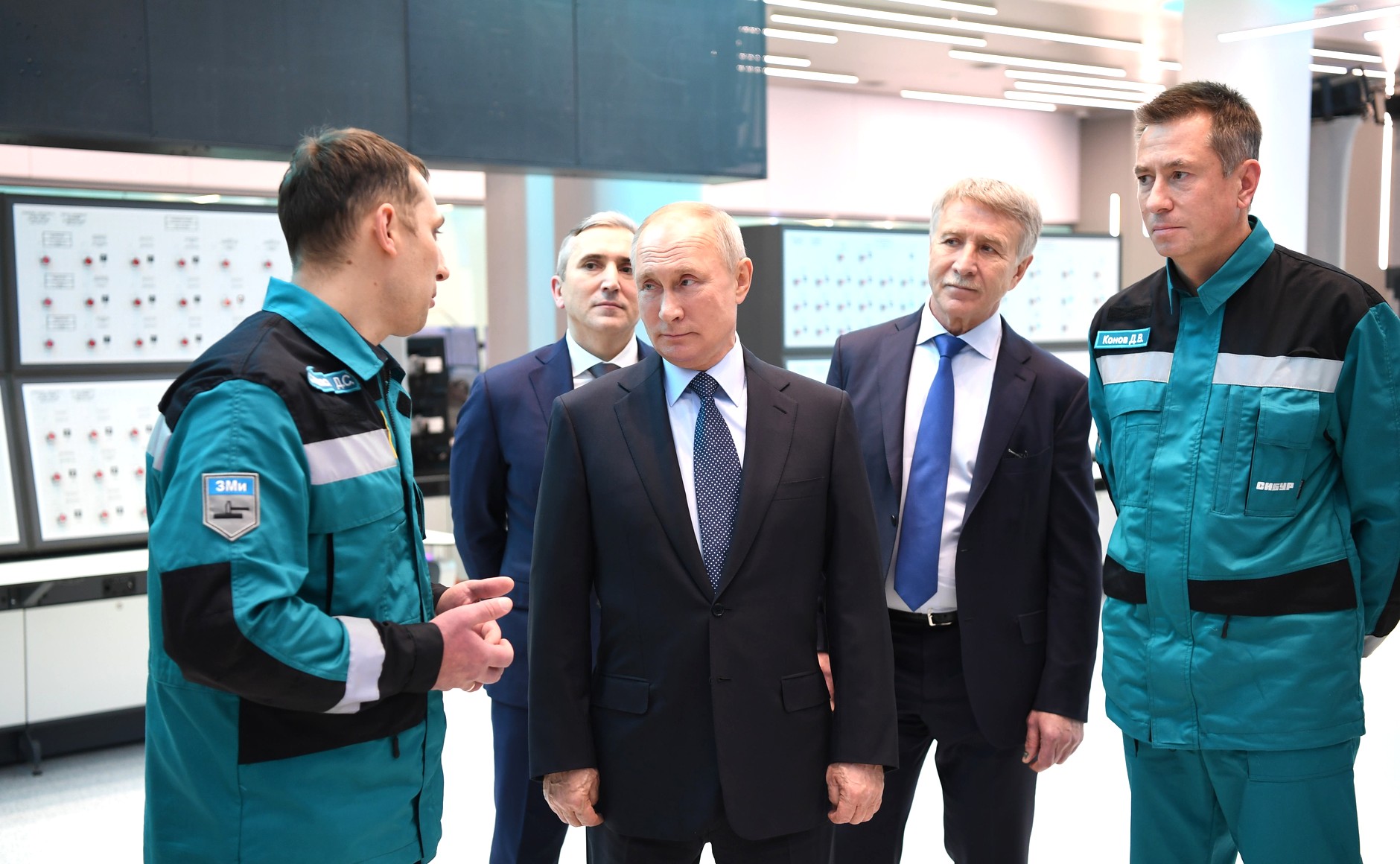 The President inspected its central control room and examined samples of ready-made products. 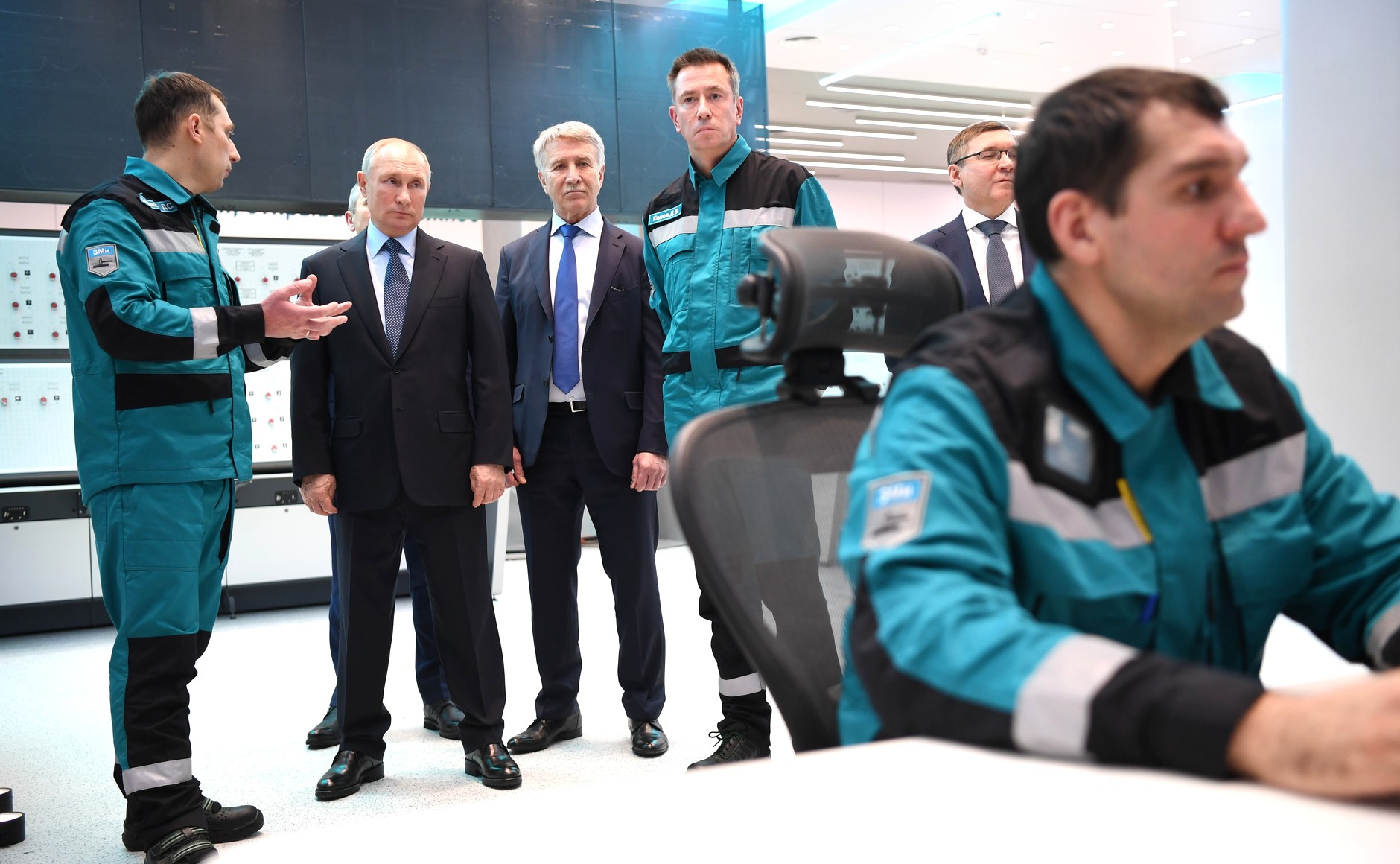 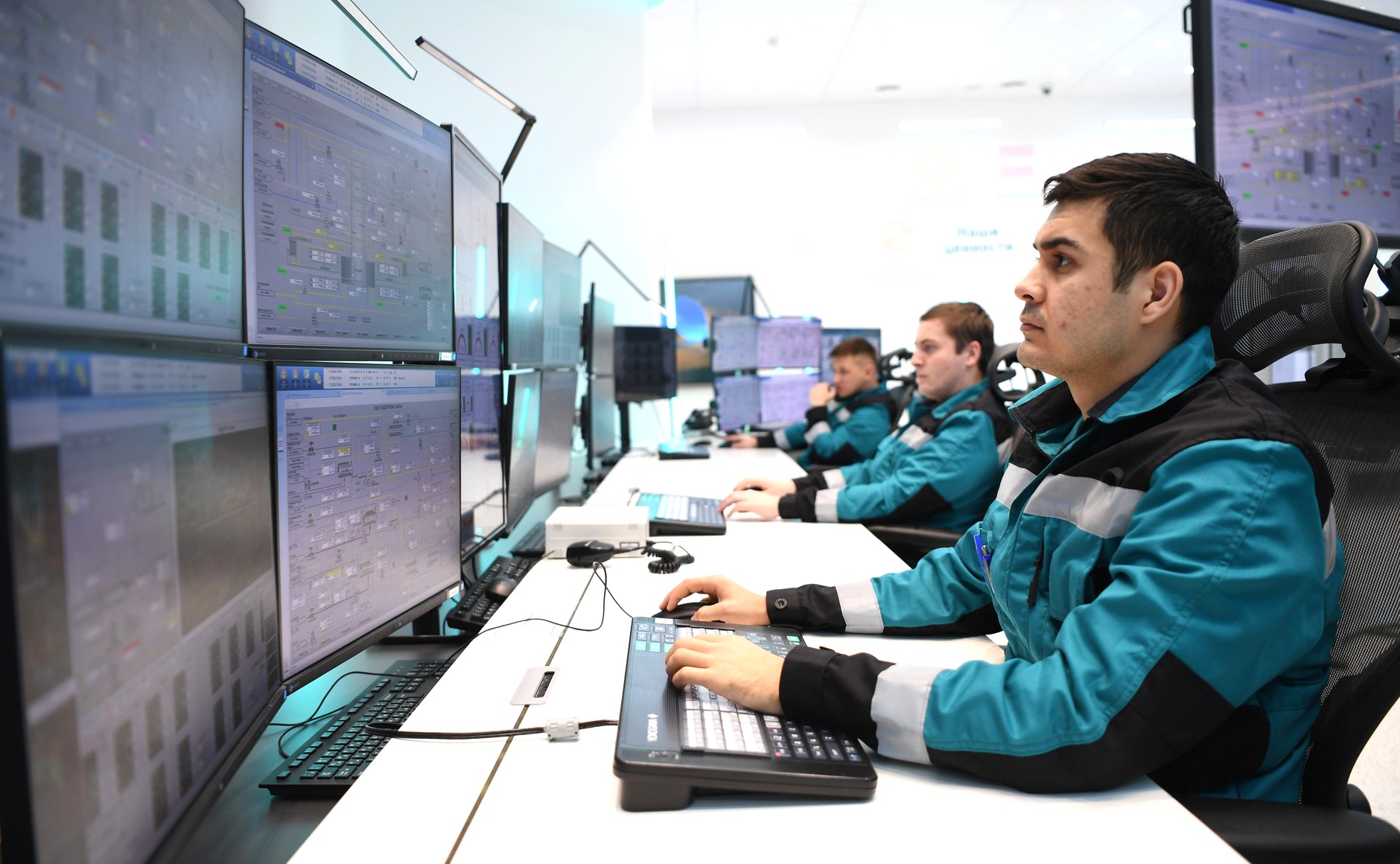 ZapSibNefteKhim is a project of SIBUR. Its construction was completed in 2019. When launched at its design capacity, the complex will make it possible to substitute for polyethylene and polypropylene imports. The source of information - http://en.kremlin.ru/events/president/news/64527 Meeting on strategic development of petrochemical industry The President held a meeting, via videoconference, on strategic development of the petrochemical industry. December 1, 2020 - 18:00 - Tobolsk 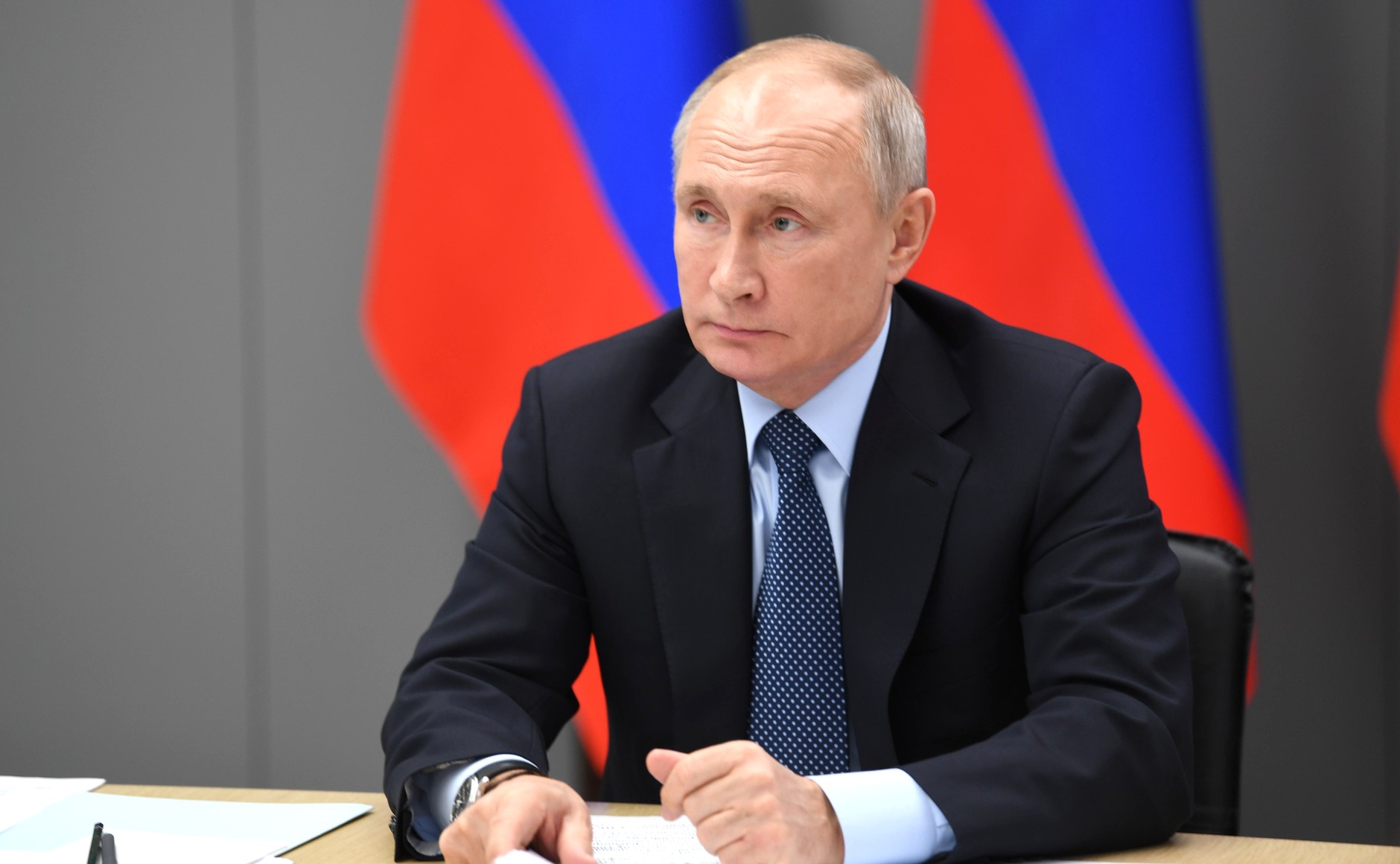 President of Russia Vladimir Putin: Good afternoon, colleagues. We are holding this meeting in Tobolsk. Without exaggeration, this city has become a global petrochemical centre in recent years. It took seven years to build two large enterprises that, no doubt, have propelled this region and our country into positions of leadership. Today, we will discuss strategic plans for the petrochemical industry. I have just noted that we opened a state-of-the-art petrochemical complex here in 2013 and we also held a meeting back then, where we resolved that expanding the capacities of the petrochemical enterprises and supporting Russian producers in this industry were among the key industrial policy goals. That same year, SIBUR began work on creating the Western Siberian Petrochemical Plant. Also in 2014, I decided to use the National Wealth Fund to invest in that project (I have just discussed this matter with Chairman of the SIBUR Board Dmitry Konov). The deal was executed with the participation of the Russian Direct Investment Fund. This was $1.75 billion for 15 years, as I remember. We granted it – in 2030 all bonds must be paid off in one go. Projects are being carried out on time and effectively. We have just recalled that in 52 months we built one of the largest facilities in the country and the world. It will turn out two million tonnes of products. This meeting is attended by people who have been to such facilities more than once, and you know that they are impressive – a whole city, a grand project. The new complex will play a considerable role in the substitution of polyethylene and polypropylene imports. It will make it possible to increase the processing depth of raw materials and use them more rationally. This primarily applies to associated petroleum gas. It is common knowledge that reducing the share of this burned gas is a key goal of the environmental and climate agenda of this country. Let me recall that from 2010 to 2019 the share of flaring fell from 25.7 percent to 18.5 percent, which is, of course, a good result. I hope we will make further progress in this area. We have incentives for this, I will tell you about them. I am referring to tax benefits and, by all appearances, they are all working. Incidentally, in the production of plastics, carbon dioxide emissions per tonne of products – we have just spoken about this as well – is 13 times less than during the production of other materials: aluminium, copper, steel and iron. It is also important that the work of the plant fully complies with Russian and international environmental standards. The plant has established an eco-free production method – a closed water cycle without wastewater. Incidentally, this is particularly important for this region. I will meet with the governor separately once again today to discuss the region’s problems. One of them is the pollution of water reservoirs. But this production ensures zero waste, and this is a goal to strive for. I would like to take this opportunity to thank all construction participants without exception. I would like, of course, to wish success to the plant, and I certainly hope that the number of such promising projects will grow. In the past few years, the petrochemical industry has been showing strong results: new, modern production facilities are being launched; production output is growing; and dependence on imports is going down. As for import dependence – I will say more about this a bit later – there is certainly room for improvement in this respect. That said, Russia has vast growth potential. Our producers are capable not only of meeting the domestic demand for quality products but also of taking up more important positions in the global market. We have everything necessary for this: qualified personnel, advanced technology, and a powerful raw materials base. Of course, these competitive advantages must be used to the utmost. This is actually a very promising business, and everyone present at the meeting is well aware of this: the expected average annual growth rate of global demand is somewhere under four percent, while oil demand is projected within 1 percent over the next five years, and further on there will be a general decrease to 0.1. 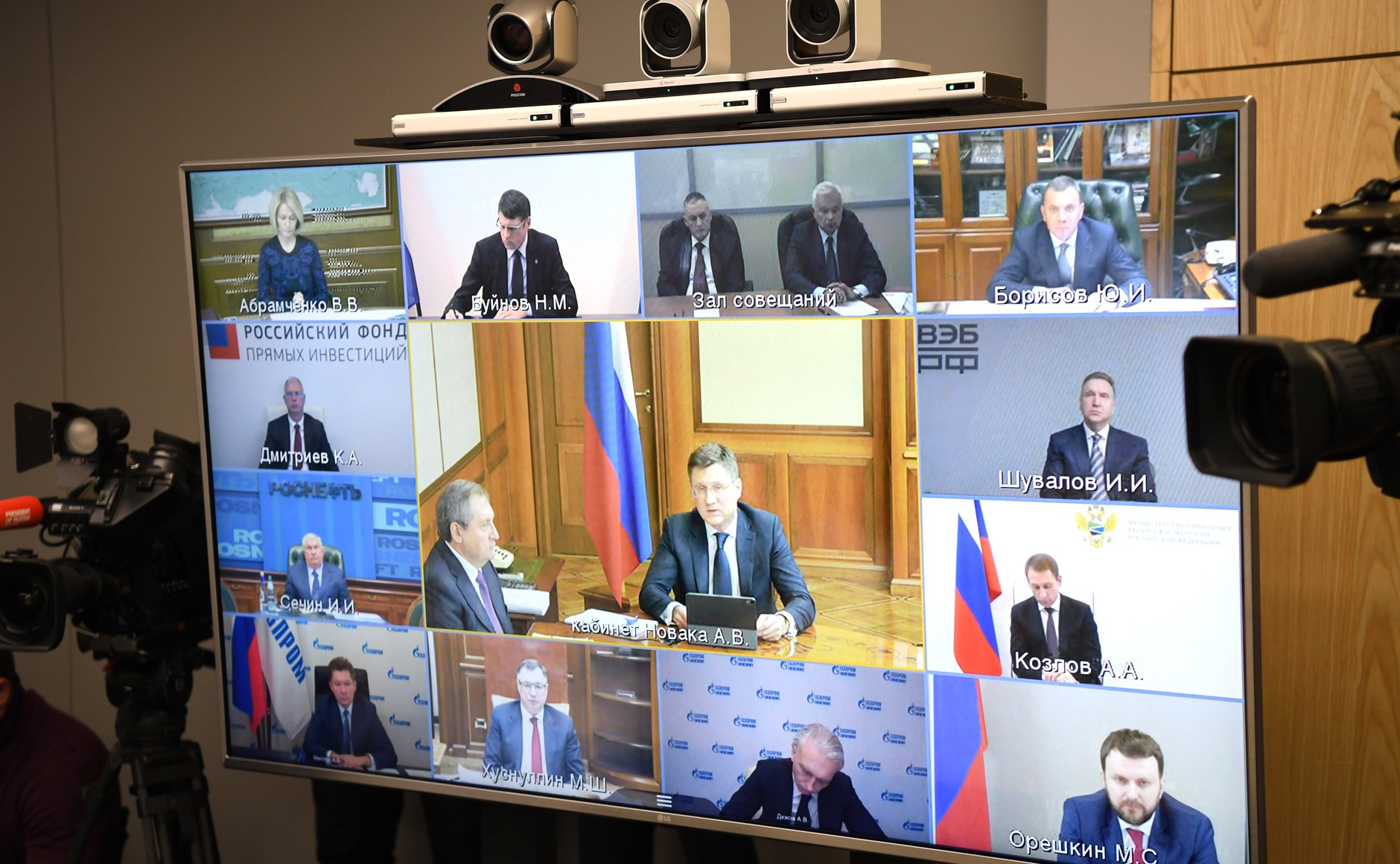 Again, we need to vigorously promote Russian petrochemical products domestically and abroad, to increase efficiency and production volumes. To do that, the industry must implement large-scale projects with total investment in the region of 5 trillion rubles. The two biggest ones, the Amur gas refinery and the facility to process ethane-containing natural gas near the seaport of Ust-Luga in Leningrad Region are already in the works with the support of Vnesheconombank. We actually have a total of 14 such projects, with 17,000 highly qualified and well-paid jobs to be offered at these facilities in the future. I would like to note that such large projects with a high multiplier effect are important for the national economy as a whole. And of course, the state supports and will continue to support such undertakings. As you know, the State Duma in October adopted a law establishing a reverse excise tax on ethane and liquefied hydrocarbon gases in exchange for investment in those hydrocarbon refining projects that would convert them into petrochemical products. I have signed that law. In general, we will undoubtedly continue to create comfortable conditions for the development of oil refining capacities and for investor activity in this industry. The Government is already working hard on this. For example, the construction efficiency of petrochemical facilities, the optimal timeframe and costs are the key success factors in such projects. With this in mind, we are abolishing outdated building regulations, simplifying sanitary standards and requirements, and encouraging the use of advanced building materials and digital technologies. This work certainly needs to continue in the future in order to create an optimal atmosphere, an optimal environment for further investment activities. Today I propose discussing other measures that can be taken to optimise capital costs for constructing petrochemical facilities – surely, without compromising the safety of their work, including from an environmental point of view. Next. In recent years, as we know well, production growth in the industry has mainly come from the development of large-tonnage petrochemicals. In this segment, thanks to the launch of new projects, import substitution is almost complete. We produce 5.3 million tonnes while importing 0.3 million tonnes. But it is a different situation with small-tonnage petrochemicals: we import 1.4 million tonnes while producing 3.7 million tonnes. Obviously, there is a lot of work to do. By the way, in European countries, in European economies, about 30–40 percent of all chemical products are low-tonnage chemical products, while that figure is only 15 percent for us. Of course, domestic demand significantly exceeds what we are currently producing and is covered by imports, as I said. For some items, depending on foreign suppliers, it reaches 100 percent. This situation certainly needs to change, and, in fact, we are doing this, but we need to increase these rates, to increase the share of low-tonnage chemical products in the total production volume. And today, colleagues, I would like to listen to specific proposals on this issue. Another urgent task is to create a stable demand for Russian petrochemical products. We need to create a market, to form our own market – primarily, an internal one. In Russia, like everywhere around the world, polymer materials are largely needed in construction, medicine, housing, the food industry and an entire range of other industries. Their use provides new, important and broad possibilities by significantly reducing manufacturing and operating costs, including due to the longer lifespan of polymer products. The benefits of their use compared with outdated materials are obvious. For example, in housing and utilities services, polymer pipes can save up to 50 percent of the cost of maintaining water supply and sewerage systems, while the share of polymer solutions in Russia’s housing and utilities services is 35 percent, against 85 percent in Europe, which I have mentioned. As I have said, the demand for such innovative materials will only grow. It is important to meet this demand by purchasing primarily from Russian manufacturers. At this meeting, we have to think about what we can and must do additionally. Of course, the environment is another topic I would like to raise. We have just said that, as a rule, chemical manufacturers are associated with greater environmental damage. But I have already given an example: atmospheric emissions during production are 13 times lower than when manufacturing steel, aluminium and so on. Yes, there is the problem of recycling, and we will elaborate on it, but it is also easy to solve if we do it professionally and from the very beginning. Care for the environment and nature must be an integral condition for this production. And it should be considered that compliance with environmental standards is becoming an important factor in products’ competitiveness. All over the world, serious attention is paid to reducing greenhouse gas emissions, and requirements for reducing waste are becoming more stringent. Of course, we also need to increase the reuse of plastic as well as the share of secondary raw materials in the composition of goods and packaging, and develop such a sustainable approach to resources. Let us discuss all of this. I would like to give the floor to Deputy Prime Minister Alexander Novak. Mr Novak, please. <…> 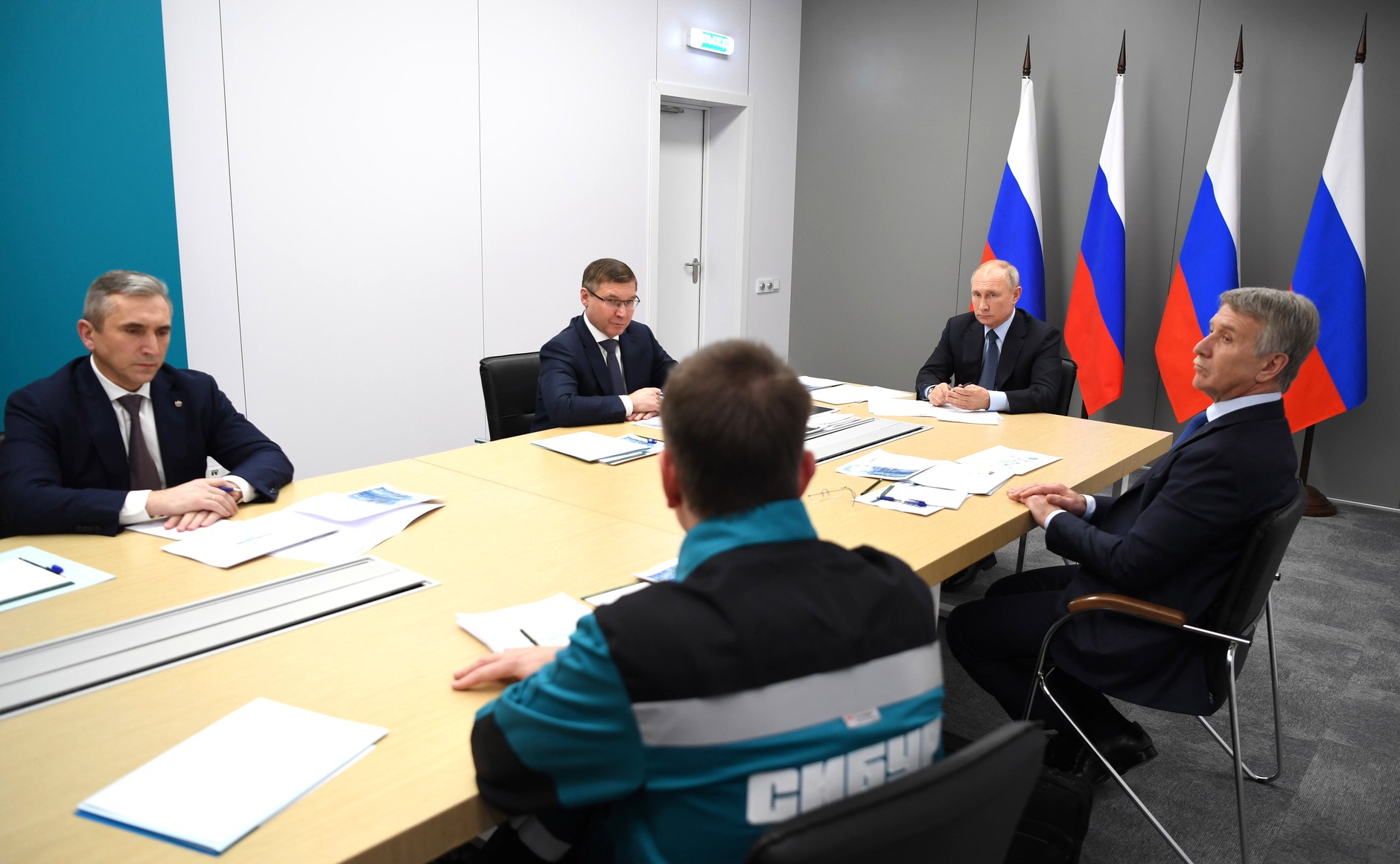 Vladimir Putin: Colleagues, I would like to say a few words in conclusion. Of course, we still have much to do so that the industry we are discussing today can fully meet the growing demand for innovative materials inside the country and so that our producers occupy important positions in the global market. It is necessary to take vigorous action in many areas – today we have spoken practically about each of them. Proceeding from your proposals, we will note the following in the list of instructions. First, it is necessary to draft a package of measures on developing the production of low- and medium-tonnage chemicals in Russia until 2030. It is necessary to increase – this was also mentioned today – the manufacture of these products by 70 percent as compared with this year’s figures. In addition, it is essential to compile a list of priority projects in low- and medium-tonnage chemistry that have a comprehensive impact on the development of product chains and have a broad multiplier effect. Let me repeat that considering their importance for the national economy, such projects must enjoy special support of the state. They create new jobs and are points of growth for whole regions. Secondly, I am instructing the Government to draft a package of measures, including tax benefits, with a view to stimulating the production of artificial rubber. There is indeed a big demand for it, and the forecast shows it is unlikely to decrease. We need it for the dynamic development of the motor industry (there is no doubt that it will also grow when the pandemic is over), aircraft building and the production of many types of combat hardware, and in many other areas. We have good experience in applying the so-called “damping mechanism” in taxation, as mentioned by the Finance Minister. It could be used to support artificial rubber manufacturing. I would like you to study this issue. Third. A number of steps need to be taken to increase the use of polymers in water and sanitation networks. Otherwise it will be very difficult for us to create production if we do not have our own market. And we see how effectively they are used in a number of countries and economies. This will boost demand for innovative products in the petrochemical industry. In addition, the service life will also increase, and the costs of network operation will decrease. Fourth. I ask the Government to conduct a comprehensive audit of industrial construction regulation, including drafting a set of rules to introduce new, advanced materials and technologies produced by the petrochemical sector. I support the Deputy Prime Minister’s proposal that heads of industry enterprises should also get actively involved in this work and not just wait around idly – they should get involved in this work, propose these solutions and point out problems that interfere with work, and thus, working together, we would quickly come to the regulation we need. Fifth. To minimise the negative impact on the climate and the environment, as well as to increase the competitive advantages of our oil and gas chemical products – and I agree with my colleagues that we should not overlook the oil sector either – I would ask the Government to develop tax and non-tax incentives for the use and production of recycled polymers. I hope that all these decisions will have a positive effect on the industry and will give an additional impetus to the development of the entire Russian economy. The draft instruction, which, as I understand it, everyone has, will be finalised taking into account today's proposals. Once again I would like to thank all the participants for our joint work today, and once again I congratulate SIBUR on the successful implementation of its large-scale project here in Tobolsk. Thank you. The source of information - http://en.kremlin.ru/events/president/news/64529 Meeting with Tyumen Region Governor Alexander Moor Vladimir Putin had a working meeting with Tyumen Region Governor Alexander Moor. December 1, 2020 - 19:00 - Tobolsk 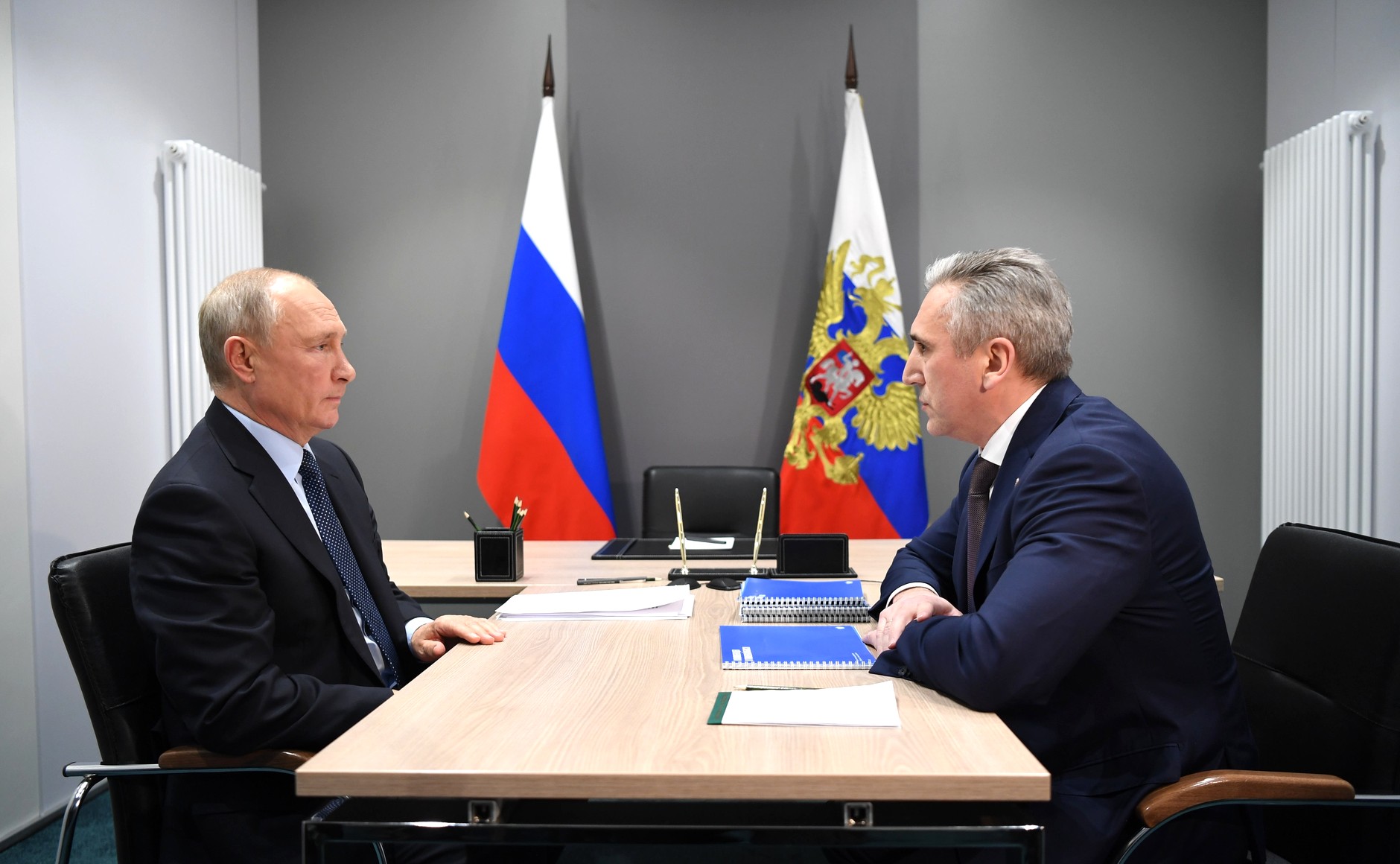 The President began the meeting by saying that the Tyumen Region had reported good development results and he noted in particular the increase in the resident population. The problems Vladimir Putin mentioned included the pollution of bodies of water, dilapidated housing and the fight against infectious diseases, in particular, COVID-19 and HIV. The Governor said that the number of coronavirus cases had been growing since early September, but the process had stabilised and 27 percent of hospital beds were not occupied. This is the result of the restrictions and the measures taken to monitor compliance with them. The Governor reported on the action taken to support people and businesses, as well as on payments to medical personnel, the provision of free medications, and voluntary work. In particular, the support measures for businesses included the lowering of all tax rates paid by small businesses and affected industries to regional budgets in 2020. 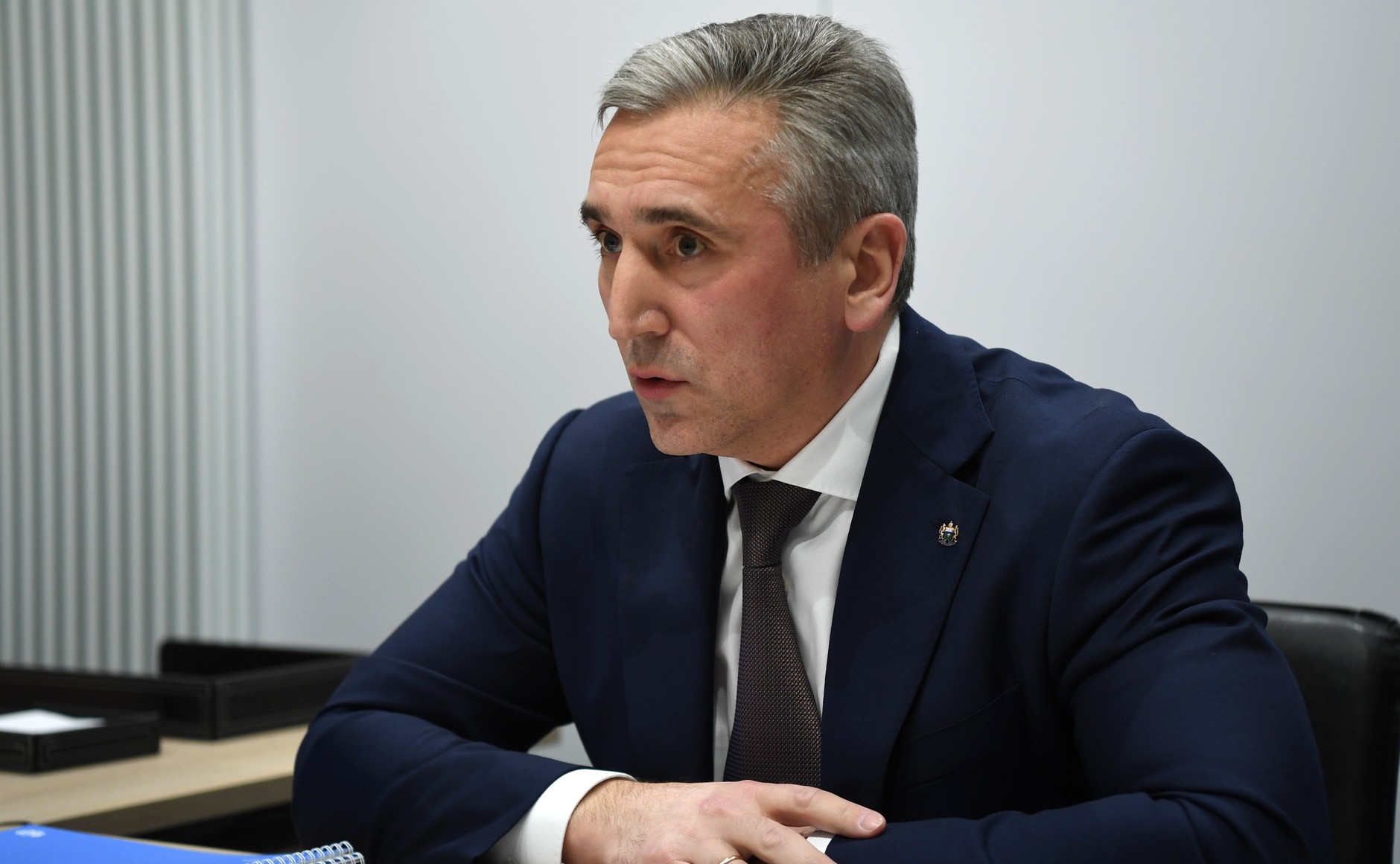 Speaking about the socioeconomic development of the Tyumen Region as a whole, Alexander Moor pointed out a rise in the industrial production index, as well as the growth of agricultural production by 2.6 percent. The Governor mentioned five basic sectors for attracting investment: the petrochemical industry; the manufacturing sector focused on the production of goods for oil and gas companies; timber processing; agroindustry and tourism. The housing construction sector is working at a rate of one square metre per person annually. Retail trade is growing, reflecting a rise of people’s incomes. The Governor noted that registered unemployment had always been low in the Tyumen Region, below 0.6 percent. However, unemployment began to rise in the region in April, as it did in many other regions, eventually reaching a peak of 5.8 percent, after which it stabilised and started falling. The current rate is 3.77 percent. At the same time, the number of vacancies on the labour market currently exceeds the number of registered unemployed, although in summer it was vice versa. The President pointed out that the region was developing successfully, on the whole. The source of information - http://en.kremlin.ru/events/president/news/64530 Meeting with NOVATEK Board Chairman Leonid Mikhelson and SIBUR Holding Board Chairman Dmitry Konov The President had a working meeting with Chairman of the Management Board of NOVATEK Leonid Mikhelson and Chairman of the Management Board of SIBUR Holding Dmitry Konov. December 1, 2020 - 19:20 - Tobolsk 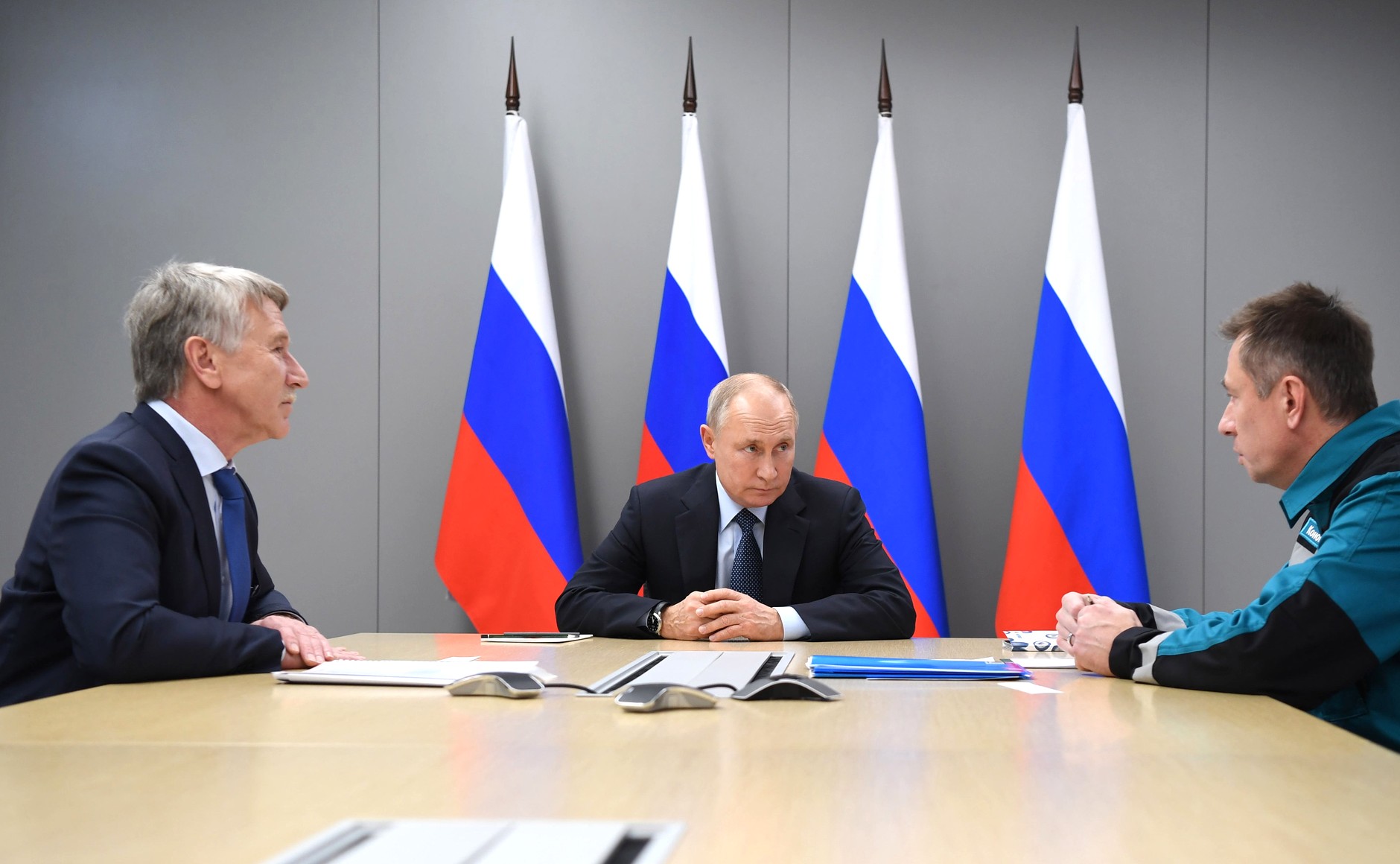 NOVATEK Chairman of the Management Board Leonid Mikhelson: I would like to once again thank you very much for moving forward with the reverse excise tax on LPG [liquefied petroleum gas]. As you remember, the issue with ethane was resolved in April during a conference we had, and in October, it was adopted. I would also like to thank Mr Alexei Miller [Gazprom Chairman of the Management Committee]; the Amur GCF [gas chemical facility] received not only ethane but also nearly a million and a half tonnes of LPG, thus turning it into a different project with a really good, different economy. Maybe Mr Konov will say a few words as to how much bigger it is. Vladimir Putin: All right. SIBUR Holding Chairman of the Management Board Dmitry Konov: We aim at a capacity of 2.7 million tonnes a year, which is 35 percent more than the capacity here. Meanwhile, we see from the capital expenditures that the cost will be about the same as it is with ZapSibNeftekhim. Thus, the project appears considerably better in terms of capital cost per tonne. We are taking the decision even in the tough conditions we are facing now. Plus the reverse excise tax and, obviously, the greater capacity from Gazprom, all that was extremely useful for us. We also see the progress of the Amur GPP [gas processing plant]. It is moving ahead on schedule, and provides us with raw materials, which are needed to develop the petrochemical industry practically side by side with the commercial market – near China. We are pursuing the project together with Sinopec. Vladimir Putin: In what way do they participate? 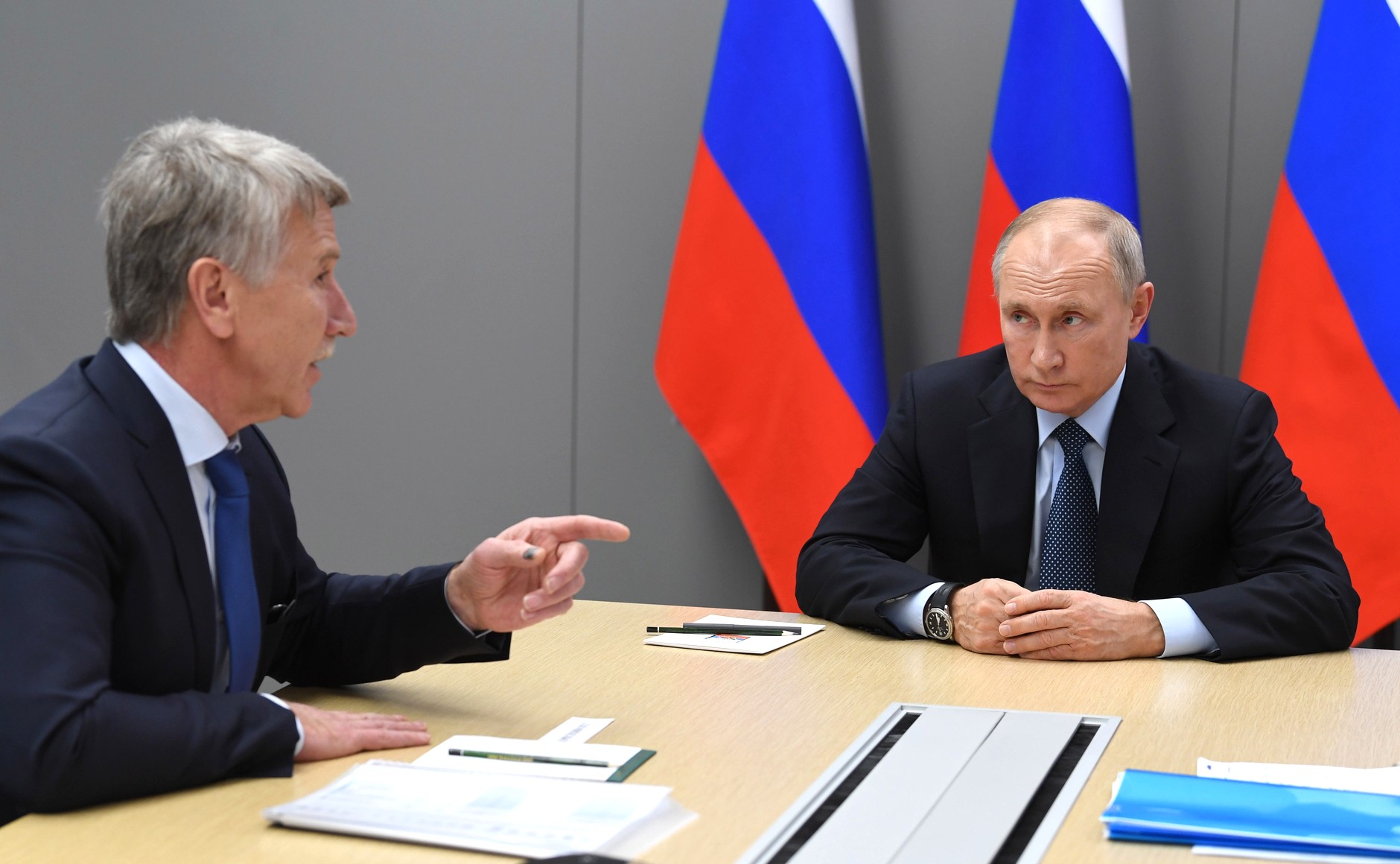 Dmitry Konov: They provide 40 percent of the financing. They are a 40-percent shareholder in this project. We are waiting for a decision of the Commission on Foreign Investment to finalise the deal. Leonid Mikhelson: Excuse me, Mr Konov, at present ZapSibNeftekhim exports over half of its output. Meanwhile, consumption in Russia is on the rise, while the emerging markets are the Asia-Pacific region and China. Therefore, it is perfect timing for the launch of the Amur GCF. And a request, Mr President. An intergovernmental agreement was signed on Yamal LNG, which is also a huge Russian-Chinese project. Now the Chinese side is also expressing a desire to perhaps have an intergovernmental agreement signed on this project, too. Vladimir Putin: An agreement on the Amur GCF? Why not? Leonid Mikhelson: Yes, it would give the project international standing. Vladimir Putin: Fine, submit the proposal, agreed. The source of information - http://en.kremlin.ru/events/president/news/64531
__________________
Where should they dig the Very Deep Pit? Piglet said that the best place would be somewhere where a Heffalump was, just before he fell into it, only about a foot farther on. (c) Alan Alexander Miln |
|
|
#156 |
|
Senior Member
|
Meeting of the CSTO Collective Security Council
Vladimir Putin chaired a meeting, via videoconference, of the Collective Security Council of the Collective Security Treaty Organisation. December 2, 2020 - 13:15 - Novo-Ogaryovo, Moscow Region Taking part in the meeting were Prime Minister of Armenia Nikol Pashinyan, President of Belarus Alexander Lukashenko, President of Kazakhstan Kassym-Jomart Tokayev, Acting President of Kyrgyzstan Talant Mamytov, President of Tajikistan Emomali Rahmon and Secretary General of the Collective Security Treaty Organisation Stanislav Zas. Key decisions of the meeting have been recorded in the Collective Security Declaration and the Statement of the CSTO Collective Security Council on creating a just and sustainable world order. In addition, the participants adopted an agreement on joint logistic and medical support for the CSTO troops (Collective Forces) and a protocol on amendments to the agreement on the CSTO peacekeeping mission of October 6, 2007. A number of decisions made at the meeting concern the development of military cooperation, the CSTO anti-drug strategy, quality control of combat hardware jointly designed and produced by the CSTO, improving training of personnel for the government bodies of the CSTO member states, personnel training for the peacekeeping forces, and the structure and disposition of the CSTO peacekeeping contingents. 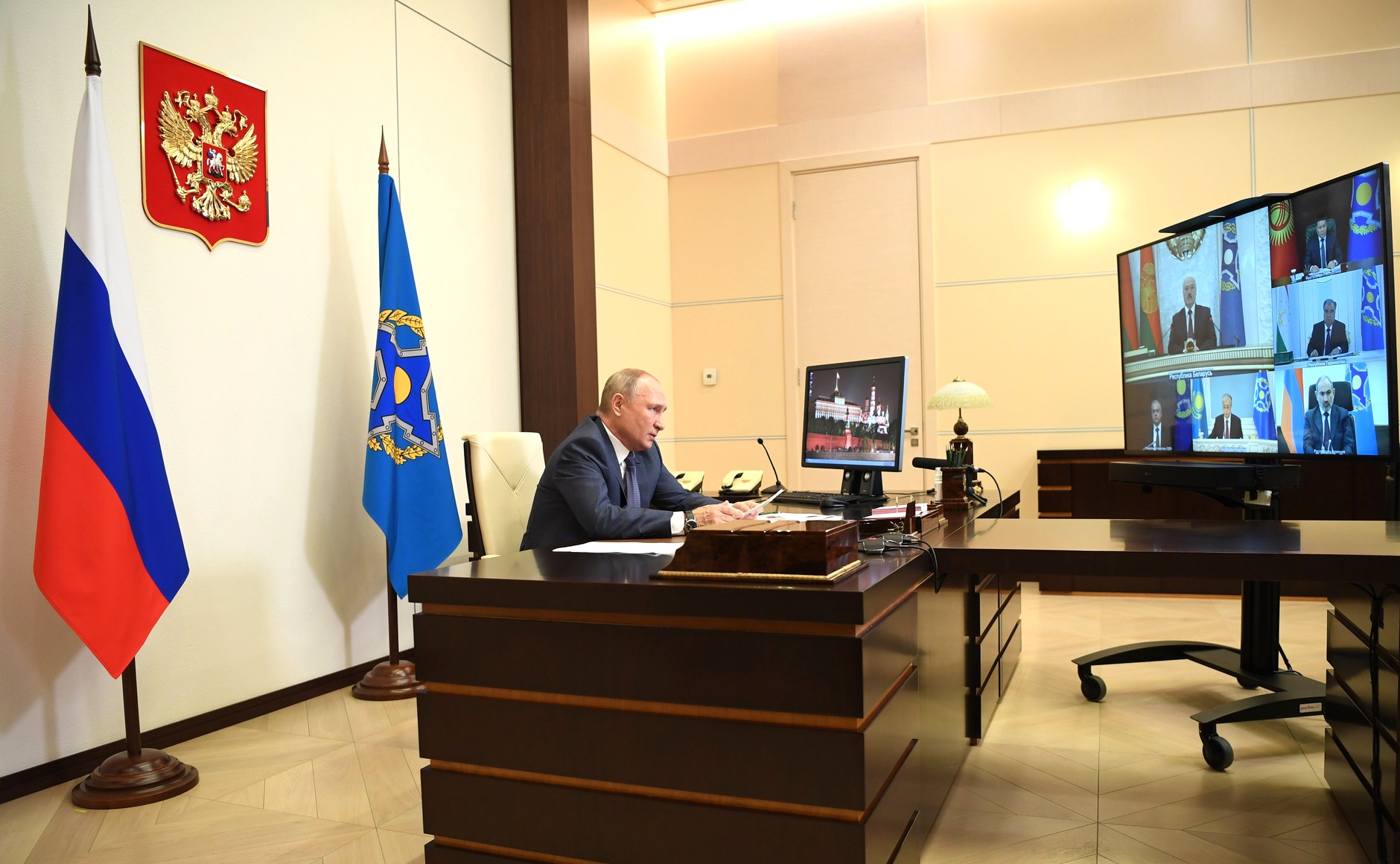 President of Russia Vladimir Putin: Good afternoon. I am very glad to see you all and to welcome you. We will be discussing current international issues and subjects of concern to our regions. The coordinated agenda has been provided, and all of you have it on the table in front of you. If there are no objections, I suggest that we start working. I hereby declare the meeting of the CSTO Collective Security Council open. In keeping with the established procedure, allow me to be the first speaker at this meeting as the head of state holding the current CSTO chairmanship, after which I will give the floor to every one of you, colleagues. Everyone will have an opportunity to speak. The procedure has been coordinated in advance, so let us begin. Friends, During its chairmanship of the Collective Security Treaty Organisation, Russia focused its efforts on the further development of strategic partnership with the CSTO member states and on continuing an open and trust-based dialogue on the entire range of security issues. As a result of the joint work carried out by our countries this year, a solid package of agreements has been prepared for approval at today’s meeting of the Collective Security Council, including the final Declaration and the Statement on building a just and sustainable world order. It is clear that in the difficult situation caused by the spread of coronavirus, we had to address urgent issues in healthcare, as well as in the social and economic spheres as a matter of priority. I would like to note that the CSTO member states have established very close cooperation in the coronavirus response effort; we have provided assistance and support to each other, and continue to do so. In particular, Russia has supplied its CSTO allies with medical devices, equipment, test systems, and personal protective equipment. Groups of Russian specialists, doctors and epidemiologists, have visited the countries that are parties to the Treaty. Colleagues, at present, consideration is underway of the possibility of supplying the Russian Sputnik V vaccine to CSTO states or launching joint production in your countries. The same applies to our other two vaccines, including EpiVacCorona, which has also been registered. It is important that, despite the special circumstances, the work in the CSTO priority areas was carried out as planned. A number of significant events took place during the year, including meetings of the Council of Foreign Ministers and the Committee of Secretaries of Security Councils. In September, for the first time, Moscow hosted a joint meeting of the defence ministers of the CSTO, the Commonwealth of Independent States and the Shanghai Cooperation Organisation. We hope that expanded meetings like this will become regular, because they help us to improve the coordination of our military policy approaches with our key partners. By the way, we think it a good idea to grant observer and partner status to countries wishing to maintain regular contacts with the CSTO. This year, we continued holding military exercises to expand the Organisation’s defence capabilities, and improve combat training, cohesion and mobility among the CSTO Collective Forces. In August, Russia hosted Echelon 2020 special training with the assets of acquisition, technology and logistics forces, and the Nerushimoye Bratstvo 2020 (Indestructible Brotherhood) combat-and-staff exercises that took place in Belarus in October. Friends, The situation within the CSTO sphere of responsibility has been quite challenging and generally quite turbulent. I am referring to the military conflict that broke out around Nagorno-Karabakh and involved a CSTO member state, as well as the post-election developments in Belarus when the country came under unprecedented external pressure. I am also referring to the internal political situation in Kyrgyzstan. We all know too well that Russia had to undertake proactive mediation efforts in order to stop the bloodshed in the Nagorno-Karabakh conflict zone, achieve a full cessation of hostilities and launch the stabilisation process. In doing so, we were guided by the key agreements reached within the OSCE Minsk Group, including by Russia, the United States and France as its co-chairs. The November 9 trilateral Statement by Russia, Armenia and Azerbaijan is being consistently implemented. Russian peacekeepers have been deployed along the line of contact and the Lachin Corridor. It is now time to work together to help people who suffered from the hostilities in this region, help resolve humanitarian issues, facilitate the return of refugees, restore infrastructure, and protect historical, religious and cultural monuments. Russia is already working on all these matters together with Yerevan and Baku. We are looking forward to our partners from the CSTO and the CIS joining these humanitarian efforts. We are also discussing cooperation opportunities with other international organisations. I am pleased to note that, in the past year, CSTO member states continued to cooperate in the fight against terrorism and organised crime. The specialised Working Group under the Committee of Secretaries of the CSTO Security Council functioned successfully. Law enforcement and intelligence agencies conducted regular operations. We also regularly exchange information regarding the threat of extremist militants’ returning from hot spots of tension. Two Nayomnik (Mercenary) special operations were organised to expose terrorist groups, neutralise their resources and prevent the recruiting of new supporters, including with the use of the internet and social media. We have drafted an upgraded CSTO Anti-Drug Strategy through to 2025. In 2020, all CSTO activities took place against the background of the 75th anniversary of Victory in the Great Patriotic War. Military units from CSTO member states took part in a Victory Day Parade on Red Square. We are grateful to our allies in the Organisation for supporting initiatives on preserving historical truth and opposing efforts to justify any manifestations of Nazism that were advanced by Russia at international venues. All CSTO members co-authored the relevant Russian draft resolution of the UN General Assembly. I am convinced that we must continue to act in unison, while defending the memory of the Great Victory, the heroic feat of our peoples who saved the world from Nazism through tremendous and irreplaceable sacrifices. In this way, we are paying tribute to those who fought the enemy, and we are sending a clear message to the entire international community about the unity of our Organisation’s member states and their determination to jointly defend peace and security. Colleagues, I have charted specific guidelines for joint activities of our Organisation’s member states, and I am counting on an engaging discussion on the matters I mentioned and on matters of mutual interest, as they say in such cases, in the CSTO region. Thank you. I would like to hear all our colleagues, all the leaders of the CSTO member states – let’s go by the name of the country in Russian alphabetical order. And now I give the floor to our first speaker, Prime Minister of the Republic of Armenia Nikol Pashinyan. Please, Mr Pashinyan.  Prime Minister of the Republic of Armenia Nikol Pashinyan: Thank you, Mr Putin. Mr Chairman, colleagues, Mr Secretary General of the CSTO, I welcome you all to today’s meeting which sums up Russia’s chairmanship of the CSTO. The priorities of the Russian chairmanship had to do with addressing matters that are critical for the development of the CSTO and improvement of our cooperation, and we are grateful for all the work done during this difficult period. I would also like to thank Mr Stanislav Zas and the CSTO Secretariat for setting up today's online meeting and, in general, for the team’s work carried out in the context of the pandemic. And of course, taking this opportunity, I would like to welcome the Acting President of the Kyrgyz Republic, Talant Mamytov, who is attending a CSTO meeting for the first time. Friends, The last two months have become a period of confrontation for the Armenian people … Sorry, we have technical problems at our end. Vladimir Putin: Yes, we can hear that. Nikol Pashinyan: Azerbaijan, supported by Turkey and by terrorist mercenaries from the Middle East, has unleashed a war on the Armenian people. As you know, with Russian mediation, we succeeded in curbing the hostilities and agreeing on measures to de-escalate the situation. It has been over three weeks since hostilities ended. Russian peacekeepers are deployed in the conflict zone. However, today we still have a number of urgent tasks. Firstly, we need to agree on the exchange of prisoners, hostages, other detainees, as well as the bodies of those killed, and get information on the missing persons. These are urgent questions. The Armenian side is ready to intensify efforts to speed up this process and increase its efficiency. At the same time, it is necessary to rule out any use of violence against prisoners of war and detainees and any infringements on their dignity. Secondly, conditions need to be created for the return of the Artsakh people to their homes, and for the restoration of normal life in Nagorno-Karabakh. People need to be sure that they are safe and can continue to live on their land. Several tens of thousands of Artsakh people have already returned to their homes, and we are making every effort to help and support our compatriots. Furthermore, measures need to be taken to protect the Armenian people’s cultural and religious landmarks located in the territories occupied by the Azerbaijani troops. Finally, it is important to ensure the safe operation of local transport, to rule out any provocations and establish normal conditions for the functioning of all critical infrastructure that the Artsakh people need. All the measures I have mentioned, including the unblocking of all economic and transport links in the region, are crucial and will pave the way towards a lasting peace in the region. Colleagues, The Russian peacekeeping force deployed along the contact line in Nagorno-Karabakh and along the Lachin Corridor, which connects Artsakh and Armenia, is now the guarantor of continued peace and security in this region. In this regard, I would like to underscore the exceptional role played by Russian President Vladimir Putin. All through the 44 days of fighting, we were in constant contact and discussed the necessary measures to end the bloodshed and protect lives. We are still working very closely with Mr Putin today to solve such problems as the search for missing persons, the exchange of prisoners of war and detained persons and the bodies of those killed. To conclude my remarks, I would like to congratulate Tajikistan on taking over the CSTO chairmanship and reaffirm Armenia’s commitment to intensive joint work to implement the priorities of the Tajik chairmanship. Thank you. Vladimir Putin: Thank you very much. Indeed, Armenia and the Armenian people have just gone through a very difficult period, and the country’s leaders – the head of government, the Prime Minister of Armenia – had to make some difficult decisions, which were necessary for the people of Armenia. I must say that although these decisions were definitely painful, again, they were necessary, and required great personal courage from the Prime Minister; this much is obvious. Each of those present at this meeting certainly understands the degree of responsibility this kind of decision-making takes. So he took this responsibility upon himself, and it is our turn now to support the Prime Minister and his team in their effort to establish a peaceful life, achieve the implementation of all the decisions made and help people who found themselves in difficult life situations. President of Belarus Alexander Lukashenko, go ahead please. 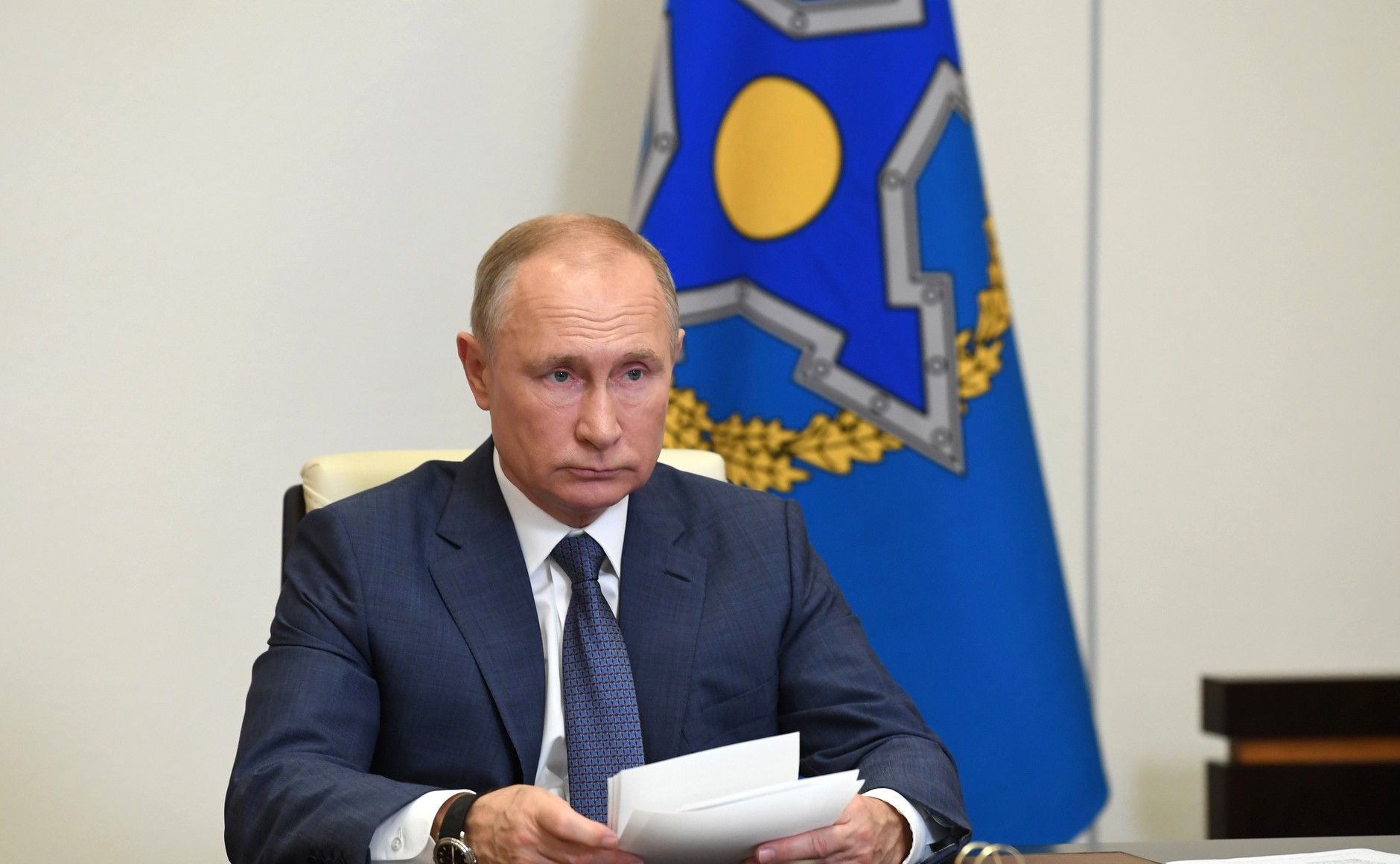 President of Belarus Alexander Lukashenko: Friends, Our Organisation is working in difficult conditions. The systems of international relations and arms control mechanisms are being distorted. Confrontational rhetoric is increasingly dominating communication. The world is about to unleash an uncontrolled arms race again. Military confrontation between the world centres of power, which presents the biggest threat, is being aggravated. The build-up of the US and NATO military presence near the CSTO’s western borders is a source of serious concern. I am primarily referring to the deployment of an additional US troops contingent in Poland and US plans to create new military infrastructure. We are clearly seeing an increase in systemic military actions in that country and the Baltic states. At the same time, these military activities threaten not only Belarus’ national interests. In this context, we must also review NATO’s statement on drafting a new strategic concept. I believe everyone understands against whom and what it will be aimed. It is necessary to mention separately the hitherto unheard-of use of all kinds of sanctions. These international legal measures have become standard practice although they are supposed to be used in exceptional circumstances and only for resolving the vital issues of ensuring peace and security. In turn, the pandemic has not only complicated international cooperation but also exacerbated social conflicts. Unprecedented large-scale riots have swept the world. It is already obvious that this is not just a spontaneous display of discontent, as the media are trying to present it to us. The international order is sliding down towards what is called controlled chaos. This is obviously a purposeful, well-orchestrated effort of the global players that sometimes do not take account of anything, including the interests of their own people. There are many examples of this. Everyone knows about the unprecedented unrest in the United States and European countries, which were considered especially prosperous and all but model democracies until recently. It is obvious that a universal balance between civil liberties and national security interests has never been found in Western society. Apparently, this is where the increasingly unceremonious imposition of double standards on the international collective consciousness stems from. On the one hand, the Western authorities present their extremely harsh reaction to the protests and the generally unpopular state policy as an objective necessity; on the other hand, any moves by other countries to ensure stable growth and maintain law and order and the rule of law are slammed as dictatorship and tyranny, although these measures are smaller than their own by an order of magnitude. Along with these unequal coordinate systems, various manipulations and the use of hybrid warfare for the so-called colour revolutions have become commonplace. Moreover, there are no “colour revolutions” here, those are just ordinary riots. That is why Belarus in 2020 is experiencing blatant interference in its internal affairs, including through provoking civil discontent. We are being openly told to change the government, the laws and social representation, otherwise they threaten to strangle us with sanctions, destroy our economy and infrastructure, and transform the moral and ethical foundations of our society. Now there is no doubt, it is the civil peace and integrity of our Belarus that were and still are at stake. Moreover, we are being advised to change the government, the laws and social representation in an openly cynical way, as these prompts are no longer even hidden behind any diplomatic concepts. The frenzied behaviour of Poland and the Baltic countries towards Belarus is actually worth special notice. More than that, we can clearly see that their actions aim to pursue their own interests and boost their importance in the European Union. And I want ordinary people in these neighbouring countries to hear about their politicians’ shameless and unworthy behaviour. By now, many have realised that the world will never be the way it was a year or two years ago, much less the way we imagined it. However, we have to deal with the widespread conflict and the new diseases that hit us, and continue to live and grow, raise children, rejoice in goodness, be happy to have each other, and make every effort to preserve the fine and fragile line that separates humanity from a catastrophe. Colleagues, Taking into account the dynamics of challenges and threats, we are required to not just maintain the current level of interaction, but to build it up. Today, the alliance is acquiring increasing significance. The CSTO must show its ability to work intensively and reliably in the political, military and informational dimensions, as well as to effectively counter terrorism, extremism and drug trafficking, to be proactive and to avoid social disasters. It is important to not only identify new challenges and threats in a timely manner, but also to launch mechanisms to repel them and to bring the member states’ collective response positions as close as possible. I think we can do it. I would like to emphasise that, of course, it is good that we are having this “televised” meeting, but given the situation, we must definitely get together in person and, taking into account the lessons of the most recent developments, discuss our future actions in order to prevent this from happening in all other countries. No one should be complacent in this situation. Probably, all of us understand this. So, I propose setting the time for an expanded meeting not only between the CSTO members, but also, as the President of Russia said, not just partners, but the countries which can sense the looming danger for all of us. Thank you. Vladimir Putin: Thank you very much, Mr Lukashenko. Indeed, the situation in Belarus could not but give us cause for concern. Of course, tensions and even conflicts may arise in any country during election battles or after the election. Just look at what happened in the United States in the run-up to the election, how the US political forces describe the election campaign, and what is happening now. The same thing can happen in any country, and it happened in Belarus. However, this is not our concern. Our real concern is the external interference, including financial support, information support, political support, and so on. After all, the nations must be given an opportunity to deal with the issues that are important to them. We witnessed the developments in the Arab world during the Arab Spring. What did it lead to? I am not even talking about all sorts of other “colour revolutions,” but what did it lead to here? It is always explained by good intentions, but we know that the road to hell is paved with good intentions. This is exactly where good intentions, attempts at interference and interference in the internal affairs of other states, lead. I very much hope that the Belarusian people will muster enough political maturity in order to calmly and without any abrupt movements build an internal political dialogue with all political forces, and resolve all internal issues on their own, without any pressure or outside interference. I have no doubt that it will work out, given the political experience of the President of Belarus. President of the Republic of Kazakhstan Kassym-Jomart Tokayev is our next speaker. Please go ahead. President of the Republic of Kazakhstan Kassym-Jomart Tokayev: Colleagues, Secretary General of the CSTO, First of all, I would like to express my gratitude to the chairman of today's meeting, President Putin, for hosting this event. I would also like to praise the highly substantive and professional nature of Russia’s CSTO chairmanship, which has improved interaction across all areas of our activities and strengthened our Organisation’s capacity and authority. Taking this opportunity, I congratulate President of Tajikistan Emomali Rahmon on the upcoming CSTO chairmanship and wish our Tajik colleagues productive work. Our meeting is taking place amid complex regional and global processes. The situation in regional and global security is aggravated by the growing conflict potential in interstate relations. Against this background, President Putin's mediation with the aim of ending hostilities in Nagorno-Karabakh deserves the highest praise. The agreement was reached with Russia’s energetic participation. I believe it is the only correct decision in the current critical situation. This agreement will help establish lasting peace in the region. I think this is a truly historic agreement. The COVID-19 pandemic has caused widespread turmoil in global politics and the economy. The situation is further complicated by mounting mutual sanctions and restrictions and escalating trade wars. The rise in new global challenges and threats related to extremism, terrorism, drug trafficking, cybersecurity and illegal migration causes concern. Given that, the role of our Organisation as an effective mechanism of interstate interaction in the name of strengthening peace and ensuring security and stability in the vast region has significantly increased. I would like to take this opportunity to express my gratitude to you, President Putin, for your assistance in overcoming the pandemic. A plant for the production of the Russian vaccine will be built in Kazakhstan soon as a follow-up to our agreement. Colleagues, An electoral process has started in Kazakhstan. Elections for deputies of the lower house of parliament and local representative bodies are scheduled for January 10, 2021. The elections will be held within the constitutional terms, and all political forces have been given enough time to prepare. This year, we have implemented a package of unprecedented democratic reforms designed to expand the multi-party system and political competition, and to improve civic engagement. In particular, the institution of parliamentary opposition has been enshrined at the legislative level and a 30 percent quota has been introduced in the party lists for women and youth. We are determined to hold transparent and fair elections. We look forward to our partners’ support and having observers from your states, as well as from the parliamentary assemblies of the CIS and, of course, the CSTO. Colleagues, The agenda of our meeting is fairly intensive. Today we will discuss a broad range of issues that are very important for deepening our cooperation and will also adopt a number of major documents aimed at enhancing the strength and capabilities of our collective security system. The Declaration of the Collective Security Council and the Statement [of the CSTO Collective Security Council] on creating a just and sustainable international order will become the meeting’s key documents. Their adoption will demonstrate beyond doubt our common commitment to the further strengthening of international dialogue and cooperation on resolving global and regional problems. Participation in the CSTO activities is a priority in Kazakhstan’s foreign policy. It is gratifying that the CSTO has become a significant factor in international politics and is playing a positive role in ensuring security on a considerable part of Eurasia. As before, we are ready to actively cooperate with our partners in the search for effective solutions to ensuring peace, security and prosperity of our people. Thank you for your attention. 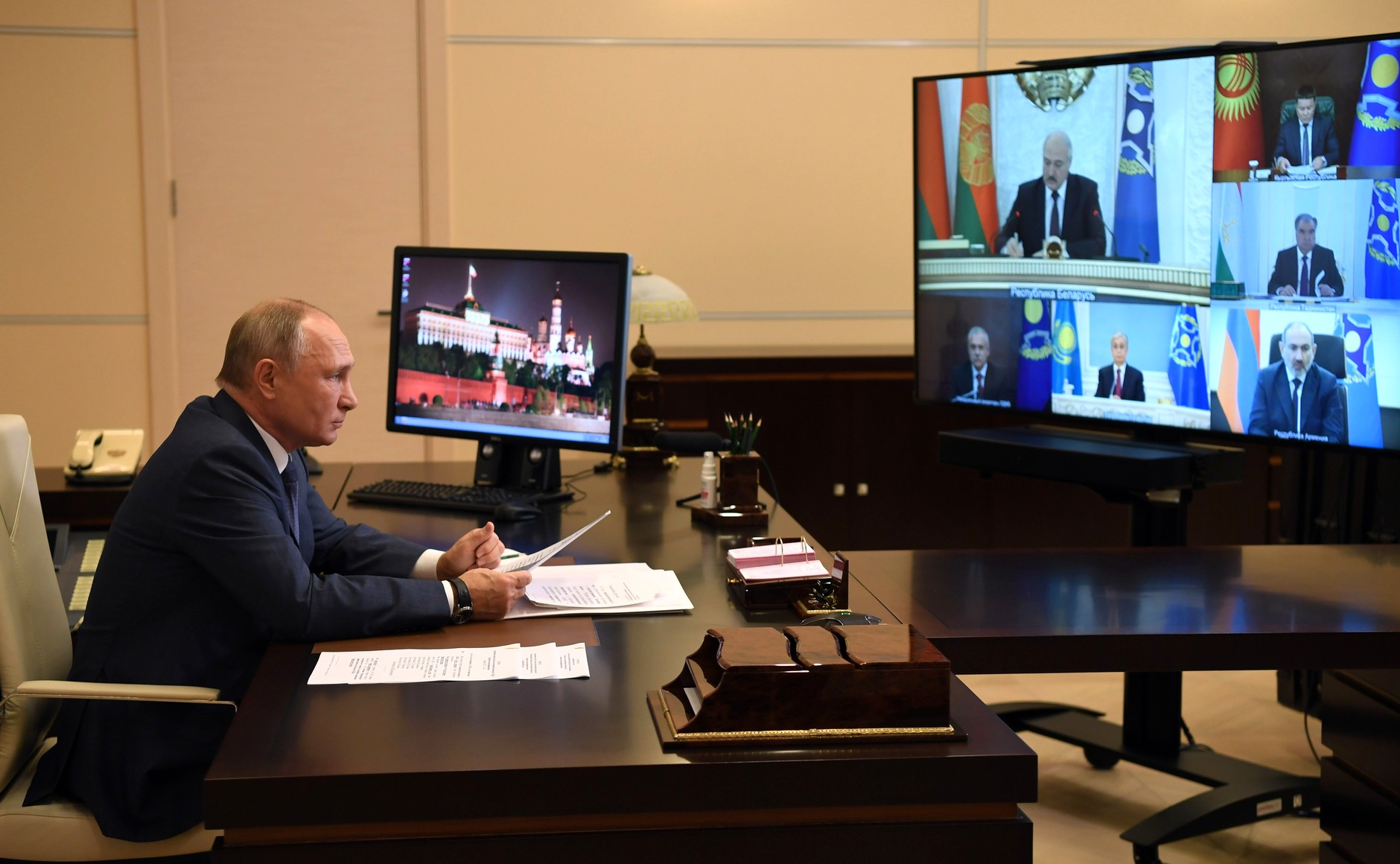 Vladimir Putin: Thank you very much for your address. We are confident that Kazakhstan will successfully hold the parliamentary elections on January 10, 2021, an important event in its domestic political calendar. I would like to say that, of course, all countries are facing difficulties and our countries are no exception. However, the situation with strategic stability that has been created by the first President [Nursultan Nazarbayev], and is now being effectively maintained by the current President, by you, is a great achievement. Kazakhstan has made an impressive achievement by consolidating its statehood and domestic political stability. All this creates the conditions for overcoming the difficulties that are now faced by the entire world. I am referring, in part, to the effective efforts to counter the coronavirus pandemic and the general steady advance of social policy and the economy. We certainly wish you every success and I am sure that even before this domestic political event we will have an opportunity to discuss issues that are of interest not only for the CSTO but also for our bilateral ties. Thank you very much. I give the floor to Acting President of the Kyrgyz Republic Talant Mamytov. Go ahead, please. Acting President of Kyrgyzstan Talant Mamytov: Colleagues, I would like to use this occasion to extend my warm greetings to you all and to express my sincere gratitude to President of Russia Vladimir Putin for organising this videoconference CSTO meeting so well. We are meeting at a difficult time. The coronavirus pandemic, which has become the greatest problem for humankind, has had an extremely adverse impact on the world as a whole, including the global economy and trade. This has led to negative social and humanitarian consequences, first of all for the developing countries, one of which is the Kyrgyz Republic, as we must admit frankly and openly. However, despite these hardships, Kyrgyzstan is working hard to meet all the commitments it has assumed within the framework of the CSTO, supporting the initiative aimed at ensuring regional and international security and strengthening the CSTO potential as a whole. I would like to use this occasion to speak about the socio-political situation that has developed in our country. I see it as an important factor in the context of the CSTO development, given that the main goal of our Organisation is to preserve and maintain stability in the CSTO space, including Central Asia states. I will not go into detail regarding the recent developments, about which my colleagues are sufficiently aware, I believe. But I would like to say that the most important thing for us today is to keep up the course we have chosen to meet the people’s demands and to mend the mistakes made during the parliamentary election on September 4, 2020. The socio-political situation has stabilised in Kyrgyzstan. The Kyrgyz Republic remains fully committed to all of its international commitments and is strictly complying with the bilateral and multilateral international agreements it has signed. The bodies of authority are functioning in a normal mode. In addition, we will hold a presidential election on January 10, 2021. In this connection, colleagues, I would like to assure you that the Kyrgyz authorities will do their utmost to hold an honest and competitive election. I see this as a crucial step towards the further stabilisation in the country. In light of this I would like to mention the position of principle the heads of CSTO states assumed during the October 5–6 events in Kyrgyzstan and to express our sincere gratitude for your understanding of the situation and the support you have given us in a difficult period. Colleagues, Today we must openly admit that the world is changing. Contradictions in the global economy have aggravated the already complex social problems of the humankind. Globalisation and the advance of cutting-edge technologies have created huge environmental problems and inefficient use of the world’s natural resources. Poverty and unemployment are becoming the scourge of the developing economies. In this context, socio-political instability in some parts of the world is creating a palpable threat to the system of global security. There is no doubt whatsoever that the world needs new approaches and modes of operation. All these factors of global development show that it is more important than ever for the CSTO member states to act in a coordinated and collective manner. Today the CSTO has real capabilities for ensuring regional and global security. In this context, I would like to point out Russia’s special role in the CSTO, or more precisely in stabilising the situation in the Caucasus as well as in other complex regions. Overall, I believe that Russia’s CSTO chairmanship and, most importantly, its practical actions have greatly strengthened the CSTO and mapped out the path for its further development. Colleagues, The year 2020 was a special year for our countries. This year we celebrated together the 75th anniversary of the Great Victory in World War II. I would like to emphasise that victory in that war united our nations and showed us the path forward. Our nations, which sustained huge human and material losses in that horrible war, are now aware of the value of friendship, mutual assistance and unity. Proof of this is our countries’ interaction within the framework of the CSTO and other respected organisations. Our common history, a strong spirit of alliance and mutual support are the main components of the Collective Security Treaty Organisation In conclusion, I would like to use this occasion to express our deep gratitude to President of the Russian Federation Vladimir Putin, President of the Republic of Kazakhstan Kassym-Jomart Tokayev and our other partners for the constant support they provide to the Kyrgyz Republic in its fight against the spread of the coronavirus infection. The results of our joint efforts show that we can only cope with this serious challenge if we stand together. This is how it has always been, and so it will be in the future as well. I would like to wish health and every success to all participants in this CSTO meeting. Thank you very much. Vladimir Putin: Thank you. Mr Mamytov, I am sure I will express our common opinion by saying that we have always watched with concern the domestic political developments in Kyrgyzstan, and I would like to express satisfaction with the fact that the situation is being stabilised. We have also followed closely your position on Kyrgyzstan abiding by what you said are its commitments under international treaties. We are pleased to state that Kyrgyzstan is not changing its positions within the EAEU and the CSTO. This is extremely important, including for Kyrgyzstan’s own stability. You know that Russia has been doing a great deal bilaterally to support Kyrgyzstan’s economy and social sphere. This concerns the fund worth hundreds of millions of dollars, the work involving the sanitary and epidemiological services, the phytosanitary control on the border, and so on. We hope and proceed from the assumption that we will continue this entire joint work together with you. But, of course, positive results cannot be achieved unless there is internal stability. Therefore, we are very interested in seeing both the parliamentary and presidential elections held at the highest level and in conformity with all the requirements of the constitution and the election law. We will support you in every way on the path to further stabilisation and in your active work in all the above-mentioned areas. We wish you success. I give the floor to President of the Republic of Tajikistan Emomali Rahmon. Please, the floor is yours. President of the Republic of Tajikistan Emomali Rahmon: Thank you, Mr Putin. Colleagues, First of all, I would like to express gratitude to President of the Russian Federation Vladimir Putin for having organised our meeting. I would also like to note Russia’s efforts to ensure the stable work of this Organisation in today’s difficult environment. This year, the world has faced an unprecedented surge of challenges and threats. The COVID-19 pandemic has led to a global recession and socioeconomic problems. It has made a considerable impact on the habitual course of life, forcing all countries in the world to drastically revise their earlier plans and initiatives. The social, financial, and economic crisis that followed in the wake of the pandemic has had a radical impact on the expected growth of the global economy and has led to higher unemployment, endangering food security. At the same time, there is an upward trend when it comes to the threats of terrorism, extremism, various forms of radicalism and transnational organised crime, including drug trafficking. Various terrorist and extremist forces have not abandoned their destructive plans and remain active around the world, including in direct proximity to the CSTO zone of responsibility. In this context, we are looking with concern at the negative developments in Afghanistan, in particular, its north-eastern region. All these circumstances call for a commensurate response, including by adopting the necessary measures to strengthen the CSTO’s southern borders. Colleagues, In light of the current tensions in the world and our region, it has become much more important to build up the CSTO capability to effectively resist security threats and challenges. Following today’s meeting the CSTO chairmanship will go over to the Republic of Tajikistan. We will carry on the policy of strengthening our mutual efforts to ensure a safe and tranquil life for our nations. In this context, we have outlined a number of measures aimed at expanding the scope of goals and objectives to be addressed within the framework of the Organisation. Tajikistan hopes that its partners will support its efforts to implement them. Given the current realities, I would like to emphasise the importance of the decisions adopted following our meeting today. They include critical issues and are designed to ensure collective security in the CSTO’s zone of responsibility. We are convinced that our concerted joint efforts to implement the entire range of our goals are a factor that will give a fresh impetus to and further invigorate the Organisation’s activities. Thank you. Vladimir Putin: Thank you very much. We wish success to your chairmanship. I would like to mention the special role of Tajikistan in countering the threats coming from adjacent countries, that is, the proliferation of drugs and terrorists. Tajikistan is doing huge positive work in this sphere. We will continue to work together with you, including by lending the capabilities of the Russian military structure deployed in Tajikistan. Colleagues, I would like to thank you for your opening remarks. As agreed, after that we will be working in a restricted format. We will now stop live streaming, so that each of you can speak in more detail on the issues you consider to be of greatest concern. The source of information - http://en.kremlin.ru/events/president/news/64534 Opening Defence Ministry’s COVID-19 medical centres A videoconference was held to mark the opening of medical centres built by the Defence Ministry in several regions for coronavirus patients. December 2, 2020 - 16:40 - Novo-Ogaryovo, Moscow Region  President of Russia Vladimir Putin: Good afternoon, colleagues, Let us start working. During the past few months, we have enhanced the capabilities of our healthcare system, as everyone can see very well. Last week, a new pharmaceutical facility opened, and several other similar events had been held before that. As for the pharmaceutical facility, whose work will make the most in-demand, high-quality, domestically produced medications more affordable, it is a vital part of our efforts to create conditions for combating the coronavirus infection. Today we are opening another four multifunctional medical centres built by the Defence Ministry for coronavirus patients. Two of them will work in the Astrakhan Region, and the other two in Pskov and Severomorsk. The one in Pskov is the first specialised children’s centre. I would like to add that a medical centre will open in Yuzhno-Sakhalinsk later this month. Just as planned, the Astrakhan and Pskov centres will be turned over to the regions. The Severomorsk centre and the one in Yuzhno-Sakhalinsk, when it opens, will remain the property of the Defence Ministry but will also provide assistance to the civilian population, which I would like to emphasise.  These new facilities have the best modern equipment and will have highly skilled doctors and other medical professionals. This will allow them to take care of coronavirus patients. Both military builders and civilian specialists have done an excellent job. All facilities have been built well, with good quality and on time. The construction site was practically busy round the clock – both day and night. The builders used cutting-edge design and engineering solutions, the latest technology and the newest materials. Our army has again shown by deed that it is ready to help without delay at a difficult time. In all, during this challenging year, military builders from the Defence Ministry will have built 30 centres for coronavirus patients in a very short span of time. They are being built in the regions that were the hardest hit by the epidemic, where people are waiting for help, where extra beds, modern equipment, medications and, of course, qualified medical workers are needed.  The centres built by the Defence Ministry have become an important part of the regional healthcare systems. They play a big role at all stages of countering the coronavirus epidemic. These medical centres have a total bed capacity of over 3,000, or, to be precise, 3,165 beds, including about 370 ICU beds. In more than half a year, about 13,000 coronavirus patients underwent treatment at the Defence Ministry’s centres. Out of this total, over 8,000 were military personnel and more than 4,000 were civilians, the civilian population. I would like to thank all those who took part in building these multifunctional medical centres. I would like to thank you, colleagues, friends and comrades, for your responsible approach to the situation, and medical workers, for their selfless efforts to counter the pandemic. I have said this many times and we always repeat it, which is the right thing to do: we will overcome this together by all means. I wish success to the doctors, nurses and all medical personnel at the new and already functioning medical centres. I hope you will continue working in the future the way you have done up to this day. The source of information - http://en.kremlin.ru/events/president/news/64535 Meeting with Sergei Kulikov Vladimir Putin had a working meeting, via videoconference, with Sergei Kulikov. December 2, 2020 - 18:20 - Novo-Ogaryovo, Moscow Region 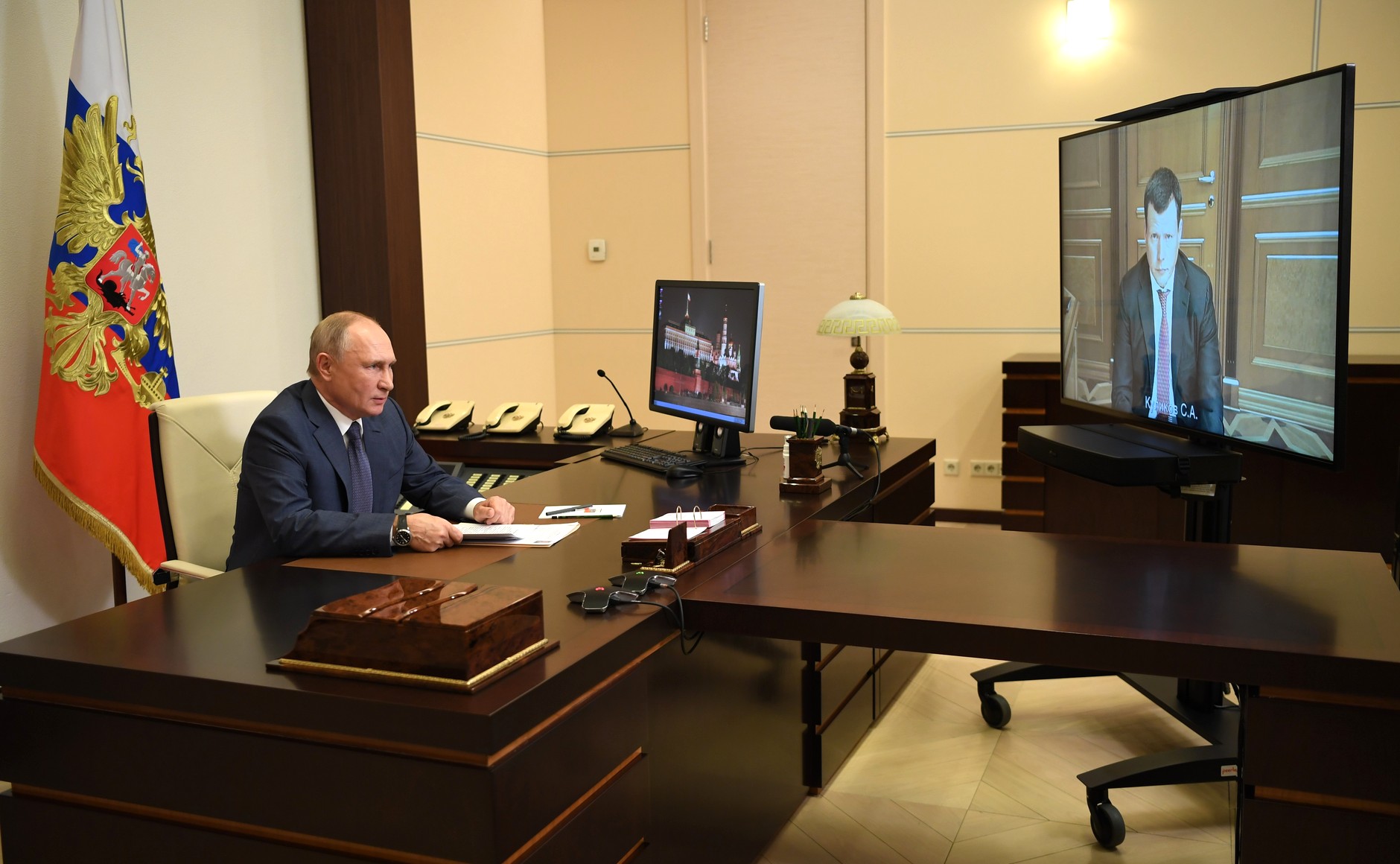 President of Russia Vladimir Putin: Mr Kulikov, as you know, you are being offered the opportunity to head one of our largest development structures – RUSNANO. This is a key area of development not only for Russia but also the entire global economy without any exaggeration. I will not go into details right now. I am sure you know what I am talking about. The RUSNANO Corporation was established in 2007 to bring new nanotechnology products to the stage of industrial production. We will talk now about the problems, but in general, much has been done during these years. For the most part, investment was made through relevant funds that embraced 12 industries. This is cross-cutting technology that is being used practically in the entire economy and all industries: metal processing, chemistry, instrument-making, healthcare, petrochemistry, metallurgy, power generation, machine-building, electronics, optoelectronics, telecommunications, building materials, biotechnology and so on. Let me repeat that these are key areas for the development of the entire global economy as well as our economy, including defence branches. To my knowledge, you are now working in the Military-Industrial Commission, and are aware of all the opportunities created by nanotechnology. 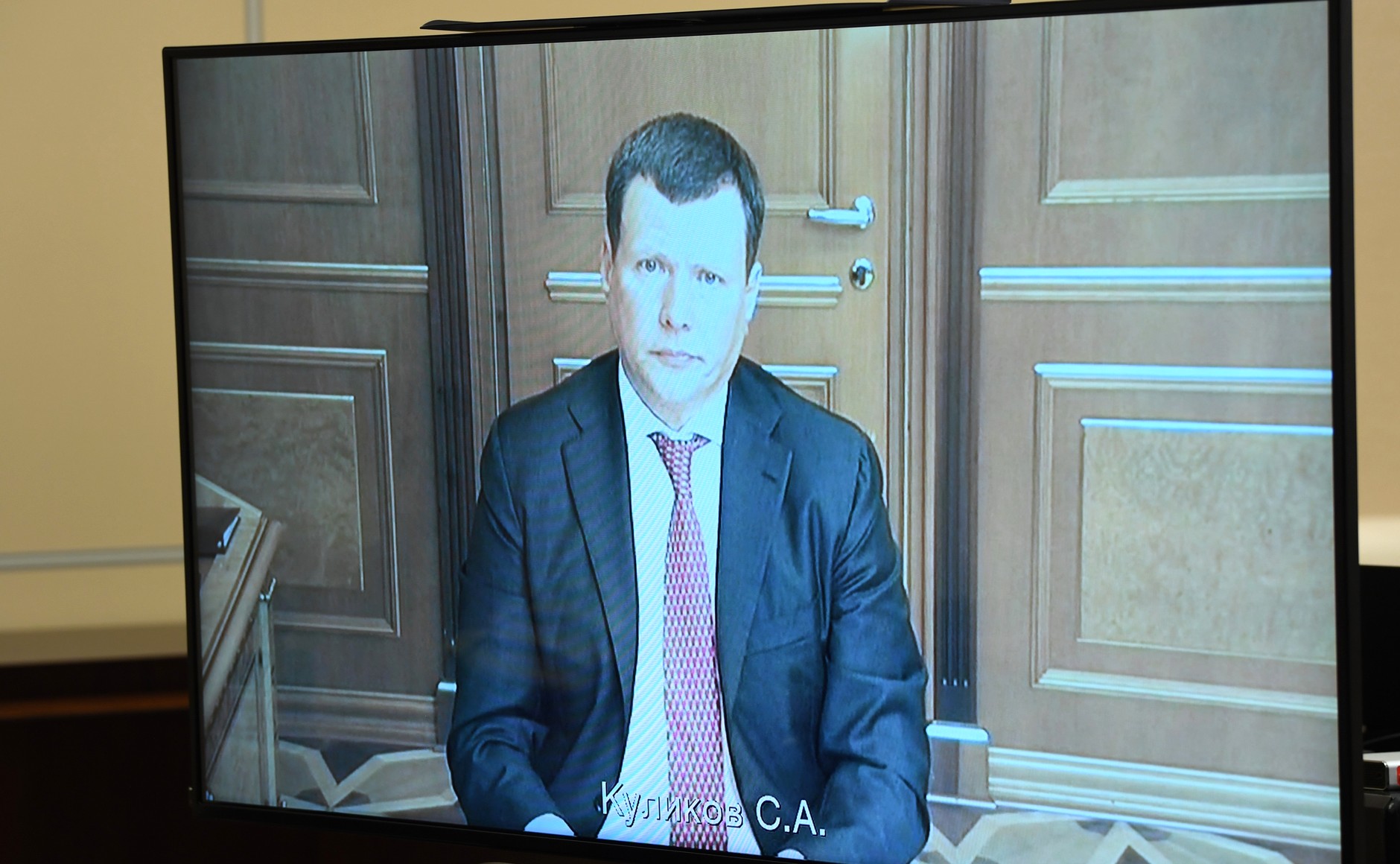 Much has been done during this time. A total of 115 companies have been established and are functioning in 38 regions of the Russian Federation. They employ over 40,000 people in new high-technology jobs. Investment in projects with the participation of partners amounted to 590 billion rubles, while sales exceeded two trillion rubles. I know and I am sure you know as well that there are problems that require special attention from the corporation’s top management and the Government of the Russian Federation, but we will talk about this in more detail. What do you think about this area of work and your tasks in the new job offered to you?  Sergei Kulikov: Thank you, Mr President. Obviously, this is an extremely important job, a dream for any technology investor, not to mention a manager. It is an ambitious and unconventional task – to create products and conditions for their sale at an accelerated pace. I believe they are our main national advantages. This is a creative goal. It amounts to developing and designing new materials. Our immediate task is still to learn how to turn ideas into products and sales into life cycle contracts with service. We must learn to turn current experimental production into industrial production, which is a new dimension. As I am seeing today, primarily working with Rosatom, is that we are very short of upscale mathematical modelling of material properties, which could substantially reduce the time of designing and reverse engineering. I consider it a very important competitive instrument. The average time for obtaining a new material here is from five to ten years. It could go down to two or three years. In other words, we must make mathematical calculations prior to model and full-scale tests. The current calculating capacities allow us to do this. We have a very strong mathematical school and are excellent at compiling algorithms. The source of information - http://en.kremlin.ru/events/president/news/64536
__________________
Where should they dig the Very Deep Pit? Piglet said that the best place would be somewhere where a Heffalump was, just before he fell into it, only about a foot farther on. (c) Alan Alexander Miln |
|
|
#157 |
|
Senior Member
|
Lawyer's Day greetings
Vladimir Putin congratulated Russia’s legal community on its professional day. December 3, 2020 - 10:00 The message reads, in part: “This day brings together everyone who has dedicated their lives to this difficult, tense, but very important cause, for the people and the country alike – to protect people’s legitimate interests, constitutional rights and freedoms, to strengthen Russia’s statehood. Your work is greatly needed in all areas of our life. It is impossible to even imagine the modern economic or political processes, the operation of enterprises, businesses, public services and public organisations without legal support and counselling. Your qualities such as honesty, responsibility, integrity and, of course, wide expertise in legislation are highly valued in any industry, and your ability to apply it in practice, based on the principles of morality and justice, is of the essence. This combination of professionalism and moral duty distinguishes the absolute majority of Russian lawyers and testifies to your firm adherence to the rule of law and the traditions of Russian jurisprudence established during the 19th century judicial reform. The legal and civil service veterans who have made a significant contribution to improving the work of Russia’s justice bodies and institutions deserve special words of gratitude. I believe the legal community’s priorities are to be at the forefront of the development and establishment of the rule of law, and to be active in improving our citizens’ legal culture. Your role in this highly important awareness-raising activity is even more in demand now, after the adoption of amendments to the Russian Constitution.” The source of information - http://en.kremlin.ru/events/president/news/64544 Condolences to President of the French Republic Emmanuel Macron Vladimir Putin expressed condolences to President of the French Republic Emmanuel Macron on the death of former French President Valery Giscard d’Estaing. December 3, 2020 - 13:00 The message reads, in part: “Many important events in the contemporary history of France are linked with the name of this outstanding man who is rightly regarded as the patriarch of European politics. One of the generation of veterans of the bloodiest war in the history of humanity, Valery Giscard d’Estaing was well aware of the value of human life and always advocated stronger peace and international security. In his post of the head of state and in subsequent years, he did a great deal to develop constructive relations between our two states and to expand the Russian-French dialogue and partnership. His memory will forever remain in the hearts of the Russian people. Please convey the words of our sincere sympathy to the family and friends of Valery Giscard d’Estaing and to all citizens of France.” The source of information - http://en.kremlin.ru/events/president/news/64543 Meeting with representatives of public organisations for people with disabilities Vladimir Putin had a meeting, via videoconference, with people with disabilities and representatives of public organisations. December 3, 2020 - 16:40 - Novo-Ogaryovo, Moscow Region 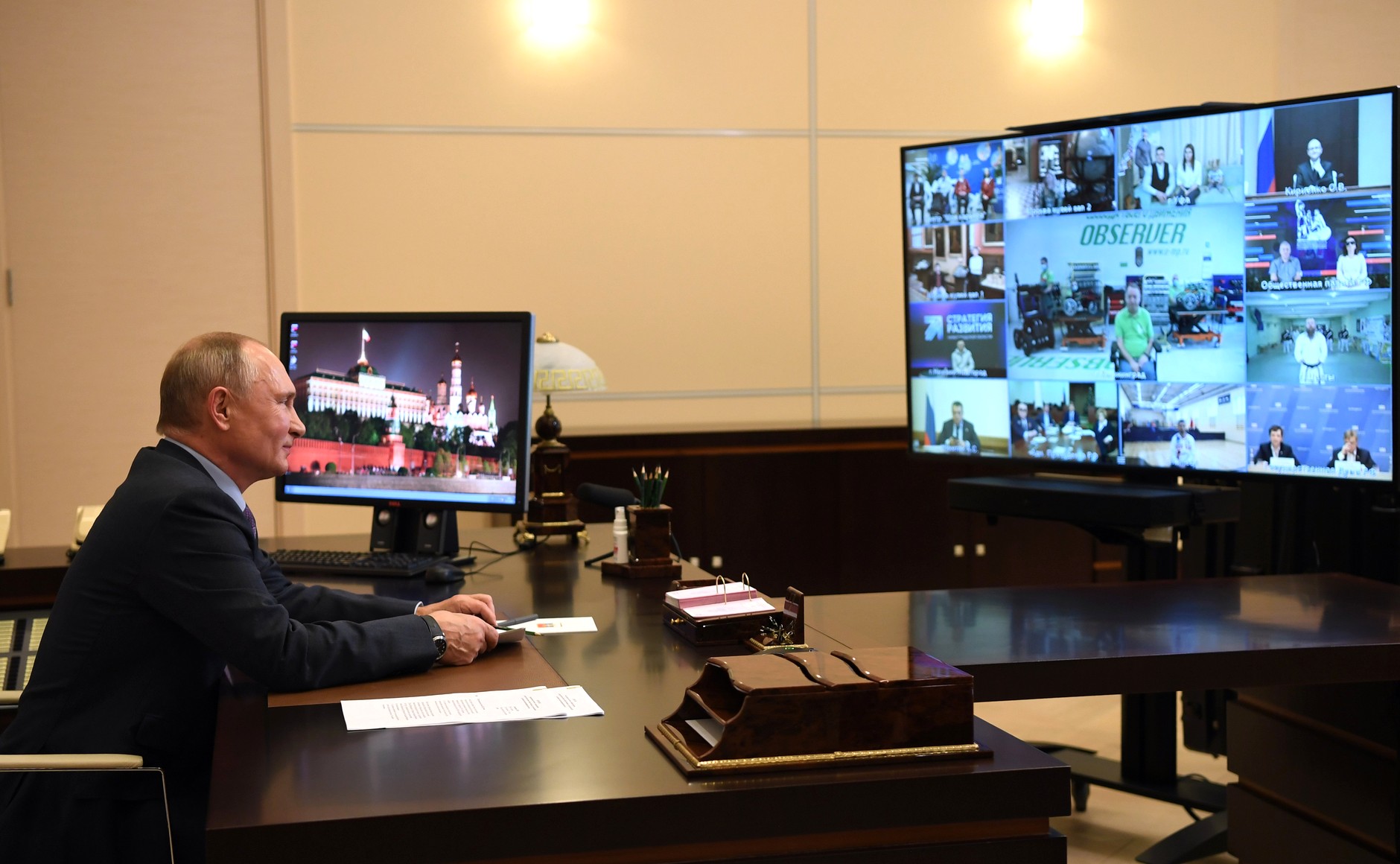 President of Russia Vladimir Putin: Good afternoon, friends, Today, we are marking the International Day of Persons with Disabilities, held under UN auspices, and we are meeting to discuss issues of concern to people with health impairments and tasks that we have to address together. I expect that our colleagues from the Government will also become directly involved in this work. In any event, I hope that the regions will hear you, will hear all subjects that we will discuss today because a considerable part of the work is conducted at the regional level. Undoubtedly, the attitude towards people with health impairments is an indicator of society’s and state’s maturity. This is a common rule and a well-known principle. We have discussed this many times, and we know this very well. This is also a criterion of humaneness and efficiency of social policy and organisation in all spheres of life. Let me remind you that the amendments to the Constitution adopted by a nationwide vote in the summer of 2020 formalise provisions dealing with the social protection and security of people with disabilities, based on the complete and equal protection of their human rights and citizens’ rights and freedoms and the inadmissibility of any forms of discrimination. I consider it very important that it was representatives of public organisations who initiated this amendment, as well as many other changes to the Fundamental Law. By the way, a proposal to hold our today’s meeting was voiced in a conversation with members of a working group on drafting amendments to the Constitution. 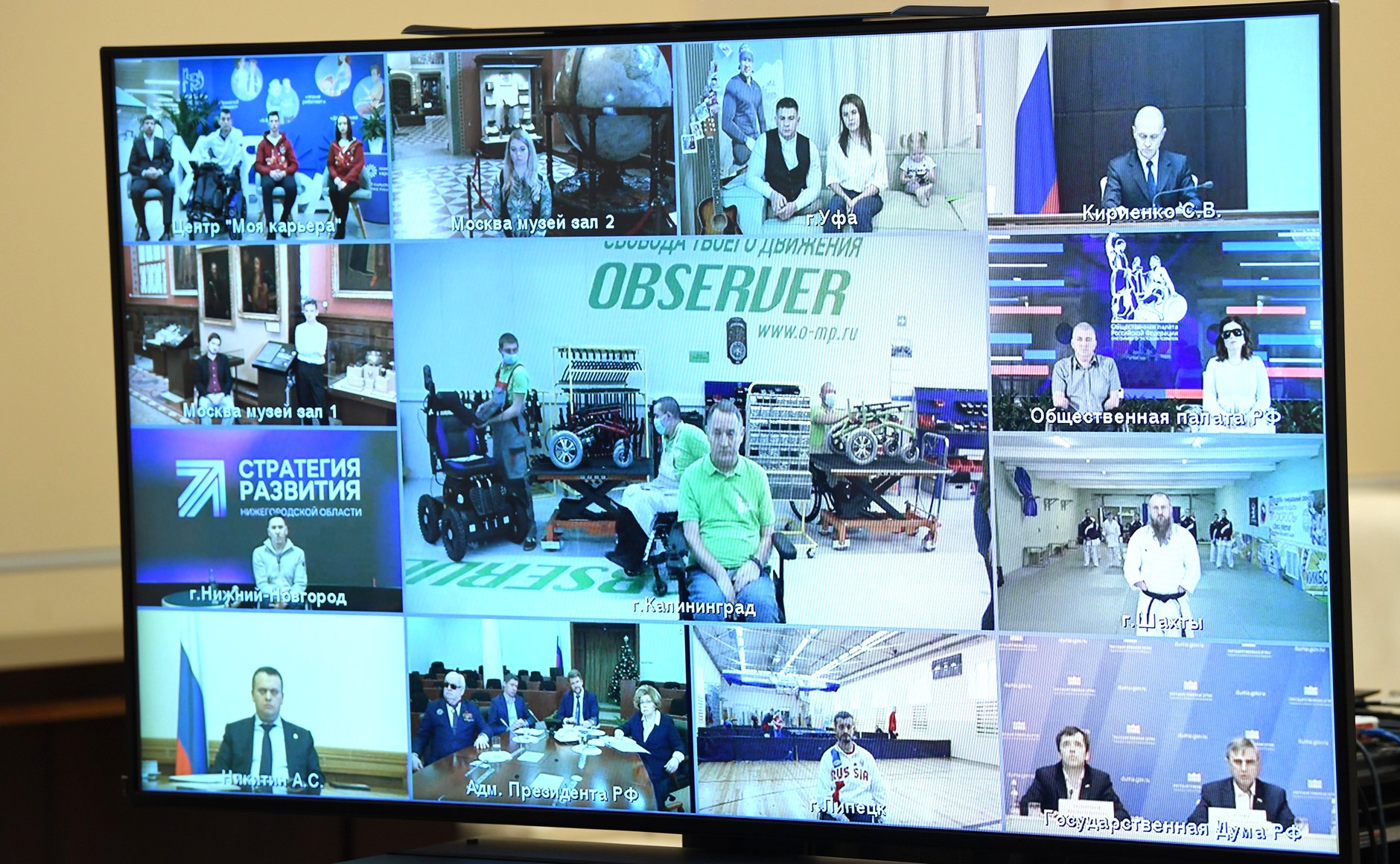 I am convinced that the best and most effective decisions emerge in precisely this manner, that is, in direct and open dialogue with civil society representatives. It is also necessary to implement specific guarantees, now enshrined in the Constitution, in close cooperation with public associations of people with disabilities. Let me emphasise: a considerate attitude to the interests and needs of people with disabilities, people with limited mobility, should be an absolutely natural norm, something we do not even need to be reminded of. This also applies to the reform of the supervision and control bodies, the so-called regulatory guillotine, to the employment market trends and of course, to the implementation of national projects, especially the part that concerns creating a comfortable urban environment. This applies to development and improvement projects, and to rezoning urban spaces – absolutely all projects need to strictly comply with barrier-free requirements. I would like to bring this to the attention of my colleagues in the regions: this should not be done just for appearances' sake, of course, just to get your acceptance act signed and forget about it. This should be done to improve mobility for as many people as possible, who would otherwise be involuntary hermits. In recent years, many decisions have been made at the federal level to ensure that people with disabilities can live a normal, fulfilling life. But practice largely depends on what is being done and how it is being done at the local level, how carefully and responsibly the authorities in the regions approach the problem of setting up a barrier-free environment, and how fully they implement the relevant legislative guarantees.  We certainly also have successful experience in some regions and municipalities. So I suggest the specialised working group at the State Council – I know that Mr Andrei Nikitin who heads this group is here today – generalises their experience and ensures its replication. In any case, we should always start by considering specific needs and be guided by them as we go – the same way that volunteers, public organisations and non-profits do it. Such initiatives are very often proposed, inspired and implemented by people who have some health limitations themselves. These people always share with others their vibrant energy, and become examples of perseverance for many, role models that prove that a passion to help others knows no barriers or restrictions. This rightly deserves our sincerest gratitude, admiration and respect. And of course, such activities – such necessary and noble undertakings – deserve support, including from the state. I would like to note that over the past several years, since 2017, the Presidential Grants Foundation has held several competitions, supporting over 4,700 projects aimed at helping people with disabilities, for a total of more than 9 billion rubles. The number of projects related to employment of disabled people, revealing their creative potential and developing inclusive education continues to grow. I have said many times that one of the crucial tasks that the country and all levels of the government face is the creation of the broadest opportunities for the self-fulfilment of people. It relates to people with disabilities as well, so that they can find themselves in research, work, creativity and, of course, in sports and social work and public work and realise all their talents and interests. 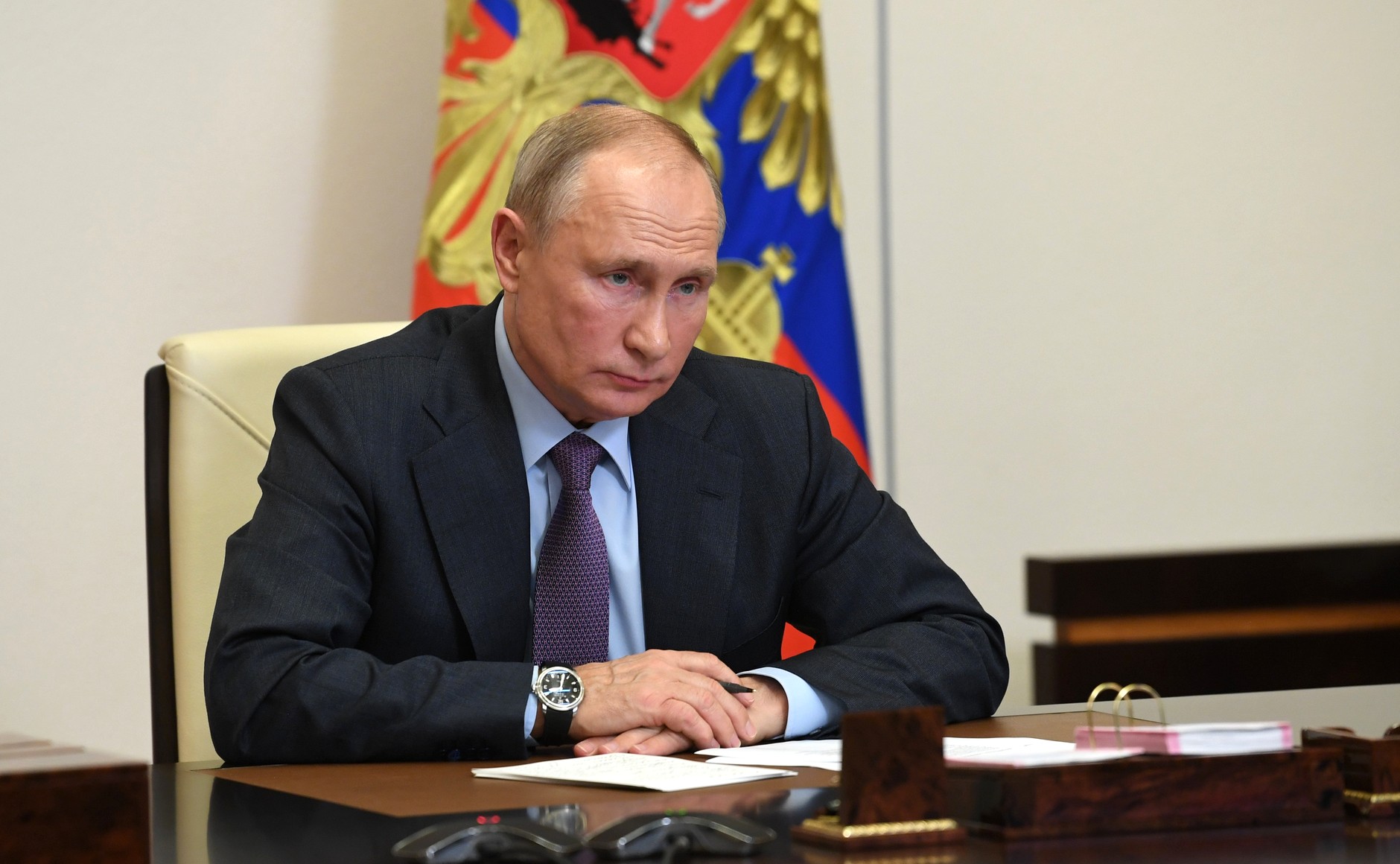 I want to reiterate so that my colleagues in the regions take note: it is not our task, it is our responsibility. I would like to take this opportunity to congratulate – and in connection with today’s event too – the winners and participants of the recent Abilympics national championship. This year – we will discuss this later as well – it was held in a special format, mostly remotely, but the level of skill and professional training of our participants has always been the highest. These skills are always backed up by strong will, perseverance and the will to win. These qualities lead our wonderful Paralympians to victory. We are proud of them, as is the entire country. This is a very important example for everyone (and we have repeatedly said this). One can conquer all summits by never giving up. I am sure that you have many questions and proposals, so let us get down to our direct discussion. Let us speak about our projects, ideas that can and should improve people’s lives. The source of information - http://en.kremlin.ru/events/president/news/64542 Artificial intelligence conference Vladimir Putin took part, via videoconference, in the main discussion at the Artificial Intelligence Journey Conference (AI Journey 2020), titled Artificial Intelligence as the Prime Technology of the 21st Century. December 4, 2020 - 15:40 - Novo-Ogaryovo, Moscow Region AI Journey is a series of events on artificial intelligence and data analysis hosted by major Russian and international companies that are leaders in AI technology development and application. This year’s conference is held online on December 3‒5. 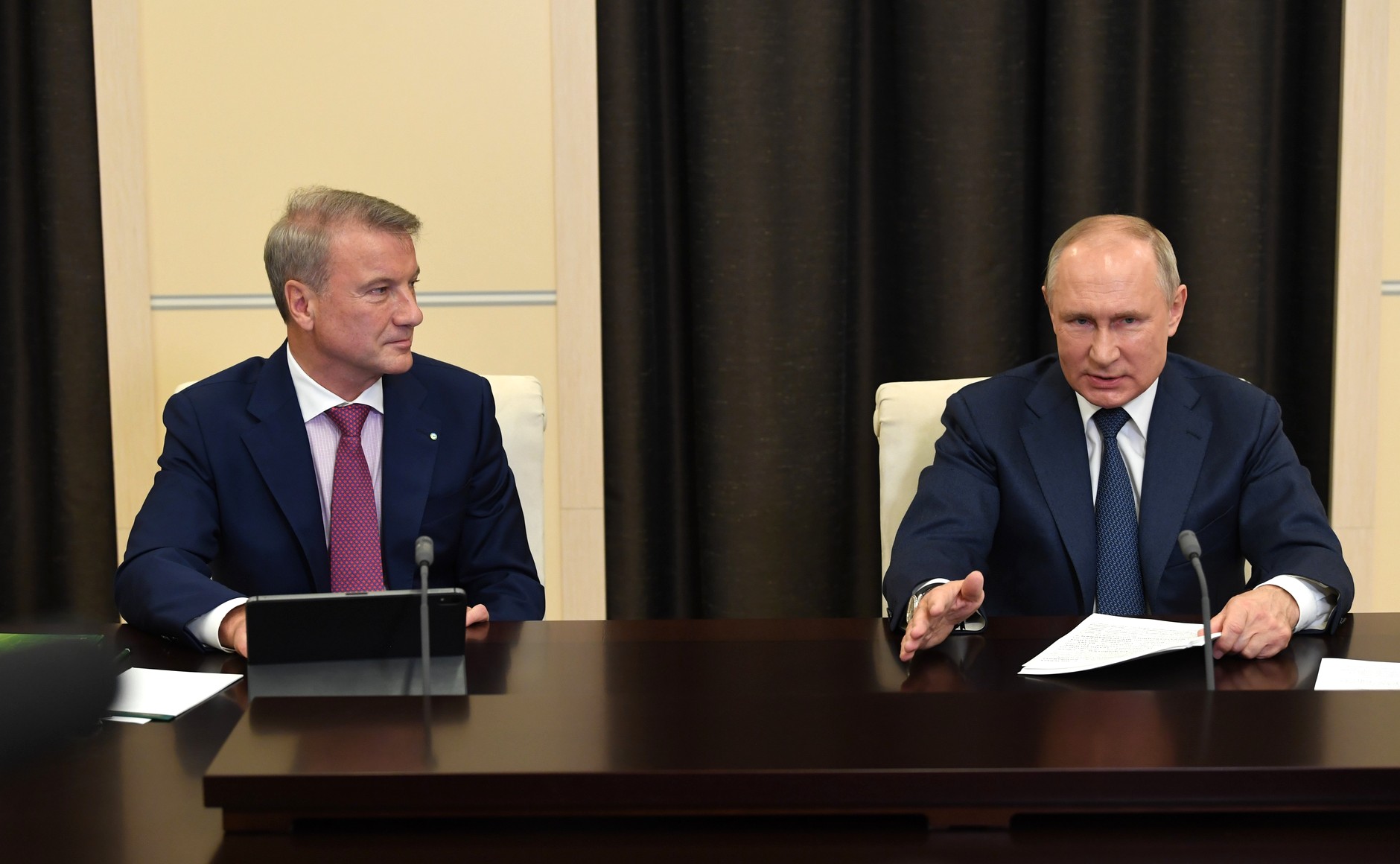 Chairman of the Management Board and CEO of Sberbank German Gref: Colleagues, I would like to welcome you at the main discussion of day two of the AI Journey Conference, which has become the largest conference in the world this year in both the quantity and quality of its participants. Taking part in the conference this year are over 28,000 participants from over 90 countries. And today we are happy to welcome two heads of state to discuss a very important and current topic: we will talk about the development of artificial intelligence with the leaders of two countries. I cannot but notice that their participation shows the priority they place on developing this technology. Let me introduce them: President of Russia Vladimir Putin and President of Kazakhstan Kassym-Jomart Tokayev, who has just joined us online. Welcome, Mr President. <…> I would like to address the first question to President Putin. Mr President, today AI is called the prime technology of the 21st century. Some say it means new opportunities that will change the quality of people’s life, education and medicine, and can sharply improve performance in all economic sectors. On the other hand, people say that this technology will mean people losing their jobs, that machines will control our every step and, in the end, it will result in a fantastic uprising of machines. What do you think, is AI a friend or a foe? How reasonable are these fears, and how can this powerful technology, which is referred to as the prime technology of the 21st century today, be used to people’s benefit? What is your view on all these questions? 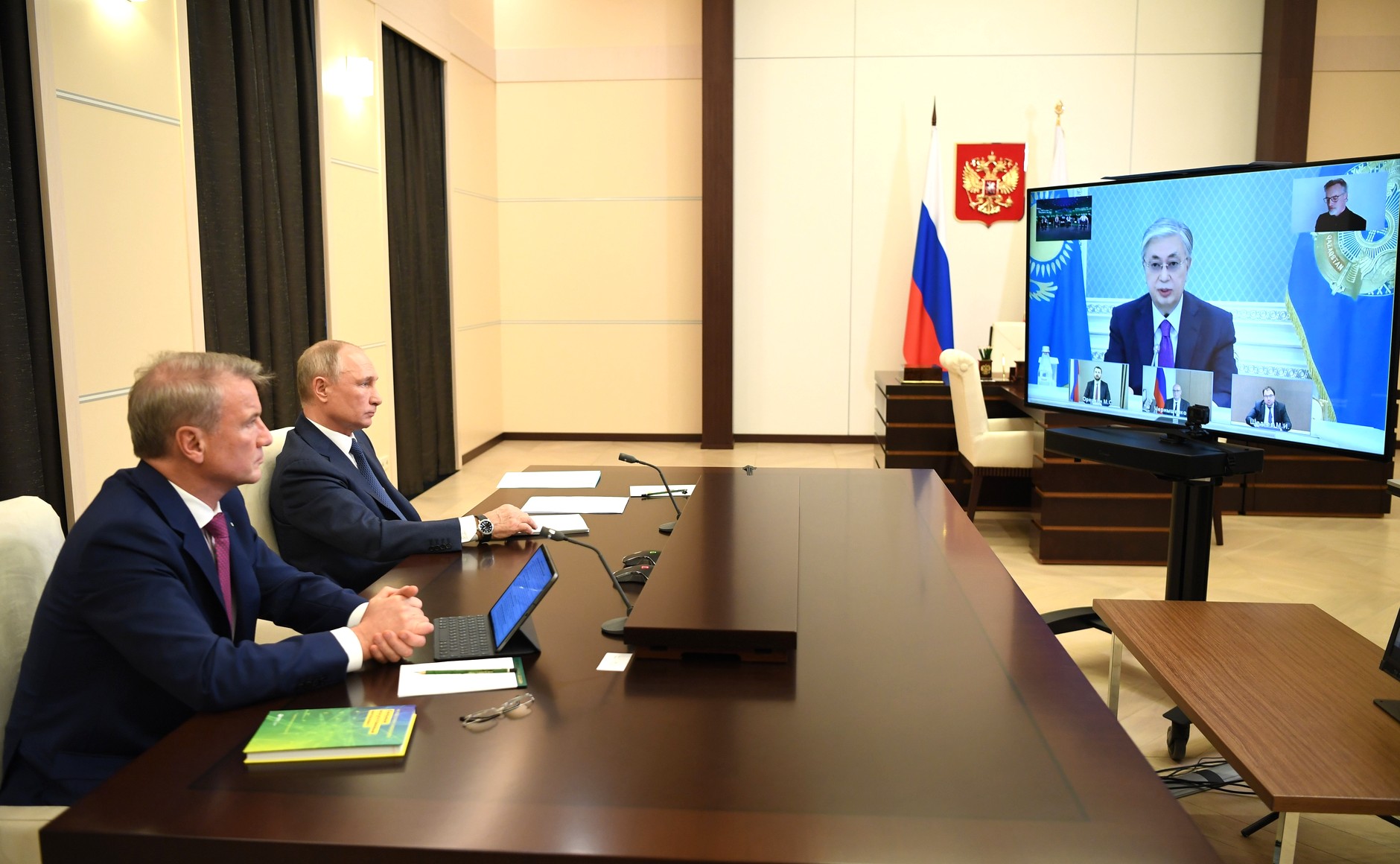 President of Russia Vladimir Putin: Artificial intelligence is certainly the basis for another leap forward in human history. These are the so-called crosscutting technologies that, as you have just said, permeate and will permeate all areas of our life: industrial production, the social sphere, science and even culture—all of them will be intertwined. Can machines stage an uprising? We all know and will definitely talk about this today: when we talk about powerful intelligence, and not just any artificial intelligence, this implies that these will be self-learning machines. This is the first point. Now the second point: are there any dangers or risks in this connection? Yes, there are. Everyone can see the role the internet plays in the life of the individual and all of humanity today. There are also risks there, but the internet must follow the same rules that have been used up to now. I am primarily referring to legal regulations as well as the moral and ethical standards that humanity has elaborated over millennia. Yes, the internet is a new sphere, a new type of activity, new systems, but they must be applied here on the same scale as in other fields. The same applies to artificial intelligence. It is up to each individual person how carefully he or she will use these opportunities. Just as it depends on them how they use nuclear energy or other achievements, including military ones. This is why I believe we should bear these risks in mind and think in advance of ways to neutralise them. German Gref: Mr President, in this case let me give the floor to you. 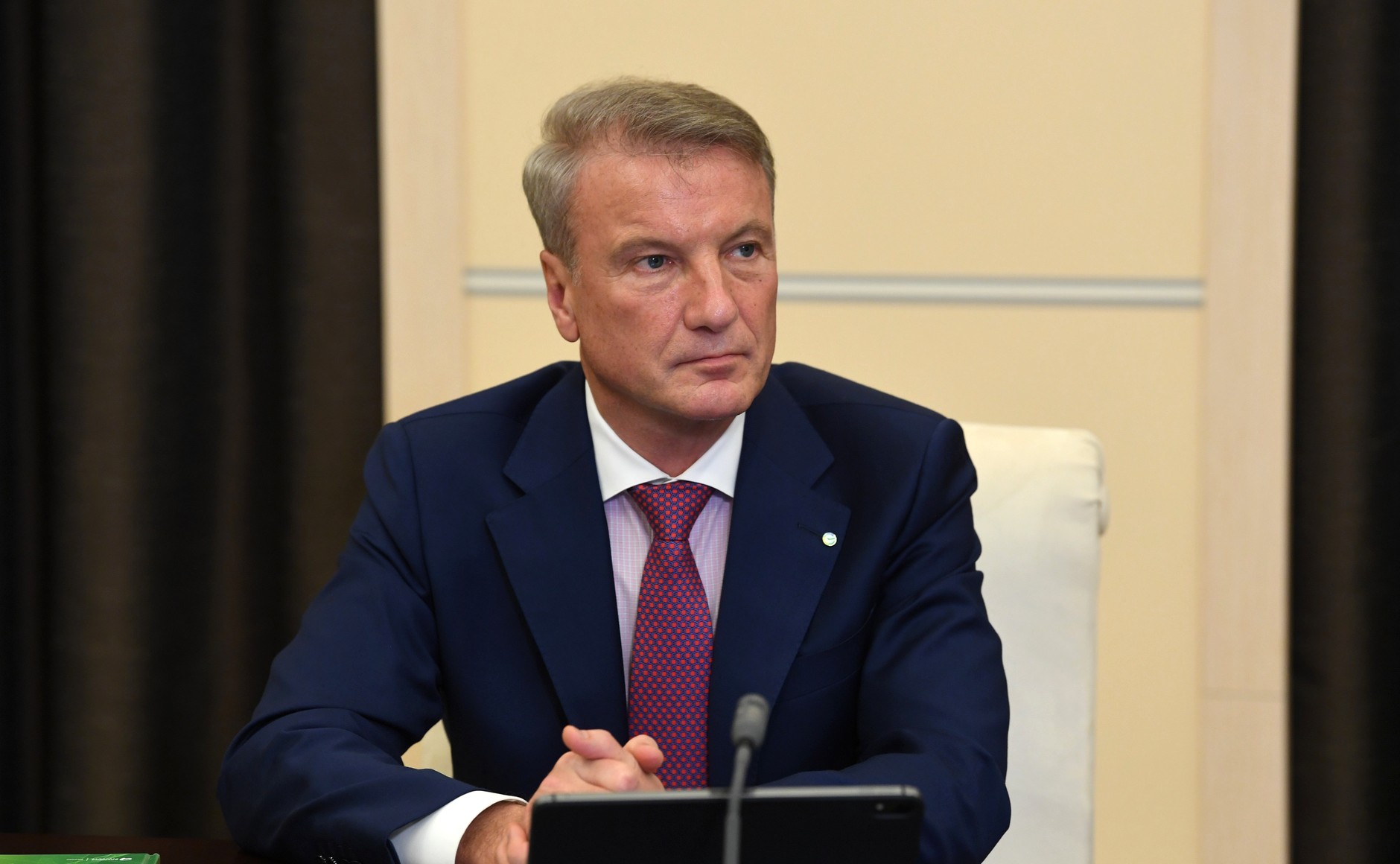 Vladimir Putin: The pleasure is mine. President Tokayev, Mr Gref, I am pleased to welcome you at our meeting. It is already becoming a tradition: last year we also held such a meeting in Moscow at the initiative of Sberbank and Mr Gref. Today, our meeting is devoted to artificial intelligence. Obviously, this has already become a real phenomenon in our lives, as we have just noted, and relates to everything, to all areas. It is with full responsibility that we must approach the issues that we have started discussing, beginning with Mr Gref’s first question, with the understanding that this is a frontier in the life of civilisation and international cooperation. Artificial intelligence will never replace humans. This is why I said that, yes, machines will control people to a large extent, just like many other modern technological devices do, but in the final analysis, people must control these machines. Nevertheless, artificial intelligence is also becoming a helpful assistant that opens up new horizons for implementing the numerous tasks facing humanity. Humanity will benefit if, of course, these enormous resources are used properly. We must build a relationship with it in a way that lets breakthrough technologies help us achieve our national goals. That is, speaking about our country, to transform Russia and to strengthen its global positions and, hence, first and foremost, improve the welfare and living standards of our citizens. As for what we will do to effectively and safely use breakthrough technologies, I will certainly be glad to share my ideas with you. This is the reason why we are here today. Clearly, this work is becoming more and more extensive and relevant all over the world. The venue where we have gathered is also becoming a traditional place for exchanging ideas and meaningful experience on artificial intelligence. It attracts genuine trailblazers from various countries. We probably will see your foreign colleagues at our meeting today as well. I think President Tokayev’s presence at our meeting speaks volumes. I am delighted that the head of Kazakhstan joined in our work, because Kazakhstan is one of our closest allies. Almost a year ago, we discussed in detail the prospects for developing artificial intelligence. Let us face it; back then, many were thinking that certain projects were part of a distant or even nearly fantastic future. This was the case a year ago, but already in the spring, when the pressure on the healthcare system increased several times over due to the coronavirus pandemic, the AI algorithms certainly helped and continue to help our doctors to quickly diagnose this dangerous disease, analyse test results with a fairly high level of accuracy and, no less importantly, made it possible to significantly boost the testing quality and volume. Next year, we look forward to 10 percent of our country’s medical institutions using this technology. I would like to point out that the pace of technological change has increased many times over, which is clearly so. In a matter of several short months, our country and the entire world have covered a distance that could otherwise have taken years, or even decades. Right before our eyes, AI technology and big data analysis are changing our everyday habits and lives, and opening the door to outstanding corporate and individual achievements in advanced business models. This creates new opportunities and offers new tools for achieving success to everyone who seeks renewal and progress. Of course, it is impossible to reject progress. It never happened before and will never happen in the future. This is an irreversible process. We need to learn how to control artificial intelligence. When I said that people would control the machines, I was talking about this. We need to master one of the greatest technologies ever created by humanity, and to do so, we need to be bold, competent and forward-looking. All of us – the state, society, business and individuals – need to keep up with the impressive dynamics of change, master new knowledge and technology, and move faster and more resolutely into a new era. Sberbank is a good example of how to work in the high-tech sector. (Addressing German Gref) Sber has created a new digital platform, a so-called ecosystem – we spoke about this several years ago, and you are making good progress, this is great, this is really impressive – a system where a citizen can get not only banking services but the widest range of other services – call a taxi, order groceries, shop, find information – and all this can be done by pressing one button or simply by saying a voice command. At the same time, Mr Gref, I would ask you not to forget that the bank was created back in 1841. The founders of the bank, of banks could not even imagine in their wildest fantasies that this was possible. But still, we should not forget that although Sber is an ecosystem, it is a bank in the first place and must adhere to the Central Bank’s requirements for a financial institution. At the same time, I am proud to say that there are many companies in our country that do what we only recently could only dream of, without any doubt. We already have self-driving cars on the streets of some cities – so far in test mode, but still. In our inland waters, there are already ships that can sail without a captain or crew. We ourselves are creating unmanned ships, including submarines, for the defence industry in this case. Combines with autonomous control systems are being tested in 15 regions. And most importantly, our AI developments are based on world-class domestic scientific and technological groundwork. Moreover, they are created not only at universities and research institutes. Thus, among private companies, Yandex is one of the world’s leaders in AI research; it ranks in the top five, if I am not mistaken. I would like to emphasise, it is necessary to boldly conduct a scientific search where research prospects are still intangible. Sometimes we have to feel around, I understand that perfectly. And such is the case with – what I have already mentioned – strong artificial intelligence, self-learning, when the machine itself will solve any issues better than a human, self-learn and constantly improve. This is where incredible discoveries and technological breakthroughs are possible. I would also like to note that an AI research centre is already taking shape in southern Russia, in the Imereti Valley, which certainly involves convenient working conditions for specialists, as well as a special legal and regulatory framework for inventing future technologies. And for this purpose, in accordance with the new provisions of the Constitution of Russia, this site will become a federal territory. Its heart, a magnet for talented young people, will be the Sirius centre, where, as far as I know, Sber is also ready. I asked you about it, and I know that you are ready to launch specific projects here, too. 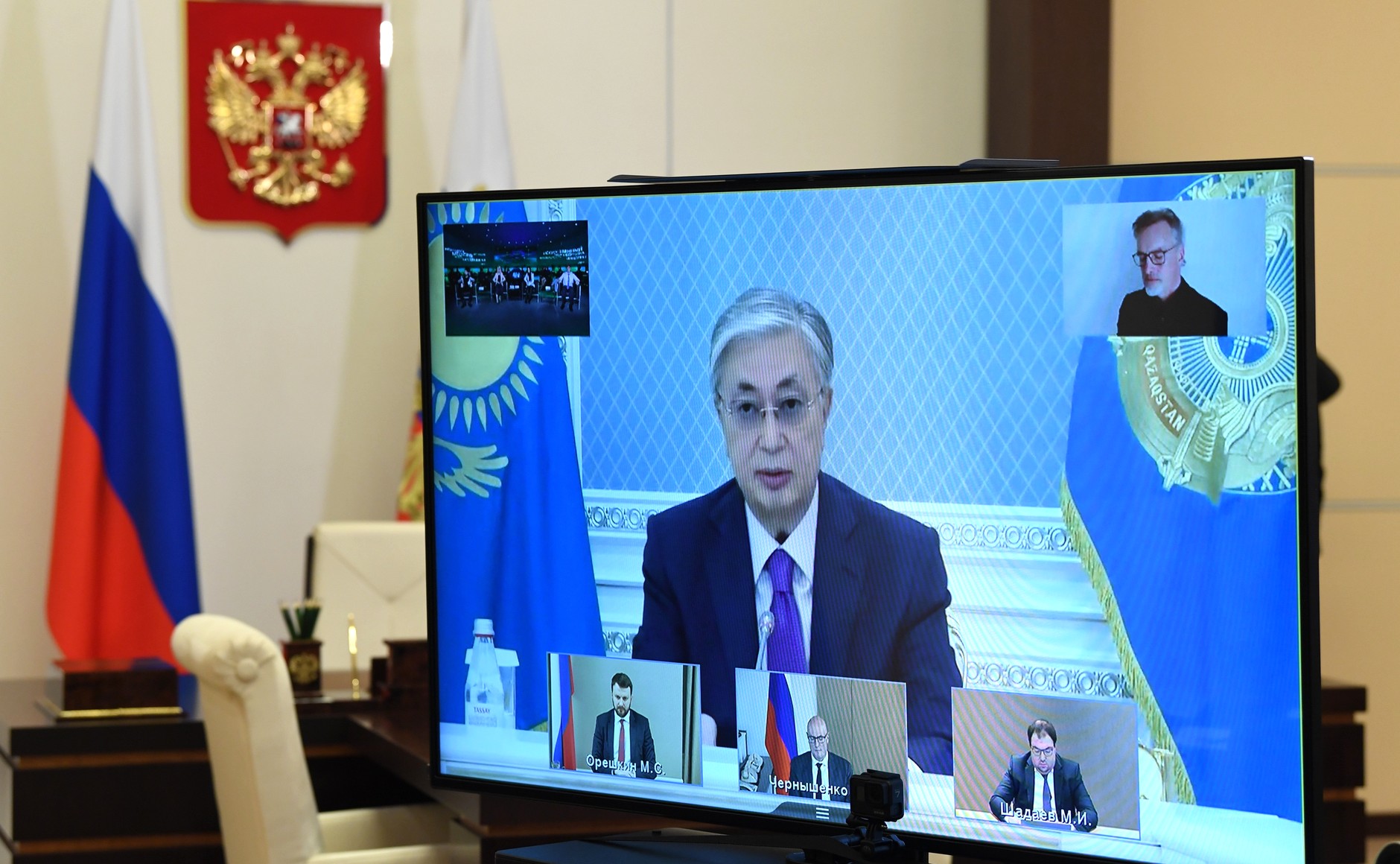 German Gref: Yes. Vladimir Putin: Shall we do it? German Gref: Absolutely. Vladimir Putin: Thank you. Friends, Time is not only about the pace of change. Our goals must also be in line with the scale, content and pace of technological progress never seen before. In the coming decade, we will need to carry out a digital transformation of our country, all of Russia, and introduce AI technology and big data analysis everywhere. As we implement our plans, we must rely on sovereign technological achievements. As I have mentioned earlier, we must build on the achievements of our domestic innovative and start-up companies, as well as our mathematics schools. A vast market is being created for technological and scientific discoveries and products. (We need to develop the domestic market by all means.) There is large demand on behalf of the economy and the social sphere. Billions of rubles will go towards the digital transformation of public administration and shifting almost all public services to an e-format. Most of them will be provided automatically, on an as-needed basis and proactively. For example, when a family has a child, the algorithms will issue the necessary papers and certificates, including the ones needed for obtaining maternity capital. This is how the public service mechanism should operate in the modern world. We must launch it soon. In fact, we must create a public ecosystem that is convenient and user friendly, and, of course, safe in terms of personal data protection. I am sure much more will be said about this today. I would like to note that Moscow is among the leaders when it comes to creating digital services for interaction between the state and its citizens. With regard to the level of readiness for the introduction of AI technology, including urban infrastructure, Moscow is among the world’s 10 largest metropolitan areas. I think it is ahead of many capitals and ranks second globally in terms of education and research. We have to check who ranks first on that list. AI algorithms in Moscow are used in healthcare, education, security and smart city technology. Many technical solutions are significantly ahead of the national regulatory framework. I would like to say that so far we do not have enough experience in enforcement in terms of cutting-edge technologies. There are a lot of sensitive issues there, but, of course, we must not, should not and will not stand still. We have to move forward, carefully and gradually. 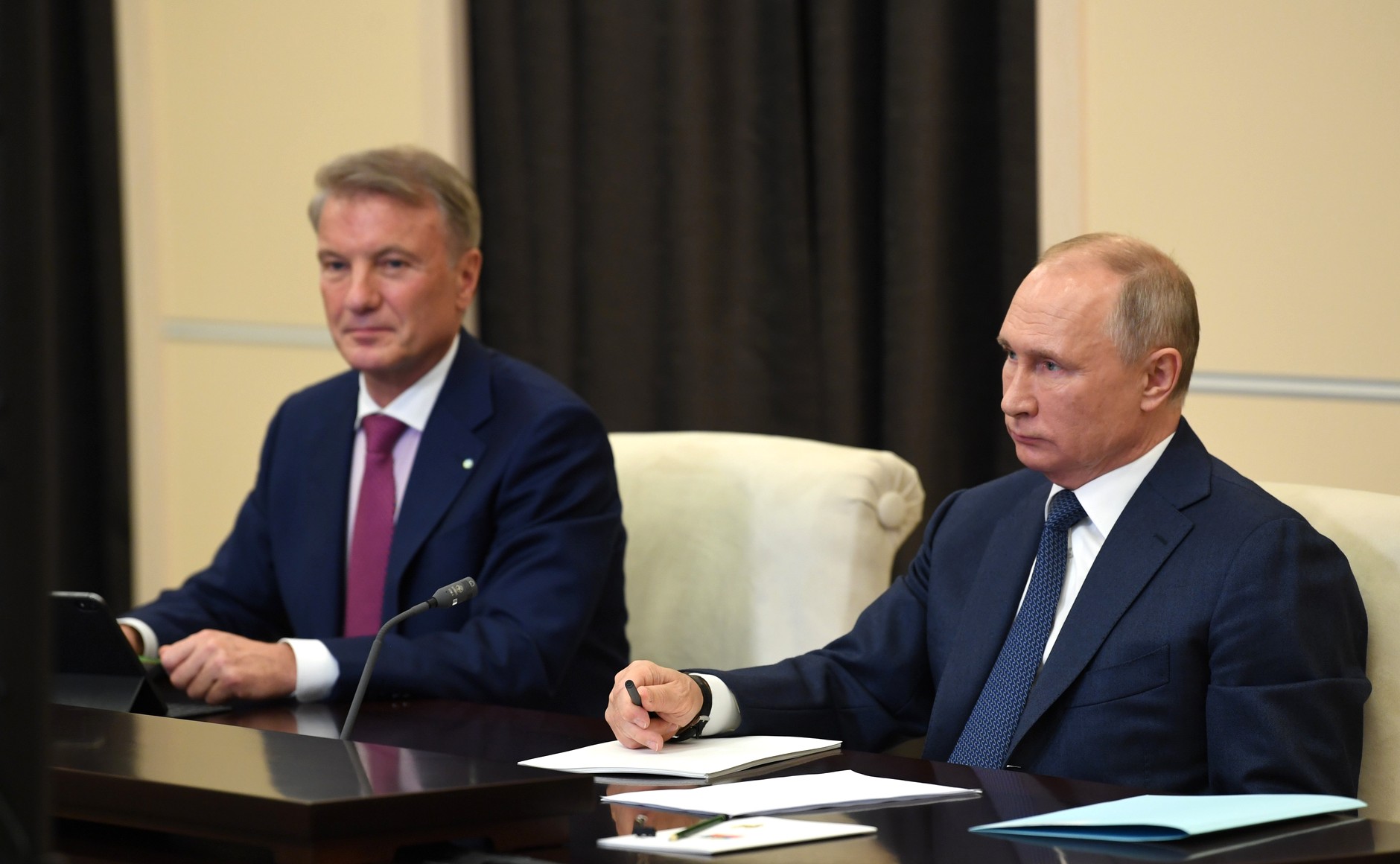 In this sense, I would like to outline decisions that are pending and must be made quickly. In this context, I would like to ask the Government to submit to parliament draft laws on experimental legal frameworks for the use of AI technologies in individual economic and social sectors. Secondly, very soon the Government will have to adopt a digital transformation strategy for the 10 key sectors of the economy and social sphere with practical measures to introduce AI algorithms so that they can serve as reliable assistants to doctors, transform our cities and be widely used in utility services, transport and industry. All this must be reflected in the quality of people’s lives. I would like to ask the Government to constantly monitor the results achieved in all these areas and timely remove any obstacles and barriers that may arise. I am speaking about the existing ones, but we also have to lift those that are to come. We should also focus on them. Let me stress that digital transformation programmes and those to introduce artificial intelligence must also be adopted at the regional level, in specific industries, in order to take full advantage of the opportunities provided by breakthrough technologies for our country’s powerful spatial development. I believe we will meet with governors to discuss all these matters. Thirdly, it is necessary to submit to the Government as early as the first quarter of 2021 a draft law to provide neural network developers with competitive access to big data, including state big data, which are a true growing medium for AI technologies in a number of areas. Of course, as I have already said many times and will repeat again, at the same time it is necessary to rule out the risk of personal data leaks and ensure that all citizens’ rights are observed. Fourth. Today, the absolutely correct strategy is to boost the efficiency of production and management processes using advanced technologies, including big data analysis. These initiatives by Russian companies must, of course, be supported. I know that the Government is already drafting proposals to create effective incentives to bring private investment into domestic artificial intelligence technology and software products, which should certainly contribute not only to the technical renewal of traditional industries, but should also promote the IT industry’s overall growth. Let me remind you that we have set ourselves the strategic goal to quadruple investment in Russian software solutions in the coming decade. Notably, insurance premiums for the IT industry will go down for an indefinite term and significantly starting next year. The Government discussed this issue at length and made an absolutely correct decision regarding two matters: insurance premiums went down from 14 percent to 7.6 percent and revenue tax was reduced, I think, in a revolutionary way, from 20 percent to 3 percent. We will keep looking at what else can be done to make digital technologies and artificial intelligence in Russia globally competitive. Friends, to reiterate, the pace of technological progress is growing exponentially. Therefore, our education system – I am going to say a few words about it – must, of course, preserve the best traditions of Russian education, but also increase the pace of change. The necessary changes must be made by all means. Our universities, the industry-specific universities and departments where students study mathematics, computer science, big data technology and information security must become real flagships and sources of advanced knowledge and discoveries. The content and teaching methods of these disciplines, which are essential for creating artificial intelligence algorithms, need significant updating, and this should be done by the beginning of the next academic year. This is my first point.  Secondly, I believe that training courses, the AI and big data analysis modules should be made part of the curricula across all areas of professional activities. This means that starting next academic year, future medical doctors, teachers, agronomists and lawyers, as well as manufacturing industry, communications and transport employees, including, of course, rising managers, should start studying these technologies. That is, the students who will, after graduation, work at our regional and municipal government bodies will need to personally promote the digital development agenda. We must think, of course, about the younger generation, our smallest citizens. Today’s school pupils cannot do without solid knowledge of mathematics. It is really “the true queen of the sciences,” as a wonderful German scientist put it in the 18th-19th centuries. Its language and laws are universal. During rapid technological development, literally every person will need it to perform diverse tasks. Let me note that we have done much to enhance the relevant mathematics education at schools. But when I meet with professionals, they tell me that this is not enough. They are probably right. Let us put it straight. A basic level of mathematics is no longer adequate today. As for computer science, school pupils are still studying languages and software elements that were used back in the previous century. It is necessary to substantially expand the existing methods of teaching computer science so that schoolchildren learn how to launch their own startups, use advanced technology in various spheres of life, and acquire not only digital knowledge but also so-called soft skills – the ability to work in a team and make decisions independently. We have spoken about this many times at Sirius. I would also like to note that telecommunications technologies and the digital study platforms created by the leading domestic technology companies have already become good assistants for teachers, instructors and professors. I know that Sberbank is also creating such a platform. In fact, it has already created it and is using it in its work. In the difficult period of forced restrictions, as we have seen quite recently, and, unfortunately, this period is ongoing in certain formats, but in these conditions related to the pandemic, this technology helped and is still helping teachers to maintain direct contact with their pupils and students. Obviously, this technology will continue to substantially expand the education space in the future as well. We must use this experience and opportunities in the future, too. As I said recently, it was a blessing in disguise. This pandemic has pushed us to develop this technology. Incidentally, what we did in the previous years proved to be helpful in this respect. If we had not done what we did in the past, our schools and universities would not have made the fairly successful transition to online work. We will increase the digital potential of our schools and universities with the future in mind; we will work for the future now. Here I would like to emphasise that in order to be leaders in the field of artificial intelligence, we need to be leaders in the field of school and even preschool education. Although some experts say that there is no and there should be no preschool education, there should be upbringing and preparation for school instead, but it does not matter what you call it. What is important is the content of the childcare programme. Therefore, I would ask my colleagues to formulate the tasks in the field of education in this way. 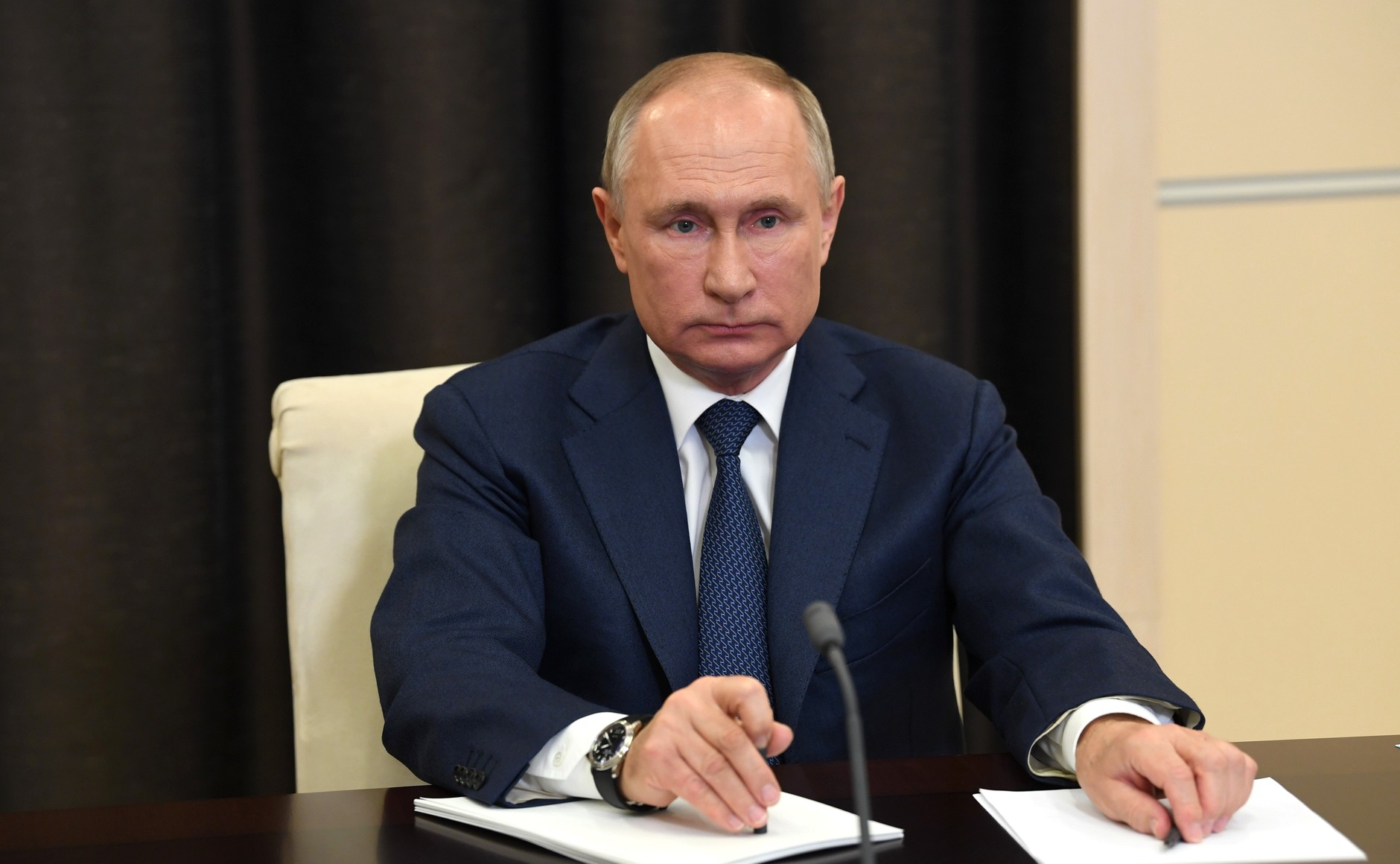 In this regard, I instruct the Government to take specific decisions to improve the teaching of mathematics and computer science in schools and to involve our international mathematics centres. They are wonderful, with great potential, leading universities, and Sirius, which I have already mentioned here. And of course, the best Russian physics and mathematics schools, which top the world rankings in terms of the quality of student training. Thank God, back in Soviet times, this system, a network of physics and mathematics schools, was created throughout the country. I repeat, colleagues, I look forward to your thoughtful proposals and practical steps in this direction. Friends, our country at different stages accomplished very ambitious technological and spatial development tasks: it built railways at a unique pace at the turn of the 19th and 20th centuries and built out electricity grids in the 1920-1930s, as an example of the integrated development of the economy, based on the achievements of the Russian pre-revolutionary engineering and science school. But our plans for the widespread introduction of artificial intelligence and digital transformation are certainly unparalleled in terms of the depth of change in all areas. They are unprecedented. In fact, they have never existed anywhere. They will really influence every person, every family, every economic and social sector, every organisation and enterprise. And every level of authority, every level of government, the entire system of government. We allocate significant resources, both financial and administrative, to create and introduce technology. This is not about using these resources to purchase gadgets as status symbols or other everyday technology. Artificial intelligence is not a so-called fashionable hype, not prestigious trends that will disappear altogether tomorrow or the day after. No, that will never happen. World history has seen many cases when large global corporations and even countries literally slept through a technological breakthrough and were swept off the historical stage overnight. I will not cite the sad examples of these countries and peoples now. There are plenty of them. And we must remember this. I want all my colleagues in the ministries and agencies, Russian regions, our state companies, heads of research institutes, university rectors to hear me now – we have to take on issues of a radically new level of complexity. This is a hard test for many of their capability to shed obsolete ideas, routines and stereotypes, a test of their readiness to change, to learn and to lead the way. However, technological transformation is an inspiring challenge for strong, brave and modern managers, business people and engineers. It truly reveals, allows for revealing personal professional qualities, for completing their mission, and it expands the space for realising the projects of Russia’s present and future. Everything we are doing pursues the main objective –technological progress, and its greatest achievements must ensure the prosperity, higher incomes and quality of life for every family. Those who are not engaged in that and are not living by it do not understand what might happen there. Meanwhile, you and I know this, and we must work on it so that every person will be needed, will be able to work and do business. By the way, Mr Gref asked me a question – about jobs going redundant. But it has always been like that, during all technological revolutions. It has always been like that. We do not need to have strikes here like the ones they had in medieval England. We must think in advance of how to employ people, how to retrain them and prepare for new realities. Meanwhile, business people have to learn how to do business in new realities, acquire new skills and professions so that our children, the growing generation, could have this throughout the whole 21st century, so that they could have fulfilment in their lives and be happy. In a nutshell, we must employ all the limitless opportunities opened up by progress to build an independent, free, safe and comfortable country for living in absolutely new conditions, where artificial intelligence serves people, helps them attain great goals. I am confident this is the way it will be, I am certain of that. Thank you for your attention. The source of information - http://en.kremlin.ru/events/president/news/64545
__________________
Where should they dig the Very Deep Pit? Piglet said that the best place would be somewhere where a Heffalump was, just before he fell into it, only about a foot farther on. (c) Alan Alexander Miln |
|
|
#158 |
|
Senior Member
|
Meeting with Sberbank CEO German Gref
Sberbank CEO and Chairman of the Management Board German Gref updated the President on the company’s current operations. December 4, 2020 - 16:50 - Novo-Ogaryovo, Moscow Region 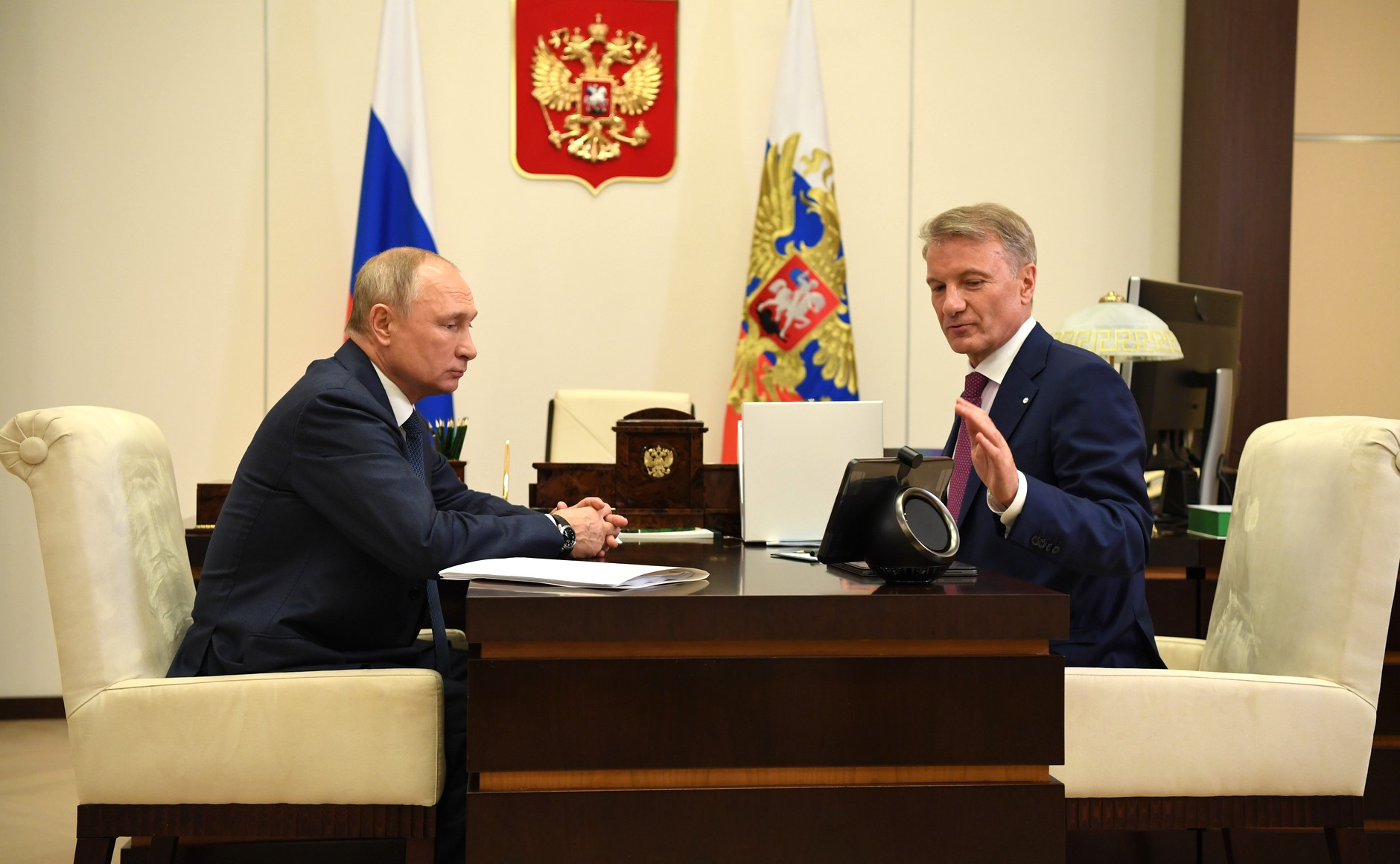 President of Russia Vladimir Putin: You wanted to show me something, Mr Gref. Sberbank CEO and Chairman of the Management Board German Gref: Yes, Mr President, I would like to show you two of our products. One is SberBox, which is now commercially available. It is a small box that can be hooked up to almost any television set outfitted with HDMI input (all TVs made in the early and mid-1990s and later have it), making it a smart TV that can be controlled via the internet by voice commands. It has 180 TV channels, an online cinema, our music app, a voice assistant that can provide weather reports, exchange rate information and financial services, and answer questions using online information. There is a streaming news feed as well. Small – and not only small businesses can place their apps here and access owners of this console. Our educational platform, SberClass, is also part of it. Children from low-income families do not always have access to a tablet or a computer. This contraption, which is modestly priced at 2,999 rubles, turns any television set into a high power computer with an educational platform for children and access to our cloud storage. Games are also available, and a cell phone can be used as a joystick to control games. It includes an educational platform and a wide choice of apps. We put it on sale just a few months ago, and sold about 100,000 devices. We plan to sell at least 10 million devices by 2023, which is important. The demand is high because they are inexpensive. Now, during the coronavirus pandemic, people are buying so many of them that we can barely keep up. Vladimir Putin: Good value for money. German Gref: Yes. In fact, we focused on keeping the price low so that more people could afford it. The second device that we are bringing to the market in December is called SberPortal. You are holding the first one. It is not sold in stores yet. It will be available for purchase after December 20. It is the first device in the world with a hand gesture-controlled wide-angle camera. If you take a picture of yourself and several family members, the camera will recognise a family member and adjust the content on the screen to the family member currently in the shutter. You can close it, if you want to. There is a magnetic lid there. The features are the same here with three voice assistants and phone call capability. You can make financial transactions, buy stocks, watch movies, send any picture from here to the television set, or listen to music, and so on. This is 100-percent our in-house design, and the sound quality is good. The entire device, including the chip design, camera and screen was made by our division called SberDevices. This will be our third device on the market. It will be priced more expensively at about 28,000–29,000 rubles. This will be the most sophisticated device on the market. The others will be much less expensive. Next year, we will bring out five more different devices for vehicles and smart homes. Just like this one, they will be used to control lighting, air conditioning, and so on. In fact, this is an all-purpose device connected to our cloud, which makes upgrading an ongoing process, and users will have access to all services, not just ours. Any company that will want to have access to its customers will have an option to deploy their apps there for everyone to use.  Vladimir Putin: The customers might wonder where to the camera transmits the image. German Gref: The camera does not transmit the image anywhere, because the chip stays here, and we are not getting any images. However, if you do not want the camera to take pictures of you, you can simply close the lid. There is a physical magnetic lid if you want to be absolutely certain. Here is a button to turn off the microphone and a lid to close the camera lens. The information is stored only on the chip inside the camera, and all information related to the delivery of content and queries will, of course, be stored in our cloud here in Moscow. Vladimir Putin: I see, thank you. Good luck. German Gref: Thank you. We are new to this market. This is our first run, but, in fact, we are the first bank to make and market electronic devices. We are quite ambitious. We plan to grow our production numbers and provide most of our services using these devices by 2023. Vladimir Putin: Let us talk about Sberbank's performance over the past nine months. As far as I understand, net revenue is slightly down, and capital efficiency is slightly down as well, but overall the results are quite strong for nine months. The credit portfolio is up, and, as I understand and you probably sense it, individual economic activity is increasing. German Gref: Mr President, indeed, this year was quite challenging for the economy, in particular, the eleven industries that were the hardest hit and, of course, the banking sector. Earlier in the year, our forecasts were quite pessimistic, and we projected that GDP might drop by 12 percentage points. Starting in late March, when we began to build up reserves, as well as in April and May, we tried to create provisions to take care of future problems. We saw a number of markets, such as tourism, transport, restaurants, cafes, and so on collapse. Indeed, eleven industries were hit extremely hard. However, the measures that were taken by the Government, in particular, two of them, worked very well. The first was payments to families with children. This supported people quite well, and we immediately saw an increase in economic activity. The second was about salary-secured loans with 2-percent interest provided jobs were preserved. No other country did that, and it worked really well. If jobs get preserved, then in March the companies will write these loans off, including interest. This was very helpful. We saw a fairly rapid recovery in May, June, July and August. As a result, we estimate that GDP will fall by no more that 3.8 percent to 4.5 percent. Vladimir Putin: The Government and the Central Bank showed about the same numbers. German Gref: Yes, this is significantly better than we originally expected. In September, consumer spending began to stagnate. In November and December, we have been witnessing a drop in demand due to the pandemic again. However, the drop is not as big as it was in the spring, and we are no longer pessimistic about the future. We think this year our revenue will drop by about 12–13 percent compared to last year, and this year we will make, I believe, over 700 billion rubles net. Recently, we adopted a new three-year strategy and our supervisory board approved it in November. This week we presented it to our investors. Vladimir Putin: Your net revenue fell sharply in the first and second quarters. Things are gradually recovering now, as far as I understand.  German Gref: Correct, the third and fourth quarters are all about recovery. We are past the crisis. However, during the first and second quarter, we had to form reserves just as our clients did, and net revenue was down. Vladimir Putin: I think the return on equity looks even better. German Gref: We will have the return on equity at around 16 percent, which is quite good for a crisis year. Most importantly, we see that we will most likely be able to pay 50 percent of the dividends. We have paid 423 billion in dividends this year, which is the largest amount in history paid out by a Russian company. Notwithstanding the crisis, we have preserved the entire volume. And we are very hopeful that we will be able to pay 50 percent of dividends in the coming three years. Respectively, next year – and we are aware of the problems the budget is having due to large expenditures this year to support businesses and people – we will do everything we can to stay within the forecast numbers and pay the entire volume of dividends. This year we have spent much money due to the coronavirus – overall we have spent about 17 billion rubles on additional expenses. Among them, we have greatly increased charity contributions: we bought a large amount of PPE for hospitals in different regions. Just last week we sent another batch of PPE to the northwestern regions. We helped the police; we helped hospitals and children’s homes. Of course, we also purchased PPE for our staff since we have been working all this time and certainly had to buy both masks and protective gear for all clients because customers are only allowed to enter the office if they are wearing a mask. If a customer does not have one, we offer them a mask, which is available at each office. So far, generally, we adapted to the very difficult situation we had earlier in the year, and we basically look forward to 2021 with optimism. Even though we understand that vaccination launched in December will proceed slowly, we nevertheless expect that most probably we will have economic growth of 2 to 3.5 percent and a recovery of most industries. Therefore, we are optimistic in this respect. As a result of many years of work to digitise all our services, we have been able to weather this period quite well. We assessed how much we gain from the technologies designed in those years, and last year we earned approximately 400 billion rubles year-on-year thanks to the use of the technologies and cutting waste. We have completely recouped our investments. Each year we invest a large amount of money in technology but we see a return on these investments. In addition, we have created a number of services. One of them is mortgage: in spring, we were the only bank on the market providing complete mortgage services, including the state registration of the mortgage loan, without any visits to the office. People could buy a flat without ever coming to our office. And overall we have seen that our task in this hard period of time is to support our clients, both companies and individuals. This is a big challenge for the entire team, as well as a great honour to help our businesses, people and the country to get through such a hard period. Vladimir Putin: Good. The source of information - http://en.kremlin.ru/events/president/news/64546 Meeting with permanent members of Security Council Vladimir Putin chaired a meeting with permanent members of the Security Council via videoconference. December 4, 2020 - 20:25 - Novo-Ogaryovo, Moscow Region 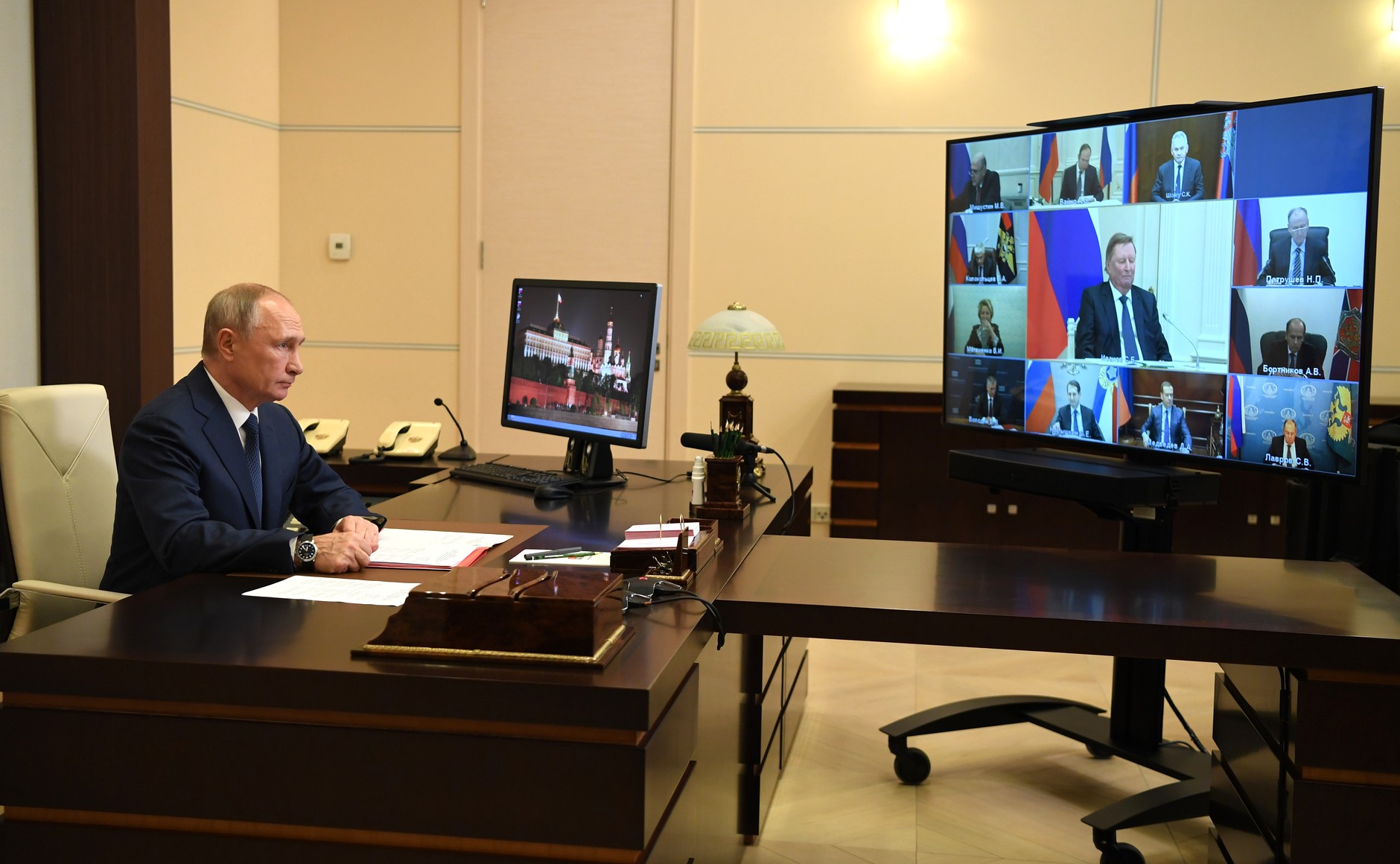 Developments in several CIS countries were discussed in detail. The meeting participants also focused on current issues on the domestic socioeconomic agenda. Attending the meeting were Prime Minister Mikhail Mishustin, Federation Council Speaker Valentina Matviyenko, State Duma Speaker Vyacheslav Volodin, Deputy Chairman of the Security Council Dmitry Medvedev, Chief of Staff of the Presidential Executive Office Anton Vaino, Security Council Secretary Nikolai Patrushev, Interior Minister Vladimir Kolokoltsev, Foreign Minister Sergei Lavrov, Defence Minister Sergei Shoigu, Federal Security Service Director Alexander Bortnikov, Foreign Intelligence Service Director Sergei Naryshkin, and Special Presidential Representative for Environmental Protection, Ecology and Transport Sergei Ivanov. The source of information - http://en.kremlin.ru/events/president/news/64547 Anatoly Chubais appointed Special Presidential Representative for Relations with International Organisations Vladimir Putin signed the Executive Order On the Special Representative of the President of the Russian Federation for Relations with International Organisations to Achieve Sustainable Development Goals. December 4, 2020 - 20:30 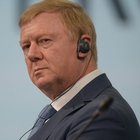 In accordance with the Executive Order, Anatoly Chubais has been appointed Special Representative of the President of the Russian Federation for Relations with International Organisations to Achieve Sustainable Development Goals. The source of information - http://en.kremlin.ru/events/president/news/64548 Meeting with volunteers and finalists of Volunteer of Russia 2020 contest Vladimir Putin had a meeting with volunteers and finalists of the Volunteer of Russia 2020 contest, via videoconference. December 5, 2020 - 14:45 - Novo-Ogaryovo, Moscow Region  This year, Volunteer Day is celebrated online due to the restrictions and demand for volunteers. The national contest of volunteers has been held since 2010. During the meeting, the President also took part in the charity event The Wishing Christmas Tree. The head of state promised to fulfil two wishes written on the cards decorating the tree. President of Russia Vladimir Putin: Good afternoon, friends. Greetings. Today our entire enormous country, together with the whole world, is celebrating International Volunteer Day. We have been marking this holiday since 2017. My heartfelt holiday greetings to millions, yes, I said it right, millions of Russians who help others and are an example of colossal moral power for all of society. I am well aware that many of you are where you are needed the most at the moment. Even though I see a lot of participants on the screen, most volunteers are busy today, and in order not to distract you from important work that society needs, practically all holiday events are held online, as the current situation demands and as you understand, whereas the Volunteer of Russia Award is presented not at special meetings but in hospitals, call centres, and volunteer headquarters in cities and towns. Friends, the fight against the pandemic has united and brought together many people, millions of caring individuals across the nation. The #WeAreTogether campaign was launched in spring of this year. You continue working in medical facilities. I see that many of you drive doctors, paramedics and nurses in your own cars free of charge. You deliver food and medicines to the elderly and people with low mobility, take disabled people and orphaned children from social facilities into your homes, which, to be honest, came as a surprise to me when I learned about it. I am speechless and I do not know which words can express the gratitude to those who are doing such things. I will note specially that Russian businesses are closely involved in the #WeAreTogether campaign. Entrepreneurs have shown responsibility to society through numerous truly noble acts. They include donations for additional support to healthcare facilities, purchasing PPE for volunteers and just for the people who need it, providing free meals for medical workers and ambulance crews. We oftentimes blame businesses – and there is always someone to blame in any environment, including a business environment – yet our businesses still display social maturity, I can say, especially under these harsh conditions we are witnessing. 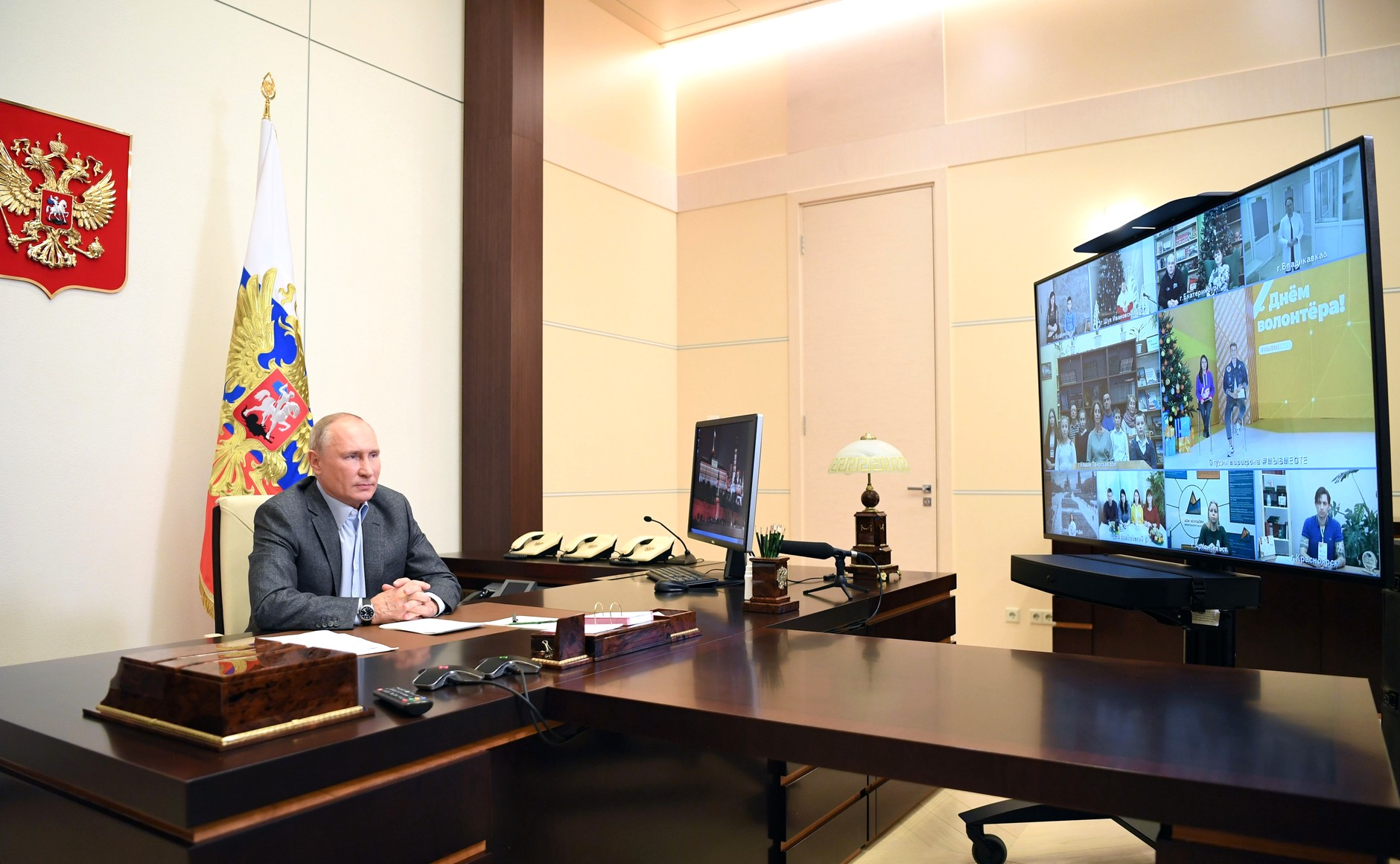 I want to repeat, volunteers have become a major force in combating the epidemic. Meanwhile, despite such a difficult year, we also kept working on other socially relevant tracks, which is indeed very important. We united the entire country during the celebrations of Russia Day and especially Victory Day, of course. Friends, it is primarily thanks to your efforts that the celebration of the 75th anniversary of Victory was given the spirit of warmth and kind-heartedness. Volunteers helped organise even the online Immortal Regiment march, which seemed a problem to arrange, yet you helped to make it happen. And your small improvised but such heart-warming concerts outside veterans’ homes were particularly stirring and touching. It was a true holiday with tears of sincere gratitude in the eyes of the elderly people who defended our Motherland during the war. We must strive for our everyday actions to be deserving of their great feat. And this is exactly what you do: you take part in fighting wildfires and in relief efforts following emergency situations, you look for missing people, help museums to digitise their collections and arrange online exhibitions, thus preserving our history, tradition and culture. Let me stress, there are so many efforts of this kind that it is hard to name all of them. Please, do not judge me too harshly if I repeat myself today. It is work in the animal shelters, organising sports events and promoting healthy lifestyle values, offering free counselling and legal aid. Senior schoolchildren participants in the Big Recess contest help younger students to study and help senior citizens. In short, kind, selfless acts are committed by an increasing number of people of various occupations and ages. I want to underscore that we greatly appreciate your work and we will create proper conditions for it. Our country already has a whole network of volunteer centres, and special digital services were launched including the DOBRO.RU platform. It makes it possible to quickly identify people who need help. Let me also remind you that charity foundations and socially oriented non-governmental organisations have been granted special privileges. It has been done in contact with you; you identified the challenges facing the state in this area for supporting the volunteer movement. Let me reiterate that all these steps are aimed at expanding the volunteer movement and enhancing its creative potential. 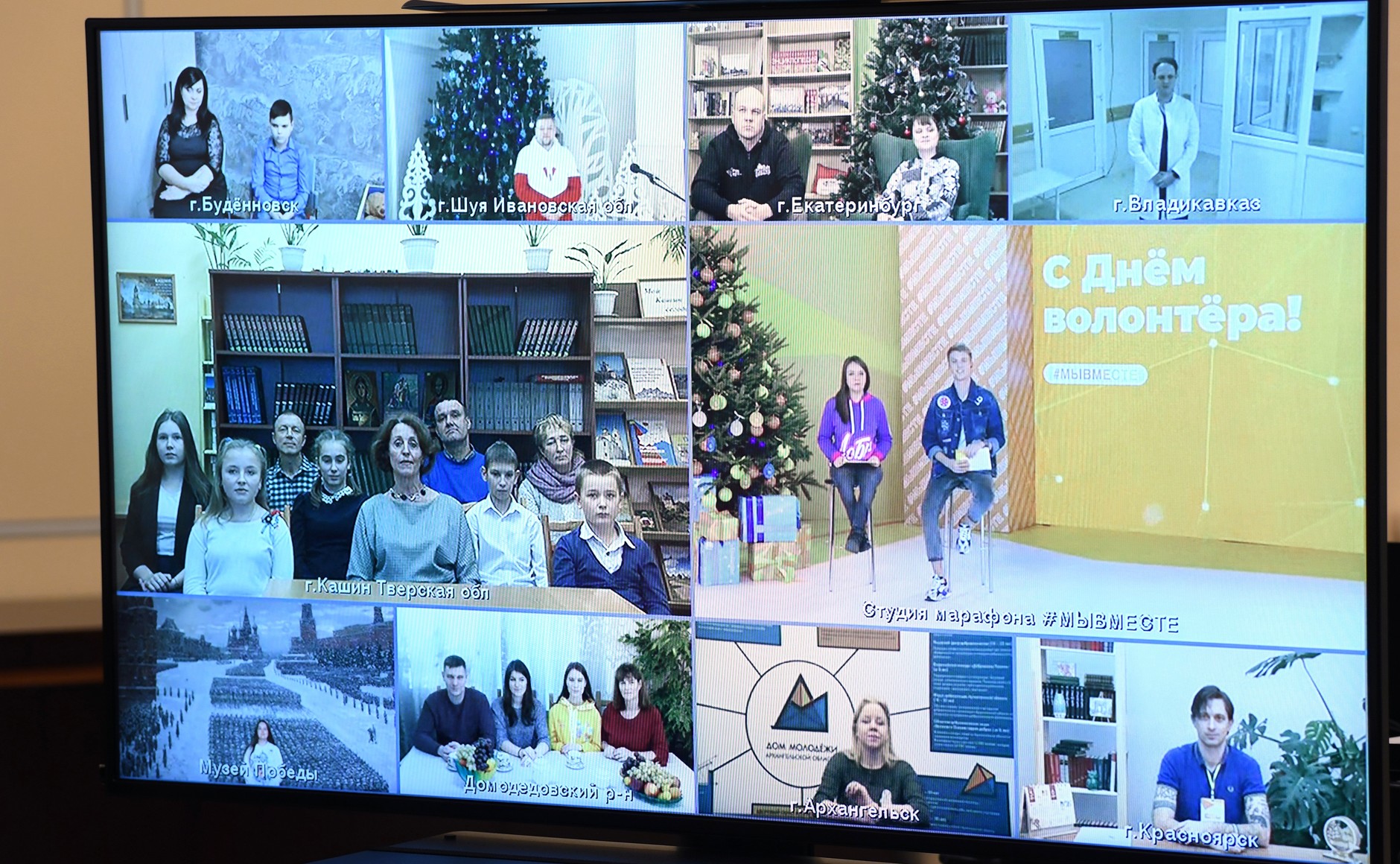 Friends, This year over 15 million citizens of our country – I did mention millions at the beginning – have taken part in various volunteer projects. But in reality there are many more people who respond to their neighbours’ misfortunes because sincere generosity, selflessness and compassion are a normal part of life for us. That is something that nobody will ever take away from us; it is the essence of our character, culture and traditions. It is passed on from generation to generation. As they say, it runs in our blood. The best qualities of our people have always, throughout the entire history of the country, ensured Russia’s moral and ethical leadership, and helped us overcome any ordeals. We have many slogans and sayings about it, and they reflect exactly this essence. When tragedy arrived this spring, each of us, all of society realised and felt that we are in this together. Mutual support, engagement and readiness to come to the rescue, all that does not depend on any political or any other views, which is vitally important. This is something that is above politics and something that truly unites us all. Let me repeat, we have revisited many ideas this year, we began to appreciate life even more, given greater care and attention to our family members, friends and the people who live and work side by side with us. Now we have more kindness, trust, compassion and unity. That is not quite right, what I mean is that these qualities have been revealed now, people are no longer diffident about showing them, on the contrary, they began to take pride in that, and this is crucial. 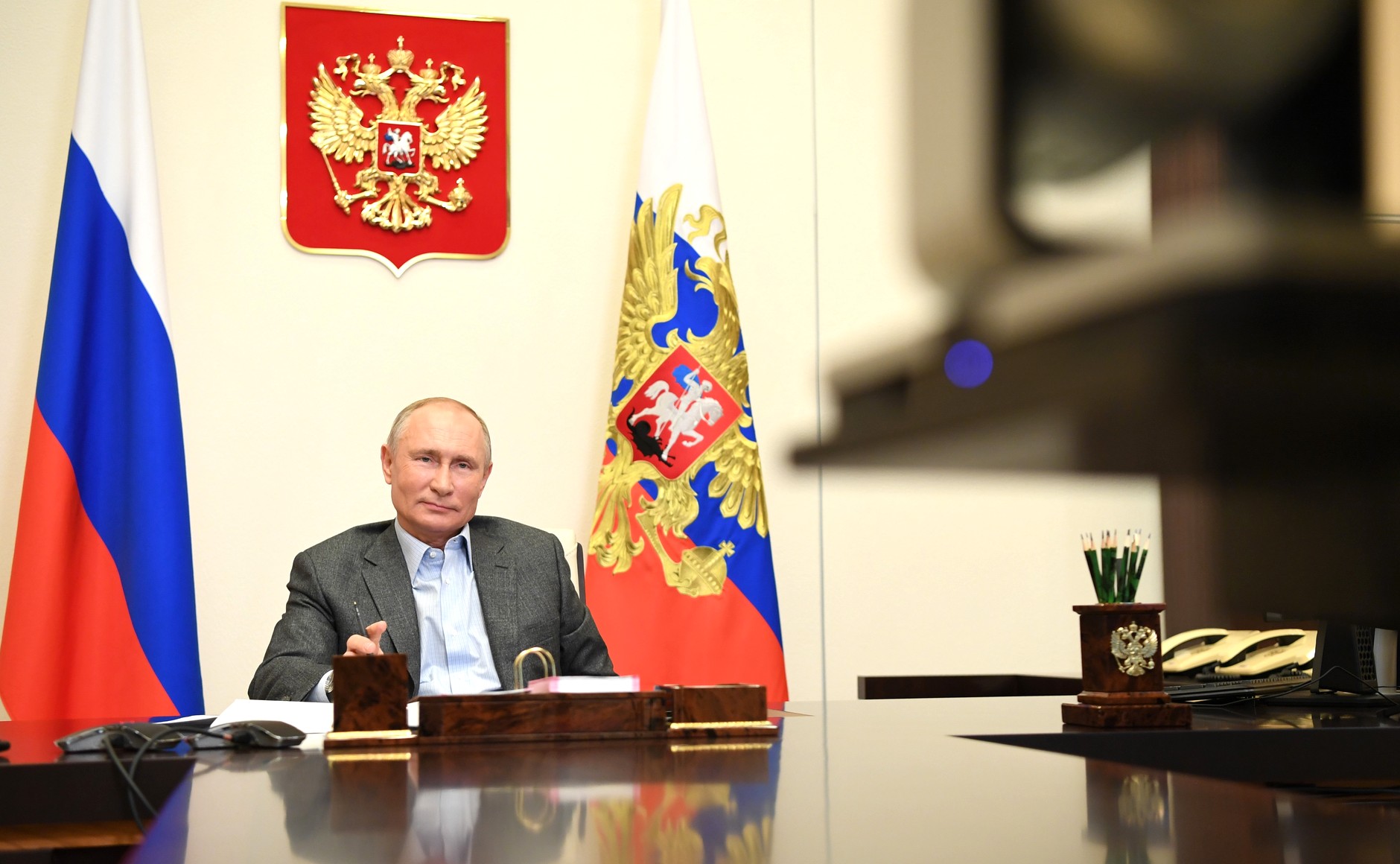 It is important to preserve and multiply all that because we will be able to move on and reach ambitious goals in both social and even technological development, economic development only when we have such a solid moral foundation. I would like to thank all volunteers for your compassion and sincerity, for making the lives of our people better and for sharing your heart and warmth with them every day. Thank you very much for that. I know that Alexei and Inessa [co-hosts of the meeting with volunteers] have prepared a substantive programme today. We will talk about your projects, your opinions of how and what is organised in our country and what else is needed. You can voice your suggestions so that we can help you and other volunteers like you. I am at your disposal. Go ahead. The source of information - http://en.kremlin.ru/events/president/news/64551 Congratulations on the 200th anniversary of the Mikhailovskaya Artillery Military Academy Vladimir Putin congratulated the faculty, students, cadets, graduates and veterans of the Mikhailovskaya Artillery Military Academy on its 200th anniversary. December 7, 2020 - 10:00 The message reads, in part: “The story of your famed academy began in 1820 with the establishment of the St Petersburg Artillery School. Since then, the academy has come a long and dignified way to becoming a large educational and research centre. You have every right to be proud of many generations of professors and faculty members, as well as your graduates, many of them outstanding researchers, military and civilian professionals and prominent state and public figures. Of course, the academy has also brought out a constellation of brilliant military leaders and officers who have been awarded the titles of Knights of the Order of St George and Heroes of the Soviet Union and Russia. The three orders on your banner are the nation’s recognition of your graduates’ military achievements, courage and unparalleled bravery. The academy is carrying on its historical patriotic traditions and is providing a unique contribution to the development of military science and the training of highly skilled command and engineering professionals for the Armed Forces of Russia, the FSB Border Guard Service and the National Guard, as well as for the armed forces of the CSTO member states and other countries. I have no doubt that the personnel of the Mikhailovskaya Artillery Military Academy will continue to honourably attain the goals set to it to the benefit of the Fatherland.” The source of information - http://en.kremlin.ru/events/president/news/64559 Congratulations on the 200th anniversary of the Peter the Great Military Academy of Strategic Missile Forces Vladimir Putin congratulated the faculty, students, trainees, graduates and veterans of the Peter the Great Military Academy of Strategic Missile Forces on its 200th anniversary. December 7, 2020 - 10:00 The message reads, in part: “Throughout its history, the academy has seen many outstanding achievements and heroic deeds. Since its establishment, it made a major contribution to developing research, as well as higher education in military affairs and technology. The academy trained many generations of talented graduates, renowned at all times for their professionalism, loyalty to their oath and service duty, resilience and courage. Of course, it is the academy’s graduates who form the core of the strategic nuclear forces’ officer corps, who are instrumental in ensuring missile and nuclear parity, defence capability and national security. They have also done a great deal to perfect future weapons and military machines and explore space. It is essential that today’s faculty and staff treasure and develop the unique scientific, creative and military heritage of their predecessors. Today, the Peter the Great Military Academy of Strategic Missile Forces has every right to be viewed as a major and respected educational and research centre that uses advanced information technology and innovative educational solutions, and carrying out major research projects.” The source of information - http://en.kremlin.ru/events/president/news/64560 Greetings on the 150th anniversary of the Tchaikovsky Opera and Ballet Theatre in Perm Vladimir Putin congratulated the company of the Perm Tchaikovsky State Academic Opera and Ballet Theatre on the occasion of its 150th anniversary. December 7, 2020 - 10:20 The message reads, in part: “The annals of history of one of the oldest musical theatres in Russia keep record of a brilliant palette of wonderful opera and ballet productions, as well as an entire constellation of talented singers, dancers, directors, musicians whose inspired work has made a major contribution to the development of Russian art and to the popularisation of the unique creative heritage of the great Russian composer Pyotr Tchaikovsky. It is important that today, the theatre is still a recognised cultural and educational centre, well known not only in Russia, but also far beyond its borders. With its solid creative and spiritual potential, it is appreciated by the most discerning audience. The current theatre company carries on the artistic traditions of its predecessors with honour, implementing remarkable and fascinating ideas and projects. I am confident that you will continue to delight your loyal fans with spectacular premieres, and enhance the glory of our national opera and ballet schools.” The source of information - http://en.kremlin.ru/events/president/news/64562 Meeting with Culture Minister Olga Lyubimova The meeting with Culture Minister Olga Lyubimova included a discussion on children’s art schools. Preserving cultural heritage sites was another major item on the agenda. December 7, 2020 - 13:20 - The Kremlin, Moscow 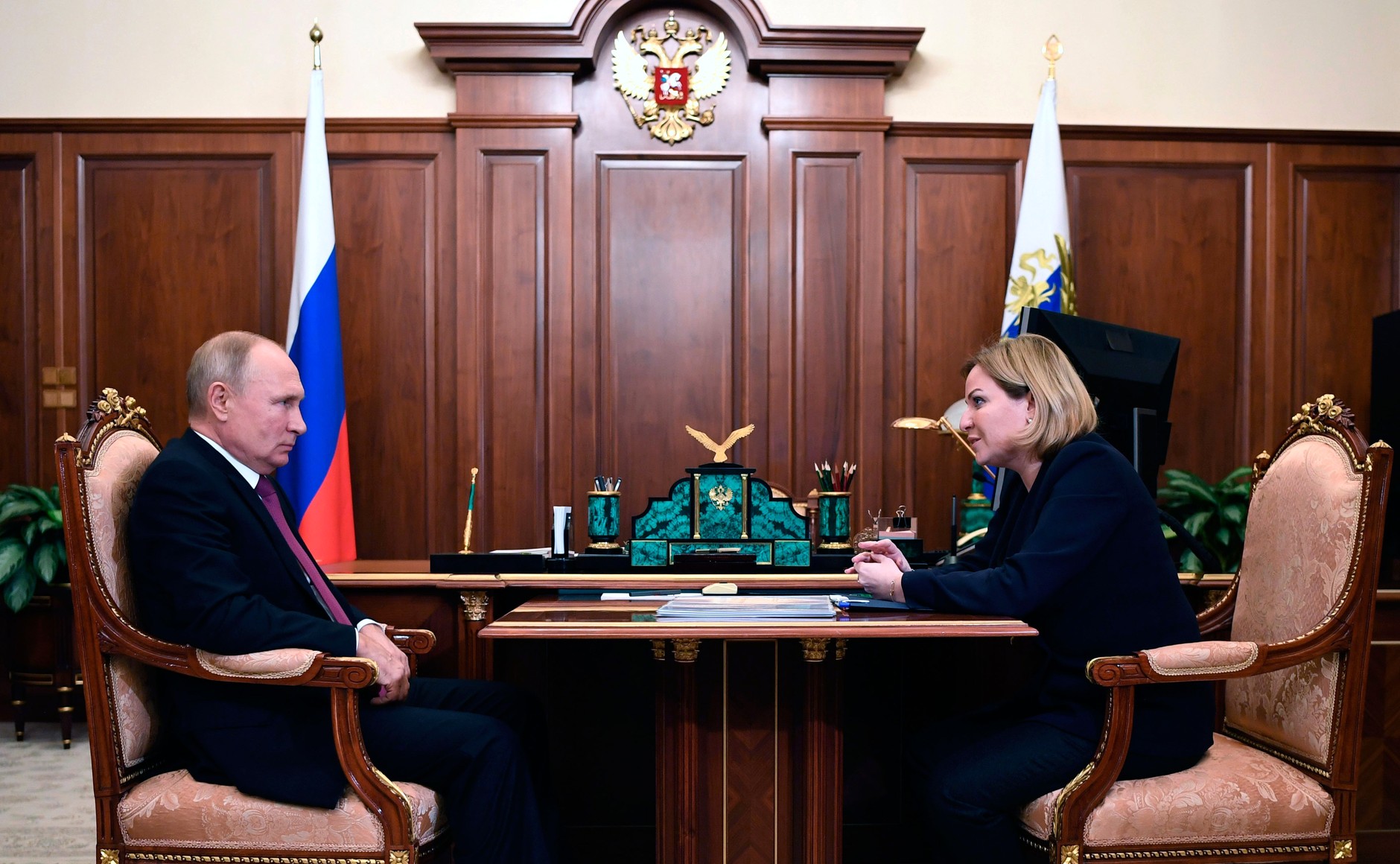 President of Russia Vladimir Putin: Good afternoon, Ms Lyubimova. Minister of Culture Olga Lyubimova: Good afternoon, Mr President. I would like to report to you on our projects. Vladimir Putin: Ok. But I would like you to begin with something else. You may remember that at the Council for Culture meeting some of our colleagues talked about music education in Russia, and the problems children’s art schools face. I have said on a number of occasions that these institutions should not be merged into local youth centres, as was the case during the Soviet period. After all, music and art schools were also created during the Soviet period, but they offered a different level of education and pursued different goals, and the teachers’ level of competence was entirely different. What can you say on this matter? Olga Lyubimova: This is the exact topic I wanted to start with today. Thank you very much for raising this matter. We have been working on it from the outset. It is true that the certificate created by the Education Ministry is a positive and well-minded initiative for extracurricular project groups. However, it is absolutely inappropriate when it comes to children’s art schools. It is not uncommon for five, seven or nine year-olds to attend these schools up to five times a week, instead of just one or two classes as is usually the case for project groups. Attending art school becomes part of daily life for the students. These institutions are our gold standard and we will make sure that it is maintained. Together with the Education Ministry, with Education Minister Sergei Kravtsov, we have worked this out and issued an order exempting children’s art schools from this programme. This was a very important decision. Before that, we had to make the necessary arrangements directly with the regions on a case-by-case basis, but now we have an order to this effect. Of course, everything that concerns children’s art schools is not only a traditional but also an absolutely unique national system, which we preserved in the most difficult years. We are doing all we can so that the national system of education offers an opportunity to share teaching practices and to encourage our graduates to accept teaching positions in this system. It is very important to have a system where arts can be taught in a comfortable atmosphere. This is a crucial factor, and it is connected to the relevant position in the Culture national project. In this way, we are renovating and restoring the existing schools, but we have also established 12 new schools, and we have increased the number of pupils attending them – I would like to draw your attention to this hugely important figure – by 68,000 children. Vladimir Putin: The art schools? Olga Lyubimova: Yes, the art schools we have across the country. In addition to renovation and reconstruction, we have bought 20,000 new musical instruments, which is really very important. We have provided 15,000 pieces of study materials the regions needed for a long time. We are now preparing new design estimate documents, and one of the most frequent subjects we discuss at our meetings with the governors in the regions is children’s art schools – it is our particular pride that everyone knows about such schools now, and something that even municipal authorities welcome warmly. The second issue on the slide you are looking at concerns the preservation of our cultural landmarks. It is an equally important issue. These are mostly our main large projects, which we have completed this year, even despite the coronavirus epidemic, and this was very important for us as well. We have renovated the Motherland Calls monument in Volgograd; it was one of the main projects we completed in time for the 75th anniversary of Victory. There were 11 kilometres of cracks in the monument, and 99 of the 117 cables inside it were rusty. The monument was built hastily in 1965, and we have completed unique cement work on the monument. Tula has the third largest number of museums now. It is said that the biggest problem for tourist families going there is that a weekend is no longer enough to visit all of them. The museums have children’s entertainment programmes so that families can leave their children there for a long time.The Novodevichy Convent is a very important project as well. We are carrying out some very serious work together with the Russian Orthodox Church, and it’s very important for us because the combination of a museum and church is an extremely delicate matter. You know, I was born in Moscow. We have shown Mr Sobyanin [Moscow Mayor] a new tourism attraction on a 500-year-old structure: a rampart where you can walk. I keep wondering why this is possible in Jerusalem and many other cities – there are lots of examples, but it’s a convent that we have here, and it seemed like an impossible thing to do, but now we have new opportunities and hence a new tourist route. Next, the St Alexander Nevsky Monastery. It is a very complicated restoration project. We are going to celebrate the birth anniversary of Prince Alexander Nevsky soon. Of course, in addition to the extremely important events being coordinated with the church to cater to the spiritual requirements of people, as well as educational programmes and concerts, it is good that we have an opportunity to both renovate the facades and carry on thorough restoration until 2028. The monastery must shine.  Vladimir Putin: There are also several facilities inside the monastery that need our attention. Olga Lyubimova: Yes, we talked with His Holiness about this. We are looking into the possibilities, because time goes by and we do need to renovate this object. Going back to reconstruction, I would like to say that this is a new programme we have prepared at the Culture Ministry for the conservation of monuments. We are pressed for time, and money is an important factor as well. We are not asking for additional funds; we have redistributed the available resources so that we can finance the conservation of 50 large cultural heritage sites for decades ahead. An extremely important aspect of restoration concerns wooden architecture. There are 7,500 wooden churches in Russia, and 3,500 of them are dilapidated. It is a huge problem. At the same time, we need to train more restorers, as you mentioned at the Council meeting. This project should be undertaken together with the church and the dioceses. Our work is like a traffic light: some things are red, others are yellow, and some are green, which means that they are still in good condition. Vladimir Putin: How old are these objects, these landmarks? Olga Lyubimova: Some were built in the 16th century, and others date back to the 14th century. Vladimir Putin: Wooden architecture? Olga Lyubimova: Yes, wooden churches. We are completing an extremely complicated restoration project in Kizhi. And we are training a new generation of restorers during these projects. I will tell you later about our volunteers, which is a precious experience for us. As for major projects, I would also like to mention the Tsiolkovsky Museum – a very complex project indeed. We have been working on it since 2010, and the museum will mark its 60th birthday in 2021. Vladimir Putin: A Museum of Cosmonautics? Olga Lyubimova: Yes. They would really like to see you at the opening there in Kaluga. It’s 15,000 square metres, and it has everything for children, for a prolonged stay – lecture rooms, cinemas, and a café even offers the chance to taste the food that astronauts eat, and of course, there are unique rare exhibits that cannot be seen anywhere else. We are now finishing the construction on time, and the museum workers are currently busy with their favourite part of the work – they are putting together the display. The Culture national project – we have used up 99.9 percent of the funding in 2019. We hope and are determined to do just as well this year. We are slightly ahead of the plan now, up 1.5 percent. This is a very important task for us. Nevertheless, you know, every bit of it is in great demand in the regions. This concerns very small facilities, and the result is visible. And it is all very important – I am referring to event centres, virtual rooms, autoclubs, the mobiles [mobile cultural and educational institution], which have been modernised and are helping my colleagues, regional ministers of culture, to apportion cultural life in small municipalities appropriately, to organise concerts and other events. You know, usually, this is a complicated story when you work with the regions: design estimates are not ready on time and so on. We now have project estimates at 10 billion rubles for local event centres, and once you come to the regions, the governors say, give me six more such centres, we need seven of those here. Because people are eager to visit them. Vladimir Putin: Autoclubs, I see… Olga Lyubimova: Autoclubs, yes, we have it as a mobile [institution], like in the Soviet years, remember, but more modern. And based on the above, it makes perfect sense to award a large number of grants to our art companies, including, which is very important, amateur ones. Indeed, they receive serious help – a grant of 2 million rubles which they can spend on new costumes, new equipment and, of course, this feeling of attention from the government. There are cultural volunteers here, also a major project of ours, which is very inspiring. We were afraid that the coronavirus would make things difficult… These young people come from all over the country to restore cultural heritage sites. They took part in the conservation of the first thousand facilities. Plus, they see specialists who share their experience with them, and see that these facilities are in demand, that is, the skills they learn will come in handy one day. They also make friends, fall in love, and there is romance against the backdrop of restoring a beautiful old estate. Certification is important for us. We had to immerse ourselves in it quite deeply. We have created a register upon your instructions, and clearly this responsibility now lies with the regions. We are convinced that the Ministry will have to assume responsibility, return these territorial administrations, and take the matter in their own hands and deal with licensing. 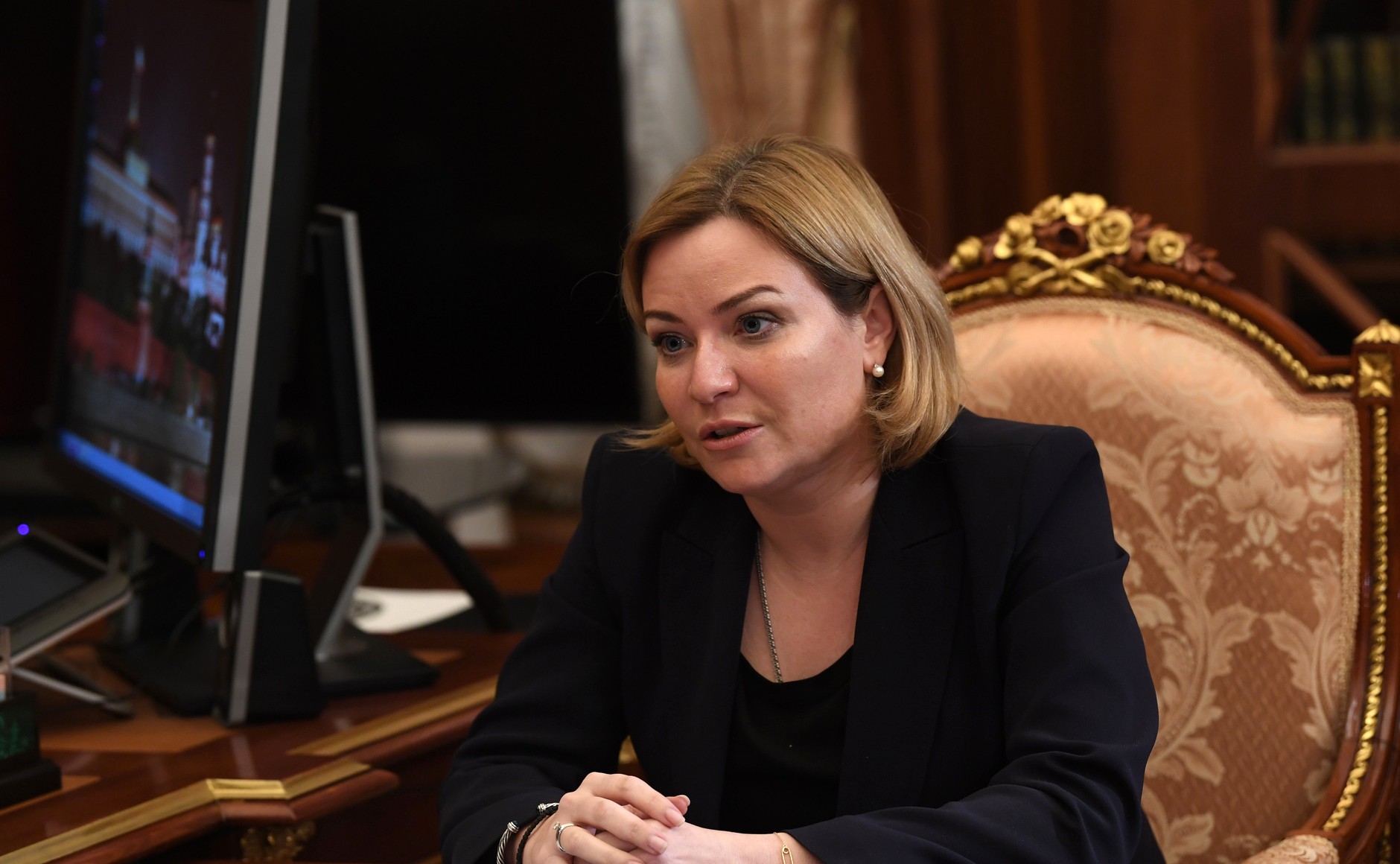 Vladimir Putin: Licensing of what? Olga Lyubimova: We issue licenses to restorers and managing companies. In addition, the license used to be issued for an indefinite period of time. Now, it has become clear that it needs to be monitored over five years. Any three mistakes warrant a license revocation. We are aware of the number of sites that have to be redone, and we just can’t afford it. We don’t have either the time or the money for this, and we are losing sites this way. Of course, certification is important. This means new specialists are coming onboard. It must be official-free. Just a professional community with free certification. Of course, the commission must be objective, which the Ministry of Culture is often reproached for. This is the kind of responsibility that we do not want to lose. On the contrary, we want to assume more of it. Another very important draft law, which is related to cultural heritage sites as well. I will say just a few words about this. You are aware that we have cultural heritage sites that people live in. This is our shared effort with Mr Khusnullin [Deputy Prime Minister], and we are very grateful to him for that. Indeed, he assumed responsibility for these complex sites and these long-awaited results. In turn, we are working out the regulatory framework in order to step up this work. With regard to the theatre, we plan to add a new programme. Vladimir Putin: Which one? Olga Lyubimova: A new, totally individual programme within the Ministry, which is tied in with an open form of protecting theatre projects dedicated to Russian classics. This includes both school curriculum and a programme dedicated to the anniversaries of our classics, such as Fyodor Dostoevsky and Bunin. This will allow us to add to the Russian repertoires… Vladimir Putin: Is this about Bunin’s 150th anniversary? Olga Lyubimova: Correct, and Dostoevsky’s 200th anniversary. Alexander Ostrovsky is next. Clearly, we have the Maly Academic Theatre, but there are also a vast number of other venues. I think that not only a federal theatre, but also regional or children's theatres, can claim support in this federal contest. A good show with beautiful decorations can live for 20–25 years, like Juno and Avos, or like a good production of Tom Sawyer, which I saw, then my children saw and which still draws in crowds to Molodeznhy Theatre. Thus, this contest will then make it possible to provide support as part of the Big Tour programme. It makes sense to talk about cinema separately because we should have a separate contest for socially important films. In fact, this is a public contract. There are a number of subjects we need to address, as everyone is aware. Our professional community has matured. They know there is the Cinema Fund, which finances films for the general public, including romantic comedies, which is good, because there are no bad genres. Shakespeare wrote comedies, and Pushkin did too. However, when it comes to the tasks the Ministry of Culture faces, we believe that there must be a kind of competition. Anyway, this is a very important factor connected both with fictional films and with documentaries, and not just anniversary movies about certain events or people. I would like very much to have your support for this subject. We can report minor achievements in this difficult year, including in the digital sphere. It is delightful that not only adults but also children have come to trust our культура.рф project. The number of views on our site has greatly increased, including views of children’s content, which is very important as well. And lastly, one of our extremely important initiatives. As you know, we have the St Petersburg Cultural Forum, which is really very popular and important. We would like to complement this with a children’s cultural forum, where we would have the same sections. Of course, it is adults who meet to discuss children’s problems, including in education, but children can address them as well. Of course, we hope very much to have your support. We would like our youngest workers of arts to attend such events; they are our softest power. This is a very serious initiative needed for children to meet and see each other, share their experience during the day. Children are actually incredibly hard workers. And in the evening they, young people from all over the world, should be able to watch the best performances we can offer or visit museums. And our tutors who are ready to help us and contribute to in 10 sections, will make such events very interesting and will share their experience – these are the kinds of people who can do this. Vladimir Putin: This is a very good programme. Thank you. Olga Lyubimova: Thank you very much. The source of information - http://en.kremlin.ru/events/president/news/64558 Telephone conversation with Federal Chancellor of Germany Angela Merkel Vladimir Putin had a telephone conversation with Federal Chancellor of the Federal Republic of Germany Angela Merkel. December 7, 2020 - 15:00 The leaders discussed in detail the Nagorno-Karabakh developments. Vladimir Putin told Angela Merkel about Russia’s mediation efforts with a view towards a cessation of hostilities and the activities of the Russian peacekeepers deployed along the contact line and the Lachin Corridor at the requests of Baku and Yerevan. It was emphasised that the consistent implementation of the agreements recorded in the November 9 Statement by the presidents of Russia and Azerbaijan and the Prime Minister of Armenia facilitated the general stabilisation of the situation in the region. The two leaders underscored the importance of resolving the urgent problems of the population that was affected by the armed clashes. In this context, they noted the need to involve specialised international structures in the work conducted by the Russia-established Humanitarian Response Centre. Both leaders expressed their willingness to further cooperate within the framework of the OSCE Minsk Group. Exchanging views on the Ukrainian domestic conflict, Vladimir Putin and Angela Merkel noted with satisfaction the general observance of the armistice that was introduced in conformity with the measures to strengthen the ceasefire signed by the Contact Group in July. At the same time, they expressed concern over the lack of progress in implementing the political aspects of the 2015 Minsk agreements and the decisions of the Normandy Four which were adopted at the Paris summit a year ago. They again noted that the Minsk agreements have no alternative as the basis for a settlement and pointed to the importance of Kiev’s fulfilment of its commitments. The leaders confirmed their intention to continue joint efforts in the Normandy format, including by the political advisors of the leaders of Russia, Germany, France and Ukraine. Certain urgent bilateral issues were also touched upon. In the context of cooperation in countering the spread of the coronavirus infection, it was agreed to continue contacts between the Russian and German healthcare ministries, including on the issues of vaccines. The source of information - http://en.kremlin.ru/events/president/news/64561
__________________
Where should they dig the Very Deep Pit? Piglet said that the best place would be somewhere where a Heffalump was, just before he fell into it, only about a foot farther on. (c) Alan Alexander Miln |
|
|
#159 |
|
Senior Member
|
Greetings to the General Meeting of the Russian Academy of Sciences
Vladimir Putin sent his greetings to participants in the General Meeting of the Russian Academy of Sciences dedicated to the 75th anniversary of the Russian nuclear industry. December 8, 2020 - 10:00 The message reads, in part: “The establishment and development of the nuclear industry was a major, truly landmark event in our history, which largely predetermined the efficient development of science, the economy, the defence industry, energy and healthcare, and helped attain nuclear missile parity and ensure national security. I would like to point out that these outstanding achievements were made possible by the talent and creative genius of the founding fathers of the nuclear project: academicians Igor Kurchatov, Yuli Khariton, Yakov Zeldovich, Andrei Sakharov and other renowned scientists and their productive and constructive cooperation with nuclear industry professionals. It is gratifying that you treasure the labour traditions of the numerous generations of your predecessors and their unique intellectual and scientific heritage. It is essential now to actively contribute to the large-scale national goals and to build up fundamental research in the areas of science and technology that have priority importance for national development. I have no doubt that your meeting will be held at a high level and that you will use this opportunity to exchange positive experience and make plans for the future.” The source of information - http://en.kremlin.ru/events/president/news/64566 Meeting on the parameters of Russian Railways’ financial plan and investment programme Vladimir Putin chaired a meeting, via videoconference, on the parameters of the Russian Railways’ financial plan and investment programme. December 8, 2020 - 14:05 - Novo-Ogaryovo, Moscow Region 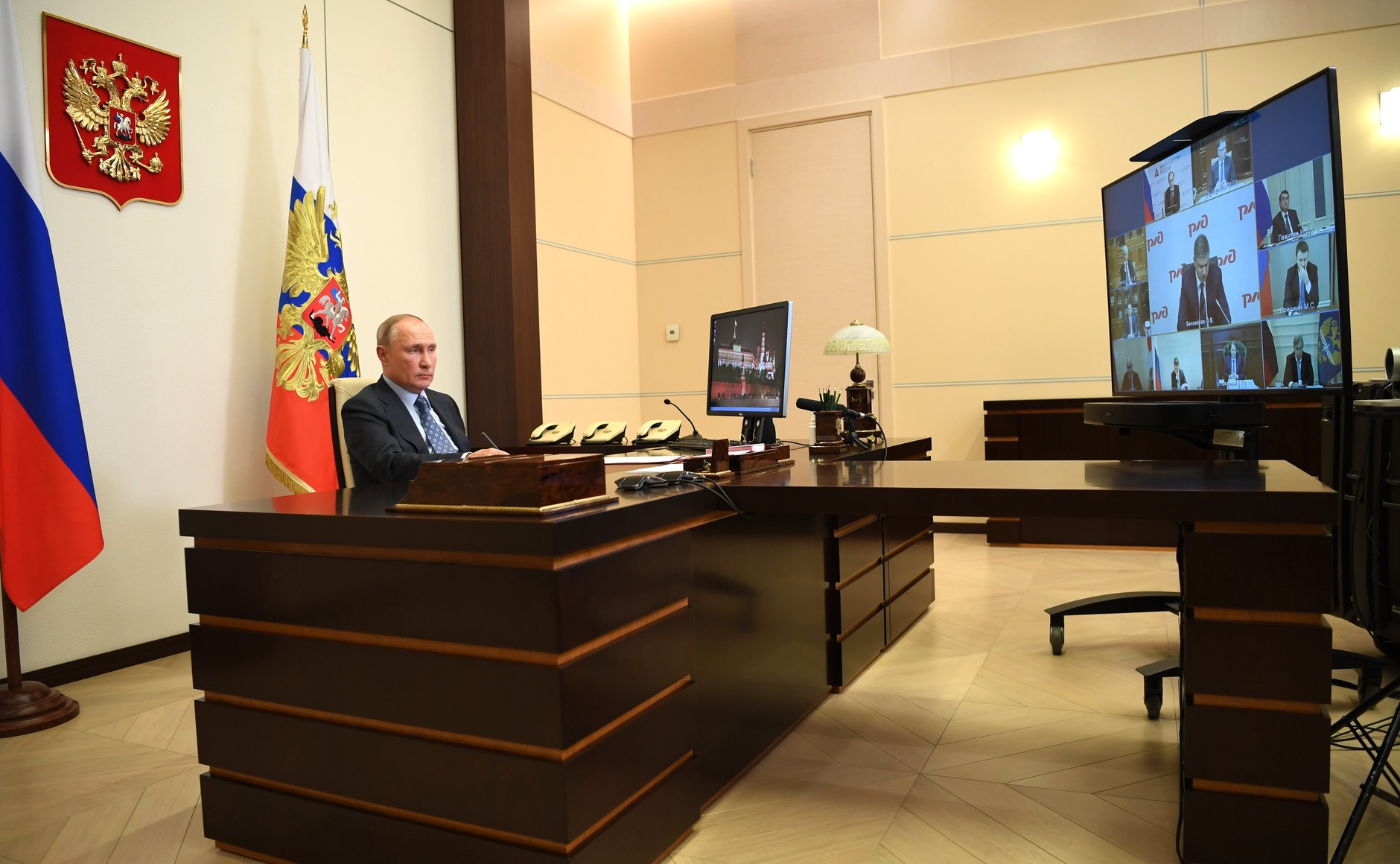 The topics discussed at the meeting included the company’s involvement in implementing the Comprehensive Modernisation and Mainline Capacity Infrastructure Expansion Plan, including the development of the Eastern Operating Domain, the Central Transit Hub and access routes to the ports in the Azov and Black Sea basin. The participants had a detailed discussion on sources of funding for Russian Railways’ capital expenses, with due consideration for the need to balance corporate finance while avoiding an excessive debt burden. In this context, they also considered the possibility of selling non-core corporate assets. Commenting on a proposal to look into the possibility of selling, among other things, medical infrastructure facilities, the President urged everyone to approach this matter very carefully because the Russian Railways’ healthcare system was functioning efficiently, and some cities lacked alternative medical clinics providing high-quality treatment. The meeting was attended by First Deputy Prime Minister Andrei Belousov, deputy prime ministers Yury Borisov and Marat Khusnullin, presidential aides Igor Levitin and Maxim Oreshkin, Minister of Industry and Trade Denis Manturov, Minister of Economic Development Maxim Reshetnikov, Minister of Transport Vitaly Savelyev, Minister of Finance Anton Siluanov, Deputy Minister of Transport – Head of the Federal Agency for Railway Transport Vladimir Tokarev, and Russian Railways General Director – Chairman of the Management Board Oleg Belozerov. 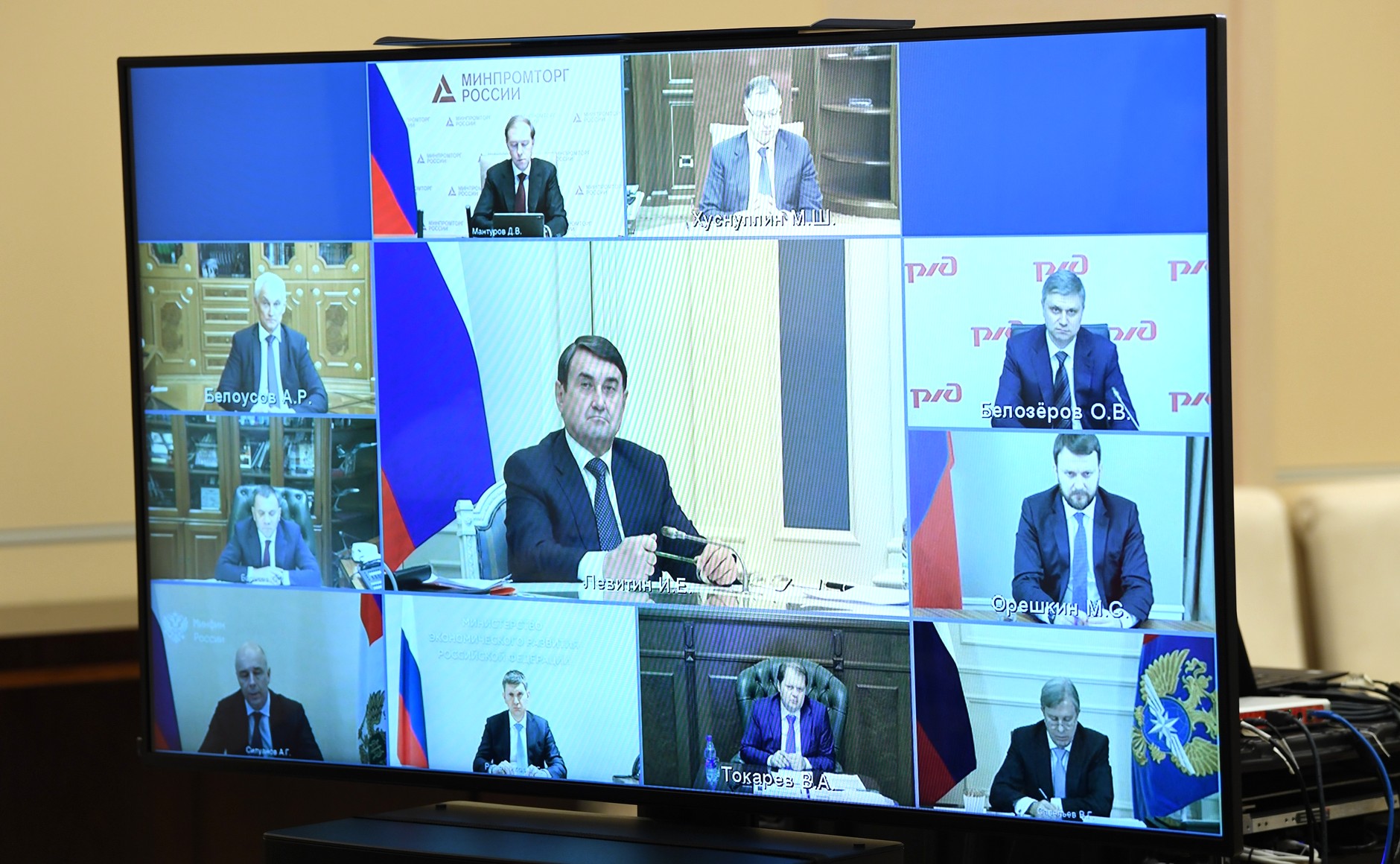 President of Russia Vladimir Putin: Good afternoon, colleagues, I know that you have repeatedly discussed various aspects of the Russian Railways investment programme, both at the corporate level and at the government level. As agreed, today we will talk about the investment programme proper and the company’s financial plan for the coming years, as well as the details of our largest infrastructure company’s development goals and sources of funding for its capital investments. I would like to stress right away: Russian Railways’ sustainable and steady development undoubtedly influences the dynamics of many sectors of the domestic economy and sets the pace and quality of growth in mining, manufacturing, agriculture, and other industries, and forms a solid basis for increasing Russian companies’ export potential. And of course, the expansion of the railway network and upgrading of rolling stock play a special role in maintaining transport connectivity across our vast country. This is also very important for increasing the speed and quality of passenger transportation. Russian Railways has prepared an investment programme. One of its priorities is the reliability and stability of railway service. In this regard, I would like to highlight the current maintenance of the infrastructure, the timely repair of railway tracks to ensure that they are safe. I know that the number of railway facilities requiring repairs is decreasing, but is still higher than the 2015 level, I think, so there is something to work on. I look forward to hearing from you today how work in these areas will be structured in the coming years. A separate task is Russian Railways’ involvement in the implementation of the Comprehensive Modernisation and Mainline Capacity Infrastructure Expansion Plan. I would like to remind you that it involves large and important projects such as the development of the Central Transport Hub, railway exits to seaports of the Azov and Black Sea basin, and others. There is also a project to extend the so-called Eastern Operating Domain (upgrade of the Baikal-Amur and Trans-Siberian railways). I would like to underscore again that these projects are definitely strategic in nature, and will have a long-term comprehensive effect for individual regions and territories, and for the entire country. They should also provide work for the construction industry, ensuring contracts for domestic suppliers and contractors, and creating new high-quality jobs. In the next few years we plan to increase investment in the Eastern Operating Domain several times over. Today it is certainly one of the main elements, a railway bottleneck we must deal with. Everyone attending this meeting is well aware of this. We need to export products to the promising Asian markets. We plan to invest substantial funds. I am aware of the limitations due to the current developments in the economy; this is an obvious, understandable and objective thing. However, we must analyse all our development and investment plans thoroughly with due regard for previous instructions and, of course, for the current situation in the economy and future possibilities.  I would like to point out that the carrying capacity of our railways is a resource that hundreds and even thousands of Russian companies need, as all of us are aware. It is with a view to clear development forecasts for the transport infrastructure that our economic operators, our companies coordinate their investment projects, business expansion plans, the hiring of new workers, etc. I would like to ask you to report in detail on the readiness of Russian Railways and our construction industry to launch an active phase of the expansion of the Baikal-Amur and Trans-Siberian railways. I am referring to personnel, technological and organisational matters. Of course, we also need to determine the sources of funding for Russian Railways’ capital expenditures in the amount needed to attain these goals. At the same time, it is important to ensure a balance of corporate finance. You must avoid an excessive debt load on the company. As we all are aware, and I have cited this example from RZD operations, last summer Russian Railways, using the assistance of the Government and the Central Bank, issued an instrument that is new for our securities market, the so-called perpetual bonds. This has ensured support for the company’s investment programme this year and has given it access to the necessary resources. However, we must not forget about the relevant bond payments. Mr Belozerov will tell us how much this amounts to, but as far as I remember it is up to 28 billion rubles. We obviously need other effective solutions that take into account the specifics of Russian Railways and allow us to use modern mechanisms for attracting investment. In this connection, I would like to ask the meeting participants to share their views and ideas about our railway tariff policy for the period up to 2024. This is extremely important for market players. I would also like to ask the Government to analyse these proposals in detail. Let us start working. The source of information - http://en.kremlin.ru/events/president/news/64565 Condolences on passing of USSR Marshal of Aviation Yevgeny Shaposhnikov Vladimir Putin expressed his condolences to the family and friends of Yevgeny Shaposhnikov, Marshal of Aviation of the Soviet Union and Merited Pilot of Russia. December 8, 2020 - 20:00 The message reads, in part: “Marshal of Aviation Shaposhnikov devoted his life to serving the Fatherland in the armed forces. He was a top-notch professional and a man of strong will, principle and great energy. Yevgeny Shaposhnikov held responsible positions, including during life-changing periods in the country’s history, making a great personal contribution to ensuring the country’s defence capability and security.” The last Defence Minister of the Soviet Union, Marshal of Aviation Yevgeny Shaposhnikov died in Moscow at the age of 78. The source of information - http://en.kremlin.ru/events/president/news/64621 Greetings on Heroes of Fatherland Day December 9, 2020 - 09:00 President of Russia Vladimir Putin: Citizens of Russia, Friends, Today, on Heroes of the Fatherland Day we pay tribute to the courageous and valiant people, our compatriots who acted heroically in the name of the Fatherland, to save our near and dear ones, and in the interests of peace, prosperity and wellbeing in the world. They have been awarded the highest state decorations – the titles of Hero of Russia and Hero of the Soviet Union, and the Orders of Glory and St George. We revere the memory of all defenders of our homeland, who selflessly fought for our country in different periods of our history – during the 1812 Patriotic War, the First World War and the bitter trials of the Great Patriotic War, defending Russia’s independence and the right to choose its future freely and independently. Our very existence was made possible due to their heroism and selfless deeds in the name of supreme goals and values, and it is our duty never to forget this. Deep appreciation for heroes is a feeling shared by all generations of Russian citizens, and an honest and sincere striving to be worthy of our great history produces new heroes. The chronicles of Russian glory contain a vast number of names of those who fought heroically on the battlefront and distinguished themselves in civilian labour and service. We are also proud of our contemporaries, who are doing their military, human and professional duties honestly and courageously, working towards the ambitious goals of stronger sovereignty and defence capability, selflessly saving human lives in hospitals and medical centres, attaining impressive achievements in the interests of national development, and thereby setting an example of faithful service to the people, society and the Fatherland. I am confident that the chronicles of Russian glory will never be stopped, because patriotism, courage and readiness to assume responsibility in a difficult moment despite personal risks are the shared qualities of our people of different ethnicity, professions and age groups. It runs in our blood and the character of our people. Each act of heroism and every person who commits it leave their mark on history, in people’s memory, showing again and again that dedication, strong will and sincere love for the Fatherland have an incredible power, which recognises no obstacles and for which nothing is impossible. Congratulations on Heroes of the Fatherland Day! The source of information - http://en.kremlin.ru/events/president/news/64615 Greetings to international conference on countering novel coronavirus and other infectious diseases Vladimir Putin sent greetings to the participants and organisers of the international applied science conference on Countering the Novel Coronavirus and Other Infectious Diseases. December 9, 2020 - 10:00 The message reads, in part: “The importance and timeliness of the matters on the conference agenda can hardly be overestimated. Scientists, doctors, health officials and sanitary and epidemiological officials are at the forefront of the fight against the largest pandemic in decades, COVID-19. Other infections that also pose a serious threat to millions of people continue to require decisive action. I would like to reaffirm Russia’s full openness to the broadest possible cooperation with foreign partners in the pandemic relief effort and to an exchange of accumulated experience in COVID-19 prevention and treatment. As you know, our country has successfully developed effective test systems for diagnosing the novel coronavirus in the shortest possible time, and has also created and registered the world's first COVID-19 vaccines. I hope that during the conference, you will have constructive and substantive discussions, and the outcome of your joint work will help save lives and protect people’s health in our countries.” The source of information - http://en.kremlin.ru/events/president/news/64622 Greetings on opening of 4th Russian research conference, Theology in the Academic Space: Tasks and Solutions Vladimir Putin sent greetings to the participants in the 4th Russian research conference, Theology in the Academic Space: Tasks and Solutions. December 9, 2020 - 13:30 The message reads, in part: “I would like to note that theology occupies an important place in the system of humanitarian knowledge and has a distinct and important ideological and educational mission. It promotes the preservation of spiritual and moral values and the prolific cultural heritage of all peoples living in Russia. Therefore, it makes perfect sense to convene representatives of government bodies, academia, religious and public organisations to discuss a wide range of topics such as improving the system of training qualified personnel, improving the quality of theology instruction at traditional and spiritual educational institutions, and strengthening its methodological framework, as your meeting has. I am sure that the conference will be held in a constructive and creative atmosphere, and you will be able to address the matters on its programme with a high level of expertise, and your decisions will certainly be implemented.” The source of information - http://en.kremlin.ru/events/president/news/64630 Meeting with Government members Vladimir Putin held a videoconference with members of the Government of the Russian Federation to discuss the development of several high-tech areas. December 9, 2020 - 15:50 - Novo-Ogaryovo, Moscow Region The meeting was attended by Prime Minister Mikhail Mishustin, Chief of Staff of the Presidential Executive Office Anton Vaino, First Deputy Prime Minister Andrei Belousov, First Deputy Chief of Staff of the Presidential Executive Office Sergei Kiriyenko, Deputy Prime Ministers Yury Borisov, Tatyana Golikova, Dmitry Grigorenko, Alexander Novak, Marat Khusnullin, and Dmitry Chernyshenko, Deputy Prime Minister – Presidential Plenipotentiary Envoy to the Far Eastern Federal District Yury Trutnev, Presidential Aide Maxim Oreshkin, Minister of Economic Development Maxim Reshetnikov, Minister of Finance Anton Siluanov, Minister of Civil Defence, Emergencies and Disaster Relief Yevgeny Zinichev, Minister of Industry and Trade Denis Manturov, Minister of Agriculture Dmitry Patrushev, Minister of Construction, Housing and Utilities Irek Fayzullin, Minister of Digital Development, Communications and Mass Media Maksut Shadayev and Minister of Energy Nikolai Shulginov.  President of Russia Vladimir Putin: Colleagues, good afternoon. Let us get started. Today we have a very important topic, something we always keep an eye on, as we should – the development of some of our high-tech areas. Let us talk about this in more detail; Andrei Belousov, Dmitry Chernyshenko and Denis Manturov will deliver keynote reports. However, before we start discussing our main topic for today, I would like to ask Mr Alexander Novak to report to all our colleagues about how it went with our OPEC+ partners – given that this matter is of greatest importance to us. We do care about how the pricing situation in the world markets will develop, and much depends on this here in Russia. I would like to ask you, Mr Novak, to present things in such a way as to put our colleagues in the picture, give them an idea of the prospects of the industry for the near future, an industry that is most important to us. Go ahead please, Mr Novak. Deputy Prime Minister Alexander Novak: Thank you. Good afternoon, Mr President. Mr Prime Minister, colleagues, I took part in the meeting of 22 countries last week, just as you instructed me. The main purpose of this meeting was to review performance under the OPEC+ agreements, as well as to assess the current situation on the market and discuss its prospects for next year. Of course, coordinating actions of OPEC countries after January 1, 2021, was the key item on the agenda. Let me remind you that under the agreement that has been in force since April 10, 2020, the participating countries had to cut their overall production by a total of 7.7 million barrels per day. Under the same deal, the production adjustments were to be scaled down to 5.7 million barrels beginning on January 1, 2021, which would have meant a reduction in global output of 2 million barrels. Considering the current market situation, participants expressed a wide range of views on what should happen after January 1, 2021, from increasing production by 2 million barrels per day to extending the current production cuts for a quarter or even six months. It took a lot to come to an agreement. We even had to postpone the official meeting by two days due to the differences we had. In the end, we reached the following agreement. First, we reconfirmed the existing commitment under the agreement and the need to gradually return 2 million barrels to the market. At the same time, recovery rates must be regulated by the state of the market. Second, this agreement was subject to adjustment: starting in January, these countries will increase production by 500,000 barrels a day, thus decreasing the reduction volume from 7.7 million to 7.2 million barrels per day. Importantly, the increase in production distribution is supposed to be even, in accordance with output ratios. And the third point: we agreed to hold monthly meetings starting in January to assess the market and decide on any further changes in production for the following month, given that each time this change cannot exceed 500,000 barrels. We believe this decision fully meets Russia’s interests and allows us to increase production by another 125,000 barrels in January. Thus, considering we raised it by 500,000 barrels in August, the total production increase in Russia in January will be 625,000 barrels relative to the reductions that were introduced in May. Thus, we will restore production by 31 percent as compared to the highest reduction. In turn, this will stabilise our market. That said, prices have been stabilized within a predictable range. Average oil prices have been $40-$45 a barrel during the term of this agreement. Let me recall that in April, the most difficult month, the average price of Brent was $26.6 a barrel. Now, in December, it has increased to $48-$49 per barrel. Monthly meetings help us make more precise and balanced decisions with consideration for market conditions, and gradually restore production while preventing both market excesses and overproduction. As for the current market situation, I will say briefly that today we are seeing a partial recovery of the market and demand compared to April when demand for oil and petroleum products fell by about 22–25 million barrels per day. Although the drop in demand is lower than we predicted in summer, today it is only about 6–7 million barrels, In other words, the recovery has reached about 15–17 million barrels per day. That said, we are seeing a reduction in the reserves of oil that was overproduced in the spring. Starting in July, the total reduction relative to average five-year figures amounted to about 100 million barrels per day. The key stock-exchange indexes are coming up. They have recovered by 10 to 30 percent. Of the positive factors that influence the market, I would like to mention the end of US election activity and the announcement of three vaccines by the largest pharmaceutical companies, in addition to the Russian vaccines. And we are seeing that oil imports are also increasing in the Asia-Pacific Region by 2–2.5 percent even over last year. A number of factors that negatively affect the market are still an influence. These include so-called uncertainties like the restrictions that some countries have introduced to counter the second wave of the pandemic. We are also seeing that, compared to the summer, there has been a huge reduction in commercial air flights, at about 60 percent of pre-crisis traffic levels. As for average vehicle use, this has gone down significantly compared to the summer when it was sharply recovering. Nevertheless, we are seeing that in spite of that, it is still much higher than during the crisis last spring. We are observing the situation in the countries that are not members of the OPEC+ agreement, the United States, Canada, Norway and Brazil, to name a few. Considering market recovery and given price increases, these countries are gradually returning to investment and production activities, which must be monitored as well. To sum up, Mr President, it is necessary to continue to watch and monitor the current market situation, and make the most rational and correct decisions for market stabilisation, primarily in the interests of Russia. We have agreed to hold the next meeting on January 4 to decide what actions to take in February. Thank you. My report is over. Vladimir Putin: Thank you very much. Mr Siluanov, what is the Finance Ministry’s assessment of the agreements and what have we seen recently? Minister of Finance Anton Siluanov: Mr President, colleagues, In cooperation with Mr Novak, we have drafted proposals on Russia’s position. We believe that predictability in the oil market is one of the most important conditions both for financial stability and for the provision of resources for the budget and the National Wealth Fund. We set the basic oil price at slightly over $43 per barrel for most of next year. Therefore, we believe the decisions Mr Novak just gave us will allow us to receive the planned budget revenues based on oil prices and maybe even replenish the National Wealth Fund that we use for financing structural projects. Therefore, it seems to me that the predictability and stability of oil prices in the world market is the main achievement of our colleagues on oil price regulation. Thank you. Vladimir Putin: All right. Thank you very much. I would like to ask you to say a few words about the preparedness of the power industry – the large energy sector, the grid complex – for winter. Winter has already arrived, we are seeing severe frosts in many regions of the Russian Federation. In this context, I would like to hear the opinion of Mr Shulginov. I am particularly interested in Trans-Baikal Territory, the Jewish Autonomous Area and Primorye Territory. At this point, I would like to ask Mr Faizullin to say a few words and then M Zinichev can join in. (Later, the participants heard reports from Energy Minister Nikolai Shulginov, Minister of Construction, Housing and Utilities Irek Faizullin and Emergencies Minister Yevgeny Zinichev. In addition, at the President’s request, Minister of Agriculture Dmitry Patrushev reviewed the year in agriculture and the indicators for self-sufficiency in basic foods.) Vladimir Putin: Let us move on to the main subject, the main report, the development of high-technology areas. Mr Belousov, please. Mr. Chernyshenko and Mr Manturov, you will be next. Go ahead, please. 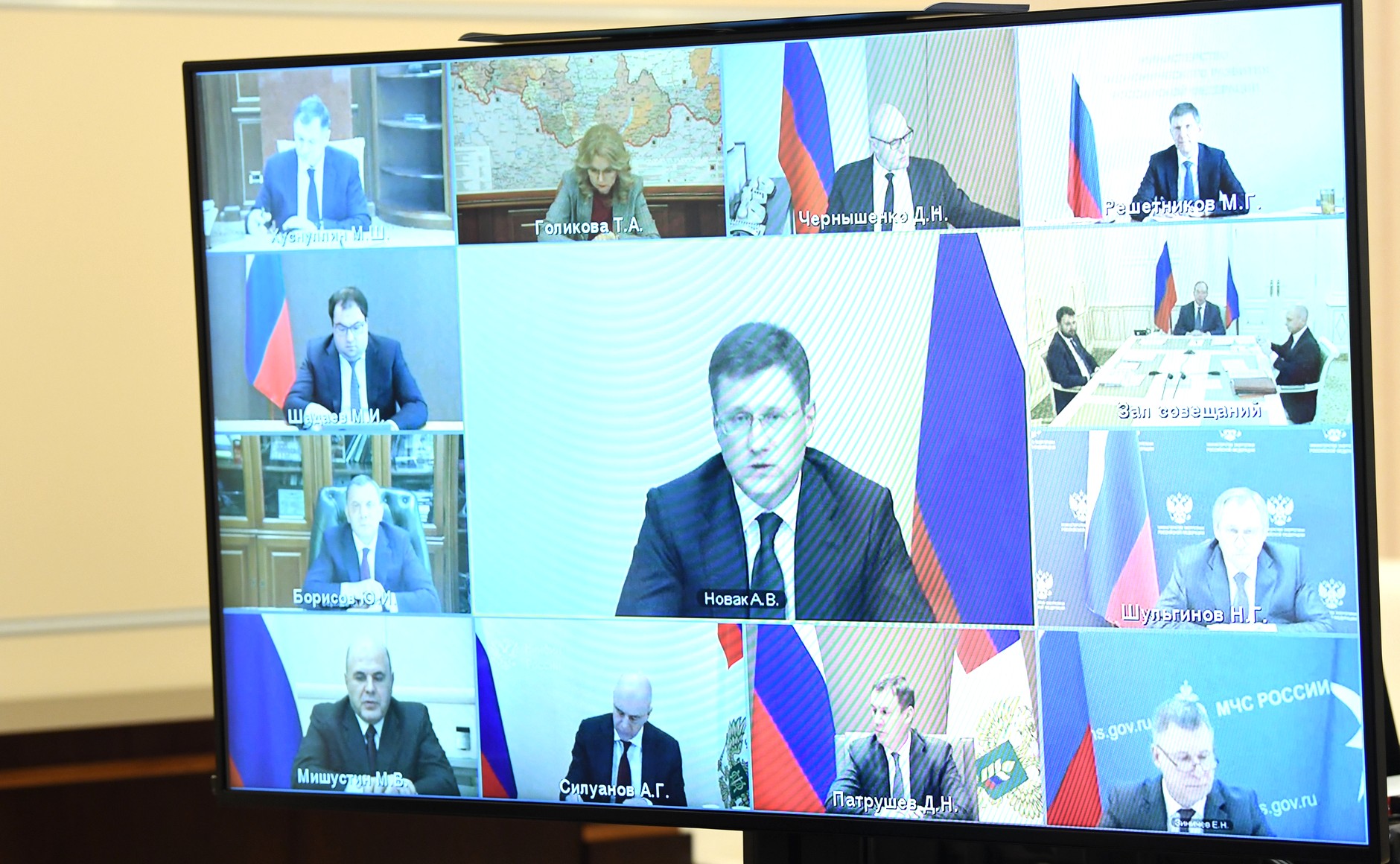 First Deputy Prime Minister Andrei Belousov: Thank you very much. Mr President, Mr Prime Minister, colleagues, In the spring of this year, Mr President, you gave us instructions on developing certain high-tech areas that would be breakthrough, and systematic in nature. There are 11 key areas: artificial intelligence technology, four digital technologies, 5G mobile communication networks, the internet of things, the technology of distributed ledgers, and quantum technology. In studying the latter, the experts divided it into three different categories: quantum calculations, quantum communications and quantum sensorics. Furthermore, these are technologies of new generation microelectronics and new materials and substances, the development of new and portable energy sources, technologies for transferring electricity and distributed smart energy systems, and future space systems and genetic technology. It is necessary to choose a technological partner for each area, that is, a lead company that can ensure, in cooperation with the Government, the required organisational and financial support. Such companies must become the drivers of technological development during the entire life cycle: from research to scaling up and commercial use. Importantly, in the course of development, these companies must not monopolise these activities or harm competition or other companies. The role of the lead companies is first and foremost to create centres of competencies that can study the monitoring of situations and education. The second goal is to facilitate the development of the market and any required infrastructure. The third goal is to attract extra-budgetary funding. To organise this work, the lead companies must compile and endorse respective roadmaps in cooperation with the Government. What are we ready to report? To date, we have selected our technological partners in nearly all spheres and signed partner agreements that clearly stipulate the sides’ obligations. The Government’s partners include Sberbank, or Sber as it is called now, and the Russian Direct Investment Fund (RDIF) for Artificial Intelligence, Rostec for the Internet of Things, Blockchain Technology, Quantum Sensors and Microelectronics, as well as 5G Mobile Networks – together with Rostelecom. Rosatom is responsible for quantum computing and the technology of new materials and substances, Rosseti for smart grid electricity transfer and distribution, RZD for quantum communications, Rostelecom for 5G networks, Rosneft for genetic technologies, and Roscosmos for prospective space systems. We have approved and are implementing 10 roadmaps and other plans, and special competence centres have been established in nine spheres by companies that are our technological partners. In all, 477 billion rubles of budget funds have been earmarked for the implementation of the approved roadmaps in 2020–2024, and the leading companies will provide a comparable sum, around 452 billion rubles, of own and borrowed funds. This adds up to nearly 1 trillion rubles, and this does not include private funds from other than the leading companies. We have special hopes for VEB’s competence in the field of syndicated loans for innovation and digitalisation projects. Mr President, my colleagues who are responsible for these particular spheres can provide more detail. If I may, I would like to speak some more about the development of artificial intelligence (AI) technologies, for which I am directly responsible together with Mr Chernyshenko. As I have said, the Government’s partners in this sphere are Sber and RDIF. Allocations for 2021–2024 – without private funds – have been approved at 24.6 billion rubles of budgetary funds and some 62 billion rubles of the partners’ funds. We are working in six practical spheres. I would like to speak about two of them. The first area is support for small technological companies, the so-called start-ups. I would like to note that in the United States, China and other countries start-ups are playing the role of drivers in the development and application of AI technologies. The main task here is to create an effective mechanism of acceleration, from the selection and creation of teams and companies to the commercialisation and industrial implementation of their output, and to IPO. The creation of this mechanism has been completed within the framework of the ongoing reform of our development institutions. It includes the National Technological Initiative (NTI) Platform, which is responsible for creating teams, and our development institutes, which are in charge of ensuring the so-called seamless integration of support measures: RDIF and the Russian Venture Company (RVC), the Fund for Assistance to Small Innovative Enterprises (FASIE) or the Bortnik Fund, Skolkovo, and the Fund for Infrastructure and Educational Programmes, with VEB’s organisational support. In other words, a young team which has received start-up support from, say, the Bortnik Fund in the form of a seed grant for the implementation of its idea and has shown its worth will be able to use certain preferences such as RVC venture financing or subsidies for covering spending in the creation of an industrial prototype. In case of success, this company may hope to receive direct investment from RDIF or an easy-term loan at the mature stage for launching the batch manufacturing and marketing of its product. Approximately 10 large private Russian companies have been also involved in this project within the framework of the fund of funds, or a pool of funds, which is being established jointly with RSPP members. A pilot project was launched in November to test this mechanism within the framework of NTI’s Archipelago 2035 for the acceleration of AI application. Some 16,000 people were involved. The NTI Platform provided so-called pre-acceleration assistance to 800 teams. The Fund for Assistance to Small Innovative Enterprises assessed their performance and approved grants for 80 companies. Overall, a relevant working group has been established. We plan to sign a joint memorandum this year and an agreement between these development institutions by February 1, 2021. Under this agreement, they will exchange information about start-ups and projects and, most importantly, they will have access to additional structured data about the success or failure of projects during the subsequent implementation phases. This will allow us to make decisions on support in an accelerated or priority manner. It will take some time, approximately two or three months, to adjust corporate procedures and fine-tune the project assessment and selection systems. Overall, we intend to fast-track the selection of at least 100 artificial intelligence projects by the summer of next year. The corresponding framework has yet to be created, and we have been operating in manual mode thus far using the mechanisms provided by the National Technology Initiative (NTI). This has already yielded results. For example, DeepPavlov, a project based at the Moscow Institute of Physics and Technology, made it to the top 10 of the Amazon Alexa Prize, a prestigious competition in the field of conversational AI. In fact, this is the second year in a row that the project has made it to the top 10. The project called Botkin.AI to create a universal platform for analysing and processing medical imagery and developed in cooperation with Rosatom has entered the industrial phase. So far, this has been the only AI solution in Russia to be registered with Roszdravnadzor [Federal Service for Supervision of Healthcare] as a Class IIb risk device. This technology helps medical professionals process medical imagery and diagnose various health conditions, including COVID-19. Moreover, it offers a number of unique applications that are unrivalled around the world. Moving on, another NTI participant, GeoScan, has set a world record in the number of drones operated simultaneously by flying a swarm of 2,198 drones using AI. This is a breakthrough solution in terms of improving earth scanning accuracy by shooting from multiple angles and splitting the task among numerous UAVs for delivering on a wide range of tasks. Let me note that global competition in this sector is quite intense. This record was set on September 3 in St Petersburg, and was timed to coincide with the 75th anniversary of Victory in the Great Patriotic War. The previous record dates back to 2018 and was set by Intel, a prominent global player. But today, GeoScan, a Russian company, has unseated Intel in this category. The second track deals with regulations. In this regard, we have three priorities. The first is to ensure that people feel safe and comfortable when using AI technology. They have to understand that AI is there to help them, and is not a threat. The second is that we need to enable the use of big data, including government data, while complying with all information security and data protection requirements for personal data and other sensitive information. AI cannot operate without big data, which can be described as AI’s “bread.” These are the key tracks and initiatives for this technology. Thirdly, we need to create incentives for enabling AI use in various sectors of the economy and in social services. Based on these priorities, the following fundamental laws have been passed this year: on the specifics of venture capital investment using government funds, the law on the right to risk, on experimental legal regulations in the field of digital innovation and on an artificial intelligence experiment in Moscow. Mr President, in line with your instructions following the AI Journey international conference, the Government will ensure that two draft federal laws are submitted to the State Duma for review during the 2021spring session. Both bills are in the works now – one on experimental legal regulations in certain industries and the other on data circulation, including government data, in order to develop and implement artificial intelligence technologies. Finally, in order to create a stimulating environment for the application of artificial intelligence in specific industries and areas, it is extremely important to update our technical regulations and standards. The Ministry of Economic Development and Rosstandart [Federal Agency for Technical Regulation and Metrology] have developed a standardisation plan for 2021–2024, which includes about 200 standards. This plan will be approved by a Rosstandart order by the end of this year. Now I would like to give the floor to Mr Chernyshenko, who will speak about other areas of work having to do with artificial intelligence. This concludes my report. Thank you.  Vladimir Putin: These leading companies that we know about, the ones you just mentioned, how do you assess their work? We will talk more about this, but before we move on – do you think they show enough enthusiasm? Andrei Belousov: I believe a number of companies are now producing excellent results. I would certainly single out Sberbank here, which in fact now holds a leading position in AI-enabled areas. Then there is Russian Railways, with its quantum communications. A special line, which is actually unique, was launched between Moscow and St Petersburg, one of the first lines in its kind. This is also a technological breakthrough of sorts. Rostec is implementing many different projects, although with varying success. And of course, I would like to highlight Rosatom, which has also created centres for artificial intelligence in various fields, such as new materials and medical technologies. They have also made a number of breakthroughs. This is what I have now. <…> Ministry of Industry and Trade Denis Manturov: Mr President, Mr Prime Minister, colleagues, The Ministry of Industry and Trade is charged with implementing three technological goals. As for the first of these – new generations of electronics and the development of the electronic component base (ECB) – the Government and Rostec Corporation have concluded an agreement that fully matches our updated Strategy for the Electronics Industry, and most importantly, the plan for its implementation. Given the sectoral similarities, we will work in the same bloc on quantum sensors. The Ministry of Digital Development is now transferring this work to our department. Considering that the Government has decided to provide additional support for the radio-electronic industry, what I see as an enormous amount, 235 billion rubles until 2023, we will channel more than half of these funds into direct R&D, subsidies on creating a new microelectronics industry and the infrastructure for its development. This year, the Government has funded in advance the development of laboratories on artificial intelligence and two co-working computer-aided design centres. In the future, this will allow our microelectronics designers to go over to domestic software as we discussed today. Given the medium-term goals on digitising the economy, considerable funds have been allocated for developing chips for domestic databases in line with current topology standards, as well as artificial intelligence systems, including control of drones and security complexes, and for telecommunications equipment, such as 5G networks. Design bureaus established over the past few years with government support will be involved in this work. We will continue developing them. In addition, the Russian Foundation for Advanced Research Projects received the first tranches for over-the-horizon developments in electronics, including coherent elements and neuroprocessors, non-volatile storage and new radiolocation technology. In line with your instructions, next year we plan to take a number of new measures to support producers. We will fund R&D in civilian microelectronics and provide subsidies for the development of the ECB and modules. In addition, we will support projects to develop equipment and materials and automated design systems that are used in the production and testing of microelectronics. To encourage demand, next year we will increase the reimbursement of expenses for large-scale microelectronics producers. That said, a long-awaited ban on the purchase of imported microelectronics for government needs will come into force at that time. We hope that as a package these measures will allow our manufacturers to take over 40 percent of the domestic market by 2024, thereby more than doubling the profits on civilian products. In this way, we can enhance the reliability of control over communications systems, intelligent devices, smart sensors and critical infrastructure elements. We are cooperating with Rosatom on developing new materials and substances. We have approved a roadmap for the further development of the production of composites, rare and rare-earth metals and additive technology. In addition to funding by the Ministry of Trade and Industry, the Ministry of Education and Science, and the Ministry of Economic Development, the main investment will come from private capital. In all, over 440 billion rubles will be invested in these areas. The main goal that you set for us on rare and rare-earth metals was to create a domestic raw-materials base. Two major projects are now being implemented for this purpose – the Tomtor deposit in the Republic of Sakha (Yakutia) and the Zashikhinskoye lithium and germanium deposit in Irkutsk. The joint Stock Company Voskresensk Mineral Fertilizer (Uralchem) is another project on processing refuse dumps with the participation of the Moscow Region Government, Rosatom and Skygrad. It plans to produce rare-earth metals from phosphogypsum stack and gypsum products for further use in the construction industry. Overall, we plan to reduce our import dependence on rare metals to 50 percent and to 20 percent on rare-earth metals by 2024. This will make it possible to deliver Russian raw materials to petrochemical plants, oil refineries, auto catalyst makers, and synthetic rubber and wind energy producers. As for composite materials, in the past five years we have supported 45 innovative projects worth over 6.5 billion rubles, thereby increasing production by 3.5 times. The products that are already manufactured under these projects are broadly used primarily in the civilian sector. These include composite railings, window structures, lighting poles, pipe culverts, bridgework and sports facilities. On the whole, by 2024 we plan to increase domestic production to 100 billion rubles and export a quarter of this amount. [To be continued. - So it is written on the president's website] The source of information - http://en.kremlin.ru/events/president/news/64623
__________________
Where should they dig the Very Deep Pit? Piglet said that the best place would be somewhere where a Heffalump was, just before he fell into it, only about a foot farther on. (c) Alan Alexander Miln Last edited by Alex Him; December 11th, 2020 at 07:25 AM. |
|
|
#160 |
|
Senior Member
|
Meeting on economic matters
The President chaired an online meeting on economic matters. December 9, 2020 - 17:00 - Novo-Ogaryovo, Moscow Region 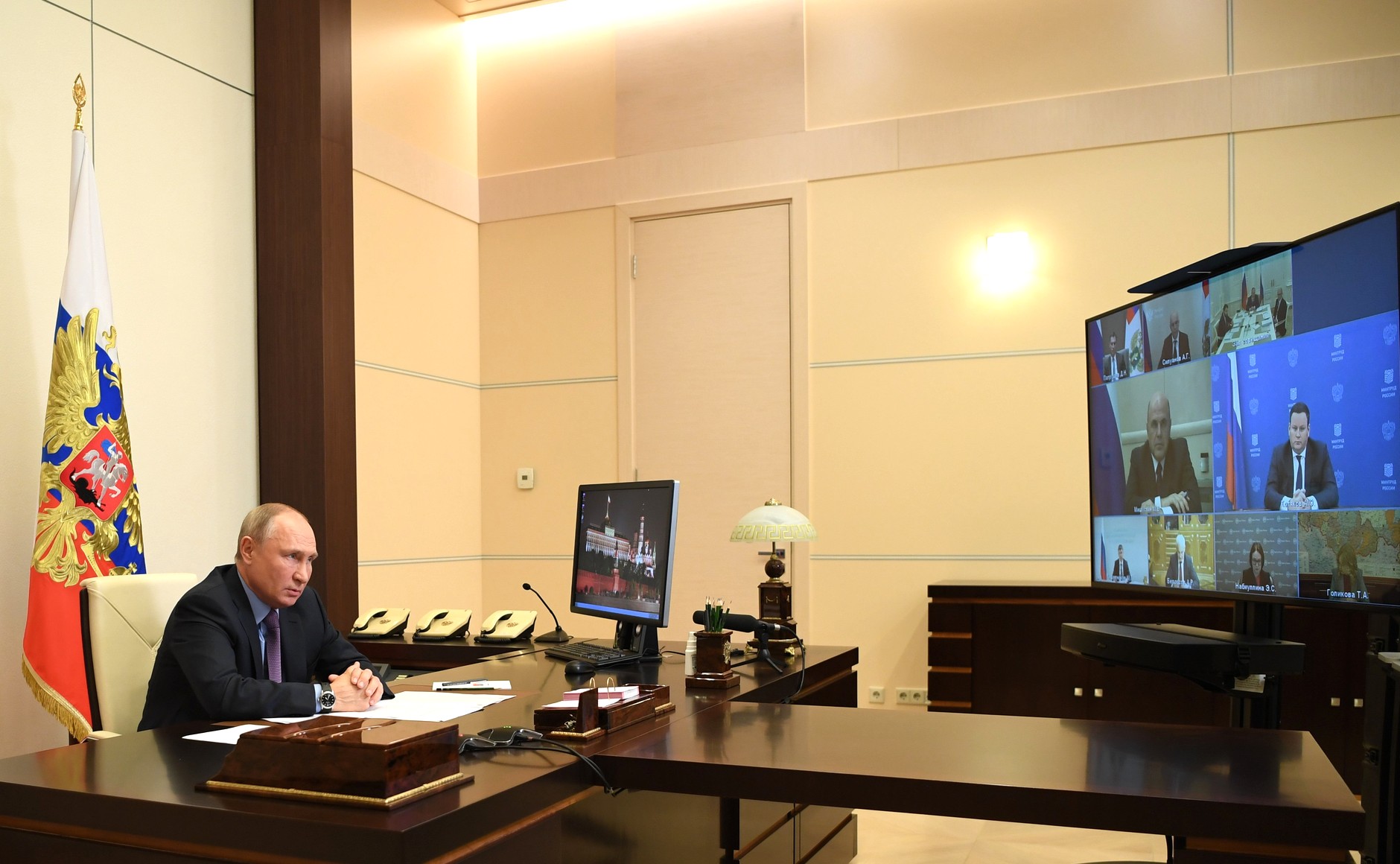 The meeting was attended by Prime Minister Mikhail Mishustin, Chief of Staff of the Presidential Executive Office Anton Vaino, First Deputy Prime Minister Andrei Belousov, First Deputy Chief of Staff of the Presidential Executive Office Sergei Kirienko, Deputy Prime Minister Tatiana Golikova, Presidential Aide Maxim Oreshkin, Minister of Labour and Social Protection Anton Kotyakov, Minister of Agriculture Dmitry Patrushev, Minister of Economic Development Maxim Reshetnikov, Minister of Finance Anton Siluanov, and Governor of the Central Bank Elvira Nabiullina. 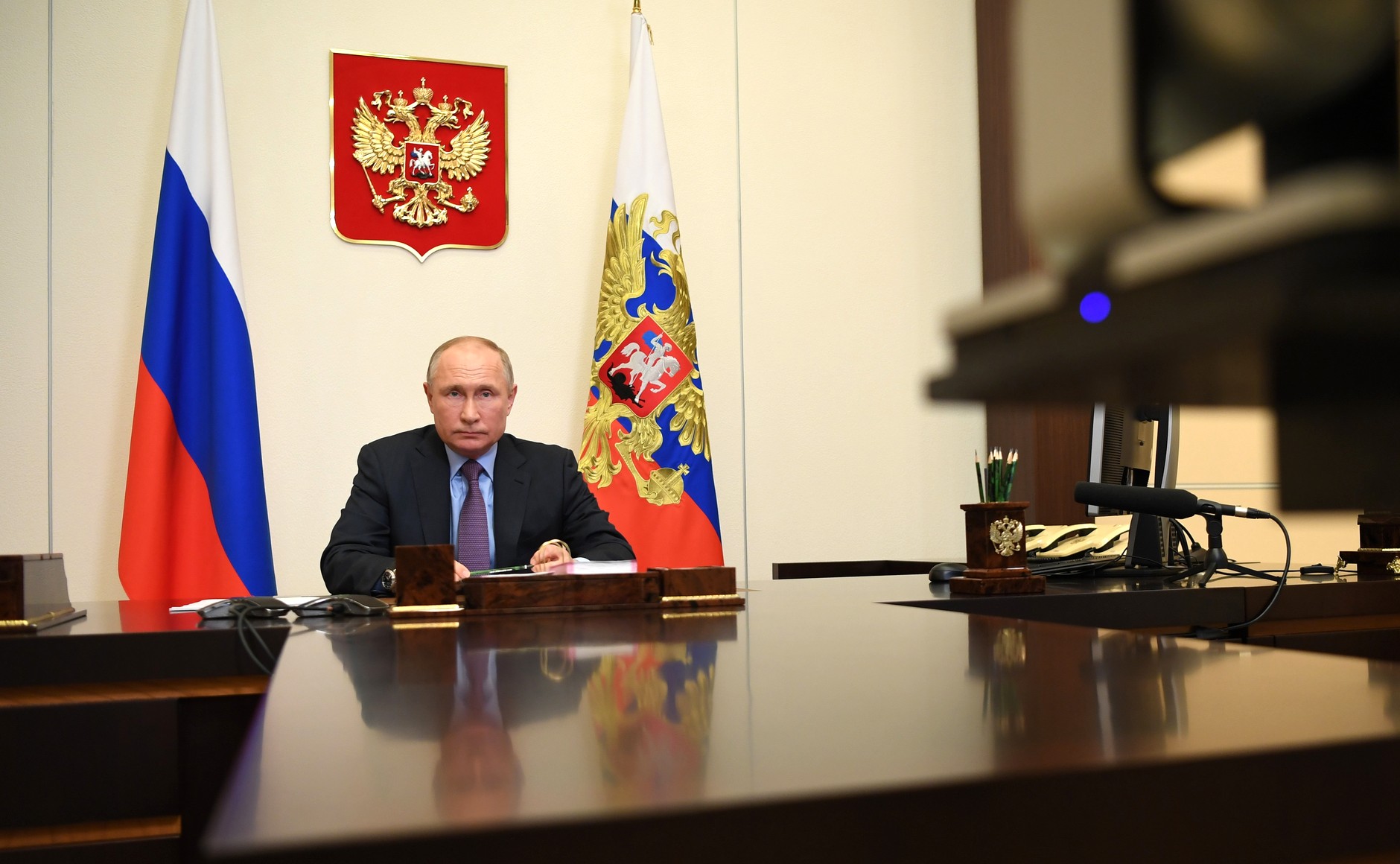 President of Russia Vladimir Putin: Colleagues, good afternoon. We have agreed to meet regularly in order to closely monitor in real time the situation in the national economy and the main trends. Let me emphasise that this is not just about macroeconomic parameters, which are certainly very important, and vital for our decision-making, they are the foundation on which all of our work is built, figures that describe the current state of affairs. However, we also need to talk about extremely important issues that are sensitive for every Russian family, for every citizen in our country – employment, income, and prices, primarily of basic goods. What is the situation here? Revenue – I know, unfortunately, it has decreased this year. The labour market is under some strain, and unemployment is up: from 4.7–4.8 percent, it rose to 6.8 percent, then subsided slightly, to 6.3, which is better than, say, the United States, and it is even higher in the euro zone. But what about other indicators, such as the rise in prices, primarily those of basic foodstuffs? The pandemic has nothing to do with that. The first two can be easily explained by the decline in production and the decrease in the workforce. Nobody likes a decline in income – I can assure you, and you know this, but people still understand that this is happening due to the objective difficulties occurring not only in our country, but around the world. What people assess is our response – the effective or not very effective actions by the authorities in response to what is happening in the global and the national economy as part of this global economy. This cannot be helped and we all know it. But growing prices of basic foods cannot be explained by just the pandemic. What does the pandemic have to do with it? Take granulated sugar. The Minister of Agriculture has just reported that Russia’s production is enough to meet domestic demand. So why have prices increased by 71.5 percent? Thankfully, there is some stabilisation in this respect, I am being told. But the price of sunflower oil has grown by 23.8 percent and it continues going up; flour is up 12.9 percent, pasta products – by 10.5 percent and bread and flour products – by 6.3 percent. Why is this? Of course, there is an explanation. This is caused by the cost dynamics in the world markets, an attempt to bring domestic prices up to global levels to match and use export opportunities. I mentioned at our previous meeting with the Government, how it was in Soviet times when everything was available but there was not enough for everyone. Now, everything is available but not everyone can afford it. Look, we know what must be done in this situation. We know what instruments to use to keep prices at bay, at least on these items. We simply need to respond promptly to what is happening. I think we must review all these issues calmly at our meeting today. Please note that I expect you not just to offer proposals on this subject but to outline specific measures and deadlines for adopting them and, most importantly, reaching the desired effect. Inflation recently exceeded the targeted forecast of the Central Bank – it is now 4.4 percent based on the November results, whereas the targeted figure was about 4 percent. Naturally, this was brought about by a number of objective factors including operations difficulties at companies during the pandemic and the weakening of the ruble. We discussed this issue at our meeting in October and agreed that the Government would meticulously analyse this problem. Let us discuss the proposals in detail today. Let me emphasise that any adopted measures must be thoroughly analysed. It is necessary to consider the possible impact both on the current business atmosphere and on business development plans. And, of course, the main point is the interests and welfare of our citizens. Therefore, all decisions must be balanced, and, I would like to stress it again, timely. Another issue on the agenda that I have also already mentioned, is the employment situation. High unemployment is one of the key challenges today, not only for our country, but for almost the entire world. This is a serious negative factor in terms of income – for Russian families, in this case. This year, during the epidemic, we took a range of business support measures. The basic criterion was, first of all, that we supported primarily companies and businesspeople who took responsibility for their teams, for keeping their people employed. I can state with confidence, this approach has largely helped to minimise the negative impact of the pandemic and the ensuing restrictive measures on the labour market. I can say that the Government made some positive decisions in a timely manner, and that played a role. Again, overall, those measures have worked. After peaking in August, unemployment rates began to subside. As I said, it is in around 6.3 percent now – down from, I think, 6.8. I would like to note that this is obviously better than – I would like to emphasise this again – better than in many other countries, including the developed economies. At the same time, unemployment in our country is still not declining quickly enough. The rate is too slow to announce a drastic change in the situation. Worse still, with the epidemiological situation aggravating in November, there is a new risk of further deterioration in labour market dynamics. Allow me to remind you that the Government has been tasked with restoring employment in Russia to its 2019 level by the end of next year. I am sure that the task is perfectly realistic, and I would like to hear your proposals today on additional solutions to improve the labour market situation, the mechanisms or tools you think need to be used. The source of information - http://en.kremlin.ru/events/president/news/64624 Greetings to National Sports Award ceremony Vladimir Putin sent a message of greetings to participants and guests of the National Sports Awards ceremony. December 9, 2020 - 17:45 The message reads, in part: “Established 10 years ago, this prestigious award has become one of the main symbols of professional achievement in national sports. With its noble mission, it brings together remarkable coaches, organisers and journalists – everyone who is making a significant personal contribution to the popularisation of physical fitness and a healthy lifestyle, and to the development of a modern, high-quality sport infrastructure. And of course, among the laureates are our outstanding athletes who represent Russia with honour at the most high-profile international competitions, showing unbending willpower and strength of character, and loyalty to the best traditions of their predecessors. I am confident that the National Sports Award will be a radiant and inspiring incentive for this year’s winners to move forward, towards further accomplishments and new heights.” The source of information - http://en.kremlin.ru/events/president/news/64637 Greetings on 15th anniversary of RT television channel Vladimir Putin sent a video-message to the staff of the RT television news network to congratulate them on the network’s 15th anniversary in broadcasting. December 10, 2020 - 08:00 President of Russia Vladimir Putin: Friends, Russia’s first ever international news channel, RT, went on the air on this day 15 years ago. It was hard to imagine then how radically this project would change, enrich and diversify the global information agenda. Today, dozens of millions of people worldwide watch and read you every day. This is a voice that is trusted and respected. And let us be straight, it is this voice, the voice of the truth, which is feared and would rather be hushed up by some. The real reason for the channel’s success is that it follows the general rules of honest, professional and free journalism, which historically rejects any information monopoly, censorship or desire to assign to itself the right to the ultimate truth. It is not surprising, therefore, that RT cooperates with some of the real “stars” in world politics, public figures, and media representatives from different countries. You dare to ask inconvenient questions, offer a platform for fierce debate, for different, at times uncomfortable points of view. You provide your international audience with the latest, current and objective facts about developments in Russia and the world. You offer a rich and diverse spectrum of opinions, views and considerations in your news programmes and exciting and eye-opening media projects. I believe that thanks to the highly professional and top-quality efforts of your correspondents, editors and video crew, your voice will be heard on all continents of the Earth, as before. I would like to wish your channel and all of the media holding staff good progress, courage, daring and success. The source of information - http://en.kremlin.ru/events/president/news/64627 Greetings on Radio Rossii 30th anniversary Vladimir Putin sent his greetings on the 30th anniversary of Radio Rossii State Radio Broadcasting Company. December 10, 2020 - 09:00 The message reads, in part: “Established in 1990, Radio Rossii brought together a team of respected and prominent professionals and proactive young employees aspiring to new creative heights. Building on the best practices of journalism and new media approaches, the company’s team has always sought to keep in step with the times and set a high standard for radio journalism. It is gratifying that you have upheld these traditions and are committed to mastering advanced technology and online streaming in order to offer a wide range of radio programmes to your listeners. I strongly believe that moving forward, the professionalism, impartiality, responsiveness and the respect for your large and dedicated audience you demonstrate in your work will help Radio Rossii produce interesting and insightful content, enabling it to successfully compete in the media industry and act as a role model of a responsible professional attitude.” The source of information - http://en.kremlin.ru/events/president/news/64629 Greetings on 90th anniversary of Khanty-Mansi Autonomous Area Vladimir Putin sent his greetings to the residents of the Khanty-Mansi Autonomous Area – Yugra on the region’s 90th anniversary. December 10, 2020 - 10:00 The message reads, in part: “You have every right to be proud of Yugra, its magnificent nature, unique traditions and the customs of the people that have lived there since the dawn of time, and of course, proud of your predecessors who faced up to the daunting task of developing abundant minerals reserves, and built roads, cities and villages. They reinforced the country’s economic might through their dedicated and productive work. It is gratifying that the people living there today are eager to make a meaningful contribution to developing the Khanty-Mansi Autonomous Area. You have also achieved amazing results. As one of Russia’s main oil and gas producing regions, the Khanty-Mansi Autonomous Area has immense industrial, technological and human potential. It is home to large-scale industrial and social initiatives and transport infrastructure development projects. The region also attaches great importance to preserving its unique historical, cultural and spiritual heritage.” The source of information - http://en.kremlin.ru/events/president/news/64640 Greetings on Yamalo-Nenets Autonomous Area’s 90th anniversary Vladimir Putin congratulated Yamalo-Nenets Autonomous Area residents on the region’s 90th anniversary. December 10, 2020 - 10:00 The message reads, in part: “The history of your region ranks among the bright and heroic pages of the development of remote areas of the Extreme North and Western Siberia and their unique natural resources. The selfless work and perseverance of many generations of your ancestors, including geologists, builders, and oil and gas industry workers have created a reliable local infrastructure to prospect for and produce mineral deposits, and built cities and towns, power plants and roads. Today, the Yamalo-Nenets Autonomous Area has a powerful production, technological and human potential, and makes a truly invaluable contribution to strengthening strategic sectors of the national economy and guaranteeing the country’s energy security. The region is successfully implementing much-needed programmes in education, support for motherhood and childhood, healthcare and culture, ecology and tourism. And, of course, the region is tirelessly working on preserving the unique customs and traditions of the small indigenous ethnic groups living in this ancient land.” The source of information - http://en.kremlin.ru/events/president/news/64641 Greetings to participants in Russia-Finland videoconference marking anniversaries of railway between St Petersburg and Helsinki Vladimir Putin congratulated the participants in the Russia-Finland videoconference marking the 150th anniversary of railway service between St Petersburg and Helsinki and the 10th anniversary of the Allegro train. December 10, 2020 - 12:00 The message reads, in part: “The opening of train services between the Russian Empire and the Grand Duchy of Finland was a major milestone in the history of transport infrastructure development and helped expand people-to-people contacts, trade and economic ties. Built one and a half centuries ago, this railway has become an integral part of a vast network linking Europe and Asia. Today, it remains an essential element in the relations between our countries. We attach great importance to its effective, high-quality and safe operation. Launched in 2010, the Allegro express train opened a new chapter in the history of transportation between St Petersburg and Helsinki. This high-technology project exemplifies Russia’s fruitful cooperation with Finland and the European Union in general. There is great demand for this popular high-speed train. Almost four million passengers have travelled on it over the past decade. Unfortunately, Allegro trains had to be temporarily suspended due to the coronavirus pandemic. I strongly believe that passenger traffic along this line will fully recover once the epidemiological situation improves.” The source of information - http://en.kremlin.ru/events/president/news/64639 Meeting of Council for Civil Society and Human Rights On Human Rights Day, Vladimir Putin chaired a meeting of the Councilfor CivilSociety and Human Rights, held via videoconference. December 10, 2020 - 17:20 - Novo-Ogaryovo, Moscow Region 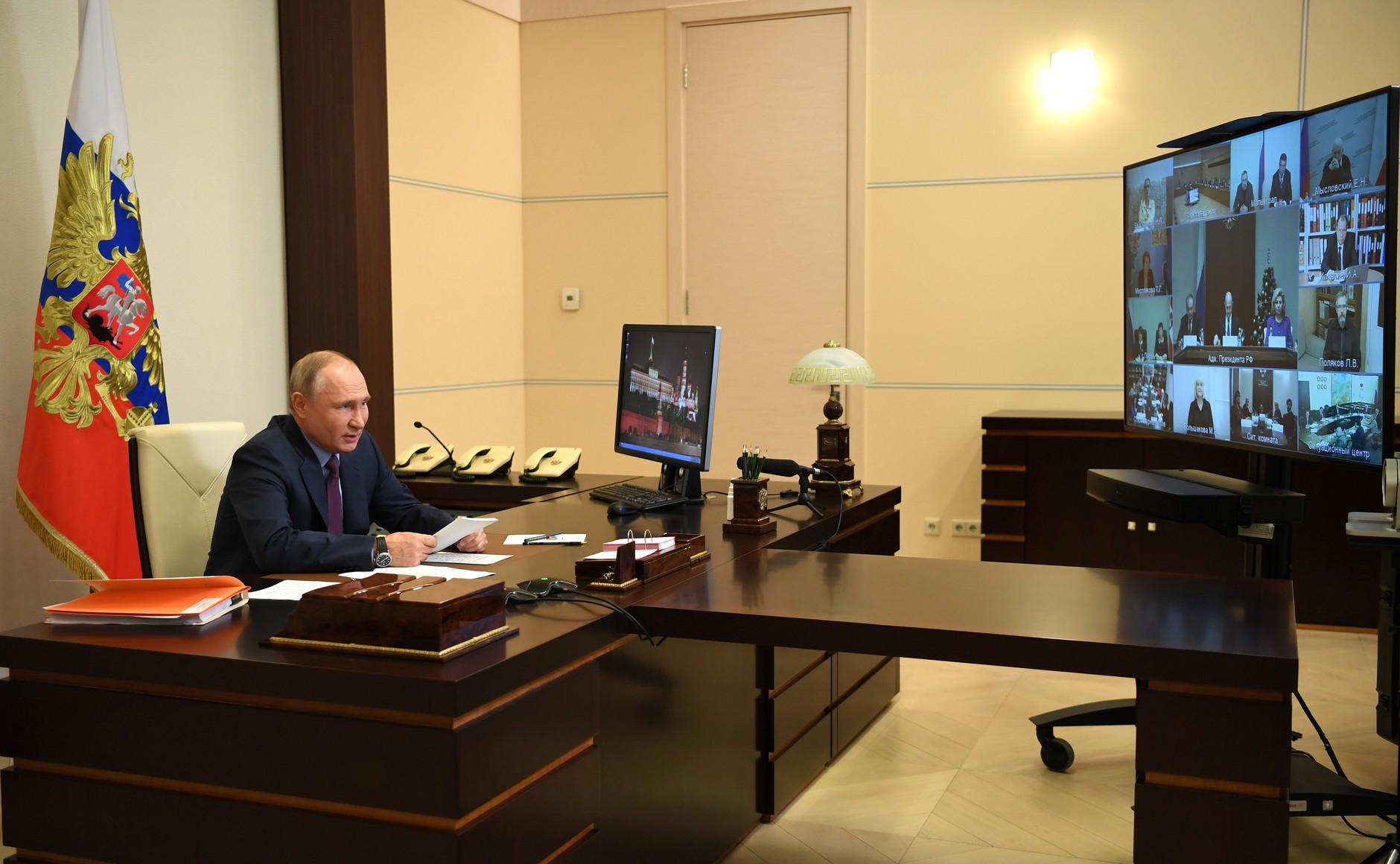 President of Russia Vladimir Putin: Good afternoon, colleagues. I would like to welcome all of you to our regular meeting, traditionally held on Human Rights Day. Each of you and the Council in general, as well as other national human rights organisations, are making their contribution to protecting human rights and freedoms. I believe this is a vitally important and noble mission that is in high demand in society. It requires painstaking daily work, extensive knowledge, patience, generosity, and an ability to conduct dialogue and to defend one’s position in a well-substantiated way. Quite often, this also calls for courage and resolve. I would like to note that precisely such people have always worked and continue to work in all line-ups of our Council. Friends, I want to sincerely congratulate you on Human Rights Day. I wish you every success in achieving the goals of your human rights activity. Today, we will have to work remotely. We rarely meet in this format, but I can already see that quite a few people would like to speak. As agreed, Valery Fadeyev [Presidential Adviser and Council Chair) organised this work at the Presidential Executive Office. I have a very long list here, but I did not compile it. It was done by our Council’s Head and Presidential Adviser on these matters, who is in charge of this work. But I want to address all our colleagues ask you to keep it brief because we will work for about two hours. Otherwise, the focus of attention will shift, although we usually work slightly more than two hours. More of our colleagues from the Council will be able to speak and set forth their viewpoint on matters of common interest, if all of you keep your remarks as brief and concise as possible.  Colleagues, The pandemic has become a serious challenge for this country and the entire world. It has compelled people to analyse and even revise many key principles of social communication. Relations between the state and the people have also acquired new dimensions. As you know, our struggle against the common threat under the motto We are Together has united representatives of practically all levels of authority, volunteers, non-profit organisations and thousands of caring and responsible people. That said, people were not only ready to take part in the joint efforts but also started voicing new demands to the state, especially as regards their rights in healthcare, education and protection of personal data. 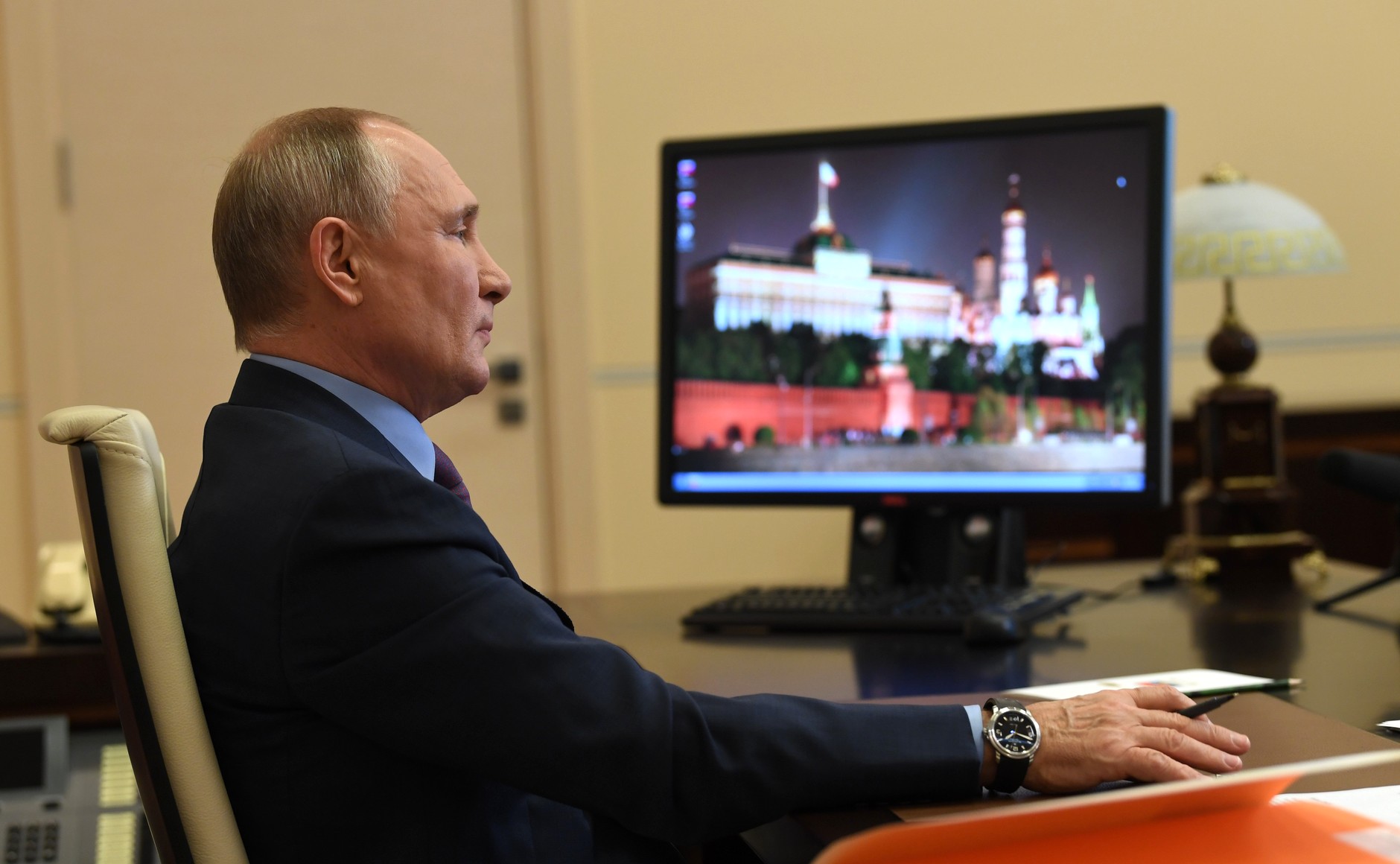 In conditions where all countries have to seek a balance between the inevitable but forced restrictions and the basic freedoms, the expert estimate of our Council has been and remains in great demand. We all see what happens in some countries where the so-called lockdown rebels emphatically protest against the necessary steps by the state. It is essential to understand what is happening, what is necessary, as well as a professional assessment. To my knowledge, the council has already done much in this area. In part, it presented its report “The Lessons of the Epidemic in the Context of Human and Civil Rights and Freedoms” and today we will certainly discuss its main points. Of course, I would like to thank you particularly for your active participation in the work on the Constitutional amendments. I know that people have different attitudes to this but the Council has made its contribution to this work and I would like to thank you for this, as well as for your assistance to citizens in exercising their rights during the nationwide voting.  I think we should also review the issues on which the council could focus its efforts in the near future. One of the topical issues is, of course, the healthcare system and patients’ rights. This is about the quality and timeliness of medical aid. Of course, the state is doing a great deal to make this work smoothly and beneficially for the people, but there are still setbacks here. This is obvious and I also know about this. Therefore, the work of human rights agencies is certainly in demand here as well, and not only because of the spread of the coronavirus.  I would like you to focus on the protection of human rights in primary healthcare, which is the closest to the people, and continue monitoring the provision of elective medical aid under individual plans, including, of course, oncological patients. In general, it is necessary to continuously analyse the organisation of elective care for patients with dangerous and chronic diseases. There is still much room for improvement in humanising justice. We speak about this at every meeting. The council has many experienced lawyers and they made a number of proposals at the previous meeting. Not all, but some of these proposals enjoyed support and must be carried out. Another important topic is the advantages and risks of digitisation. E-services are no longer a task for the future but an efficiently operating sector that is gaining momentum. New opportunities and new interests are being created. That said, the appearance of new interests is accompanied by the emergence of new threats. 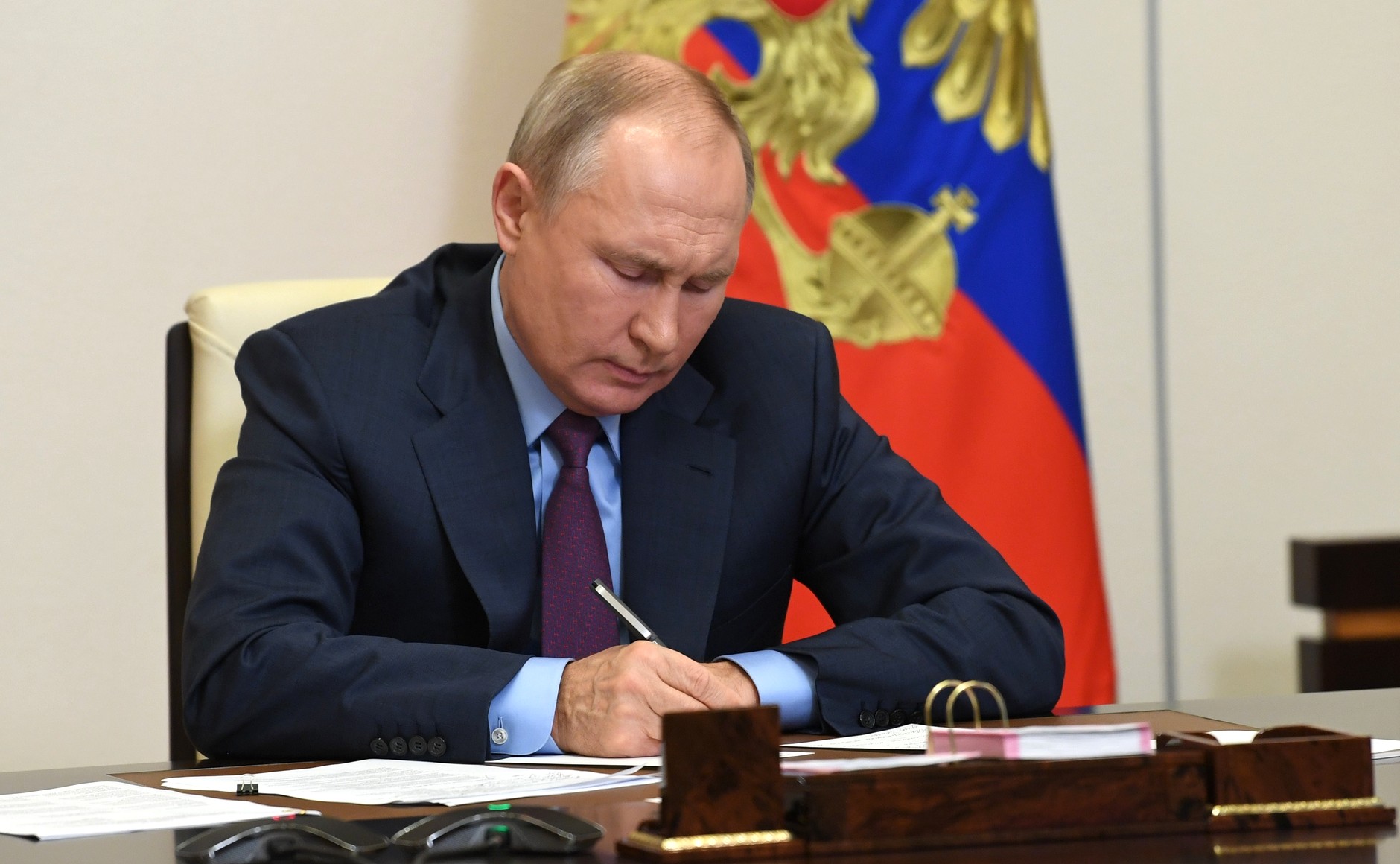 Human rights and artificial intelligence is an area that has not yet been studied and comprehended in full. Therefore, what we need now are professional recommendations on how to develop digital services further, preventing the risks of human rights violations as regards confidentiality, privacy protection and freedom of expression. Incidentally, public opinion polls show that people are very concerned about the protection of personal data. Our council deals with all these issues. It has been recently joined, among others, by specialists in this sphere. I believe this will considerably enhance its expert potential. In short, I would like to repeat that we have a large backlog of topics for discussion. Let us go over to reports and remarks. The source of information - http://en.kremlin.ru/events/president/news/64638
__________________
Where should they dig the Very Deep Pit? Piglet said that the best place would be somewhere where a Heffalump was, just before he fell into it, only about a foot farther on. (c) Alan Alexander Miln |
 |
| Share |
«
Previous Thread
|
Next Thread
»
| Thread | |
| Display Modes | |
|
|
All times are GMT -5. The time now is 11:46 AM.
Page generated in 1.99001 seconds.



 Linear Mode
Linear Mode
